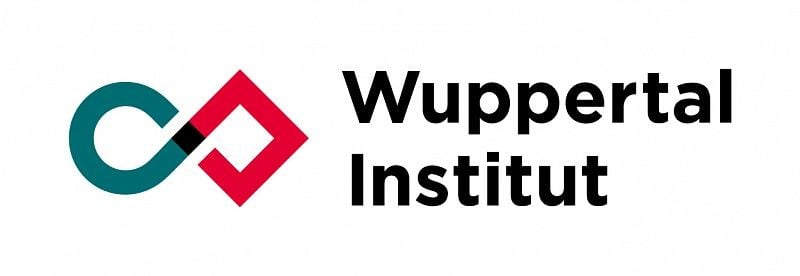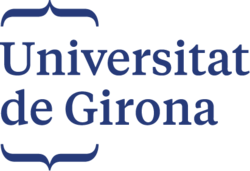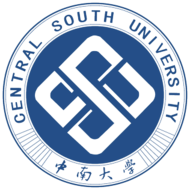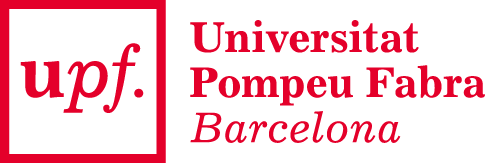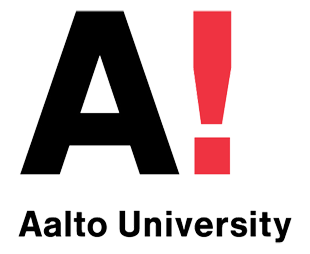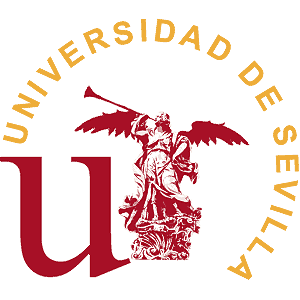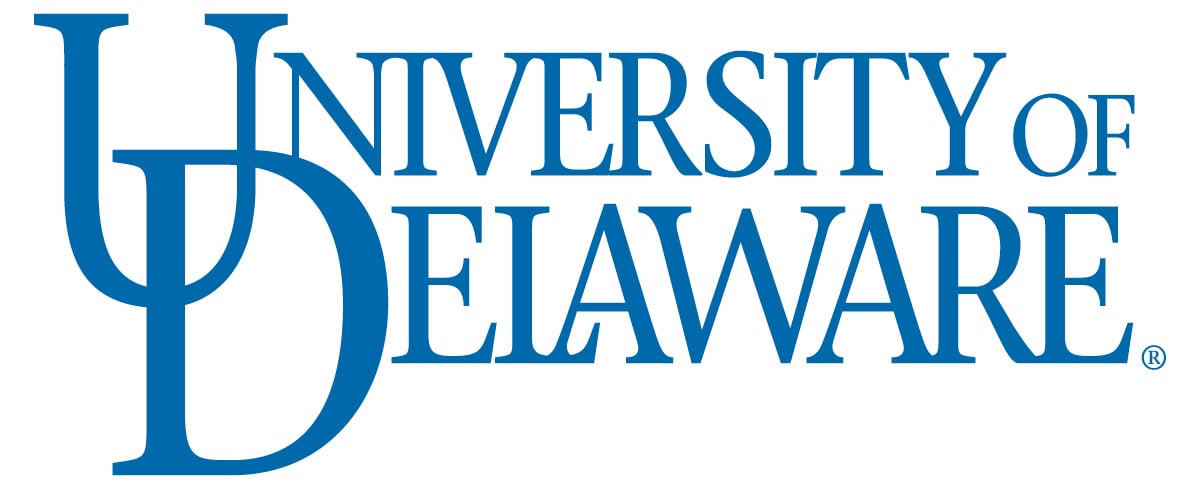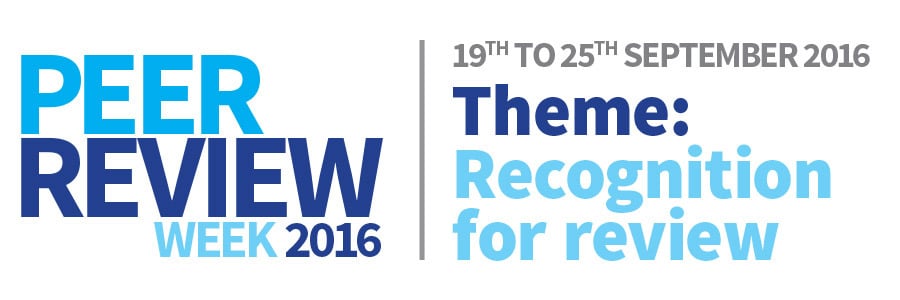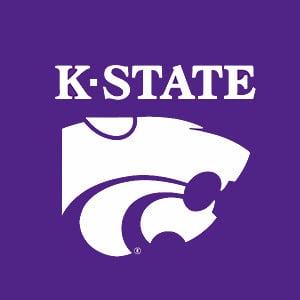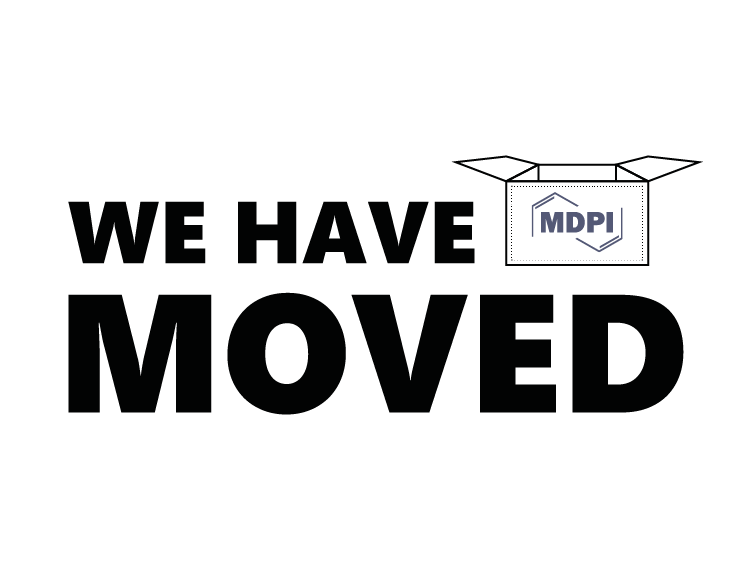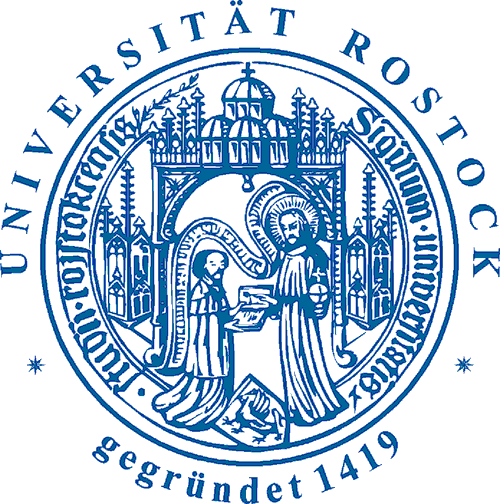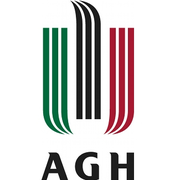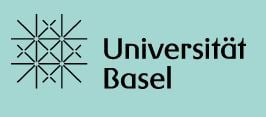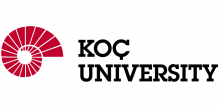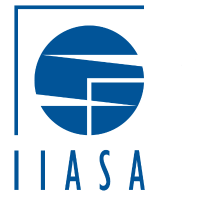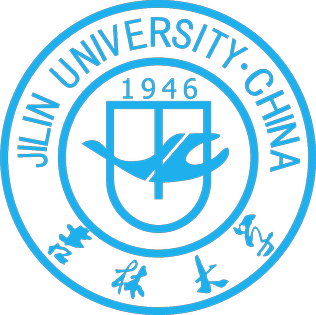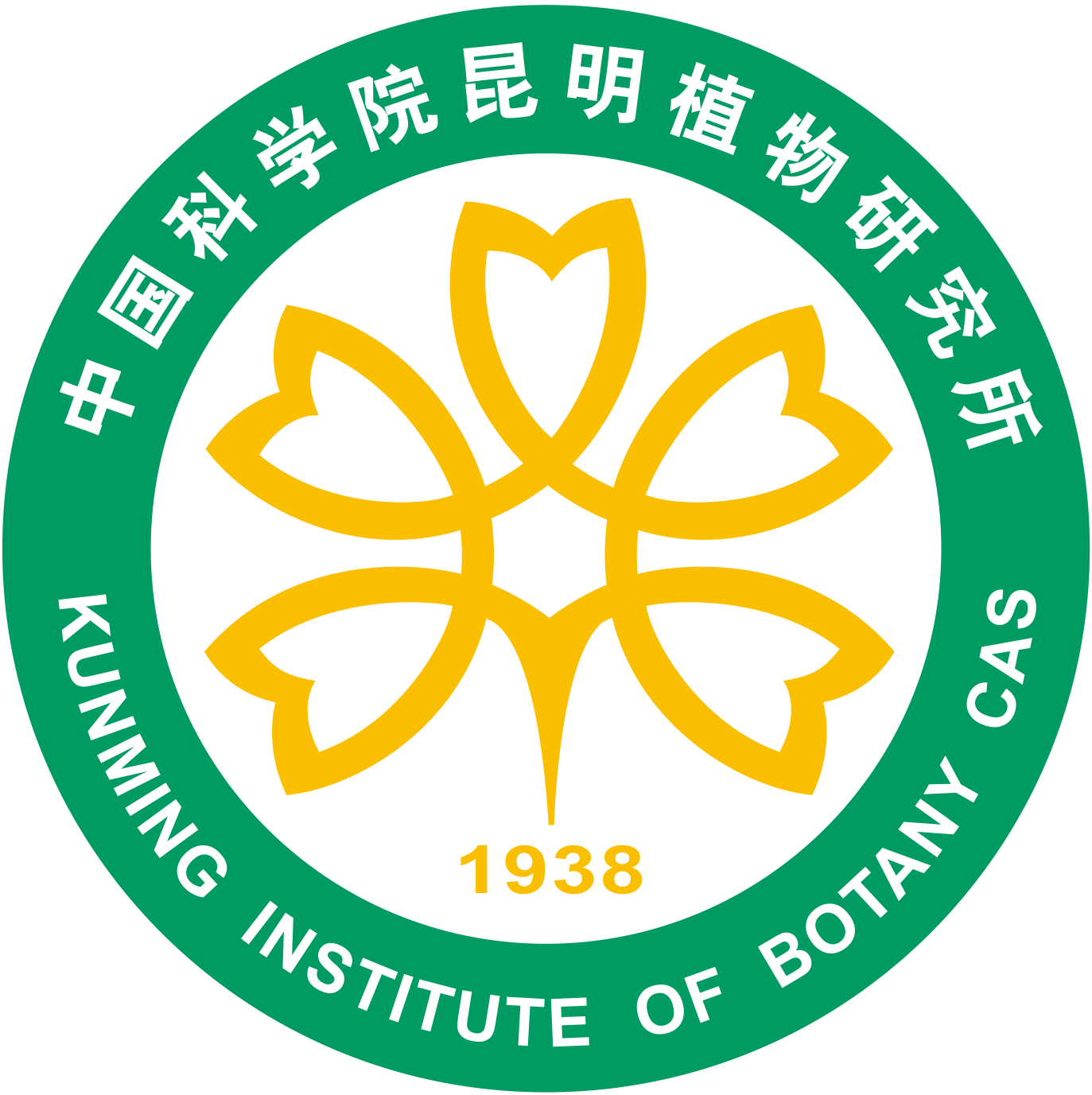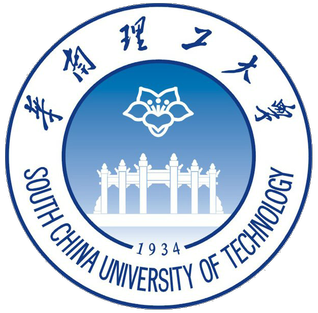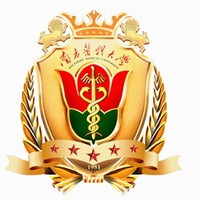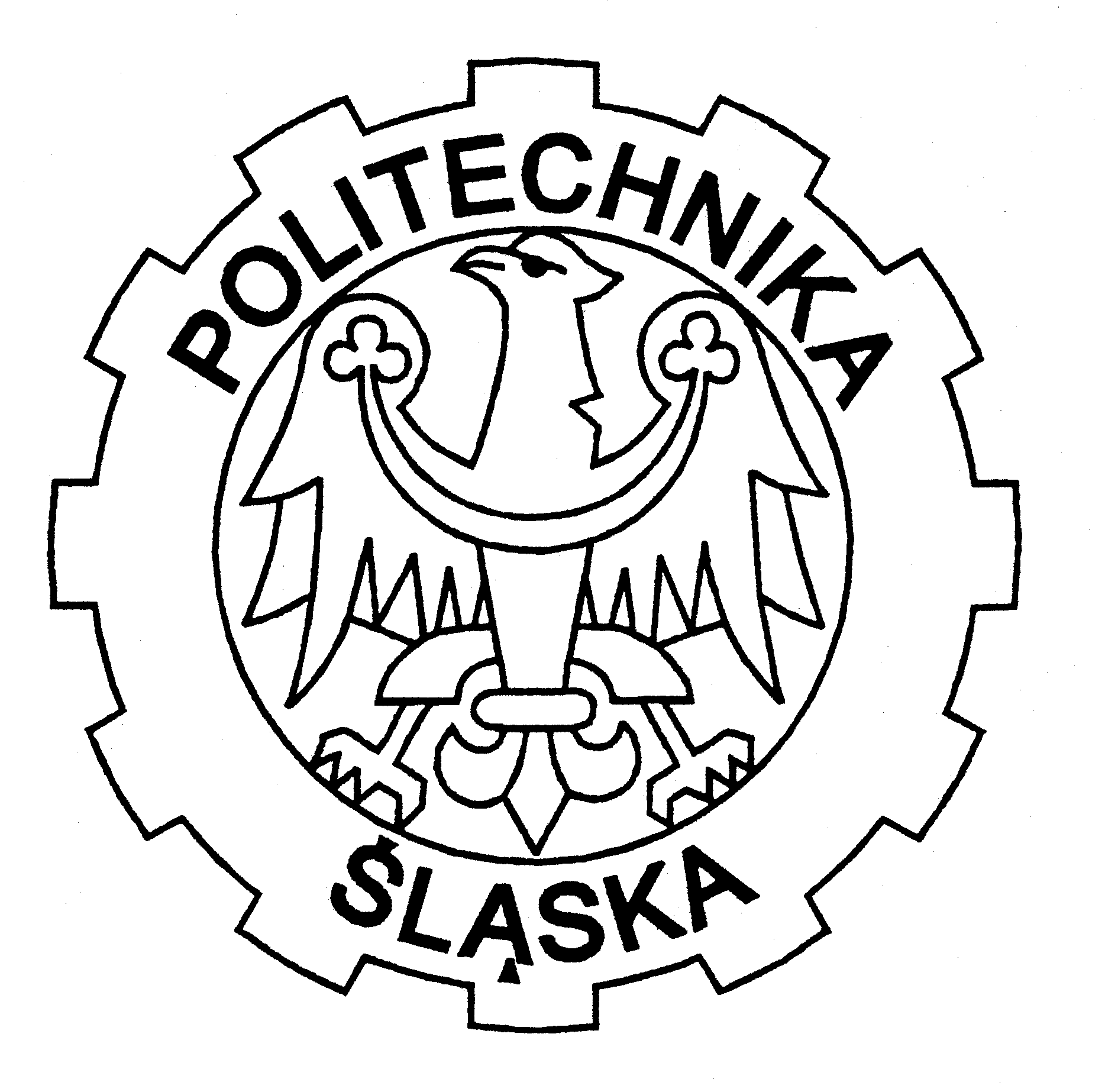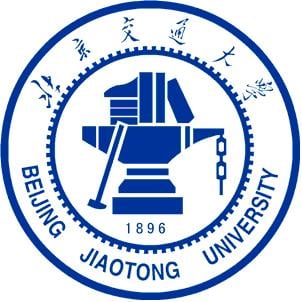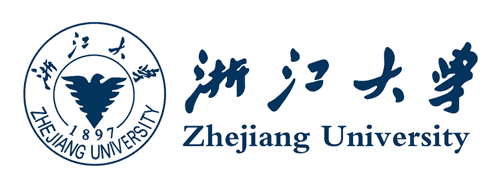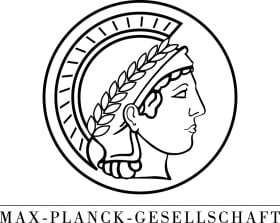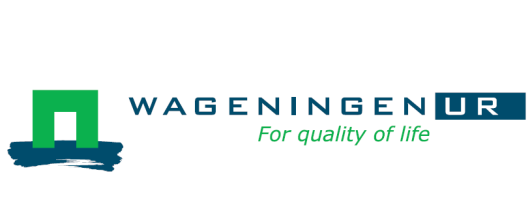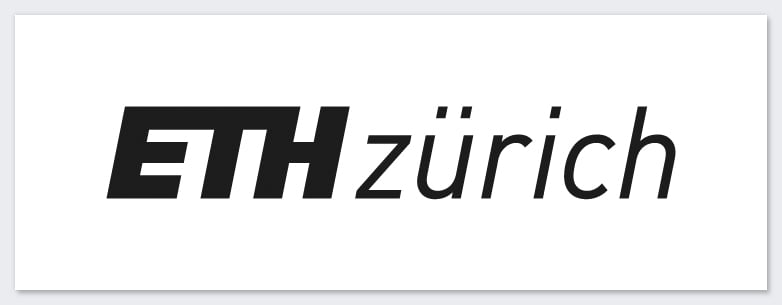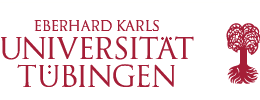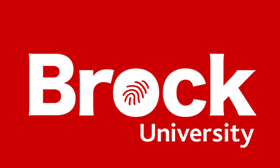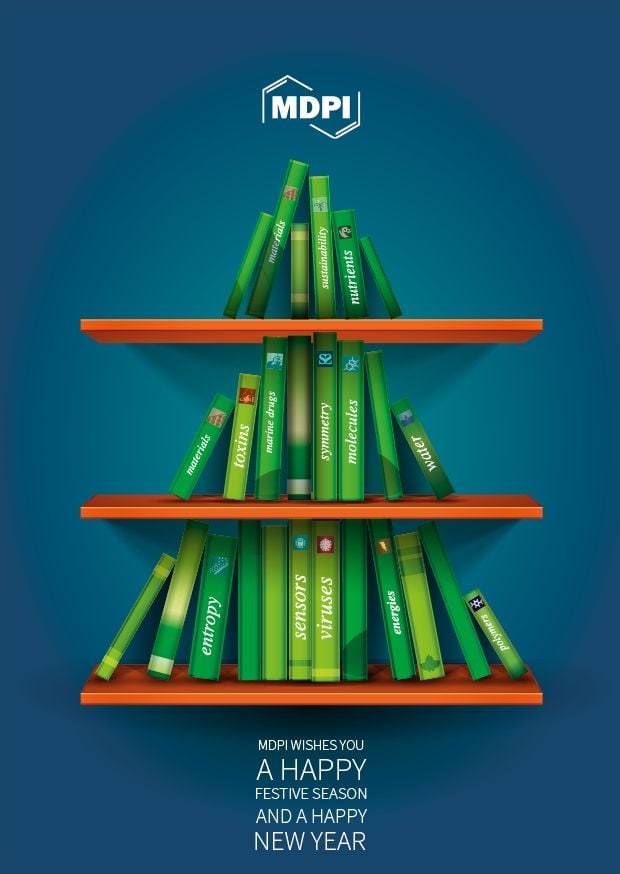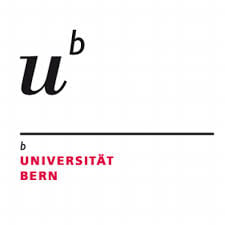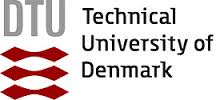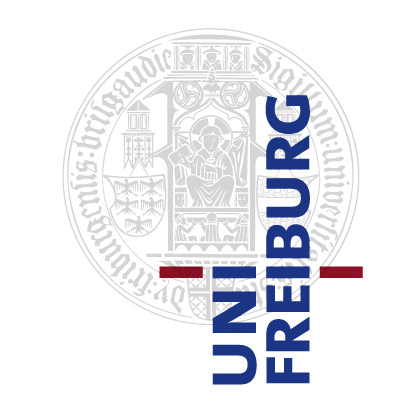
Journal Menu
► ▼ Journal Menu-
- Catalysts Home
- Aims & Scope
- Editorial Board
- Reviewer Board
- Topical Advisory Panel
- Instructions for Authors
- Special Issues
- Topics
- Sections & Collections
- Article Processing Charge
- Indexing & Archiving
- Editor’s Choice Articles
- Most Cited & Viewed
- Journal Statistics
- Journal History
- Journal Awards
- Society Collaborations
- Conferences
- Editorial Office
Journal Browser
► ▼ Journal BrowserNeed Help?
Announcements
25 November 2024
The 5th International Conference on Symmetry (Symmetry 2025)—Open for Submissions

We are pleased to announce that the 5th International Conference on Symmetry (Symmetry 2025) is scheduled to take place from 16 to 19 May 2025 in Hangzhou, China. The conference, organized by MDPI’s Symmetry (ISSN: 2073-8994, Impact Factor: 2.2), aims to gather researchers, professionals, and experts interested in this field to share their latest research findings, innovations, and experiences.
For this upcoming event, we are proud to announce the following conference chairs and plenary speakers.
Conference Chairs:
- Dr. Sergei D. Odintsov, Institute of Space Sciences, Spain;
- Dr. Changzheng Qu, Ningbo University, China;
- Dr. Jihuan He, Soochow University, China.
Plenary Speakers:
- Dr. Ronggen Cai, Ningbo University, China;
- Dr. Sergei D. Odintsov, Institute of Space Sciences, Spain;
- Dr. Jiping Zhang, Peking University, China.
Topics of Interest and Session Chairs:
S1. Physics
- Session Chair: Shin'ichi Nojiri, Nagoya University, Japan;
- Session Chair: Prof. Tianjun Li, Chinese Academy of Sciences; Henan Normal University, China;
- Session Chair: Prof. Yuxiao Liu, Lanzhou University, China.
S2. Mathematics
- Session Chair: Prof. Qingwen Wang, Shanghai University, China;
- Session Chair: Prof. Shoufeng Shen, Zhejiang University of Technology, China.
S3. Chemistry
- Session Chair: György Keglevich, Budapest University of Technology and Economics, Hungary;
- Session Chair: Prof. Weihua Tang, Xiamen University, China.
S4. Engineering
- Session Chair: Prof. Chong Wang, Beihang University China, China;
- Session Chair: Prof. Deming Lei, Wuhan University of Technology, China.
S5. Computer Science
- Session Chair: Prof. Hu Xiong, University of Electronic Science and Technology of China, China;
- Session Chair: Prof. Kuo-Hui Yeh, National Yang Ming Chiao Tung University, Taiwan.
S6. Symmetry Applications
- Session Chair: Prof. Jihuan He, Soochow University, China;
- Session Chair: Prof. Chunli Zhang, Zhejiang University, China.
Conference Awards:
- Best Oral Presentation Award;
- Best Poster Award;
- Best Speaker Award.
Number of winners: 23.
Prizes:
CNY 1500 (5 winners); a full Article Processing Charge (APC) waiver for Symmetry (6 winners); a 50% APC waiver for Symmetry (12 winners); and a certificate celebrating this achievement (all winners).
Guide for Authors:
To submit your abstract, please click on the following link:
https://sciforum.net/user/submission/create/1219.
To register for the event, please click on the following link:
https://sciforum.net/event/symmetry2025?section=#registration.
For more information, you may refer to the following:
https://sciforum.net/event/symmetry2025?section=#instructions.
Important Dates:
Abstract Submission Deadline: 16 February 2025
Notification of Acceptance: 9 March 2025
Early-Bird Registration: 16 March 2025
Registration Deadline: 16 May 2025
We look forward to receiving your contribution to Symmetry 2025.
Conference Chairs
Symmetry 2025 Organizing Team ([email protected])
21 November 2024
Catalysts | Interview with Prof. Dr. Frank Hollmann, the Session Chair of the 3rd International Electronic Conference on Catalysis Sciences, 23–25 April 2025

Prof. Dr. Frank Hollmann is an Associate Professor in the Biocatalysis group at the Department of Biotechnology of the Delft University of Technology, the Netherlands. He studied chemistry at the University of Bonn (Germany) and he obtained his Ph.D. from the Swiss Federal University of Technology (ETH) in Zurich (Switzerland), followed by a postdoctoral stay at the Max-Planck-Institute for Coal Research (Mulheim, Germany). His research interest centers around the application of biocatalysis for more sustainable chemical synthesis. Particularly, he is excited about combining photochemistry with biocatalysis to enable transformations that are not straightforward using classical chemical technologies.
He will be the session chair of the session “Biocatalysis” at the 3rd International Electronic Conference on Catalysis Sciences. This conference is organized online, between 23–25 April 2025, and serves as a premier platform for catalysis researchers and enthusiasts to share their latest findings, innovative ideas, and practical experiences.
The following is a short interview with Prof. Dr. Frank Hollmann:
1. Could you please briefly introduce yourself?
I am a researcher dedicated to advancing biocatalytic oxyfunctionalization with a strong emphasis on green chemistry. My work focuses on making the chemical industry more sustainable by developing and applying biocatalysis in oxidation reactions. I also enjoy mentoring students and sharing my passion for sustainable chemistry.
2. What do you think of the development status and trends of open access publishing?
Open access publishing is a pivotal development in academia, democratizing knowledge and making high-quality research freely available to a global audience. The trend towards open access has become increasingly relevant, especially in promoting transparency, accelerating scientific collaboration, and reducing barriers to accessing research. With the rise of open data initiatives and more equitable publication models, I believe open access will continue to shape the future of scientific publishing positively.
3. What is your impression of the Catalysts journal?
Catalysts stands out as a reputable platform that fosters the exchange of groundbreaking research in catalysis, including biocatalysis. It has consistently showcased a diverse range of studies that contribute to advancements in both fundamental and applied catalysis. The journal’s emphasis on high-quality, peer-reviewed content and its commitment to open access makes it a valuable resource for scientists aiming to address pressing challenges in sustainability and green chemistry.
4. What do you think will be the research hotspots in the field of catalysts in the next few years, and can you describe them to us?
In the coming years, several promising research directions in catalysis are expected to take shape. A significant focus will be on biocatalytic and hybrid approaches that merge the precision of enzyme catalysis with traditional chemical methods, all aimed at achieving sustainable synthesis. The integration of artificial intelligence in enzyme engineering is set to revolutionize the field, enhancing the design of enzymes for greater selectivity and efficiency. Moreover, cascade reactions, which enable multi-step processes in a single setup, will be at the forefront of sustainable catalysis efforts. There will also be increasing attention on harnessing renewable energy sources, such as light and electricity, to drive catalytic processes with minimal environmental impact.
5. Can you provide any advice on academic research for young scholars in related fields?
For young scholars, I recommend embracing interdisciplinary collaboration, as it often leads to innovative solutions. Being open to new technologies and methods, such as machine learning in enzyme design, can also be a tremendous asset. Building a strong foundation in both theory and practical skills is crucial, but so is staying curious and willing to challenge conventional approaches. Additionally, finding a mentor who inspires and challenges you can be transformative, as I've witnessed firsthand when working with outstanding students who have shaped my understanding.
6. Could you kindly share with us your thoughts and outlook on this E-conference?
This E-conference is an exciting opportunity to share the latest advancements in our field and foster global collaboration without the carbon footprint of traditional events. It offers a platform for discussions and the exchange of ideas among scientists from diverse backgrounds, which is especially crucial as we tackle sustainability challenges together. I am looking forward to the interdisciplinary dialogues that will emerge and the chance to learn from peers while sharing insights from my work.
7. Could you please provide a brief introduction to the session you are chairing, titled “Biocatalysis”?
The “Biocatalysis” session will highlight the latest advances and practical applications of enzymes in chemical synthesis, focusing on their role in making processes more sustainable and efficient. We will explore cutting-edge research in enzyme engineering, novel catalytic pathways, and strategies for integrating biocatalysts into industrial processes. This session aims to inspire innovative thinking and showcase how biocatalysis is transforming traditional chemical practices to reduce environmental impact and improve reaction selectivity and efficiency.
5 November 2024
MDPI INSIGHTS: The CEO's Letter #17 - OA Week, Basel Open Day, Beijing Graphene Forum

Welcome to the MDPI Insights: The CEO's Letter.
In these monthly letters, I will showcase two key aspects of our work at MDPI: our commitment to empowering researchers and our determination to facilitating open scientific exchange.
Opening Thoughts

Open Access Week: Forging the Future of Open Access through Global Reach and Collaboration
From 21 to 27 October, we celebrated International Open Access Week (OAW), highlighting the importance of making research accessible to everyone. This campaign reinforced our commitment to advancing open access (OA) and showcased how we are helping research communities worldwide adopt OA as their standard.
“OA publishing is now a cornerstone of global research”
Throughout the week, we featured MDPI’s efforts to support quality open research through blog posts on topics such as how Research Integrity Promotes OA Practices, our Preprints.org platform, and supporting societies with different OA models. These initiatives capture our commitment to making research more inclusive and accessible to all.
OA publishing is now a cornerstone of global research, with more researchers choosing OA over traditional paywalled models, and embracing new, community-driven models.
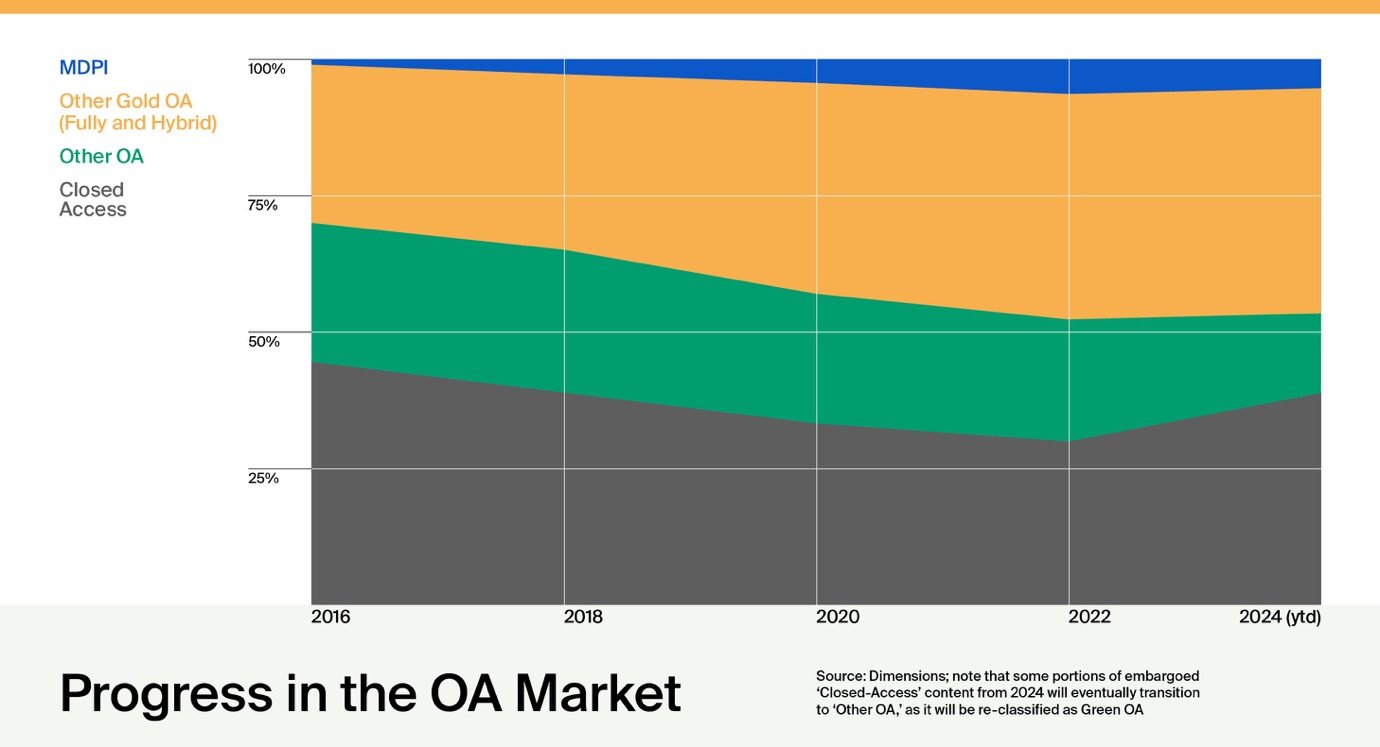
Benefits of Open Access and Open Research
- Accelerated Discoveries: OA speeds up scientific progress by allowing immediate access to findings, enabling researchers to build on each other’s work faster.
- Community-Led Innovation: Open research empowers communities to manage their own platforms, creating collaboration and shared knowledge.
- Increased Visibility: OA broadens the reach of your research, leading to greater recognition, collaboration, and impact.
- Cross-Disciplinary Connections: By removing financial and geographical barriers, OA unites diverse fields, sparking innovation across disciplines.

MDPI Singapore Celebrates Open Access Week
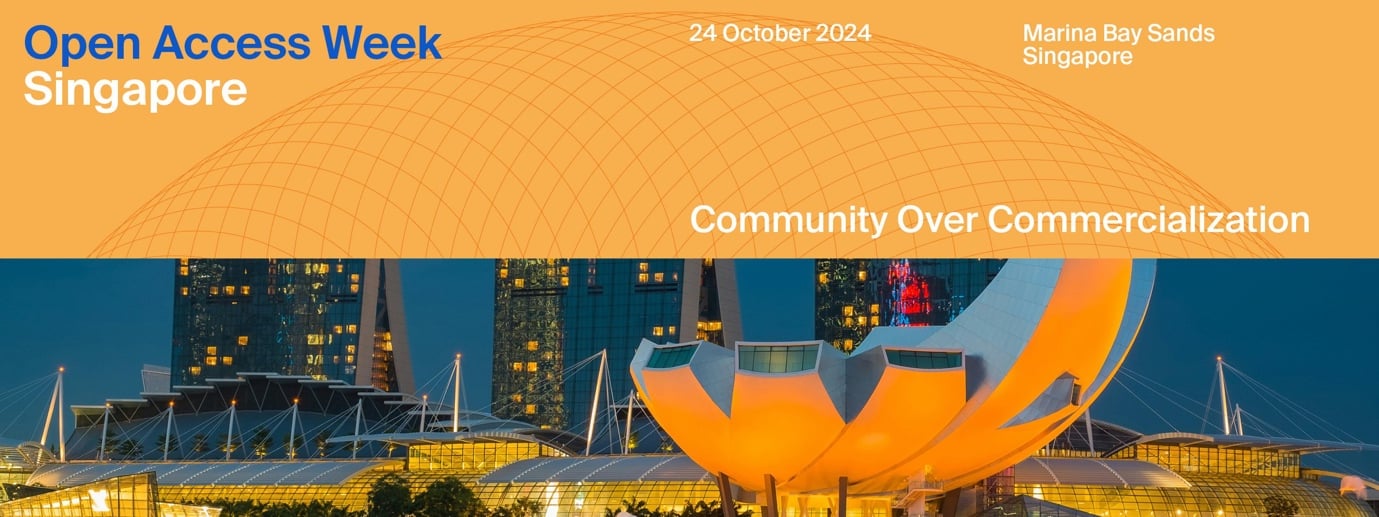
MDPI Singapore also hosted its first-ever OAW event at the Marina Bay Sands Convention Centre, bringing together academics, researchers, and students to discuss the future of open scholarship. Conversations focused on the potential of new publishing models, alternative funding strategies, and the importance of communicating research to wider audiences.
As OA evolves, MDPI remains a committed partner in advancing open science and creating a transparent, inclusive research environment. For a full recap of the week’s highlights and resources, visit our campaign page.

Impactful Research
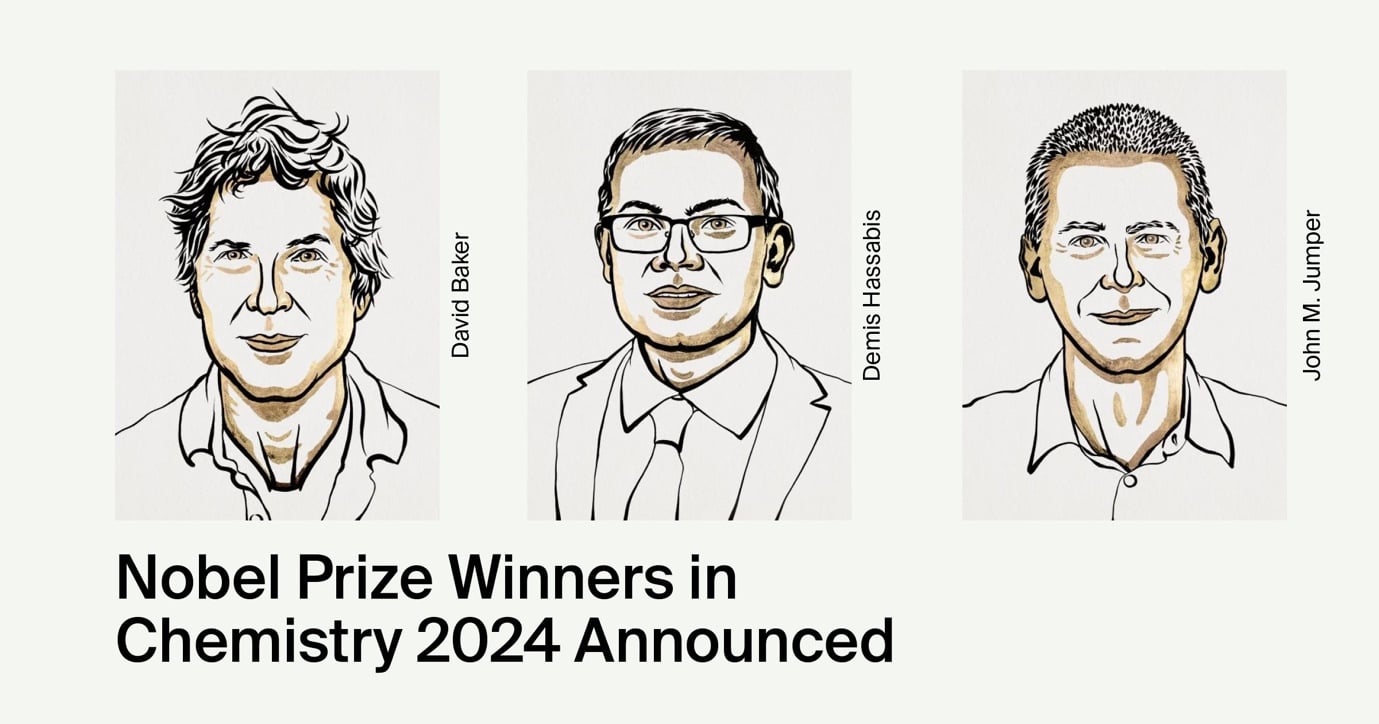
MDPI Connection to Nobel-Winning Protein Research
David Baker, an American biochemist, and Demis Hassabis and John M. Jumper, two scientists from Google DeepMind, have been awarded the 2024 Nobel Prize in Chemistry for their groundbreaking advancements in better understanding the structure of proteins, the molecular engines of life’s processes.
One half of the prize was awarded to Professor David Baker from the University of Washington for his development of revolutionary protein design software enabling the creation of novel proteins for vaccines, nanomaterials, and sensors. Prof. Baker co-authored a 2016 paper in MDPI’s Toxins journal on protein-based therapeutics.
Meanwhile, DeepMind’s Demis Hassabis and John M. Jumper received recognition for AlphaFold, the AI model that predicts protein structures from amino acid sequences, fulfilling a long-held scientific dream.
“We congratulate this year’s Nobel laureates for their groundbreaking contributions to the study of life”
Nobel Prize Laureates Entrust MDPI with Their Research
As at October 2024, 45 Nobel laureates had contributed to more than 115 articles across
35 MDPI journals. The privilege of hosting the research of such contributors, who significantly influence the open access movement, resonates deeply with our editorial teams.
We are proud to list the names of Pierre Agostini, Hiroshi Amano, Werner Arber, Aaron Ciechanover, Robert H. Grubbs, Oliver Hart, Gerard ‘t Hooft, Michael Houghton, Harald zur Hausen, Katalin Karikó, Jean-Marie Lehn, Gérard Mourou, Ferid Murad, Shuji Nakamura, William Nordhaus, Kostya S. Novoselov, Giorgio Parisi, Charles M. Rice, Alvin E. Roth, Donna Strickland, K. Barry Sharpless, George F. Smoot, Anne L’Huillier, Drew Weissman, Kurt Wüthrich, Ada Yonath, Tomas Lindahl, Thomas C. Südhof, Stanley B. Prusiner, Roger Kornberg, Robert F. Engle, Richard J. Roberts, Ōmura Satoshi, Kenneth J. Arrow, John B. Goodenough, Jennifer Doudna, Hamilton Othanel Smith, Eric R. Kandel, Carlo Rubbia, Bernard Feringa, Barry J. Marshall, Anthony J. Leggett, Andrew Victor Schally, and David Baker.
Notable MRNA Published in Cells
On 7 October 2024, the 2024 Nobel Prize in Physiology or Medicine was jointly awarded to Victor Ambros and Gary Ruvkun for the discovery of microRNA and its role in post-transcriptional gene regulation.
MicroRNAs are proving to be fundamentally important for how organisms develop and function. Some interesting papers about microRNA research are published in the MDPI journal Cells. I invite you browse through the notable papers related to microRNA research in Cells.
Inside MDPI
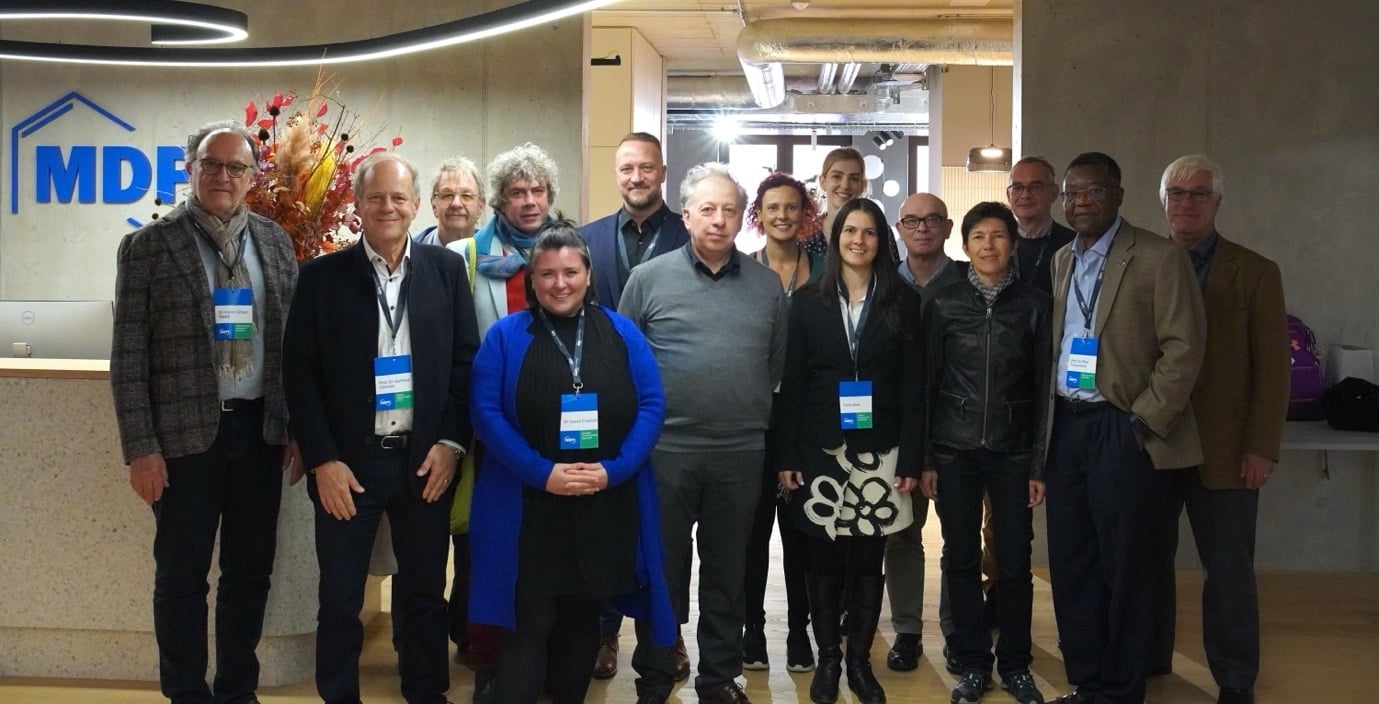
Basel Open Day
On 21 October, we held the Basel Open Day at our headquarters, welcoming a group of journal Editors-in-Chief (EiC) and Editorial Board Members (EBMs) for a full-day workshop. The event featured presentations and discussions on MDPI’s latest editorial updates, data integrity policies, society collaborations, and local market insights.
The following MDPI journals were represented during the visit: Physics, Journal of Personalized Medicine (JPM), Sci, Remote Sensing, Animals, Cells, Buildings, Histories, Sensors, and International Journal of Environmental Research and Public Health (IJERPH).
This was a great opportunity to showcase our new office space while gathering feedback from leading journal stakeholders. To get everyone on the same page, we took 60 minutes for round-table introductions, which helped set a collaborative tone and ground us in MDPI’s mission of disseminating open science.
“This was a great opportunity to gather feedback from leading journal stakeholders”
The general feedback from the day highlighted positive developments around our editorial and ethics policies, as well as areas for improvement, including flexibility regarding reviewer deadlines. There was a genuine appreciation and push for our ongoing efforts to share more about MDPI, including company updates and promoting high-quality research through our blog, announcements, and social media channels, which we have been growing and expanding.
Our Basel Open Day was a positive experience, bringing together key journal stakeholders and gathering insights to guide MDPI’s continued engagement with the academic community. We look forward to hosting future events of this kind and welcoming more scholars to our headquarters in Basel, Switzerland.
Coming Together for Science

ncRNA 2024 Conference in Basel
I am pleased to share that we held Non-coding RNA World 2024: Exploring Mechanisms, Designing Medicines (ICM 2024) in Basel, Switzerland this past 7–9 October.
The three-day event attracted just over 100 attendees, including two Chairs, 10 invited speakers and two keynotes from Prof. Mauro Giacca and Prof. Ling-Ling Chen. Of the presentations on site, there were 35 posters and 44 oral presentations.
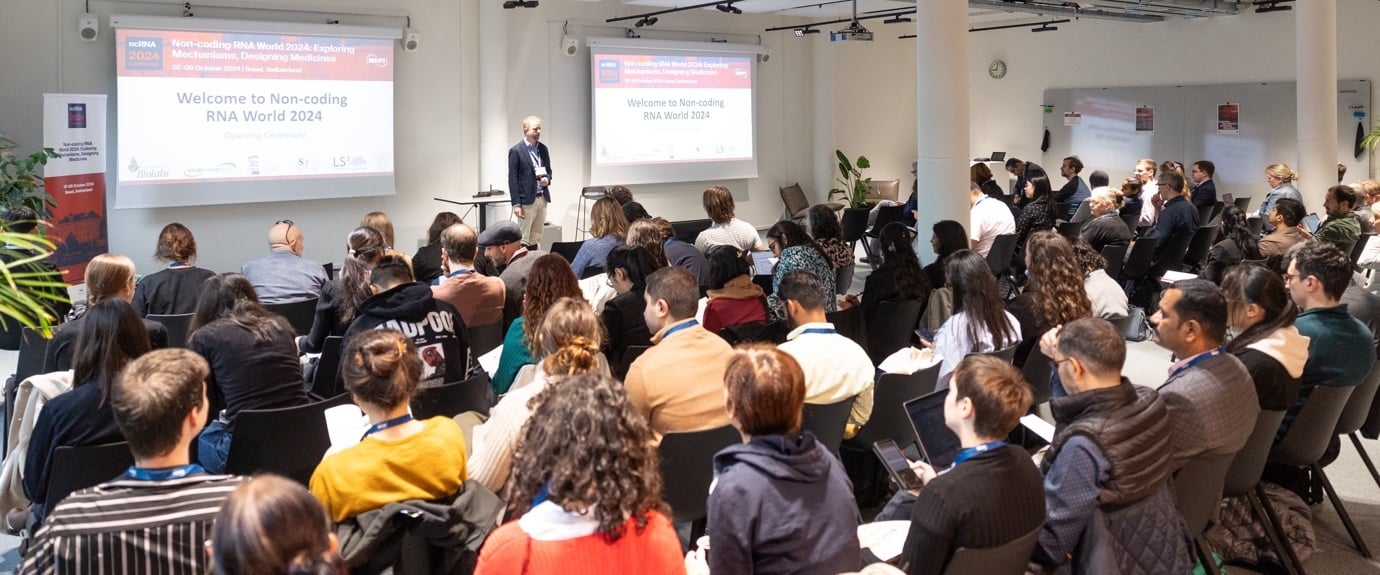
The overall feedback was positive, with people enjoying the intimate event and the unique activities offered, including a guided tour around Basel’s Old Town (a must-see for anyone visiting the city) and a memorable conference dinner.
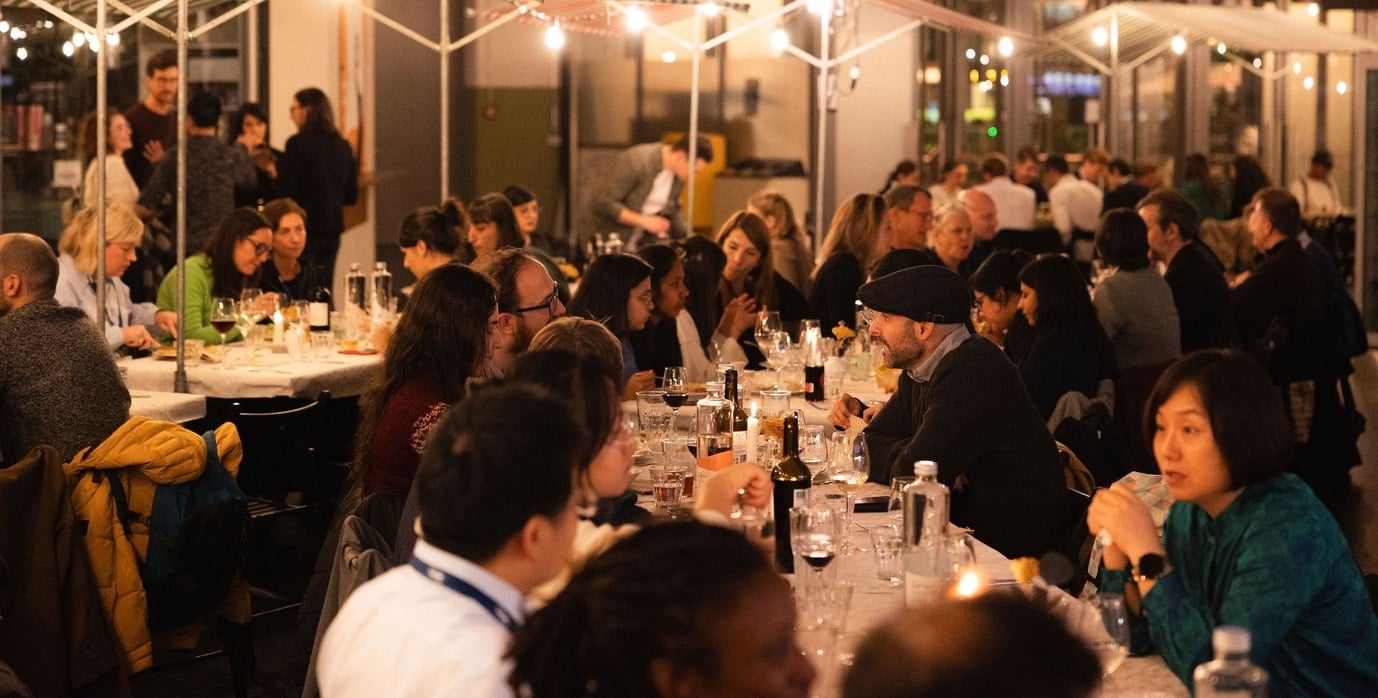
It was cool to see the winners of the 2024 Nobel Prize in Physiology or Medicine announced during the conference days. This was exciting for attendees, as the winners discovered a new class of RNA molecules (miRNAs). As one invited speaker put it, “It's exciting to be among fellows when something that important for the field is announced.”
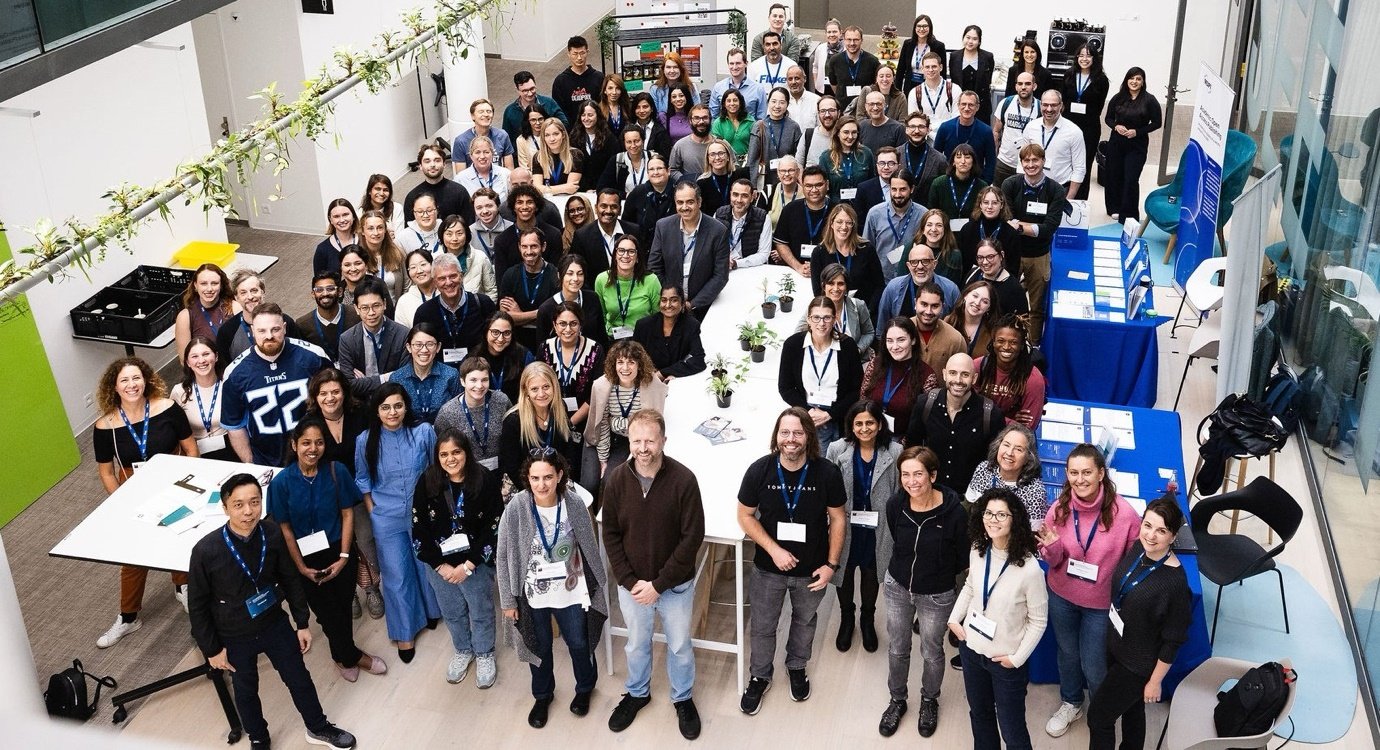
“It's exciting to be among fellows when something that important for the field is announced”
Every attendee receives a conference survey, and I’m always pleased to see a high percentage of ‘Very Satisfied’ responses when asked about ‘treatment from conference personnel’. Kudos to our conference team for meeting our attendees’ needs. These events are a great opportunity for us to reach new audiences, as 92% of the respondents had never been to an MDPI conference, so I am thrilled to see us connecting with a new demographic of your researchers in the RNA field.
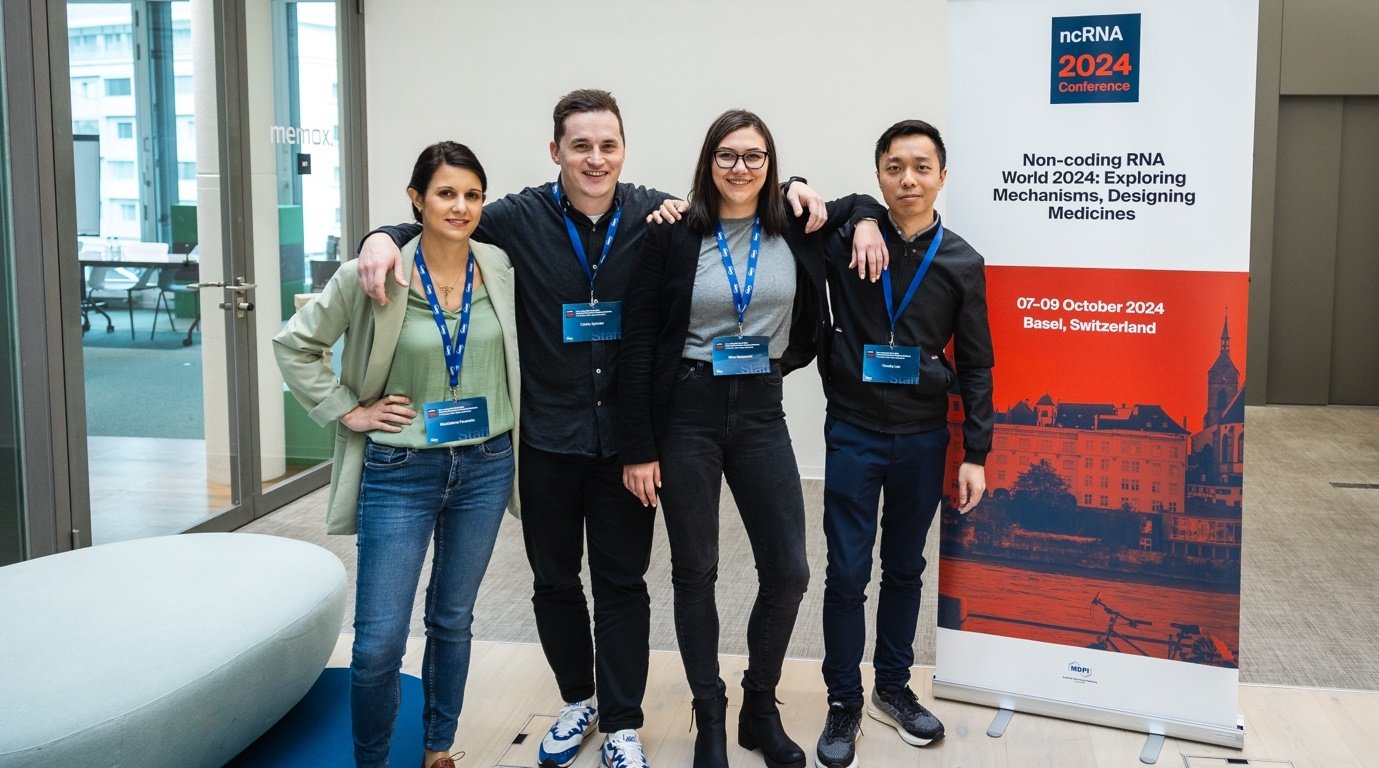
A special thank-you to our partnering societies The Epigenetics Society, The French Society of Genetics, LS2 / USGEB (Union of Swiss Societies for Experimental Biology), and The RNA Biology Group, as well as to our sponsors New England Biolabs and Arraystar for their support of the ncRNA 2024 conference. I am also pleased to report that we presented two awards, including the Best Presentation Award and two Best Poster Award, recognizing the contributions of our participants.
Upcoming In-Person Event
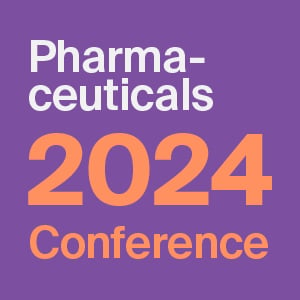
27–29 November 2024
Pharmaceuticals 2024 – Recent Advances in Pharmaceutical Sciences Towards a Healthy Life
Location: Barcelona, Spain
The discovery of new molecules, their properties, and actions to enhance human health and quality of life.
Find more upcoming MDPI events here.
Closing Thoughts
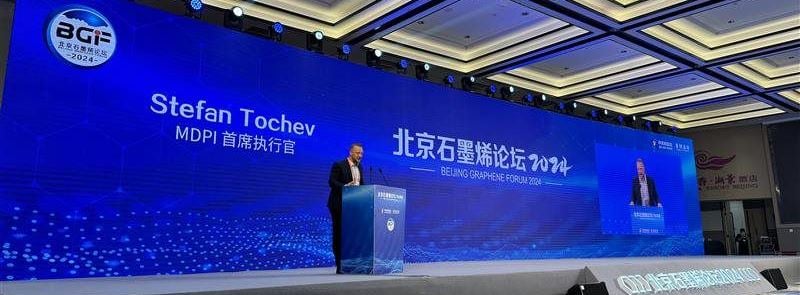
Beijing Graphene Forum 2024
I am pleased to share that we had a successful time at the Beijing Graphene Forum 2024, which drew around 1,000 attendees, including Konstantin Novoselov (2015 Nobel Prize in Physics) and other high-profile scholars in materials science and chemistry. It was a great opportunity to present MDPI on the big stage, with university presidents from institutions such as Peking University also in attendance.
I had the honour of awarding Prof. Zhongfan Liu, Chairman of the Chemical Science Committee, with a medal and presenting certificates to the members of the Chemical Science Committee; this is an important initiative to help expand MDPI’s journals and influence in China. These are highly respected scholars, and we enjoyed connecting with them over lunch as well.
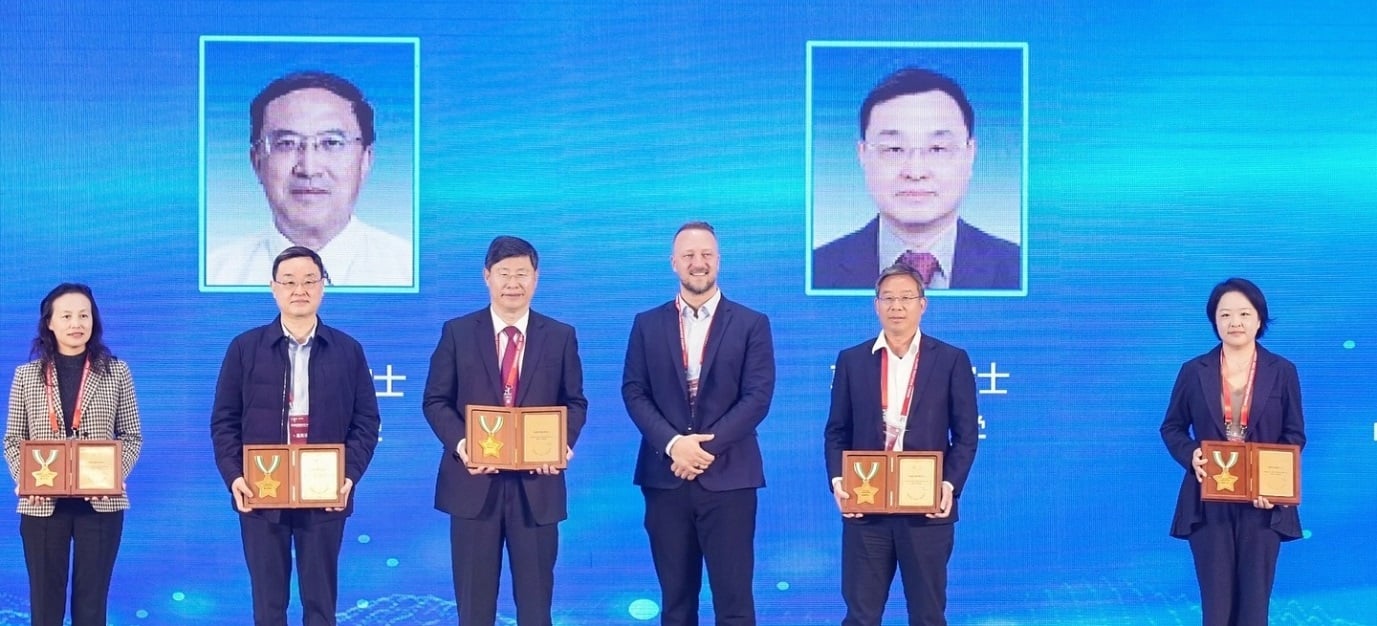
“This is an important initiative to help expand MDPI’s journals and influence in China”
I also had the chance to speak about MDPI and open access, giving a five-minute speech during the opening ceremony and a 20-minute presentation at the close. MDPI hosted a sub-forum where both academic scholars and MDPI members shared insights, and we engaged with attendees at our MDPI booth.
This was a great opportunity to spotlight MDPI as the main publishing partner for the event, and I was proud to represent us on stage. We also met with scholars to discuss topics such as their publishing needs and institutional policies, open access, impact journals, and IOAP.
Chief Executive Officer
MDPI AG
1 November 2024
Catalysts | Article Processing Charge (APC) Adjustment
We are pleased to announce a reduction in our Article Processing Charge (APC) with immediate effect from CHF 2700 to CHF 2200. This reduced APC will apply until 30 June 2025.
We are grateful for the support our journal has received from the catalysts community over recent years. As an open access journal, we are committed to advocating open science. We look forward to receiving your manuscripts and working together to promote development and exchange in the field of catalysts science and technology. We will keep you updated on any future changes. If you have any questions, please feel free to contact us at [email protected].
Catalysts Editorial Office
28 October 2024
Catalysts Webinar | Environmental Catalysis in Air Pollution Control, 1 November 2024

MDPI invites all esteemed experts to join the “Environmental Catalysis” Section’s webinar titled “Environmental Catalysis in Air Pollution Control”. The field of environmental catalysis involves innovative research progress in various catalytic processes aimed at reducing harmful emissions from automobile and industrial sources.
Our expert panel, composed of three distinguished professors with extraordinary experience in air pollution control, will present their latest work on emission control technologies for future zero-carbon fuels like hydrogen and ammonia engines. Whether you are a scientific researcher, industrial engineer, or graduate student, this webinar offers a unique opportunity to explore cutting-edge approaches to building a more environmentally sustainable future.
We look forward to your participation in this discussion.
Webinar: Environmental Catalysis in Air Pollution Control
Date: 1 November 2024
Time: 13:00–14:25 (CST Asia)
More information: https://sciforum.net/event/Catalysts-13
This is a free webinar. After registration, you will receive a confirmation email containing information on how to join the webinar. Registrations with academic institutional email addresses will be prioritized.
Unable to attend? Please register anyway and we will let you know when the recording is available for viewing.
Register for free at the following link:
Program:
|
Speaker/Presentation |
Time in CST (Asia) |
|
Dr. Lei Ma |
13:00–13:05 |
|
Dr. Fudong Liu |
13:05–13:25 |
|
Q&A Session |
13:25–13:30 |
|
Dr. Yue Peng |
13:30–13:50 |
|
Q&A Session |
13:50–13:55 |
|
Prof. Dr. Huazhen Chang |
13:55–14:15 |
|
Q&A Session |
14:15–14:20 |
|
Dr. Lei Ma |
14:20–14:25 |
Relevant Special Issues:
“Featured Papers in “Environmental Catalysis” Section”
Guest Editors: Prof. Dr. Jean-François Lamonier, Prof. Dr. Stanisław Wacławek, Prof. Dr. Piotr Kuśtrowski, Dr. Mohd Rafatullah and Dr. Lei Ma
Deadline for submission: 10 December 2024
“Advances in Catalysis for a Sustainable Future”
Guest Editors: Dr. Wen Ma and Dr. Federico Galli
Deadline for submission: 31 December 2024
“Carbon-Based Catalysts to Address Environmental Challenges”
Guest Editors: Dr. Raquel Pinto Rocha and Prof. Dr. José L. Figueiredo
Deadline for submission: 31 January 2025
“Advanced Catalysis for Energy and Environmental Applications”
Guest Editors: Prof. Dr. Bin Lin, Prof. Dr. Yat Li and Prof. Dr. Manashi Nath
Deadline for submission: 31 January 2025
“Catalysis in Pollution Degradation and Environmental Remediation”
Guest Editors: Dr. Chenyan Hu and Dr. Xinhong Qiu
Deadline for submission: 14 February 2025
“Insight into Catalysis for Air Pollution Control”
Guest Editors: Dr. Xiang Li and Dr. Chizhong Wang
Deadline for submission: 20 March 2025
“Catalytic Removal of Volatile Organic Compounds (VOCs)”
Guest Editors: Dr. Ralitsa Georgieva and Prof. Dr. Anton Naydenov
Deadline for submission: 31 March 2025
“Heterogeneous Catalysis for Environmentally Compatible Reactions and Processes, 2nd Edition”
Guest Editors: Dr. Ileana Daniela Lick, Dr. Paula Osorio-Vargas and Prof. Dr. Mónica L. Casella
Deadline for submission: 31 March 2025
16 October 2024
MDPI's Newly Launched Journals in September 2024
Five new journals covering a diverse range of subjects launched their inaugural issue in September 2024. Like other journals in MDPI’s portfolio, these journals are dedicated to sharing the latest research through open access, reflecting our commitment to making knowledge accessible to all.
We extend our sincere gratitude to the Editorial Board Members for their dedication to the launch and development of our new journals. Each journal will ensure its high-quality output via excellent editorial and rigorous peer-review processes so that the published articles achieve significant impact and broad visibility.
We invite you to explore and learn more about these new journals below.
| Journal | Founding Editor-in-Chief | Journal Topics (Selected) |
| Prof. Dr. Nejat Düzgüneş, University of the Pacific, USA | Editorial | view inaugural issue | biological therapy and stem-cell therapy; drug therapy; chemotherapy; radiation and other nonsurgical therapeutic strategies | view journal scope | submit an article | |
| Prof. Dr. Magda Tsolaki, Greek Federation of Alzheimer’s Disease, Greece; Aristotle University of Thessaloniki, Greece | Editorial | view inaugural issue | surgical/procedural complications; complications; perioperative adverse events; postoperative adverse events | view journal scope | submit an article | |
| Prof. Dr. Steven R. Fassnacht, Colorado State University, USA; Cooperative Institute for Research in the Atmosphere, USA | Editorial | view inaugural issue | ice as a mineral; atmospheric ice; sea ice; freshwater ice; ice sheets; ice caps and ice shelves | view journal scope | submit an article | |
| Dr. Francisco Epelde, Hospital Universitari Parc Tauli, Spain; University Autonoma of Barcelona, Spain | Editorial | view inaugural issue | hospital management; hospital facilities; hospital services; hospital risk management; health law | view journal scope | submit an article | |
| Prof. Dr. Nicola Ferri, University of Padova, Italy | Editorial | view inaugural issue | lipids in cells and whole organisms; lipid structure and function; lipid products and processes; dietary lipids and nutrition | view journal scope | submit an article |
We wish to thank everyone who has supported the development of open access publishing. You are welcome to send an application here or contact the New Journal Committee ([email protected]) if you would like to create more new journals.
15 October 2024
MDPI Webinar | World Food Day Webinar 2024, 16 October 2024

In celebration of World Food Day 2024, MDPI is launching a special webinar to encourage researchers to unite, take action, and showcase how collective knowledge can address the pressing challenges of food security, sustainable agriculture, and resource management.
World Food Day, led by the Food and Agriculture Organization of the United Nations (FAO), aims to foster awareness about the importance of food security and the urgent need to eradicate hunger worldwide. In line with this mission, our upcoming webinar invites researchers and experts to discuss innovative solutions for achieving sustainable agriculture, improving resource management, and tackling food insecurity worldwide.
We are very much looking forward to seeing you at MDPI World Food Day Webinar 2024. Please find below an up-to-date outline of the presenters.
Date: 16 October 2024 at 01.30 p.m. CEST | 7:30 a.m. EDT | 7:30 p.m. CST Asia
Webinar ID: 835 7950 1147
Webinar Secretariat: [email protected]
After registering, you will receive a confirmation email containing information on how to join the webinar. Registrations with academic institutional email addresses will be prioritized.
Unable to attend? Register anyway and we will inform you when the recording is available.
Register now for free!
| Speaker/Presentation | Time in CEST | Time in EDT |
| MDPI Introduction | 1:30 p.m.–1:40 p.m. | 7:30 a.m.–7:40 a.m. |
| Prof. Dr. Giorgia Spigno Valorisation of Food Residues for the Food Industry: Opportunities and Challenges |
1:40 p.m.–2:10 p.m. | 7:40 a.m.–8:10 a.m. |
| Prof. Dr. Ramakrishnan Ramanathan Technological Approaches for Reducing Food Waste |
2:10 p.m.–2:40 p.m. | 8:10 a.m.–8:40 a.m. |
| Q&A Session | 2:40 p.m.–2:55 p.m. | 8:40 a.m.–8:55 a.m. |
| Closing of Webinar | 2:55 p.m.–3:00 p.m. | 8:55 a.m.–9:00 a.m. |
Keynote Speakers:
- Prof. Dr. Giorgia Spigno, Department for Sustainable Food Process, Department for Sustainable Food Process, Università Cattolica del Sacro Cuore, Piacenza, Italy;
- Prof. Dr. Ramakrishnan Ramanathan, Department of Management, College of Business Administration, University of Sharjah, Sharjah, United Arab Emirates.
15 October 2024
Catalysts | Top Cited Papers in 2022–2023 in the Section “Industrial Catalysis”

The “Industrial Catalysis” Section of Catalysts (ISSN: 2073-4344) is mainly devoted to research aimed at the development and optimization of industrial catalytic processes. Electrocatalytic processes will also be considered, in particular with respect to their practical commercial applications. Both already-established industrial processes and processes under development are of interest to this Section. Thus, catalyst engineering studies concerning improving the conversion, selectivity, and productivity of reactants; optimizing stability; limiting deactivation; improving regeneration; and optimizing composition and particle morphology, as well as extrudate production and shape optimization, will be the main objects of the Section. To this end, all experimental research work should be realized in practical industrial reaction conditions or in relevant reference conditions, and it should involve real commercial catalytic materials or catalysts under development with promising properties, acceptable costs, and environmental friendliness.
As said, the development of industrial catalysts is a step forward for the development of industrial catalytic reactors and processes. Thus, molecular, reactor, and process modeling studies, as well as kinetic investigations, will also be welcome. Finally, interest will be devoted to studies concerning the end-of-life of spent catalysts and their reutilization.
As they are open access, you have free and unlimited access to the full text of all the articles published in our journal. We welcome you to read our most highly cited papers published in 2022 and 2023:
1. “Enabling Catalysts for Biodiesel Production via Transesterification”
by Baohua Wang, Bingquan Wang, Sudheesh K. Shukla and Rui Wang
Catalysts 2023, 13(4), 740; https://doi.org/10.3390/catal13040740
Available online: https://www.mdpi.com/2073-4344/13/4/740
2. “A Recent Review of Primary Hydrogen Carriers, Hydrogen Production Methods, and Applications”
by Risheng Li and Hajime Kawanami
Catalysts 2023, 13(3), 562; https://doi.org/10.3390/catal13030562
Available online: https://www.mdpi.com/2073-4344/13/3/562
3. “Effect of Potassium Promoter on the Performance of Nickel-Based Catalysts Supported on MnOx in Steam Reforming of Ethanol”
by Magdalena Greluk, Marek Rotko, Grzegorz Słowik, Sylwia Turczyniak-Surdacka, Gabriela Grzybek, Kinga Góra-Marek and Andrzej Kotarba
Catalysts 2022, 12(6), 600; https://doi.org/10.3390/catal12060600
Available online: https://www.mdpi.com/2073-4344/12/6/600
4. “Structure Sensitivity of Ammonia Synthesis on Cobalt: Effect of the Cobalt Particle Size on the Activity of Promoted Cobalt Catalysts Supported on Carbon”
by Magdalena Zybert, Aleksandra Tarka, Wojciech Patkowski, Hubert Ronduda, Bogusław Mierzwa, Leszek Kępiński and Wioletta Raróg-Pilecka
Catalysts 2022, 12(10), 1285; https://doi.org/10.3390/catal12101285
Available online: https://www.mdpi.com/2073-4344/12/10/1285
5. “A Review of Coal and Biomass Hydrogasification: Process Layouts, Hydrogasifiers, and Catalysts”
by Emilia Saraceno, Concetta Ruocco and Vincenzo Palma
Catalysts 2023, 13(2), 417; https://doi.org/10.3390/catal13020417
Available online: https://www.mdpi.com/2073-4344/13/2/417
If you are an active researcher in the field and are passionate about participating in cutting-edge research publications, please do not hesitate to contact the Section Managing Editor, Ms. Asteria Wang ([email protected]).
15 October 2024
Catalysts | Top Cited Papers in 2022–2023 in the Section “Environmental Catalysis”

The Section “Environmental Catalysis” of Catalysts (ISSN: 2073-4344) is dedicated to publishing original and high-quality research communications, articles, and review articles on the catalytic elimination of gas-, liquid-, and solid-phase pollutants. As they are in an open access format, you have free and unlimited access to the full text of all the articles published in our journal. We welcome you to read our top cited papers published in 2022 and 2023:
1. “Dielectric Barrier Discharge Plasma-Assisted Catalytic CO2 Hydrogenation: Synergy of Catalyst and Plasma”
by Xingyuan Gao, Jinglong Liang, Liqing Wu, Lixia Wu and Sibudjing Kawi
Catalysts 2022, 12(1), 66; https://doi.org/10.3390/catal12010066
Available online: https://www.mdpi.com/2073-4344/12/1/66
2. “Recent Combinations of Electrospinning with Photocatalytic Technology for Treating Polluted Water”
by He Lv, Yanan Liu, Yubin Bai, Hongpu Shi, Wen Zhou, Yaoning Chen, Yang Liu and Deng-Guang Yu
Catalysts 2023, 13(4), 758; https://doi.org/10.3390/catal13040758
Available online: https://www.mdpi.com/2073-4344/13/4/758
3. “Research Progress and Reaction Mechanism of CO2 Methanation over Ni-Based Catalysts at Low Temperature: A Review”
by Li Li, Wenqing Zeng, Mouxiao Song, Xueshuang Wu, Guiying Li and Changwei Hu
Catalysts 2022, 12(2), 244; https://doi.org/10.3390/catal12020244
Available online: https://www.mdpi.com/2073-4344/12/2/244
4. “Heterogeneous Activation of Persulfate by LaMO3 (M=Co, Fe, Cu, Mn, Ni) Perovskite Catalysts for the Degradation of Organic Compounds”
by Donatos Manos, Foteini Papadopoulou, Antigoni Margellou, Dimitrios Petrakis and Ioannis Konstantinou
Catalysts 2022, 12(2), 187; https://doi.org/10.3390/catal12020187
Available online: https://www.mdpi.com/2073-4344/12/2/187
5. “Photocatalytic CO2 Reduction to CH4 and Dye Degradation Using Bismuth Oxychloride/Bismuth Oxyiodide/Graphitic Carbon Nitride (BiOmCln/BiOpIq/g-C3N4) Nanocomposite with Enhanced Visible-Light Photocatalytic Activity”
by Yong-Ming Dai, Wu-Tsan Wu, Yu-Yun Lin, Hsiao-Li Wu, Szu-Han Chen, Jih-Mirn Jehng, Jia-Hao Lin, Fu-Yu Liu and Chiing-Chang Chen
Catalysts 2023, 13(3), 522; https://doi.org/10.3390/catal13030522
Available online: https://www.mdpi.com/2073-4344/13/3/522
6. “Heterogeneous Metal-Activated Persulfate and Electrochemically Activated Persulfate: A Review”
by Junjing Li, Yiqi Liang, Pengliang Jin, Bin Zhao, Zhaohui Zhang, Xiaojia He, Zilin Tan, Liang Wang and Xiuwen Cheng
Catalysts 2022, 12(9), 1024; https://doi.org/10.3390/catal12091024
Available online: https://www.mdpi.com/2073-4344/12/9/1024
7. “Surface Modification of Biochar for Dye Removal from Wastewater”
by Lalit Goswami, Anamika Kushwaha, Saroj Raj Kafle and Beom-Soo Kim
Catalysts 2022, 12(1), 66; https://doi.org/10.3390/catal12010066
Available online: https://www.mdpi.com/2073-4344/12/8/817
8. “Recent Developments in Advanced Oxidation Processes for Organics-Polluted Soil Reclamation”
by Crina Calenciuc, Antía Fdez-Sanromán, Gabriela Lama, Sivasankar Annamalai, Angeles Sanromán and Marta Pazos
Catalysts 2022, 12(1), 64; https://doi.org/10.3390/catal12010064
Available online: https://www.mdpi.com/2073-4344/12/1/64
9. “Catalytic Hydrogenation of CO2 to Methanol: A Review”
by Menghao Ren, Yanmin Zhang, Xuan Wang and Hengshan Qiu
Catalysts 2022, 12(4), 403; https://doi.org/10.3390/catal12040403
Available online: https://www.mdpi.com/2073-4344/12/4/403
10. “Noble-Metal-Based Catalytic Oxidation Technology Trends for Volatile Organic Compound (VOC) Removal”
by Hyo-Sik Kim, Hyun-Ji Kim, Ji-Hyeon Kim, Jin-Ho Kim, Suk-Hwan Kang, Jae-Hong Ryu, No-Kuk Park, Dae-Sik Yun and Jong-Wook Bae
Catalysts 2022, 12(1), 63; https://doi.org/10.3390/catal12010063
Available online: https://www.mdpi.com/2073-4344/12/1/63
If you are an active researcher in the field and are passionate about contributing cutting-edge research publications, please do not hesitate to contact our Section Managing Editor, Ms. Asteria Wang ([email protected]).
4 October 2024
MDPI INSIGHTS: The CEO's Letter #16 - UNGA79 Science Summit, OASPA, Peer Review Week

Welcome to the MDPI Insights: The CEO's Letter.
In these monthly letters, I will showcase two key aspects of our work at MDPI: our commitment to empowering researchers and our determination to facilitating open scientific exchange.
Opening Thoughts

MDPI Joins the Science Summit at UNGA79 (23–27 September 2024, New York)
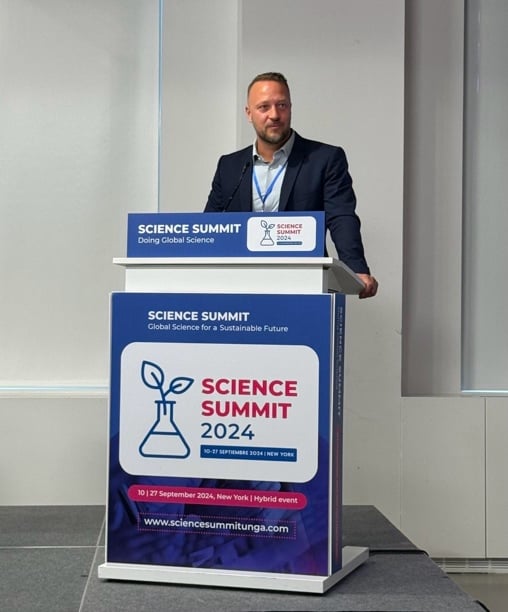
On Friday 27 September, I had the privilege of giving the opening talk at the “Youth at the Science Summit” panel during the Science Summit conference, held in New York at the 79th session of the United Nations General Assembly (UNGA). Together, we discussed the future of science, publishing, innovation, and sustainable development.
It was a great opportunity to learn from our young leaders, whose voices must be included in the conversation as science shapes the future of artificial intelligence, climate mitigation, healthcare, technology, and more. This was also a powerful reminder of how essential global collaboration is in solving the major challenges we face. I left inspired by the dedication of these young researchers to making the world a better place!
Today’s youth are not just the leaders of tomorrow – they are already leading the change today.
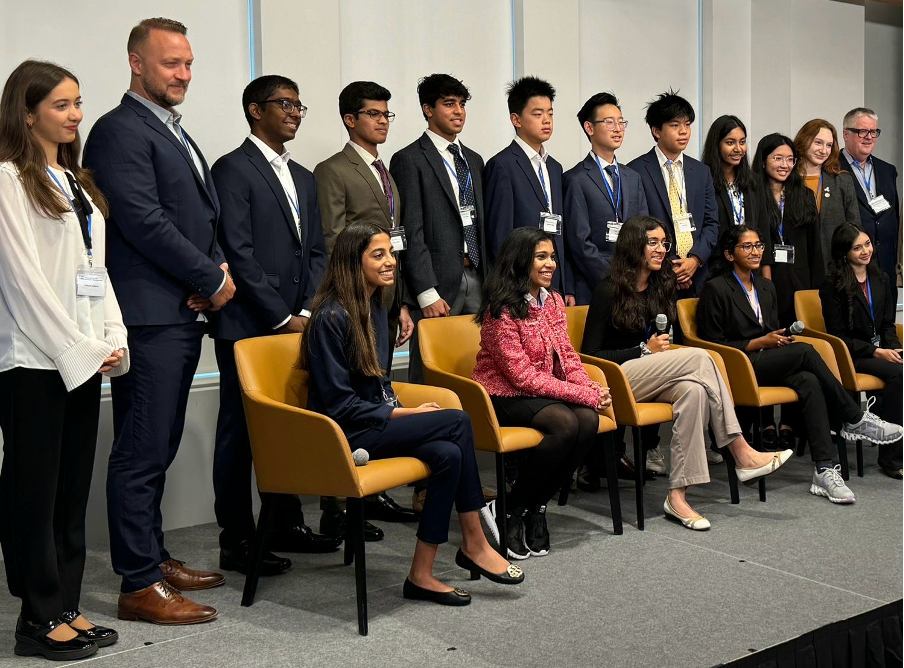
Stefan Tochev (second from left) at the UNGA Science Summit 2024: “A great opportunity to learn from our young leaders.”
MDPI Supports the Future Generation of Scientists
This aligns with MDPI’s mission to support the next generation of scientists and early-career researchers by recognizing their achievements through our various MDPI awards, including the Young Investigator Awards, Best PhD Thesis Awards, Travel Awards, and more.
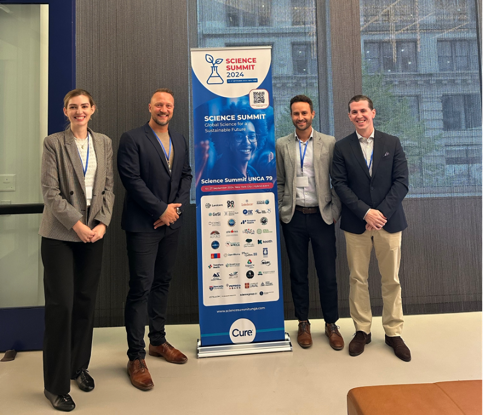
Our presence at this global event showed our commitment to advancing Open Science as a key driver for sustainable development. As a leading Open Access (OA) publisher, MDPI’s role at the summit was to emphasize the critical importance of democratizing scientific knowledge, making it accessible to all, and promoting global collaboration.
Through OA publishing, we aim to address pressing global challenges such as climate change, public health, and inequality, in line with the United Nations Sustainable Development Goals (SDGs).
“We aim to address pressing global challenges”
MDPI and the SDGs
In 2020, the SDG Publishers Compact was launched to accelerate implementation of the SDGs by promoting content that informs, develops, and inspires action. MDPI joined this initiative in 2021 and subsequently launched the MDPI SDG Hub in 2022, offering free access to recent research within the scope of each of the 17 SDGs.
During the summit, we highlighted the connection between Open Science and the SDG Publishers Compact, supporting the core objective to “Leave No One Behind” (LNOB). The transformative promise of the SDGs relies heavily on the Open Access model, which serves as a fundamental enabler of Open Science. We advocate for the wider adoption of Open Science practices in order to achieve the SDGs by 2030.
Impactful Research
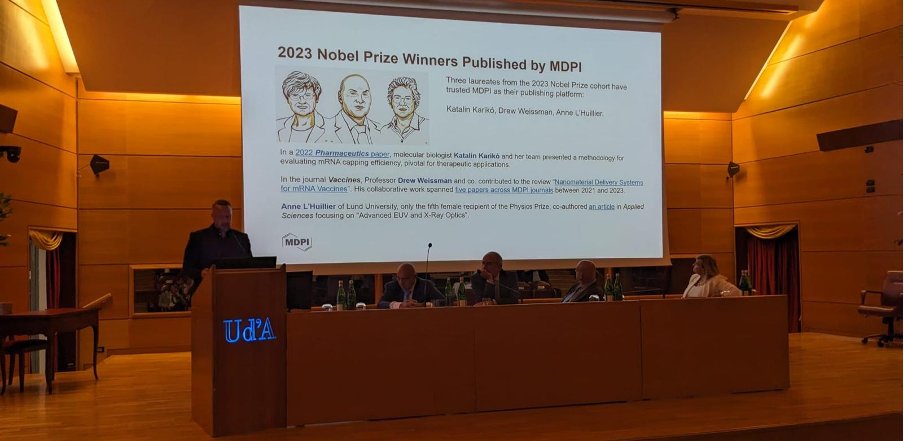
Presenting at the 1st International Conference of Environmental Medicine
In September, MDPI and our journals IJERPH and Diseases sponsored and participated in the 1st International Conference of Environmental Medicine: Environmental Threats to Human Health: From Genetics to Epigenetics, held in Chieti, Italy.
The conference was organized in collaboration with various societies, including the Italian Society of Environmental Medicine (SIMA), one of more than 160 societies partnering MDPI journals.
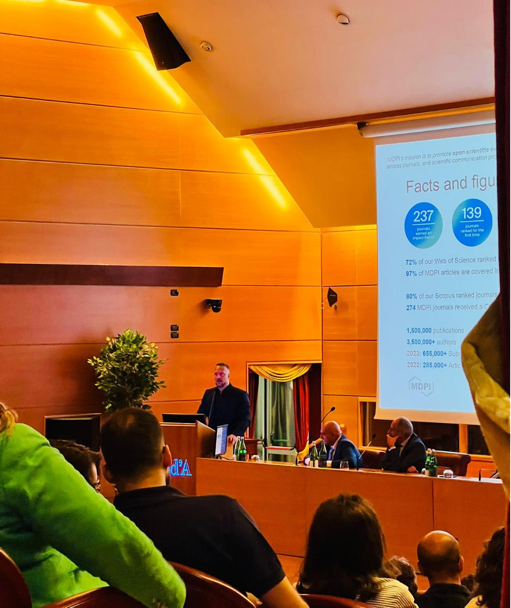
The conference brought together influential figures from the Italian scholarly community, such as Antonio Felice Uricchio (President of the National Agency for University Research Assessment [ANVUR]), Alessandro Miani (President of SIMA), and Liborio Stuppia (Director of ‘Gabriele d’Annunzio’ University of Chieti-Pescara), among others.
MDPI was the sole publishing sponsor of the conference, at which I had the opportunity to present on behalf of the company. I provided an overview of MDPI, covering key facts and figures, the peer-review process, our strong collaboration with the Italian market, and insights into Nobel Prize winners who have published with MDPI, ahead of Sir Richard Roberts’ Nobel lecture.
“As at September 2024, 44 Nobel laureates have contributed to over 115 articles across 35 MDPI journals”
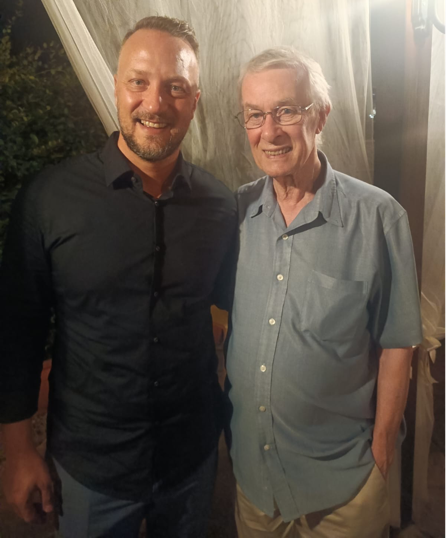
The keynote speaker at the event was Sir Richard Roberts, Nobel Laureate and 1993 Nobel Prize winner in Medicine, recognized for his discovery of split genes.
Nobel Laureates’ Contributions to MDPI
As at September 2024, 44 Nobel laureates have contributed to over 115 articles across 35 MDPI journals. I’ll share more details on this in the October newsletter.
Hosting such prominent figures in their respective fields, who play a significant role in advancing the OA movement, of which we are leaders in, resonates deeply with our editorial teams.
Sponsoring and supporting academic conferences is something we do on a large scale, and it continues to grow. Attending and speaking about MDPI shows our commitment by taking the time to connect with the scholarly community in person.
MDPI’s Presence in Italy
Italy ranks third globally in total MDPI publications, with nearly 130,000 contributions. We collaborate with about 12,000 Editorial Board Members in Italy, over 6,100 of whom have an H-index of more than 25.
We have 83 Editors-in-Chief and 209 Section Editors-in-Chief from Italy. We also support 20 Italian universities through our Institutional Open Access Program (IOAP) agreements with major institutions such as Sapienza University of Rome, the University of Milan, and the University of Pisa, among others.
Inside MDPI

Celebrating Peer Review Week, 23–27 September 2024
As we conclude another productive month at MDPI, I am pleased to highlight our participation in this year’s Peer Review Week (PRW), which took place from 23–27 September 2024. This global, community-driven celebration underscores the vital importance of peer review in maintaining the integrity and reliability of academic work. PRW provide a platform for institutions, publishers, and scholars to come together and reflect on the processes that uphold the quality of scholarly communication.
“We remain committed to enhancing the peer review process”
The theme for PRW 2024 was ‘Innovation and Technology in Peer Review.’ At MDPI, we were proud to contribute through various online and in-person events, including webinars from Europe, Asia-Pacific, and a roundtable discussion on innovation and technology in peer review. These events offer an opportunity to explore new tools and technologies that are shaping the future of peer review, particularly the integration of AI. As a company, we remain committed to enhancing the peer review process with innovative solutions while preserving the essential human expertise that makes it effective.
Peer Review Innovation and Technology at MDPI
Our efforts to improve peer review extend beyond the activities of this week. We also released a blog article discussing New Tools for Advancing Research Integrity and Peer Review, where we highlight two tools that MDPI has developed to support research integrity: Eureka – Reviewer Recommender and Online Proofreader. We are continually refining SuSy, our in-house submission system, to provide a seamless experience for authors and reviewers alike.
Listening to MDPI’s Authors and Reviewers
We highly value the time of our reviewers, and so do the authors who contribute to our journals. Our editorial process is bolstered by a network of dedicated reviewers, a team of over 6,000 diligent, well-trained staff members, and an in-house article submission platform designed to ensure efficient processes.
We make it a point to continually improve the experiences of both our authors and our reviewers throughout the entire editorial process, from submission to publication. This is why we regularly ask for feedback by conducting surveys. Here is what some of our respondents recently had to say about working with MDPI:
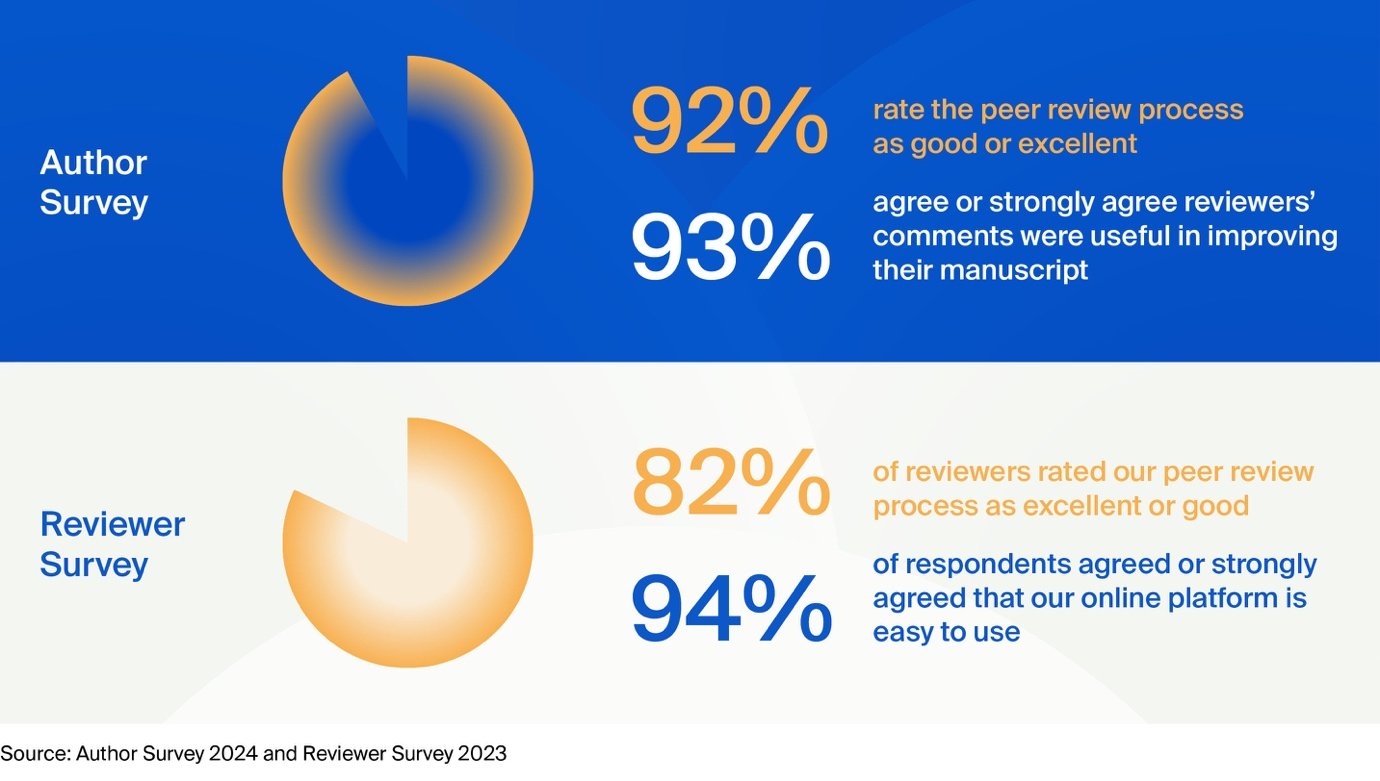
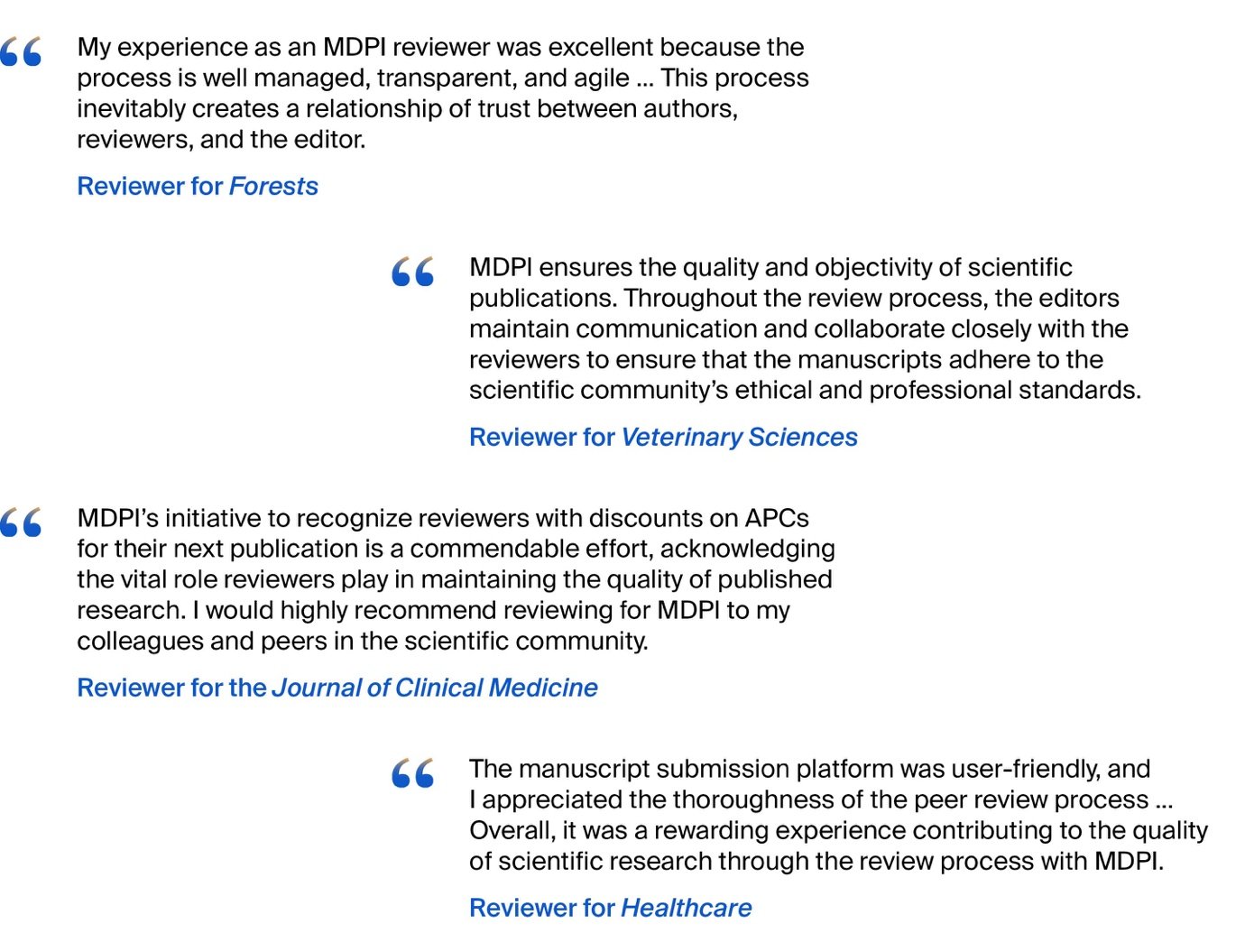
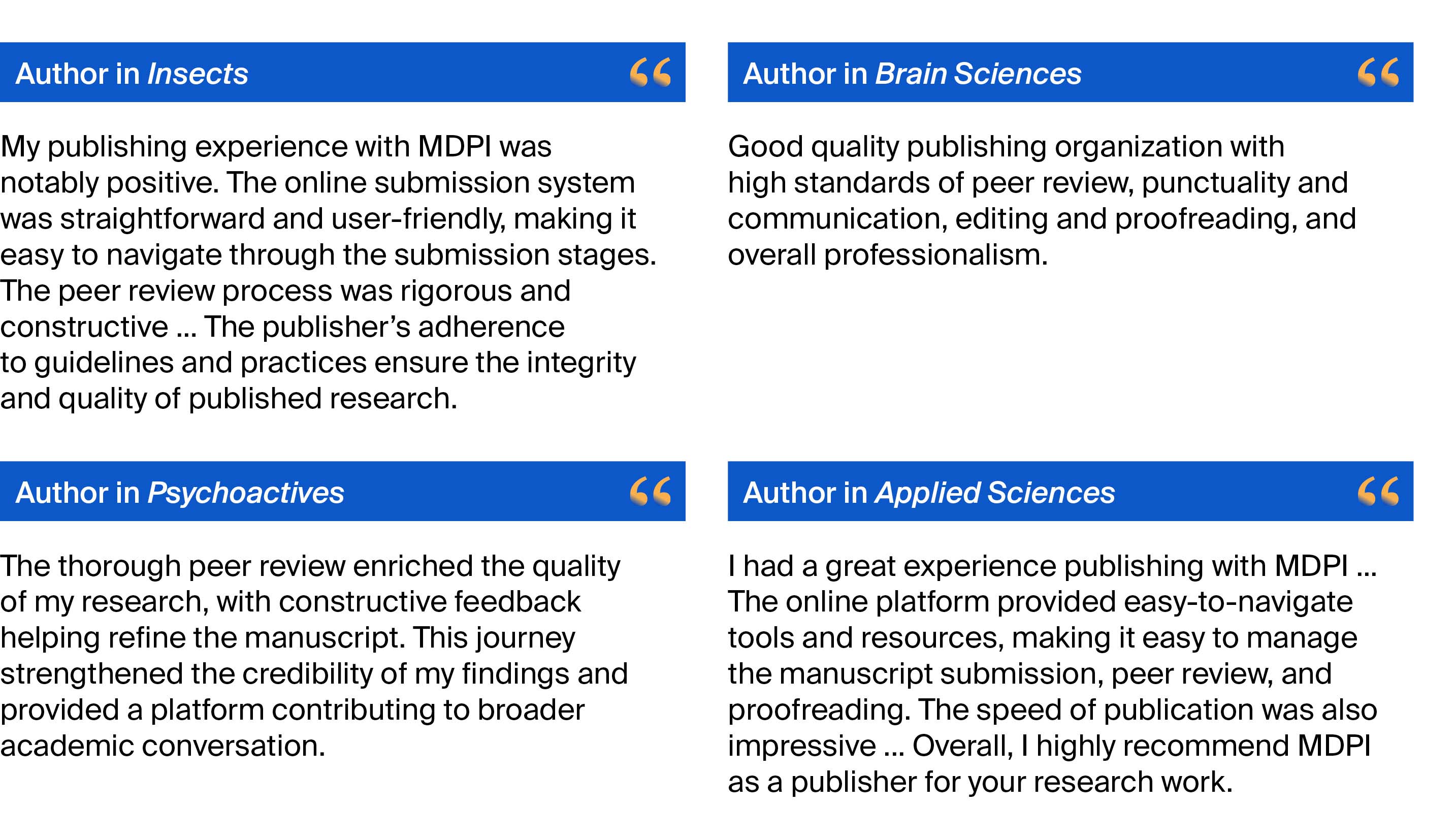
Coming Together for Science

ICM 2024 – Advances in Material Innovation
I am pleased to share that we held The 5th International Conference on Materials: Advances in Material Innovation (ICM 2024) in Basel, Switzerland this past 25–27 September.
This intimate event brought together leading scientists, researchers, and industry experts to exchange insights on recent advancements in materials characterization, processing, and manufacturing. Key focus areas included nanotechnology in material sciences and engineering, optical, electrical, and magnetic materials, soft, biological, and biomaterials, fibres, membranes, thin films, sensing materials, as well as materials and devices for energy and solar fuels. In addition, discussions featured the integration of AI and machine learning in materials research.
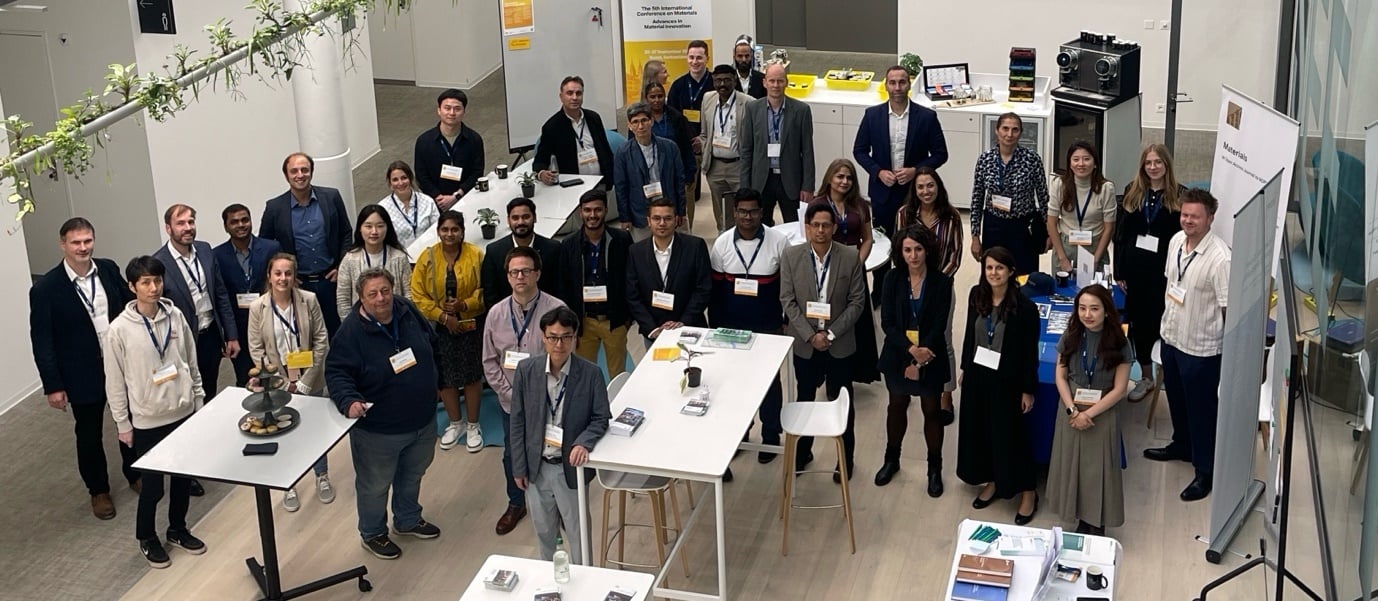
We received 90 abstract submissions. Over the course of the three-day event, 18 posters were displayed, and 34 talks were delivered, including three plenary speeches, seven invited talks, and 24 selected oral presentations.
A special thank-you to our partnering societies The Polish Membrane Society and The North American Thermal Analysis Society, as well as our sponsor, Nanomegas, for their support of the ICM conference. I am also pleased to share that we presented three awards, including the Best Presentation Award and two Best Poster Awards, recognizing the outstanding contributions of our participants.
Upcoming In-Person Event
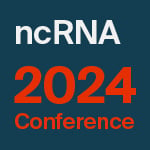
7–9 October 2024
Non-coding RNA World 2024: Exploring Mechanisms, Designing Medicines
Location: Basel, Switzerland
ncRNA 2024 will explore the latest advances in the field, covering topics from basic biology to medical and technological applications.
Find more upcoming MDPI events here.
Closing Thoughts
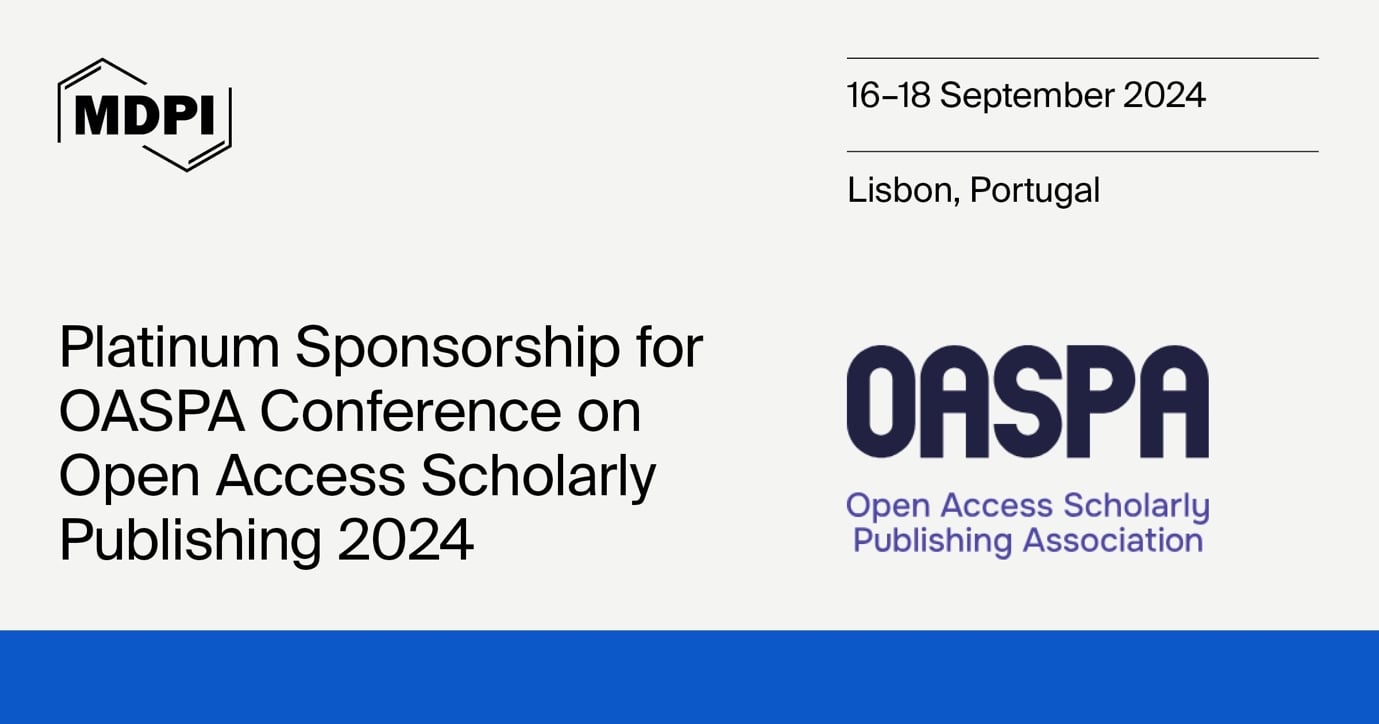
Reflections from OASPA 2024 Conference in Lisbon (16–18 September)
Amidst my September travels, I also had pleasure of attending the OASPA 2024 Conference in Lisbon from 16–18 September. It’s the first in-person Open Access Scholarly Publishing Association (OASPA) event in five years, and being in the sunny city of Lisbon made it even better! MDPI has long been a member of OASPA, and attending this conference gave us an opportunity to connect with other key members of the organization to see the latest developments in the OA movement.
“I believe that publishers have a lot to offer in terms of data and insights”
Main Themes from OASPA 2024
The main themes covered were equity and inclusivity, diamond OA, AI and openness, OA books, research integrity, and how OA can address broader societal challenges such as climate change. While it was great to see the latest developments in these areas, it was also clear that certain voices were missing, particularly those of major publishers. Although it’s not easy to incorporate every perspective, I believe that publishers, including MDPI, have a lot to offer in terms of data and insights. During the membership meeting, a few of us raised the point that large-scale publisher input could add value to these discussions.
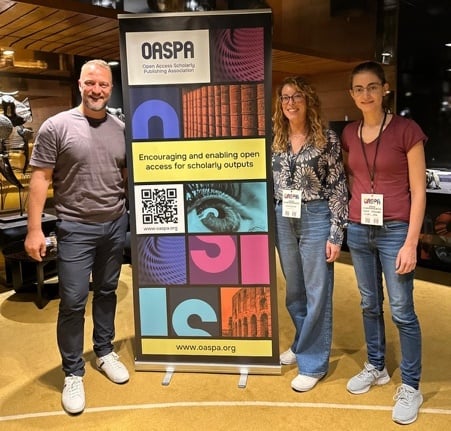
It’s important to participate in industry conferences such as OASPA in order to be part of the discussions and remain at the forefront of the OA movement.
It’s an opportunity to build meaningful relationships with organizations that share our commitment to OA.
While sponsorship is one way to show our support, it’s clear that being part of the conversation through participating in the OASPA groups and committee is what really makes a difference.
It took the last 20 years for more than 50% of the world's research to be published via open access. This provides a sobering reminder that flipping the remaining 50% will be a big challenge.
An important takeaway for me was that there is no "one-size-fits-all" solution for OA challenges: different regions and different stakeholders need different forms of support, whether it is infrastructure, funding, education, or policy, for example. I also enjoyed Rebecca Ross' presentation on how OA can drive action on climate. A few panellists shared the need for transparency in the peer-review process, advocating for open review reports, which is something we have been offering since 2014.
Speaking of openness, we are excited to celebrate Open Access Week 2024 with the scholarly community from 21–27 October. I look forward to sharing a recap of our activities in the next newsletter.
Chief Executive Officer
MDPI AG
29 September 2024
MDPI New Journal Proposal—Invitation to Shape the Future of Open Science Together

As a leader in open access publishing, MDPI is eager to explore new collaboration opportunities, including the launch of new journals and the transfer of existing ones. At present, MDPI publishes over 400 journals, more than 160 of which have established partnerships with academic organizations. Additionally, we publish 19 association journals.
In order to enhance exchange and cooperation with scientific researchers and share the results of open science, MDPI invites experts and scholars from various fields to submit proposals for new journal collaboration opportunities. If your proposal is approved, you could take on the role of Editor-in-Chief, Deputy Editor-in-Chief, or Editorial Board Member of the journal. This position allows you to manage the manuscript review process alongside our editorial department, participate in calls for papers, strengthen your network with scholars in the field, expand scientific research cooperation, enhance your personal and academic influence internationally, and play a leading role in academia.
Once the new journal is online, MDPI will provide a variety of promotional channels to market the journal internationally.
MDPI will offer various promotional channels to enhance its visibility and promote it internationally.
How can you determine the theme of a new journal?
- Assess research hotspots/academic frontiers;
- Assess pioneers in the field/key research directions of universities;
- Determine whether MDPI has already established a journal in the field.
You can browse MDPI’s existing journals at the following link: https://www.mdpi.com/about/journals.
Advantages of collaborating with MDPI:
- MDPI is a global leader in open-access publishing with extensive academic resources.
- MDPI offers a professional publishing team that provides comprehensive support throughout the publishing process.
- MDPI’s diverse promotional platforms and channels help journals quickly increase their international visibility and influence.
We invite you to submit new journal proposal here, and contribute to academic development! In addition, if your institution (university, institute, college, national key laboratory, society, etc.) intends to establish a journal, you can also submit a draft to MDPI on its behalf.
27 September 2024
MDPI’s 2023 Travel Awards—Winners Announced

MDPI journals frequently grant travel awards to empower junior researchers to showcase their latest research at academic conferences, thereby amplifying their impact within their research fields.
We extend our heartfelt congratulations to the 103 recipients of MDPI's 2023 Travel Awards from different countries and territories for their exceptional presentations. These outstanding individuals were selected by the journal editors based on the strength of their research proposals and the anticipated impact of their presentations at academic conferences. We commend their exceptional contributions and wish them continued success in their academic endeavors.
MDPI will continue to provide support and recognition to the academic community. To learn more about the list of awardees, please visit the following pages:
- Biology and Life Sciences;
- Chemistry and Materials Sciences;
- Engineering;
- Environmental and Earth Sciences;
- Medicine and Pharmacology;
- Public Health and Healthcare;
- Others.
About MDPI Awards:
To reward the academic community, especially young researchers, and enhance communication among scientists, MDPI journals regularly offer various awards to researchers in specific fields. These awards, serving as a source of inspiration and recognition, help raise the influence of talented individuals who have been credited with outstanding achievements and are making a significant contribution to the advancement of their fields.
To explore more MDPI awards, please click here.
11 September 2024
MDPI’s 2023 Best PhD Thesis Awards—Winners Announced

MDPI’s Best PhD Thesis Awards are granted to promising young scholars whose PhD theses are deemed exceptional within their respective research fields. These awards aim to encourage young scholars to continue their outstanding accomplishments and further contribute to their field.
We extend our heartfelt congratulations to the 54 winners of the 2023 Best PhD Thesis Awards and wish them success with their future research endeavors.
MDPI will continue to provide support and recognition to the academic community. To learn more about all the awardees and their research projects in your field of study, please visit the following pages:
About MDPI Awards:
To reward the academic community, especially young researchers, and enhance communication among scientists, MDPI journals regularly offer various awards to researchers in specific fields. These awards, serving as a source of inspiration and recognition, help raise the influence of talented individuals who have been credited with outstanding achievements and are making a significant contribution to the advancement of their fields.
To explore more MDPI awards, please click here.
3 September 2024
MDPI INSIGHTS: The CEO's Letter #15 - CHORUS, Best Paper Award, August Events

Welcome to the MDPI Insights: The CEO's Letter.
In these monthly letters, I will showcase two key aspects of our work at MDPI: our commitment to empowering researchers and our determination to facilitating open scientific exchange.
Opening Thoughts
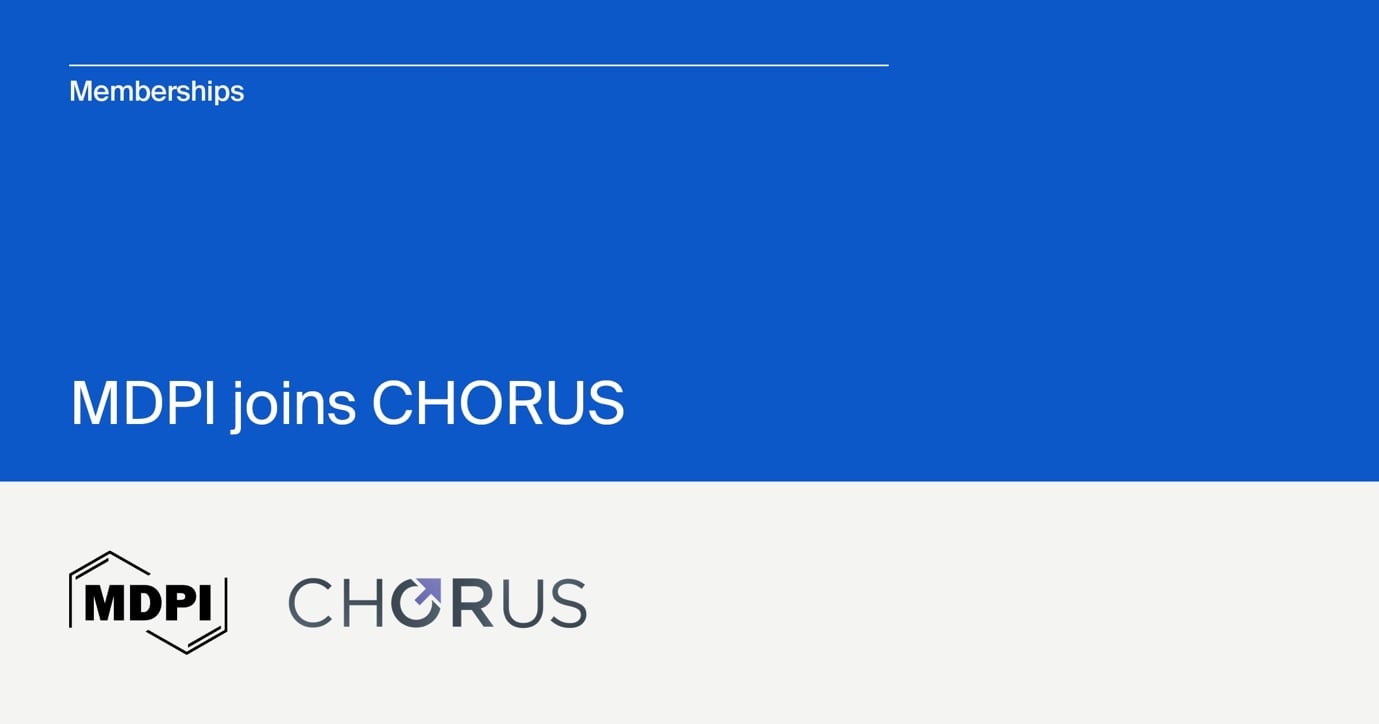
I am pleased to share that MDPI is now an Affiliate Member of CHORUS, a not-for-profit organization dedicated to ensuring public access to articles reporting on U.S. government-funded research. This partnership highlights our long-standing commitment to advancing Open Access (OA) publishing and meeting funders’ open research requirements.
Read the full announcement here.
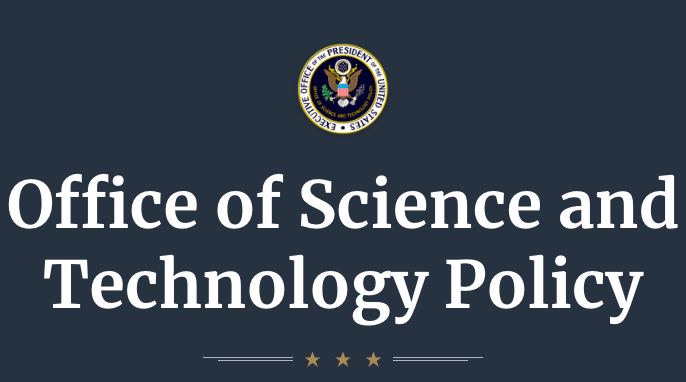
With the White House Office of Science and Technology Policy (OSTP) 2022 memorandum calling for immediate public access to all federally funded research by 2026, this partnership positions MDPI to further support academic institutions in adhering to national mandates while providing authors with fully compliant (CC-BY) OA journals.
The CHORUS platform went live in July 2014 and includes NASA, the U.S. Department of Energy, the U.S. Department of Defense, the U.S. Geological Survey, and the National Science Foundation.
“This partnership positions MDPI to further support academic institutions in adhering to national mandates”
Joining CHORUS perfectly aligns our mission as the leading OA publisher, which is to drive transparency and innovation in scholarly publishing, with that of CHORUS itself, which is to advance Open Access research. It will also support MDPI publications from organizations such as NASA, with 1,200 research papers published by NASA-affiliated authors as at 31 August 2024.
Impactful Research
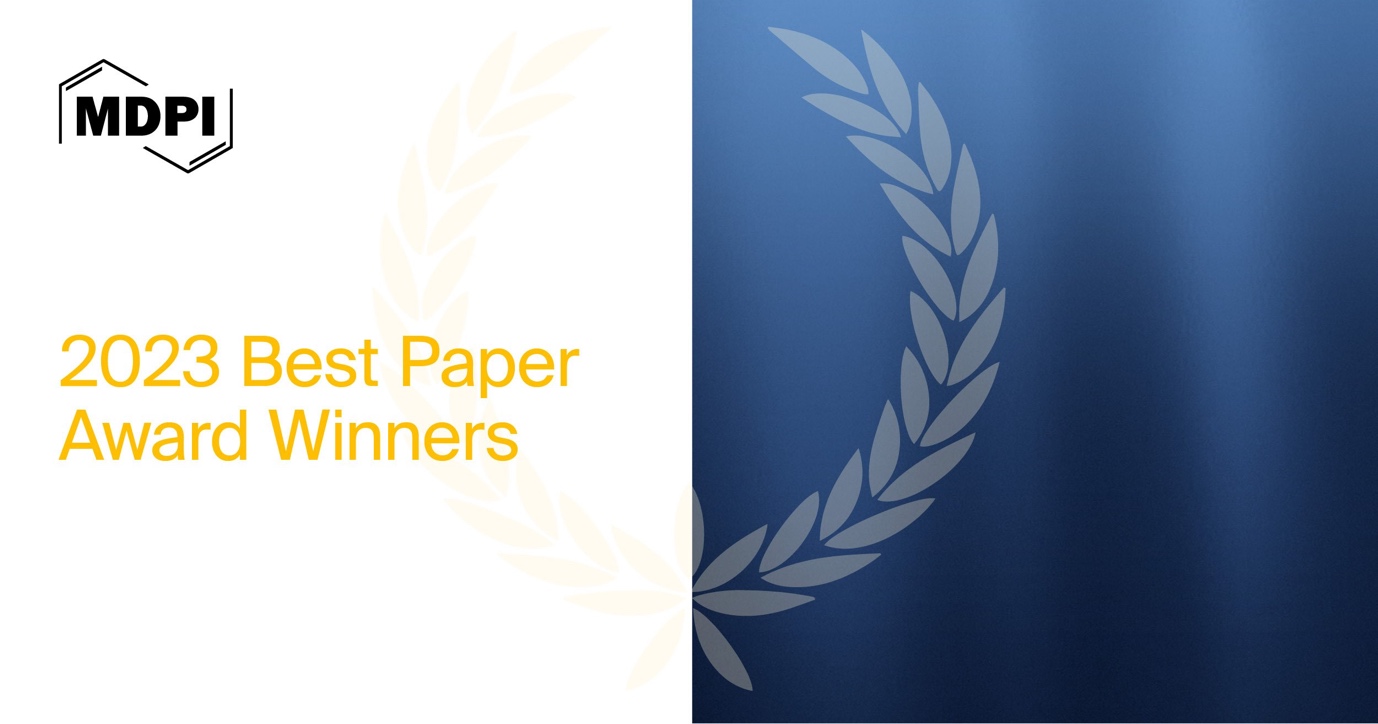
MDPI’s Best Paper Awards—Award-Winning Papers in 2023 Announced
MDPI is committed to supporting and recognizing the academic community and is proud to announce the recipients of the 2023 Best Paper Awards, which recognize high-quality papers of significant scientific merit and impact. Each year, the editors of our journals carefully select papers that showcase outstanding scientific achievement.
This year, 115 Best Paper Awards were presented, chosen from 346 exceptional papers in a highly competitive selection process. Congratulations to the authors for their remarkable contributions!
To learn more about all the awardees and their research projects, visit the following pages:
- Biology and Life Sciences
- Business and Economics
- Chemistry and Materials Sciences
- Computer Sciences and Mathematics
- Engineering
- Environmental and Earth Sciences
- Medicine and Pharmacology
- Public Health and Healthcare
- Social Sciences, Arts and Humanities
- Physical Sciences
About MDPI Awards
MDPI regularly offers various awards to recognize researchers, particularly young scientists, and to promote communication within the scientific community. These awards exist to inspire and acknowledge talented scientists who have made significant contributions to advancing their fields.
To find out more MDPI awards, please click here.
“Our awards exist to inspire and acknowledge talented scientists”
Inside MDPI
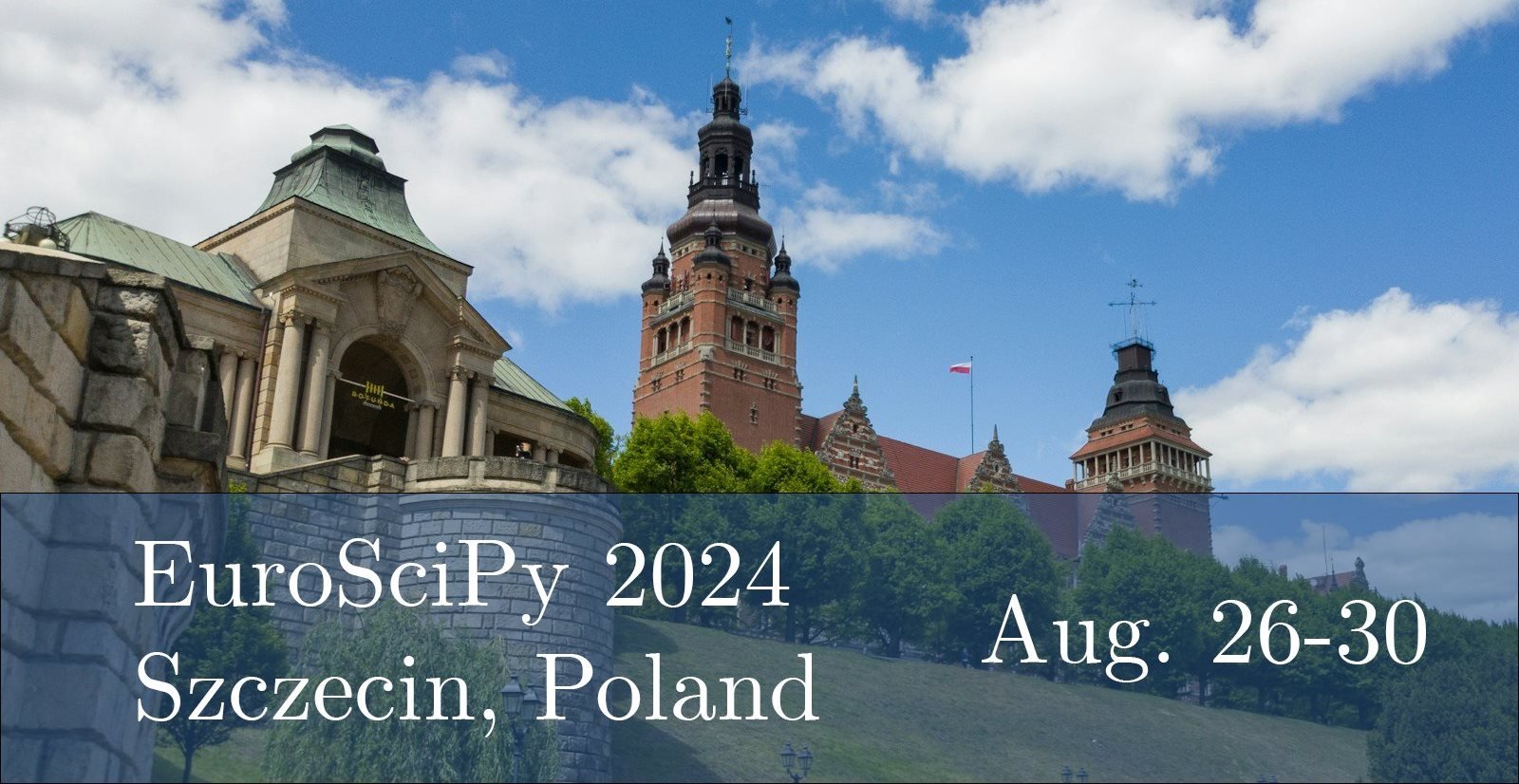
MDPI AI Team Presented at EuroSciPy 2024 in Poland
As part of the CEO Letter, I hold dear this ‘Inside MDPI’ section, where I have an opportunity to highlight various projects, teams and updates within our organization. As such, I’m happy to showcase the following presentations from members of MDPI’s Artificial Intelligence (AI) team, which were recently presented at the EuroSciPy 2024 (16th European Conference on Python in Science). This conference took place in Szczecin, Poland from 26–30 August.
“This event was a great opportunity to reinforce our commitment to innovation and excellence in publishing”
MDPI colleagues Frank Sauerburger (AI Tech Leader) and Daniele Raimondi (Senior Data Scientist) both presented at the conference. Frank discussed MDPI’s AI infrastructure, while Daniele showcased a new methodological approach we have been developing to track the journey of rejected academic manuscripts. This approach combines AI, data science and analytics to improve the identification of manuscripts and authors, enhancing our understanding of publishing dynamics.
This event was a great opportunity to reinforce our commitment to innovation and excellence in publishing. It also allowed us to contribute to the academic discussion on integrating AI and data science into scholarly communication.
From data analysis in Jupyter Notebooks to production applications: AI infrastructure at reasonable scale – Frank Sauerburger
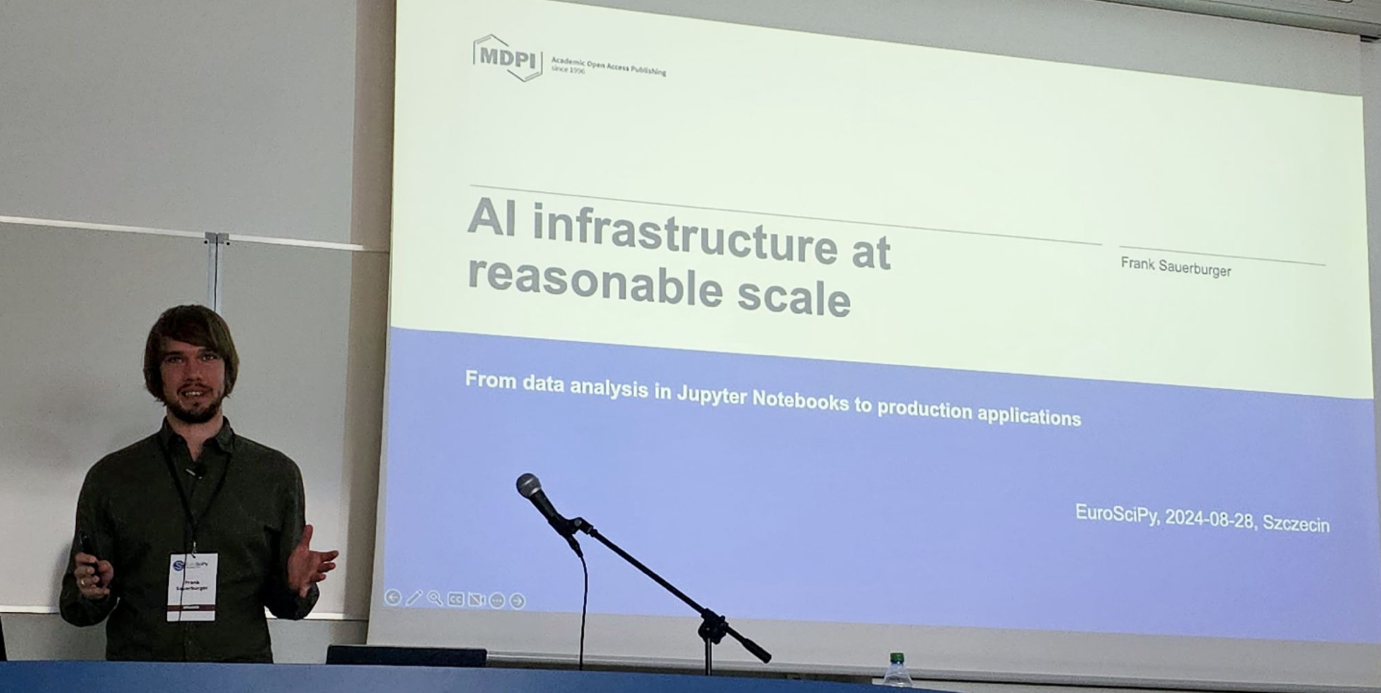
Frank’s presentation on MDPI’s AI infrastructure provided a chance to showcase the advanced technological frameworks that power our operations. Given the technical and academic focus of EuroSciPy, this talk demonstrated how MDPI’s AI capabilities are not only cutting-edge but also central to driving efficiency and innovation in scholarly publishing. Engaging with the EuroSciPy community helps position MDPI as a leader in applying AI within the publishing industry, fostering potential collaborations and attracting interest from top researchers.
A Qdrant and Specter2 framework for tracking resubmissions of rejected manuscripts in academia – Daniele Raimondi
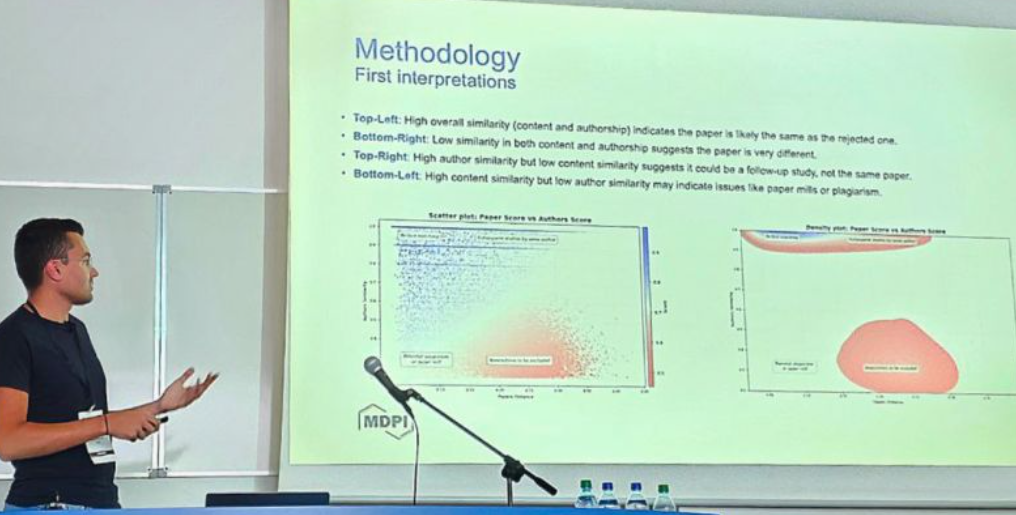
Daniele’s talk on the novel methodological approach that combines AI, Data Science, and Analytics was crucial in highlighting how MDPI is advancing the precision and effectiveness of manuscript and author identification. This approach is pivotal in enhancing our understanding of publishing dynamics and ensuring the quality and integrity of the academic content we manage. By presenting at EuroSciPy, we had the opportunity to engage with an audience deeply involved in scientific computing, gaining feedback and insights that could further refine our methodologies.
Thank you, Frank and Daniele, for representing MDPI so well!
I will share more about MDPI’s AI team and projects in upcoming CEO Letters, as we have a well-rounded AI and Data Team working on an exciting suite of AI products for MDPI and the scholarly community at large.
Coming Together for Science
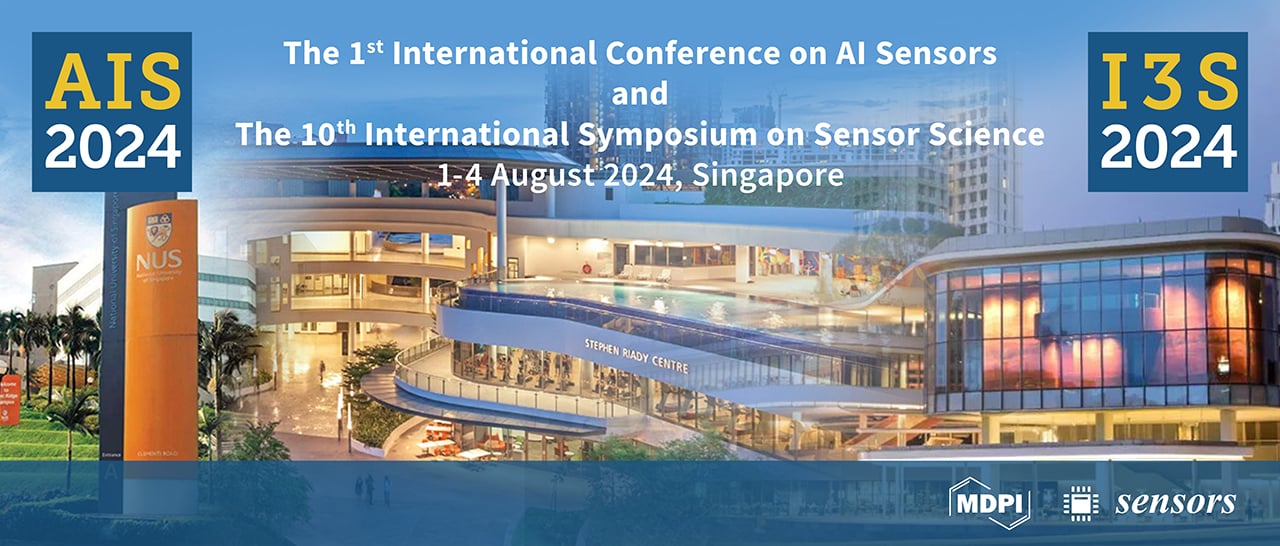
The 1st International Conference on AI Sensors & The 10th International Symposium on Sensor Science
I am pleased to share the success of our MDPI conference The 1st International Conference on Artificial Intelligence (AI) Sensors and the 10th International Symposium on Sensor Science in Singapore this past 1–4 August.
With nearly 400 attendees, the event brought together researchers and industry experts from China, Singapore, Japan, Korea, Taiwan, India and other countries to share their findings on the latest developments in sensors, sensing technology, artificial intelligence for sensing applications and AI-enhanced sensing systems.
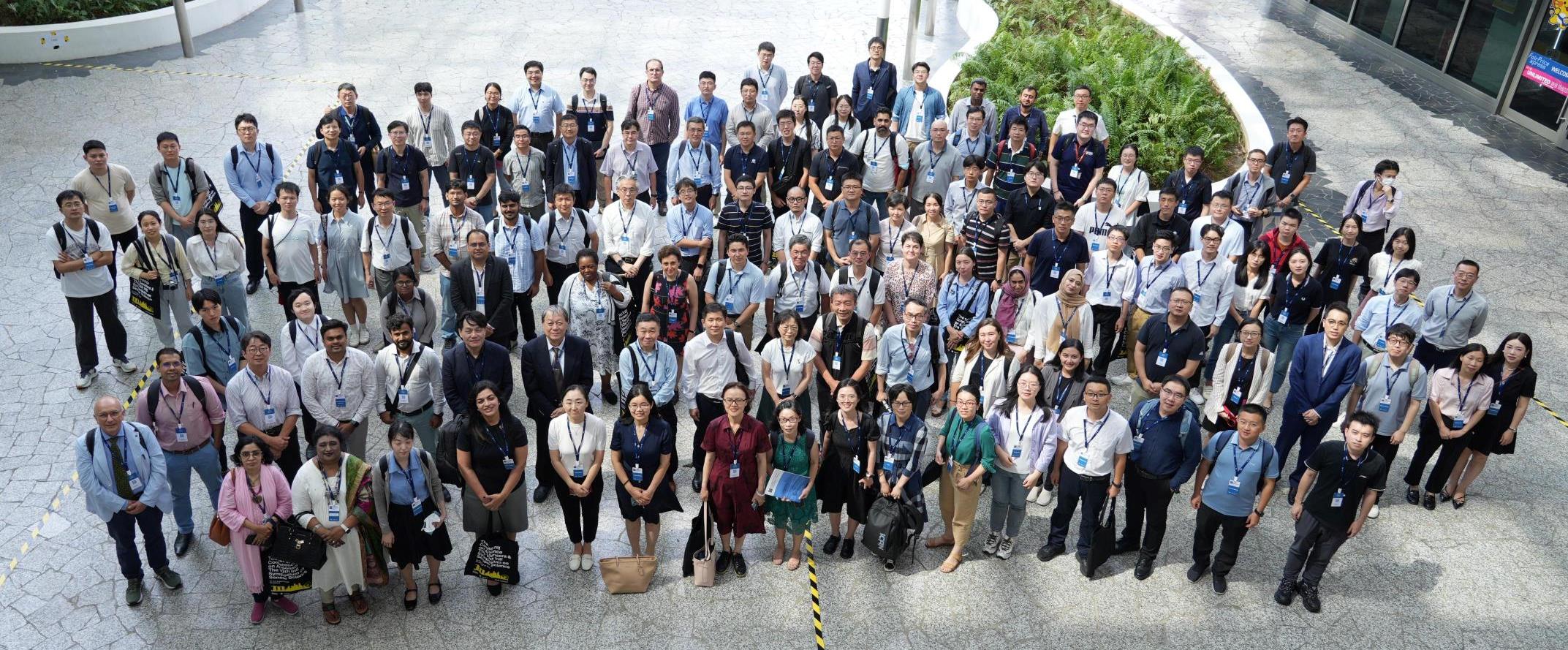
We accepted a total of 355 abstracts, featuring 772 authors from 28 countries. Over the course of the four-day event, 66 posters were displayed and 296 talks were delivered, including 4 plenary talks, 46 keynote speeches, 122 invited talks, and 124 selected oral presentations. View the event gallery here.
I am pleased to announce the winners of the four awards, including Best Presentation and Best Poster, recognizing the contributions of our participants during the conference.
Looking ahead, the 2nd International Conference on AI Sensors and Transducers is scheduled to take place from 29 July to 5 August, 2025, in Bangkok, Thailand.
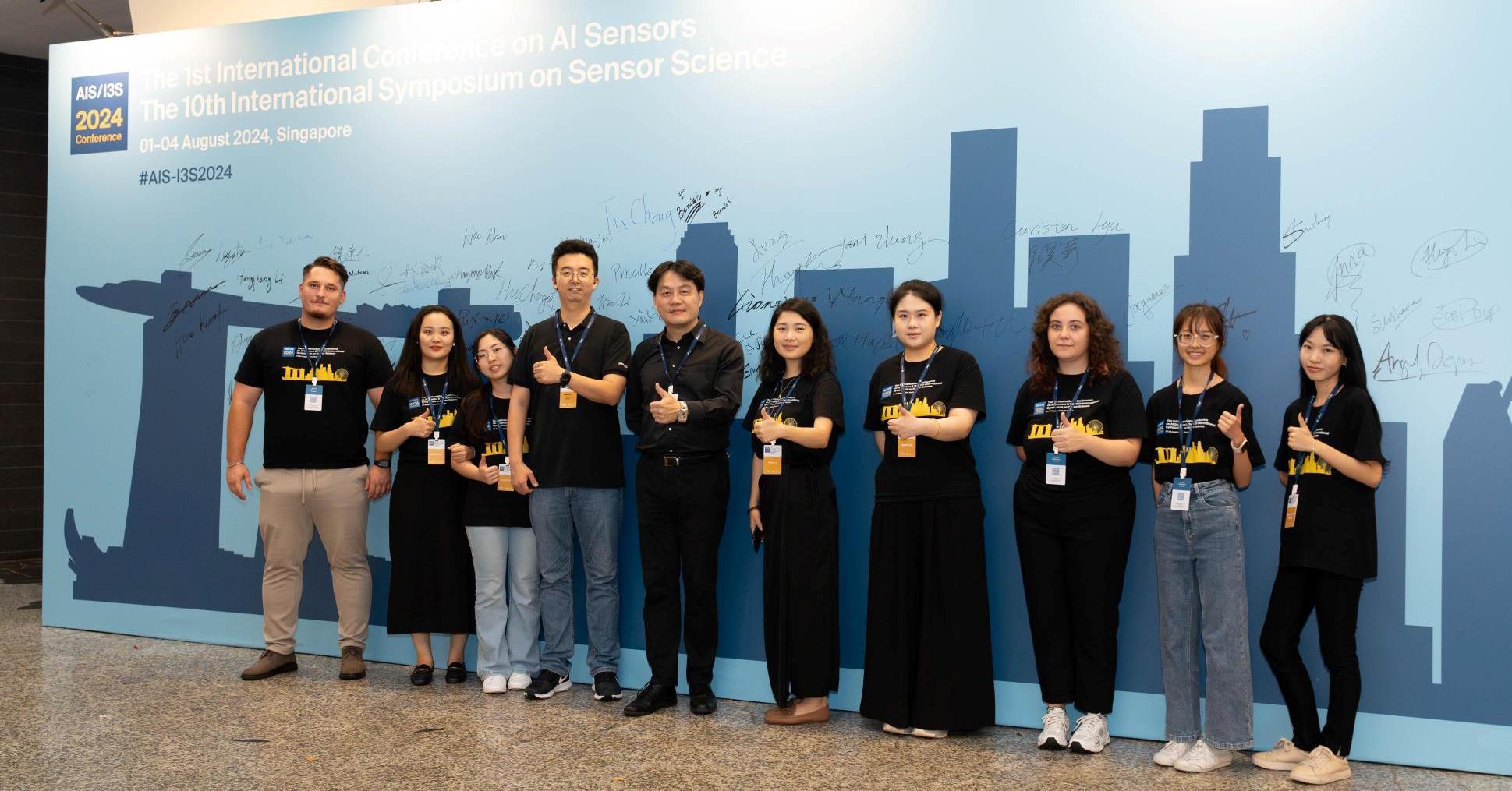
Thank you to our Conference team, including Ionut Spatar, Teodora Nicoleta Cremene, Ang Kai Lin, Benjamin Tay, Leong Jin Yue Esther, Wong Jolin, Judith Wu, Alethea Liu and Flora Li, who were involved in making this event a success. A big thank-you also goes to our local MDPI colleagues for their support: Yu Nwe Soe, Hen Chu Yang, Kwah Zhi En Watcharapong, Zephan Yang, Daphne Neo, Huimin Cheng, Nathan Li and Ting Yin.
Upcoming In-Person Event
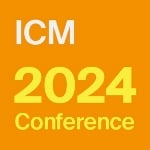
25–27 September, 2024
The 5th International Conference on Materials: Advances in Material Innovation
Location: Basel, Switzerland
ICM 2024 will unite experts to share insights on recent advancements in Materials Characterization, Processing and Manufacturing.
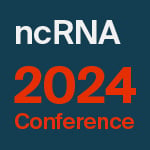
7–9 October, 2024
Non-coding RNA World 2024: Exploring Mechanisms, Designing Medicines
Location: Basel, Switzerland
ncRNA 2024 will explore the latest advances in the field, covering topics from basic biology to medical and technological applications.
Find more upcoming MDPI events here.
Closing Thoughts
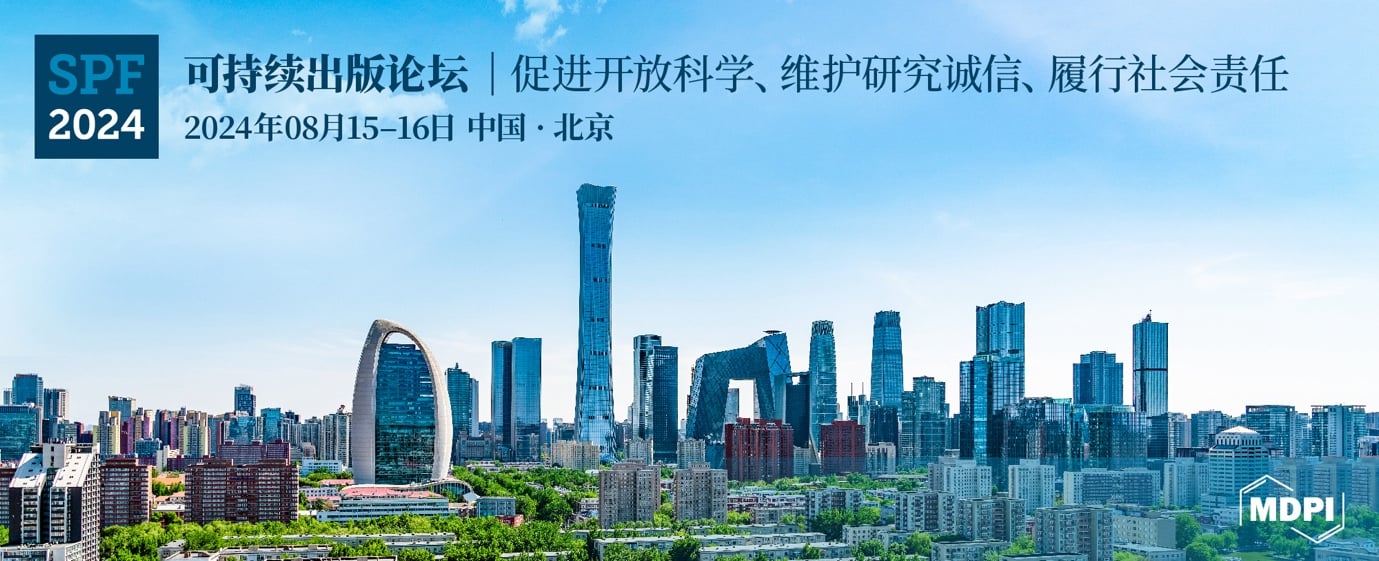
The 2nd Sustainable Publishing Forum
In 2022, the International Association of Scientific, Technical and Medical Publishers (STM) outlined three goals to reflect the academic community’s shared aspirations: promoting Open Science, maintaining research integrity and fulfilling social responsibility. Open Science has evolved from the Open Access movement of the early 2000s to become a preferred model in academic publishing. Publishers and academic journals play a crucial role in ensuring research integrity, with efforts to prevent misconduct markedly on the increase now.
As the world faces sustainability challenges, the academic publishing industry is increasingly committed to contributing the achievement of the United Nations Sustainable Development Goals (SDGs). Many publishers are implementing strategies to support these objectives, including ours, which you can view here.
The 2nd MDPI Sustainable Publishing Forum provided a platform for global editors and publishers to discuss these themes, aiming to strengthen collaboration and advance the contributions that scientific publishing can make to academia and society.
“Open Science has evolved to become a preferred model in academic publishing”
The 2nd Sustainable Publishing Forum
We hosted MDPI’s 2nd Sustainable Publishing Forum in Beijing, China, on 15–16 August, attracting nearly 120 attendees from local and international publishers, university presses, scientific and technical journal associations, libraries and the Chinese Academy of Sciences. The event focused on promoting Open Science, maintaining research integrity, and fulfilling social responsibility.
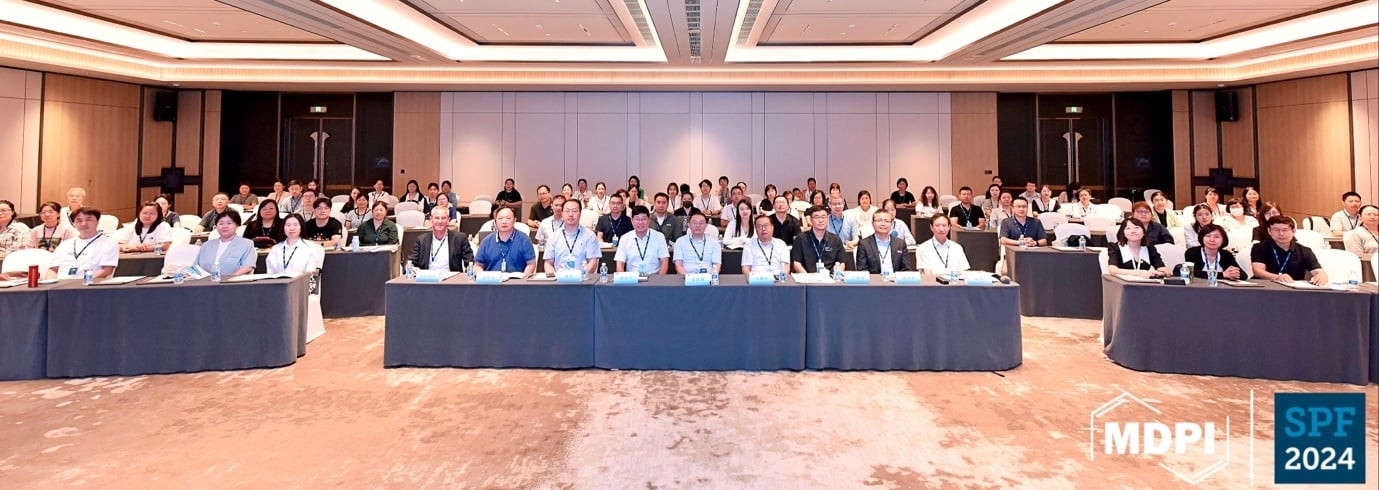
This was an excellent opportunity for us to share more with conference attendees about the approach of our research integrity team. Our Head of Publishing, Peter Roth, also participated, speaking on how to identify and avoid predatory publishers and about the principles that underpin ethical academic publishing.
I extend my thanks to all of our conference speakers, including Hylke Koers (STM Solutions), who presented on STM Trends 2028 and shared insights on the STM Integrity Hub, of which MDPI is a member.
Chief Executive Officer
MDPI AG
30 August 2024
Catalysts | Top Cited Papers in 2022–2023 in the Section “Catalytic Reaction Engineering”

Catalysts (ISSN: 2073-4344) has launched the Section “Catalytic Reaction Engineering”, which aims at publishing original, novel, and high-impact contributions related to new reaction mechanisms, kinetics, and reaction engineering, with an emphasis on the recent progress in sustainable catalysts and catalytic processes.
We welcome you to read the following top cited papers published in 2022 and 2023 in this Section. As open access publications, you have free and unlimited access to the full text of all of the articles published in our journal. We hope that you will also consider contributing to this Section in the near future!
1. “Recent Advances in Multicomponent Reactions Catalysed under Operationally Heterogeneous Conditions”
by Giovanna Bosica and Roderick Abdilla
Catalysts 2022, 12(7), 725; https://doi.org/10.3390/catal12070725
Available online: https://www.mdpi.com/2073-4344/12/7/725
2. “Low-Temperature SCR Catalyst Development and Industrial Applications in China”
by Hongtai Zhu, Liyun Song, Kai Li, Rui Wu, Wenge Qiu and Hong He
Catalysts 2022, 12(3), 341; https://doi.org/10.3390/catal12030341
Available online: https://www.mdpi.com/2073-4344/12/3/341
3. “Utilization of Loaded Cobalt onto MCM-48 Mesoporous Catalyst as a Heterogeneous Reaction in a Fixed Bed Membrane Reactor to Produce Isomerization Product from n-Heptane”
by Nisreen S. Ali, Issam K. Salih, Hamed N. Harharah, Hasan Sh. Majdi, Hussein G. Salih, Khairi R. Kalash, Ali Al-Shathr, Farah T. Al-Sudani, Mahir A. Abdulrahman, Jamal M. Alrubaye et al.
Catalysts 2023, 13(7), 1138; https://doi.org/10.3390/catal13071138
Available online: https://www.mdpi.com/2073-4344/13/7/1138
4. “Current Developments in the Effective Removal of Environmental Pollutants through Photocatalytic Degradation Using Nanomaterials”
by Chandhinipriya Sivaraman, Shankar Vijayalakshmi, Estelle Leonard, Suresh Sagadevan and Ranjitha Jambulingam
Catalysts 2022, 12(5), 544; https://doi.org/10.3390/catal12050544
Available online: https://www.mdpi.com/2073-4344/12/5/544
5. “Late Transition Metal Catalysts with Chelating Amines for Olefin Polymerization”
by Huiyun Deng, Handou Zheng, Heng Gao, Lixia Pei and Haiyang Gao
Catalysts 2022, 12(9), 936; https://doi.org/10.3390/catal12090936
Available online: https://www.mdpi.com/2073-4344/12/9/936
6. “Continuous-Flow Sunlight-Powered CO2 Methanation Catalyzed by γ-Al2O3-Supported Plasmonic Ru Nanorods”
by Jelle Rohlfs, Koen W. Bossers, Nicole Meulendijks, Fidel Valega Mackenzie, Man Xu, Marcel A. Verheijen, Pascal Buskens and Francesc Sastre
Catalysts 2022, 12(2), 126; https://doi.org/10.3390/catal12020126
Available online: https://www.mdpi.com/2073-4344/12/2/126
7. “Mango Seed-Derived Hybrid Composites and Sodium Alginate Beads for the Efficient Uptake of 2,4,6-Trichlorophenol from Simulated Wastewater”
by Asma Jabeen, Urooj Kamran, Saima Noreen, Soo-Jin Park and Haq Nawaz Bhatti
Catalysts 2022, 12(9), 972; https://doi.org/10.3390/catal12090972
Available online: https://www.mdpi.com/2073-4344/12/9/972
8. “Synthesis of CaCO3/Cu2O/GO Nanocomposite Catalysts for Hydrogen Production from NaBH4 Methanolysis”
by Majed Alshammari, Sultan Alhassan, Khulaif Alshammari, Turki Alotaibi, Taha Abdel Mohaymen Taha, Alhulw H. Alshammari and Ali Ismael
Catalysts 2023, 13(6), 1010; https://doi.org/10.3390/catal13061010
Available online: https://www.mdpi.com/2073-4344/13/6/1010
9. “Effects of Potassium Loading over Iron–Silica Interaction, Phase Evolution and Catalytic Behavior of Precipitated Iron-Based Catalysts for Fischer-Tropsch Synthesis”
by Hai Chang, Quan Lin, Meng Cheng, Kui Zhang, Bo Feng, Jiachun Chai, Yijun Lv and Zhuowu Men
Catalysts 2022, 12(8), 916; https://doi.org/10.3390/catal12080916
Available online: https://www.mdpi.com/2073-4344/12/8/916
10. “Effect of Morphological Modification over g-C3N4 on Photocatalytic Hydrogen Evolution Performance of g-C3N4-Pt Photocatalysts”
by Thi Van Anh Hoang, Phuong Anh Nguyen and Eun Woo Shin
Catalysts 2023, 13(1), 92; https://doi.org/10.3390/catal13010092
Available online: https://www.mdpi.com/2073-4344/13/1/92
11. “The Challenges of Integrating the Principles of Green Chemistry and Green Engineering to Heterogeneous Photocatalysis to Treat Water and Produce Green H2”
by Fernanda Anaya-Rodríguez, Juan C. Durán-Álvarez, K. T. Drisya and Rodolfo Zanella
Catalysts 2023, 13(1), 154; https://doi.org/10.3390/catal13010154
Available online: https://www.mdpi.com/2073-4344/13/1/154
12. “State-of-the-Art Review of Oxidative Dehydrogenation of Ethane to Ethylene over MoVNbTeOx Catalysts”
by Yuxin Chen, Binhang Yan and Yi Cheng
Catalysts 2023, 13(1), 204; https://doi.org/10.3390/catal13010204
Available online: https://www.mdpi.com/2073-4344/13/1/204
If you are an active researcher in the field and are passionate about participating in cutting-edge research publications, please do not hesitate to contact the Section Managing Editor, Ms. Janine Li ([email protected]).
29 August 2024
Catalysts | Top Cited Papers in 2022–2023 in the Section “Computational Catalysis”

Catalysts (ISSN: 2073-4344) has launched the new Section “Computational Catalysis”, which is dedicated to publishing original computational-based investigations within the broad field of catalysis. This includes the development of new computational techniques and screening methods, as well as the rigorous application of current computational tools for discovering new catalysts, reaction mechanisms, or catalytic processes.
We welcome you to read the top cited papers published in our Catalysts in 2022 and 2023. As open access publications, you have free and unlimited access to the full text of all of the articles published in our journal.
1. “Hall Current and Soret Effects on Unsteady MHD Rotating Flow of Second-Grade Fluid through Porous Media under the Influences of Thermal Radiation and Chemical Reactions”
by Omar T Bafakeeh, Kodi Raghunath, Farhan Ali, Muhammad Khalid, El Sayed Mohamed Tag-ElDin, Mowffaq Oreijah, Kamel Guedri, Nidhal Ben Khedher and Muhammad Ijaz Khan
Catalysts 2022, 12(10), 1233; https://doi.org/10.3390/catal12101233
Available online: https://www.mdpi.com/2073-4344/12/10/1233
2. “Sol-Gel Synthesis of ZnO Nanoparticles Using Different Chitosan Sources: Effects on Antibacterial Activity and Photocatalytic Degradation of AZO Dye”
by Ilham Ben Amor, Hadia Hemmami, Salah Eddine Laouini, Mohammed Sadok Mahboub and Ahmed Barhoum
Catalysts 2022, 12(12), 1611; https://doi.org/10.3390/catal12121611
Available online: https://www.mdpi.com/2073-4344/12/12/1611
3. “Electrocatalytic Oxygen Reduction to Hydrogen Peroxide on Graphdiyne-Based Single-Atom Catalysts: First-Principles Studies”
by Kangkang Lian, Qiang Wan, Rong Jiang and Sen Lin
Catalysts 2023, 13(2), 307; https://doi.org/10.3390/catal13020307
Available online: https://www.mdpi.com/2073-4344/13/2/307
4. “Synthesis, Characterization and Dye Removal Capability of Conducting Polypyrrole/Mn0.8Zn0.2Fe2O4/Graphite Oxide Ternary Composites”
by Mohamed A. Gabal, Enam A. Al-Harthy, Yasser M. Al Angari, Mohamed Abdel Salam, Ayman Awad, Amany A. Al-Juaid and Abdu Saeed
Catalysts 2022, 12(12), 1624; https://doi.org/10.3390/catal12121624
Available online: https://www.mdpi.com/2073-4344/12/12/1624
5. “Novel Bifunctional Nitrogen Doped MoS2/COF-C4N Vertical Heterostructures for Electrocatalytic HER and OER”
by Nan Zhang, Zhaodi Yang, Wenshan Liu, Fengming Zhang and Hong Yan
Catalysts 2023, 13(1), 90; https://doi.org/10.3390/catal13010090
Available online: https://www.mdpi.com/2073-4344/13/1/90
6. “Cu/O Frustrated Lewis Pairs on Cu Doped CeO2(111) for Acetylene Hydrogenation: A First-Principles Study”
by Shulan Zhou, Qiang Wan and Shulan Zhou
Catalysts 2022, 12(1), 74; https://doi.org/10.3390/catal12010074
Available online: https://www.mdpi.com/2073-4344/12/1/74
7. “Non-Idealities in Lab-Scale Kinetic Testing: A Theoretical Study of a Modular Temkin Reactor”
by Gregor D. Wehinger, Bjarne Kreitz and C. Franklin Goldsmith
Catalysts 2022, 12(3), 349; https://doi.org/10.3390/catal12030349
Available online: https://www.mdpi.com/2073-4344/12/3/349
8. “Tailoring of Three-Atom Metal Cluster Catalysts for Ammonia Synthesis”
by Shuo Wang, Tingting Zhao and Likai Yan
Catalysts 2023, 13(5), 869; https://doi.org/10.3390/catal13050869
Available online: https://www.mdpi.com/2073-4344/13/5/869
9. “DFT Study of CO2 Reduction Reaction to CH3OH on Low-Index Cu Surfaces”
by Auhood S. Al-Soihi, Qana A. Alsulami and Mohamed Mokhtar M. Mostafa
Catalysts 2022, 12(10), 1200; https://doi.org/10.3390/catal12101200
Available online: https://www.mdpi.com/2073-4344/13/4/722
10. “Recent Strategies in Nickel-Catalyzed C–H Bond Functionalization for Nitrogen-Containing Heterocycles”
by Ke Yang, Zhi Li, Qingyue Hu, Mazen Elsaid, Chong Liu, Jun Chen and Haibo Ge
Catalysts 2022, 12(10), 1163; https://doi.org/10.3390/catal12101163
Available online: https://www.mdpi.com/2073-4344/13/4/722
If you are an active researcher in the field and are passionate about participating in cutting-edge research publications, please do not hesitate to contact our Section Managing Editor Ms. Cathy Yang.
28 August 2024
Catalysts | Top Cited Papers in 2022–2023 in the Section “Biomass Catalysis”

The Section “Biomass Catalysis” in the journal Catalysts (ISSN: 2073-4344) publishes original and high-quality research communications, articles, and review articles in the areas of the catalytic conversion of biomass and its derivatives into (gas, liquid, or solid) chemicals, fuels, and materials.
The focus of this Section is on the understanding of catalytic processes for biomass conversion at the micro-, meso-, and macro-scales, including (1) the rational design and synthesis of advanced catalysts, (2) the characterization of their structures and active sites, (3) the understanding of the catalytic mechanism, and (4) the resulting catalytic processes and technologies.
Our goal is to make high-quality and impactful research in biomass catalytic conversion promptly and easily accessible to a worldwide audience to accelerate progress in renewable sources conversion, with the aim of contributing to a more sustainable future.
We welcome you to read the top cited papers published in 2022 and 2023 in this Section. As our journal is open access, you have free and unlimited access to the full text of all the articles published in it.
1. “Carbon Quantum Dots: Synthesis, Structure, Properties, and Catalytic Applications for Organic Synthesis”
by Pradeep Kumar Yadav, Subhash Chandra, Vivek Kumar, Deepak Kumar and Syed Hadi Hasan
Catalysts 2023, 13(2), 422; https://doi.org/10.3390/catal13020422
Available online: https://www.mdpi.com/2073-4344/13/2/422
2. “A Review on Production and Surface Modifications of Biochar Materials via Biomass Pyrolysis Process for Supercapacitor Applications”
by Rifat Mehdi, Asif Hussain Khoja, Salman Raza Naqvi, Ningbo Gao and Nor Aishah Saidina Amin
Catalysts 2022, 12(7), 798; https://doi.org/10.3390/catal12070798
Available online: https://www.mdpi.com/2073-4344/12/7/798
3. “An Overview of the Latest Advances in the Catalytic Synthesis of Glycerol Carbonate”
by Debora Procopio and Maria Luisa Di Gioia
Catalysts 2022, 12(1), 50; https://doi.org/10.3390/catal12010050
Available online: https://www.mdpi.com/2073-4344/12/1/50
4. “Chemicals Production from Glycerol through Heterogeneous Catalysis: A Review”
by Parvaneh Koranian, Qian Huang, Ajay Kumar Dalai and Ramaswami Sammynaiken
Catalysts 2022, 12(8), 897; https://doi.org/10.3390/catal12080897
Available online: https://www.mdpi.com/2073-4344/12/8/897
5. “Value-Added Products from Catalytic Pyrolysis of Lignocellulosic Biomass and Waste Plastics over Biochar-Based Catalyst: A State-of-the-Art Review”
by Peng Li, Kun Wan, Huan Chen, Fangjuan Zheng, Zhuo Zhang, Bo Niu, Yayun Zhang and Donghui Long
Catalysts 2022, 12(9), 1067; https://doi.org/10.3390/catal12091067
Available online: https://www.mdpi.com/2073-4344/12/9/1067
6. “Biodegradation of Congo Red Using Co-Culture Anode Inoculum in a Microbial Fuel Cell”
by Kalpana Sharma, Soumya Pandit, Bhim Sen Thapa and Manu Pant
Catalysts 2022, 12(10), 1219; https://doi.org/10.3390/catal12101219
Available online: https://www.mdpi.com/2073-4344/12/10/1219
7. “Lignin Depolymerization in the Presence of Base, Hydrogenation Catalysts, and Ethanol”
by Iuliia Romanenko, Felix Kurz, Robert Baumgarten, Ivana Jevtovikj, Jean-Pierre Lindner, Arunabha Kundu, Alois Kindler and Stephan Andreas Schunk
Catalysts 2022, 12(2), 158; https://doi.org/10.3390/catal12020158
Available online: https://www.mdpi.com/2073-4344/12/2/158
8. “Whole Cell Biocatalysis of 5-Hydroxymethylfurfural for Sustainable Biorefineries”
by Joana T. Cunha, Aloia Romaní and Lucília Domingues
Catalysts 2022, 12(2), 202; https://doi.org/10.3390/catal12020202
Available online: https://www.mdpi.com/2073-4344/12/2/202
9. “Catalytic Pyrolysis of High-Density Polyethylene: Decomposition Efficiency and Kinetics”
by Hadas Raveh-Amit, Florent Lemont, Gabriela Bar-Nes, Ofra Klein-BenDavid, Nissim Banano, Svetlana Gelfer, Patrice Charvin, Tahriri Bin Rozaini, Johann Sedan and François Rousset
Catalysts 2022, 12(2), 140; https://doi.org/10.3390/catal12020140
Available online: https://www.mdpi.com/2073-4344/12/2/140
10. “Comparative Catalytic Performance Study of 12-Tungstophosphoric Heteropoly Acid Supported on Mesoporous Supports for Biodiesel Production from Unrefined Green Seed Canola Oil”
by Fahimeh Esmi, Shima Masoumi and Ajay K. Dalai
Catalysts 2022, 12(6), 658; https://doi.org/10.3390/catal12060658
Available online: https://www.mdpi.com/2073-4344/12/6/658
If you are an active researcher in the field and are passionate about participating in cutting-edge research publications, please do not hesitate to contact the Section Managing Editor, Ms. Cathy Yang ([email protected]).
23 August 2024
Catalysts | Top Cited Papers in 2022–2023 in the Section “Biocatalysis”

Catalysts (ISSN: 2073-4344) has launched the Section “Biocatalysis”. The Section is dedicated to publishing original, novel, and high-impact contributions related to this cross-disciplinary field of biotechnology, and will attract the interest of chemists, enzymologists, microbiologists, molecular biologists, polymer scientists, bioinformaticians, and engineers.
As they are of open access format, you have free and unlimited access to the full text of all the articles published in our journal. We welcome you to read our most highly cited papers published in 2022 and 2023:
1. “A Review on Biological Synthesis of the Biodegradable Polymers Polyhydroxyalkanoates and the Development of Multiple Applications”
by Bryan Dalton, Purabi Bhagabati, Jessica De Micco, Ramesh Babu Padamati and Kevin O’Connor
Catalysts 2022, 12(3), 319; https://doi.org/10.3390/catal12030319
Available online: https://www.mdpi.com/2073-4344/12/3/319
2. “Agro-Industrial Food Waste as a Low-Cost Substrate for Sustainable Production of Industrial Enzymes: A Critical Review”
by Vishal Sharma, Mei-Ling Tsai, Parushi Nargotra, Chiu-Wen Chen, Chia-Hung Kuo, Pei-Pei Sun and Cheng-Di Dong
Catalysts 2022, 12(11), 1373; https://doi.org/10.3390/catal12111373
Available online: https://www.mdpi.com/2073-4344/12/11/1373
3. “Microbial Lignocellulolytic Enzymes for the Effective Valorization of Lignocellulosic Biomass: A Review”
by Parushi Nargotra, Vishal Sharma, Yi-Chen Lee, Yung-Hsiang Tsai, Yung-Chuan Liu, Chwen-Jen Shieh, Mei-Ling Tsai, Cheng-Di Dong and Chia-Hung Kuo
Catalysts 2023, 13(1), 83; https://doi.org/10.3390/catal13010083
Available online: https://www.mdpi.com/2073-4344/13/1/83
4. “Evolving New Chemistry: Biocatalysis for the Synthesis of Amine-Containing Pharmaceuticals”
by Wojciech Zawodny and Sarah Louise Montgomery
Catalysts 2022, 12(6), 595; https://doi.org/10.3390/catal12060595
Available online: https://www.mdpi.com/2073-4344/12/6/595
5. “Discovery and Heterologous Expression of Unspecific Peroxygenases”
by Katharina Ebner, Lukas J. Pfeifenberger, Claudia Rinnofner, Veronika Schusterbauer, Anton Glieder and Margit Winkler
Catalysts 2023, 13(1), 206; https://doi.org/10.3390/catal13010206
Available online: https://www.mdpi.com/2073-4344/13/1/206
6. “Lignin Valorization: Production of High Value-Added Compounds by Engineered Microorganisms”
by Elena Rosini, Filippo Molinari, Davide Miani and Loredano Pollegioni
Catalysts 2023, 13(3), 555; https://doi.org/10.3390/catal13030555
Available online: https://www.mdpi.com/2073-4344/13/3/555
7. “Diclofenac Biodegradation by Microorganisms and with Immobilised Systems—A Review”
by Danuta Wojcieszyńska, Karolina Łagoda and Urszula Guzik
Catalysts 2023, 13(2), 412; https://doi.org/10.3390/catal13020412
Available online: https://www.mdpi.com/2073-4344/13/2/412
8. “Metagenomic Approaches as a Tool to Unravel Promising Biocatalysts from Natural Resources: Soil and Water”
by Joana Sousa, Sara C. Silvério, Angela M. A. Costa and Ligia R. Rodrigues
Catalysts 2022, 12(4), 385; https://doi.org/10.3390/catal12040385
Available online: https://www.mdpi.com/2073-4344/12/4/385
9. “Bayesian Optimization for an ATP-Regenerating In Vitro Enzyme Cascade”
by Regine Siedentop, Maximilian Siska, Niklas Möller, Hannah Lanzrath, Eric von Lieres, Stephan Lütz and Katrin Rosenthal
Catalysts 2023, 13(3), 468; https://doi.org/10.3390/catal13030468
Available online: https://www.mdpi.com/2073-4344/13/3/468
10. “Transesterification of Soybean Oil through Different Homogeneous Catalysts: Kinetic Study”
by José María Encinar, Juan Félix González, Gloria Martínez and Sergio Nogales-Delgado
Catalysts 2022, 12(2), 146; https://doi.org/10.3390/catal12020146
Available online: https://www.mdpi.com/2073-4344/12/2/146
If you are an active researcher in the field and are passionate about participating in cutting-edge research publications, please do not hesitate to contact the Managing Editor, Ms. Bella Zhang ([email protected]).
23 August 2024
Catalysts | Top Cited Papers in 2022–2023 in the Section “Catalysis in Organic and Polymer Chemistry”

Catalysts (ISSN: 2073-4344) has launched the Section “Catalysis in Organic and Polymer Chemistry”, which is dedicated to publishing original and high-quality research communications, articles, and review articles on topics related to organic and polymer synthesis using catalysts (e.g., metal catalysts and organocatalysts). It covers the broad fields of homogeneous and heterogeneous catalysis as well as organic, organometallic, inorganic, and bioinorganic chemistry.
As they are of open access format, you have free and unlimited access to the full text of all the articles published in our journal. We invite you to read our top cited papers published in 2022 and 2023, as listed below:
1. “Green Chemistry in Organic Synthesis: Recent Update on Green Catalytic Approaches in Synthesis of 1,2,4-Thiadiazoles”
by Laila Rubab, Ayesha Anum, Sami A. Al-Hussain, Ali Irfan, Sajjad Ahmad, Sami Ullah, Aamal A. Al-Mutairi and Magdi E. A. Zaki
Catalysts 2022, 12(11), 1329; https://doi.org/10.3390/catal12111329
Available online: https://www.mdpi.com/2073-4344/12/11/1329
2. “Direct Catalytic Amidations from Carboxylic Acid and Ester Derivatives: A Review”
by Armand Taussat, Renata Marcia de Figueiredo and Jean-Marc Campagne
Catalysts 2023, 13(2), 366; https://doi.org/10.3390/catal13020366
Available online: https://www.mdpi.com/2073-4344/13/2/366
3. “Recent Advances of Green Catalytic System I2/DMSO in C–C and C–Heteroatom Bonds Formation”
by Jia-Qi Wang, Zhen-Yu Zuo and Wei He
Catalysts 2022, 12(8), 821; https://doi.org/10.3390/catal12080821
Available online: https://www.mdpi.com/2073-4344/12/8/821
4. “A Review on the Green Synthesis of Benzimidazole Derivatives and Their Pharmacological Activities”
by Monica Nardi, Natividad Carolina Herrera Cano, Svilen Simeonov, Renata Bence, Atanas Kurutos, Rosa Scarpelli, Daniel Wunderlin and Antonio Procopio
Catalysts 2023, 13(2), 392; https://doi.org/10.3390/catal13020392
Available online: https://www.mdpi.com/2073-4344/13/2/392
5. “Microwave-Assisted Biodiesel Production Using UiO-66 MOF Derived Nanocatalyst: Process Optimization Using Response Surface Methodology”
by Shiva Prasad Gouda, Jasha Momo H. Anal, Puneet Kumar, Amarajothi Dhakshinamoorthy, Umer Rashid and Samuel Lalthazuala Rokhum
Catalysts 2022, 12(11), 1312; https://doi.org/10.3390/catal12111312
Available online: https://www.mdpi.com/2073-4344/12/11/1312
6. “Photocatalyzed Oxygenation Reactions with Organic Dyes: State of the Art and Future Perspectives”
by Mattia Forchetta, Francesca Valentini, Valeria Conte, Pierluca Galloni and Federica Sabuzi
Catalysts 2023, 13(2), 220; https://doi.org/10.3390/catal13020220
Available online: https://www.mdpi.com/2073-4344/13/2/220
7. “Supported Metal Catalysts for the Synthesis of N-Heterocycles”
by Laura Antonella Aronica and Gianluigi Albano
Catalysts 2022, 12(1), 68; https://doi.org/10.3390/catal12010068
Available online: https://www.mdpi.com/2073-4344/12/1/68
8. “Synthesis of Conjugated Dienes in Natural Compounds”
by Geoffrey Dumonteil and Sabine Berteina-Raboin
Catalysts 2022, 12(1), 86; https://doi.org/10.3390/catal12010086
Available online: https://www.mdpi.com/2073-4344/12/1/86
9. “Heterocycles by Consecutive Multicomponent Syntheses via Catalytically Generated Alkynoyl Intermediates”
by Jonas Niedballa and Thomas J. J. Müller
Catalysts 2022, 12(1), 90; https://doi.org/10.3390/catal12010090
Available online: https://www.mdpi.com/2073-4344/12/1/90
10. “Horizons in Asymmetric Organocatalysis: En Route to the Sustainability and New Applications”
by Sandra Ardevines, Eugenia Marqués-López and Raquel P. Herrera
Catalysts 2022, 12(1), 101; https://doi.org/10.3390/catal12010101
Available online: https://www.mdpi.com/2073-4344/12/1/101
If you are an active researcher in the field and are passionate about participating in cutting-edge research publications, please do not hesitate to contact Section Managing Editor, Mr. Ives Liu ([email protected]).
22 August 2024
Meet Us at the 29th Ibero-American Catalysis Congress (XXIX CICAT), 23–27 September 2024, Bilbao, Spain

Conference: The 29th Ibero-American Catalysis Congress (XXIX CICAT)
Date: 23–27 September 2024
Location: Bilbao, Spain
After the last two congresses in Mexico and Brazil being entirely virtual, the XXIX CICAT will be an opportunity to gather together in the city of Bilbao, to share experiences in person, and for closer contact and collaboration between researchers, professionals, and students. This year’s theme is “Catalysis: Innovating for a Changing World” and is aimed at attaining the Sustainable Development Goals. The emphasis will be on areas of importance for the Ibero-American community.
The following MDPI journals will be represented at the conference:
- Catalysts;
- Biomass;
- Applied Sciences;
- Applied Nano;
- Colloids & Interfaces;
- Materials;
- Organics;
- Processes.
If you are planning to attend the above conference, please feel free to stop by our booth (#4) and start a conversation with us. Our delegates look forward to meeting you in person and answering any questions that you may have. For more information about the conference, please visit the following link: https://www.cicat2024.com/.
22 August 2024
Catalysts | Top Cited Papers in 2022–2023 in the Section “Nanostructured Catalysts”

Catalysts (ISSN: 2073-4344) has launched the Section “Nanostructured Catalysts”, which is dedicated to publishing original and high-quality research communications, articles, and review articles on topics covering the design, synthesis, modeling, and catalytic application of nanomaterials. This Section covers the broad fields of catalysis via nanoparticles (including colloidal, supported, alloy, and core–shell structures), nanocomposites (where intimate contact is engineered between two or more unique phases at the nanoscale), nanoporous materials (including zeolites and MOFs), and single atoms or sites (including single-atom alloys and immobilized homogeneous catalysts).
As they are published in an open access format, you have free and unlimited access to the full text of all articles published in our journal. We invite you to read our top cited papers published in 2022 and 2023, which are listed below:
1. “Classification, Synthetic, and Characterization Approaches to Nanoparticles, and Their Applications in Various Fields of Nanotechnology: A Review”
by Yousaf Khan, Haleema Sadia, Syed Zeeshan Ali Shah, Muhammad Naeem Khan, Amjad Ali Shah, Naimat Ullah, Muhammad Farhat Ullah, Humaira Bibi, Omar T. Bafakeeh, Nidhal Ben Khedher et al.
Catalysts 2022, 12(11), 1386; https://doi.org/10.3390/catal12111386
Available online: https://www.mdpi.com/2073-4344/12/11/1386
2. “Plant-Based Copper Oxide Nanoparticles; Biosynthesis, Characterization, Antibacterial Activity, Tanning Wastewater Treatment, and Heavy Metals Sorption”
by Ahmed M. Eid, Amr Fouda, Saad El-Din Hassan, Mohammed F. Hamza, Nada K. Alharbi, Amr Elkelish, Afaf Alharthi and Waheed M. Salem
Catalysts 2023, 13(2), 348; https://doi.org/10.3390/catal13020348
Available online: https://www.mdpi.com/2073-4344/13/2/348
3. “Nano-Biochar as a Sustainable Catalyst for Anaerobic Digestion: A Synergetic Closed-Loop Approach”
by Lalit Goswami, Anamika Kushwaha, Anju Singh, Pathikrit Saha, Yoseok Choi, Mrutyunjay Maharana, Satish V. Patil and Beom Soo Kim
Catalysts 2022, 12(2), 186; https://doi.org/10.3390/catal12020186
Available online: https://www.mdpi.com/2073-4344/12/2/186
4. “Sulfur Vacancies Enriched 2D ZnIn2S4 Nanosheets for Improving Photoelectrochemical Performance”
by Sujuan Hu, Li Jin, Wangyu Si, Baoling Wang and Mingshan Zhu
Catalysts 2022, 12(4), 400; https://doi.org/10.3390/catal12040400
Available online: https://www.mdpi.com/2073-4344/12/4/400
5. “Recent Advances in Endocrine Disrupting Compounds Degradation through Metal Oxide-Based Nanomaterials”
by Claudio Imparato, Aurelio Bifulco, Brigida Silvestri and Giuseppe Vitiello
Catalysts 2022, 12(3), 289; https://doi.org/10.3390/catal12030289
Available online: https://www.mdpi.com/2073-4344/12/3/289
6. “Recent Advances on Metal Oxide Based Nano-Photocatalysts as Potential Antibacterial and Antiviral Agents”
by Jai Prakash,Suresh Babu Naidu Krishna, Promod Kumar,Vinod Kumar, Kalyan S. Ghosh, Hendrik C. Swart, Stefano Bellucci and Junghyun Cho
Catalysts 2022, 12(9), 1047; https://doi.org/10.3390/catal12091047
Available online: https://www.mdpi.com/2073-4344/12/9/1047
7. “Effect of Different Iron Phases of Fe/SiO2 Catalyst in CO2 Hydrogenation under Mild Conditions”
by Paphatsara Sirikulbodee, Monrudee Phongaksorn, Thana Sornchamni, Tanakorn Ratana and Sabaithip Tungkamani
Catalysts 2022, 12(7), 698; https://doi.org/10.3390/catal12070698
Available online: https://www.mdpi.com/2073-4344/12/7/698
8. “Towards High CO2 Conversions Using Cu/Zn Catalysts Supported on Aluminum Fumarate Metal-Organic Framework for Methanol Synthesis”
by Zama G. Duma, John Moma, Henrietta W. Langmi, Benoit Louis, Ksenia Parkhomenko and Nicholas M. Musyoka
Catalysts 2022, 12(10), 1104; https://doi.org/10.3390/catal12101104
Available online: https://www.mdpi.com/2073-4344/12/10/1104
9. “Carbon Dioxide Conversion on Supported Metal Nanoparticles: A Brief Review”
by Sergio Posada-Pérez, Miquel Solà and Albert Poater
Catalysts 2023, 13(2), 305; https://doi.org/10.3390/catal13020305
Available online: https://www.mdpi.com/2073-4344/13/2/305
10. “Spark Ablation for the Fabrication of PEM Water Electrolysis Catalyst-Coated Membranes”
by Foteini M. Sapountzi, Marek Lavorenti, Wilbert Vrijburg, Sofia Dimitriadou, Beata Tyburska-Pueschel, Peter Thüne, Hans Niemantsverdriet, Tobias V. Pfeiffer and Mihalis N. Tsampas
Catalysts 2022, 12(11), 1343; https://doi.org/10.3390/catal12111343
Available online: https://www.mdpi.com/2073-4344/12/11/1343
If you are an active researcher in the field and are passionate about participating in cutting-edge research publications, please do not hesitate to contact the Section Managing Editor, Ms. Patty Ge ([email protected]).
22 August 2024
Catalysts | Top Cited Papers in 2022–2023 in the Section “Catalytic Materials”

Catalysts (ISSN: 2073-4344) has recently launched the Section “Catalytic Materials”. Catalytic materials exist in several forms and can be prepared using various methods involving different schemes and protocols. They can also be applied in many fields, such as environmental and sustainable catalysis, biomass valorization, renewable fuel production, CO2 recycling, synthetic chemistry, gas storage/capture, drug delivery, catalysis, photocatalysis, chemical sensing, etc. The present Section on catalytic materials aims to advance our understanding of heterogeneous catalysis, offering a comprehensive investigation of physicochemical properties, catalytic applications, and the structure–activity relationship.
As they are published in an open access format, you have free and unlimited access to the full text of all of the articles published in our journal. We invite you to read our most highly cited papers published in 2022 and 2023:
1. “Metal-Supported Biochar Catalysts for Sustainable Biorefinery, Electrocatalysis, and Energy Storage Applications: A Review”
by Rubén Ramos, Víctor K. Abdelkader-Fernández, Renata Matos, Andreia F. Peixoto and Diana M. Fernandes
Catalysts 2022, 12(2), 207; https://doi.org/10.3390/catal12020207
Available online: https://www.mdpi.com/2073-4344/12/2/207
2. “Application of Heterogeneous Catalytic Ozonation in Wastewater Treatment: An Overview”
by Xingxing Li, Li Fu, Fei Chen, Shichao Zhao, Jiangwei Zhu and Chengliang Yin
Catalysts 2023, 13(2), 342; https://doi.org/10.3390/catal13020342
Available online: https://www.mdpi.com/2073-4344/13/2/342
3. “Hydrogen Storage in Complex Metal Hydrides NaBH4: Hydrolysis Reaction and Experimental Strategies”
by Mirela Dragan
Catalysts 2022, 12(4), 356; https://doi.org/10.3390/catal12040356
Available online: https://www.mdpi.com/2073-4344/12/4/356
4. “Oxygen-Deficient Engineering for Perovskite Oxides in the Application of AOPs: Regulation, Detection, and Reduction Mechanism”
by Jiayu Yu, Huanhuan Li, Naipeng Lin, Yishu Gong, Hu Jiang, Jiajia Chen, Yin Wang and Xiaodong Zhang
Catalysts 2023, 13(1), 148; https://doi.org/10.3390/catal13010148
Available online: https://www.mdpi.com/2073-4344/13/1/148
5. “Copper-Based Metal–Organic Frameworks (MOFs) as an Emerging Catalytic Framework for Click Chemistry”
by Riddima Singh, Gurleen Singh, Nancy George, Gurjaspreet Singh, Sofia Gupta, Harminder Singh, Gurpreet Kaur and Jandeep Singh
Catalysts 2023, 13(1), 130; https://doi.org/10.3390/catal13010130
Available online: https://www.mdpi.com/2073-4344/13/1/130
6. “Recent Progress in Two-Dimensional Materials for Electrocatalytic CO2 Reduction”
by Song Lu, Fengliu Lou and Zhixin Yu
Catalysts 2022, 12(2), 228; https://doi.org/10.3390/catal12020228
Available online: https://www.mdpi.com/2073-4344/12/2/228
7. “Recent Progress on Ruthenium-Based Electrocatalysts towards the Hydrogen Evolution Reaction”
by Lulu Li, Fenyang Tian, Longyu Qiu, Fengyu Wu, Weiwei Yang and Yongsheng Yu
Catalysts 2023, 13(12), 1497; https://doi.org/10.3390/catal13121497
Available online: https://www.mdpi.com/2073-4344/13/12/1497
8. “Mesoporous Carbon-Based Materials: A Review of Synthesis, Modification, and Applications”
by Shahram Mehdipour-Ataei and Elham Aram
Catalysts 2023, 13(1), 2; https://doi.org/10.3390/catal13010002
Available online: https://www.mdpi.com/2073-4344/13/1/2
9. “Recent Progress on Sulfated Nanozirconia as a Solid Acid Catalyst in the Hydrocracking Reaction”
by Serly Jolanda Sekewael, Remi Ayu Pratika, Latifah Hauli, Amalia Kurnia Amin, Maisari Utami and Karna Wijaya
Catalysts 2022, 12(2), 191; https://doi.org/10.3390/catal12020191
Available online: https://www.mdpi.com/2073-4344/12/2/191
10. “Insight into the Photocatalytic Activity of Cobalt-Based Metal–Organic Frameworks and Their Composites”
by Aleksander Ejsmont, Agata Jankowska and Joanna Goscianska
Catalysts 2022, 12(2), 110; https://doi.org/10.3390/catal12020110
Available online: https://www.mdpi.com/2073-4344/12/2/110
If you are an active researcher in the field and are passionate about participating in cutting-edge research publications, please do not hesitate to contact the Section Managing Editor, Ms. Rita Lin.
22 August 2024
Catalysts | Top Cited Papers in 2022–2023 in the Section “Catalysis for Sustainable Energy”

Catalysts (ISSN: 2073-4344) has recently launched the Section “Catalysis for Sustainable Energy”. The Section is dedicated to publishing original and high-quality research communications, articles, and reviews on catalytic reactions that enable the sustainable production and transformation of energy.
As they are published in open access format, you have free and unlimited access to the full text of all of the articles published in our journal. We invite you to read the top-cited papers published in this Section in 2022–2023:
1. “Advanced Nickel-Based Catalysts for Urea Oxidation Reaction: Challenges and Developments”
by Yaming Ma, Chenxiang Ma, Yingche Wang and Ke Wang
Catalysts 2022, 12(3), 337; https://doi.org/10.3390/catal12030337
Available online: https://www.mdpi.com/2073-4344/12/3/337
2. “Octahedral Cluster Complex of Molybdenum as Oil-Soluble Catalyst for Improving In Situ Upgrading of Heavy Crude Oil: Synthesis and Application”
by Omar F. Al-Mishaal, Muneer A. Suwaid, Ameen A. Al-Muntaser, Mohammed Amine Khelkhal, Mikhail A. Varfolomeev, Richard Djimasbe, Rustem R. Zairov, Shadi A. Saeed, Natalya A. Vorotnikova, Michael A. Shestopalov et al.
Catalysts 2022, 12(10), 1125; https://doi.org/10.3390/catal12101125
Available online: https://www.mdpi.com/2073-4344/12/10/1125
3. “CeO2-Based Heterogeneous Catalysts in Dry Reforming Methane and Steam Reforming Methane: A Short Review”
by Wan Nabilah Manan, Wan Nor Roslam Wan Isahak and Zahira Yaakob
Catalysts 2022, 12(5), 452; https://doi.org/10.3390/catal12050452
Available online: https://www.mdpi.com/2073-4344/12/5/452
4. “Recent Advances in Perovskite Catalysts for Efficient Overall Water Splitting”
by Conghui Si, Wenchao Zhang, Qifang Lu, Enyan Guo, Zhou Yang, Jiyun Chen, Xinya He and Jing Luo
Catalysts 2022, 12(6), 601; https://doi.org/10.3390/catal12060601
Available online: https://www.mdpi.com/2073-4344/12/6/601
5. “Recent Advances on Small Band Gap Semiconductor Materials (≤2.1 eV) for Solar Water Splitting”
by Hefeng Zhang, Jiaqi Liu, Ting Xu, Wenqian Ji and Xu Zong
Catalysts 2023, 13(4), 728; https://doi.org/10.3390/catal13040728
Available online: https://www.mdpi.com/2073-4344/13/4/728
6. “Environmental Remediation through Catalytic Inhibition of Steel Corrosion by Schiff’s Bases: Electrochemical and Biological Aspects”
by Ahmed A. Farag, Arafat Toghan, Mohsen S. Mostafa, Chen Lan and Guanglu Ge
Catalysts 2022, 12(8), 838; https://doi.org/10.3390/catal12080838
Available online: https://www.mdpi.com/2073-4344/12/8/838
7. “Pd-Decorated 2D MXene (2D Ti3C2Tix) as a High-Performance Electrocatalyst for Reduction of Carbon Dioxide into Fuels toward Climate Change Mitigation”
by Bharath Govindan, Rajesh Madhu, Mohammad Abu Haija, Fedor V. Kusmartsev and Fawzi Banat
Catalysts 2022, 12(10), 1180; https://doi.org/10.3390/catal12101180
Available online: https://www.mdpi.com/2073-4344/12/10/1180
If you are an active researcher in the field and are passionate about participating in cutting-edge research publications, please do not hesitate to contact the Section Managing Editor, Ms. Rita Lin.
22 August 2024
Catalysts | Highly Cited Papers in 2022–2023 in the Section “Photocatalysis”

Catalysts (ISSN: 2073-4344) has launched the Section “Photocatalysis”. This Section is dedicated to publishing original, novel, and high-impact contributions related to the cross-disciplinary fields of photochemistry, photoelectrochemistry, and catalysis, and it will attract the interest of chemists, physicists, biochemists, surface and materials scientists, and engineers. Photocatalysts are of great importance since they can be utilized in a large array of research fields, including solar energy conversion, photosensible sensors, wastewater and air treatment, organic as well as inorganic synthesis, and surface science and storage devices.
As they are presented in an open access format, you have free and unlimited access to the full text of all the articles published in our journal. We welcome you to read our most highly cited papers published in 2022 and 2023, as follows:
1. “Photocatalytic Degradation of Organic and Inorganic Pollutants to Harmless End Products: Assessment of Practical Application Potential for Water and Air Cleaning”
by Monica Pavel, Crina Anastasescu, Razvan-Nicolae State, Anca Vasile, Florica Papa and Ioan Balint
Catalysts 2023, 13(2), 380; https://doi.org/10.3390/catal13020380
Available online: https://www.mdpi.com/2073-4344/13/2/380
2. “Metal Sulfide Photocatalysts for Hydrogen Generation: A Review of Recent Advances”
by Zamin Mamiyev and Narmina O. Balayeva
Catalysts 2022, 12(11), 1316; https://doi.org/10.3390/catal12111316
Available online: https://www.mdpi.com/2073-4344/12/11/1316
3. “Titanium Dioxide as the Most Used Photocatalyst for Water Purification: An Overview”
by Sanja J. Armaković, Maria M. Savanović and Stevan Armaković
Catalysts 2023, 13(1), 26; https://doi.org/10.3390/catal13010026
Available online: https://www.mdpi.com/2073-4344/13/1/26
4. “Preparation and Photocatalytic Activities of TiO2-Based Composite Catalysts”
by Huaitao Yang, Beibei Yang, Wei Chen and Junjiao Yang
Catalysts 2022, 12(10), 1263; https://doi.org/10.3390/catal12101263
Available online: https://www.mdpi.com/2073-4344/12/10/1263
5. “Heterogeneous Advanced Oxidation Processes: Current Approaches for Wastewater Treatment”
by Gabriela Lama, Jessica Meijide, Angeles Sanromán and Marta Pazos
Catalysts 2022, 12(3), 344; https://doi.org/10.3390/catal12030344
Available online: https://www.mdpi.com/2073-4344/12/3/344
6. “Photothermal-Assisted Photocatalytic Degradation of Tetracycline in Seawater Based on the Black g-C3N4 Nanosheets with Cyano Group Defects”
by Loic Jiresse Nguetsa Kuate, Zhouze Chen, Jialin Lu, Huabing Wen, Feng Guo and Weilong Shi
Catalysts 2023, 13(7), 1147; https://doi.org/10.3390/catal13071147
Available online: https://www.mdpi.com/2073-4344/13/7/1147
7. “Controlling the Structural Properties and Optical Bandgap of PbO–Al2O3 Nanocomposites for Enhanced Photodegradation of Methylene Blue”
by Abdelazim M. Mebed, Alaa M. Abd-Elnaiem, Alhulw H. Alshammari, Taha A. Taha, Mohamed Rashad and Dalia Hamad
Catalysts 2022, 12(2), 142; https://doi.org/10.3390/catal12020142
Available online: https://www.mdpi.com/2073-4344/12/2/142
8. “Photochemical Water Splitting via Transition Metal Oxides”
by Fateh Mikaeili, Tessa Gilmore and Pelagia-Iren Gouma
Catalysts 2022, 12(11), 1303; https://doi.org/10.3390/catal12111303
Available online: https://www.mdpi.com/2073-4344/12/11/1303
9. “Applications of Fluorescent Carbon Dots as Photocatalysts: A Review”
by Ricardo M. S. Sendão, Joaquim C. G. Esteves da Silva and Luís Pinto da Silva
Catalysts 2023, 13(1), 179; https://doi.org/10.3390/catal13010179
Available online: https://www.mdpi.com/2073-4344/13/1/179
10. “Cocatalysts for Photocatalytic Overall Water Splitting: A Mini Review”
by Li Tian, Xiangjiu Guan, Shichao Zong, Anna Dai and Jingkuo Qu
Catalysts 2023, 13(2), 355; https://doi.org/10.3390/catal13020355
Available online: https://www.mdpi.com/2073-4344/13/2/355
If you are an active researcher in the field and are passionate about participating in cutting-edge research publications, please do not hesitate to contact Section Managing Editor Ms. Abigail Zhao ([email protected]).
22 August 2024
Catalysts | Top Cited Papers in 2022–2023 in the Section “Electrocatalysis”

Catalysts (ISSN: 2073-4344) has launched the Section “Electrocatalysis”, which aims at publishing original, novel, and high-impact works related to the cross-disciplinary field of electrocatalysis. This includes the electrochemical conversion of CO2, electroanalytical sensors, wastewater treatment, oxygen reduction reactions, and electrochemical reactions in fuel cells, electrolysers, metal–air batteries, and other energy conversion or storage devices.
We welcome you to read the top cited papers published in 2022 and 2023. As they are open access publications, you have free and unlimited access to the full text of all the articles published in our journal.
1. “Recent Advances in Seawater Electrolysis”
by Siqi Jiang, Hongli Suo, Teng Zhang, Caizhi Liao, Yun-Xiao Wang, Qinglan Zhao and Wei-Hong Lai
Catalysts 2022, 12(2), 123; https://doi.org/10.3390/catal12020123
Available online: https://www.mdpi.com/2073-4344/12/2/123
2. “A Novel Electrochemical Sensing Platform for the Sensitive Detection and Degradation Monitoring of Methylene Blue”
by Afzal Shah, Muhammad Mazhar Hayat, Jan Nisar, Iltaf Shah, Abdul Haleem and Muhammad Naeem Ashiq
Catalysts 2022, 12(3), 306; https://doi.org/10.3390/catal12030306
Available online: https://www.mdpi.com/2073-4344/12/3/306
3. “Platinum-Containing Nanoparticles on N-Doped Carbon Supports as an Advanced Electrocatalyst for the Oxygen Reduction Reaction”
by Anastasia Alekseenko, Angelina Pavlets, Elizaveta Moguchikh, Mikhail Tolstunov, Evgeny Gribov, Sergey Belenov and Vladimir Guterman
Catalysts 2023, 13(2), 286; https://doi.org/10.3390/catal12040414
Available online: https://www.mdpi.com/2073-4344/12/4/414
4. “High-Efficiency Oxygen Reduction to Hydrogen Peroxide Catalyzed by Oxidized Mo2TiC2 MXene”
by Ge Li, Bin Zhou, Ping Wang, Miao He, Zhao Fang, Xilin Yuan, Weiwei Wang, Xiaohua Sun and Zhenxing Li
Catalysts 2022, 12(8), 850; https://doi.org/10.3390/catal12080850
Available online: https://www.mdpi.com/2073-4344/12/8/850
5. “Recent Advances in Heterogeneous Electroreduction of CO2 on Copper-Based Catalysts”
by Bowen Wu, Jian Chen and Linping Qian
Catalysts 2023, 13(2), 286; https://doi.org/10.3390/catal12080860
Available online: https://www.mdpi.com/2073-4344/12/8/860
6. “Advanced Electrocatalysts for the Oxygen Evolution Reaction: From Single- to Multielement Materials”
by America Higareda, Diana Laura Hernández-Arellano, Luis Carlos Ordoñez, Romeli Barbosa and Nicolas Alonso-Vante
Catalysts 2023, 13(2), 286; https://doi.org/10.3390/catal13101346
Available online: https://www.mdpi.com/2073-4344/13/10/1346
7. “Recent Progress of Non-Noble Metal Catalysts for Oxygen Electrode in Zn-Air Batteries: A Mini Review”
by Jia Sun, Ning Wang, Zhaozhong Qiu, Lixin Xing and Lei Du
Catalysts 2023, 13(2), 286; https://doi.org/10.3390/catal12080843
Available online: https://www.mdpi.com/2073-4344/12/8/843
8. “Giving New Life to Waste Cigarette Butts: Transformation into Platinum Group Metal-Free Electrocatalysts for Oxygen Reduction Reaction in Acid, Neutral and Alkaline Environment”
by Davide Testa, Giovanni Zuccante, Mohsin Muhyuddin, Roberto Landone, Axel Scommegna, Roberto Lorenzi, Maurizio Acciarri, Elisabetta Petri, Francesca Soavi, Lorenzo Poggini et al.
Catalysts 2023, 13(2), 286; https://doi.org/10.3390/catal13030635
Available online: https://www.mdpi.com/2073-4344/13/3/635
9. “Alkaline Media Regulated NiFe-LDH-Based Nickel–Iron Phosphides toward Robust Overall Water Splitting”
by Xiaohu Xu, Xinyue Yu, Kaiwei Guo, Lijuan Dong and Xiangyang Miao
Catalysts 2023, 13(2), 286; https://doi.org/10.3390/catal13010198
Available online: https://www.mdpi.com/2073-4344/13/1/198
10. “A Critical Review on Artificial Intelligence for Fuel Cell Diagnosis”
by Somasundaram Chandra Kishore, Suguna Perumal, Raji Atchudan, Muthulakshmi Alagan, Ashok K. Sundramoorthy and Yong Rok Lee
Catalysts 2023, 13(2), 286; https://doi.org/10.3390/catal12070743
Available online: https://www.mdpi.com/2073-4344/12/7/743
11.“Recent Progress in Electrocatalytic CO2 Reduction to Pure Formic Acid Using a Solid-State Electrolyte Device”
by Yeomin Kang, Taekyung Kim, Koo Young Jung and Ki Tae Park
Catalysts 2023, 13(2), 286; https://doi.org/10.3390/catal13060955
Available online: https://www.mdpi.com/2073-4344/13/6/955
12. “Heterostructured Cu/CuO Nanoparticles Embedded within N-Doped Carbon Nanosheets for Efficient Oxygen Reduction Reaction”
by Guoting Xu, Jianfeng Huang, Xiaoyi Li, Qian Chen, Yajie Xie, Zhenting Liu, Koji Kajiyoshi, Lingling Wu, Liyun Cao and Liangliang Feng
Catalysts 2023, 13(2), 286; https://doi.org/10.3390/catal13020255
Available online: https://www.mdpi.com/2073-4344/13/2/255
13. “Ultrafast and Facile Synthesis of (Ni/Fe/Mo)OOH on Ni Foam for Oxygen Evolution Reaction in Seawater Electrolysis”
by Li Xu, Yuxuan Dong, Wei Xu and Wen Zhang
Catalysts 2023, 13(2), 286; https://doi.org/10.3390/catal13060924
Available online: https://www.mdpi.com/2073-4344/13/6/924
14. “Research Progress of Copper-Based Bimetallic Electrocatalytic Reduction of CO2”
by Haiyan Zhu
Catalysts 2023, 13(2), 286; https://doi.org/10.3390/catal13020376
Available online: https://www.mdpi.com/2073-4344/13/2/376
15. “Development and Optimization of Air-Electrodes for Rechargeable Zn–Air Batteries”
by Khair Un Nisa, Williane Da Silva Freitas, Jorge Montero, Alessandra D'Epifanio and Barbara Mecheri
Catalysts 2023, 13(2), 286; https://doi.org/10.3390/catal13101319
Available online: https://www.mdpi.com/2073-4344/13/10/1319
At Catalysts, we are passionate about the fast distribution of quality science. If you are also working in the electrocatalysis field and would like to enjoy our professional open access publishing service, you are welcome to contact our journal’s Editor Dr. Maeve Yue ([email protected]).
19 August 2024
MDPI’s 2023 Young Investigator Awards—Winners Announced

MDPI’s Young Investigator Awards recognize promising early career scientists, acknowledge their contributions, and foster collaboration within the scientific community. We are proud to announce the recipients for 2023, who were carefully selected by the journals’ esteemed Award Evaluation Committee.
We extend our heartfelt congratulations to the 79 winners of MDPI’s 2023 Young Investigator Awards for their excellent contributions in their research field. We look forward to seeing these rising stars continue to contribute to the advancement of science.
MDPI will continue to support and recognize the academic community. To explore details about the awardees by field, please visit the individual pages listed below:
Congratulations to all the winners for their exceptional contributions and dedication to advancing scientific research.
About MDPI Awards:
To support the academic community, particularly young researchers, and to enhance communication among scientists, MDPI journals regularly offer various awards to researchers in specific fields. These awards, serving as a source of inspiration and recognition, help to elevate the profiles of talented individuals who have made outstanding achievements and are making significant contributions to advancements in their respective fields.
To find out more about MDPI awards, please click here.
8 August 2024
Meet Us at Euromembrane 2024, 8–12 September 2024, Prague, Czech Republic

Conference: Euromembrane 2024
Date: 8–12 September 2024
Location: Prague, Czech Republic
MDPI will be attending Euromembrane 2024 as an exhibitor, welcoming researchers from diverse backgrounds to visit and share their latest ideas.
Euromembrane 2024 is an academic conference bringing together researchers and practitioners from different fields and industries who are interested in membrane processes. The conference will also provide opportunities for networking and collaboration among the participants, as well as showcase the latest developments and innovations in membrane processes. The conference is organized by the European Membrane Society (EMS), which was founded in 1982 and is an international non-profit organization whose aim is to promote cooperation between scientists and engineers involved in research and development in the field of synthetic membranes and membrane processes.
The following MDPI journals will be represented:
7 August 2024
MDPI Insights: The CEO's Letter #14 - New Headquarters, Marketing, Poland

Welcome to the MDPI Insights: The CEO's Letter.
In these monthly letters, I will showcase two key aspects of our work at MDPI: our commitment to empowering researchers and our determination to facilitating open scientific exchange.
Opening Thoughts
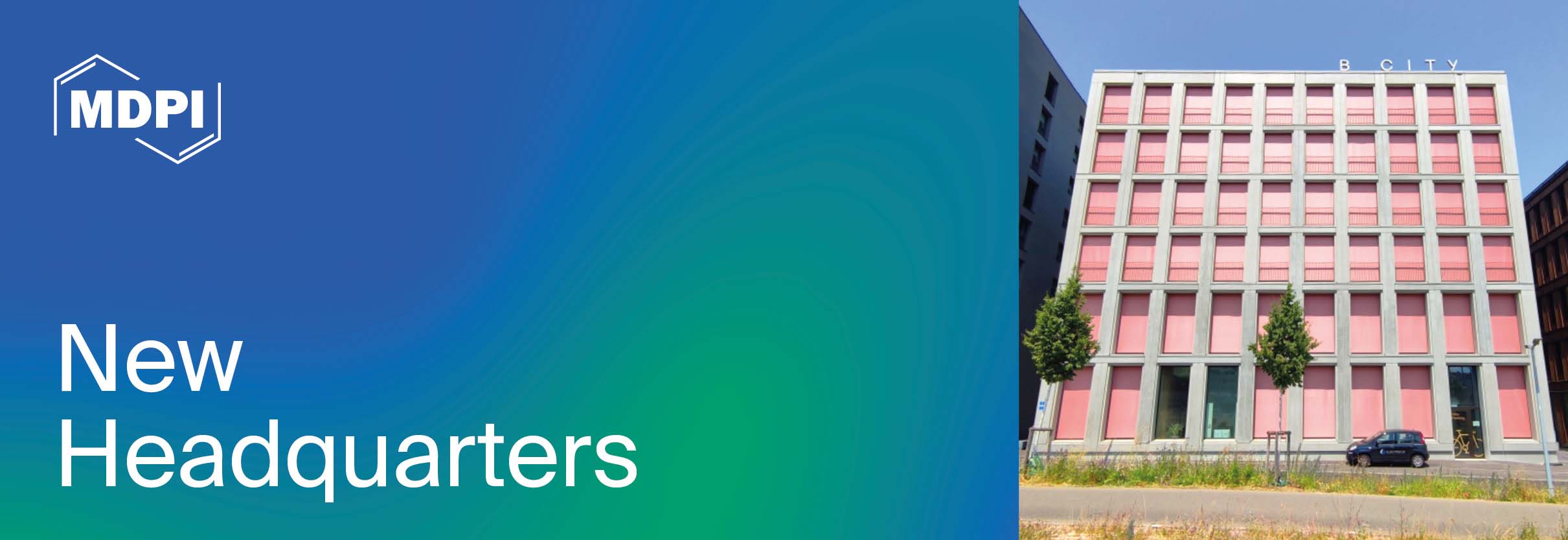
MDPI Moves to New Headquarters in Basel, Switzerland

I am excited to share that MDPI has moved to a new state-of-the-art office space in Basel, Switzerland. This move consolidates our operations by bringing together our two previously separated Basel offices into one central location.
We are always growing our talent pool and encourage you to view our Careers Page for the positions available in Basel and across our offices.
New Address: Grosspeteranlage 5, CH-4052 Basel, Switzerland
Effective Date: 1 July 2024
This new chapter in our company’s journey is designed to continue our mission of positioning MDPI as a leader in Open Access (OA) publishing, highlighting our commitment to making scholarly research accessible to everyone.

Boasting modern amenities, improved meeting and event spaces designed to support our growing needs, the new location provides a more collaborative and efficient working environment for our employees. The location offers convenient accessibility to public transportation and is situated near the Basel SBB railway station, with a variety of nearby services and amenities.
In fact, I can see the trains right outside of my window as I write these lines!
This move marks an exciting milestone in MDPI’s development, and I am confident that the new headquarters will serve as an inspiring and productive space for everyone. We also very much look forward to welcoming visitors here. You can read more about MDPI's history here.
“This new chapter continues our mission of positioning MDPI as a leader in OA publishing”
For Those New to MDPI
A pioneer in scholarly, Open Access publishing, MDPI has supported academic communities since 1996. MDPI is leading the transition to Open Science by making a greater proportion of the research conducted worldwide free and accessible to everyone. To date, over 3.5 million researchers have entrusted MDPI with publishing their scientific discoveries. MDPI’s editorial process is bolstered by a network of dedicated reviewers, a team of 6,000 professional, well-trained staff members, and an in-house article submission platform designed to ensure efficient processes within its 440 fully Open Access titles. MDPI supports more than 800 academic institutions worldwide, helping them adhere to national mandates while facilitating authors’ publication in fully compliant (CC BY) Open Access journals.
Impactful Research
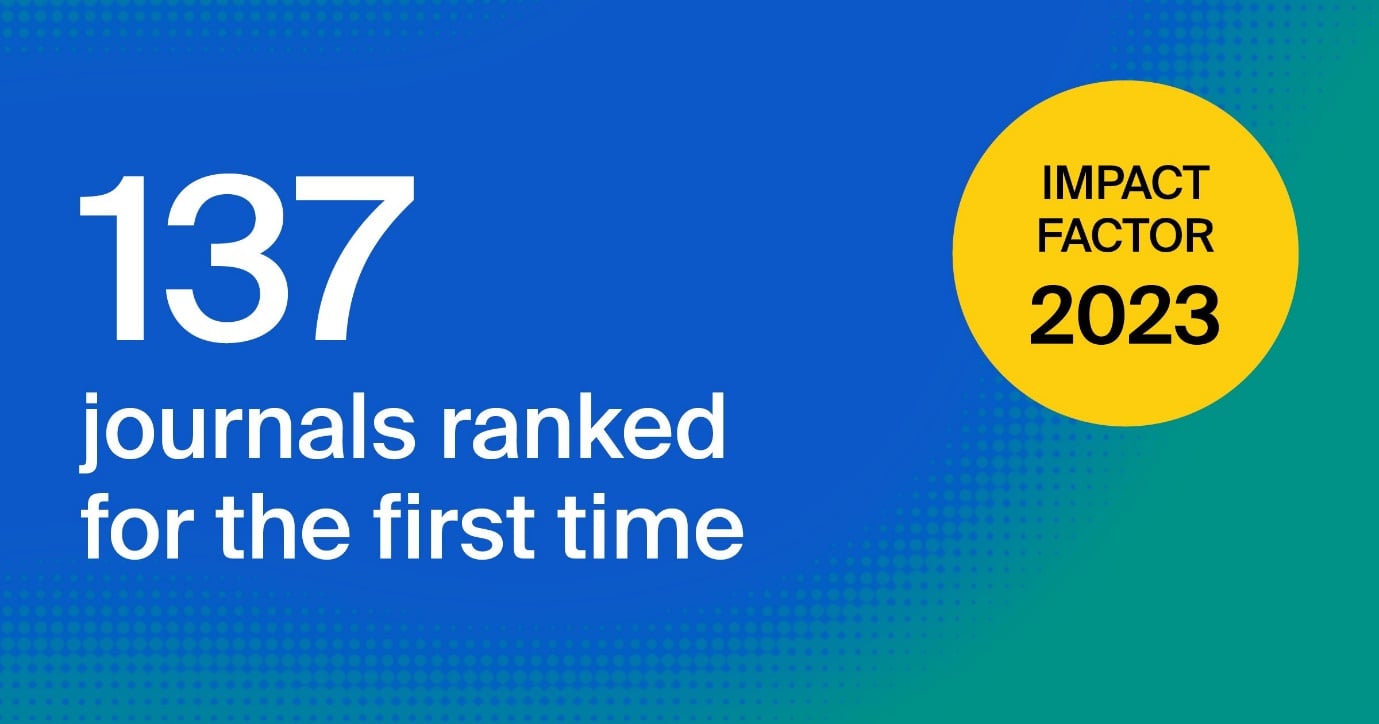
New and Emerging MDPI Journals Making an Immediate Impact
Unpacking some of the Impact Factor updates from the June CEO Letter, I wanted to dive a little deeper into the 137 MDPI journals which received Impact Factor for the first time.
Academic authors highly value efficient publishing processes, robust editorial support, and the opportunity to publish in high-impact journals. We are proud that our newly launched journals typically achieve coverage in the Emerging Sources Citation Index (ESCI) of the Web of Science within just a few years, with a median time of only three years from release to inclusion.
As part of our commitment to advancing academic research and providing high-quality OA publishing, we actively seek new research areas to expand our portfolio of journals. We have a proven track record of successfully establishing new journals.
Our dedicated teams excel in fostering dynamic editorial boards and working closely with Editors-in-Chief (EiC) to define the precise scope and focus of each new journal. Our expertise extends to collaborating with indexing services, ensuring that our journals comply with best practices and are indexed promptly in all relevant databases.
Emerging Titles Ranked for the First Time
Our commitment to excellence is reflected in the annual impact metrics released this past June. The latest edition of the Journal Citation Reports (JCR) showcases the integration of journals from the ESCI in the new unified category rankings, providing a simplified and more complete view of all journals within each subject category, including newly established titles.
Out of 137 new and developing MDPI journals ranked in the 2024 release, 79 are in the top half (Q1 or Q2) of their categories. Here is a breakdown of the number of MDPI’s ESCI-indexed journals by quartile in the JCR:
| Quartile | No. of journals |
| Q1 | 17 (12.4%) |
| Q2 | 62 (45.3%) |
| Q3 | 43 (31.4%) |
| Q4 | 15 (10.9%) |
| Not ranked (humanities-related journals) | 2 |
These rankings highlight our success in rapidly establishing high-impact new journals. Among those that made it directly into the top 25% of their category are the International Journal of Neonatal Screening, Journal of Xenobiotics, Polysaccharides, Smart Cities, and thirteen other journals.
You can browse MDPI journals by Indexing. Simply visit our Journals page and select from the list of Indexing bodies in the top left-hand corner.
Inside MDPI

MDPI Corporate Marketing Strategy and Team Meeting 2024
In July, I hosted the annual Corporate Marketing strategy and team-building activity with 15 of our team members.
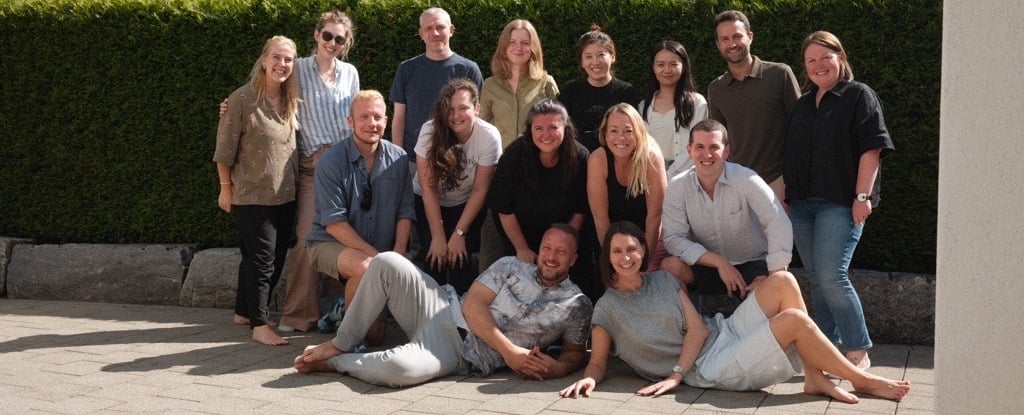
The aim was to align the Corporate Marketing strategy with MDPI's goal of becoming the world's most trusted OA publisher. While we provide a high-level publishing experience for our authors, as seen from our surveys, we need to keep building on our transparent and open communication to foster trust within the scholarly community and continue enhancing our reputation.
The Corporate Marketing team plays an important role as the mouthpiece for all our major activities within MDPI, especially those that model what it means to be a trusted partner. The purpose of the strategy meeting was to develop a feeling of trust in one another and an understanding of how to inspire trust in the stakeholders with whom we interact.
“We need to keep building on our transparent and open communication to foster trust within the scholarly community”

We conducted a set of activities to facilitate that sense of mutual trust and trustworthiness. Examples of some activities we worked on during this strategy-building event include:
- Exploring what trust means
- ‘Letter to self’
- ‘The brand I most trust’
- Most Trusted Academic Publisher
- ‘The brand I would like MDPI to become’
- ‘The 2029 MDPI Annual Report’
- Voice of Customer and Share of Voice – survey/data update on MDPI Brand Experience and Brand Perception
- Integrate Trust-Based Objective into Marketing Plan
- ‘Becoming the MDPI experience’
- ‘Trusting the next steps’
While two days is not enough to finalize a marketing strategy, it is sufficient to get everyone who attended into the mindset of the direction in which we are working. From here, we will develop a program with next steps on main projects, update communications, and collaborate with team leads to incorporate this approach into our work going forward.
As a marketing team, we can communicate our messages, but trust has to be built at every touchpoint in the stakeholder journey. Just talking about it isn’t enough. We need to be about it. That’s a role each of us plays, from editorial to IT, from marketing to HR. We must build trust from the inside out. It starts with each manager and resonates out via every team member.
As a company, our goal is to give all stakeholders with whom we interact – whether internal or external – the experience of working with an organization it can trust.
Coming Together for Science
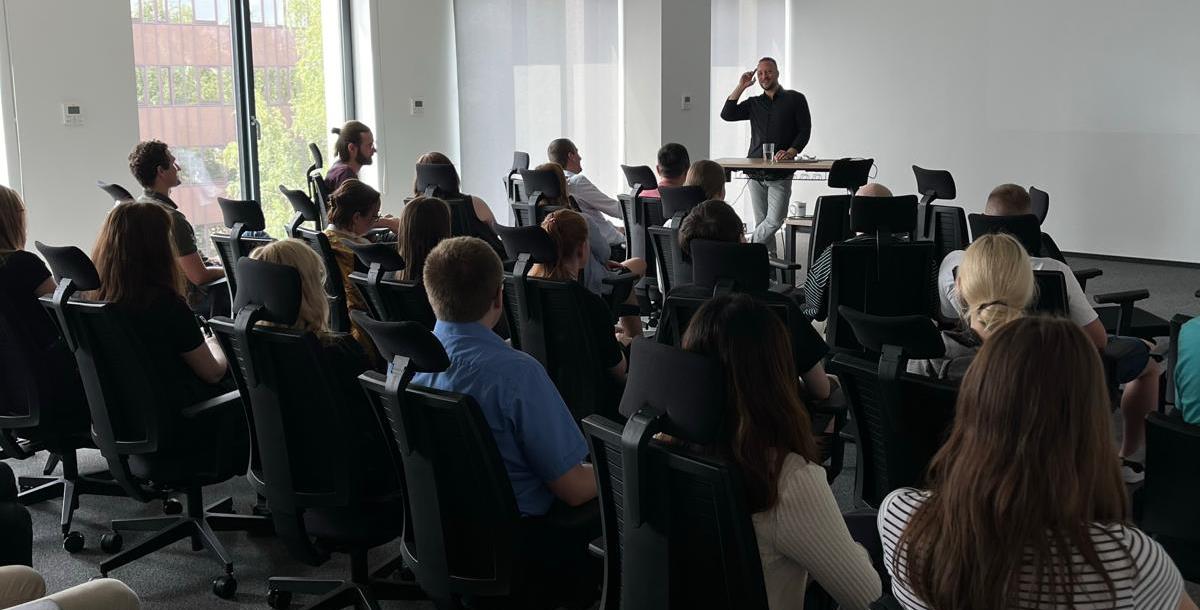
MDPI in Poland: Krakow Office
In July, I had the pleasure of visiting our Krakow office, following my recent trip to Warsaw to meet with the Polish Ministry of Science and Higher Education.
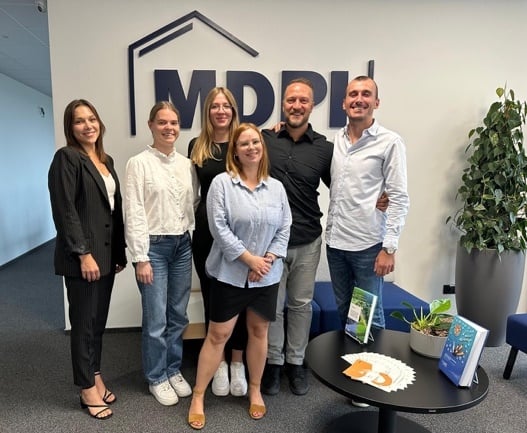
During these visits, I prioritized meeting with our Office Manager, Editorial Director, Group Leads, and members from various teams, including editorial, production, marketing, and journal relationship specialists, to understand their roles and current challenges. Instead of a formal presentation, I opted for an open discussion, sharing updates from headquarters to engage with colleagues in a more personal way.
Our Krakow office has many things to be proud of, including a large number of PhD colleagues (over a third of its staff holds a PhD degree). Krakow provides an opportunity for expanding beyond the 100 colleagues we currently have, by adding new hires in departments including editorial, production and marketing, among others.
About our Krakow office
- Opened in 2020
- 99 staff members as at 1 August 2024
- Main Departments include Editorial, Production, English Department, JRS, PR
Our Krakow office participates in international conferences, conducts author trainings and scholar visits, and engages in local market outreach. The office is also a member of the Polish Chamber of Commerce for High Technology (IZTECH) and is working on expanding its local engagement.
Krakow is the second-largest city in Poland, with a population of about 800,000. It also has a large student population of around 128,000, with seven universities. This means that roughly one in every eight residents is a student.
Poland and MDPI
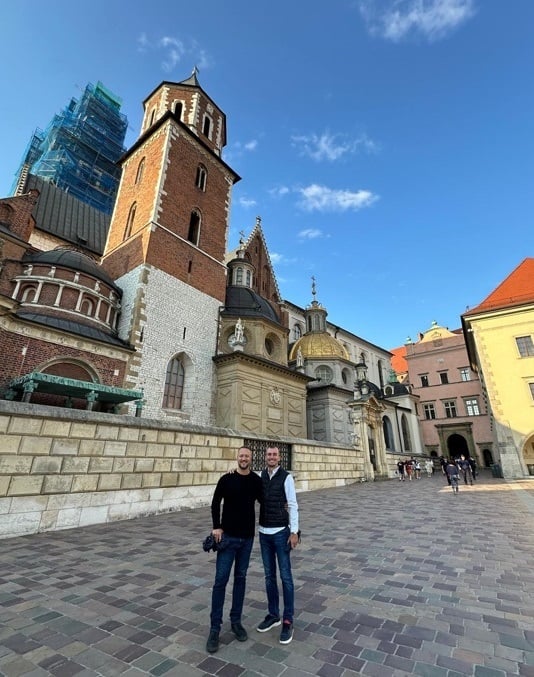
Poland is a crucial market for MDPI. From 2020 to June 2024, Poland ranked 7th in submissions and 5th in publications for MDPI research articles. As at 31 July 2024, Poland ranks 7th in total MDPI publications, with approximately 70,000 research papers.
Between 2020 and June 2024, 61,500 authors from Poland published with MDPI. As at 30 June 2024, there are 1,205 active Editorial Board Members (EBMs) from Poland, with 661 EBMs (55% of the total) having an H-index over 25.
We also have four Editors-in-Chief (EiC) from Poland leading our journals: Coatings, Venereology, Advances in Respiratory Medicine, and Limnological Review, along with six Section EiC.
In 2023, we received approximately 21,000 submissions from Polish-affiliated authors, of which 12,032 were published.
“Poland is a crucial market for MDPI”
Meeting with Ministry of Education
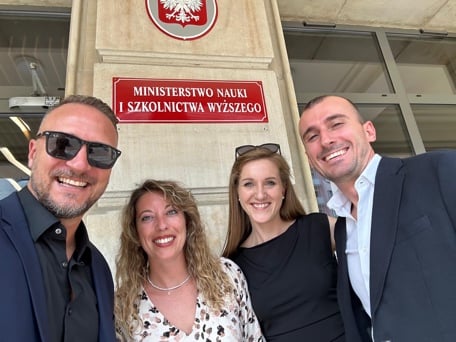
On 22 July, we visited Warsaw to meet with the Polish Ministry of Science and Higher Education.
We were pleased to learn that they are strong supporters of the OA publishing model and value MDPI’s approach to the peer-review process, including our high ethical standards for quality control.
In 2023 Polish authors predominantly published their papers in OA, with MDPI holding the largest market share in OA publications within the country.
Our commitment to collaborating with Polish institutions is evident through our 33 Institutional Open Access Program (IOAP) agreements with prestigious institutions such as the University of Warsaw, the University of Wroclaw, the Jagiellonian University, and Gdańsk University of Technology. Through IOAP discounts, a healthy waiver rate, and our peer-review voucher system, we provide the Polish scholarly community with significant savings in OA publishing. The Minister greatly appreciated these efforts and our commitment to offsetting some of the APC costs.
We discussed industry concerns about the threat of papermills and presented the preventive measures MDPI has in place to mitigate this risk and uphold high ethical standards. We informed them of our commitment to combating papermills, including our involvement with United2Act and the STM Research Integrity Hub, as well as our efforts to expand our research integrity team and explore proactive measures.
Closing Thoughts

MDPI Thought Leadership Op-ed on Open Access is Now Live on Politico
I am pleased to share that our thought leadership Op-ed piece on Open Access (OA) is now live on Politico. This is a nice push for continued influence and support of OA among policymakers and industry leaders.
Why Politico?
Politico's reputation as a highly credible and influential news platform makes it an important venue to reach key opinion leaders (KOL) from academia, policymakers, and thought leaders from many industries. This visibility helps promote the OA philosophy.
Open Access: A Moral Imperative for Progress
In this piece, I discuss the necessity of making scientific research freely available to all. I argue that publicly funded research should be publicly accessible, highlighting how OA democratizes scientific knowledge, accelerates research availability, and fosters collaboration.
“Open Access is a fundamental right for all citizens”
Democratizing scientific communication
The impulse to democratize scientific communication is nothing new. OA may seem like a recent innovation, but its principles have historical roots traceable to Europe in the 15th century. Just as the printing revolution accelerated the dissemination of new ideas, OA publishing unlocks new scientific insights that would otherwise only be accessible to a few.
Benefits for scholars: amplifying impact through Open Access
Authors publishing in an OA journal can expect more citations of their work, increasing its potential impact. Research findings that are freely available are more likely to be cited than those hidden behind a paywall. Freedom of access greatly increases the potential audience for each paper, fostering a sense of community among researchers worldwide. Heightened visibility can attract prospective collaborators and employers for young scientists. At MDPI, we believe that all these factors can only accelerate the advance of science. Additionally, authors retain copyright in their work instead of signing it away, permitting broader dissemination under Creative Commons licenses and increasing its capacity for impact.
The moral imperative
OA is not just a matter of scientific policy; it is a fundamental right for all citizens and a prerequisite for a brighter, more informed future. Publicly funded research should be a top priority, and I am pleased to see policy moving in this direction. Our capacity to generate transformative scientific insights has to be democratized. The question today is no longer whether we can afford to embrace OA; rather, it is whether we can afford not to.
Chief Executive Officer
MDPI AG
6 August 2024
Meet Us at the Materials Science and Engineering Congress 2024, 24–26 September 2024, Darmstadt, Germany

MDPI will be attending the Materials Science and Engineering Congress 2024, which will be held from 24 to 26 September 2024 in Darmstadt, Germany. This event is organized by the German Society for Materials Science (DGM), which is the largest scientific and technical society in the field of materials science and engineering in Germany.
The areas of focus for the conference include the following:
- Biomaterials;
- Characterization;
- Digital transformation;
- Functional materials, surfaces and devices;
- Circular materials;
- Modeling and simulation;
- Processing and synthesis;
- Structural materials.
The following MDPI journals will be represented at the conference:
- Materials;
- Molecules;
- Polymers;
- Inorganics;
- Symmetry;
- Membranes;
- Crystals;
- Bioengineering;
- Surfaces;
- JFB;
- Metals;
- Micromachines;
- Polysaccharides;
- Chemistry;
- Compounds;
- Organics;
- Macromol;
- Solids;
- Catalysts.
If you are planning to attend the above conference, please feel free to stop by our booth. Our delegates look forward to meeting you in person to answer any questions that you may have. For more information about the conference, please visit the following link: https://dgm.de/mse/2024/.
2 August 2024
MDPI Romania Author Training Sessions in May
In May, MDPI Romania held three author training sessions – one endorsing an external event and two stand-alone sessions.
The National Session of Scientific Student Communications took place at Technical University Cluj on 17 and 18 May 2024. MDPI Romania sponsored this event and contributed an author training session on the production of research papers and case study analyses. JRS Norbert Kiss gave a presentation called The World of Open Access to explain different open access publishing models and the benefits of open access publishing. His presentation highlighted the impact of open access publishing on scientific progress and innovation.
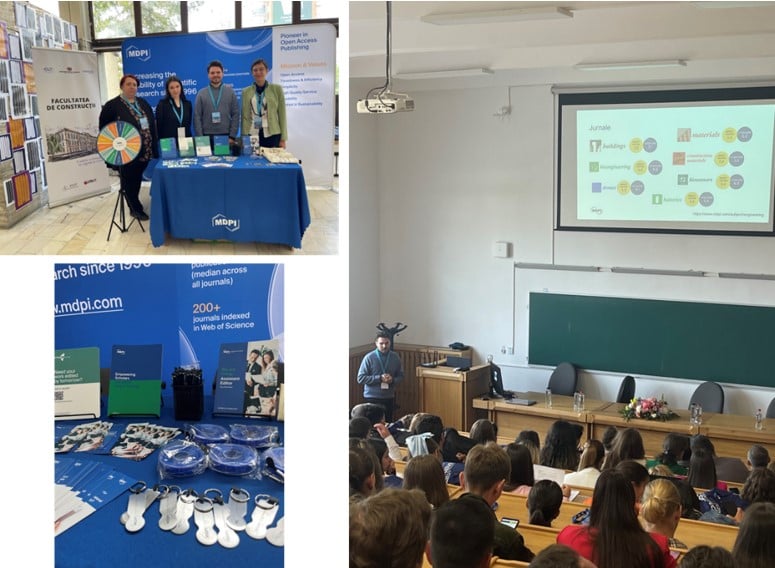
On 29 May 2024, MDPI Romania hosted an author training session for Ph.D. students, early career researchers, and professors at the Carol Davila University of Medicine and Pharmacy. In collaboration with Prof. Andreea Arsene, JRS Ioana Paunescu prepared two presentations: The Steps of the Publishing Process and Elaboration of a Peer Review Report. In her first presentation, she delved into MDPI’s history and mission, MDPI’s editorial process, and MDPI journals of various scopes that are accepting submissions. Her second presentation outlined the types of peer review, the contents of a peer review report by an MDPI reviewer, and the responsibilities of an MDPI reviewer.
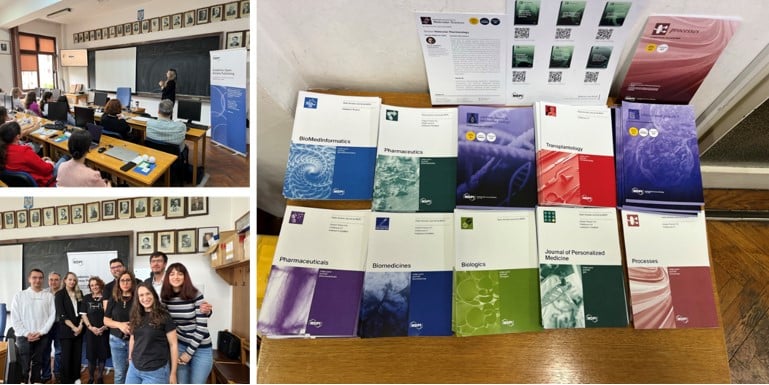
MDPI Romania also hosted an author training session at the Iasi University of Life Sciences on 29 May 2024. JRSs Laurentiu Preda and Cosmin Artan gave four presentations: Efficient Writing of an ISI-Indexed Scientific Article, Benefits of Publishing in the Open Access Model, Various Methods of Open Access Publishing, and MDPI Guide for the Article Review Process. The first three presentations offered guidance on how to improve academic writing, the fourth focused on how to write peer review reports. A highly interactive discussion followed the presentations, during which the JRSs provided extensive answers to attendees’ questions.
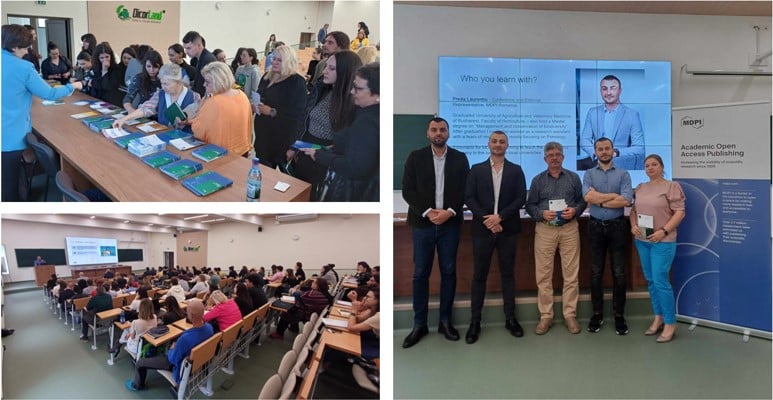
MDPI is grateful for all the attendees, speakers, and organizers involved in these events. Through their enthusiasm and dedication, these events were great successes.
18 July 2024
Meet Us at the 26th IUPAC International Conference on Physical Organic Chemistry, 18–22 August 2024, Beijing, China

MDPI will be attending the 26th IUPAC International Conference on Physical Organic Chemistry in Beijing, China, that will take place from 18 to 22 August 2024. The conference is organized by Tsinghua University, China, and the venue will be the Beijing Friendship Hotel, a prestigious location for academic conferences and events. The conference will focus on four main topics: organic structure and chemical reactivity; reaction mechanism and application; supramolecular assembly, and AI and new POC frontiers.
The following MDPI journals will be represented:
- Molecules;
- Applied Sciences;
- AppliedChem;
- Catalysts;
- Chemistry;
- Colorants;
- Foundations;
- Molbank;
- Organics;
- Reactions.
If you are participating in this conference, please feel free to contact us online prior to attendance. Our delegates look forward to meeting you in person at booth #D10 and answering any questions you may have. For more information regarding the conference, please visit the following link: https://www.icpoc26.tsinghua.edu.cn/column/home.
10 July 2024
MDPI's Newly Launched Journals in June 2024
 Five new journals covering multiple subjects have launched their inaugural issue in June 2024. We are excited to be able to share with you the newest research rooted in the value of open access.
Five new journals covering multiple subjects have launched their inaugural issue in June 2024. We are excited to be able to share with you the newest research rooted in the value of open access.
We would like to express our deepest appreciation to all the Editorial Board Members and each journal will ensure its high-quality output using excellent editorial and rigorous peer review processes, to ensure that the articles achieve high impact and visibility.
Please feel free to browse and discover more about the new journals below.
|
Journal |
Founding Editor-in-Chief |
Journal Topics (Selected) |
 |
Prof. Dr. Marco Ranucci, IRCCS Policlinico San Donato, Italy |
anaesthetic medications; blood and fluid management; pain management; critical care; critical illness | view journal scope | submit an article |
 |
Dr. Giovanni E. Cacciamani, University of Southern California, USA |
surgical/procedural complications; complications; perioperative adverse events; postoperative adverse events | view journal scope | submit an article |
 |
Prof. Dr. Gassan Hodaifa, Universidad Pablo de Olavide, Spain |
laboratory management; laboratory safety; protective equipment; laboratory problems and challenges; laboratory Innovation | view journal scope | submit an article |
 |
Prof. Dr. Jan S. Suchodolski, Texas A&M University, USA |
companion animals health and disease; veterinary care and nutrition; genetics and genomics; behavior and welfare; human-animal relations | view journal scope | submit an article |
 |
Prof. Dr. Pierfrancesco De Paola, University of Naples Federico II, Italy |
real estate appraisal; economic and financial valuation of real estate projects; sustainable real estate; housing and urban economics | view journal scope | submit an article |
We wish to thank everyone who has supported the development of open access publishing. You are welcome to send an application here, or contact the New Journal Committee ([email protected]) if you would like to create more new journals.
25 June 2024
Catalysts Receives an Increased CiteScore of 6.8

We are pleased to inform you that Catalysts (ISSN: 2073-4344) has received a heightened CiteScore of 6.8.
CiteScore provides transparent metrics that enable well-informed publishing strategy, library collection development, and the benchmarking of journal performance. It is now a standard citation metric alongside SNIP and SJR that gives an up-to-date view of a journal’s impact.
The 2023 CiteScore provides an assessment of the scientific influence of journals in the 2020 to 2023 period.
This is a reflection of the excellent performance, support, and dedication of all journal editors, reviewers, authors, and readers.
Catalysts’ CiteScore ranks as follows:
- Q1 (54 out of 233) in the “Environmental Science” category;
- Q2 (48 out of 189) in the “Chemistry” category;
- Q2 (34 out of 68) in the “Chemical Engineering” category.
For more journal statistics, please visit https://www.mdpi.com/journal/catalysts/stats.
Thank you to everyone who has contributed to the journal.
Catalysts Editorial Office
20 June 2024
2023 Impact Factors for MDPI Journals Released

MDPI is pleased to announce the inclusion of 237 journals in the 2024 release of the Journal Citation Reports (JCR) and share the key results (see above).
This year, journals covered in the Emerging Sources Citation Index (ESCI) received category ranks together with journals in the Science Citation Index Expanded (SCIE) and Social Sciences Citation Index (SSCI). Overall, 139 MDPI journals indexed in ESCI are included in the new unified rankings for the first time.
Enhanced Comparability of Data
According to Clarivate, "the creation of unified category rankings [provides] a simpler and more complete category view for the evaluation of journal performance. [...] The category-first approach simplifies journal performance assessment with a holistic view of all journals in each subject category."
We are thrilled to announce that 72% of our ranked MDPI journals (171 of 237) are above average, in Q1 or Q2. Twenty-nine of our journals received their first Impact Factor this year, accounting for more than 5% of the journals accepted into the Web of Science last year.
MDPI Journals Ranked in JCR
The following data includes all MDPI journals indexed in SCIE, SSCI, ESCI and AHCI.
|
Journal |
Impact Factor |
Rank Quartile |
Category |
|
Q3 |
Acoustics |
||
|
Q2 |
Engineering, Mechanical |
||
|
Q2 |
Instruments & Instrumentation |
||
|
Q2 |
Management |
||
|
Q3 |
Respiratory System |
||
|
Q2 |
Engineering, Aerospace |
||
|
Q1 |
Agronomy |
||
|
Q2 |
Agricultural Engineering |
||
|
Q1 |
Agronomy |
||
|
Q1 |
Plant Sciences |
||
|
Q2 |
Computer Science, Artificial Intelligence |
||
|
Q2 |
Computer Science, Interdisciplinary Applications |
||
|
Q3 |
Computer Science, Artificial Intelligence |
||
|
Q2 |
Computer Science, Theory & Methods |
||
|
Q1 |
Agriculture, Dairy & Animal Science |
||
|
Q1 |
Veterinary Sciences |
||
|
Q1 |
Infectious Diseases |
||
|
Q1 |
Pharmacology & Pharmacy |
||
|
Q3 |
Immunology |
||
|
Q1 |
Biochemistry & Molecular Biology |
||
|
Q1 |
Chemistry, Medicinal |
||
|
Q1 |
Food Science & Technology |
||
|
Q2 |
Chemistry, Multidisciplinary |
||
|
Q1 |
Engineering, Multidisciplinary |
||
|
Q3 |
Materials Science, Multidisciplinary |
||
|
Q2 |
Physics, Applied |
||
|
Q2 |
Computer Science, Information Systems |
||
|
Q2 |
Engineering, Electrical & Electronic |
||
|
Q2 |
Telecommunications |
||
|
N/A |
Humanities, Multidisciplinary |
||
|
Q3 |
Environmental Sciences |
||
|
Q3 |
Meteorology & Atmospheric Sciences |
||
|
Q3 |
Physics, Atomic, Molecular & Chemical |
||
|
Q1 |
Audiology & Speech-language Pathology |
||
|
Q1 |
Mathematics, Applied |
||
|
Q2 |
Electrochemistry |
||
|
Q2 |
Energy & Fuels |
||
|
Q2 |
Materials Science, Multidisciplinary |
||
|
Q2 |
Psychology, Multidisciplinary |
||
|
Q2 |
Food Science & Technology |
||
|
Q2 |
Computer Science, Artificial Intelligence |
||
|
Q2 |
Computer Science, Information Systems |
||
|
Q1 |
Computer Science, Theory & Methods |
||
|
Q2 |
Engineering, Biomedical |
||
|
Q1 |
Biology |
||
|
Q2 |
Biochemistry & Molecular Biology |
||
|
Q2 |
Medicine, Research & Experimental |
||
|
Q1 |
Pharmacology & Pharmacy |
||
|
Q1 |
Engineering, Multidisciplinary |
||
|
Q3 |
Materials Science, Biomaterials |
||
|
Q1 |
Biochemistry & Molecular Biology |
||
|
Q1 |
Chemistry, Analytical |
||
|
Q1 |
Instruments & Instrumentation |
||
|
Q2 |
Nanoscience & Nanotechnology |
||
|
Q3 |
Biotechnology & Applied Microbiology |
||
|
Q1 |
Ornithology |
||
|
Q3 |
Neurosciences |
||
|
Q2 |
Construction & Building Technology |
||
|
Q2 |
Engineering, Civil |
||
|
Q2 |
Materials Science, Multidisciplinary |
||
|
Q1 |
Oncology |
||
|
Q4 |
Cardiac & Cardiovascular Systems |
||
|
Q2 |
Chemistry, Physical |
||
|
Q2 |
Cell Biology |
||
|
Q1 |
Materials Science, Ceramics |
||
|
Q3 |
Materials Science, Multidisciplinary |
||
|
Q2 |
Engineering, Chemical |
||
|
Q3 |
Chemistry, Multidisciplinary |
||
|
Q2 |
Chemistry, Analytical |
||
|
Q2 |
Electrochemistry |
||
|
Q1 |
Instruments & Instrumentation |
||
|
Q2 |
Pediatrics |
||
|
Q2 |
Engineering, Environmental |
||
|
Q2 |
Environmental Sciences |
||
|
Q3 |
Green & Sustainable Science & Technology |
||
|
Q2 |
Meteorology & Atmospheric Sciences |
||
|
Q2 |
Medicine, General & Internal |
||
|
Q3 |
Clinical Neurology |
||
|
Q3 |
Neurosciences |
||
|
Q2 |
Materials Science, Coatings & Films |
||
|
Q3 |
Materials Science, Multidisciplinary |
||
|
Q2 |
Physics, Applied |
||
|
Q3 |
Chemistry, Physical |
||
|
Q2 |
Mathematics, Interdisciplinary Applications |
||
|
Q2 |
Computer Science, Interdisciplinary Applications |
||
|
Q3 |
Physics, Condensed Matter |
||
|
Q2 |
Biochemistry & Molecular Biology |
||
|
Q2 |
Dermatology |
||
|
Q3 |
Computer Science, Information Systems |
||
|
Q2 |
Computer Science, Theory & Methods |
||
|
Q2 |
Crystallography |
||
|
Q3 |
Materials Science, Multidisciplinary |
||
|
Q3 |
Biochemistry & Molecular Biology |
||
|
Q2 |
Oncology |
||
|
Q3 |
Computer Science, Information Systems |
||
|
Q2 |
Multidisciplinary Sciences |
||
|
Q2 |
Dentistry, Oral Surgery & Medicine |
||
|
Q3 |
Dermatology |
||
|
Q3 |
Endocrinology & Metabolism |
||
|
Q1 |
Medicine, General & Internal |
||
|
Q2 |
Medicine, Research & Experimental |
||
|
Q2 |
Biodiversity Conservation |
||
|
Q3 |
Ecology |
||
|
Q1 |
Remote Sensing |
||
|
Q3 |
Environmental Sciences |
||
|
Q3 |
Geosciences, Multidisciplinary |
||
|
Q3 |
Ecology |
||
|
Q3 |
Economics |
||
|
Q2 |
Economics |
||
|
Q1 |
Education & Educational Research |
||
|
Q2 |
Computer Science, Information Systems |
||
|
Q2 |
Engineering, Electrical & Electronic |
||
|
Q2 |
Physics, Applied |
||
|
Q3 |
Energy & Fuels |
||
|
Q2 |
Physics, Multidisciplinary |
||
|
Q2 |
Environmental Sciences |
||
|
Q3 |
Genetics & Heredity |
||
|
Q4 |
Critical Care Medicine |
||
|
Q4 |
Dermatology |
||
|
European Journal of Investigation in Health Psychology and Education |
Q1 |
Psychology, Clinical |
|
|
Q2 |
Biotechnology & Applied Microbiology |
||
|
Q2 |
Materials Science, Multidisciplinary |
||
|
Q2 |
Ecology |
||
|
Q1 |
Forestry |
||
|
Q2 |
Fisheries |
||
|
Q2 |
Marine & Freshwater Biology |
||
|
Q3 |
Mechanics |
||
|
Q3 |
Physics, Fluids & Plasmas |
||
|
Q1 |
Food Science & Technology |
||
|
Q2 |
Multidisciplinary Sciences |
||
|
Q1 |
Forestry |
||
|
Q1 |
Mathematics, Interdisciplinary Applications |
||
|
Q3 |
Energy & Fuels |
||
|
Q3 |
Engineering, Chemical |
||
|
Q2 |
Computer Science, Information Systems |
||
|
Q2 |
Astronomy & Astrophysics |
||
|
Q4 |
Economics |
||
|
Q4 |
Mathematics, Interdisciplinary Applications |
||
|
Q4 |
Social Sciences, Mathematical Methods |
||
|
Q3 |
Gastroenterology & Hepatology |
||
|
Q4 |
Gastroenterology & Hepatology |
||
|
Q1 |
Polymer Science |
||
|
Q3 |
Ethnic Studies |
||
|
Q4 |
Family Studies |
||
|
Q3 |
Sociology |
||
|
Q2 |
Genetics & Heredity |
||
|
Q2 |
Geosciences, Multidisciplinary |
||
|
Q3 |
Geriatrics & Gerontology |
||
|
Q2 |
Health Care Sciences & Services |
||
|
Q2 |
Health Policy & Services |
||
|
Q4 |
Hematology |
||
|
Q4 |
Hematology |
||
|
N/A |
Humanities, Multidisciplinary |
||
|
Q2 |
Multidisciplinary Sciences |
||
|
Q1 |
Horticulture |
||
|
N/A |
Humanities, Multidisciplinary |
||
|
Q2 |
Water Resources |
||
|
Q4 |
Immunology |
||
|
Q2 |
Infectious Diseases |
||
|
Q2 |
Computer Science, Interdisciplinary Applications |
||
|
Q3 |
Computer Science, Information Systems |
||
|
Q2 |
Construction & Building Technology |
||
|
Q2 |
Engineering, Civil |
||
|
Q2 |
Transportation Science & Technology |
||
|
Q2 |
Chemistry, Inorganic & Nuclear |
||
|
Q1 |
Entomology |
||
|
Q2 |
Business, Finance |
||
|
Q1 |
Biochemistry & Molecular Biology |
||
|
Q2 |
Chemistry, Multidisciplinary |
||
|
Q1 |
Genetics & Heredity |
||
|
Q1 |
Pediatrics |
||
|
International Journal of Turbomachinery Propulsion and Power |
Q2 |
Engineering, Aerospace |
|
|
Q3 |
Engineering, Mechanical |
||
|
Q2 |
Engineering, Multidisciplinary |
||
|
Q2 |
Computer Science, Information Systems |
||
|
Q2 |
Geography, Physical |
||
|
Q2 |
Remote Sensing |
||
|
Q2 |
Cardiac & Cardiovascular Systems |
||
|
Q1 |
Medicine, General & Internal |
||
|
Q2 |
Materials Science, Composites |
||
|
Q3 |
Developmental Biology |
||
|
Q1 |
Engineering, Biomedical |
||
|
Q2 |
Materials Science, Biomaterials |
||
|
Q1 |
Sport Sciences |
||
|
Q2 |
Microbiology |
||
|
Q1 |
Mycology |
||
|
Q3 |
Imaging Science & Photographic Technology |
||
|
Q1 |
Psychology, Multidisciplinary |
||
|
Q3 |
Engineering, Electrical & Electronic |
||
|
Q2 |
Engineering, Manufacturing |
||
|
Q1 |
Engineering, Mechanical |
||
|
Q2 |
Materials Science, Multidisciplinary |
||
|
Q1 |
Engineering, Marine |
||
|
Q2 |
Engineering, Ocean |
||
|
Q2 |
Oceanography |
||
|
Q2 |
Health Care Sciences & Services |
||
|
Q1 |
Medicine, General & Internal |
||
|
Q2 |
Computer Science, Information Systems |
||
|
Q2 |
Telecommunications |
||
|
Journal of Theoretical and Applied Electronic Commerce Research |
Q1 |
Business |
|
|
Q1 |
Toxicology |
||
|
Q2 |
Biodiversity Conservation |
||
|
Q2 |
Communication |
||
|
Q2 |
Environmental Studies |
||
|
N/A |
Language & Linguistics |
||
|
Q2 |
Linguistics |
||
|
Q1 |
Law |
||
|
Q1 |
Biology |
||
|
Q2 |
Management |
||
|
Q2 |
Operations Research & Management Science |
||
|
Q2 |
Engineering, Mechanical |
||
|
Q2 |
Computer Science, Artificial Intelligence |
||
|
Q2 |
Computer Science, Interdisciplinary Applications |
||
|
Q2 |
Engineering, Electrical & Electronic |
||
|
Q3 |
Engineering, Electrical & Electronic |
||
|
Q2 |
Engineering, Mechanical |
||
|
Q2 |
Chemistry, Inorganic & Nuclear |
||
|
Q3 |
Chemistry, Physical |
||
|
Q3 |
Materials Science, Multidisciplinary |
||
|
Q1 |
Chemistry, Medicinal |
||
|
Q1 |
Pharmacology & Pharmacy |
||
|
Q3 |
Chemistry, Physical |
||
|
Q2 |
Materials Science, Multidisciplinary |
||
|
Q1 |
Metallurgy & Metallurgical Engineering |
||
|
Q2 |
Physics, Applied |
||
|
Q2 |
Physics, Condensed Matter |
||
|
Q2 |
Mathematics, Interdisciplinary Applications |
||
|
Q1 |
Mathematics |
||
|
Q1 |
Medicine, General & Internal |
||
|
Q2 |
Chemistry, Physical |
||
|
Q2 |
Engineering, Chemical |
||
|
Q2 |
Materials Science, Multidisciplinary |
||
|
Q2 |
Polymer Science |
||
|
Q2 |
Biochemistry & Molecular Biology |
||
|
Q3 |
Materials Science, Multidisciplinary |
||
|
Q2 |
Metallurgy & Metallurgical Engineering |
||
|
Q3 |
Biochemical Research Methods |
||
|
Q3 |
Microbiology |
||
|
Q2 |
Chemistry, Analytical |
||
|
Q2 |
Instruments & Instrumentation |
||
|
Q3 |
Nanoscience & Nanotechnology |
||
|
Q2 |
Physics, Applied |
||
|
Q2 |
Microbiology |
||
|
Q2 |
Geochemistry & Geophysics |
||
|
Q2 |
Mineralogy |
||
|
Q2 |
Mining & Mineral Processing |
||
|
Q3 |
Engineering, Multidisciplinary |
||
|
Q4 |
Chemistry, Organic |
||
|
Q2 |
Biochemistry & Molecular Biology |
||
|
Q2 |
Chemistry, Multidisciplinary |
||
|
Q3 |
Computer Science, Artificial Intelligence |
||
|
Q2 |
Computer Science, Cybernetics |
||
|
Q3 |
Computer Science, Information Systems |
||
|
Q2 |
Chemistry, Multidisciplinary |
||
|
Q2 |
Materials Science, Multidisciplinary |
||
|
Q2 |
Nanoscience & Nanotechnology |
||
|
Q2 |
Physics, Applied |
||
|
Q2 |
Clinical Neurology |
||
|
Q3 |
Clinical Neurology |
||
|
Q4 |
Neurosciences |
||
|
Q4 |
Environmental Sciences |
||
|
Q2 |
Biochemistry & Molecular Biology |
||
|
Q2 |
Genetics & Heredity |
||
|
Q1 |
Nursing |
||
|
Q1 |
Nutrition & Dietetics |
||
|
Q3 |
Marine & Freshwater Biology |
||
|
Q3 |
Oceanography |
||
|
Q4 |
Optics |
||
|
Q3 |
Chemistry, Organic |
||
|
Q3 |
Astronomy & Astrophysics |
||
|
Q2 |
Physics, Nuclear |
||
|
Q3 |
Physics, Particles & Fields |
||
|
Q2 |
Microbiology |
||
|
Q2 |
Pathology |
||
|
Q3 |
Pediatrics |
||
|
Q2 |
Chemistry, Medicinal |
||
|
Q1 |
Pharmacology & Pharmacy |
||
|
Q1 |
Pharmacology & Pharmacy |
||
|
Q3 |
Pharmacology & Pharmacy |
||
|
Q2 |
History & Philosophy of Science |
||
|
N/A |
Philosophy |
||
|
Q2 |
Optics |
||
|
Q2 |
Physics, Multidisciplinary |
||
|
Q1 |
Plant Sciences |
||
|
Q3 |
Physics, Fluids & Plasmas |
||
|
Q1 |
Polymer Science |
||
|
Q1 |
Polymer Science |
||
|
Q2 |
Engineering, Chemical |
||
|
Q4 |
Materials Science, Biomaterials |
||
|
Q2 |
Biochemistry & Molecular Biology |
||
|
Q4 |
Psychiatry |
||
|
Q1 |
Information Science & Library Science |
||
|
Q3 |
Instruments & Instrumentation |
||
|
Q3 |
Materials Science, Characterization & Testing |
||
|
Q4 |
Quantum Science & Technology |
||
|
Q2 |
Geosciences, Multidisciplinary |
||
|
Q3 |
Chemistry, Multidisciplinary |
||
|
Q2 |
Green & Sustainable Science & Technology |
||
|
N/A |
Religion |
||
|
Q2 |
Environmental Sciences |
||
|
Q1 |
Geosciences, Multidisciplinary |
||
|
Q2 |
Imaging Science & Photographic Technology |
||
|
Q2 |
Remote Sensing |
||
|
Q3 |
Medicine, General & Internal |
||
|
Q4 |
Obstetrics & Gynecology |
||
|
Q4 |
Reproductive Biology |
||
|
Q2 |
Environmental Sciences |
||
|
Q3 |
Green & Sustainable Science & Technology |
||
|
Q2 |
Business, Finance |
||
|
Q2 |
Robotics |
||
|
Q3 |
Public, Environmental & Occupational Health |
||
|
Q3 |
Pharmacology & Pharmacy |
||
|
Q2 |
Chemistry, Analytical |
||
|
Q2 |
Engineering, Electrical & Electronic |
||
|
Q2 |
Instruments & Instrumentation |
||
|
Q3 |
Chemistry, Analytical |
||
|
Q2 |
Medicine, General & Internal |
||
|
Q3 |
Psychology, Multidisciplinary |
||
|
Q2 |
Social Sciences, Interdisciplinary |
||
|
Q2 |
Womens Studies |
||
|
Q1 |
Engineering, Electrical & Electronic |
||
|
Q1 |
Urban Studies |
||
|
Q2 |
Social Sciences, Interdisciplinary |
||
|
Q2 |
Sociology |
||
|
Q2 |
Soil Science |
||
|
Q3 |
Chemistry, Physical |
||
|
Q3 |
Materials Science, Multidisciplinary |
||
|
Q2 |
Sport Sciences |
||
|
Q4 |
Mathematics, Interdisciplinary Applications |
||
|
Q3 |
Statistics & Probability |
||
|
Q3 |
Chemistry, Physical |
||
|
Q3 |
Materials Science, Multidisciplinary |
||
|
Q4 |
Surgery |
||
|
Q2 |
Environmental Sciences |
||
|
Q2 |
Environmental Studies |
||
|
Q3 |
Green & Sustainable Science & Technology |
||
|
Q2 |
Multidisciplinary Sciences |
||
|
Q1 |
Social Sciences, Interdisciplinary |
||
|
Q1 |
Engineering, Multidisciplinary |
||
|
Q3 |
Telecommunications |
||
|
Q4 |
Hematology |
||
|
Q2 |
Radiology, Nuclear Medicine & Medical Imaging |
||
|
Q2 |
Environmental Sciences |
||
|
Q1 |
Toxicology |
||
|
Q2 |
Food Science & Technology |
||
|
Q1 |
Toxicology |
||
|
Q2 |
Infectious Diseases |
||
|
Q2 |
Parasitology |
||
|
Q1 |
Tropical Medicine |
||
|
Q2 |
Astronomy & Astrophysics |
||
|
Q2 |
Physics, Particles & Fields |
||
|
Q3 |
Environmental Sciences |
||
|
Q3 |
Environmental Studies |
||
|
Q2 |
Geography |
||
|
Q3 |
Regional & Urban Planning |
||
|
Q2 |
Urban Studies |
||
|
Q1 |
Immunology |
||
|
Q1 |
Medicine, Research & Experimental |
||
|
Q2 |
Engineering, Mechanical |
||
|
Q2 |
Transportation Science & Technology |
||
|
Q2 |
Veterinary Sciences |
||
|
Q3 |
Engineering, Mechanical |
||
|
Q3 |
Mechanics |
||
|
Q2 |
Virology |
||
|
Q2 |
Environmental Sciences |
||
|
Q2 |
Water Resources |
||
|
Q2 |
Economics |
||
|
Q2 |
Political Science |
||
|
Q1 |
Social Sciences, Interdisciplinary |
||
|
Q2 |
Engineering, Electrical & Electronic |
||
|
Q2 |
Transportation Science & Technology |
Source: 2023 Journal Impact Factors, Journal Citation Reports TM (Clarivate, 2024)
About MDPI
A pioneer in scholarly, open access publishing, MDPI has supported academic communities since 1996. MDPI is leading the transition to open science by making more research free and accessible to everyone. Over 3.5 million researchers have entrusted MDPI with publishing their scientific discoveries. MDPI’s editorial process is bolstered by a network of dedicated reviewers, a team of 6000 professional, well-trained staff members, and an in-house article submission platform that was designed to ensure efficient processes within its 440 fully open access titles.
17 June 2024
Meet Us at the China Materials Conference 2024, 8–11 July 2024, Guangzhou, China

The China Materials Conference 2024 will be held from 8 to 11 July 2024 in Guangzhou, China. The conference was hosted by the Chinese Materials Research Society and co-hosted by the European Materials Research Society.
The areas of focus for the conference include the following:
- Energy materials;
- Environmental materials;
- Advanced structural materials;
- Functional materials;
- Material design, preparation and evaluation;
- Others.
The following MDPI journals will be represented at the conference:
- Materials;
- Nanomaterials;
- Symmetry;
- Fibers;
- Coatings;
- Catalysts;
- Inorganics;
- Nanoenergy Advances;
- Membranes;
- Journal of Composites Science;
- Crystals;
- Gels;
- C;
- Metals;
- Ceramics;
- Alloys;
- Polymers.
If you are planning to attend the above conference, please feel free to start an online conversation with us. Our delegates look forward to meeting you and answering any questions that you may have. Our booth number is #2258, located on the first floor of Baiyun International Hall Phase II.
For more information about the conference, please visit the following link: https://cmc2024.scimeeting.cn/cn/web/index/.
7 June 2024
MDPI Calls for Greater Open Access to Science for Ocean Protection
On UNESCO’s 2024 Oceans Day, MDPI encourages the scientific community to increase the accessibility of ocean research to accelerate ocean conservation.
Basel, Switzerland, June 7, 2024: MDPI, a leading open access (OA) publisher, is proud to announce its active support for World Oceans Day 2024, celebrated under UNESCO’s Ocean Decade framework. MDPI’s CEO, Stefan Tochev hopes that “the latest ocean research can be made freely accessible to help empower scientists and communities at large to save our oceans,” under UNESCO’s Ocean Decade until 2030.
Open Access: A Catalyst for Ocean Action
MDPI’s presence at the UNESCO Ocean Decade Conference 2024 highlights our unwavering commitment to using OA to advance ocean science, support research communities, and promote sustainable ocean management.
"Our involvement in the UNESCO Ocean Decade Conference underscores MDPI's commitment to the underfunded Ocean SDG. By promoting OA to scientific articles and books on SDGs, we aim to inspire critical actions," said Tochev. "Our initiatives, like the World Sustainability Award and Emerging Sustainability Award, further demonstrate our dedication to advancing sustainability.”
Showcasing MDPI’s Contributions to Ocean Research
Over the past three years, MDPI has published 30,000 papers focused on ocean research and related topics. Key MDPI journals contributing to this body of work include:
- Journal of Marine Science and Engineering (4.9k papers)
- Remote Sensing (2.6k papers)
- Sustainability (2k papers)
- International Journal of Molecular Sciences (IJMS) (1.7k papers)
- Marine Drugs (1.5k papers)
- Water (1.5k papers)
These publications highlight MDPI’s contributions to ocean science, reinforcing our role in the broader sustainability agenda by promoting blue innovation and economy.
Additionally, MDPI has launched Oceans, an international, peer-reviewed forum specifically aimed at publishing studies related to all branches of oceanography with an emphasis on the functioning of the ocean and the sustainable use of its resources and ecosystem services.
Affirming MDPI’s Commitment to Ocean Science
MDPI’s commitment to OA is pivotal in addressing critical global challenges, from climate change to ocean sustainability. Our efforts resonate with Outcome 4 of the UNESCO Ocean Decade action roadmap: an accessible ocean with open and equitable access to data, information, technology, and innovation. By aligning with UNESCO’s goals, MDPI continues to contribute to shaping a sustainable future for our oceans, reinforcing our position as a forward-thinking publisher dedicated to environmental stewardship and scientific excellence.
For more information, contact Rui Duarte at [email protected] or +41764313242.
About MDPI
A pioneer in scholarly, open access publishing, MDPI has supported academic communities since 1996. MDPI is leading the transition to open science by making more research free and accessible to everyone. Over 3.5 million researchers have entrusted MDPI with publishing their scientific discoveries. MDPI’s editorial process is bolstered by a network of dedicated reviewers, a team of over 6000 professional, well-trained staff members, and an in-house article submission platform that was designed to ensure efficient processes within its 430 fully open access titles.
5 June 2024
MDPI Sets a New Benchmark for Publishing Excellence

95% of authors rate MDPI’s publication process as excellent or good, setting a new benchmark in scientific publishing – reveals 2023 Annual Report.
Basel, Switzerland, June 4, 2024: MDPI, the leading open access (OA) publisher, proudly announces the release of its 2023 Annual Report, detailing remarkable achievements and reaffirming its leadership in advancing OA publishing. In 2023, MDPI received 655,065 submissions, of which 285,244 articles were published. The company now commands a 17% market share in gold open access articles, with a median publication time of six weeks.
Stefan Tochev, MDPI's CEO, stated, "As a pioneer in open access publishing, MDPI has long been a game-changer in the scholarly community, serving millions of authors around the world to ensure the latest research is freely available. Reflecting on our incredible journey at MDPI, 2023 has been marked by growth in paper submissions, ambitious projects and initiatives aimed at improving our internal processes and delivering top-notch services to our scientists."
MDPI's 2023 Annual Report highlights several key achievements:
- 17% market share in gold open access articles across all disciplines.
- Record satisfaction rates: 95% of authors, 82% of reviewers, and 85% of guest editors.
- Enhanced editorial standards and feedback processes.
- Increased reach and impact with 54 new MDPI journal inclusions in Scopus, 29 in Web of Science, and 77 in DOAJ.
MDPI’s unwavering commitment to advancing OA has transformed the landscape of scholarly publishing, making high-quality research freely accessible to the global scientific community. The continuous improvement in our editorial standards and feedback processes underscores MDPI’s dedication to ensuring academic integrity and excellence.
Global Reach and Collaboration
MDPI’s global footprint continues to expand, with authors from diverse regions: 37% from Asia/Pacific, 36% from Europe, 15% from the Americas, and 12% from other parts of the world. The company’s fully OA platform attracted nearly 14 million monthly visitors in 2023, reflecting its widespread influence in the scientific community.
Commitment to Partnerships
With over 800 institutional partners, MDPI continues to demonstrate its dedication to providing reliable and collaborative publishing services. The introduction of a transparent flat-fee model highlights MDPI's ongoing efforts to enhance affordability and support to the academic community. For more details read our 2023 Annual Report.
For more information, contact Rui Duarte at [email protected] or +41764313242.
About MDPI
A pioneer in scholarly, open access publishing, MDPI has supported academic communities since 1996. MDPI is leading the transition to open science by making more research free and accessible to everyone. Over 3.5 million researchers have entrusted MDPI with publishing their scientific discoveries. MDPI’s editorial process is bolstered by a network of dedicated reviewers, a team of over 6000 professional, well-trained staff members, and an in-house article submission platform that was designed to ensure efficient processes within its 430 fully open access titles.
4 June 2024
MDPI Insights: The CEO's Letter #12 - First Term as CEO, Tu Youyou Award, Books Report

Welcome to the MDPI Insights: The CEO's Letter.
In these monthly letters, I will showcase two key aspects of our work at MDPI: our commitment to empowering researchers and our determination to facilitating open scientific exchange.
Opening Thoughts

Renewed Term as CEO of MDPI
I released the first CEO Letter at the end of June 2023, reflecting on my first month as CEO. Looking back at the first release, I’m pleased to see a marked consistency of content – from talking about open access (OA) and highlighting the great work being done at MDPI, to bringing together the science community with our conferences and building relations with our editorial board members and our industry as a whole.
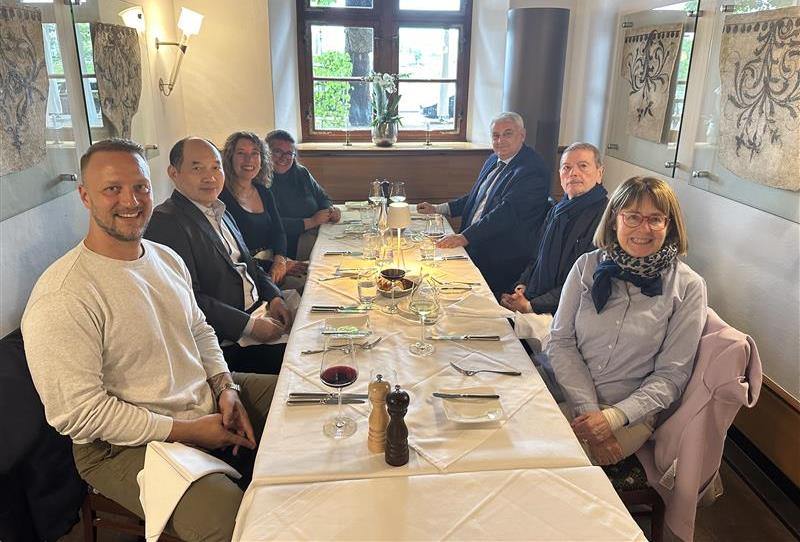
For example, in the first letter, I highlighted our meeting with Dr. Eric O. Freed, the founding and current Editor-in-Chief (EiC) of our journal Viruses. Meeting with Eric is a pleasure, as he has a strong commitment and clear vision for the journal.
On 21 May, 2024 we met with EiC Prof. Dr. Antonino Carbone, and Section EiC Prof. Dr. Alberto Signore (pictured on the left), of our journal Hemato (tracked for Impact Factor, and indexed in Scopus), showing our continued and active collaboration with our chief editors to develop the visions for the journal. Over the course of the day, we gathered feedback and gained an understanding of the journal's expectations and focus on strategic growth.
Reflections on my first year as CEO: achievements and initiatives
During my first year as CEO, there have been many remarkable moments, including a strong focus on bringing people together, focusing on company communications and performance.
According to a recent study of 3,400 people across 10 countries, “Managers impact employees’ mental health (69%) more than doctors (51%) or therapists (41%) — and even the same as a partner (69%).” This is an important topic for me, and perhaps that’s why I place a high value on management culture due to its tangible impact on people’s lives.
When I joined MDPI, I created a weekly meet-up for the Corporate Marketing department and their team leads. On the final Thursday of every month, we hold a Global Marketing meet-up to present projects, share knowledge, and conduct training. For years, I’ve maintained the tradition of ending each of our monthly global calls with a group photo to boost morale, motivation, and productivity, and to finish on a positive note.
In keeping with this, when I stepped into the role of CEO, I launched a bi-weekly management meeting, chairing over 20 MDPI Management Team meetings in my first year. These sessions provide an opportunity for managers to present their team’s work, focusing on their achievements and the challenges they face, while at the same time creating space for sharing knowledge.
“I firmly believe that OA is the future of publishing”
I co-organized and co-led the 2023 MDPI Strategy Management meeting this past October, from which we established an Executive Task Force that meets monthly to prioritize projects aimed at building MDPI into the world’s most trusted publisher. To achieve our goals, we as managers need to maintain collaborative communication and connect to the bigger picture.
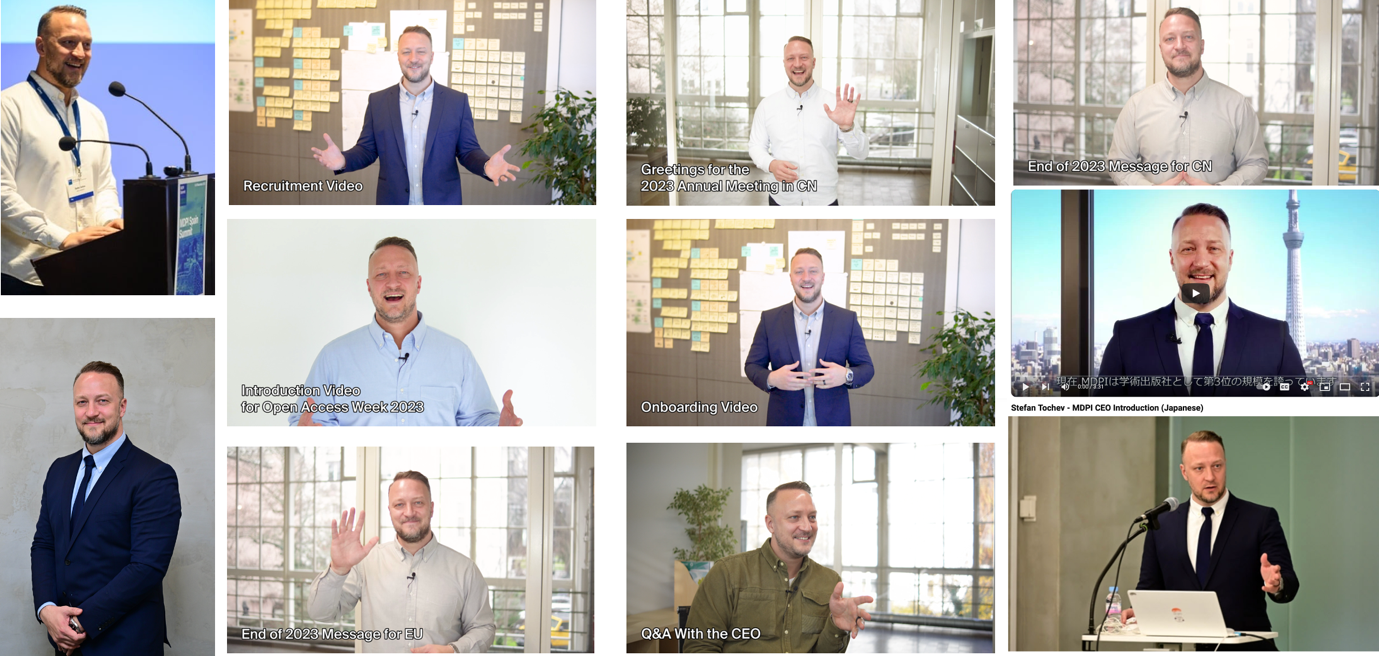
As CEO, I focused on leadership communication by publishing 12 CEO Letters, one for each month of my tenure, to share more about MDPI news and achievements. I also produced ten videos to help further communicate our message.
I was happy to attend eight publishing and conference events, including STM in Frankfurt and Washington, APE, and R2R, and facilitate critical company meetings with Elsevier, Web of Science, ResearchGate, DOAJ, and others. It was a pleasure to meet and have discussions with key organizations and governing bodies such as CAS in China and ANVUR in Italy.
The best part was the opportunity to visit seven MDPI offices across Europe and Asia-Pacific, meeting with local managers and colleagues and supporting them in person. As part of this, I conducted training sessions while continuing to lead the Corporate Marketing department.
Looking ahead
My goal for my second year as CEO is to continue building on the initiatives from the past, including leadership communications, public relations, educational marketing, and company culture, while representing MDPI to the best of my ability. Additionally, I have a few new projects I hope to launch that I believe will be valuable to MDPI and the industry at large.
I firmly believe that OA is the future of publishing, and I am grateful to be in a position to advocate for this belief as part of MDPI, the world's leading open access publisher.
Thank you to our staff and industry friends for your genuine support in this role.
Impactful Research

Nominations Open for the Prestigious Tu Youyou Award 2024
I am pleased to share that MDPI has opened nominations for the 2024 Tu Youyou Award, a prestigious recognition established in honour of Professor Tu Youyou, Nobel Laureate, whose work has significantly transformed the global fight against malaria.
The Tu Youyou Award offers CHF 100,000
In 2015, Professor Tu Youyou was awarded the Nobel Prize in Physiology or Medicine for her discovery of artemisinin, significantly reducing mortality rates from malaria and shaping global health policies. Artemisinin-based combination therapies (ACTs) are now the standard treatment endorsed by the World Health Organization (WHO), saving countless lives, especially in regions heavily burdened by malaria.
MDPI Special Issue
To mark Professor Tu’s 80th birthday in 2009, MDPI’s journal Molecules issued a Special Issue focusing on her contributions to medical research. Recognizing her continuous contribution, MDPI created the Tu Youyou Award in 2016 to honour outstanding achievements in natural products and medicinal chemistry.
The deadline for nominations is 31 December 2024
Nominations are open to scientists excelling in natural products and medicinal chemistry. Eligible nominators include academic institutes, universities, and societies. The deadline for nominations is 31 December 2024, with the winners to be announced on 30 April 2025. The Tu Youyou Award offers CHF 100,000, split equally among the winners.
MDPI encourages the academic community to nominate individuals who have demonstrated excellence and innovation in line with Professor Tu’s legacy. This award not only honours individual achievement but also encourages further scientific exploration and discovery in critical areas of medicine.
This award embodies our deep commitment to groundbreaking research that drives societal progress and celebrates the legacy of one of the greatest medical innovators of our time.
Inside MDPI

2023 MDPI Books Report
In past CEO letters, I have highlighted our publishing process and the impactful peer-reviewed articles that represent the core output of scholarly publishing. However, scholarly books are another pillar of publishing that MDPI also services, which our core audience may not be fully aware of. In this section, I highlight the 2023 MDPI Books report, released by our MDPI Books team in May 2024.
Download the 2023 MDPI Books Report
In the report, you will find a summary of MDPI Books’ 10th anniversary, the books indexed in the Web of Science Book Citation Index, our market outreach, and our outlook for 2024.
MDPI Books celebrated its 10th anniversary in 2023
MDPI Books published its first OA Reprint, “From the Renaissance to the Modern World,” in 2013. Over the past ten years, MDPI Books has seen a significant increase in both the volume and nature of published Reprints. As of December 2023, our catalogue includes a total of 7,369 Reprints, with 1,811 of them added in 2023 alone. MDPI Books includes monographs, book series, edited books and reprints of special issues and topical collections, among other book types.

We’re also celebrating the 10-year MDPI anniversary of Laura Wagner, Head of MDPI Books.
Laura Wagner (Head of Books Division)
Laura holds a Bachelor’s degree in Art History and History from the University of Basel. After her studies, she started her career at an art gallery in Basel.
Since joining MDPI in 2014, Laura has held several roles within the company. This included editorial work, development of reprint and book services, and the temporary management of the journal Arts.
Currently Laura holds the role of Head of Books Division and is in charge of the development and strategic direction of MDPI Books.
MDPI Books indexed in Web of Science Book Citation Index
Another milestone in 2023 was the indexing of four book titles in the Web of Science Book Citation Index. The indexing of our open access books is crucial for their reach and accessibility, ensuring higher visibility within the open science community.

- Self-Representation in an Expanded Field: From Self-Portraiture to Selfie, Contemporary Art in the Social Media Age by editor Ace Lehner
- Towards Socially Integrative Cities: Perspectives on Urban Sustainability in Europe and China by editors Bernhard Müller, Jian Liu, Jianming Cai, Paulina Schiappacasse, Hans-Martin Neumann, and Baojun Yang
- Transitioning to Gender Equality by editors Christa Binswanger and Andrea Zimmermann
- Under Construction: Performing Critical Identity by editor Marie-Anne Kohl
If you would like to learn more about MDPI Books, please visit: www.mdpi.com/books
If you are thinking of writing or editing a book, you can submit your proposal at www.mdpi.com/books/publish-with-us, or email us at [email protected].
Coming Together for Science

Polymers 2024 – Polymers for a Safe and Sustainable Future
Our conference team successfully managed the Polymers 2024 – Polymers for a Safe and Sustainable Future international conference which took place from 28–31 May 2024 in Athens, Greece. The conference was chaired by Prof. Dr. Dimitrios Bikiaris and Prof. Dr. Konstantinos Triantafyllidis from the Aristotle University of Thessaloniki, Greece, and Dr. Ioanna Deligkiozi from AXIA Innovation, Germany. In total, the conference had 259 accepted abstracts and over 300 attendees from 22 different countries.
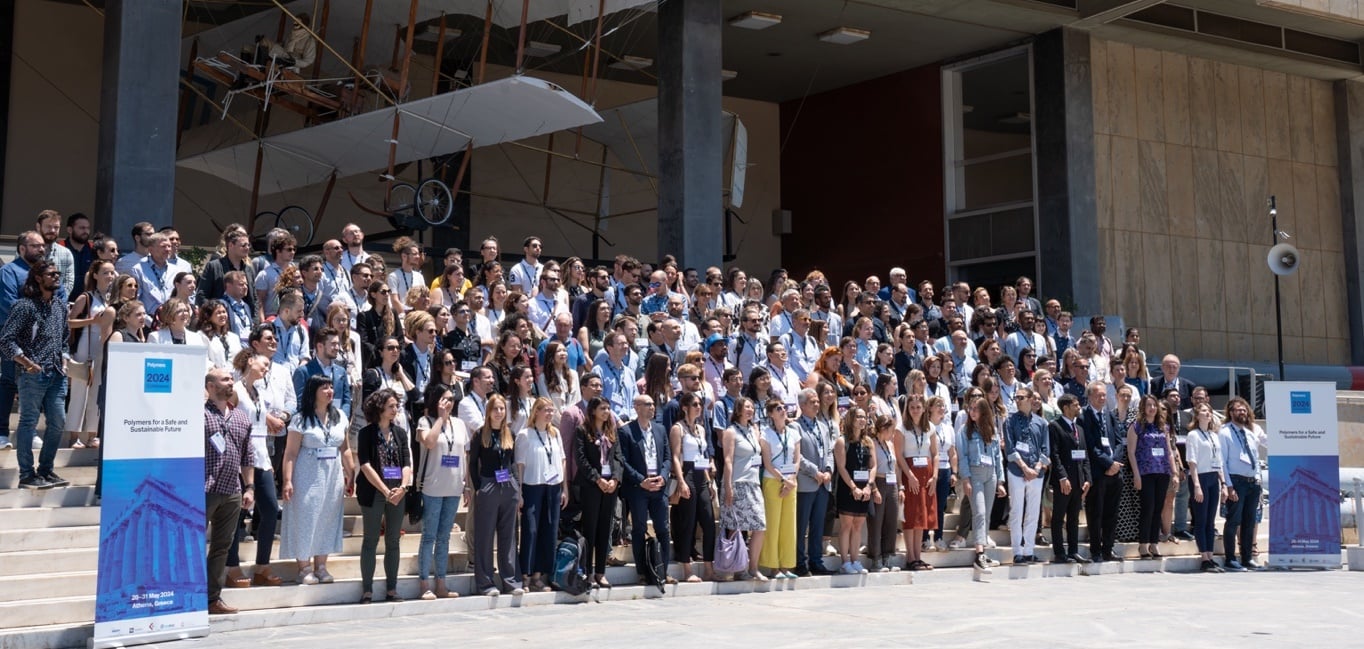
The conference featured three keynote speakers and 12 invited speakers, including esteemed scholars from Europe, Asia, Africa, and Canada. It included 60 selected talks and 189 posters, chosen by the 24 members of the Scientific Committee along with the three Conference Chairs. The event explored the latest scientific advancements and innovations in polymer science, focusing on creating safe, sustainable, and environmentally friendly materials. Emphasizing green polymer chemistry and the use of bioresources, the conference promoted the synthesis of biobased and biodegradable polymers.
The conference featured esteemed scholars from Europe, Asia, Africa, and Canada
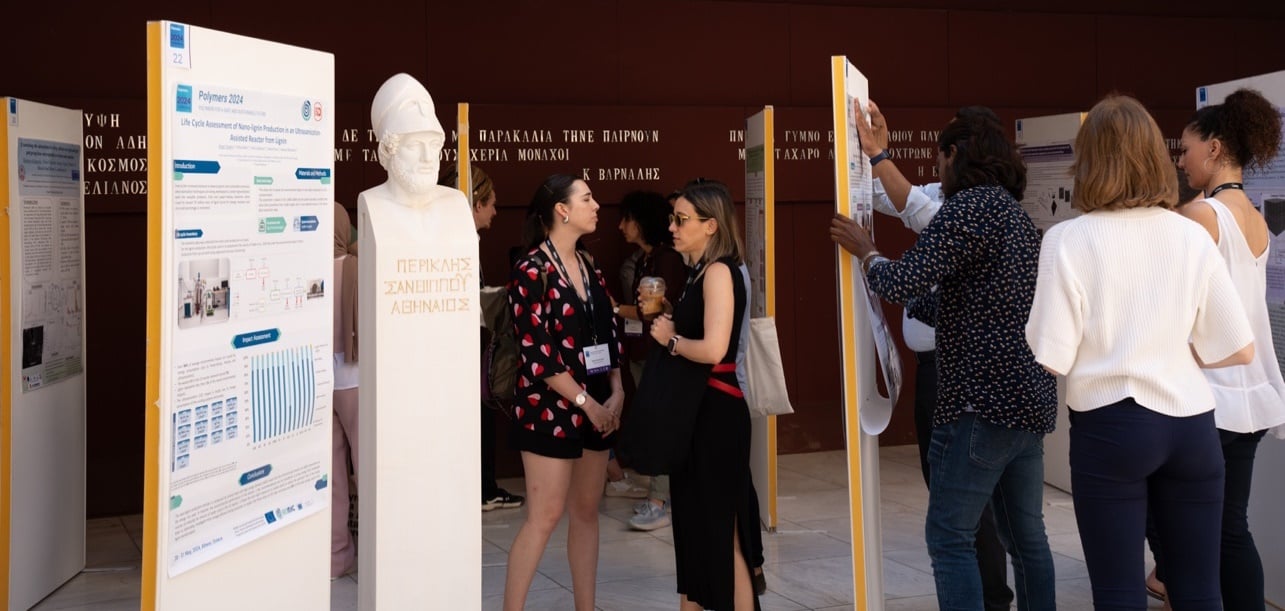
Conference awards
The conference also presented three awards: two sponsored by the journal Polymers – The Best Poster Award (€500) and the Best Oral Presentation Award (€600) – and one sponsored by Ossila, the Best Student Poster Award (€500).
Thank you to our 16 sponsors, three partnering societies (Hellenic Polymer Society, European Polymer Federation, and North American Thermal Analysis Society [NATAS]) and eight media partners.
Upcoming in-person event
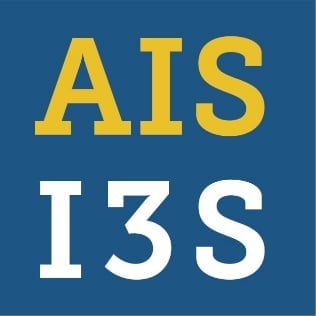
1–4 August, 2024
The 1st International Conference on AI Sensors & The 10th International Symposium on Sensor Science
Location: Singapore
The AI Sensors 2024 Conference will unite innovators and experts in the realms of sensors, sensing technology, and artificial intelligence.
Find more upcoming MDPI events here.
Closing Thoughts
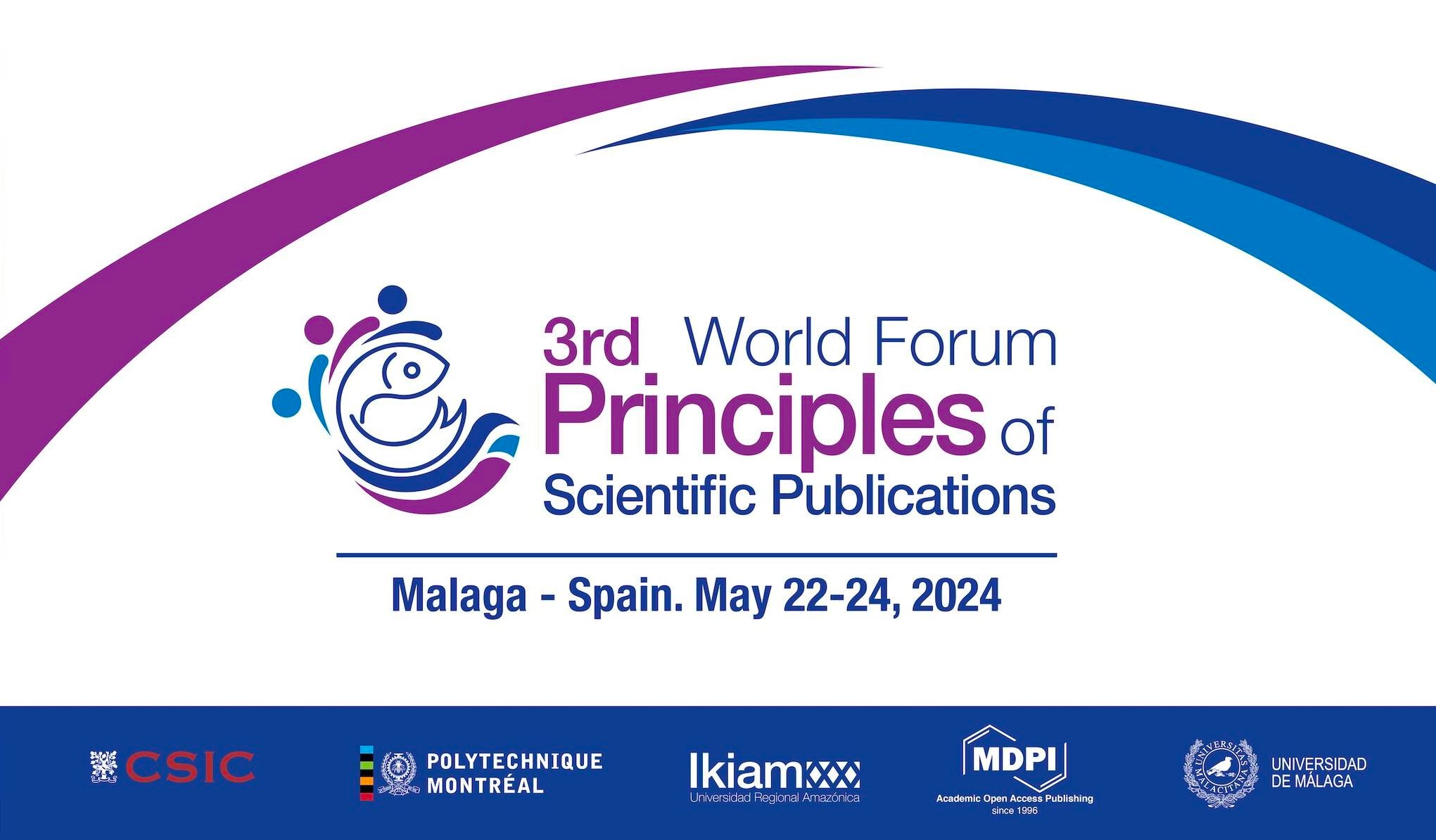
3rd World Forum Principles of Scientific Publications
I’m pleased to share that MDPI sponsored and attended the 3rd World Forum on Principles of Scientific Publications, which took place from 22–24 May in Malaga, Spain. The event brought together academic professionals and leading researchers to discuss critical topics in the realm of publishing and research. Presentation topics included Open Science, AI in Publishing, Predatory Journals, Fake Publications, Challenges for Non-native English Speakers, and more.
“It was great to see strong support from MDPI authors in the audience”
MDPI presentations
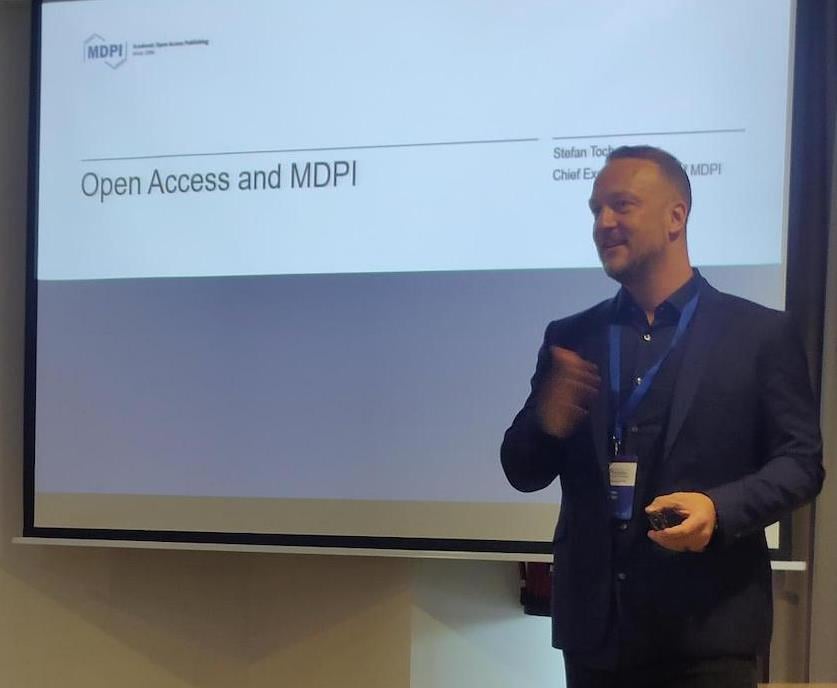
Stefan Tochev (CEO, MDPI) presenting at the 3rd World Forum Principles of Scientific Publications
I had the privilege of attending and presenting at the event, along with my colleague Dr. Enric Sayas (Business Analyst, MDPI) from our Barcelona office, who explored the ethical concerns and opportunities brought by AI in publishing.
I took the opportunity to present on Open Science, the benefits of Open Access, and MDPI’s performance, operations, and investment in ethics. Special thanks to Evan Escamilla (Project Manager, MDPI Books) and Facundo Santomé (Sr. Marketing Manager, MDPI) who also joined the conference.
It was great to see strong support from MDPI authors in the audience who shared their positive experiences publishing with us. Their story reflects the experience of the vast majority of authors who choose to work with MDPI.
We also encountered some conservative views on OA, which created an opportunity for open discussion aimed at addressing concerns about OA and MDPI. Engaging in such discussions is important, as scepticism sometimes arises from misinformation or from a misunderstanding of who we are and how we operate. When we engage in open and honest discussion, we tend to see people getting a better understanding of MDPI, which helps address any misconceptions they may have had.
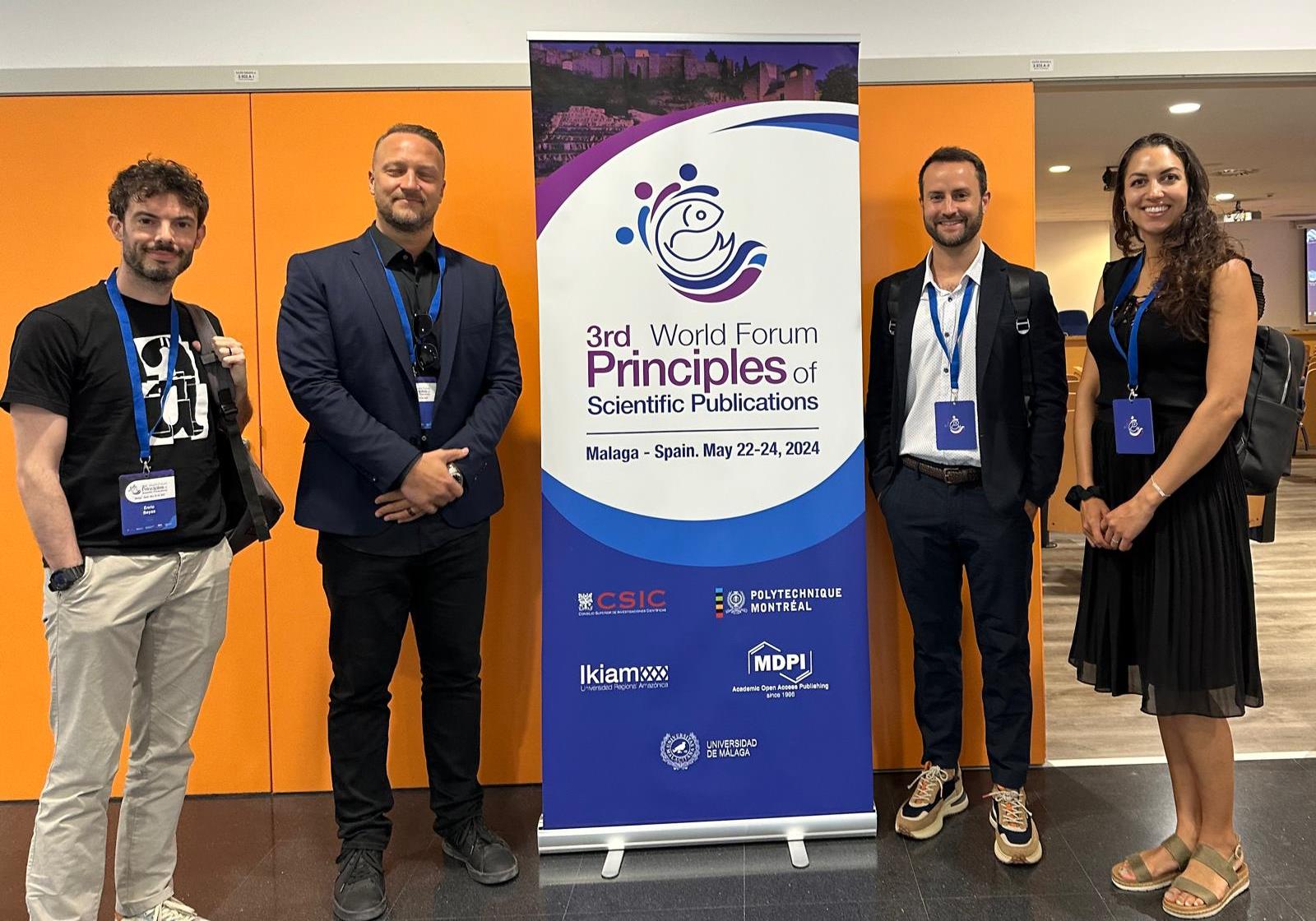
Left to right: Dr. Enric Sayas (Business Analyst, MDPI), Stefan Tochev (CEO, MDPI), Facundo Santomé (Sr. Marketing Manager, MDPI), and Evan Escamilla (Project Manager, MDPI Books) at 3rd World Forum Principles of Scientific Publications
Chief Executive Officer
MDPI AG
31 May 2024
Interview with Prof. Dr. Guido Busca—New Section Editor-in-Chief of the “Industrial Catalysis” Section in Catalysts
The Catalysts Editorial Office would like to warmly welcome Prof. Dr. Guido Busca as the newly appointed Section Editor-in-Chief of the “Industrial Catalysis” Section in Catalysts (ISSN: 2073-4344).
Prof. Dr. Guido Busca shared his academic research background, as well as his vision for the “Industrial Catalysis” Section in the video interview below:
We believe that, under the leadership of Prof. Dr. Guido Busca, the “Industrial Catalysis” Section can bring together more of the latest research outputs in the field of industrial catalysis and provide a broad academic exchange and publishing platform for university researchers, employees of enterprises and institutions, and engineers, thereby promoting the development of the industrial catalysis research field and its industrialization.
We wish Prof. Dr. Guido Busca every success in his current position as Section Editor-in-Chief, and we look forward to his contributions to the journal.
23 May 2024
Transfer Service in MDPI
We are pleased to announce MDPI’s Transfer Service.
This service provides a convenient method of transferring your manuscript file, along with any reviewer comments, to another journal within our publishing portfolio.
We are committed to helping authors find the right home for their research, and we will provide authors with guidance and technical support through all stages of the transfer process. Authors will be able to choose to transfer in the following two situations:
1. Select alternative journals on submission.
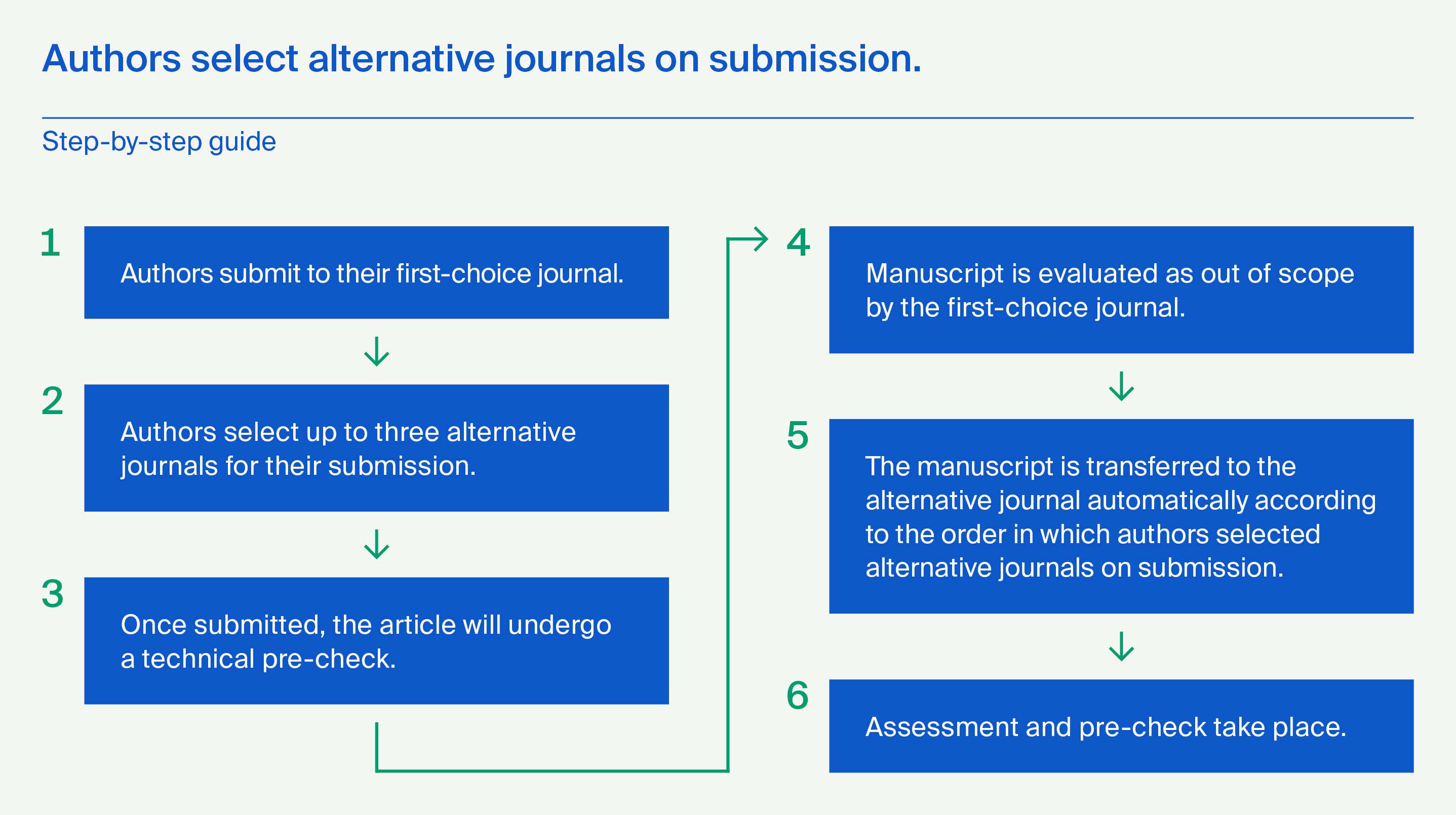
2. Authors are encouraged to transfer manuscripts to other MDPI journals.
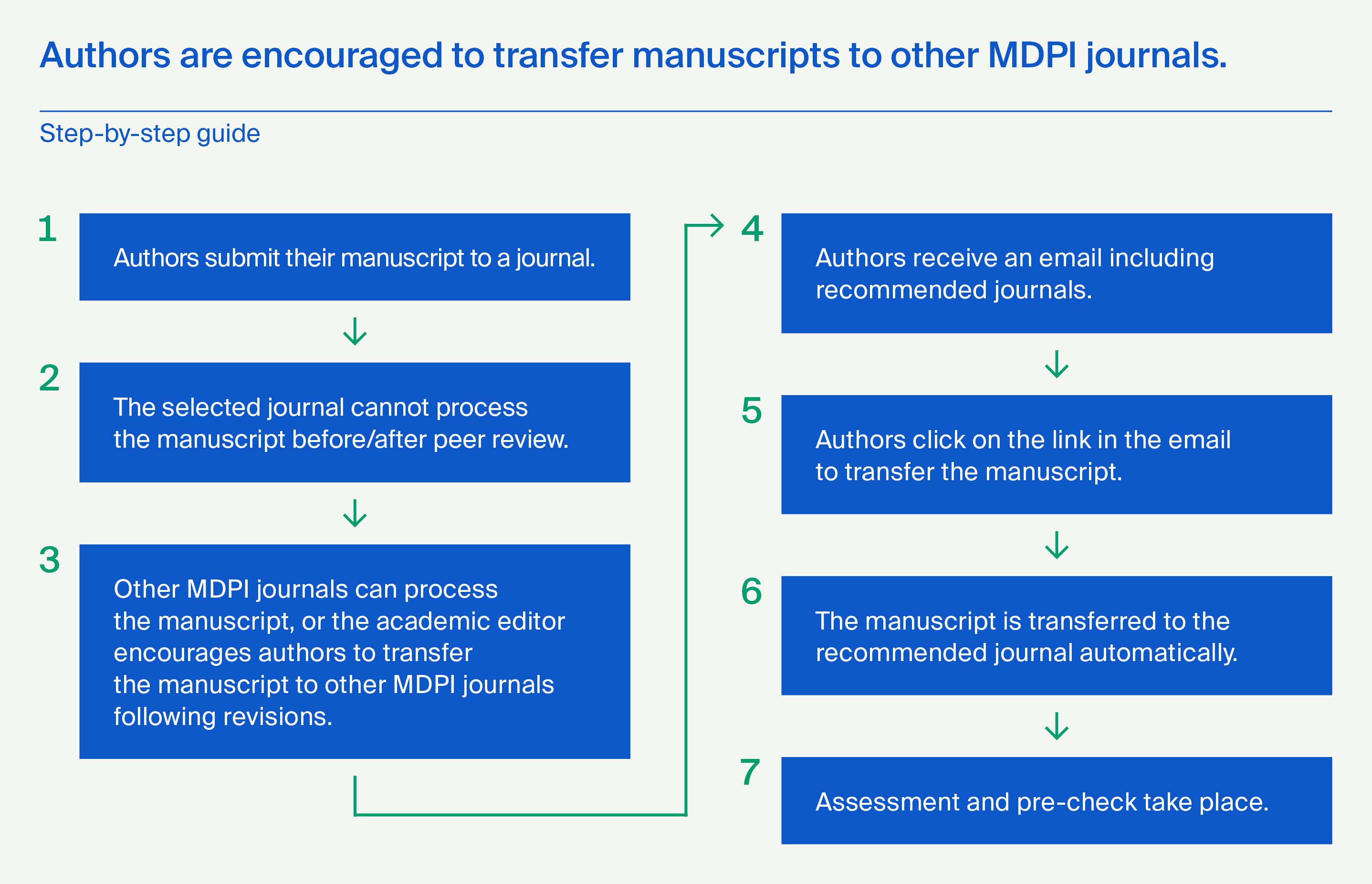
More details about the Transfer Service can be found at the following link:
17 May 2024
Tu Youyou Award—Open for Nominations
In acknowledgment of the groundbreaking achievements of Professor Tu Youyou, the Nobel laureate credited with the discovery of artemisinin, MDPI is proud to announce the Tu Youyou Award. This award, inaugurated in 2016, seeks to honor scholars who excel in the fields of natural products chemistry and medicinal chemistry.
Prize:
- CHF 100,000 in total (If there is more than one winner, the prize will be divided equally amongst the winners);
- An award medal for each winner.
Who should be nominated?
- Scientists with outstanding achievements and contributions in the fields of natural products chemistry and medicinal chemistry.
Who can submit a nomination?
- Academic research institutes
- Universities
- Academic societies
Any personal nominations are not accepted.
How do I submit a nomination?
Candidates’ institutional affiliations need to submit their nominations for final candidates to the Tu Youyou Award Team directly by email after internal screening, and each institution can only nominate a maximum of two candidates for each edition of the Tu Youyou Award. Please note that the nominations cannot be modified once they are submitted and confirmed by the Tu Youyou Award Team.
Required nomination materials:
Nomination Form (Download)
Schedule:
Nomination deadline: 31 December 2024;
Winner announcement: 30 April 2025.
Contact:
Tu Youyou Award Team ([email protected])
More information can be found on the Tu Youyou Award official website. For any inquiries, do not hesitate to contact the Tu Youyou Award Team.
16 May 2024
MDPI Romania Author Training Academic Events in April
MDPI Romania sponsored four events over the month of April, contributing author training sessions to each event.
The NutriSciLabs 2024 conference was held at the Carol Davila University of Medicine and Pharmacy on 12 April 2024. Organized by the Association of Students from the Faculty of Pharmacy Studies, the conference aimed to enhance students’ academic writing and research skills, and bolster their confidence in participating in the academic world. Ioana Paunescu, journal relations specialist for MDPI Romania, led the training session. Paunescu first outlined MDPI’s history and core values, then explained academic writing techniques, ethics, and similarity percentages. The presentation covered the entire editorial process, highlighting the amount of attention paid to details throughout manuscript processing. Paunescu also discussed common errors that authors make while writing, and how to avoid such errors.
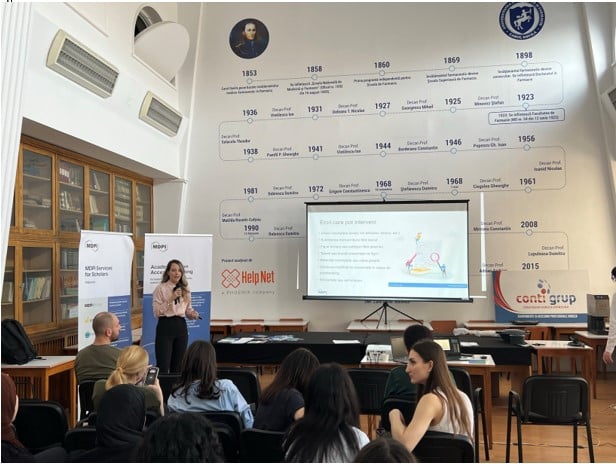
On 13 April 2024, the NextGEN 2.0 Student Conference took place at the Babes-Bolyai University of Cluj-Napoca. NextGen Healthcare organized this event with the university’s European Students’ Society to discuss European and international current affairs. MDPI Romania contributed an author training session called Steps of the Publication Process. Irina Codruta Zaharia, journal relations specialist, began the session with a general introduction of MDPI before diving into different article types, different layout formats, possible journals to submit to, the MDPI submission checklist, and the MDPI editorial process. By explaining the fundamentals of writing and publishing academic papers, Zaharia imparted valuable industry knowledge to the curious minds present. Participants were eager to engage with Zaharia in the subsequent Q&A session.
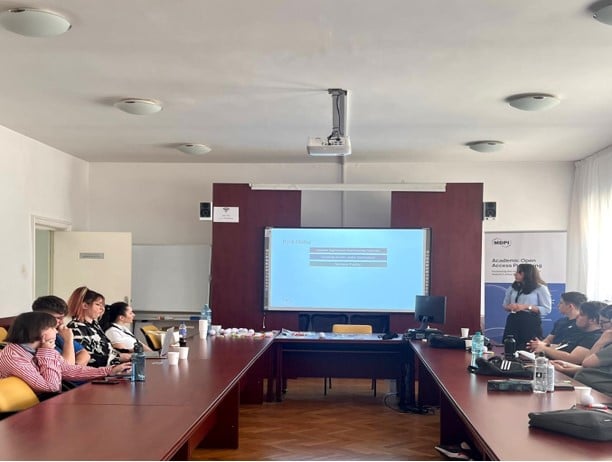
Celebrating its 20th anniversary this year, the International Conference “Students for Students” has long been a gathering place for undergraduate and postgraduate students of all nationalities to present their work and exchange ideas with each other. This year’s conference was held on 18 April 2024, with MDPI Romania contributing an author training session called The World of Open Access. Key speakers included Dr. Norbert Kiss from MDPI Romania and Prof. Dragos Horvath from Strasbourg University. Dr. Kiss discussed the history of open access, differences between open access publishing and traditional publishing, and implications for open access in the future. Attendees expressed keen interest in the subject, approaching Dr. Kiss with questions about academic publishing as well as his career trajectory.
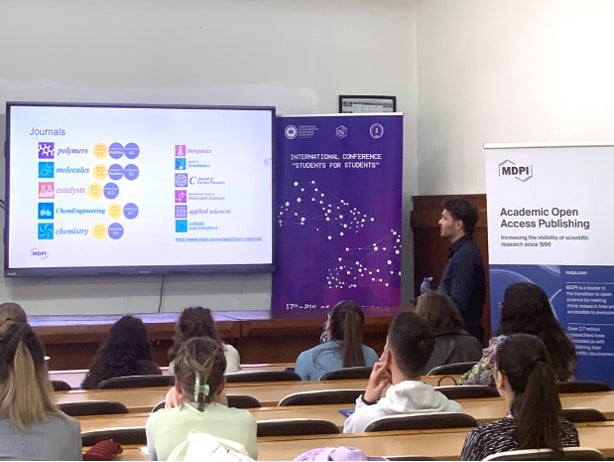
Most recently, on 26 April 2024, MDPI Romania sponsored the National Symposium of Students from Geology and Geophysics Faculties. The AAPG Students Chapter at the Babes-Bolyai University organized this event as an opportunity for geology students from all Romanian universities to present their work and confer with other researchers. Dr. Kiss gave his lecture The World of Open Access at this event as well.
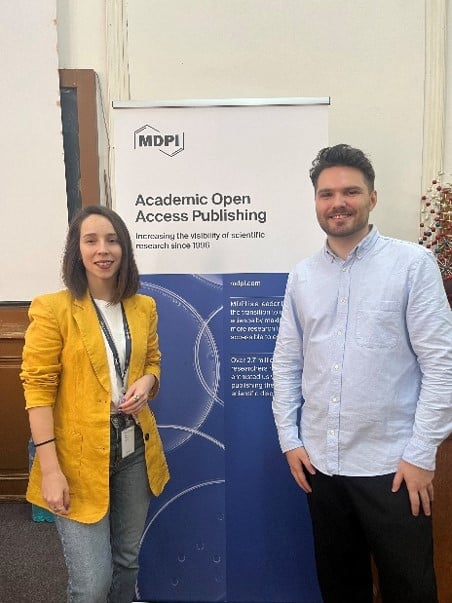
MDPI is thankful to all the participants, speakers, and organizers who attended these events. Through their enthusiasm and dedication, these events were great successes.
2 May 2024
MDPI Insights: The CEO's Letter #11 - 2023 Annual Report, MDPI Awards, STM

Welcome to the MDPI Insights: The CEO's Letter.
In these monthly letters, I will showcase two key aspects of our work at MDPI: our commitment to empowering researchers and our determination to facilitating open scientific exchange.
Opening Thoughts

2023 Annual Report
This is an exciting time of year at MDPI, as we have just released our annual report 2023, recapping the past year and sharing the progress and changes that took place during it.

Stefan Tochev (CEO, MDPI)
Reflecting on 2023, I can't help but think of the changes that have occurred not only at MDPI but also within our industry as a whole. In light of this, I’m reminded that change is the only constant, and that for a publishing enterprise that has experienced rapid growth, adapting to change becomes not only a necessity but also a catalyst for sustained success.
Looking back on the significant ground we covered in 2023, I am pleased to report that the year was marked by a rise in paper submissions, along with a range of initiatives aimed at improving our internal processes and delivering top services to our scientists.
2023 Top-line MDPI Numbers
An important priority for 2023 was to strengthen our editorial policies. Despite a notable increase in the number of papers submitted from 603,000 to 655,000 (+8.6%), there was a decrease in the number of papers published from 303,000 to 285,000 (-5.9%), consistent with the overall trend in the scholarly publishing market. MDPI’s market share in gold open access articles published reached 17% in 2023 (according to Dimensions data).
2023 Open Access Numbers
For over two decades, MDPI has been at the forefront of reshaping the academic publishing landscape, with OA surpassing subscription-based publishing in 2020. This trajectory is deeply rooted in our history and reflects our unwavering commitment to, and vision for, an open future. This momentum continued in 2023, with 39% of the 4.16 million articles and reviews published as gold full-OA, 15% as gold hybrid-OA, 8% as bronze-OA, and 3% as green-OA, relative to 35% behind a paywall. In terms of gold OA (full or hybrid) articles and reviews published, MDPI leads the way in terms of total articles published in 2023.
MDPI is the trusted and preferred OA publisher for the scholarly community
However, in 2023, we saw a downward trend in publication numbers compared to 2022. This trend was also seen in total OA publications. While the number of submissions increased, the decline in MDPI publications can be attributed to several factors, such as improved scrutiny in our peer-review process, including the evaluation of content scope and higher rejection rates, and a post-pandemic decrease in research related to COVID-19 papers.
Download 2023 MDPI Annual Report.
Access 2023 Digital Report.
Impactful Research

Recognizing Scholars – MDPI Awards
MDPI is committed to empowering young researchers as they embark on their careers. In 2023, our journals hosted a total of 400 awards, receiving 8,839 applications and nominations. The evaluation committees selected 959 winners, with the total budget for these awards amounting to CHF 546,500.
For more information about MDPI awards, applications, and winners, please click here
The following awards recognize scholars and the impact of their research, including Young Investigator Awards, Best PhD Thesis Awards, and Travel Awards for junior researchers.
MDPI Awards – The following awards require an application or a nomination.
Young Investigator Award (CHF 1000–2000 for each winner)
This award acknowledges the achievements of young investigators in research areas relevant to the journal’s scope. Candidates must have received their PhD no more than 10 years prior to the award announcement date and must be nominated.
Best PhD Thesis Award (CHF 500–800 for each winner)
This award recognizes young scholars who have completed outstanding PhD theses in research areas relevant to the journal’s scope. It aims to encourage them to continue their excellent work and make further contributions to their field.
Travel Award (CHF 500–800 for each winner)
This award encourages junior scientists to present their latest research at academic conferences relevant to the journal’s scope, thereby increasing their impact.
Distinguished Scholars
Additionally, 220 awards were granted to the most distinguished authors and reviewers in our journals through Best Paper Awards and Outstanding Reviewer Awards. The following awards are selected by the editorial staff of the journal and do not require an application or a nomination. They exemplify the excellent contributions made by our authors, reviewers, and editors.
These awards exemplify the excellent contributions made by our authors, reviewers, and editors
Best Paper Award (CHF 200–500 for each winner)
This award is granted annually to highlight publications of high quality, scientific significance, and extensive influence.
Outstanding Reviewer Award (CHF 500 for partial winners)
This award is given annually to recognize reviewers who generously contribute their time to reviewing papers and demonstrate thoroughness, professionalism, and timeliness in their reviews.
MDPI also offers awards for specific topics in various research fields:
Carbon Neutrality Award (CHF 500–800 for each winner)
Sponsored by MDPI journal Sustainability, this award recognizes applicants who have made exceptional academic or societal contributions to carbon neutrality, either in general or in relation to a specific carbon-neutrality-related issue.
Intelligent Manufacturing Award (CHF 500–800 for each winner)
Administered by MDPI journal Machines, this award is presented to an individual who has made outstanding academic or societal contributions to the field of intelligent manufacturing.
Granted: World Sustainability Awards
Inside MDPI

MDPI Opens Office in Seoul, Korea and Appoints Claude Seo as Office Manager
As CEO of the world’s leading OA publisher, I am pleased to announce the official opening of our Korean branch office. With this addition, MDPI now operates 21 offices in 12 countries worldwide, improving on our position as a truly global publisher. This expansion represents more than just an increase in our physical footprint; it is a pivotal step in our ongoing commitment to making scientific knowledge more accessible across the globe.
MDPI now operates 21 offices in 12 countries worldwide, improving on our position as a truly global publisher

Claude Seo (MDPI Korea Office Manager, Seoul)
Claude Seo, who has over 15 years of experience in the academic publishing industry, has been appointed as the Office Manager of the Seoul office. The launch of our Seoul office allows us to better support the Korean scientific community and to further promote the publication of OA journals in the region.
Reflecting on his role, Claude shared that he is:
“Delighted to have been entrusted with this position within MDPI, the no. 1 scholarly OA publisher. As we establish our presence in Korea, we are dedicated to integrating ourselves into the local community and contributing to its vibrant culture. Our commitment goes beyond business growth; it is about creating a more informed and innovative society by embracing and promoting diversity within the scientific community.”
Sungkyunkwan University Joins MDPI’s Institutional Open Access Program
Additionally, I am pleased to share that Sungkyunkwan University has joined MDPI’s Institutional Open Access Program (IOAP). This program offers free access to MDP’s online submission system for institutions and provides APC discounts to affiliated authors. Thirteen major Korean universities, including Sungkyunkwan University, Kyunghee University, Chung-Ang University, and the Catholic University of Korea, have adopted IOAP in Korea.
Learn more about MDPI’s collaboration in Korea in my previous CEO Letter, in which I recap our visit to Seoul, South Korea.
Coming Together for Science
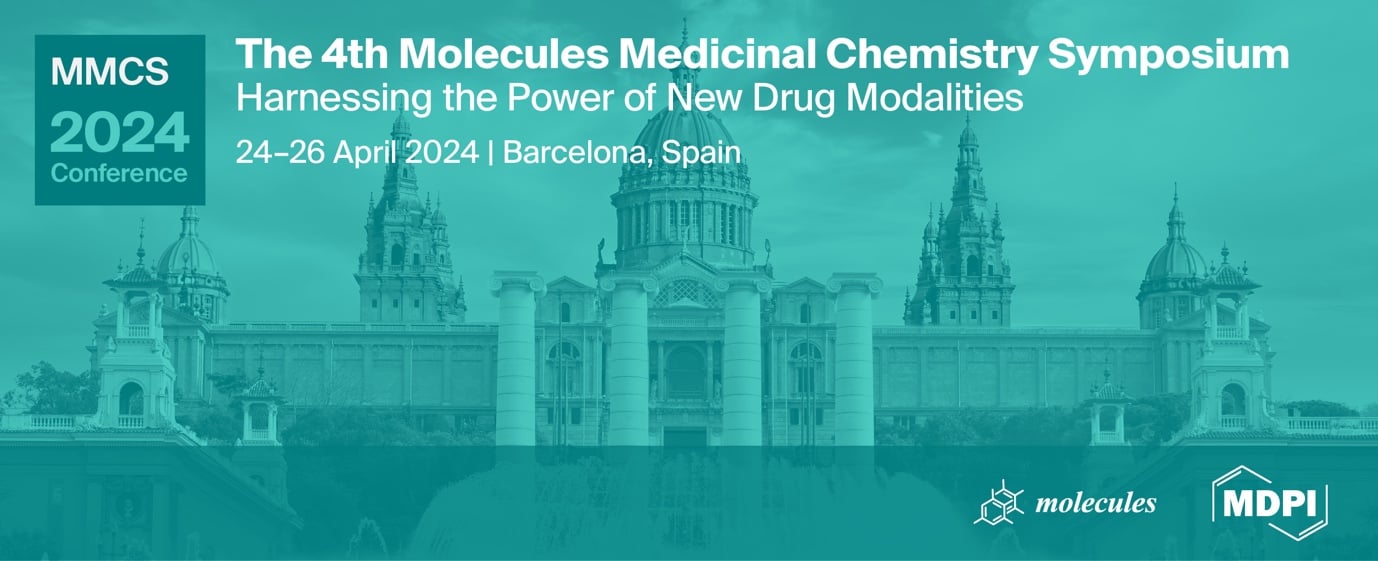
4th MMCS: Harnessing the Power of New Drug Modalities
Our conference team successfully managed the 4th Molecules Medicinal Chemistry Symposium, held from 24–26 April in Barcelona, Spain. It was chaired by Prof. Dr. Diego Muñoz-Torrero from the Institute of Biomedicine (IBUB), University of Barcelona, Spain, and Prof. Dr. Simona Collina from the University of Pavia, Italy. In total, there were 84 accepted abstracts and 102 conference attendees from 22 different countries.
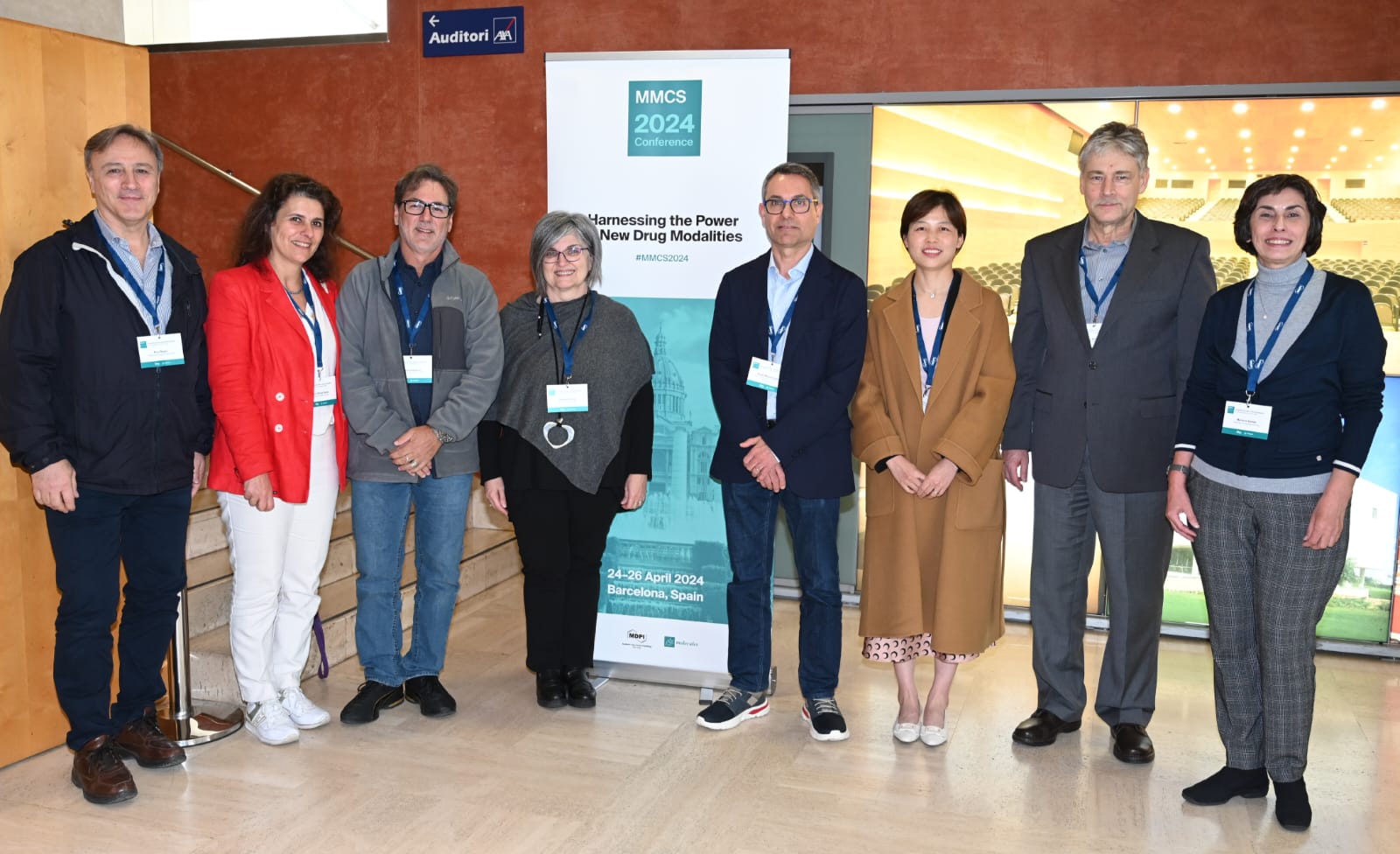
From left to right: Prof. Dr. Rino Ragno (Scientific Committee), Dr. Maria Emilia Sousa (Scientific Committee), Prof. Dr. Claudio Viegas Jr. (Scientific Committee), Prof. Dr. Simona Collina (Chair), Prof. Dr. Diego Muñoz-Torrero (Chair), Alvina Wu (Managing Editor, MDPI), Prof. Dr. Roman Dembinski (Scientific Committee), Prof. Dr. Mariana Spetea (Scientific Committee).
The event comprised 12 Invited Speakers, 35 Selected Talks, 10 Flash Poster Presentations, and 39 Posters. The overarching topic of the conference was the impact of the emergence of new drug modalities on drug discovery, with thematic sessions covering topics such as photoactivatable drugs, candidates targeting RNA and epigenetic targets, covalent modifiers, and the development of new anti-cancer agents, among other medicinal chemistry projects.
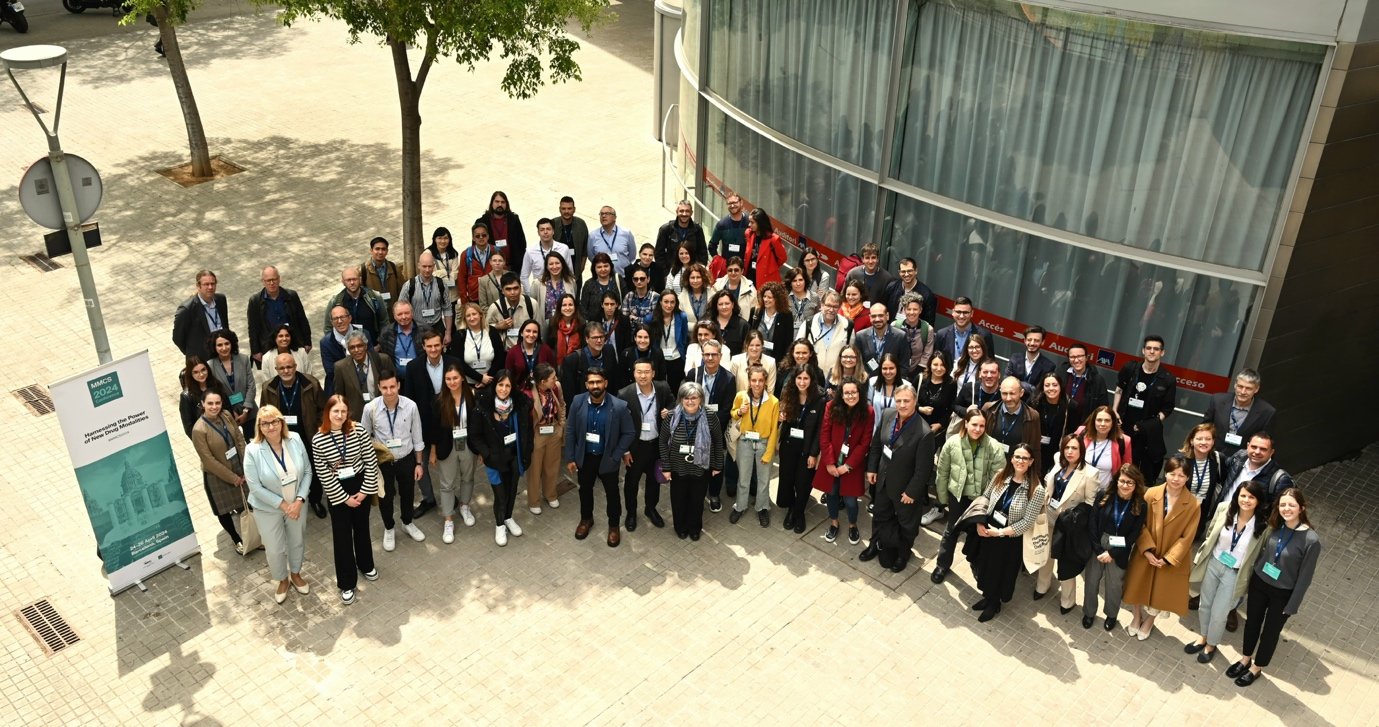
We are pleased to have received feedback from attendees highlighting the professional approach of the conference chairs and participants, the high quality of the talks, and the overall outstanding organization on the part of the MDPI conference team.
Thank you to the conference sponsors, Fluorochem and IBUB, and to our partnering societies, The Spanish Society for Biochemistry and Molecular Biology (SEBBM), and the Spanish Society of Medicinal Chemistry (SEQT).
Upcoming In-Person Event
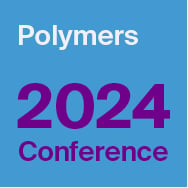
28–31 May, 2024
Polymers 2024 – Polymers for a Safe and Sustainable Future
Location: Athens, Greece
Conference Chairs: Prof. Dr. Dimitrios Bikiaris, Prof. Dr. Konstantinos Triantafyllidis, Dr. Ioanna Deligkiozi
We look forward to welcoming experts Prof. Damià Barceló, Prof. Minna Hakkareinen, and Prof. Armando J. D. Silvestre to this event.
Find more upcoming MDPI events here.
Organize Your Event with MDPI’s Sciforum
Sciforum is MDPI’s platform dedicated to the organization of scientific events. In line with our mission to promote science, Sciforum supports scholars, societies, research networks, and universities at all stages of organizing in-person events, virtual events and webinars. Our platforms are efficient, user-friendly, and cost-effective. We handle all steps related to event management. Contact us for details.
Closing Thoughts
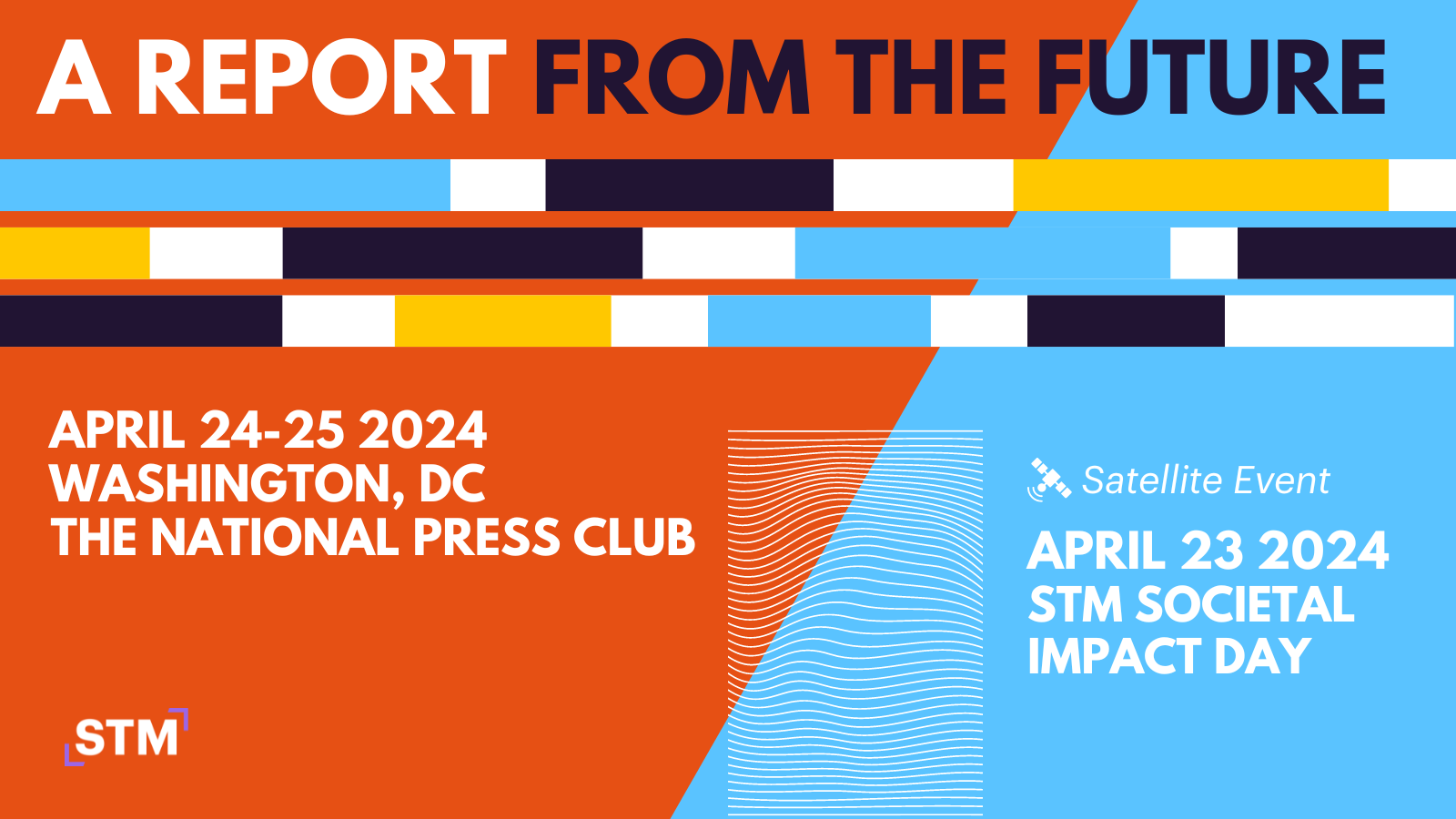
A Report from the Future – STM US Annual Conference 2024
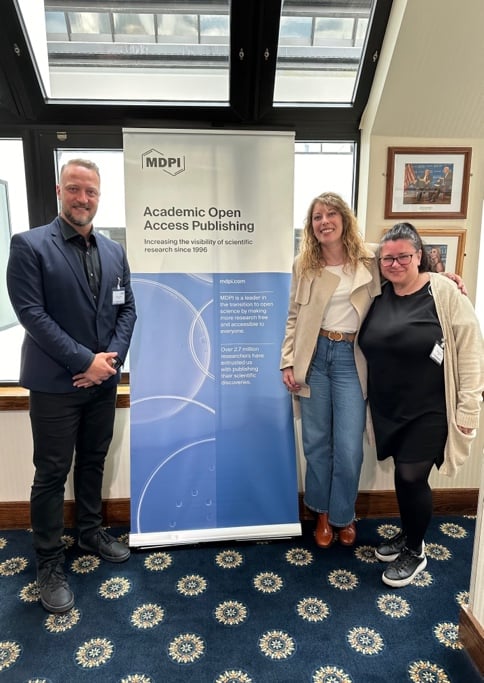
Stefan Tochev (CEO, MDPI), Dr. Giulia Stefenelli and Dr. Ioana Craciun from MDPI’s Scientific Office Board.
MDPI has for a long time been a sponsor of the STM Annual Conferences, held yearly in the US and Frankfurt, and is a trusted partner and supporter of the STM organization. While I have attended the Frankfurt conference for the past three years, this was my first time visiting the Washington, DC session, and I am glad I did.
Although it was a brief trip, I greatly appreciated the opportunity to attend in the company of my colleagues Dr. Giulia Stefenelli and Dr. Ioana Craciun from MDPI’s Scientific Office Board. They always help map some of the new industry trends against MDPI’s operational framework and guidelines. It’s a great group for kicking ideas back and forth on what we can apply at MDPI.
In my experience, STM never fails to deliver. It’s always a great conference for reconnecting with fellow publishers, industry friends, and vendors. As usual, STM this year curated a diverse range of speakers and panels, who proferred valuable knowledge and insights from outside our industry, delivering thought-provoking insights into our field. An example of this was the ‘Trust Panel’ session, which included Alan Schiffres (Managing Director, InfoLinx), who shared a number of the learnings about fraud and risk management from his 40 years in financial services, to help address some of the challenges we are currently facing in the area of publishing integrity.
Launch of STM Trends 2028 Panel
I particularly enjoyed the ‘Launch of STM Trends 2028 Panel’, which presented a report focused on the integration of humans and machines in scholarly publishing. The session highlighted themes such as AI, digitization, and the evolving research ecosystem. The report envisions a future where technology blurs the lines between human and machine involvement in research processes, with significant implications for trust, reputation, and equity. While this presents opportunities for connectivity and knowledge dissemination, it also poses challenges such as disinformation, fragmentation, and geopolitical tensions. We must rely on a wise combination of technology and human agency to navigate this complex landscape and will have to carefully examine its potential impacts on communication and scholarly publishing.
MDPI has joined the STM Integrity Hub. Click here to learn more.
While every presenter brought their own knowledge and personal touch, I was particularly pleased to encounter new speakers such as Heather Whitney (Research Assistant Professor, Radiology, University of Chicago) and Igor Grossmann (Professor of Psychology, University of Waterloo, Canada). Having studied Sociology at the University of Guelph, I have a soft spot for fellow social scientists from Canada, and I was very impressed by Igor’s presentation on ‘The Social Scientist: A View from the Future’ and his participation in the panel session ‘The Future Beyond the Article,’ which was one of my favourites from the conference, given the diversity of perspectives from the panel speakers.
Memorial Park in Washington, DC

On a personal note, this was my first-time visiting Washington, DC, and I’m glad we took an afternoon to visit the Memorial Park, with its incredible monuments to figures ranging from Martin Luther King, Jr. to Abraham Lincoln. The magnitude of the monuments is deeply impressive. I particularly appreciated the Thomas Jefferson memorial and the following quote, which I think speaks to the importance of change and adaptation. It’s something we can apply not only in our industry but also in our personal lives.
"I am not an advocate for frequent changes in laws and constitutions, but laws and institutions must go hand in hand with the progress of the human mind. As that becomes more developed, more enlightened, as new discoveries are made, new truths discovered and manners and opinions change, with the change of circumstances, institutions must advance also to keep pace with the times. We might as well require a man to wear still the coat which fitted him when a boy as a civilized society to remain ever under the regimen of their barbarous ancestors."
– Excerpted from a letter to Samuel Kercheval, July 12, 1816.
Chief Executive Officer
MDPI AG
30 April 2024
MDPI Opens Office in Seoul, Korea and Appoints Claude Seo as Office Manager

MDPI, the leading Open Access (OA) publisher, announced on Monday that it opened its Korean branch office on 29th April 2024. With this addition, MDPI now operates 21 offices in 12 countries worldwide. Claude Seo, with over 20 years of experience in the academic journal publishing industry, including Nature Publishing Group (NPG), has been appointed as the Office Manager of the Seoul office.
With the establishment of a Seoul office, MDPI aims to actively support Korea scientific communities to further promote the publication of OA journals in the region. As of the end of 2023, Korea ranked sixth worldwide in both submissions and publications of MDPI research papers. MDPI is the number one OA publisher in Korea.
Sungkyunkwan University Joins MDPI’s Institutional Open Access Program
In addition, MDPI announced that Sungkyunkwan University joined MDPI’s Institutional Open Access Program (IOAP). This program offers free access to MDPI online submission system for the institutions and APC discounts to affiliated authors. Thirteen major Korean universities, including Sungkyunkwan University, Kyung Hee University, Chung-Ang University and Catholic University of Korea, have adopted IOAP in Korea.
OA aims to break down barriers that have traditionally restricted access to science, ensuring that knowledge is available to all, regardless of financial situation or institutional affiliations. Authors, academia, and scientific communities are rapidly moving toward OA. MDPI has been at the forefront of reshaping the academic publishing landscape, with OA surpassing subscription-based publishing in 2020.
MDPI CEO Visits Seoul, Korea
In March, Stefan Tochev, Chief Executive Officer (CEO) of MDPI, visited Korea and met with various stakeholders including government agencies, research and academic institutions, universities. During his visit, Stefan highlighted that MDPI continues to pave the way for a world where science is accessible to all, supporting a global community of inclusive innovation and collaborative solutions.
Stefan expressed excitement about the new venture, stating, "Today marks a significant milestone for MDPI as we celebrate the opening of our new office in Seoul, Korea. This expansion is more than just an increase in our physical footprint, it is a pivotal step in our ongoing commitment to making scientific knowledge more accessible, participatory, and inclusive across the globe."
Claude Seo, reflecting on his new role, commented, "I am delighted to have been offered this position of trust within MDPI, the no. 1 scholarly OA publisher. As we establish our presence in Korea, we are dedicated to integrating into the local community and contributing to its vibrant culture. Our commitment goes beyond business growth; it is about creating a more informed and innovative society by embracing and promoting diversity within the scientific community.”
For further inquiries, please contact our Seoul office directly.
About MDPI
A pioneer in scholarly, open access publishing, MDPI has supported academic communities since 1996. MDPI is leading the transition to open science by making more research free and accessible to everyone. Over 3.3 million researchers have entrusted MDPI with publishing their scientific discoveries. MDPI’s editorial process is bolstered by a network of dedicated reviewers, a team of 6000 diligent, well-trained staff members, and an in-house article submission platform that was designed to ensure efficient processes within its 430 fully OA titles.
2 April 2024
Meet Us at the 20th National Youth Congress on Catalysis, 10–14 May 2024, Dalian, China

MDPI will be attending the 20th National Youth Congress on Catalysis (20NYCC), which will be held from 10 to 14 May 2024 in Dalian, China.
Since its initiation in 1987, the National Youth Congress on Catalysis has been held every two years, aiming to provide a platform for mutual learning and communication among young catalytic workers (under 45 years of age). The conference will focus on topics such as biocatalysis, organocatalysis, photocatalysis, and electrocatalysis, showcasing the latest progress and achievements in the basic and applied research of young Chinese catalytic workers in the fields of energy, chemical engineering, materials, and biology in recent years. It will also delve into the opportunities, challenges, and future innovative development directions of the Chinese catalytic field under the current unprecedented changes of the century, promote exchanges in cutting-edge catalysis science and technology and interdisciplinary integration, deepen communication and cooperation between industry, academia, and research, and comprehensively promote the development of catalysis science and technology in China.
The following MDPI journals will be represented at the conference:
If you are planning to attend the above conference, please feel free to stop by our booth (#A21) and start a conversation with us. Our delegates look forward to meeting you in person and answering any questions that you may have. For more information about the conference, please visit the following link: https://20nycc.scimeeting.cn/cn/web/index/.
2 April 2024
MDPI Insights: The CEO's Letter #10 - South Korea, IWD, U2A, Japan

Welcome to the MDPI Insights: The CEO's Letter.
In these monthly letters, I will showcase two key aspects of our work at MDPI: our commitment to empowering researchers and our determination to facilitating open scientific exchange.
Opening Thoughts

Left to right: Dr. Jisuk Kang (Scientific Officer, MDPI), Stefan Tochev (CEO, MDPI), and Dr. Giulia Stefenelli (Chair of Scientific Office Board, MDPI), during media meetings at Prain Agency office in Seoul, South Korea.
Visit to Seoul, South Korea
During my recent visit to South Korea, I had the privilege of meeting various stakeholders, including representatives of government, research institutions, and academia, to understand their needs and communicate MDPI’s commitment to accessible science. Accompanied by my colleagues Dr. Giulia Stefenelli and Dr. Jisuk Kang, I engaged with the Korean scientific community, which is increasingly embracing open access (OA).
As the leading OA publisher in South Korea, MDPI is trusted by local authors and in 2023 enjoyed an approximately 30% share of the OA market. South Korea ranks sixth globally for MDPI in terms of research papers submitted and published.
MDPI and South Korea by Numbers
As at 30 March, over 76,000 MDPI articles have been authored by individuals affiliated with Korean institutions. We have over 1,800 active editorial board members (EBMs) from South Korea, with more than 880 EBMs having an H-index between 26 and 50, including 10 serving as Chief Editors.
“South Korea is the sixth-largest contributor to our total publications”
Over the past five years (2019–2023), nearly 120,000 authors affiliated with South Korean institutes have published with MDPI. Specifically in 2023, we received approximately 25,000 submissions from South Korean authors, publishing close to 13,000 articles, resulting in a rejection rate of 47.4%, which is not far below MDPI’s overall rejection rate of 56.4% in 2023.
Institutional Partnerships with South Korea
I am pleased to share that MDPI has more than 825 institutional partnerships worldwide, with 12 in South Korea, including Kyunghee University, Chung-Ang University, and Inha University, among others.

Left to right: Dr. Jisuk Kang (Scientific Officer, MDPI), Dr. Giulia Stefenelli (Chair of Scientific Office Board, MDPI), and Stefan Tochev (CEO, MDPI) fielding media questions at Prain PR Agency office in Seoul, South Korea.
Over the past three years (2021–2023), we have had some of the most prestigious academic universities ranked among the top 10 Korean institutions publishing with MDPI. Seoul National University had the highest number of publications with MDPI during those three years, publishing nearly 6,000 papers. Universities such as Korea University and Yonsei University also rank among the top 10 Korean institutions publishing with MDPI.
MDPI Hosts Seminar for Academia and Media
As the world’s leading OA publisher, MDPI is actively democratizing science. This is reflected in the seminars we hosted on 21 March to address questions about our editorial processes and ethical standards. The visit garnered media coverage, reflecting our mission to providing high-quality services and fostering open dialogue in the community.
“MDPI is actively democratizing science”
MDPI in the News

Stefan Tochev (CEO, MDPI) leading a seminar on OA and MDPI at Prain PR Agency office in Seoul, South Korea.
Media coverage generated by our visit to Seoul included the following stories:
“Open access is an unstoppable trend…it will lead the development of the knowledge ecosystem.”
I greatly appreciate the contributions of everyone who took the time to meet with us, share their stories, and hold us accountable for continuing to provide high-quality publishing services while identifying areas for improvement. I am also excited to announce that we have opened an MDPI office in Seoul and will release a press release on MDPI.com, with details, by the end April 2024. The purpose of the office is to establish a local presence to connect with and support the South Korean academic community through institutional partnerships, conferences, author workshops, stakeholder communications, and more.
Impactful Research

Featured Articles on Women’s Leadership and Healthcare
In celebration of International Women’s Day (8 March 2024), MDPI curated a collection of research articles on various topics, including women’s leadership, reproductive health, preventive healthcare, and a selection of articles from our journal Women.
Women’s Leadership
- Women Entrepreneurship and Sustainable Development: Bibliometric Analysis and Emerging Research Trends
Sustainability 2022, 14, 9160. https://doi.org/10.3390/su14159160 - Refugee Women Business Mentors: New Evidence for Women’s Empowerment
Sustainability 2022, 14, 9154. https://doi.org/10.3390/su14159154 - Women and Leadership in Higher Education: A Systematic Review
Soc. Sci. 2023, 12, 555. https://doi.org/10.3390/socsci12100555 - Understanding Needs and Potentials for Gender-Balanced Empowerment and Leadership in Climate Change Adaptation and Mitigation in Africa
Sustainability 2022, 14, 9410. https://doi.org/10.3390/su14159410 - Challenges Women Experience in Leadership Careers: An Integrative Review
Merits 2023, 3, 366-389. https://doi.org/10.3390/merits3020021
Women’s Reproductive Health
- Recreational Female Athletes’ Understanding of and Perceived Impact of the Menstrual Cycle on Physical Performance, Mood, and Sleeping Behaviour
Women 2023, 3, 445-456. https://doi.org/10.3390/women3030034 - Difficulties in Adaptation of the Mother and Newborn via Cesarean Section versus Natural Birth—A Narrative Review
Life 2023, 13, 300. https://doi.org/10.3390/life13020300 - The Main Theories on the Pathogenesis of Endometriosis
Int. J. Mol. Sci. 2023, 24, 4254. https://doi.org/10.3390/ijms24054254
Women’s Preventive Healthcare
- Insulin Metabolism in Polycystic Ovary Syndrome: Secretion, Signaling, and Clearance
Int. J. Mol. Sci. 2023, 24, 3140. https://doi.org/10.3390/ijms24043140 - Assessing Barriers Encountered by Women in Cervical Cancer Screening and Follow-Up Care in Urban Bolivia, Cochabamba
Healthcare 2022, 10, 1604. https://doi.org/10.3390/healthcare10091604 - Updates on HPV Vaccination
Diagnostics 2023, 13, 243. https://doi.org/10.3390/diagnostics13020243
Featured Articles in MDPI Journal Women
Below are a few articles from Women, our journal focused on women’s health, the social determinants of health, and the healthcare system that serves women. The aim of Women is to encourage academics to publish their experimental and theoretical results in detail, to aid reproducibility, and in an engaging style, to aid comprehensibility.
- Premenstrual Syndrome and Exercise: A Narrative Review
Women 2023, 3, 348-364. https://doi.org/10.3390/women3020026 - Increasing Awareness of the Human Papillomavirus (HPV) Vaccine for Women 18–45 Years of Age
Women 2023, 3, 365-373. https://doi.org/10.3390/women3030027 - Addressing Women’s Needs with Human Immunodeficiency Virus (HIV) and Enhancing the Visibility of Pharmacists in the Public Health Arena
Women 2022, 2, 346-352. https://doi.org/10.3390/women2040032
Inside MDPI

Championing Women’s Healthcare and Access to Healthcare Information
MDPI colleagues from our offices joined in celebrating #IWD2024. In doing so, we emphasized key missions that encompass:
- Empowering women to assume leadership and decision-making roles in both business and science.
- Helping women and girls make informed decisions about their health.
- Recruiting and developing female talent and fostering inclusive workplace environments.
“We are thrilled to recognize the accomplishments of women scientists”
I am proud to see our colleagues enthusiastically supporting the International Women’s Day call to ‘Inspire Inclusion!’ The heart-hands in the collage below symbolize our appreciation of the achievements of women researchers and the recognition of the trailblazers who have courageously made a mark on societies past and present.

We are thrilled to recognize the accomplishments of women scientists through our many MDPI awards and by highlighting success stories. As inspirational figures, female scientists are paving the way for the next generation of women aspiring to pursue careers in engineering, life sciences, computing, and various other STEM fields.
“I consider myself lucky because I work with incredibly talented women who inspire me every day.”
– Dr. Alessandra Pasut, Winner of MDPI's ‘Biology 2023 Young Investigator Award’
“It’s really important to find a supportive and enabling environment in which to do your science; it would have a big impact on you as a person and on your scientific outputs.”
– Dr. Rhea Longley, Winner of the ‘Pathogens 2023 Young Investigator Award’
Open-access publishing, in particular, allows early-career women researchers to share their work more widely, potentially attracting mentorship opportunities and collaborations. This support is crucial for career development and advancement.
Coming Together for Science

MDPI Joins United2Act in Collective Fight to Stop Paper Mills
In my February 2024 CEO Letter, I highlighted some of our recent initiatives aimed at bolstering our commitment to research integrity, including joining the STM Integrity Hub and expanding our Research Integrity and Publication Ethics team (RIPE). Continuing our efforts in coming together for science, I am pleased to share our participation in the United2Act initiative.
The text below is taken from our official announcement:
United2Act represents an international group of stakeholders in the publishing industry committed to addressing the collective challenge posed to research integrity by paper mills.
Scientists and academic publishers have increasingly noted the alarming proliferation of paper mills, recognized as fraudulent entities seeking to manipulate the publication process for financial profit. These entities engage in fraudulent practices such as falsifying or fabricating data, selling co-authorship of fake papers, manipulating peer review, and including inappropriate citations. These actions pose a significant threat to the integrity of the scholarly record, prompting widespread concern among those involved in the academic community.
MDPI has been actively contributing to combat the undermining of the scientific record. Our editors employ a set of tools to detect potential ethical breaches within a manuscript and to tackle the issue of fake papers.
United2Act’s consensus statement is the outcome of a virtual summit held in May 2023. It involved the participation of research bodies, publishers, researchers/sleuths, universities, and publishing infrastructure from 15 countries and resulted in a Consensus Statement outlining five key areas of action for all stakeholders:
- Education and awareness
- Improve post-publication corrections
- Facilitate and organise research on paper mills
- Enable the development of trust markers
- Facilitate dialogue between stakeholders
MDPI is committed to promoting transparency and integrity in scholarly publishing and is continuing to work closely with the scientific community toward this goal.
Closing Thoughts

Left to right: Ryo Hirayama (Marketing Specialist, MDPI), Takashi Sasabe (Marketing Specialist, MDPI), Dr. Giulia Stefenelli (Chair of Scientific Office Board, MDPI), Dr. Izumi Yamamoto (Marketing Manager, MDPI), and Stefan Tochev (CEO, MDPI), at MDPI’s office in Tokyo, Japan.
Visit to Tokyo and Kyoto, Japan
In March, I had the opportunity to visit our Tokyo office and engage with stakeholders in Tokyo and Kyoto. During the visit, I also recorded a video message to welcome Japanese scholars working with MDPI and to highlight our operations in Japan.
We held meetings with Editors-in-Chief, librarians, scholars, and external consultants to gather feedback on our efforts to enhance our reputation and explore additional steps we can take in that direction. Japan's rich cultural heritage, characterized by tradition, respect, and formality, provided valuable insights into meeting the publishing needs specific to Japan.
Japan’s Open Access statistics
Over the years, we have seen a shift from subscription-only to gold OA publishing in Japan, despite the lack of an official mandate. Here are some statistics:
- 2012: 68% of articles were subscription-only, 6% were green Open Access, and 8% were gold Open Access.
- 2016: 55% of articles were subscription-only, 6% were green Open Access, and 20% were gold Open Access.
- 2022: 43% of articles were subscription-only, 7% were green Open Access, and 39% were gold Open Access.
To learn more about the history of OA in Japan as well as about future trends, please read this blog post.
“Japan is the ninth-largest contributor to our total publications”

Left to right: Stefan Tochev (CEO, MDPI), Dr. Izumi Yamamoto (Marketing Manager, MDPI), and Dr. Giulia Stefenelli (Chair of Scientific Office Board, MDPI) visiting Kyoto University in Kyoto, Japan.
MDPI and Japan by Numbers
As at 1 April, over 50,000 MDPI articles have been authored by scholars affiliated with Japanese institutions, making the country the ninth-largest contributor to our total publications. Over the past three years (2020–2023), nearly 90,000 authors affiliated with Japanese institutes have published with MDPI, and we have collaborated with over 4,600 Guest Editors from Japan.
In 2023, we published over 8,200 papers from authors associated with Japanese institutions. MDPI collaborates with 41 institutional partnerships in Japan, including the University of Tokyo, Hokkaido University, and Nagoya University. We have over 2,100 active EBMs from Japan, more than 1,050 EBMs having an H-index between 26 and 50, including 13 serving as Editors-in-Chief.
General Feedback – a side note
A general takeaway from our discussions with stakeholders from around the world is that negative perceptions of MDPI often stem from misinformation, misconceptions, or misunderstandings about MDPI and our practices. While we acknowledge our mistakes and work diligently to address them, maintaining a strong editorial procedure and robust peer-review process, I find that educating stakeholders about our how we do what we do and our ongoing improvements tends to help shift opinions.
That said, we recognize the importance of addressing individual concerns. We take feedback seriously and are continuously working to get better while not compromising the core principles that millions of authors appreciate about MDPI.
Chief Executive Officer
MDPI AG
4 March 2024
MDPI Insights: The CEO's Letter #9 - Romania, Research Integrity, Viruses

Welcome to the MDPI Insights: The CEO's Letter.
In these monthly letters, I will showcase two key aspects of our work at MDPI: our commitment to empowering researchers and our determination to facilitating open scientific exchange.
Opening Thoughts

Reka Kovacs (Deputy Office Manager, MDPI), Stefan Tochev (CEO, MDPI), and Sandra Ana Spatariu (Office Manager, MDPI) at the MDPI office in Cluj, Romania.
MDPI’s Impact on Romania
In February, I visited our office in Cluj, Romania. I worked closely with our senior office managers and various teams, including the departments of training, marketing and conferences, as well as our journal relationship specialists, reviewing our service to the local scholarly community. During the visit, I also met with representatives from Babes-Bolyai University and the Technical University of Cluj-Napoca. Our multifunctional Romanian office plays an important role in supporting our collaborations with the local market as well as helping to meet MDPI’s overall business needs.

Feedback and strategy meeting with a group of MDPI’s Journal Relationship Specialists at the MDPI office in Cluj, Romania.
With 22,436 articles, Romania ranks as a top 20 contributing country to MDPI’s total number of papers published as at 28 February 2024. This highlights the importance of our collaboration with Romanian-affiliated authors and the growing opportunity to support their publishing needs. MDPI is one of the few academic publishers with a significant presence in Romania, boasting over 360 colleagues across our offices in Bucharest and Cluj. We are also proud to hire colleagues from local institutions to launch their careers within publishing.
Romania ranks as a top 20 contributing country.
The Numbers: 2019–2023
MDPI has seen a healthy increase in submissions from Romanian authors over the past three years, from 8,439 in 2021 to 11,866 by end of 2023, with most submissions going to journals such as Sustainability, Medicina, Diagnostics, IJMS, Applied Sciences, and JCM. From 2019 to 2023, MDPI published articles from 32,145 authors affiliated with Romanian institutions. Over those years, we have worked with Romanian Guest Editors on nearly 3,000 occasions to support their Special Issue and Topical collections.
With more than 300 Editorial Board Members from Romania, 34 appear on the board of Mathematics, 27 on Materials, 19 on Polymers, 18 on Coatings, and 16 on Molecules, while three serve as Section Editors-in-Chief (SEiC) on our journals Coatings (3.4 IF, 4.6 Citescore), Magnetochemistry (2.7 IF, 3.5 Citescore), and Chemosensors (4.2 IF, 3.9 Citescore).
Institutional Open Access Programs
Our commitment to working with institutions is evident in Romania, where we have established eight Institutional Open Access Programs (IOAP) with esteemed institutions such as the University of Bucharest, the University of Medicine and Pharmacy Cluj-Napoca, and most recently the National Institute for Laser, Plasma and Radiation Physics.
Our growth and presence in Romania are a true testament.
We also have IOAP agreements with Babes-Bolyai University and the Technical University of Cluj-Napoca, where I had the opportunity to meet senior stakeholders during my visit. Below are a few photos capturing our meeting with Prof. Radu Silaghi-Dumitrescu (Head of Faculty of Chemistry, Babes-Bolyai University) at the MDPI office in Cluj, Romania, along with a photo from our meeting with Vice Deans Nicoleta Cobarzan, Nicoleta Ilies, and Hoda Gavril, from the faculty of Civil Engineering at the Technical University of Cluj, Romania.


Our growth and presence in Romania are a true testament to the service we provide to the scholarly community and the relationships we foster in that region. We look forward to continuing to support Romanian scholars and institutions by providing a valuable and trusted experience with MDPI, the leader in open access publishing.
Impactful Research

MDPI Joins the STM Integrity Hub
MDPI has long been a supporter and partner of STM, with our involvement ranging from sponsoring and attending events to helping organize event programs. By joining the STM Integrity Hub, we aim to further our commitment to STM initiatives aimed at safeguarding the integrity of science.
“We are pleased to welcome MDPI as the 35th organisation participating in the Hub. This expansion is critical, as every new member enhances our capacity to prevent fraudulent submissions from entering the academic record.”
Joris van Rossum, Director of Research Integrity, STM
MDPI operates in full alignment with STM Integrity Hub's values of shared data and experiences. We strongly believe in collaboration and open exchange for the purposes of creating a holistic approach to support research integrity at MDPI itself and across the entire academic publishing industry. The Integrity Hub is an excellent example of how publishers can come together to jointly address industry-wide challenges related to research integrity, such as manuscripts that breach research integrity standards and paper-mills.
I look forward to our Research Integrity and Publication Ethics Team (RIPE) team immersing themselves in this initiative, exchanging information, best practices, and tools for the benefit of the entire scholarly ecosystem. We believe that ethical publishing standards should be implemented across the board, and we aim to be rigorous in our approach, addressing research integrity issues and improving the impact of published research.
Inside MDPI

MDPI Expands Research Integrity and Publication Ethics Team (RIPE)
In addition to external collaborations and joint initiatives aimed at further strengthening our commitment to research integrity, we are also enhancing our internal efforts. This includes improving our processes and guidelines and expanding our teams and departments to ensure quality assurance throughout our publishing process.
We are pleased to announce the expansion of our Research Integrity and Publication Ethics Team (RIPE) at MDPI. The RIPE team has recently welcomed new colleagues, each bringing unique skills and a personal commitment to prioritize ethical considerations in all our work.
The demand for research integrity and high ethical standards in academic publishing is steadily rising across our industry. Our expanded RIPE team will work to enhance and align our practices with industry best practices, ensuring excellence in research integrity and publication ethics.

Stefan Tochev (CEO, MDPI) introduces Dr. Tim Tait-Jamieson (Research Integrity Lead, MDPI) for his presentation on MDPI’s Retraction and Approval Process to a group of Journal Relationship Specialists at the MDPI office in Cluj, Romania: “The demand for research integrity and publication ethics is steadily rising across our industry.”
Introducing our Research Integrity and Publication Ethics Team
Led by Dr. Tim Tait-Jamieson (Research Integrity Lead), the RIPE team comprises Dr. Ivana Resanovic (Research Integrity Manager), Dr. Lavinia Rogojina (Research Integrity Manager), Ms. Diana Apodaritei (Research Integrity Specialist), Dr. Zoltan Mihaly (Research Integrity Specialist), Mr. Aleksandar Đukić (Research Integrity Specialist), Ms. Ana Stankovic (Research Integrity Specialist), and Ms. Anna Pena (Publication Ethics Assistant).
Please click here to access everything that you need to know about MDPI’s Research and Publication Ethics.
With this span of complementary roles, the RIPE team collaborates directly with journal editorial teams and works closely with various departments, including our Scientific Office Board and our Journal Relationship Specialists. The team’s primary objectives are to help prevent issues regarding research integrity and publication ethics during peer review, uphold MDPI’s ethics policies, adhere to industry standards, and resolve publication ethics and research integrity issues and complaints.
Quality Updates to Special Issues Oversight
At MDPI, we are committed to reviewing policies pertaining to the quality of research. In this blog post, Shaheena Patel (Communications Associate, MDPI), outlines two recent updates to MDPI journal processes. These updates pertain to Special Issue (SI) quality guidelines, in line with criteria provided by COPE and DOAJ. Alongside the SI updates, details regarding the new minor corrections policy introduced in 2024 are provided in the blog.
The two updates we implemented include greater oversight and the verification of Guest Editor credentials. These guidelines require that Editors-in-Chief (EiCs) and Editorial Board Members (EBMs) take responsibility for overseeing SIs.
PS. Thank you, James Butcher, for featuring this up in your 67th issue of the Journalogy newsletter.
Read more:
Coming Together for Science

Viruses 2024 – A World of Viruses
I am pleased to share the success of our MDPI conference Viruses 2024 – A World of Viruses, held 14-16 February, in Barcelona. With 240 registrations, this event brought together top scientists, researchers, and industry experts from 40 countries to share their findings on the latest developments in viral pathogenesis and immune responses.
Attendees gathered for the 5th edition of the Viruses’ conference, where we hosted influential keynote speeches from Nobel Prize laureate Dr. Charles M. Rice and ‘Distinguished Senior Virologist’ Prof. Luis Enjuanes, along with 14 invited speakers, 47 selected speakers, and nine flash poster presenters, to discuss the most significant issues in virology today.
Recap on the #Viruses2024 Conference
Take a look at the key moments from MDPI’s Viruses event and please join us in commemorating a gathering for global knowledge and cooperation. A heartfelt thank-you to all attendees; their passion and engagement played a crucial role in making this event an engaging success!
Below are calls to action from the keynote speakers encouraging collaboration and communication:
“There’s never been a better time than now to really take the power that we have both in terms of basic research and also in biotech and pharma to develop antiviral agents.” - Dr. Charles M. Rice, The Rockefeller University, New York, USA
“The collaboration between labs is absolutely essential. Improving initial detection and improving communication is a must for all of us working in science.” - Prof. Dr. Luis Enjuanes, National Center of Biotechnology (CNB-CSIC), Madrid, Spain

Our thanks go to our sponsors and partnering societies, our Viruses journal and editorial team, our Barcelona colleagues, and the social media, conference and other MDPI teams for making this event a memorable occasion. View the event gallery here.
Upcoming In-Person Event

24–26 April, 2024
4th MMCS – Harnessing the Power of New Drug Modalities
Location: Barcelona, Spain
Esteemed speakers at MMCS 2024 include Prof. Arun K. Ghosh, the mind behind the Darunavir molecule, and Prof. Paul Brennan, CSO of Alzheimer's Research UK Oxford Drug Discovery Institute.
Find more upcoming MDPI events here.
Organize Your Event with MDPI’s Sciforum
Sciforum is MDPI’s platform dedicated to the organization of scientific events. In line with our mission to promote science, Sciforum supports scholars, societies, research networks, and universities at all stages of organizing in-person events, virtual events and webinars. Our platforms are efficient, user-friendly, and cost-effective. We handle all steps related to event management. Contact us for details.
Closing Thoughts

Researcher to Reader (R2R) Conference
From 20–21 February 2024, I had the pleasure of attending the Researcher to Reader (R2R) conference in London, which MDPI has proudly sponsored over the years. The conference programme offered a variety of session formats, including workshops, panel discussions, debates, interviews, presentations, and lightning talks, with opportunities to discuss relevant topics.
We take pride in supporting the scientific community, bringing researchers across the world together to network, exchange ideas and share the latest in science and publishing. In 2023, MDPI invested close to 2 million CHF in sponsoring over 2,000 scientific and publishing-related conferences worldwide.
R2R Peer Review Innovations Workshop
I found the R2R conference to be engaging, with the workshops being particularly enjoyable. My colleague Giulia Stefenelli (Chair of Scientific Office Board) and I participated in the “Peer Review Innovations” workshop, which spanned four sessions over the two days. These sessions explored the future of peer review and how we can improve the peer review process for everyone involved. Notably, the large majority of attendees expressed their opinion that peer review, as currently practiced, requires significant improvement. Together, we collaborated on potential immediate and long-term improvements and innovative processes, aiming to create an ecosystem beneficial to all stakeholders by strengthening submission systems with the aim of reducing threats and making authors more responsible for their work. We also discussed the opportunity for academic institutions to better scrutinize the quality of the work produced and submitted to journals.
Our group comprised publishers, software providers, librarians, and more, bringing diverse perspectives to the discussions. These interactions were relevant to MDPI’s ongoing conversations, providing insights to our efforts. The session also made me appreciate that MDPI is doing well, as the group discussions included the subject of various quality checks that we have already embedded in our processes, ensuring that we keep abreast of industry standards.
The need for an optimized system to incentivize the activities of editors and reviewers was also a focus of discussion, as well as the support that reviewers need from publishers via the provision of strong reports through fixed forms, questionnaires and training.
At MDPI, we are currently auditing our reviewer program to improve reviewer recognition, guidelines, and methods for identifying suitable reviewers, while maintaining our commitment to quality and timeliness.
Congratulations to Mark Carden, Conference Director, and the R2R team for organizing a productive and successful event. PS: The break times were greatly appreciated as well!
Chief Executive Officer
MDPI AG
31 January 2024
MDPI Insights: The CEO's Letter #8 - Altmetric and Flat Fee Agreement

Welcome to the MDPI Insights: The CEO's Letter.
In these monthly letters, I will showcase two key aspects of our work at MDPI: our commitment to empowering researchers and our determination to facilitating open scientific exchange.
Opening Thoughts

MDPI and Digital Science Meeting
At MDPI, we are committed to providing our authors with the essential tools to publish, promote, and track their research. In line with this commitment, we have established a longstanding collaboration with Digital Science, a company specializing in research data and analytical insights for the research community. Our collaboration integrates their Altmetric tool, offering us and our authors the ability to track a variety of sources that monitor and report attention surrounding publications.
As part of our collaboration, we recently hosted Cathy Holland, Director of Global Publisher Business Development, and Helen Cooke, Managing Director of Publisher Sales, from Digital Science, at our MDPI headquarters in Basel, Switzerland.
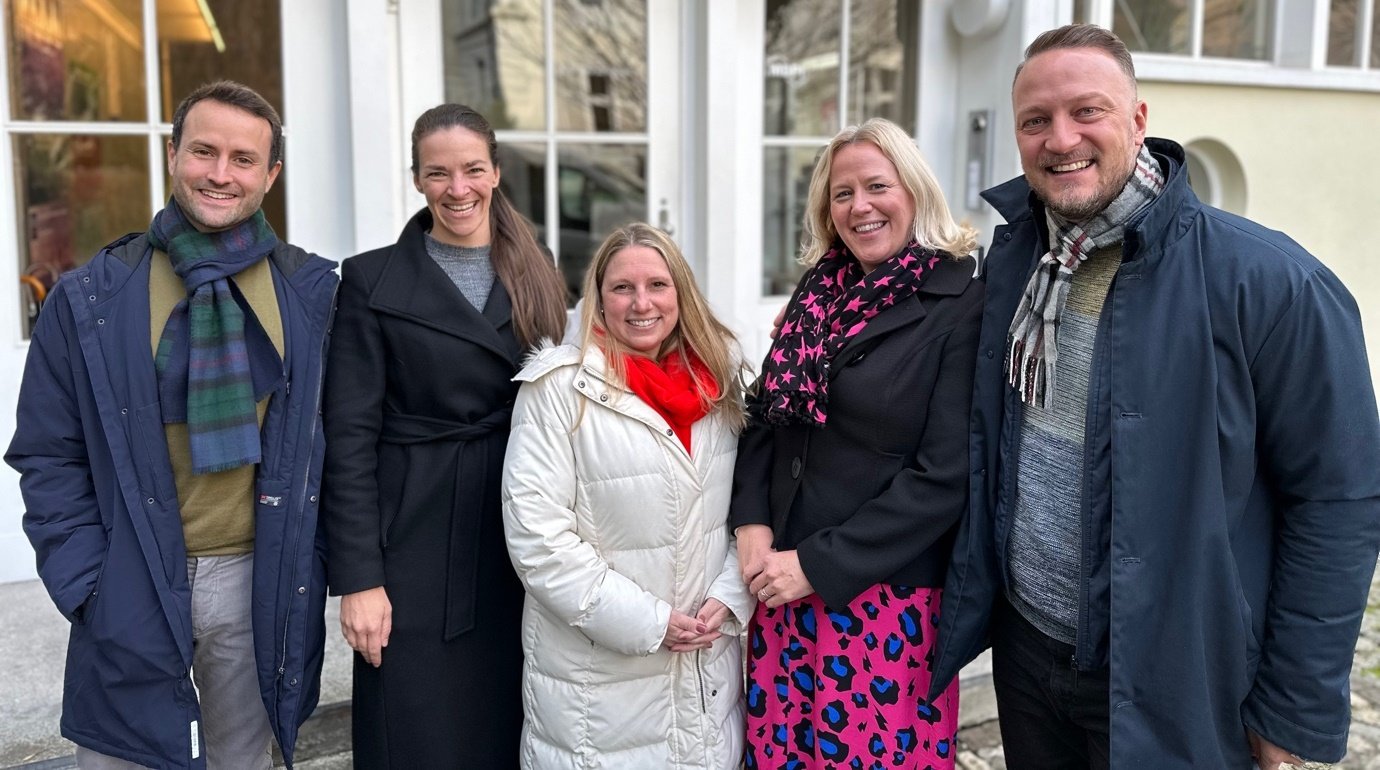
Left to right: Facundo Santomé (Senior Marketing Manager, MDPI), Constanze Shelhorn (Indexing Manager, MDPI), Cathy Holland (Director of Global Publisher Business Development, Digital Science), Helen Cooke (Managing Director of Publisher Sales, Digital Science), and Stefan Tochev (CEO, MDPI) in front of MDPI headquarters in Basel, Switzerland.
During our meeting, we discussed MDPI’s publishing philosophy and explored further avenues for collaboration. We look forward to continuing our partnership with Digital Science, aiming to improve our services yet further and meet the needs of our authors more closely than ever.
What is Altmetric?
You will notice that MDPI articles feature an Altmetric score, a colourful doughnut capturing the score in the upper right corner of the article page. This score represents ‘alternative metrics,’ as distinct from traditional metrics such as Impact Factor, CiteScore, and Scimago Journal Rank.
Altmetrics complement traditional citation-based metrics by capturing online discussions related to a specific research topic. By analyzing both sets of data, we can obtain a comprehensive understanding of the attention a particular research output receives and the sources in which it is mentioned.
“Almetric provides visual insights into where research is being discussed”
Sources Tracked by Altmetric
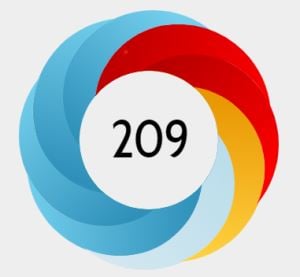
Altmetric badge showing the Altmetric score and colour-coded mention sources.
Altmetric monitors various sources, categorizing them into segments such as policy documents, peer reviews, Wikipedia, news and blogs, and social media, among other sources. Each category is identifiable by a specific colour.
The Altmetric badge provides visual insights into where the research is being discussed. A more colourful badge indicates broader mentions across multiple platforms. Such tracking enables us to gauge the extent of an article’s online dissemination, noting that increased visibility may correlate with higher citation rates.
Read more:
Impactful Research

Ten High-Altmetric Articles Published by MDPI
As at 30 January 2024, Altmetric has tracked 670,500 MDPI research outputs from MDPI, resulting in over 4.3 million mentions. This includes over 71,894 mentions in policy and patents and 294,714 mentions in news and blogs, with some achieving an Altmetric score as high as 28,754.
So, what is a good Altmetric score? There are various ways to put this score into context. You can find out more about the score in context and how to evaluate your work by this means.
Here are ten MDPI papers ranking in the top 5% of all research outputs scored by Altmetric.
|
|
“Accuracy in Wrist-Worn, Sensor-Based Measurements of Heart Rate and Energy Expenditure in a Diverse Cohort” J. Pers. Med. 2017, 7(2), 3; https://doi.org/10.3390/jpm7020003 Altmetric page: https://mdpi.altmetric.com/details/20477344 Altmetric shows that this article appeared in 253 news stories from 209 outlets including Forbes, BBC, and Fox News. |
|
|
“Daylight Saving Time and Acute Myocardial Infarction: A Meta-Analysis” J. Clin. Med. 2019, 8(3), 404; https://doi.org/10.3390/jcm8030404 Altmetric page: https://mdpi.altmetric.com/details/57654628 Altmetric shows that this article appeared in 295 news stories from 207 outlets including Forbes, The Atlantic, and New York Times. |
|
|
“The Preliminary Analysis of Cave Lion Cubs Panthera spelaea (Goldfuss, 1810) from the Permafrost of Siberia” Quaternary 2021, 4(3), 24; https://doi.org/10.3390/quat4030024 Altmetric page: https://mdpi.altmetric.com/details/111086701 Altmetric shows that this article appeared in 182 news stories from 134 outlets including CBC News, CNN, and National Geographic. |
|
|
“Not the Cat’s Meow? The Impact of Posing with Cats on Female Perceptions of Male Dateability” Animals 2020, 10(6), 1007; https://doi.org/10.3390/ani10061007 Altmetric page: https://mdpi.altmetric.com/details/83796184 Altmetric shows that this article appeared in 124 news stories from 98 outlets including VICE, CNN and The Guardian. |
|
|
“Behaviour and Welfare Impacts of Releasing Elephants from Overnight Tethers: A Zimbabwean Case Study” Animals 2022, 12(15), 1933; https://doi.org/10.3390/ani12151933 Altmetric page: https://mdpi.altmetric.com/details/133463915 Altmetric shows that this article appeared in 192 news stories from 186 outlets. |
How do I use altmetrics?
Altmetric Explorer provides a detailed step-by-step guide and instruction video for first-time users of the tool. The guide includes useful diagrams that make it easy to get started.
Sharing Research Online
For research to be tracked across different sources, Altmetric needs a research output with a persistent identifier: a DOI, ISBN, PubMed ID, handle ID, etc. When sharing research, it is important to include a link to the original research output.
|
|
“An Update on Eukaryotic Viruses Revived from Ancient Permafrost” Viruses 2023, 15(2), 564; https://doi.org/10.3390/v15020564 Altmetric page: https://mdpi.altmetric.com/details/142929875 Altmetric shows that this article appeared in 250 news stories from 180 outlets including CTV, Fox News, and CNN. |
|
|
“The Global Problem of Insufficient Sleep and Its Serious Public Health Implications” Healthcare 2019, 7(1), 1; https://doi.org/10.3390/healthcare7010001 Altmetric page: https://mdpi.altmetric.com/details/53406248 Altmetric shows that this article appeared in 252 news stories from 168 outlets including BBC, Harvard Business Review, and Forbes. |
|
|
“A Detailed Review Study on Potential Effects of Microplastics and Additives of Concern on Human Health” Int. J. Environ. Res. Public Health 2020, 17(4), 1212; https://doi.org/10.3390/ijerph17041212 Altmetric page: https://mdpi.altmetric.com/details/86529137 Altmetric shows that this article appeared in 197 news stories from 150 outlets including BBC, The Tribune, and World Economic Forum. |
|
|
“An Empirical Study of Chronic Diseases in the United States: A Visual Analytics Approach to Public Health” Int. J. Environ. Res. Public Health 2018, 15(3), 431; https://doi.org/10.3390/ijerph15030431 Altmetric page: https://mdpi.altmetric.com/details/34714141 Altmetric shows that this article appeared in 232 news stories from 149 outlets including Forbes, New York Times, and Harvard Business Review. |
|
|
“Garden Scraps: Agonistic Interactions between Hedgehogs and Sympatric Mammals in Urban Gardens” Animals 2023, 13(4), 590; https://doi.org/10.3390/ani13040590 Altmetric page: https://mdpi.altmetric.com/details/142934305 Altmetric shows that this article appeared in 172 news stories from 168 outlets including BBC. |
Inside MDPI

MDPI Annual Meeting Celebrations in China
On Thursday 25 January, over 1,300 MDPI colleagues from our two offices in Beijing gathered to kick off MDPI’s traditional ‘Annual Meetings.’ These celebrations take place in MDPI’s offices across China, including Dalian, Tianjin, Wuhan, and Nanjing.
The evenings include performances, informative talks and presentations, awards, and entertainment, providing an ideal platform to recognize our colleagues, celebrate their achievements, and set our sights on the future.
“It is essential that we stay connected and share best practices”

I sent a video congratulating everyone on their work and sharing our vision of building MDPI into the most trusted OA publisher, highlighting the roles each of us has to play in achieving that goal.
Unfortunately I could not join in person, but you may recall my recent trip, when I visited our offices in Beijing and Wuhan, which I look forward to visiting again this year.
Although our headquarters are in Basel, Switzerland, and we are expanding throughout Europe and North America, the majority of MDPI’s workforce is in China and throughout the Asia-Pacific region, including offices in Singapore, Thailand, Japan, and newly opened office in South Korea. It is essential that as a global organization, we stay connected and share best practices in order to grow collectively and continue providing the exceptional service to our authors.
The Annual Meeting is a moment to reflect and enjoy the year’s hard work and dedication.
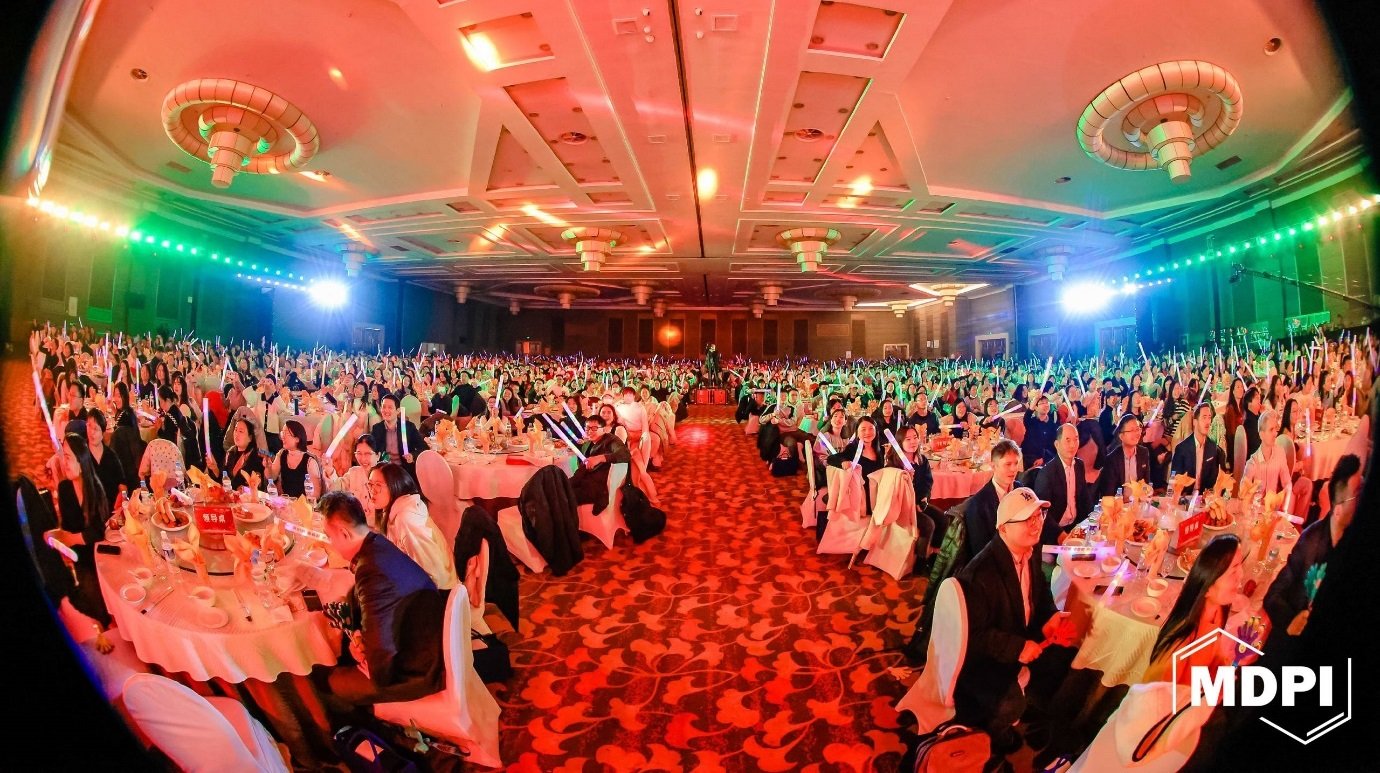
I extend our best wishes to all for the Chinese New Year (Xīnnián kuàilè)!
Coming Together for Science
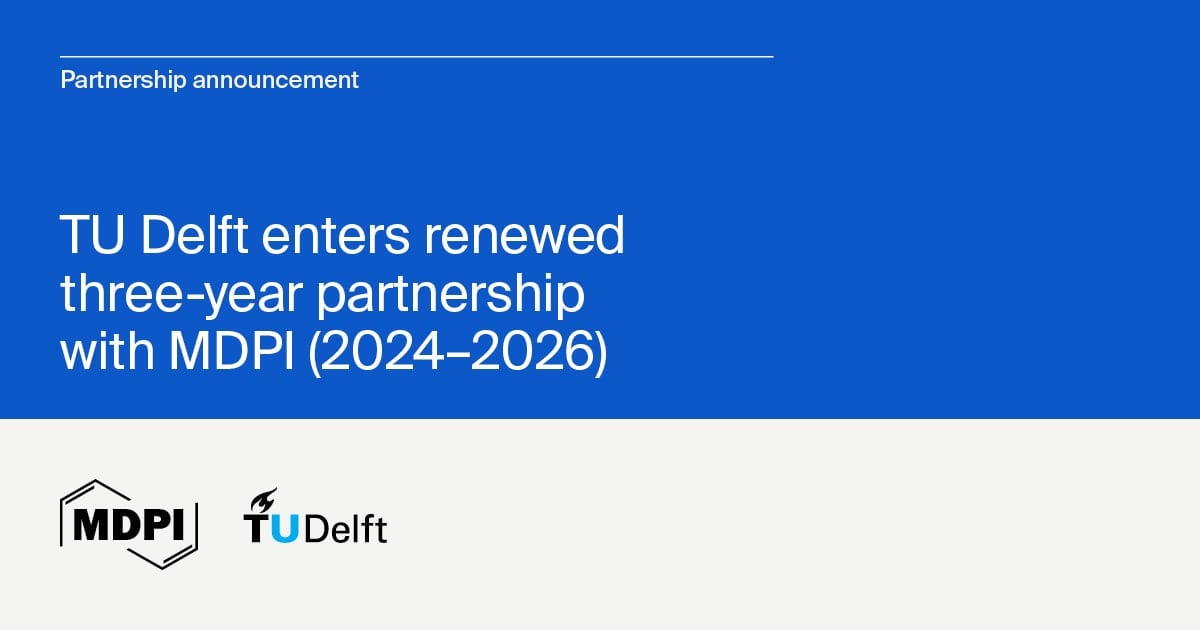
MDPI and TU Delft Adopt Flat Fee Model in Extended Partnership
We are excited to announce a renewed three-year partnership with Delft University of Technology (TU Delft) in the Netherlands. This collaboration introduces a fixed lump-sum fee, covering publishing costs from 2024 to 2026.
“This initiative reflects our dedication to transparent and inclusive publishing”
TU Delft-affiliated authors will enjoy cost-free publishing in any MDPI journal during this period, aligning with our commitment to removing barriers for open access publishing. The agreement supports Plan S compliance and facilitates a seamless publishing process for TU Delft corresponding authors. This initiative reflects our dedication to transparent and inclusive publishing, providing stability and predictability both for authors and for institutions.
For further details on our Institutional Open Access Program (IOAP), please contact us.
Benefits to MDPI’s IOAP
At MDPI we have a long tradition of partnerships, including our Institutional Open Access Program (IOAP). IOAP supports institutions through simplification, access, transparency, APC discounts, and institutional repository deposits. The program simplifies administrative processes, offers central payment, and allows easy opting in and out. Participants gain free access to Susy, MDPI’s online submission system, with extensive article metadata and exportable data. APC discounts and Book Processing Charge discounts are available for affiliated authors. Automated deposits to institutional repositories and streamlined matching of papers to IOAP participants enhance the overall experience.
For further information, see our IOAP FAQ.
Closing Thoughts

Reflections on the 2024 APE Conference
MDPI was proud to co-sponsor the Academic Publishing in Europe (APE) 2024 Conference that took place in Berlin, Germany, from 9–10 January 2024.
The conference theme, ‘Keep the Conversation Going!’, explored the evolving landscape of scholarly communication. APE is one of the key conferences I make a point to attend each year. January offers a valuable opportunity to engage with new contacts, reconnect with familiar faces, and participate in impactful discussions and presentations among professionals, scholars, and practitioners in the field.
“It's fascinating to see how other publishers are leveraging AI”
Highlights
Some of the standout panels for me include: the role of the UN Sustainable Development Goals (SDGs) within the publishing industry. It was encouraging to hear the current status quo, though I was eager also to learn about the exciting projects planned for 2024 and beyond. These will allow us to track progress in subsequent years. At MDPI, we remain committed to promoting Open–Access (OA) content on SDGs through scientific articles and books. Furthermore, we extend our commitment to sustainability by financially supporting researchers through initiatives such as the World Sustainability Award and the Emerging Sustainability Leader Award, as well as waiving the APC for feature papers on each SDG.
In recent years, discussions on AI have become increasingly prominent at such conferences. It’s fascinating to see how other publishers are leveraging AI to meet the evolving needs of their audiences while at the same time using it to safeguard the scientific process. Other engaging panels that I enjoyed included updates on transformation beyond transformative agreements, the principles of lean change, incentive structures related to research integrity, and the panel on reviewer incentives.
“We can share best practices and lessons learned”
Incorporating MDPI’s Insights into Conferences
I must confess that I sometimes feel overlooked when MDPI is not invited to participate in crucial industry discussions. As the leading open access publisher and the third-largest publisher overall, we possess extensive experience in many of these areas and can offer valuable contributions to these discussions. We can share best practices, lessons learned, and our thinking about future trajectories. For instance, in panels discussing reviewer incentives, at MDPI we offer a discount voucher to reviewers for future submissions, reflecting our commitment to fostering a robust peer review process. In 2022 alone, MDPI collected over 1.4 million peer review reports, informing the decision-making processes of our editors. Given our expertise in these areas, it would be natural to include MDPI in such discussions. I therefore extend an invitation to future conference organizers to consider MDPI for speaking engagements and collaborative opportunities.
Chief Executive Officer
MDPI AG
29 January 2024
Acknowledgment of the Reviewers of Catalysts in 2023
In recognizing the exceptional efforts of our reviewers in 2023, we express our sincere gratitude for upholding the high standards of Catalysts. Their commitment ensured the rigorous peer review that is integral to quality academic publishing.
In 2023, Catalysts received 4352 review reports, from 2773 reviewers. This past year, we worked with reviewers from 83 countries and regions, reflecting the diversity in our collaboration with research communities. Their dedication shapes scholarly discourse and advances global research. The editorial team expresses gratitude for the vital role played by each reviewer in the Catalysts family throughout 2023, and we look forward to their continued support in 2024.
The following are the reviewers who have consented to show their names:
| A. Santhana Krishna Kumar | Lucas Santos-Juanes |
| A. V. S. L. Sai Bharadwaj | Lucia Trinca |
| Abdulfatah A. Yusuf | Luciano Almeida |
| Abhishek Chakraborty | Lucjan Chmielarz |
| Abniel Machín | Luhui Wang |
| Aditya Velidandi | Luigi Di Bitonto |
| Adolfo Romero-Galarza | Luis Alberto Estudillo-Wong |
| Adriana Urda | Luis E. Iglesias |
| Adriano A. Mendes | Luis Humberto Mendoza Huizar |
| Afrasiab Tareen | M. Hussein Assadi |
| Afzal Khan | Mabrook Amer |
| Agata Łamacz | Madalina Tudorache |
| Ahmad Bazli Ramzi | Magdi El Fergani |
| Ahmad Mustafa | Maheen Gull |
| Ahmed Al-Mamoori | Mahmoud Parvazinia |
| Ahmed Faramawy | Mahmoud Sayed |
| Ahmed Jasim | Mahnaz Najafi |
| Aida Villa | Malaikozhundan Balasubramanian |
| Ajay Kumar | Malcolm Jobling |
| Akash Gautam | Manos Vlasiou |
| Akbar Hojjati-Najafabadi | Manuel Ramos |
| Akihiko Ishii | Manzoor Dar |
| Akira Morikawa | Marc Visseaux |
| Alain Favre-Reguillon | Marcelo E. Domine |
| Albert Moyano | Marcelo Guzman |
| Alberto Fraile | Marco Rabuffetti |
| Alejandro Cruz | Maria A. Longo |
| Alejandro Islas-Jácome | Maria Chernysheva |
| Aleksandra Bielicka-Giełdoń | Maria Do Carmo Rangel |
| Aleksey V. Zaitsev | Maria Goula |
| Aleksey Vedyagin | Maria Luisa Testa |
| Alessandro Blasi | Maria Michela Dell'Anna |
| Alex Grigoropoulos | Maria Victoria Navarro |
| Alexander Baykov | Mariana Souza |
| Alexander Schmidt | Marina Holyavka |
| Alexander Simenel | Marina Shilina |
| Alexander Syuy | Mario Simoes |
| Alexandrina Nan | Marlon Bastidas |
| Alexandru Popa | Marta Feroci |
| Alexey V. Salin | Martha Leticia Hernandez-Pichardo |
| Ali Cherif | Martin Bojinov |
| Ali Gemeay | Martin Hájek |
| Ali Maleki | Martin Høj |
| Ali Shafiee | Martina Pinto |
| Aliaksandr Shaula | Marwa El-Azazy |
| Alireza Moshfegh | Masoumeh Ghalkhani |
| Amal Baqais | Maurizio Volpe |
| Amin Fatoni | Mauro Bassetti |
| Amit Kumar | Maxim Grishin |
| Ana C. Gomes | Maxim Lutoshkin |
| Ana Cristino | Mehdi Hatami |
| Ana Fernandes | Meiyang Cui |
| Ana Maria Faisca Phillips | Melisa Bertero |
| Anastassiya Mashentseva | Menggang Li |
| Anatoli Popov | Mercedes Zurro |
| Andoni Choya | Michael Schalli |
| André Delavault | Michel Brondani |
| André L. Menezes De Oliveira | Miguel Ángel Gómez García |
| Andre Luis De Castro Peixoto | Miguel Menendez |
| Andrea Baschieri | Mihai Gîrțu |
| Andrea Beck | Mikhail Moskalik |
| Andrea Biffis | Milan Poudel |
| Andrea Gualandi | Miljana Radović Vučić |
| Andrei Dumitrescu | Mingbin Yuan |
| Andrew Chien | Minggui Lin |
| Andrey Aksenov | Mingjun Jia |
| Andrey Bukhtiyarov | Miroslav Pavlović |
| Andrey Saraev | Mohamed A. Basyooni |
| Andrey Zagoruiko | Mohamed Abd El-Aal |
| Ang Ren | Mohamed Abdel-Hamed |
| Angela Martins | Mohamed Mokhtar Mohamed Mostafa |
| Angelita Barcellos | Mohammad Bagher Askari |
| Aniruddha Mondal | Mohammad Ehtisham Khan |
| Anita Trenczek-Zajac | Mohammed Bakhsh |
| Anjaneyulu Putta | Mohammed Rahman |
| Anna Trusek | Mohan Varkolu |
| Anna Zimina | Mohd Fairus Bin Ahmad |
| Anton Ivanov | Mohd Imran |
| Anton Koskin | Mohd Khan |
| Anton Shalygin | Mohsen Mesbah |
| Antonia Sandoval González | Mohsen Padervand |
| Anuj Kumar | Montse Bazaga-García |
| Anwar Iqbal | Mostafa El-Miligy |
| Arghya Ghosh | Motasem Alazaiza |
| Arie Geerlof | Muhammad Ajmal |
| Arindam Indra | Muhammad Altaf Nazir |
| Aristide Giuliano | Muhammad Bilal Hanif |
| Arkadij Sobolev | Muhammad Kashif Shahid |
| Arlene Gonçalves Corrêa | Muhammad Raziq Rahimi Kooh |
| Artem Belousov | Muhammad Saeed |
| Arthur Vashurin | Muhammad Sheraz Ahmad |
| Artur Ratkiewicz | Muhammad Sufyan Javed |
| Arun Thirumurugan | Muhammad Tayyab |
| Arunkumar Jayakumar | Mujeeb Khan |
| Arvind Negi | Munawar Khalil |
| Asfandyar Khan | Murid Hussain |
| Asim Ali Yaqoob | Mutasem Bani-Fwaz |
| Asim Bhaumik | Mzamo Shozi |
| Astam Patra | Naresh Duvva |
| Athanasia Petala | Naseer Iqbal |
| Attila Egedy | Natalia Pozdnyakova |
| Baji Shaik | Nattanan T-Thienprasert |
| Bartłomiej Potaniec | Nattawut Osakoo |
| Bathula Babu | Naveen Kulkarni |
| Beatriz De Rivas | Nayef Ghasem |
| Beatriz Trindade Barrocas | Nelson Nunes |
| Bekir Eser | Nevena Prlainovic |
| Belén Altava | Nicholas Harmer |
| Benjaram Reddy | Nicola Sangiorgi |
| Bernd Schöllhorn | Nikita Sviridenko |
| Bhaskararao Bangaru | Nikolaos D. Charisiou |
| Bin Zhao | Ning Wang |
| Bo Wang | Nitin Chaudhari |
| Bocheng Tang | Njomza Ajvazi |
| Bogdan Cojocaru | Nobuhumi Nakamura |
| Bogdan Tutunaru | Noto Susanto Gultom |
| Bogdan Ulejczyk | Oleg Korchagin |
| Bojan A. Marinković | Oleg Kozaderov |
| Bojana Vasiljevic | Oleg M. Demchuk |
| Boopathy Ramasamy | Oleg Manaenkov |
| Boris Minaev | Oleg Shichalin |
| Bowen Lu | Oleg Silyukov |
| Božidar Čobeljić | Olga Belskaya |
| Carlo Morelli | Olga Bulavchenko |
| César Leyva-Porras | Olivia Soliman |
| Cezar Comanescu | Omid Akhavan |
| Changseok Han | Oriana Piermatti |
| Changwu Zheng | Osama Al-Madanat (Germany) |
| Chao Zhao | Osama Al-Madanat (Jordan) |
| Chennaiah Ande | Ottó Horváth |
| Chenxi Wang | Pablo Lopez-Albarran |
| Chenyang Li | Pankaj Sharma |
| Christopher Parlett | Patricia Concepcion |
| Christos Argirusis | Patricio Cancino |
| Christos Kordulis | Patricio Muñoz Torres |
| Chunxiang Zhu | Paul Chesler |
| Claudia Palopoli | Paul Vargas Jentzsch |
| Cláudio Rocha | Pavel Abramov |
| Cong Gao | Pavel Demakov |
| Congbin Ji | Pavel Reyes |
| Cyril Alexeev | Paweł Błoniarz |
| Dana Copolovici | Pedro Maireles-Torres |
| Daniel Dobslaw | Peiyong Ni |
| Daniel Oyekunle | Petr Yeletsky |
| Daniele Franchi | Pezhman Shiri |
| Danila Vasilchenko | Pier Carlo Ricci |
| Danilo Russo | Pierpaolo Napolitano |
| Daqin Guan | Piotr Bartczak |
| Davide Tessaro | Poernomo Gunawan |
| Dawid Kutyla | Prabhakarn Arunachalam |
| Dayu Li | Pranjali Naik |
| Debabrata Sengupta | Protap Biswas |
| Debtanu Maiti | Pu Zheng |
| Deep Raj | Putrakumar Balla |
| Dengxu Wang | Qiang Wang |
| Dezhi Han | Qinfang Zhang |
| Didier Bourissou | Qing Wang |
| Diego Luna | Quoc Bao Le |
| Dieter Vollath | R. Peña-Garcia |
| Dinesh Barak | Rachela G. Milazzo |
| Divya Prasad | Radu Racovita |
| Dmitriy Shtarev | Rafael Araújo |
| Dmitriy Yambulatov | Rafael Das Chagas |
| Dmitry Selishchev | Rafael Huirache Acuña |
| Dmitry Sharapa | Rafał Janus |
| Domenico Frattini | Rahul Majee |
| Durgasha Poudyal | Rajender Boddula |
| Edgar Mosquera | Ralitsa Velinova |
| Edgardo Meza Fuentes | Ram Hona |
| Edith Luévano-Hipólito | Rameswar Bhattacharjee |
| Edson Roberto Santana | Ramón Raudel Peña Garcia |
| Edward Gillan | Raul San Martin Faces |
| Egor Verbitskiy | Raymond J. Gorte |
| Ekaterina Smal | Reda Elkacmi |
| Emilio San-Fabián | Reinaldo Giudici |
| Emmanuel Topoglidis | Remigiusz Kowalik |
| Enrique Rodriguez-Castellon | Renata N. Vilas Bôas |
| Enver Güler | Renata Siedlecka |
| Erdinç Öz | Roberto Fiorenza |
| Eugene V. Radchenko | Rodrigo Soto |
| Eva Diaz | Roger Bringué |
| Evando Araújo | Roland Schoch |
| Evgeniy Titov | Roland Wohlgemuth |
| Evgeny Abkhalimov | Roong Jien Wong |
| Ewa M. Iwanek | Rosa María Camacho-Ruiz |
| Ewumbua Monono | Rudy Situmeang |
| Ezequiel Banús | Runping Ye |
| Fabia Grisi | S. V. Ramanaiah |
| Fabio Aricò | Sabari Ghosh |
| Fabio Salomone | Sabinus Oscar Onyebuchi Eze |
| Fabrice Gros | Sadegh Khazalpour |
| Faezeh Moghzi | Saeed Bahadorikhalili |
| Fanghao Zhang | Sagar Balagangadhara Udyavara |
| Fanhui Meng | Sak Sittichompoo |
| Farhan Javed | Sakshum Khanna |
| Farid Aiouache | Salvatore Baldino |
| Fatemeh Rajabi | Sándor Beszédes |
| Fei Chang | Sanja Bogojevic |
| Feng Guo | Sanja J. Armakovic |
| Flavia Zacconi | Sanja Panic |
| Flavio Colmati | Sanjivkumar Muthusamy |
| Fnu Asaduzzaman | Sapana Jadoun |
| Francesca Leonelli | Sara Fulignati |
| Francesco Arena | Sathish Ci |
| Francesco Giacalone | Sathish Mohan Botsa |
| Francisco Garcia-Canovas | Satriyo Wahono |
| Fupin Liu | Selda Oezkan |
| Gábor Hornyánszky | Sercan Karav |
| Galina Kovalenko | Serge Thorimbert |
| Gang Feng | Sergei Preis |
| Gazali Tanimu | Sergey Belenov |
| Georg Sprenger | Sergey Tin |
| Georgios Bampos | Sergi Maicas |
| Gerardo A. Flores-Escamilla | Sergio Obregon |
| Gianluca Landi | Sethupathi Velmurugan |
| Giorgio Della Sala | Seval Gunduz |
| Giorgio Tofani | Seyed Mehdi Sajjadi |
| Giovanni Gallo | Seyedeh Somayeh Taghavi |
| Girish Kumar | Shahid Zaman |
| Girolamo Casella | Shambhulinga Aralekallu |
| Giuseppina Cerrato | Shaoxuan Ren |
| Gleiston Dias | Shashanka Rajendrachari |
| Gonzalo De Gonzalo | Shashi Bhatia |
| Grazia Giuseppina Politano | Shengjie Wang |
| Grigory Mamontov | Shengli Pang |
| Guadalupe Gutiérrez-Soto | Shih-Wen Chen |
| Guangchao Liang | Shijie Li |
| Guillermo Díaz-Sainz | Shikha Agarwal |
| Guo-Liang Lu | Shinya Ikeno |
| Guoqiang Cao | Shirjana Saud |
| Gustavo Kashiwagi | Shoufeng Tang |
| György Keglevich | Showkat Bhawani |
| Haibo Ge | Shuangxi Xing |
| Hammadi El Farissi | Shuchen Hsieh |
| Hamzeh Kiyani | Shuhao Liu |
| Hang Coong | Shun Lu |
| Hanyu Zhang | Sidi Zhu |
| Harsh Vardhan | Silvana Pedatella |
| Hasanudin Hasanudin | Silvia Carlotto |
| Heberton Wender | Silviya Boycheva |
| Hemali Rathnayake | Simonas Ramanavičius |
| Heping Li | Simonetta Tuti |
| Hongda Li | Sivachandiran Loganathan |
| Hongfei Ma | Snezana Uskokovic-Markovic |
| Hongwei Zhang | Sohan Lal |
| Hongxing Dai | Soichi Yabuki |
| Hossein Esmaeili | Soliman El-Hout |
| Hsuan-Ying Chen | Sónia Carabineiro |
| Hu Li | Souraya Goumri-Said |
| Huan Pang | Sreshtha Sinha Majumdar |
| Hun Park | Sridhar Budhi |
| Hussein Younus | Sriram Balasubramanian |
| I. N. Zorov | Stanislav Grabovskii |
| Idrees Khan | Stefan Janecek |
| Ieva Barauskienė | Stefano Paganelli |
| Igor S. Mashkovsky | Stefano Vecchio Ciprioti |
| Igor Sivaev | Subba Cheekatla |
| Iiknur Altin | Sulakshana Shenoy |
| Ildar Ilyasov | Sushobhan Mukhopadhyay |
| Ileana Lick | Suyun Xu |
| Ilya Fateev | Svetlana Selishcheva |
| Ilya Tumkin | Sylwia Górecka |
| Ilya Zavidovskiy | Taha Hemaida |
| Imgon Hwang | Taher Yousefi Amiri |
| Imran Hasan | Taizhong Huang |
| Ingrid Motta | Takayuki Doi |
| Inna Solyanikova | Tamara Ivetić |
| Ioanna Martinaiou | Tamara Lazarevic-Pasti |
| Ionut Banu | Tamer Saleh |
| Iran Rocha Segundo | Tang Li |
| Irina Zvereva | Tatiana Rostovshchikova |
| Iván Sciscenko | Tatiana Sheshko |
| Ivana Mihajlovic | Tatiparthi Sagar |
| Iwona Kuźniarska-Biernacka | Tatyana Tabakova |
| J. Andres Tavizon-Pozos | Theerayut Phengsaart |
| J. M. Ramirez-De-Arellano | Thi Thanh Binh Nguyen |
| Jacek Wojnarowicz | Thierry Ribeiro |
| Jacopo De Bellis | Tianhua Tang |
| Jadranka Milikić | Tien Nguyen |
| Jaideep Malik | Tomer Zidki |
| Jaime Escalante | Tomoya Takada |
| Jaime Soler | Tomoyuki Toda |
| Jakub Mokrzycki | Toshifumi Dohi |
| Jakub Rajewski | Tshimangadzo Munonde |
| Jamal Rafique | Tuan Sang Tran |
| Jan Back | Umar Farooq |
| Janet Jan-Roblero | Vadim Boyarskiy |
| Janvit Terzan | Vadim Igorevich Popkov |
| Jaqueline Senra | Vadim Samoilov |
| Jaroslaw Blaszczyk | Vairaprakash Pothiappan |
| Jaroslaw Serafin | Vairavel Parimelazhagan |
| Jasvir Dalal | Valentin Romanovski |
| Javier Ereña | Valeryia Kasneryk |
| Javier Fernández Catalá | Vasilii Evtushok |
| Javier Herguido | Veeranjaneyulu Gannedi |
| Javier Linares-Pastén | Venkata Surya Kumar Choutipalli |
| Jawayria Najeeb | Vesna Tepavčević |
| Jelena Lović | Vicente Cortés Corberán |
| Jesus Gonzalez-Cobos | Vicente Gotor-Fernández |
| Jesús Mengual | Vignesh Muthusamy |
| Jeyashelly Andas | Vijay Devra |
| Jian Qi | Vikram Dalal |
| Jianqiang Wang | Vladimir Katnov |
| Jin You Zheng | Vladimir Larionov |
| Jinchun Tu | Vladimír Mastihuba |
| Jin-Chung Sin | Wang Yao |
| Jinjie Qian | Waqas Alam Mir |
| Jinsong Gong | Wei Guo |
| Joan Manuel Rodríguez-Díaz | Wei Sun |
| João Gomes | Weili Dai |
| João Paulo Winiarski | Weitao Shan |
| Joaquín Martínez Triguero | Wen Luo |
| Johann Heider | Wenfang Liu |
| John Zhou | Wenjie Zang |
| Jon Ander Onrubia Calvo | Wenjun Wang |
| Jordi Badia | Wenqiang Yang |
| Jorge Alberto Mendoza-Pérez | Wibawa Hendra Saputera |
| Jorge Donadelli | Willem Berkel Van |
| José Arandes | William Chong |
| José Barrera-Andrade | William Leonardo Da Silva |
| Jose Escobar | Xia Xin |
| Jose J. Martínez | Xiangfei Li |
| José Luís Figueiredo | Xiangxian Ying |
| José Palenzuela | Xiaochen Shen |
| Joseph Govan | Xiaofang Liu |
| Juan Adrian Ramos Guivar | Xiaogang Liu |
| Juan Castillo | Xiaohui Ren |
| Juan Pablo Bortolozzi | Xiaomei Yang |
| Jugal Kumawat | Xiaoming Yue |
| Jun Chen | Xiaoyang Liu |
| Jun Gu | Xin Ma |
| Junkuo Gao | Xinglu Wang |
| Junshan Li | Xingxu Lu |
| Junxian Liu | Xingyun Li |
| Justo Lobato | Xinjun Feng |
| Kabir Oyedotun | Xinpeng Cheng |
| Kadriye Özlem Hamaloğlu | Xinxin Xiao |
| Kah Yam | Xinyu Li |
| Kalliopi Ladomenou | Xiong He |
| Kamal Sadek | Xue Han |
| Kamaldeep Sharma | Yagang Zhang |
| Karolina Kula | Yamei Li |
| Karthik Kannan | Yanbin Feng |
| Kechrist Obileke | Yanping Zhu |
| Kedhareswara Sairam Pasupuleti | Yassine Slimani |
| Kenso Soai | Yi-En Du |
| Khalid Umar | Yilang Liu |
| Ki Hyun Nam | Yingluo He |
| Kiadtisak Saenboonruang | Yongjun Ji |
| Kira E. Vostrikova | Yongman Choi |
| Kirill Cherednichenko | Yongqiang Ji |
| Kirill Laptinskiy | Yousra Kotp |
| Konstantin Dement'ev | Yu Tang |
| Konstantinos Christoforidis | Yu Yu Titova |
| Kumar Ajay | Yuanyuan Dong |
| Kun Zheng | Yucang Liang |
| Kuntal Chatterjee | Yuhang Qi |
| Lahoucine Bahsis | Yun Shan |
| Lajos Fodor | Yun Wang |
| Laura Bulgariu | Yury I. Bauman |
| Laura Santamaria | Yury V. Dubinin |
| Lemma Tufa | Zaka Ullah |
| Leonarda Francesca Liotta | Zeai Huang |
| Leonid Kulikov | Zekai Zhang |
| Lichen Bai | Zhangfeng Qin |
| Likius Daniel | Zhaoxi Sun |
| Lilia Sineva | Zhen Zhang |
| Liming Fan | Zheng-Yuan Su |
| Lin Yu | Zheyu Luo |
| Lingcong Li | Zhixing Gan |
| Liuye Mo | Ziliang Chen |
| Liwen Xing | Zinaida Shifrina |
| Long Kuai | Zisimos Toumasatos |
| Longcheng Zhang | Zohra Benzarti |
| Longyong Xie | Zohreh Masoumi |
| Lorenzo Mino | Zsolt Rapi |
| Lu Liu | Zuoli He |
| Lucas Hernández-Saravia | Zuzanna Bielan |
2 January 2024
MDPI Insights: The CEO's Letter #7 - Nobel Laureates Entrust MDPI with Their Research

Welcome to the MDPI Insights: The CEO's Letter.
In these monthly letters, I will showcase two key aspects of our work at MDPI: our commitment to empowering researchers and our determination to facilitating open scientific exchange.
Opening Thoughts

Nobel Prize Laureates Entrust MDPI with Their Research
The Nobel Prize stands as a hallmark of distinction, honouring ground-breaking research across disciplines. Annually, the Nobel Prizes are awarded in six categories: Physics, Chemistry, Medicine or Physiology, Literature, Peace, and Economic Sciences.
Through the years, renowned scholars have entrusted MDPI with their work. As at December 2023, 26 Nobel laureates have contributed to more than 75 articles across 25 MDPI journals, including: Antibiotics, Applied Sciences, Biology, Biomedicines, Cancers, Catalysts, Cells, Crystals, Entropy, Games, IJMS, Life, Materials, Micromachines, Molecules, Pharmaceuticals, Pharmaceutics, Photonics, Quantum Beam Science, Remote Sensing, Sensors, Solids, Universe, Vaccines, and Viruses.
The best of the best trust us with their work.
Nobel Prize Laureates Who Have Published with MDPI
We are proud to list the names of Pierre Agostini, Hiroshi Amano, Werner Arber, Aaron Ciechanover, Robert H. Grubbs, Oliver Hart, Gerard ‘t Hooft, Michael Houghton, Harald zur Hausen, Katalin Karikó, Jean-Marie Lehn, Gérard Mourou, Ferid Murad, Shuji Nakamura, William Nordhaus, Kostya S. Novoselov, Giorgio Parisi, Charles M. Rice, Alvin E. Roth, Donna Strickland, K. Barry Sharpless, George F. Smoot, Anne L’Huillier, Drew Weissman, Kurt Wüthrich, Ada Yonath.
The privilege of hosting such contributors resonates deeply with our editorial teams. For instance, in this interview, the Editor-in-Chief (EiC) of Universe speaks on the significance of publishing a paper by Nobel laureate Gerard ’t Hooft within the journal.
2023 Nobel Prize Winners Published by MDPI

Nobel Prize Winners, 2023: Katalin Karikó, Drew Weissman, Anne L’Huillier (Ill. Niklas Elmehed © Nobel Prize Outreach)
Three laureates from the 2023 Nobel Prize cohort have trusted MDPI as their publishing platform. Notably, in a 2022 Pharmaceutics paper, molecular biologist Katalin Karikó and her team presented a methodology for evaluating mRNA capping efficiency, pivotal for therapeutic applications. Pharmaceutics had previously dedicated a Special Issue to “mRNA Therapeutics: A Themed Issue in Honor of Professor Katalin Karikó”, spotlighting ten articles from August 2021 to February 2022.
In the journal Vaccines, Professor Drew Weissman, collaborating with scholars from Pennsylvania University and George Mason University, contributed an influential review titled “Nanomaterial Delivery Systems for mRNA Vaccines”. His collaborative efforts spanned five papers across MDPI journals between 2021 and 2023.
Furthermore, Anne L'Huillier of Lund University, only the fifth female recipient of the Physics Prize, co-authored an article in Applied Sciences focusing on "Advanced EUV and X-Ray Optics". Similarly, Pierre Agostini, an Emeritus Professor from Ohio State University, co-authored an article featured in the special issue "Attosecond Science and Technology: Principles and Applications".
We extend heartfelt congratulations to all Nobel Prize laureates and express sincere gratitude for their confidence in MDPI as a platform for their scholarly contributions.
Read more:
Impactful Research

MDPI Journals Newly Indexed in 2023
The aim of indexing is to enhance the quality and credibility of published research, ensuring that researchers access the most credible resources available. While the principle behind citation indexing is straightforward, it remains one of the most dependable methods for tracking an idea's evolution across various scientific disciplines.
Throughout the year, MDPI works to expand the reach of our publications across premier multidisciplinary databases like Web of Science, Scopus, EBSCO, and ProQuest. This initiative is spearheaded by MDPI's Indexing team, under the leadership of Dr. Constanze Schelhorn.
In 2023, MDPI achieved 54 new acceptances in Scopus, 29 in Web of Science, 52 in EBSCO, and 83 in DOAJ: Directory of Open Access Journals.
The team prioritizes ensuring that our journals feature in numerous specialized databases, including PMC, PubMed, MEDLINE, Inspec, CAS, and FSTA, among others. Currently, MDPI collaborates with over 65 renowned international databases, consistently enhancing our database affiliations annually.
MDPI’s journals are indexed in all major global databases.
Furthermore, we collaborate with universities and government organizations to list our journals in country-specific ranking lists and relevant institutional repositories. This ensures compliance with requirements often set by funders or institutions for authors to publish in specific journals.
Web of Science Adds 24 MDPI Journals to Emerging Sources Citation Index (ESCI)
Clarivate recently analysed MDPI’s new journals, resulting in 24 journals, mainly established in 2020, being added to the ESCI in November and December 2023. Additionally, five journals passed this assessment earlier in the year. For a complete list of our journals in Web of Science, refer here. Journals in the ESCI meet 24 quality criteria, ensuring editorial rigor. They may be considered for inclusion in broader indices like the Science Citation Index Expanded (SCIE), the Social Sciences Citation Index (SSCI), or the Arts and Humanities Citation Index (AHCI), based on four impact criteria.
Read more:
Inside MDPI

MDPI Appoints New Chief Operating Officer (COO)

Alistair Freeland returned to MDPI and assumed the role of Chief Operating Officer in November 2023, a position he previously held from 2013 to 2019. He succeeds Dr. Yu Lin, who will remain a member of MDPI’s Board of Directors, overseeing significant financial decisions for the company. I would like to express my sincere thanks to Dr. Yu Lin for his service as COO.
Alistair brings extensive experience not only in scholarly publishing but also in technology and business management. Prior to rejoining MDPI, he was associated with SIX Group, the entity responsible for Switzerland's financial market infrastructure. There, he played a pivotal role in developing the blockchain-based platform SDX (SIX Digital Exchange), which has gained traction among major Swiss banks and the Swiss National Bank.
As COO, Alistair will collaborate with the MDPI management team to improve the practices and services we offer to scholarly communities. I am pleased to welcome Alistair back to MDPI and look forward to his contributions going forward.
Coming Together for Science

MDPI’s 2024 In-Person Academic Events Schedule
MDPI's Conference Team is dedicated to organizing and hosting in-person academic events across Europe, Asia-Pacific, and North America. We recognize conferences as invaluable platforms for scientific collaboration, scholarly exchange, discussions on contemporary topics, networking, and forging collaborations.
Here's a glimpse of the notable events we currently have scheduled for 2024:
|
|
14–16 February, 2024 |
|
|
24–26 April, 2024 |
|
|
28–31 May, 2024 |
|
|
1–4 August, 2024 |
Upcoming events with details to be announced:
- September 2024, Materials 2024 – Basel, Switzerland
- 19–21 September 2024, International Conference on Nanomaterials Sciences 2024 – Beijing, China
- October 2024, ncRNA 2024 – Basel, Switzerland
- November 2024, Pharmaceuticals 2024 – Barcelona, Spain
- 22–26 November 2024, International Conference on Science of Electronics – Wuhan, China
- Stay tuned for more details on the Sustainable Publishing Forum 2024.
Click here for all upcoming MDPI events.
Organize Your Event with MDPI’s Sciforum
Sciforum is MDPI’s platform dedicated to the organization of scientific events. In line with our mission to promote science, Sciforum supports scholars, societies, research networks, and universities at all stages of organizing in-person events, virtual events and webinars. Our platforms are efficient, user-friendly, and cost-effective. We handle all steps related to event management. Contact us for details.
Closing Thoughts

Reflecting on 2023 and Looking Ahead to 2024
As we approach 2024, I reflect on the incredible journey we’ve had together at MDPI this year. The past 12 months have been marked by ambitious projects and initiatives to improve our internal processes, and a commitment to continue delivering top-notch services to our stakeholders. I’d like to thank each and every one of our staff members for contributing to the positive experiences our stakeholders have reported in our surveys. Your dedication to speed, efficiency, and effective communication with our stakeholders is very much recognized and appreciated.
Becoming a stronger organisation
While we have encountered challenges in 2023, it’s important to understand that these are a part of our growth process. Difficulties provide us with opportunities to reflect, address problems at their roots, and ultimately evolve into a stronger organization. Our stakeholders expect us to overcome tough times, and it’s an expectation that we have for ourselves.
I extend my sincere appreciation to every MDPI employee, from our editorial office and IT department to marketing, indexing, IOAP, societies, Scientific Office board, products, production, conferences, finance, operations, admin, and beyond. To our newest team members, a warm welcome; to our longstanding colleagues, your dedication is invaluable.
“I am committed to taking MDPI to a new level of excellence.”
Interacting with many of you during my visits to our offices and representing MDPI at external events has been a personal highlight. I am deeply grateful to Dr. Lin for entrusting me with the role of CEO of MDPI. Looking forward, I am committed to working closely with our management team to lead MDPI and take it to a new level of excellence, aiming to establish it as the most trusted publisher in open access worldwide. This is a collective endeavour, with each of us shaping MDPI’s reputation. I therefore encourage us to take pride in our work, as it represents not only our craft but also MDPI as a whole.
Accountability and communication
As we look forward to 2024, there’s a lot to be excited about. Together, we’ll navigate challenges, seize growth opportunities, and refine our practices. To solidify MDPI’s position as the premier open access publisher globally, we must bolster accountability, improve stakeholder communication, share MDPI’s best practices, champion the open access philosophy, and educate stakeholders about our mission, methodologies, and motivations.
Thank you for engaging with the CEO Letter over the past six months of 2023. I will continue to release this newsletter as a method of sharing the great work being done at MDPI. Please feel free to connect directly with any insights or questions.
Here’s to a joyous and prosperous 2024!
Chief Executive Officer
MDPI AG
6 December 2023
Editorial Board Members from Catalysts Featured in the 2023 Highly Cited Researchers List Published by Clarivate
Recently, Clarivate™ revealed its 2023 list of Highly Cited Researchers™ at universities, research institutes, and commercial organizations.
The scientists who were selected for this year’s list published highly cited papers in the 11-year period from January 2012 to December 2022, with a citation frequency in the top 1% of academic subjects in the same year in the Web of ScienceTM database. This year, 7,125 designations were issued to 6,849 individuals, representing just 1 in 1,000 researchers worldwide. This means that these researchers have been significant and influential in their chosen field or fields over the last decade. The list spans social and scientific researchers from 67 countries or regions.
According to our statistics, 20 members of the Editorial Board of Catalysts (ISSN: 2073-4344) were selected for the list of Highly Cited Researchers by ClarivateTM in 2023. They are being recognized for their high-quality scientific research achievements and outstanding contributions to their professional fields. Catalysts sincerely congratulates all the elected editorial members and hopes that they continue to work with the journal.
|
Researcher |
Category |
Affiliation |
|
Wang, Ying |
Cross-Field |
Chinese Academy of Sciences, China |
|
Huang, Hongwei |
Materials Science |
China University of Geosciences, China |
|
Zhang, Hui |
Cross-Field |
Wuhan University, China |
|
Yang, Jianping |
Cross-Field |
Donghua University, China |
|
Ran, Jingrun |
Cross-Field |
University of Adelaide, Australia |
|
Gong, Jinlong |
Chemistry |
Tianjin University, China |
|
Hu, Jin-Song |
Cross-Field |
Chinese Academy of Sciences, China |
|
Zhu, Junfa |
Chemistry |
Chinese Academy of Sciences, China |
|
Lu, Junling |
Cross-Field |
Chinese Academy of Sciences, China |
|
Guo, Lin |
Cross-Field |
Beihang University, China |
|
Li, Linlin |
Cross-Field |
Nanjing University of Aeronautics & Astronautics, China |
|
Zhu, Mingshan |
Cross-Field |
Jinan University, China |
|
Dou, Shi Xue |
Chemistry |
University of Shanghai for Science & Technology, China |
|
Ma, Tianyi |
Chemistry |
Royal Melbourne Institute of Technology (RMIT), Australia |
|
Chen, Wei |
Agricultural Sciences |
Xi'an University of Science & Technology, China |
|
Choi, Wonyong |
Cross-Field |
Korea Institute of Energy Technology (KENTECH), South Korea |
|
Li, Yat |
Cross-Field |
University of California Santa Cruz, United States |
|
Pan, Xiaoqing |
Cross-Field |
University of California Irvine, United States |
|
Fernandez-Lafuente, Roberto |
Biology and Biochemistry |
Consejo Superior de Investigaciones Cientificas (CSIC), Spain |
|
Fu, Gengtao |
Cross-Field |
Nanjing Normal University, China |
30 November 2023
MDPI Insights: The CEO's Letter #6 - MDPI Spain Summit and ResearchGate

Welcome to the MDPI Insights: The CEO's Letter.
In these monthly letters, I will showcase two key aspects of our work at MDPI: our commitment to empowering researchers and our determination to facilitating open scientific exchange.
Opening Thoughts

MDPI Spain Summit

Stefan Tochev (CEO, MDPI) gives the opening speech at the MDPI Spain Summit.
On Friday 10 November 2023 I was in Barcelona, Spain, to deliver the opening presentation and participate in a panel at MDPI’s Spain Summit, a two-day event, inspired by our salon events in China.
With 16 Editors-in-Chief (EiCs) and 20 Editorial Board Members (EBMs) in attendance, the event, organized by our conference team and Barcelona office, featured presentations on open access (OA), MDPI, and publishing market trends in Spain.
The event provided a great opportunity to engage with stakeholders from various MDPI journals, including Nutrients, Vaccines, Buildings, IJMS, and others. We were able to gather feedback and have open conversations around manuscript quality, the peer-review process, and journal development, as well as accreditation agencies.
The main objective of this Summit was to bring together Editors representing MDPI journals across various disciplines within Spanish universities and research centers, primarily from the Barcelona area. The aim was to facilitate an open and fruitful discussion regarding the development of their journals, the future of OA in Spain, and to provide meaningful interactions and networking opportunities.
Connecting with Editorial Board Members

Stefan Tochev in conversation with Summit participants: "Our EBMs are passionate about the journals they serve."
Interacting with our EBMs in person provides a valuable opportunity to show how important it is to us to connect with them, hear their perspectives on their journals and learn more about their own experience collaborating with MDPI.
From my conversations, it was clear that our EBMs are passionate about the journals they serve. I know the advice they provide may sometimes involve just small tweaks, but these can lead to important improvements. As the saying goes, small hinges swing open big doors.
As at November 2023, MDPI has over 6,300 EBMs affiliated with Spanish institutions, with more than 30 of them serving as EiCs or section EiCs. Furthermore, over 68,000 Spanish scholars have contributed as reviewers in MDPI journals.
Open Access in Spain
In 2023, Spain implemented legislation mandating immediate OA for all publicly funded research, aligning with the EU’s Plan S initiative to expedite the transition to OA. The Spanish government also approved a four-year, €23.8 million annual budget for the first national OA strategy, aiming to make publicly funded research freely accessible upon publication. This strategy aims to strengthen the quality and transparency of research in Spain, and to help promote movement towards a digital, low-carbon economy.
For further details of Spain's OA policy and the history of government mandates, click here.
Spain has already seen a notable decline in subscription-only articles, decreasing by 62% over a 10-year period, while gold OA increased by 42%. Green OA slightly decreased, suggesting a shift towards publishing in gold OA journals rather than traditional subscription-based ones. Here are some statistics from Scopus.
A big thank-you to the various MDPI teams, including our conference team and the Barcelona office, for organizing this very successful event!

MDPI colleagues from various offices gathered to host and support the first MDPI Spain Summit, in Barcelona, Spain.
I think this type of gathering has the potential to become an annual event in various locations. For example, Manchester could be an option, as we have over 30 EiCs and over 3,000 EBMs in the UK, a top market for MDPI that publishes high-quality research.
Impactful Research

769 Editorial Board Members of MDPI Journals Recognized as Highly Cited Researchers in 2023
Congratulations to our 769 Editorial Board Members from 40 countries/territories who have been awarded Highly Cited Researcher status for 2023 by Clarivate. This recognition is based on their outstanding scientific research contributions and significant influence in various fields, as evidenced by Web of Science data.
Click here to view the full list of 769 Editorial Board Members.
Clarivate's Highly Cited ResearchersTM list identifies individuals with exceptional impact in scientific and social science domains over the past decade. Their papers rank in the top 1% of citations in 21 fields analysed in ‘Essential Science Indicators,’ showcasing their substantial influence.
This year, 7,125 Highly Cited Researcher 2023 designations were issued to 6,849 individuals from 67 countries, representing just 1 in 1,000 researchers worldwide.
These researchers demonstrate exceptional influence, representing a small fraction of contributors pushing the boundaries of knowledge, contributing to global well-being, sustainability, and security.
Congratulations to these scholars for their remarkable achievement: we are honoured to have them on board with our journals!
Inside MDPI

Corporate Marketing and Communications Strategy Session

Members of MDPI’s Corporate Marketing & Communications team.
For the past few years, I have led the Corporate Marketing & Communications department in our annual strategy session.
This typically involves 2–3 days of focused sessions covering key topics including budgeting, hiring targets, campaign reviews, and planning for the upcoming year, department strategy, and structure.
We are constantly exploring ways to optimize the Corporate Marketing & Communications department to support MDPI’s primary objectives and better convey the MDPI story while serving the scholarly community.
The strategy session also serves as a team-building activity, during which the team voted on bowling!
Strategy Session
In this strategy session, we looked at how to align our teams in order to better streamline our content with our campaigns, build a dedicated marketing team to strategically support our core MDPI products, expand our communications teams and functionalities to focus on company-critical campaigns and press releases, align our new brand design system with our marketing initiatives, set up a community and engagement team to support various teams with their outreach and communication efforts, and increase our use of data in the evaluation of campaign performance.
To grow in these areas, we will be hiring for various positions, including those of Public Relations Manager, Communications Manager, Internal Communications Manager, Campaign Manager, Marketing Associate, and Editorial Engagement Manager.
I am grateful for the way our Corporate Marketing & Communications department has grown and gelled over the years, and I look forward to supporting the department teams and their ideas for the future.
Coming Together for Science

ResearchGate and MDPI Partner to Boost the Visibility of Open Access Content through Journal Home

Stefan Tochev (CEO, MDPI) and Sören Hofmayer (Co-Founder and Chief Strategy Officer, ResearchGate) meet in Berlin, Germany to take their ongoing discussion further.
When I assumed the role of CEO at MDPI, my primary focus was to initiate the building of essential partnerships and collaborations within our industry. After all, I am a firm believer in achieving our goals by helping others achieve theirs and focusing on co-opetition wherever there is an opportunity. I first touched on the notion of co-opetition in MDPI Insights: The CEO's Letter #3, particularly when discussing collaborations with Elsevier.
In light of this, Sören Hofmayer (Co-Founder and Chief Strategy Officer at ResearchGate) and I connected recently to continue a discussion that had been ongoing for months. I was quickly brought up to speed and felt there was an opportunity for MDPI journals to pilot the Journal Home service that ResearchGate had launched. This would provide a new way for MDPI to engage with authors and readers and amplify the visibility of our journals.
While I receive many offers and opportunities for discussions with vendors, I am a firm believer that timing is everything, and in this case, the time for us is now. Sören and I met in person during my recent visit to Berlin and decided to proceed with piloting ten MDPI journals with the Journal Home service.
The press release below provides further details.
Press Release: Berlin (Germany) and Basel (Switzerland), 15 November 2023
ResearchGate, the professional network for researchers, and MDPI, the largest open access publisher in the world and a pioneer in open access publishing, today announced a partnership that will see ten of MDPI’s open access journals benefit from an enhanced presence on ResearchGate through its innovative Journal Home offering.
This new partnership will expand the reach and visibility of MDPI’s participating flagship journals with ResearchGate’s highly relevant community of more than 25 million researchers globally.
Around 210,000 version-of-record articles from these 10 titles will be readily available on ResearchGate, including the full archive material and all new articles as they are published. These journals also benefit from enhanced brand visibility, with dedicated journal profiles, prominent representation on all associated article pages and all relevant touchpoints across the ResearchGate network – keeping the journals top-of-mind with their reader and author audiences. All articles covered by the new partnership will automatically be added to the authors’ publication records in ResearchGate. This not only reduces MDPI authors’ needs for direct management but also offers them valuable insights into the impact of their work, including data about readership and citations.
Closing Thoughts

November is Men’s Health Awareness Month

Stefan Tochev (CEO, MDPI) listening to music as he writes at a coffee shop in Basel, Switzerland.
November is dedicated to raising awareness of various men’s health issues. I have been fortunate to have positive male role models in my life, and I strive to share my experiences with others.
I used to take part in Movember, growing my moustache throughout November to raise awareness and funds and to help “change the face of men’s health.” With male family and friends impacted by physical and mental health issues, I have recently become more interested in men’s overall well-being.
Men often face stigma involving the perceived need always to be strong and have things figured out. Recently, I’ve had meaningful conversations with male friends and colleagues about issues we rarely discuss, and it was a positive experience.
Various factors impact men’s health and well-being, all too easily leading to risky health behaviours including a lack of health awareness, poor health education, and negative, culturally induced, behaviour patterns in our work and personal lives. I hope we can break down these barriers in our work environment.
Healthy men help build healthy families and a healthy society
Men are less likely than women to seek help with their physical and mental health struggles. This is a reminder to prioritize your overall well-being. I hope that as men, we will continue to open up to one another, becoming vulnerable in order to share what we are going through. By sharing and by supporting each other, we can learn and grow together. You are not alone, and when you fall, you can still get up and stand tall.
From one broski to another, you are loved and appreciated. I hope this mindset carries into December and beyond.
Mindfulness
Our content team recently released a handful of articles on mindfulness, a practice that I believe provides a good opportunity for stress release and self-reflection:
Chief Executive Officer
MDPI AG
23 November 2023
Meet Us at the 2023 Annual Meeting of China Chemical Industry Society, 27–29 November 2023, Guangzhou, China

A range of MDPI journals will be attending the 2023 Annual Meeting of China Chemical Industry Society. This meeting will be held in Guangzhou, China, from 27 to 29 November 2023.
The annual meeting of China Chemical Industry Society is held every two years. It is an international, multi-disciplinary, and trans-regional high-level academic event in the field of chemical engineering. It plays an important role in promoting the academic prosperity of chemical engineering and promoting scientific and technological innovation in the chemical industry.
This annual meeting is hosted by the China Chemical Society and hosted by South China University of Technology, Guangdong University of Technology, and Sinopec Guangzhou Engineering Co., Ltd. With the theme of “New Fields, New Tracks, New Industries, New Dynamics”, the annual conference will include an opening ceremony and main forum, high-achieving academic lectures, 29 thematic sub-forums, a chemical technology innovation exhibition, and other supporting activities. The conference will welcome around 3000 attendees.
The following MDPI journals will be represented at the conference:
- Processes;
- Polymers;
- Membranes;
- Energies;
- Surfaces;
- Catalysts.
If you are planning to attend this conference, please feel free to start a conversation with us at our booth (#A033). Our delegates look forward to meeting you in person and answering any questions that you may have. For more information about the conference, please visit http://www.ciesc.cn/notice/a2310.html or contact the Processes Editorial Office.
21 November 2023
769 Editorial Board Members of MDPI Journals Achieve Highly Cited Researcher Recognition in 2023

We extend our sincere congratulations to the 769 Editorial Board Members of our journals – from 40 different countries/territories – who have been recognized as Highly Cited Researchers for the year 2023 by Clarivate. They are being recognized for their high-quality scientific research achievements and outstanding contributions to their professional fields, as indicated by Web of Science data.
Clarivate's annual list of Highly Cited ResearchersTM identifies the most highly cited scientists for the past decade who stand out for their significant and broad influence in various scientific and social science domains. Their impactful papers are among the top 1 per cent in the citation distribution of one or more of 21 fields analyzed in the "Essential Science Indicators", distinguishing them as hugely influential among their peers.
This year, 7,125 Highly Cited Researcher 2023 designations were issued to 6,849 individuals from 67 countries, representing just 1 in 1,000 researchers worldwide.
This means that these researchers have demonstrated an incredible level of significant and broad influence in their chosen field or fields over the last decade. They represent a small fraction of the researcher population whose contributions disproportionately push the boundaries of knowledge, enhancing global well-being, sustainability, and security.
Congratulations to the scholars for their noteworthy achievement – we are honored to have them on board with our journals!
|
Abate, Antonio |
Jaiswal, Amit K. |
Shen, Zexiang |
20 November 2023
Catalysts | Top Cited Papers in 2021–2022 in the Section “Computational Catalysis”

Catalysts (ISSN: 2073-4344) has launched the Section “Computational Catalysis”, which is dedicated to publishing original computational-based investigations within the broad field of catalysis. This includes the development of new computational techniques and screening methods, as well as the rigorous application of current computational tools for discovering new catalysts, reaction mechanisms, or catalytic processes.
We welcome you to read the top cited papers published in 2021 and 2022. As they are open access publications, you have free and unlimited access to the full text of all of the articles published in our journal.
1. “A Review: Scanning Electrochemical Microscopy (SECM) for Visualizing the Real-Time Local Catalytic Activity”
by Anant Preet and Tzu-En Lin
Catalysts 2021, 11(5), 594; https://doi.org/10.3390/catal11050594
Available online: https://www.mdpi.com/2073-4344/11/5/594
2. “Sol-Gel Synthesis of ZnO Nanoparticles Using Different Chitosan Sources: Effects on Antibacterial Activity and Photocatalytic Degradation of AZO Dye”
by Ilham Ben Amor, Hadia Hemmami, Salah Eddine Laouini, Mohammed Sadok Mahboub and Ahmed Barhoum
Catalysts 2022, 12(12), 1611; https://doi.org/10.3390/catal12121611
Available online: https://www.mdpi.com/2073-4344/12/12/1611
3. “A Force Field for a Manganese-Vanadium Water Oxidation Catalyst: Redox Potentials in Solution as Showcase”
by Gustavo Cárdenas, Philipp Marquetand, Sebastian Mai and Leticia González
Catalysts 2021, 11(4), 493; https://doi.org/10.3390/catal11040493
Available online: https://www.mdpi.com/2073-4344/11/4/493
4. “Cu/O Frustrated Lewis Pairs on Cu Doped CeO2(111) for Acetylene Hydrogenation: A First-Principles Study”
by Shulan Zhou, Qiang Wan and Shulan Zhou
Catalysts 2022, 12(1), 74; https://doi.org/10.3390/catal12010074
Available online: https://www.mdpi.com/2073-4344/12/1/74
5. “Non-Idealities in Lab-Scale Kinetic Testing: A Theoretical Study of a Modular Temkin Reactor”
by Gregor D. Wehinger, Bjarne Kreitz and C. Franklin Goldsmith
Catalysts 2022, 12(3), 349; https://doi.org/10.3390/catal12030349
Available online: https://www.mdpi.com/2073-4344/12/3/349
6. “Electrochemical Characteristics of Nanosized Cu, Ni, and Zn Cobaltite Spinel Materials”
by Mohamed Mokhtar M. Mostafa, Wejdan Bajafar, Lin Gu, Katabathini Narasimharao, Mohamed Abdel Salam, Abdulmohsen Alshehri, Nezar H. Khdary, Sulaiman Al-Faifi and Abhishek Dutta Chowdhury
Catalysts 2022, 12(8), 893; https://doi.org/10.3390/catal12080893
Available online: https://www.mdpi.com/2073-4344/12/8/893
7. “Visible Light Active Magnesium Silicate–Graphitic Carbon Nitride Nanocomposites for Methylene Blue Degradation and Pb2+ Adsorption“
by Muhmmed Ali Alnassar, Abdulmohsen Alshehri and Katabathini Narasimharao
Catalysts 2022, 12(10), 1256; https://doi.org/10.3390/catal12101256
Available online: https://www.mdpi.com/2073-4344/12/10/1256
8. “Mechanism of Guaiacol Hydrodeoxygenation on Cu (111): Insights from Density Functional Theory Studies”
by Destiny Konadu, Caroline Rosemyya Kwawu, Richard Tia, Evans Adei and Nora Henriette de Leeuw
Catalysts 2021, 11(4), 523; https://doi.org/10.3390/catal11040523
Available online: https://www.mdpi.com/2073-4344/11/4/523
9. “Amalgamated Titanium Oxide-Carbon Hollow Sphere/Nickel-Layered Double Hydroxide as an Efficient Photocatalyst for the Degradation of Methyl Orange“
by Auhood S. Al-Soihi, Qana A. Alsulami and Mohamed Mokhtar M. Mostafa
Catalysts 2022, 12(10), 1200; https://doi.org/10.3390/catal12101200
Available online: https://www.mdpi.com/2073-4344/12/10/1200
If you are an active researcher in the field and are passionate about participating in cutting-edge research publications, please do not hesitate to contact the Section Managing Editor Ms. Cathy Yang ([email protected]).
9 November 2023
Catalysts | Top Cited Papers in 2022 in the Section “Environmental Catalysis”

The Section “Environmental Catalysis” of Catalysts (ISSN: 2073-4344) is dedicated to publishing original and high-quality research communications, articles, and review articles on the topics of the catalytic elimination of gas, liquid, and solid-phase pollutants. As they are of open access format, you have free and unlimited access to the full text of all the articles published in our journal. We welcome you to read our most highly cited papers published in 2022:
1. “Catalytic Hydrogenation of CO2 to Methanol: A Review”
by Menghao Ren, Yanmin Zhang, Xuan Wang and Hengshan Qiu
Catalysts 2022, 12(4), 403; https://doi.org/10.3390/catal12040403
Available online: https://www.mdpi.com/2073-4344/12/4/403
2. “Metal Oxides as Catalyst/Supporter for CO2 Capture and Conversion, Review”
by Nezar H. Khdary, Alhanouf S. Alayyar, Latifah M. Alsarhan, Saeed Alshihri and Mohamed Mokhta
Catalysts 2022, 12(3), 300; https://doi.org/10.3390/catal12030300
Available online: https://www.mdpi.com/2073-4344/12/3/300
3. “Surface Modification of Biochar for Dye Removal from Wastewater”
by Lalit Goswami, Anamika Kushwaha, Saroj Raj Kafle and Beom-Soo Kim
Catalysts 2022, 12(8), 817; https://doi.org/10.3390/catal12080817
Available online: https://www.mdpi.com/2073-4344/12/8/817
4. “Research Progress and Reaction Mechanism of CO2 Methanation over Ni-Based Catalysts at Low Temperature: A Review”
by Li Li, Wenqing Zeng, Mouxiao Song, Xueshuang Wu, Guiying Li and Changwei Hu
Catalysts 2022, 12(2), 244; https://doi.org/10.3390/catal12020244
Available online: https://www.mdpi.com/2073-4344/12/2/244
5. “Noble-Metal-Based Catalytic Oxidation Technology Trends for Volatile Organic Compound (VOC) Removal”
by Hyo-Sik Kim, Hyun-Ji Kim, Ji-Hyeon Kim, Jin-Ho Kim, Suk-Hwan Kang, Jae-Hong Ryu, No-Kuk Park, Dae-Sik Yun and Jong-Wook Bae
Catalysts 2022, 12(1), 63; https://doi.org/10.3390/catal12010063
Available online: https://www.mdpi.com/2073-4344/12/1/63
6. “CO and CO2 Methanation over CeO2-Supported Cobalt Catalysts”
by Thuy Ha Nguyen, Han Bom Kim and Eun Duck Park
Catalysts 2022, 12(2), 212; https://doi.org/10.3390/catal12020212
Available online: https://www.mdpi.com/2073-4344/12/2/212
7. “Recent Developments in Advanced Oxidation Processes for Organics-Polluted Soil Reclamation”
by Crina Calenciuc, Antía Fdez-Sanromán, Gabriela Lama, Sivasankar Annamalai, Angeles Sanromán and Marta Pazos
Catalysts 2022, 12(1), 64; https://doi.org/10.3390/catal12010064
Available online: https://www.mdpi.com/2073-4344/12/1/64
8. “CuS-Based Nanostructures as Catalysts for Organic Pollutants Photodegradation”
by Luminita Isac, Cristina Cazan, Luminita Andronic and Alexandru Enesca
Catalysts 2022, 12(10), 1135; https://doi.org/10.3390/catal12101135
Available online: https://www.mdpi.com/2073-4344/12/10/1135
9. “Heterogeneous Activation of Persulfate by LaMO3 (M=Co, Fe, Cu, Mn, Ni) Perovskite Catalysts for the Degradation of Organic Compounds”
by Donatos Manos, Foteini Papadopoulou, Antigoni Margellou, Dimitrios Petrakis and Ioannis Konstantinou
Catalysts 2022, 12(2), 187; https://doi.org/10.3390/catal12020187
Available online: https://www.mdpi.com/2073-4344/12/2/187
10. “Utilization of CO2-Available Organocatalysts for Reactions with Industrially Important Epoxides”
by Tomáš Weidlich and Barbora Kamenická
Catalysts 2022, 12(3), 298; https://doi.org/10.3390/catal12030298
Available online: https://www.mdpi.com/2073-4344/12/3/298
If you are an active researcher in the field and are passionate about participating in cutting-edge research publications, please do not hesitate to contact the Section Managing Editor, Ms. Asteria Wang ([email protected]).
9 November 2023
Meet Us at the 9th National Conference on Surface Analytical Sciences and Technology Applications, 17–20 November 2023, Fuzhou, China

In order to actively promote the development of surface analysis science and its application technology, promote the integration of surface analysis technology with other disciplines, strengthen exchanges and cooperation among peers, and establish a communication platform for surface analysis, the 9th National Conference on Surface Analytical Sciences and Technology Applications will be held in Fuzhou, China, from 17 to 20 November 2023. The conference includes 10 sessions: surface interface analysis and energy catalysis, surface interface and two-dimensional materials, surface interface and organic semiconductors, surface interface and energy storage technology, surface interface and thermal catalysis, surface interface and photoelectrocatalysis, surface interface and synchronization radiation technology, and three mini-thematic sessions.
The International Journal of Molecular Sciences (IJMS, ISSN: 1422-0067) is an open access journal providing an advanced forum for biochemistry, molecular and cell biology, molecular biophysics, molecular medicine, and all aspects of molecular research in chemistry, and is published semimonthly online by MDPI. IJMS will sponsor a Young Scientist Award and will be participating as an exhibitor at the conference along with three other MDPI journals.
The following MDPI journals will be represented:
- IJMS (leading journal);
- Surfaces;
- Colloids and Interface;
- Catalysts.
If you are attending this conference, please feel free to start a conversation with us at our booth. Our delegates look forward to meeting you in person and answering any questions that you may have. For more information, please feel free to contact the IJMS Editorial Office at [email protected].
9 November 2023
Catalysts | Top Cited Papers in 2021–2022 in the Section “Electrocatalysis”

Catalysts (ISSN: 2073-4344) has launched the Section “Electrocatalysis”, which aims at publishing original, novel, and high-impact contributions related to this cross-disciplinary field of electrocatalysis. This includes corrosion science, electroanalytical sensors, wastewater treatment, electro-organic synthesis, and energy conversion and storage devices.
We welcome you to read the top cited papers published in 2021 and 2022. As they are open access publications, you have free and unlimited access to the full text of all the articles published in our journal.
1. “A Brief Review of Catalytic Cathode Materials for Na-CO2 Batteries”
by Dong Sui, Meijia Chang, Haiyu Wang, Hang Qian, Yanliang Yang, Shan Li, Yongsheng Zhang and Yingze Song
Catalysts 2021, 11(5), 603; https://doi.org/10.3390/catal11050603
Available online: https://www.mdpi.com/2073-4344/11/5/603
2. “From CO2 to Value-Added Products: A Review about Carbon-Based Materials for Electro-Chemical CO2 Conversion”
by Lilian D. Ramírez-Valencia, Esther Bailón-García, Francisco Carrasco-Marín and Agustín F. Pérez-Cadenas
Catalysts 2021, 11(3), 351; https://doi.org/10.3390/catal11030351
Available online: https://www.mdpi.com/2073-4344/11/3/351
3. “Carbon Monoxide Tolerant Pt-Based Electrocatalysts for H2-PEMFC Applications: Current Progress and Challenges”
by Costas Molochas and Panagiotis Tsiakaras
Catalysts 2021, 11(9), 1127; https://doi.org/10.3390/catal11091127
Available online: https://www.mdpi.com/2073-4344/11/9/1127
4. “Hierarchical Ternary Sulfides as Effective Photocatalyst for Hydrogen Generation Through Water Splitting: A Review on the Performance of ZnIn2S4”
by Ravichandran Janani, Raja Preethi V, Shubra Singh, Aishwarya Rani and Chang-Tang Chang
Catalysts 2021, 11(2), 277; https://doi.org/10.3390/catal11020277
Available online: https://www.mdpi.com/2073-4344/11/2/277
5. “High Selectivity Electrocatalysts for Oxygen Evolution Reaction and Anti-Chlorine Corrosion Strategies in Seawater Splitting”
by Shanshan Jiang, Yang Liu, Hao Qiu, Chao Su and Zongping Shao
Catalysts 2022, 12(3), 261; https://doi.org/10.3390/catal12030261
Available online: https://www.mdpi.com/2073-4344/12/3/261
6. “Electrocatalytic Investigation by Improving the Charge Kinetics between Carbon Electrodes and Dopamine Using Bio-Synthesized CuO Nanoparticles”
by Shashanka Rajendrachari, Gururaj Kudur Jayaprakash, Anup Pandith, Abdullah Cahit Karaoglanli and Orhan Uzun
Catalysts 2022, 12(9), 994; https://doi.org/10.3390/catal12090994
Available online: https://www.mdpi.com/2073-4344/12/9/994
7. “Reduced Graphene Oxide-Supported Pt-Based Catalysts for PEM Fuel Cells with Enhanced Activity and Stability”
by Irina V. Pushkareva, Artem S. Pushkarev, Valery N. Kalinichenko, Ratibor G. Chumakov, Maksim A. Soloviev, Yanyu Liang, Pierre Millet and Sergey A. Grigoriev
Catalysts 2021, 11(2), 256; https://doi.org/10.3390/catal11020256
Available online: https://www.mdpi.com/2073-4344/11/2/256
8. “Solid-State Ball-Milling of Co3O4 Nano/Microspheres and Carbon Black Endorsed LaMnO3 Perovskite Catalyst for Bifunctional Oxygen Electrocatalysis”
by Chelladurai Karuppiah, Balamurugan Thirumalraj, Srinivasan Alagar, Shakkthivel Piraman, Ying-Jeng Jame Li and Chun-Chen Yang
Catalysts 2021, 11(1), 76; https://doi.org/10.3390/catal11010076
Available online: https://www.mdpi.com/2073-4344/11/1/76
9. “V2O5/Carbon Nanotube/Polypyrrole Based Freestanding Negative Electrodes for High-Performance Supercapacitors”
by Jincy Parayangattil Jyothibasu, Ming-Zhu Chen, You-Ching Tien, Chi-Ching Kuo, Erh-Chiang Chen Yi-Chun Lin, Tai-Chin Chiang and Rong-Ho Lee
Catalysts 2021, 11(8), 980; https://doi.org/10.3390/catal11080980
Available online: https://www.mdpi.com/2073-4344/11/8/980
10. “Fabrication of High-Performance Asymmetric Supercapacitor Consists of Nickel Oxide and Activated Carbon (NiO//AC)”
by Rajangam Vinodh, Rajendran Suresh Babu, Raji Atchudan, Hee-Je Kim, Moonsuk Yi, Leandro Marques Samyn and Ana Lucia Ferreira de Barros
Catalysts 2022, 12(4), 375; https://doi.org/10.3390/catal12040375
Available online: https://www.mdpi.com/2073-4344/12/4/375
11. “Highly Graphitized Fe-N-C Electrocatalysts Prepared from Chitosan Hydrogel Frameworks”
by Giorgia Daniel, Tomasz Kosmala, Federico Brombin, Marco Mazzucato, Alessandro Facchin, Maria Chiara Dalconi, Denis Badocco, Paolo Pastore, Gaetano Granozzi and Christian Durante
Catalysts 2021, 11(3), 390; https://doi.org/10.3390/catal11030390
Available online: https://www.mdpi.com/2073-4344/11/3/390
12. “Activating the FeS (001) Surface for CO2 Adsorption and Reduction through the Formation of Sulfur Vacancies: A DFT-D3 Study”
by Nelson Y. Dzade and Nora H. de Leeuw
Catalysts 2021, 11(1), 127; https://doi.org/10.3390/catal11010127
Available online: https://www.mdpi.com/2073-4344/11/1/127
13. “Methanol, Ethanol, and Formic Acid Oxidation on New Platinum-Containing Catalysts”
by Vladislav S. Menshikov, Ivan N. Novomlinsky, Sergey V. Belenov, Anastasya A. Alekseenko, Olga I. Safronenko and Vladimir E. Guterman
Catalysts 2021, 11(2), 158; https://doi.org/10.3390/catal11020158
Available online: https://www.mdpi.com/2073-4344/11/2/158
14. “Surface-Modified Ta3N5 Photoanodes for Sunlight-Driven Overall Water Splitting by Photoelectrochemical Cells”
by Tomohiro Higashi, Yutaka Sasaki, Yudai Kawase, Hiroshi Nishiyama, Masao Katayama, Kazuhiro Takanabe and Kazunari Domen
Catalysts 2021, 11(5), 584; https://doi.org/10.3390/catal11050584
Available online: https://www.mdpi.com/2073-4344/11/5/584
15. “2D-Layered Non-Precious Electrocatalysts for Hydrogen Evolution Reaction: Fundamentals to Applications”
by Prasanta Kumar Sahoo, Soubhagya Ranjan Bisoi, Yi-June Huang, Dung-Sheng Tsai and Chuan-Pei Lee
Catalysts 2021, 11(6), 689; https://doi.org/10.3390/catal11060689
Available online: https://www.mdpi.com/2073-4344/11/6/689
If you are an active researcher in the field and are passionate about participating in cutting-edge research publications, please do not hesitate to contact the Section Managing Editor, Ms. Janine Li ([email protected]).
1 November 2023
MDPI Insights: The CEO's Letter #5 - OA Week, UK, and Strategy

Welcome to the MDPI Insights: The CEO's Letter.
In these monthly letters, I will showcase two key aspects of our work at MDPI: our commitment to empowering researchers and our determination to facilitating open scientific exchange.
Opening Thoughts

Open Access Week 2023 – the Global Drive to Open Continues
As the world's largest open-access (OA) publisher, we believe that unrestricted access to research findings is the cornerstone of transparency, efficiency, and quality control across scientific disciplines. At MDPI, we provide free, immediate access to scientific papers, empowering scientists to examine, validate, replicate, and build upon existing results. This minimizes redundancy, optimizes resources, and fosters innovative approaches.
International OA Week, held from 23 to 29 October 2023, provided a unique opportunity to link the global movement toward open sharing and open science with the progress of policy changes at the local level. Our mission, during OA Week and all the year round, is to offer educational resources highlighting the benefits of open-access publishing. The MDPI Blog is a valuable resource for information on open access and open science.
Core principles of OA publishing
Accessibility, transparency, and collaboration are core principles of OA publishing. OA aims to break down barriers that have traditionally restricted research access, ensuring that knowledge is available to all, regardless of financial situation or institutional affiliations. Our commitment to diverse pathways for OA publishing worldwide includes discounts for researchers. You can learn more about how MDPI supports scientific communities here.
One of the key strengths of OA publishing is its ability to facilitate interdisciplinary research. By removing paywalls and promoting knowledge-sharing across disciplines, OA encourages collaboration and innovation. Researchers from various fields can access and build upon each others’ work, fostering a holistic approach to addressing complex global challenges.
OA holds the potential to democratize knowledge, advance science, and drive positive societal change.
Policy driving change
Governments, institutions, and funding agencies have recognized the transformative potential of OA and have implemented policies to promote it. These policies often require publicly funded research to be made openly accessible, accelerating the growth of OA repositories and journals. Check out our spotlights on OA policies in the US, EU and China.
OA publishing is continuously evolving, with community-driven models and technologies shaping its future. Initiatives such as “Plan S” and “cOAlition S” promote OA publishing from the perspective of national funders, requiring grantees to publish their research openly. A new policy announced by the US administration last year mandates that, with effect from January 2026, all US federally funded research should be freely and immediately available after publication.
Additionally, preprint servers such as MDPI's Preprints.org, which allow researchers to share their findings before formal peer review, have gained popularity, enhancing the speed at which new knowledge is disseminated. The rise of blockchain technology is also being explored to ensure transparency and authenticity in scholarly publishing.
For more than two decades, OA publishing has been revolutionizing academic publishing by promoting accessibility, transparency, and collaboration. Its support for interdisciplinary research, evolving policies, and innovative practices all contribute to its growing influence in the global research community. As OA continues to expand, it holds the potential to democratize knowledge, advance science, and drive positive societal change.
MDPI is proud to lead the transition to open access.
Read more:
Impactful Research

Spotlight on Smart Cities
Smart cities will serve as a cornerstone for future human development. Their implementation will help us tackle many of the significant challenges we are facing – climate change, ageing populations, waste management, public safety, travel, and so on. Recognising the importance of this multifaceted field, MDPI launched the inaugural issue of Smart Cities in 2018 to provide an advanced forum for research into smart technology and society. Here we take a look at how this journal has developed, and its impact in this exciting field.
As at 30 October, 2023, Smart Cities has published 421 papers and has an Impact Factor of 6.4. It also has a CiteScore of 8.5, and more than one quarter of its published papers – 124 – have been cited 10 times or more.
Highly cited papers in Smart Cities
Below are several highly cited papers recently published in Smart Cities. Citation metrics are current as at 31 October 2023.
1. “Introducing the “15-Minute City”: Sustainability, Resilience and Place Identity in Future Post-Pandemic Cities”
Authors: Carlos Moreno, Zaheer Allam, Didier Chabaud, Catherine Gall and Florent Pratlong
Smart Cities 2021, 4(1), 93-111; https://doi.org/10.3390/smartcities4010006
Citations: Crossref (338), Scopus (366), Web of Science (270), Google Scholar (710)
The paper discusses the socio-economic impacts of the COVID-19 on cities, including increasing inequalities and rising unemployment. It introduces the concept of the "15-Minute City," a form of "chrono-urbanism," as a response to the challenges posed by the pandemic.
2. “A Review on Electric Vehicles: Technologies and Challenges”
Authors: Julio A. Sanguesa, Vicente Torres-Sanz, Piedad Garrido, Francisco J. Martinez and Johann M. Marquez-Barja
Smart Cities 2021, 4(1), 372-404; https://doi.org/10.3390/smartcities4010022
Citations: Crossref (359), Scopus (363), Web of Science (268), Google Scholar (558)
This paper provides an overview of the progress in Electric Vehicles (EVs), focusing on battery technology, charging methods, and emerging research challenges. It also analyzes the global EV market and its future outlook.
3. “IoT in Smart Cities: A Survey of Technologies, Practices and Challenges”
Authors: Abbas Shah Syed, Daniel Sierra-Sosa, Anup Kumar and Adel Elmaghraby
Smart Cities 2021, 4(2), 429-475; https://doi.org/10.3390/smartcities4020024
Citations: Crossref (121), Scopus (151), Web of Science (91), Google Scholar (215)
This paper gives an overview of the Internet of Things (IoT) in the context of Smart Cities, discussing the fundamental components, technologies, architectures, networking technologies, and artificial algorithms that underpin IoT-based Smart City systems.
4. “Artificial Intelligence Techniques in Smart Grid: A Survey”
Authors: Olufemi A. Omitaomu and Haoran Niu
Smart Cities 2021, 4(2), 548-568; https://doi.org/10.3390/smartcities4020029
Citations: Crossref (76), Scopus (94), Web of Science (57), Google Scholar (120)
This survey paper reviews the utilization of artificial intelligence (AI) techniques in the context of the smart grid. It covers various applications of AI in load forecasting, power grid stability assessment, fault detection, and security issues in the smart grid and power systems.
5. “The Metaverse as a Virtual Form of Smart Cities: Opportunities and Challenges for Environmental, Economic, and Social Sustainability in Urban Futures”
Authors: Zaheer Allam, Ayyoob Sharifi, Simon Elias Bibri, David Sydney Jones and John Krogstie
Smart Cities 2022, 5(3), 771-801; https://doi.org/10.3390/smartcities5030040
Citations: Crossref (72), Scopus (75), Web of Science (43), Google Scholar (176)
This paper discusses the concept of the Metaverse, a virtual world introduced by Meta (formerly Facebook), and its potential impact on urban life. It explores how emerging technologies such as AI, Big Data, IoT, and Digital Twins could reshape urban design and services in the context of the Metaverse.
Testimonial
“It was indeed a great and pleasant experience with MDPI regarding our recent publication. The submission process was very straightforward and less time-consuming than the norm. The review process was very fast compared to many other open access journals, which is praiseworthy. The support from the Editorial Office during the revision process was highly useful as well. We look forward to publishing with MDPI in the future, and I will most definitely recommend MDPI to my colleagues and collaborators.” – Dr. Luís Rosa, University of Minho
Article in Smart Cities: Mobile Networks and Internet of Things Infrastructures to Characterize Smart Human Mobility
Inside MDPI

MDPI Manchester office, UK Visit

Allie Shi (Editorial Director, MDPI), Stefan Tochev (CEO, MDPI), Jamie Anderson (Manchester Office Manager, MDPI), Michael O’Sullivan (Senior Scientific Officer, MDPI), Hushneara Akhtar, and Becky Castellon (IOAP Team Lead, MDPI), dining out in Manchester, UK.
In October, I visited MDPI’s new office in Manchester. During the visit, I connected with our English Editing (EE) managers, Scientific Officer, members of the Editorial team, the Marketing team, and IOAP Team Lead.
Our Manchester office focuses primarily on EE services and provides local support for the UK market. Additionally, we regularly visit Editorial Board members and participate in local conferences.
I would like to thank Jamie Anderson, Manchester Office Manager, and her team, for their deep commitment to our Manchester staff and to MDPI’s impact on the UK market.
The UK by numbers
The UK is a hub for the world’s top universities, making it a key market for MDPI and the publishing world in general. It is home to two of the top-five-ranked universities globally, 11 in the top 100, and 15 in the top 200.
As a result, the UK plays a key role in MDPI’s global market. As at October 2023, it ranks as the seventh-largest contributor to the total number of papers published by MDPI. We have 3,500 Editorial Board members affiliated with UK institutions, including 34 serving as Editors-in-Chief (EiCs). Our commitment to collaboration with institutions is evident in the UK, where we have successfully established some 60 Institutional Open Access Program (IOAP) agreements with esteemed institutions, such as the University of Oxford, the University of Cambridge, Imperial College London, the University of Edinburgh, and more.
According to InCites Dataset + ESCI for the period 2018–2022, as at October 2023, nearly 65% of UK papers are now published as OA. Just over 10% of total OA publications are by UK authors. UK papers are known for their high quality, with an average of 11 citations per paper. Furthermore, 2.16% of UK papers are in the top 1% of cited papers, and 14.61% are in the top 10% of cited papers, showcasing their impact.
We are currently hiring EEs in various locations worldwide.
English Editing at MDPI
Our English Editing (EE) department consists of two main branches, Quality Control and Learning and Development, reflecting our priorities. We are continuously enhancing the quality of our English Editing services and have raised the relevant standards, which now extend to company-wide communications. English editors participate in international interviews, conduct English assessments, and provide colleagues with presentations on ways to improve their use of written and spoken English.
While expanding, the EE department has proactively refocused its efforts on the quality of our work and how the English Editing department can benefit the company more broadly. We currently have approximately 140 full-time English Editors based across five offices worldwide, supplemented by over 700 freelance English editors.
Our Manchester office serves as the hub for the EE Department, with EE Managers situated there, except for Kurtis Jackson, who serves as the Head of EE and is located in our Basel office. Manchester EEs play a critical role in establishing and developing EE teams in our other offices, overseeing management and recruitment. The EE department plays a vital role in MDPI’s operations, as it is the department that touches every published paper. If this work interests you, I encourage you to explore our available EE positions, whether you are seeking full-time or freelance opportunities.
Testimonials
“MDPI provides an excellent service compared to any other previously used services. It delivers fast and high-quality results but at an affordable price.” – Ardha Apriyanto, University of Potsdam
“In my role as a professor, I consider that MDPI Author Services offer an excellent quality in the editing of Western academic writing while maintaining the required standards of clarity, precision and rigor. Additionally, delivery times are fast compared to other available services.” – Jesus Insuasti, University of Nariño
Read more:
Coming Together for Science

STM and Frankfurt Book Fair
Attending STM
MDPI has been a proud sponsor of the STM Conference for several years. The STM Conference is a dynamic event featuring interactive sessions, expert panellists, idea-sharing, and ample networking opportunities. On 16 October, the event kicked off with arrival drinks, sponsored by MDPI, followed by a welcoming dinner, providing a great chance to connect and network with industry professionals. The following day was filled with speakers, sessions, and further opportunities to connect. STM exemplifies the collaborative spirit of the scientific community, with session topics including achieving open, visible, and impactful research at scale; maintaining research integrity in a rapidly changing world; and exploring the impact of ever-evolving technology in the scholarly community.
Meeting with Web of Science
On a personal note, one of the highlights of STM was a candid and productive conversation with Nandita Quaderi, Editor-in-Chief and SVP at Web of Science. During our discussion, we talked about MDPI, Web of Science, the IJERPH delisting, and ways of moving forward. This open conversation aimed at fostering better collaboration for the future.
“We discussed ways to improve our communication and collaboration.”
I appreciated our frank discussion and felt that Nandita wholeheartedly supports open access. She also expressed her appreciation for the monthly CEO Letter, which she sees as a way to add personality to the MDPI brand and provide insight into the great work we do at MDPI. While we highlighted the positives, we also discussed ways to improve our communication and collaboration moving forward. This meeting alone made the trip worthwhile, and I hope Nandita doesn’t mind my sharing that she found our chat to be “the most honest and constructive discussion” she’s had with someone from MDPI in recent years.
75th Frankfurt Book Fair

Jelena Milojevic (Book Editor, MDPI), Jovana Dubajic (Book Editor, MDPI), Evan Escamilla (Project Manager, MDPI), Laura Wagner (Head of Books, MDPI), and Jenny Knowles (Commissioning Editor, MDPI), at the Frankfurt Book Fair in Frankfurt am Main, Germany.
For the 75th time, the Frankfurter Buchmesse opened its doors in October to celebrate exciting stories and their authors. If you haven’t yet had the chance to visit the Frankfurt Book Fair, I highly recommend it. It’s the largest book fair in the world, attracting thousands of visitors from around the globe. This is the place to gain valuable industry insights from top-class publishing professionals, connect with publishers directly, and learn about the latest trends in publishing.
MDPI Books
Our Books team was also present at the Frankfurt Book Fair, networking and learning from various panels. Did you know that our MDPI Books department publishes OA Books?
The book publishing program includes monographs, book series, edited books and reprints of special issues and topical collections, among other book types.
If you have a book proposal you would like to discuss, please feel free to contact our Books team to understand the benefits and methods of publishing your next book with the OA model.
Closing Thoughts

MDPI Strategy Meeting
As the newly appointed CEO, this is my first year leading the MDPI Senior Management Strategy session. I saw it as an opportunity to explore what MDPI has the potential to become in the next five years. Guided by the vision of its founder and President, Dr. Shu-kun Lin, the company has accomplished remarkable feats over the past 27 years and currently holds the position as the world’s third-largest academic publisher, following Springer Nature and Elsevier.
Our primary objective is to build upon the milestones of the past decades and consolidate MDPI’s position as well-established publishing brand. The two-day meeting emphasized the importance of communicating MDPI’s values more actively via its brand and adopting a straightforward yet impactful approach to managing MDPI as a mature academic publisher.
“Our primary objective is to consolidate MDPI’s position as well-established publishing brand”
As the world’s number one open-access publisher, MDPI has long been a game-changer in the scholarly community, serving millions of authors. The challenge in being a trailblazer is the need to continuously improve and at the same time explore the next blue-ocean strategy, while also maintaining the smooth operation of the business. Our collection model, featuring guest-curated thematic topics in the form of Special Issues, has disrupted the industry. Other publishers closely study us and attempt to replicate our models. The future of this collection model is something we are actively addressing – while, of course, looking ahead to what comes next!
Chief Executive Officer
MDPI AG
19 October 2023
Open Access Week 2023 – the Global Drive to Open Continues

MDPI has been a strong proponent of the open access publishing model right from the beginning. As one of the pioneering fully open access publishers, we firmly believe that unrestricted access to research findings forms the foundation for better transparency, efficiency, and quality control across all scientific disciplines.
In December 2022, we reached a significant milestone by surpassing one million articles published. That is one million articles freely available to all, to circulate and build upon!
Offering free and immediate access to scientific papers empowers scientists to examine, validate, replicate, and expand upon existing results. This not only helps prevent redundancy and optimizes how resources are used but also paves the way for innovative new approaches.
The International Open Access Week takes place from 23 to 29 October 2023, providing a unique opportunity to connect the global movement towards open sharing and open science with the progress of policy transformations at the local level.
Our goal, during Open Access Week as well as throughout the year, is to offer resources for educating people about the benefits of open access publishing. The MDPI Blog offers a wealth of information around open access and open science.
Promoting the values of accessibility, transparency, and collaboration
Open access publishing embodies the fundamental values of democratizing knowledge and fostering global accessibility. It aims to break down barriers that have traditionally limited access to scholarly work, ensuring that knowledge is available to all, regardless of their financial or institutional affiliations.
Discounts are part of our commitment to ensuring there are diverse pathways to Open Access publishing for researchers worldwide. MDPI supports scientific communities in several different ways.
One of the key strengths of open access publishing lies in its ability to facilitate interdisciplinary research. By removing paywalls and promoting the sharing of knowledge across disciplines, OA encourages collaboration and innovation. Researchers from diverse fields can access and build upon each other's work, fostering a holistic approach to addressing complex global challenges.
Funders' policies are getting aligned with open science
Governments, institutions, and funding agencies have recognized the transformative potential of open access and have implemented policies to promote it. These policies often mandate that publicly funded research should be made openly accessible. Such initiatives have accelerated the growth of open access repositories and journals, reinforcing the commitment to open access principles. Check our spotlights on OA policies in the US, EU and China.
Open access publishing is continually evolving, with innovative and community-driven models and technologies shaping its future. Initiatives like "Plan S" and "cOAlition S" promote the adoption of OA publishing from the national funders’ perspective by requiring grantees to publish their research openly. A new policy announced by the US administration last year requires that, as of January 2026, all US federally funded research be made freely and immediately available after publication.
Additionally, preprint servers such as MDPI's Preprints.org, which allow researchers to share their findings before formal peer review, have gained popularity, enhancing the speed at which new knowledge is disseminated. The rise of blockchain technology is also being explored to ensure transparency and authenticity in scholarly publishing.
For more than twenty years, open access scholarly publishing has been revolutionizing academia by promoting the values of accessibility, transparency, and collaboration. Its support for interdisciplinary research, evolving policies, and innovative practices all contribute to its growing influence in the global research community. As open access continues to expand, it holds the potential to democratize knowledge, advance science, and drive positive societal change.
MDPI is proud to be a leader in the transition to open access.
16 October 2023
Catalysts | Top Cited Papers in 2021–2022 in the Section “Catalytic Materials”

Catalysts (ISSN: 2073-4344) has launched the Section “Catalytic Materials”. Catalytic materials exist in several forms and can be prepared using various methods involving different schemes and protocols. They can also be applied in many fields, such as environmental and sustainable catalysis, biomass valorization, renewable fuels production, CO2 recycling, synthetic chemistry, gas storage/capture, drug delivery, catalysis, photocatalysis, chemical sensing, etc. The present Section on catalytic materials aims to advance our understanding of heterogeneous catalysis, offering a comprehensive investigation of physicochemical properties, catalytic application, and the structure-activity relationship.
As they are of open access format, you have free and unlimited access to the full text of all the articles published in our journal. We welcome you to read our most highly cited papers published in 2021 and 2022:
1. “C-,N- and S-Doped TiO2 Photocatalysts: A Review”
by Aleksandra Piątkowska, Magdalena Janus, Kacper Szymański and Sylwia Mozia
Catalysts 2021, 11(1), 144; https://doi.org/10.3390/catal11010144
Available online: https://www.mdpi.com/2073-4344/11/1/144
2. “A Review on Metal Ions Modified TiO2 for Photocatalytic Degradation of Organic Pollutants”
by Dafu Jiang, Tunmise Ayode Otitoju, Yuanyuan Ouyang, Noor Fazliani Shoparwe, Song Wang, Ailing Zhang and Sanxi Li
Catalysts 2021, 11(9), 1039; https://doi.org/10.3390/catal11091039
Available online: https://www.mdpi.com/2073-4344/11/9/1039
3. “An Overview of the Photocatalytic Water Splitting over Suspended Particles”
by Muhammad Amtiaz Nadeem, Mohd Adnan Khan, Ahmed Abdeslam Ziani and Hicham Idriss
Catalysts 2021, 11(1), 60; https://doi.org/10.3390/catal11010060
Available online: https://www.mdpi.com/2073-4344/11/1/60
4. “Anti-Coking and Anti-Sintering Ni/Al2O3 Catalysts in the Dry Reforming of Methane: Recent Progress and Prospects”
by Xingyuan Gao, Zhiyong Ge, Guofeng Zhu, Ziyi Wang, Jangam Ashok and Sibudjing Kawi
Catalysts 2021, 11(8), 1003; https://doi.org/10.3390/catal11081003
Available online: https://www.mdpi.com/2073-4344/11/8/1003
5. “The Efficacy of Silver Nitrate (AgNO3) as a Coating Agent to Protect Paper against High Deteriorating Microbes”
by Amr Fouda, Gomaa Abdel-Maksoud, Hosam A. Saad, Adil A. Gobouri, Zuhair M. Mohammedsaleh and Mohamad Abdel-Haleem El-Sadany
Catalysts 2021, 11(3), 310; https://doi.org/10.3390/catal11030310
Available online: https://www.mdpi.com/2073-4344/11/3/310
6. “Recent Advances in Metal Catalyst Design for CO2 Hydroboration to C1 Derivatives”
by Sylwia Kostera, Maurizio Peruzzini and Luca Gonsalvi
Catalysts 2021, 11(1), 58; https://doi.org/10.3390/catal11010058
Available online: https://www.mdpi.com/2073-4344/11/1/58
7. “Porous Silica-Based Organic-Inorganic Hybrid Catalysts: A Review”
by Andrea Erigoni and Urbano Diaz
Catalysts 2021, 11(1), 79; https://doi.org/10.3390/catal11010079
Available online: https://www.mdpi.com/2073-4344/11/1/79
8. “Catalytic Deactivation of HY Zeolites in the Dehydration of Glycerol to Acrolein”
by Israel Pala-Rosas, José L. Contreras, José Salmones, Beatriz Zeifert, Ricardo López-Medina, Juan Navarrete-Bolaños, Sofía Hernández-Ramírez, Jennipher Pérez-Cabrera and Andrés A. Fragoso-Montes de Oca
Catalysts 2021, 11(3), 360; https://doi.org/10.3390/catal11030360
Available online: https://www.mdpi.com/2073-4344/11/3/360
9. “Metal-Supported Biochar Catalysts for Sustainable Biorefinery, Electrocatalysis, and Energy Storage Applications: A Review”
by Rubén Ramos, Víctor K. Abdelkader-Fernández, Renata Matos, Andreia F. Peixoto and Diana M. Fernandes
Catalysts 2022, 12(2), 207; https://doi.org/10.3390/catal12020207
Available online: https://www.mdpi.com/2073-4344/12/2/207
10. “MgCr-LDH Nanoplatelets as Effective Oxidation Catalysts for Visible Light-Triggered Rhodamine B Degradation”
by Susanginee Nayak and Kulamani Parida
Catalysts 2021, 11(9), 1072; https://doi.org/10.3390/catal11091072
Available online: https://www.mdpi.com/2073-4344/11/9/1072
If you are an active researcher in the field and are passionate about participating in cutting-edge research publications, please do not hesitate to contact the Section Managing Editor, Ms. Rita Lin ([email protected]).
13 October 2023
Catalysts | Top Cited Papers in 2021–2022 in the Section “Biomass Catalysis”

The Section “Biomass Catalysis” in the journal Catalysts (ISSN: 2073-4344) publishes original and high-quality research communications, articles, and review articles in the areas of catalytic conversion of biomass and its derivatives to (gas, liquid, or solid) chemicals, fuels, and materials.
The focus of this Section is on the understanding of catalytic processes for biomass conversion at the micro-, meso-, and macro-scale including: (1) the rational design and synthesis of advanced catalysts, (2) the characterization of their structures and active sites, (3) the understanding of the catalytic mechanism, and (4) resulting catalytic processes and technologies.
Our goal is to make high-quality and impactful research in biomass catalytic conversion promptly and easily accessible to a worldwide audience to accelerate progress in renewable sources conversion, with the aim of contributing to a more sustainable future.
We welcome you to read the top cited papers published in 2021 and 2022 in this Section. As our journal is of open access format, you have free and unlimited access to the full text of all the articles published in it.
1. “Hydrochar: A Review on Its Production Technologies and Applications”
by Shima Masoumi, Venu Babu Borugadda, Sonil Nanda and Ajay K. Dalai
Catalysts 2021, 11(8), 939; https://doi.org/10.3390/catal11080939
Available online: https://www.mdpi.com/2073-4344/11/8/939
2. “Advances in Valorization of Lignocellulosic Biomass towards Energy Generation”
Ikram ul Haq, Kinza Qaisar, Ali Nawaz, Fatima Akram, Hamid Mukhtar, Xin Zohu, Yong Xu, Muhammad Waseem Mumtaz, Umer Rashid, Wan Azlina Wan Ab Karim Ghani et al.
Catalysts 2021, 11(3), 309; https://doi.org/10.3390/catal11030309
Available online: https://www.mdpi.com/2073-4344/11/3/309
3. “Current State and Perspectives on Transesterification of Triglycerides for Biodiesel Production”
by Mohammed Salaheldeen, Abdalbasit Adam Mariod, Mohamed Kheireddine Aroua, S. M. Ashrafur Rahman, Manzoore Elahi M. Soudagar and I. M. Rizwanul Fattah
Catalysts 2021, 11(9), 1121; https://doi.org/10.3390/catal11091121
Available online: https://www.mdpi.com/2073-4344/11/9/1121
4. “The Catalysed Transformation of Vegetable Oils or Animal Fats to Biofuels and Bio-Lubricants: A Review”
by Martin Hájek, Aleš Vávra, Héctor de Paz Carmona and Jaroslav Kocík
Catalysts 2021, 11(9), 1118; https://doi.org/10.3390/catal11091118
Available online: https://www.mdpi.com/2073-4344/11/9/1118
5. “Extra-Heavy Oil Aquathermolysis Using Nickel-Based Catalyst: Some Aspects of In-Situ Transformation of Catalyst Precursor”
by Alexey V. Vakhin, Firdavs A. Aliev, Irek I. Mukhamatdinov, Sergey A. Sitnov, Sergey I. Kudryashov, Igor S. Afanasiev, Oleg V. Petrashov and Danis K. Nurgaliev
Catalysts 2021, 11(2), 189; https://doi.org/10.3390/catal11020189
Available online: https://www.mdpi.com/2073-4344/11/2/189
6. “Oxidation of Sulfamethoxazole by Rice Husk Biochar-Activated Persulfate”
by Efstathios Avramiotis, Zacharias Frontistis, Ioannis D. Manariotis, John Vakros and Dionissios Mantzavinos
Catalysts 2021, 11(7), 850; https://doi.org/10.3390/catal11070850
Available online: https://www.mdpi.com/2073-4344/11/7/850
7. “Deep Eutectic Solvents as Catalysts for Upgrading Biomass”
by Payam Kalhor and Khashayar Ghandi
Catalysts 2021, 11(2), 178; https://doi.org/10.3390/catal11020178
Available online: https://www.mdpi.com/2073-4344/11/2/178
8. “Influence of Nutrient-Stress Conditions on Chlorella vulgaris Biomass Production and Lipid Content”
by Patryk Ratomski and Małgorzata Hawrot-Paw
Catalysts 2021, 11(5), 573; https://doi.org/10.3390/catal11050573
Available online: https://www.mdpi.com/2073-4344/11/5/573
9. “A Review on Production and Surface Modifications of Biochar Materials via Biomass Pyrolysis Process for Supercapacitor Applications”
by Rifat Mehdi, Asif Hussain Khoja, Salman Raza Naqvi, Ningbo Gao and Nor Aishah Saidina Amin
Catalysts 2022, 12(7), 798; https://doi.org/10.3390/catal12070798
Available online: https://www.mdpi.com/2073-4344/12/7/798
10. “Heterogeneous Catalysts for Conversion of Biodiesel-Waste Glycerol into High-Added-Value Chemicals”
by Nabila Tabassum, Ramyakrishna Pothu, Aishanee Pattnaik, Rajender Boddula, Putrakumar Balla, Raveendra Gundeboyina, Prathap Challa, Rajendiran Rajesh, Vijayanand Perugopu, Naresh Mameda and et al.
Catalysts 2022, 12(7), 767; https://doi.org/10.3390/catal12070767
Available online: https://www.mdpi.com/2073-4344/12/7/767
11. “Recent Advances in Catalytic Conversion of Biomass to 2,5-Furandicarboxylic Acid”
By Hanyu Cong, Haibo Yuan, Zekun Tao, Hanlin Bao, Zheming Zhang, Yi Jiang, Di Huang, Hongling Liu and Tengfei Wang
Catalysts 2021, 11(9), 1113; https://doi.org/10.3390/catal11091113
Available online: https://www.mdpi.com/2073-4344/11/9/1113
12. “Catalyst Stability—Bottleneck of Efficient Catalytic Pyrolysis”
by Jacek Grams and Agnieszka M. Ruppert
Catalysts 2021, 11(2), 265; https://doi.org/10.3390/catal11020265
Available online: https://www.mdpi.com/2073-4344/11/2/265
13. “Catalytic Hydrocracking of Fresh and Waste Frying Oil over Ni- and Mo-Based Catalysts Supported on Sulfated Silica for Biogasoline Production”
by Karna Wijaya, Asma Nadia, Arina Dinana, Amalia Febia Pratiwi, Alfrets Daniel Tikoalu and Arief Cahyo Wibowo
Catalysts 2021, 11(10), 1150; https://doi.org/10.3390/catal11101150
Available online: https://www.mdpi.com/2073-4344/11/10/1150
14. “Thermal Conversion of Flax Shives in Sub- and Supercritical Ethanol in the Presence of Ru/C Catalyst”
by Aleksandr S. Kazachenko, Angelina V. Miroshnikova, Valery E. Tarabanko, Andrey M. Skripnikov, Yuriy N. Malyar, Valentina S. Borovkova, Valentin V. Sychev and Oxana P. Taran
Catalysts 2021, 11(8), 970; https://doi.org/10.3390/catal11080970
Available online: https://www.mdpi.com/2073-4344/11/8/970
15. “Photocatalytic Pretreatment of Commercial Lignin Using TiO2-ZnO Nanocomposite-Derived Advanced Oxidation Processes for Methane Production Synergy in Lab Scale Continuous Reactors”
by Yu-Ming Chu, Hafiz Muhammad Asif Javed, Muhammad Awais, Muhammad Ijaz Khan, Sana Shafqat, Falak Sher Khan, Muhammad Salman Mustafa, Dawood Ahmed, Sami Ullah Khan and Rana Muhammad Arif Khalil
Catalysts 2021, 11(1), 54; https://doi.org/10.3390/catal11010054
Available online: https://www.mdpi.com/2073-4344/11/1/54
16. “An Overview of the Latest Advances in the Catalytic Synthesis of Glycerol Carbonate”
by Debora Procopio and Maria Luisa Di Gioia
Catalysts 2022, 12(1), 50; https://doi.org/10.3390/catal12010050
Available online: https://www.mdpi.com/2073-4344/12/1/50
17. “Trends in Widely Used Catalysts for Fatty Acid Methyl Esters (FAME) Production: A Review”
by Shafaq Nisar, Muhammad Asif Hanif, Umer Rashid, Asma Hanif, Muhammad Nadeem Akhtar and Chawalit Ngamcharussrivichai
Catalysts 2021, 11(9), 1085; https://doi.org/10.3390/catal11091085
Available online: https://www.mdpi.com/2073-4344/11/9/1085
You are welcome to view the article list to read more papers published in this Section.
If you are an active researcher in the field and are passionate about participating in cutting-edge research publications, please do not hesitate to contact the Section Managing Editor, Ms. Cathy Yang ([email protected]).
12 October 2023
Catalysts | Top Cited Papers in 2021–2022 in the Section “Catalysis for Sustainable Energy”

Catalysts (ISSN: 2073-4344) has launched the Section “Catalysis for Sustainable Energy”. The Section is dedicated to publishing original and high-quality research communications, articles, and reviews on catalytic reactions that enable for the sustainable production and transformation of energy.
As they are of an open access format, you have free and unlimited access to the full text of all the articles published in our journal. We welcome you to read the top-cited papers published in this section in 2021 and 2022:
1. “A Review of Hydrogen Purification Technologies for Fuel Cell Vehicles”
by Zhemin Du, Congmin Liu, Junxiang Zhai, Xiuying Guo, Yalin Xiong, Wei Su and Guangli He
Catalysts 2021, 11(3), 393; https://doi.org/10.3390/catal11030393
Available online: https://www.mdpi.com/2073-4344/11/3/393
2. “Main Hydrogen Production Processes: An Overview”
by Marco Martino, Concetta Ruocco, Eugenio Meloni, Pluton Pullumbi and Vincenzo Palma
Catalysts 2021, 11(5), 547; https://doi.org/10.3390/catal11050547
Available online: https://www.mdpi.com/2073-4344/11/5/547
3. “Advanced Nickel-Based Catalysts for Urea Oxidation Reaction: Challenges and Developments”
by Yaming Ma, Chenxiang Ma, Yingche Wang and Ke Wang
Catalysts 2022, 12(3), 337; https://doi.org/10.3390/catal12030337
Available online: https://www.mdpi.com/2073-4344/12/3/337
4. “A Short Review on Catalyst, Feedstock, Modernised Process, Current State and Challenges on Biodiesel Production”
by Abdulkareem G. Alsultan, Nurul Asikin-Mijan, Zueriani Ibrahim, Robiah Yunus, Siti Zulaika Razali, Nasar Mansir, Aminul Islam, Sivasangar Seenivasagam and Yun Hin Taufiq-Yap
Catalysts 2021, 11(11), 1261; https://doi.org/10.3390/catal11111261
Available online: https://www.mdpi.com/2073-4344/11/11/1261
5. “CeO2-Based Heterogeneous Catalysts in Dry Reforming Methane and Steam Reforming Methane: A Short Review”
by Wan Nabilah Manan, Wan Nor Roslam Wan Isahak and Zahira Yaakob
Catalysts 2022, 12(5), 452; https://doi.org/10.3390/catal12050452
Available online: https://www.mdpi.com/2073-4344/12/5/452
If you are an active researcher in the field and are passionate about participating in cutting-edge research publications, please do not hesitate to contact the Section Managing Editor, Ms. Rita Lin ([email protected]).
2 October 2023
MDPI Insights: The CEO's Letter #4 - MDPI Presence in China

Welcome to the MDPI Insights: The CEO's Letter.
In these monthly letters, I will showcase two key aspects of our work at MDPI: our commitment to empowering researchers and our determination to facilitating open scientific exchange.
Opening Thoughts

Open Access in China
It is Saturday, 23 September, and I have just returned from an unforgettable 12-day trip to China, visiting our main offices in Beijing and Wuhan. In the wake of a packed and very enjoyable agenda of internal and external meetings, I would like to use this edition of the CEO Letter to showcase how MDPI supports the scholarly community in China.
Coincidentally, Jack McKenna, Communications Associate from MDPI’s corporate content team, has just released a blog article discussing China’s open access (OA) policy. It is a timely read, providing a concise overview of the development of the OA movement in China and reflecting on its future. I shall draw some content from Jack’s piece and use this edition of the CEO Letter to highlight the various ways in which MDPI is involved in this market. And it would be remiss of me not to include some pictures and highlights from my travels!
Open Access Policy in China
As per Jack’s post, in 2020, China became the world’s leading producer of research articles. Today, China is experiencing a “substantial growth rate in OA [Open Access] publication”. This growth is supported by the State’s commitment to research & development and its policy “requiring the promotion of open science”.
Over the past two decades, there have been gradual developments in China’s OA framework, with repositories and platforms being developed in a consistent manner. Currently, key institutions across China – including the National Science Library, the National Science and Technology Library, and the Natural Science Foundation of China – support OA. The State aims to establish consistent policies across government agencies – a framework for a more encompassing embrace of OA across institutions.
In China, the number of subscription-only articles decreased by nearly 30% over the 10-year period of 2011–2021, while gold OA increased by 22%. Between 2017 and 2020 alone, China published 800,921 academic papers in an OA format.
In 2023, as the leading publisher of academic research, China is pursuing “self-reliance”. Therefore, the State will be establishing consistent policies across government agencies, including those related to OA. Additionally, it will want to ensure that Chinese people can access the research that is supported by Chinese funding and produced by Chinese academics. For this reason, “Open Access is a matter of priority in China”.
MDPI Offices in China
While the history of MDPI begins in Basel, Switzerland, the story of MDPI’s founder is very much rooted in China. Dr. Shu-kun Lin, Founder and President of MDPI, graduated with a BSc from Wuhan University in 1982. He also studied physical chemistry at the Lanzhou Institute of Chemical Physics, Chinese Academy of Sciences (1982–1986; MSc in 1985), and at the University of Louisville, USA (1987–1989). Dr. Lin completed his doctorate in organic chemistry at the Swiss Federal Institute of Technology (ETH-Zürich) in 1992.

Stefan Tochev (CEO, MDPI) at MDPI’s Wuhan office.
In 2002, MDPI’s Basel headquarters moved to Matthäusstrasse 11, 4052 Basel, and Dr. Lin opened an editorial office in Qingdao, China, which launched the journal Marine Drugs in the following year. Below is a list of MDPI’s current offices in China and their respective dates of inauguration:
- 2008: Beijing (Tongzhou, Haidian)
- 2013: Wuhan (Hankou, Guanggu)
- 2019: Tianjin
- 2021: Dalian
- 2021: Nanjing
Our Strength is in Our People
With over 6,000 MDPI staff, across 20 offices in 11 countries, MDPI is able to offer authors responsive and efficient round-the-clock support, enabling a rapid publication process.
In my experience, stakeholders are genuinely surprised when they realize the extent of our global operations. My response is to reiterate that our people are our strength. This is why we have fast and efficient processes and top-notch responsiveness. Our global presence ensures that your manuscript is constantly attended to, rather than sitting on someone’s desk. We prioritize our authors’ needs and act quickly to move things through the various stages of publication. MDPI is built on speed, convenience, and competence, which I believe are core pillars for success in any industry. We continually strive to improve our systems and processes on the basis of these core strengths. We literally have over 6,000 staff worldwide dedicated to serving your needs. It’s not magic: it’s people; it’s real.
Impactful Research

MDPI Awards
To support the academic community, and especially young researchers, and also to enhance communication among scientists, MDPI journals offer various awards in specific fields. We serve the scientific community by funding research to facilitate the development of sustainable global solutions through our annual World Sustainability Award and Emerging Sustainability Leader Award.
In 2022, MDPI made awards totalling over US$1 million in recognition and support of researchers worldwide.
Across our journal catalogue, we have granted over 2,000 awards to recognize and support researchers from all disciplines. Since 2016, these awards have served as a source of recognition, acknowledging the impact of research by heightening the influence of talented individuals. The award types mainly include the Young Investigator Award, the Best PhD Thesis Award, the Best Paper Award, and the Outstanding Reviewer Award.
To learn more about MDPI Awards and to find out which are currently available, please click here.
MDPI Awards to Scholars from China
Since 2021, there have been 23 Best Paper Awards granted to authors affiliated with Chinese institutions, identifying their papers as having high-quality scientific impact. A total of 45 Chinese scholars have received awards such as the Young Investigator Award, the Best PhD Thesis Award, the Outstanding Reviewer Award, and the Tu Youyou Award, among others. Prizes for these awards include MDPI grants for paid publications, totalling over CHF 70,000 for scholars affiliated with Chinese institutions.
MDPI’s Tu Youyou Award

Prof. Tu Youyou (left), Dr. Shu-Kun Lin (President, MDPI).
In 2015, Professor Tu Youyou was awarded the Nobel Prize in Physiology or Medicine “for her discoveries concerning a novel therapy against Malaria.” In order to commemorate Professor Tu’s contributions to human health and to promote the passion and spirit conveyed by her experiences, MDPI in 2016 established the ‘Tu Youyou Award’, which runs biennially to recognize outstanding scholars dedicated to the research of natural products and medicinal chemistry.
The 2022 Tu Youyou Award was granted to Prof. Dr. Xiaoguang Lei of Peking University. Click here to access the interview with the winner.
2015 Nobel Prize for Medicine Awarded to Professor Youyou Tu
Professor Tu’s work was celebrated in a Special Issue from Molecules on the occasion of her 80th birthday. The Special Issue: 'Artemisinin (Qinghaosu): Commemorative Issue in Honor of Professor Youyou Tu on the Occasion of her 80th Anniversary” was created five years before she won the Nobel Prize, highlighting the visibility MDPI provides researchers and their work.
Highly Cited Articles by Chinese Scholars Published in MDPI
Click here to access the most cited MDPI papers published by scholars affiliated with Chinese institutions. This list presents the most influential research from the more than 287,000 MDPI papers published by Chinese scholars. With over 9 million total citations, I encourage you to maximize your visibility and impact by publishing with MDPI, the number one most cited open access publisher.
Read more:
- Tu Youyou Award
- World Sustainability Awards
- Available Awards
Inside MDPI
 Stefan Tochev (CEO, MDPI) with the Beijing Marketing team.
Stefan Tochev (CEO, MDPI) with the Beijing Marketing team.
Marketing Department in China
During my visit to our offices in Beijing and Wuhan, I had the opportunity to meet with, and to present to, our local marketing teams. These teams are responsible for various journal-related and corporate promotional activities, including newsletters, conferences, seminars, author training, journal awards, content creation, digital marketing, and social media.
I was pleased by the ambition and curiosity of our marketing colleagues. They showed a strong desire to collaborate and acquire knowledge and tactics to effectively market and promote MDPI-journal-related activities. I presented some of the principles and objectives that we apply in the Corporate Marketing and Communications department, and used the opportunity to strengthen our collaborative communications across offices.
 Stefan Tochev (CEO, MDPI) with the Wuhan Marketing team.
Stefan Tochev (CEO, MDPI) with the Wuhan Marketing team.
Coming Together for Science

Collaborations, Scholarships and Meetings
MDPI maintains partnerships with nearly 190 learned societies and over 800 institutions and consortia, helping to facilitate the transition to OA publishing. Our commitment to working with institutions is evident in China, where we have successfully established over 35 Institutional Open Access Programs (IOAP) with esteemed institutions such as the Tsinghua University, Huazhong University of Science and Technology, and Shanghai Jiao Tong University.
Our institutional partnerships, waiver programs, and article processing cost discounts create diverse pathways to OA publishing for researchers worldwide.
Scholarships in China
Since 2021, several MDPI journals (Sensors, Photonics, Coatings, Materials, Energies, and Journal of Fungi) have funded full scholarships for four Master’s and five Ph.D. projects in China. These scholarships align with Tianjin University, Wuhan University of Technology, Central South University, the Chinese Academy of Sciences, and the China University of Petroleum (Beijing).
Meeting with the Society of Chinese University Journals (CUJS)

Prof. Tieming Zhang (President of CUJS, centre) and MDPI colleagues at CUJS office.
I am pleased to have participated in some highly productive meetings during my visit to China, including one with the Society of Chinese University Journals (CUJS). The meeting involved Prof. Tieming Zhang (President of CUJS), Assoc. Prof. Xin Zhang (Vice President and Secretary General), and Dr. Fei Gao (Executive Member of CUJS). Alongside my colleagues Dr. Guoshi Liu, Dr. Giulia Stefenelli, and Anita Sun, I represented MDPI and held an open discussion to address any questions regarding OA and MDPI.
We discussed several methods for collaboration, including a workshop on the future of peer review, MDPI sponsoring a funding grant for early-career researchers, and transitioning journals from diamond to gold OA. I am thankful for the opportunity to have met our colleagues at CUJS in person and feel very confident about our future collaborations in support of OA publishing in China.
MDPI hosts free academic seminars, author training sessions, and academic conferences as part of its commitment to enrich and support the scholarly community. CUJS often stages academic events (e.g., conferences, editor training, and editor competitions), and I believe there are great opportunities for CUJS and MDPI to collaborate accordingly.
Meeting with National Science Library, Chinese Academy of Sciences (NSLC)

Stefan Tochev (CEO, MDPI), Dr. Giulia Stefenelli (Chair of Scientific Officers, MDPI), Anita Sun (PR Manager, MDPI) and Dr. Guoshi Liu (Managing Director, MDPI) at the National Science Library, Chinese Academy of Sciences.
We also visited the NSLC Director, Xiwen Liu, and colleagues Ying Jin, Zhesi Shen, and Sichao Tong. Following our introductions, we gave a presentation on the history and editorial process at MDPI, discussing specific details related to MDPI’s business and data. We highlighted the status of our IOAP collaborations in China and the makeup of our author base, specifically in China, and drew attention to the fact that MDPI has published research by authors from every country in the world. We then discussed the design indicators, calculation methods and implementation purposes of the ‘Early Warning Journal List’ and how we can have open communication to provide any data regarding MDPI journals. I am pleased to report that we reached a consensus on future communications, and am grateful to NSLC for hosting us in their offices.
In-person meetings with stakeholders provide an invaluable opportunity to communicate what MDPI is about and the various ways in which we serve the scholarly community. While digital marketing and online communication are essential, they are no replacement for the understanding and trust that come about through in-person interactions.
The Numbers
As at September 2023, China holds the largest position in MDPI’s global market, ranking as the largest contributor to the total number of papers published by MDPI.
At this point in time, there were more than 847,000 China mainland scholars who have published with MDPI, 51 of whom are Section-Editors-in-Chief (SEiC) of MDPI journals, with seven serving as Editors-in-Chief (EiCs) for journals such as Air, Big Data and Cognitive Computing, Blockchains, Future, Nanoenergy Advances, and Targets.
Our growth and presence in China are a true testament to the service we provide to the scholarly community, and to the relationships we foster through collaborative activities. We look forward to continuing to support the growth of the scholarly community in China, providing a valuable and trusted experience with MDPI.
Closing Thoughts
Final Reflections on our MDPI Offices in Beijing and Wuhan

Stefan Tochev (CEO, MDPI), Dr. Constanze Schelhorn (Indexing Manager, MDPI), Jiale Shang (Admin, Tongzhou, MDPI) at Beijing Capital International Airport, Beijing.
I spent approximately two weeks visiting some of our offices in China, and the first word that comes to mind when describing my experience is ‘hospitality.’ My colleagues and I were met with enthusiasm and delight at the airport by the Tongzhou Admin team (thank you, Jiale Shang, and thank you, Eric Wang, for keeping us organized on this trip!) and were taken care of with great attention. From hotels to transportation, dinners, and meetings, our stay was catered for perfectly.
Perhaps this is where MDPI’s focus on customers and service originates. At our core, we are a service company that provides a publishing platform for its authors. It’s therefore no surprise that authors consistently rate their experience with MDPI very highly.
95% of submitting authors rate their overall experience with the MDPI publication process as Excellent or Good (Springer Nature report 90%).
91% of submitting authors rate their overall experience with the MDPI peer review process as Excellent or Good.
Speed/Efficiency and Editorial Relationship are two key reasons underlying this high satisfaction score. ‘Editorial Relationship’ can be further explored, but in the past month, the most commonly noted aspects were the professionalism, kindness, availability, communicativeness, and personalized assistance provided by our editorial staff throughout the process. These attributes are at the core of our work across all our offices and continents.
Hospitality and Service
Just as our Chinese colleagues strove to keep us engaged by showing us the city sights (thank you, Thea Pan, and Jason Wu from the Wuhan Marketing team!) and sharing a variety of wonderful meals, our editorial staff are committed to serving our authors throughout their publishing journey. Our aim is to place the author at the centre of everything we do, eager to welcome our ‘guests’ and provide them with a pleasant publishing experience.
I asked my colleague Francis Wu (Senior Publisher, Wuhan office) where this hospitality originates. He responded that it is part of Chinese culture. I reflected long and deep on this answer. China is a vast country, and when visitors arrive, hosts want to ensure they feel welcomed and taken care of in order to maximize their time and visit. I can’t think of a better analogy for how I would want our authors to feel when they visit MDPI for their publishing needs. A company culture that prioritizes service, something that goes beyond products and productivity, and focuses on the overall experience. Over 6,000 people, across all MDPI offices, are ready, willing and able to go the extra mile for their colleagues and their customers. This is something I am truly proud of.
Chief Executive Officer
MDPI AG
24 September 2023
Meet Us at the 22nd Chinese Zeolite Conference (22CZC), 11–14 October 2023, Luoyang, China

MDPI will be attending the 22nd Chinese Zeolite Conference, which will be held from 11 to 14 October 2023 in Luoyang, China. The conference is co-organized by Jilin University, the Chinese Zeolite Association, and Jalon Micro-Nano New Materials Co., Ltd.
The Chinese Zeolite Conference is a series of national academic conferences sponsored by the Chinese Zeolite Association of the Chinese Chemical Society and is held every two years. The theme of the 22nd conference is “Porous Materials and High-Quality Development”. The scope of the conference includes but is not limited to the synthesis, modification, and characterization of porous materials; host–guest chemistry and functional materials; the adsorption, separation, and diffusion properties of porous materials; the catalysis and chemical processes of porous materials; the properties, structures, and applications of porous materials; theoretical calculations and simulations; and the industrial applications of porous materials. The conference will include invited reports, keynote reports, oral reports, short reports, and poster presentations.
The following MDPI journals will be represented:
If you are attending this conference, please stop by our booth #26. Our delegates look forward to meeting you in person to answer any questions that you may have.
For more information about the conference, please visit the following link: https://www.chemsoc.org.cn/meeting/22ndCZC/.
6 September 2023
Recap of Awards Granted to Scholars in 2022

MDPI is committed to supporting the academic community, nurturing talent and advancing science. Awards are an important part of the research landscape and play a vital role in helping academics gain recognition, especially young researchers as they embark on new research avenues.
In 2022, our journals presented a total number of 394 Awards, including Travel Awards, Young Investigator Awards, Best PhD Thesis Awards, Best Paper Awards, and Outstanding Reviewer Awards, with several winners announced for some of the awards. The total prize sum amounted to just under 580,000 Swiss francs (CHF), or approximately 650,000 US dollars. Overall, more than 720 scholars were awarded.
The majority of the awards were dedicated to young researchers in relatively early stages of their careers. This encompassed 66 of the afore-mentioned Travel Awards, 60 Young Investigator Awards, supporting research projects and conference attendance, as well as 51 Best PhD Thesis Awards. Additionally, 113 Best Paper Awards were given by our journals. The selection committees were entrusted with identifying the most impactful and novel research and review articles published in their journal within a given year.
MDPI will continue its support and recognition for the academic community moving forward, sponsoring new awards across disciplines. To learn more about all the awardees and their research projects in your field of study, please visit the following pages:
To explore more MDPI awards, please click here.
5 September 2023
Catalysts | Top Cited Papers in 2021 in the Section “Photocatalysis”

Catalysts (ISSN: 2073-4344) has launched the Section “Photocatalysis”. The Section is dedicated to publishing original, novel, and high-impact contributions related to this cross-disciplinary field of photochemistry, photo-electrochemistry, and catalysis and will attract the interest of chemists, physicists, biochemists, surface and materials scientists, and engineers. Photocatalysts are of great importance since they can be utilized in a large array of research fields, including solar energy conversion, photosensible sensors, wastewater and air treatment, organic as well as inorganic synthesis, and surface science and storage devices.
As the papers published in Catalysts are of open access format, you have free and unlimited access to the full text of all articles published in our journal. We welcome you to read our top cited papers published in 2021:
1. “Review on the Visible Light Photocatalysis for the Decomposition of Ciprofloxacin, Norfloxacin, Tetracyclines, and Sulfonamides Antibiotics in Wastewater”
by Samar Shurbaji, Pham Thi Huong, and Talal Mohammed Altahtamouni
Catalysts 2021, 11(4), 437; https://doi.org/10.3390/catal11040437
Available online: https://www.mdpi.com/2073-4344/11/4/437
2. “Advanced Two-Dimensional Heterojunction Photocatalysts of Stoichiometric and Non-Stoichiometric Bismuth Oxyhalides with Graphitic Carbon Nitride for Sustainable Energy and Environmental Applications”
by Kishore Sridharan, Kishore Sridharan, S. Girish Kumar, Chiaki Terashima, Akira Fujishima and Sudhagar Pitchaimuthu
Catalysts 2021, 11(4), 426; https://doi.org/10.3390/catal11040426
Available online: https://www.mdpi.com/2073-4344/11/4/426
3. “Synthesis of N-Doped TiO2 for Efficient Photocatalytic Degradation of Atmospheric NOx”
by Tamal Tahsin Khan, Gazi A. K. M. Rafiqul Bari, Hui-Ju Kang, Tae-Gyu Lee, Jae-Woo Park, Hyun Jin Hwang, Sayed Mukit Hossain, Jong Seok Mun, Norihiro Suzuki, Akira Fujishima, et al.
Catalysts 2021, 11(1), 109; https://doi.org/10.3390/catal11010109
Available online: https://www.mdpi.com/2073-4344/11/1/109
4. “Toward Scaling-Up Photocatalytic Process for Multiphase Environmental Applications”
by Mohamed Gar Alalm, Ridha Djellabi, Daniela Meroni, Carlo Pirola, Claudia L. Bianchi and Daria Camilla Boffito
Catalysts 2021, 11(5), 562; https://doi.org/10.3390/catal11050562
Available online: https://www.mdpi.com/2073-4344/11/5/562
5. “Metal Oxide-Based Photocatalytic Paper: A Green Alternative for Environmental Remediation”
by Daniela Nunes, Ana Pimentel, Rita Branquinho, Elvira Fortunato and Rodrigo Martins
Catalysts 2021, 11(4), 504; https://doi.org/10.3390/catal11040504
Available online: https://www.mdpi.com/2073-4344/11/4/504
6. “Green Synthesis of Flower-Shaped Copper Oxide and Nickel Oxide Nanoparticles via Capparis decidua Leaf Extract for Synergic Adsorption-Photocatalytic Degradation of Pesticides”
by Amna Iqbal, Atta ul Haq, Gabriel Antonio Cerrón-Calle, Syed Ali Raza Naqvi, Paul Westerhoff and Sergi Garcia-Segura
Catalysts 2021, 11(7), 806; https://doi.org/10.3390/catal11070806
Available online: https://www.mdpi.com/2073-4344/11/7/806
7. “Tuning Structural Properties of WO3 Thin Films for Photoelectrocatalytic Water Oxidation”
by Amar Kamal Mohamedkhair, Qasem Ahmed Drmosh, Mohammad Qamar and Zain Hassan Yamani
Catalysts 2021, 11(3), 381; https://doi.org/10.3390/catal11030381
Available online: https://www.mdpi.com/2073-4344/11/3/381
8. “TiO2 Photocatalysis for the Transformation of Aromatic Water Pollutants into Fuels”
by Osama Al-Madanat, Yamen AlSalka, Wegdan Ramadan and Detlef W. Bahnemann
Catalysts 2021, 11(3), 317; https://doi.org/10.3390/catal11030317
Available online: https://www.mdpi.com/2073-4344/11/3/317
9. “The Influence of Photocatalytic Reactors Design and Operating Parameters on the Wastewater Organic Pollutants Removal—A Mini-Review”
by Alexandru Enesca
Catalysts 2021, 11(5), 556; https://doi.org/10.3390/catal11050556
Available online: https://www.mdpi.com/2073-4344/11/5/556
10. “A Review of Photocatalytic Materials for Urban NOx Remediation”
by Hugo Savill Russell, Louise Bøge Frederickson, Ole Hertel, Thomas Ellermann and Steen Solvang Jensen
Catalysts 2021, 11(6), 675; https://doi.org/10.3390/catal11060675
Available online: https://www.mdpi.com/2073-4344/11/6/675
If you are an active researcher in the field and are passionate about participating in cutting-edge research publications, please do not hesitate to contact the Section Managing Editor Ms. Abigail Zhao ([email protected]).
4 September 2023
Catalysts | Top Cited Papers in 2021–2022 in the Section “Nanostructured Catalysts”

Catalysts (ISSN: 2073-4344) has launched the Section “Nanostructured Catalysts”, which is dedicated to publishing original and high-quality research communications, articles, and review articles on topics covering the design, synthesis, modeling, and catalytic application of nanomaterials. The Section covers the broad fields of catalysis by nanoparticles (including colloidal, supported, alloy, and core–shell structures), nanocomposites (where intimate contact is engineered between two or more unique phases at the nanoscale), and nanoporous materials (including zeolites and MOFs), and by single atoms or sites (including single-atom alloys and immobilized homogeneous catalysts).
As they are published in an open access format, you have free and unlimited access to the full text of all articles published in our journal. We invite you to read our top cited papers published in 2021 and 2022 listed below:
1. “Green Synthesis of Metallic Nanoparticles: Applications and Limitations”
by Pritam Kumar Dikshit, Jatin Kumar, Amit K. Das, Soumi Sadhu, Sunita Sharma, Swati Singh, Piyush Kumar Gupta and Beom Soo Kim
Catalysts 2021, 11(8), 902; https://doi.org/10.3390/catal11080902
Available online: https://www.mdpi.com/2073-4344/11/8/902
2. “The Catalytic Activity of Biosynthesized Magnesium Oxide Nanoparticles (MgO-NPs) for Inhibiting the Growth of Pathogenic Microbes, Tanning Effluent Treatment, and Chromium Ion Removal”
by Ebrahim Saied, Ahmed M. Eid, Saad El-Din Hassan, Salem S. Salem, Ahmed A. Radwan, Mahmoud Halawa, Fayez M. Saleh, Hosam A. Saad, Essa M. Saied and Amr Fouda
Catalysts 2021, 11(7), 821; https://doi.org/10.3390/catal11070821
Available online: https://www.mdpi.com/2073-4344/11/7/821
3. “Kinetics and Selectivity Study of Fischer–Tropsch Synthesis to C5+ Hydrocarbons: A Review”
by Zahra Teimouri, Nicolas Abatzoglou and Ajay K. Dalai
Catalysts 2021, 11(3), 330; https://doi.org/10.3390/catal11030330
Available online: https://www.mdpi.com/2073-4344/11/3/330
4. “A Review on Green Synthesis of Nanoparticles and Their Diverse Biomedical and Environmental Applications”
by Melvin S. Samuel, Madhumita Ravikumar, Ashwini John J., Ethiraj Selvarajan, Himanshu Patel, P. Sharath Chander, J. Soundarya, Srikanth Vuppala, Ramachandran Balaji and Narendhar Chandrasekar
Catalysts 2022, 12(5), 459; https://doi.org/10.3390/catal12050459
Available online: https://www.mdpi.com/2073-4344/12/5/459
5. “Biological Synthesis of Nanocatalysts and Their Applications”
by Arpita Roy, Amin Elzaki, Vineet Tirth, Samih Kajoak, Hamid Osman, Ali Algahtani, Saiful Islam, Nahla L. Faizo, Mayeen Uddin Khandaker, Mohammad Nazmul Islam et al.
Catalysts 2021, 11(12), 1494; https://doi.org/10.3390/catal11121494
Available online: https://www.mdpi.com/2073-4344/11/12/1494
6. “Classification, Synthetic, and Characterization Approaches to Nanoparticles, and Their Applications in Various Fields of Nanotechnology: A Review”
by Yousaf Khan, Haleema Sadia, Syed Zeeshan Ali Shah, Muhammad Naeem Khan, Amjad Ali Shah, Naimat Ullah, Muhammad Farhat Ullah, Humaira Bibi, Omar T. Bafakeeh, Nidhal Ben Khedher et al.
Catalysts 2022, 12(11), 1386; https://doi.org/10.3390/catal12111386
Available online: https://www.mdpi.com/2073-4344/12/11/1386
7. “Nano-Biochar as a Sustainable Catalyst for Anaerobic Digestion: A Synergetic Closed-Loop Approach”
by Lalit Goswami, Anamika Kushwaha, Anju Singh, Pathikrit Saha, Yoseok Choi, Mrutyunjay Maharana, Satish V. Patil and Beom Soo Kim
Catalysts 2022, 12(2), 186; https://doi.org/10.3390/catal12020186
Available online: https://www.mdpi.com/2073-4344/12/2/186
8. “Bio-Catalytic Activity of Novel Mentha arvensis Intervened Biocompatible Magnesium Oxide Nanomaterials”
by Shah Faisal, Abdullah, Hasnain Jan, Sajjad Ali Shah, Sumaira Shah, Muhammad Rizwan, Nasib Zaman, Zahid Hussain, Muhammad Nazir Uddin, Nadia Bibi et al.
Catalysts 2021, 11(7), 780; https://doi.org/10.3390/catal11070780
Available online: https://www.mdpi.com/2073-4344/11/7/780
9. “Enhanced Photocatalytic Activity of ZnO–CdS Composite Nanostructures towards the Degradation of Rhodamine B under Solar Light”
by Thirumala Rao Gurugubelli, R. V. S. S. N. Ravikumar and Ravindranadh Koutavarapu
Catalysts 2022, 12(1), 84; https://doi.org/10.3390/catal12010084
Available online: https://www.mdpi.com/2073-4344/12/1/84
10. “Current Trends and Future Prospects of Nanotechnology in Biofuel Production”
by Indrajeet Arya, Asha Poona, Pritam Kumar Dikshit, Soumya Pandit, Jatin Kumar, Himanshu Narayan Singh, Niraj Kumar Jha, Hassan Ahmed Rudayni, Anis Ahmad Chaudhary and Sanjay Kumar
Catalysts 2021, 11(11), 1308; https://doi.org/10.3390/catal11111308
Available online: https://www.mdpi.com/2073-4344/11/11/1308
If you are an active researcher in the field and are passionate about participating in cutting-edge research publications, please do not hesitate to contact the Section Managing Editor, Ms. Cicy Chen ([email protected]).
1 September 2023
Catalysts | Top Cited Papers in 2021–2022 in the Section “Biocatalysis”

Catalysts (ISSN: 2073-4344) has launched the Section “Biocatalysis”. The Section is dedicated to publishing original, novel, and high-impact contributions related to this cross-disciplinary field of biotechnology, and will attract the interest of chemists, enzymologists, microbiologists, molecular biologists, polymer scientists, bioinformaticians, and engineers.
As they are of open access format, you have free and unlimited access to the full text of all the articles published in our journal. We welcome you to read our most highly cited papers published in 2021 and 2022:
1. “Getting the Most Out of Enzyme Cascades: Strategies to Optimize In Vitro Multi-Enzymatic Reactions”
by Regine Siedentop, Christiane Claaßen, Dörte Rother, Stephan Lütz and Katrin Rosenthal
Catalysts 2021, 11(10), 1183; https://doi.org/10.3390/catal11101183
Available online: https://www.mdpi.com/2073-4344/11/10/1183
2. “A Review on Biological Synthesis of the Biodegradable Polymers Polyhydroxyalkanoates and the Development of Multiple Applications”
by Bryan Dalton, Purabi Bhagabati, Jessica De Micco, Ramesh Babu Padamati and Kevin O’Connor
Catalysts 2022, 12(3), 319; https://doi.org/10.3390/catal12030319
Available online: https://www.mdpi.com/2073-4344/12/3/319
3. “Lipase Immobilization in Mesoporous Silica Nanoparticles for Biofuel Production”
by Aniello Costantini and Valeria Califano
Catalysts 2021, 11(5), 629; https://doi.org/10.3390/catal11050629
Available online: https://www.mdpi.com/2073-4344/11/5/629
4. “Immobilization of Enzymes by Polymeric Materials”
by Xingyi Lyu, Rebekah Gonzalez, Andalwisye Horton and Tao Li
Catalysts 2021, 11(10), 1211; https://doi.org/10.3390/catal11101211
Available online: https://www.mdpi.com/2073-4344/11/10/1211
5. “Bioreactor and Bioprocess Design Issues in Enzymatic Hydrolysis of Lignocellulosic Biomass”
by Giuseppe Olivieri, René H. Wijffels, Antonio Marzocchella and Maria Elena Russo
Catalysts 2021, 11(6), 680; https://doi.org/10.3390/catal11060680
Available online: https://www.mdpi.com/2073-4344/11/6/680
6. “Nanoscale Cerium Oxide: Synthesis, Biocatalytic Mechanism, and Applications”
by Guangchun Song, Nan Cheng, Junjie Zhang, Huixian Huang, Yanfang Yuan, Xiaoyun He, Yunbo Luo and Kunlun Huang
Catalysts 2021, 11(9), 1123; https://doi.org/10.3390/catal11091123
Available online: https://www.mdpi.com/2073-4344/11/9/1123
7. “Agro-Industrial Food Waste as a Low-Cost Substrate for Sustainable Production of Industrial Enzymes: A Critical Review”
by Vishal Sharma, Mei-Ling Tsai, Parushi Nargotra, Chiu-Wen Chen, Chia-Hung Kuo, Pei-Pei Sun and Cheng-Di Dong
Catalysts 2022, 12(11), 1373; https://doi.org/10.3390/catal12111373
Available online: https://www.mdpi.com/2073-4344/12/11/1373
8. “Bio-Derived Catalysts: A Current Trend of Catalysts Used in Biodiesel Production”
by Hoang Chinh Nguyen, My-Linh Nguyen, Chia-Hung Su, Hwai Chyuan Ong, Horng-Yi Juan and Shao-Jung Wu
Catalysts 2021, 11(7), 812; https://doi.org/10.3390/catal11070812
Available online: https://www.mdpi.com/2073-4344/11/7/812
9. “Electrocatalysis by Heme Enzymes—Applications in Biosensing”
by Lidia Zuccarello, Catarina Barbosa, Smilja Todorovic and Célia M. Silveira
Catalysts 2021, 11(2), 218; https://doi.org/10.3390/catal11020218
Available online: https://www.mdpi.com/2073-4344/11/2/218
10. “Sugarcane Bagasse Saccharification by Enzymatic Hydrolysis Using Endocellulase and β-glucosidase Immobilized on Different Supports”
by Wilson G. Morais Junior, Thályta F. Pacheco, Shipeng Gao, Pedro A. Martins, José M. Guisán and Nídia S. Caetano
Catalysts 2021, 11(3), 340; https://doi.org/10.3390/catal11030340
Available online: https://www.mdpi.com/2073-4344/11/3/340
If you are an active researcher in the field and are passionate about participating in cutting-edge research publications, please do not hesitate to contact the Section Managing Editor, Ms. Snowy Bian ([email protected]).
30 August 2023
MDPI Insights: The CEO's Letter #3 - Sustainability and Co-opetition

Welcome to the MDPI Insights: The CEO's Letter.
In these monthly letters, I will showcase two key aspects of our work at MDPI: our commitment to empowering researchers and our determination to facilitating open scientific exchange.
Opening Thoughts

Our Commitment to Sustainability
As a pioneer in academic open access publishing since 1996, MDPI has always been dedicated to facilitating scientific exchange across all disciplines. Our approach to open science is guided by principles such as Open Access (OA), Timeliness and Efficiency, Simplicity, High-Quality Service, Flexibility, and a commitment to Sustainability. This commitment involves preserving published papers for the long term and supporting the future of science through partnerships, sponsorships, and awards.
In this edition of the CEO Letter, I will delve into MDPI’s various sustainability initiatives. As a leader in OA publishing, we are able to provide the public with a significant amount of environment-related content at no cost.
MDPI and the Sustainable Development Goals (SDGs)
In 2020, the SDG Publishers Compact was launched to accelerate implementation of the SDGs by promoting content that informs, develops, and inspires action. MDPI joined this initiative in 2021 and subsequently launched the MDPI SDG Hub in 2022, offering free access to recent research within the scope of each of the 17 SDGs. We also support authors from underrepresented communities by waiving publication charges for selected SDG-related papers. Detailed sustainability practices and supported publications are available in the report under each Goal page.
“More than 80% of MDPI articles and reviews published in 2022 relate to the Sustainable Development Goals.” [source: InCites, Accessed on 21.08.2023]
As at August 2023, MDPI boasts 14 journals dedicated to sustainability-related topics. Our first journal in this area, Sustainability, has published over 29,000 articles on the SDGs, accumulating over 240,000 citations (source: InCites, as at 1 January 2023). These journals serve as vital platforms for researchers to share insights and address environmental challenges. In addition:
MDPI journals specializing in sustainability-related topics:
- 2009: Sustainability
- 2012: Resources
- 2013: Climate
- 2014: Environments
- 2016: Recycling
- 2019: Clean Technologies
- 2020: Sustainable Chemistry
- 2021: Wind, Biomass, Conservation, Pollutants, Solar
- 2022: Waste, Microplastics
Read more:
Impactful Research

Highly Cited Articles in Sustainability
In 2022, content published in Sustainability and indexed in Journal Citation Reports (JCR) received nearly 190,000 citations. This highlights the fact that Sustainability publishes highly cited research articles related to environmental sciences and SDG-related topics such as climate action.
We are pleased to share that Sustainability received a 2022 CiteScore of 5.8, marking a 16% increase from the 2021 metric. Specifically, the CiteScore positions Sustainability as follows: Q1 (27 out of 163) in the “Environmental Science (miscellaneous)” category, and Q1 (101 out of 779) in the “Geography Planning and Development” category. For additional journal statistics, please visit here.
“Sustainability received a 2022 CiteScore of 5.8”
While MDPI journals such as Climate and Atmosphere have a distinct focus on atmosphere pollution and its impact on climate processes, journals like Sustainability, Environments, Water, Remote Sensing, and IJERPH publish content related to climate change. These journals have published over 32,300 articles related to SDG 13: Climate Action.
Highly Cited Papers in Sustainability
Below are several highly cited papers published in Sustainability over the past three years. Citation metrics are current as at 15 August 2023.
1. “A Global Assessment: Can Renewable Energy Replace Fossil Fuels by 2050?”Authors: Jerry L. Holechek, Hatim M. E. Geli, Mohammed N. Sawalhah, and Raul Valdez
Sustainability 2022, 14(8), 4792; https://doi.org/10.3390/su14084792
Citations: Crossref (97), Scopus (91), Web of Science (82), Google Scholar (125)
This paper addresses one of the most significant challenges of climate change – achieving Net Zero Carbon by 2050. The meta-analysis suggests that while difficult, this transition is possible through the concerted application of pathways, lifestyle changes, and global cooperation.
2. “Anxiety and the Ecological Crisis: An Analysis of Eco-Anxiety and Climate Anxiety”Author: Panu Pihkala
Sustainability 2020, 12(19), 7836; https://doi.org/10.3390/su12197836
Citations: Crossref (144), Scopus (121), Web of Science (159), Google Scholar (382)
This paper has received substantial media attention, including coverage by The Guardian, BBC, Vice, and CNBC. An interview with Dr. Panu Pihkala, a leading interdisciplinary researcher on the topic, can be found on MDPI’s podcast: Insight Faster, Episode 1.
3. “Impact of Climate Change on Agriculture and Its Mitigation Strategies: A Review”Authors: Gurdeep Singh Malhi, Manpreet Kaur, and Prashant Kaushik
Sustainability 2021, 13(3), 1318; https://doi.org/10.3390/su13031318
Citations: Crossref (207), Scopus (221), Web of Science (186), Google Scholar (355)
This paper reviews literature on climate change, addressing its causes, future projections, impact on agriculture, including plant physiology, growth, productivity, pest infestation, and the economic implications of mitigation strategies.
4. “Impacts of Plastic Pollution on Ecosystem Services, Sustainable Development Goals, and Need to Focus on Circular Economy and Policy Interventions”Authors: Rakesh Kumar, Anurag Verma, Arkajyoti Shome, Rama Sinha, Srishti Sinha, Prakash Kumar Jha, Ritesh Kumar, Pawan Kumar, Shubham, Shreyas Das, Prabhakar Sharma, and P. V. Vara Prasad
Sustainability 2021, 13(17), 9963; https://doi.org/10.3390/su13179963
Citations: Crossref (134), Scopus (136), Web of Science (113), Google Scholar (184)
This review aims to assess the adverse effects of plastic pollution on ecosystems, link the management of plastic with the SDGs, and propose policy measures using transdisciplinary approaches. Empowering communities to reduce plastic use is crucial. Addressing global plastic pollution is a priority.
Sustainability is an international, cross-disciplinary, open access journal that explores environmental, cultural, economic, and social sustainability of human beings. It provides a forward-looking platform for research on sustainability and sustainable development, and is published semi-monthly online by MDPI. Sustainability is affiliated with The Canadian Urban Transit Research & Innovation Consortium (CUTRIC) and The International Council for Research and Innovation in Building and Construction (CIB).
Read more:
- Testimonials: See what our editors and authors say about Sustainability.
Inside MDPI

President of Ireland Authors Editorial in MDPI Journal Sustainability
It’s a very special occasion when the president of a country takes the initiative to write an editorial for a journal. Michael D. Higgins, President of the Republic of Ireland, has contributed his insights to a forthcoming Special Issue in Sustainability:

This Special Issue, focusing on “making sustainable development happen” at grassroots levels, allows for perspectives from, and on, the major world faiths, exploring how challenges have been conceptualised and addressed, in addition to case studies of faith-based sustainability initiatives in practice.
The experience of faith institutions and communities in translating theological and moral commitments to sustainable development into action is now a topic we must examine with urgency; one on which I am so glad this Special Issue focuses.
As President of Ireland, I very much support this Special Issue of Sustainability. It is my great hope that the contents of the papers contained herein will assist in making sustainable development happen at grassroots levels across the world so that we can cooperate together, people of faith and of none, to ensure a just, inclusive and sustainable future for all on our fragile planet.
Read the completed editorial here:
Special Issue “Faith and Sustainable Development: Exploring Practice, Progress and Challenges among Faith Communities and Institutions”: Foreword by the President of Ireland
Author: Michael D. Higgins
Sustainability 2023, 15(12), 9683; https://doi.org/10.3390/su15129683
Coming Together for Science

The World Sustainability Forum 2023
The World Sustainability Forum (WSF) is a biennial MDPI event focused on sustainability. WSF 2023 marks the tenth anniversary of the conference series, taking place on 14 September. For the first time, the event will be hosted as a 24-hour conference across three locations – Singapore, Basel in Switzerland, and Toronto in Canada – alongside virtual streaming.
This unique format allows us to span three time zones, providing live coverage of critical sustainability-related topics throughout the day:
- The Singapore Hub, chaired by Professor Horn Mun Cheah and Associate Professor Renee Tan, will explore “Sustainability for Social and Community Impact”.
- The Basel Hub, chaired by Prof. Dr. Anet Režek Jambrak and Dr. Lela Mélon, will delve into “Sustainability in the industry, and at university and corporate settings”.
- The Toronto Hub, led by Dr. Umberto Berardi, will discuss “The Sustainable Built Environment”.
MDPI Sustainability Foundation: Recognizing Excellence in Sustainability Research
The MDPI Sustainability Foundation supports researchers through two sustainability-focused awards:
- The World Sustainability Award, amounting to USD 100,000, is given to senior researchers.
- The Emerging Sustainability Leader Award, valued at USD 20,000, sponsored by the journal Sustainability, is presented to early-career researchers.
The winners of the Sustainability Foundation will be formally awarded during the WSF2023 on 14 September. Interviews with the award winners and finalists are available below.
2023 World Sustainability Award Winners
Interviews with 2023 Emerging Sustainability Leader Award Finalists
- Dr. Bahareh Kamranzad
- Dr. Youjin Kim
- Dr. Julia Lohmann
As a hybrid event, WSF23 provides scholars with the option to attend in person at one of the conference sites or, for a more sustainable approach, virtually. All sessions will be recorded and archived for future access. Registration is open until 3 September 2023, with in-person and virtual tickets available here.
Read more:
Closing Thoughts
“Co-opetition”: Collaboration Plus Healthy Competition – A Visit to Elsevier
I firmly believe in fostering collaboration and at the same time promoting healthy competition within the academic publishing industry. The market offers ample room for publishers and related companies to provide valuable services and products that enrich the academic community. While MDPI is recognized for its efficient and streamlined processes –thanks to our over 6,000 colleagues, in-house tools, and initiatives that support the author journey – our ethos has always involved learning from and collaborating with other organizations.
MDPI’s Interaction with Elsevier
In January 2023, I had a brief conversation with Judy Verses, President of Global Academic and Government Markets at Elsevier, following her participation in a panel discussion at the Academic Publishers Europe event in Berlin. One of the highlights for me was Judy’s insight into the impact of research, particularly her emphasis on the role of collaboration, including policy and showing the impact of research to influence on funding decisions.
“Such collaborations drive forward-looking strategies to elevate our support for the scholarly community”

Judy and I resumed our discussion in August, when I visited Elsevier's office to review current projects, such as our recent agreement with Science Direct and the continued indexing of MDPI journals in Scopus (indexing database owned by Elsevier). We also explored possible opportunities for the future, including a potential collaboration to expand MDPI’s Scilit data infrastructure. This endeavour aims to aggregate and provide access to scholarly metadata encompassing journal articles, conference papers, books, preprints, and more. While these discussions are ongoing, the underlying principle remains that such collaborations drive forward-looking strategies to elevate our services and support for the scholarly community.
It was great that Judy and I acknowledged the merits of 'co-opetition,' a concept based of the belief that fostering cooperation alongside healthy competition can lead to shared advancements for both individual companies and the industry at large.
‘Fully OA’ Organizations Dedicated to Open Access

MDPI proudly aligns with the ‘Fully OA’ group, a collaborative initiative comprising nine organizations dedicated to Open Access. Our monthly meetings, including an OASPA representative, serve as platforms to share non-confidential information, resources, and projects. These gatherings also facilitate discussions on topics relevant to fully OA organizations. Occasionally, joint actions spring from these interactions, such as collaborative blog posts on pertinent subjects and joint statements, such as a recent response to the House Appropriations Committee.
This display of cooperation among competing entities forms a strategic alliance focused on nurturing the best interests of the OA publishing model.
As I wrap up this third edition of the CEO Letter, I encourage you to seize opportunities for collaboration and contribute to advancing our shared academic culture. As the African proverb has it, “If you want to go fast, go alone; if you want to go far, go together.”
Chief Executive Officer
MDPI AG
17 August 2023
MDPI’s 2022 Young Investigator Awards in Chemistry and Materials Science—Winners Announced

MDPI’s Young Investigator Awards recognize promising junior researchers, acknowledge their contributions, and enhance communication among scientists. We are proud to present the winners for the year 2022 in chemistry and materials science. The winners were selected by the journals’ Award Evaluation Committee.
We warmly congratulate the awarded young investigators for their outstanding contributions. MDPI will continue to provide support and recognition for the academic community.
- Mattia Biesuz, University of Trento, Italy
- Yonggang Yao, Huazhong University of Science and Technology, China
- Cesar de la Fuente-Nunez, University of Pennsylvania, USA
- Liang Huang, Huazhong University of Science and Technology, China
- Aiping Chen, Center for Integrated Nanotechnologies (CINT), USA
- Leonardo Ricotti, BioRobotics Institute of Scuola Superiore Sant’Anna (SSSA), Italy
About MDPI Awards:
In order to reward the academic community, especially young researchers, and enhance communication among scientists, MDPI journals regularly offer various awards to researchers in specific fields. These awards, serving as a source of inspiration and recognition, help raise the influence of talented individuals who have been credited with outstanding achievements and are making a significant contribution to the advancement of their fields.
To see more MDPI awards, click here.
17 August 2023
MDPI’s 2022 Travel Awards in Chemistry and Materials Science—Winners Announced

We are proud to recognize the winners of MDPI’s 2022 Travel Awards in chemistry and materials science for their outstanding presentations and present them with the prize.
MDPI journals regularly offer travel awards to encourage junior scientists to present their latest research at academic conferences in specific fields, which helps increase their influence.
The winners mentioned below were carefully selected by the journal editors based on an outline of their research and the work to be presented at an academic conference.
We would like to warmly congratulate the winners of the 2022 Travel Awards and wish them the greatest success with their future research endeavors. MDPI will continue to enhance communication among scientists.
- Shiva Mohajernia, University of Siegen, Germany
- Maria Antonietta Casulli, Sophia University Yotsuya Campus, Japan
Gels:
- Lan Xiao, Queensland University of Technology, Australia
- Danila Merino, Smart Materials Group of the Italian Institute of Technology, Italy
- Elena Blundo, University of Rome, Italy
- Arun Kumar, Institute for Microelectronics and Microsystems, Italy
- Elena Blundo, Sapienza University of Rome, Italy
- Tonni Agustiono Kurniawan, Universiti Teknologi Malaysia, Malaysia
About MDPI Awards:
In order to reward the academic community, especially young researchers, and enhance communication among scientists, MDPI journals regularly offer various awards to researchers in specific fields. These awards, serving as a source of inspiration and recognition, help raise the influence of talented individuals who have been credited with outstanding achievements and are making a significant contribution to the advancement of their fields.
To see more MDPI awards, click here.
17 August 2023
MDPI’s 2022 Outstanding Reviewer Awards in Chemistry and Materials Science—Winners Announced

In order to acknowledge our reviewers, who so generously dedicate their time to reviewing papers and demonstrate diligence, professionalism, and timeliness when reviewing manuscripts, MDPI journals regularly offer outstanding reviewer awards to scholars who participate in the peer-review process.
We are proud to recognize the winners for the 2022 Outstanding Reviewer Awards in chemistry and materials science for their outstanding contributions among the extensive competition.
We would like to take this opportunity to congratulate all the winners on their achievements. MDPI will continue to provide support and recognition for the academic community.
- Aleksandr S. Kazachenko, Institute of Chemistry and Chemical Technology Siberian Branch of Russian Academy of Science, Russia
- Ionut Banu, University Politehnica of Bucharest, Romania
- Shahid Zaman, Southern University of Science and Technology, China
- Rahat Javaid, Fukushima Renewable Energy Institute, Japan
- Anca Mazare, Friedrich-Alexander University, Germany
- Costica Bejinariu, Gheorghe Asachi Technical University of Iasi, Romania
- Aref Abbasi Moud, University of British Columbia, Canada
- Amit Kenny, Shamoon College of Engineering, Ashdod, Israel
Gels:
- Bapan Pramanik, Ben-Gurion University of the Negev, Israel
- Mutian Hua, University of California, USA
JFB:
- Elisa Boanini, University of Bologna, Italy
- Alexander Sobolev, Ariel University, Israel
- Anca Mazare, Friedrich Alexander University of Erlangen Nurnberg, Germany
- László Almásy, Centre for Energy Research, Hungary
- Valerio Belardi, University of Rome Tor Vergata, Italy
- Wenbin Zhou, Imperial College London, UK
- Piotr A. Gauden, Nicholas Copernicus University, Poland
- Moustafa Darwish, Tanta University, Egypt
- Wolfgang Löser, Leibniz Institute for Solid State and Materials Research (IFW), Germany
- Weimin Wang, Shandong University, China
- Gueorgui Gueorguiev, Linköping University, Sweden
- Tsung-Rong Kuo, Taipei Medical University, China
- Kisan Chhetri, Jeonbuk National University, Republic of Korea
- Yiwen Li, Sichuan University, China
- Saulius Grigalevicius, Kaunas University of Technology, Lithuania
- Mirela-Fernanda Zaltariov, “Petru Poni” Institute of Macromolecular Chemistry, Romania
- Narsimha Mamidi, University of Wisconsin-Madison, USA
- Nikolaos Politakos, University of the Basque Country, Spain
- Balawanthrao Jadhav, South Dakota State University, USA
- Łukasz Dąbrowski, Bydgoszcz University of Science and Technology, Poland
- Sidi Zhu, Nanjing University of Science and Technology, China
About MDPI Awards:
In order to reward the academic community, especially young researchers, and enhance communication among scientists, MDPI journals regularly offer various awards to researchers in specific fields. These awards, serving as a source of inspiration and recognition, help raise the influence of talented individuals who have been credited with outstanding achievements and are making a significant contribution to the advancement of their fields.
For more MDPI awards, click here.
17 August 2023
MDPI’s 2022 Best PhD Thesis Awards in Chemistry and Materials Science—Winners Announced

MDPI’s Best PhD Thesis Awards are presented to recognize the young scholars who are judged to have completed the most outstanding PhD thesis in their field of research, and to encourage them to continue their outstanding work and further contribution to their field.
We would like to warmly congratulate the winners of the 2022 Best PhD Thesis Awards and wish them success with their future research endeavors. MDPI will continue to enhance communication among scientists.
- “Metal Nanoparticle Carbon Nanocomposites to Produce Electrochemical Devices for Environmental Water Monitoring”
by Wenchao Duan, Institut de Ciència de Materials de Barcelona (ICMAB-CSIC) and Instituto de Microelectrónica de Barcelona (IMB-CNM-CSIC), Spain
- “Modeling and Design of a Phononic Crystal with Piezoelectric Defects for Broadband Energy Localization and Harvesting”
by Soo-Ho Jo, Department of Mechanical Engineering at Seoul National University, South Korea
- “A Decision-Support Framework for Smart and Sustainable Reverse Logistics Network Design”
by Xu Sun, The Arctic University of Norway, Norway
- “Polymer Drug Carriers for Immuno-Oncotherapy”
by Marina Rodrigues Tavares, Institute of Macromolecular Chemistry of the Czech Academy of Sciences, Czech Republic
- “Design and Fabrication of Advanced Materials Obtained from Hemp Fibers and Sustainable Polymers”
by Gianluca Viscusi, Department of Industrial Engineering-University of Salerno, Italy
- “Ultrafast Processes in Perylene and Rubrene Systems: Singlet Fission, Excimer Formation and Charge Transfer”
by Wenjun Ni, Dalian University of Technology, China
- “Computational and Experimental Thermo-Mechanics of Metal Additive Manufacturing: Stress, Warpage, Cracks and Properties”
by Xufei Lu, Technical University of Catalonia (UPC), Spain
- “Development of Modern Sample Preparation Techniques Utilizing Novel Materials Combined with Chromatographic and Spectrometric Methods for the Determination of Environmental Pollutants in Food and Environmental Samples”
by Natalia Manousi, Aristotle University of Thessaloniki, Greece
- “Studying Protein Function with Fluorescent Nanoantennas”
by Scott G. Harroun, University of Montreal, Canada
- “Predictive Modelling of Ultrafast Hot Carrier Dynamics and Nonlinear Photothermal Phenomena in Designer Nanophotonic Structures”
by Andrea Schirato, Politecnico di Milano, Italy
- “Studying Protein Function with Fluorescent Nanoantennas”
by Scott G. Harroun, Université de Montréal / Polytechnique Montréal, Canada
- “Formation, Modification and New Applications of Orderly Structured Titanium Oxide Nanostructures”
by Simonas Ramanavicius, State Research Institute Center for Physical Sciences and Technology, Lithuania
- “Electrochemical Routes for Upgrading Carbon-based Greenhouse Gases”
by Aditya Prajapati, Lawrence Livermore National Laboratory, USA
About MDPI Awards:
In order to reward the academic community, especially young researchers, and enhance communication among scientists, MDPI journals regularly offer various awards to researchers in specific fields. These awards, serving as a source of inspiration and recognition, help raise the influence of talented individuals who have been credited with outstanding achievements and are making a significant contribution to the advancement of their fields.
To see more MDPI awards, click here.
17 August 2023
MDPI’s Best Paper Awards in Chemistry and Materials Sciences—Winners Announced in 2022

The purpose of our best paper awards is to promote and recognize the most impactful contributions published within MDPI journals.
The editors of each journal have carefully selected reviews and research papers through a rigorous judging process based on criteria such as the scientific merit, overall impact and the quality of presentation of the papers published in the journal.
We are honored to present the winners announced in 2022 in chemistry and materials science, who were selected among an extensive competition, and congratulate the authors for their outstanding scientific publications. MDPI will continue to provide support and recognition for the academic community.
C:
- “Biochar and Energy Production: Valorizing Swine Manure through Coupling Co-Digestion and Pyrolysis”
by Rubén González, Judith González, José G. Rosas, Richard Smith and Xiomar Gómez
C 2020, 6(2), 43; https://doi.org/10.3390/c6020043
- “Introduction to Plasma Electrolytic Oxidation—An Overview of the Process and Applications”
by Frank Simchen, Maximilian Sieber, Alexander Kopp and Thomas Lampke
Coatings 2020, 10(7), 628; https://doi.org/10.3390/coatings10070628
- “First Insights into Photocatalytic Degradation of HDPE and LDPE Microplastics by a Mesoporous N–TiO2 Coating: Effect of Size and Shape of Microplastics”
by Brenda Estefanía Llorente-García, Juan Manuel Hernández-López, Antonio Alberto Zaldívar-Cadena, Cristina Siligardi and Erika Iveth Cedillo-González
Coatings 2020, 10(7), 658; https://doi.org/10.3390/coatings10070658
- “U-Jacketing Applications of Fiber-Reinforced Polymers in Reinforced Concrete T-Beams against Shear—Tests and Design”
by Constantin E. Chalioris, Adamantis G. Zapris and Chris G. Karayannis
Fibers 2020, 8(2), 13; https://doi.org/10.3390/fib8020013
- “Laser Sources Based on Rare-Earth Ion Doped Tellurite Glass Fibers and Microspheres”
by Elena A. Anashkina
Fibers 2020, 8(5), 30; https://doi.org/10.3390/fib8050030
- “Magnetic Materials and Systems: Domain Structure Visualization and Other Characterization Techniques for Application in Materials Science and Biomedicine”
by Roberto Nisticò, Federico Cesano and Francesca Garello
Inorganics 2020, 8(1), 6; https://doi.org/10.3390/inorganics8010006
- “Magnetic Composite Submicron Carriers with Structure-Dependent MRI Contrast”
by Anastasiia A. Kozlova, Sergey V. German, Vsevolod S. Atkin, Victor V. Zyev, Maxwell A. Astle, Daniil N. Bratashov, Yulia I. Svenskaya and Dmitry A. Gorin
Inorganics 2020, 8(2), 11; https://doi.org/10.3390/inorganics8020011
- “A Partial Anion Disorder in SrVO2H Induced by Biaxial Tensile Strain”
by Morito Namba, Hiroshi Takatsu, Wataru Yoshimune, Aurélien Daniel, Shoichi Itoh, Takahito Terashima and Hiroshi Kageyama
Inorganics 2020, 8(4), 26; https://doi.org/10.3390/inorganics8040026
- “Magnetic Nanoparticle Systems for Nanomedicine—A Materials Science Perspective”
by Vlad Socoliuc, Davide Peddis, Viktor I. Petrenko, Mikhail V. Avdeev, Daniela Susan-Resiga, Tamas Szabó, Rodica Turcu, Etelka Tombácz and Ladislau Vékás
Magnetochemistry 2020, 6(1), 2; https://doi.org/10.3390/magnetochemistry6010002
- “Magnetite (Fe3O4) Nanoparticles in Biomedical Application: From Synthesis to Surface Functionalisation”
by Lokesh Srinath Ganapathe, Mohd Ambri Mohamed, Rozan Mohamad Yunus and Dilla Duryha Berhanuddin
Magnetochemistry 2020, 6(4), 68; https://doi.org/10.3390/magnetochemistry6040068
- “Saturation of Specific Absorption Rate for Soft and Hard Spinel Ferrite Nanoparticles Synthesized by Polyol Process”
by Cristian Iacovita, Gabriela Fabiola Stiufiuc, Roxana Dudric, Nicoleta Vedeanu, Romulus Tetean, Rares Ionut Stiufiuc and Constantin Mihai Lucaciu
Magnetochemistry 2020, 6(2), 23; https://doi.org/10.3390/magnetochemistry6020023
- “False Chirality, Absolute Enantioselection and CP Violation: Pierre Curie’s Legacy”
by Laurence D. Barron
Magnetochemistry 2020, 6(1), 5; https://doi.org/10.3390/magnetochemistry6010005
- “A Broadband Tunable Terahertz Metamaterial Absorber Based on Single-Layer Complementary Gammadion-Shaped Graphene”
by Fu Chen, Yongzhi Cheng and Hui Luo
Materials 2020, 13(4), 860; https://doi.org/10.3390/ma13040860
- “3-D Printed Protective Equipment during COVID-19 Pandemic”
by Christian Wesemann, Stefano Pieralli, Tobias Fretwurs, Julian Nold, Katja Nelson, Rainer Schmelzeisen, Elmar Hellwig and Benedikt Christopher Spies
Materials 2020, 13(8), 1997; https://doi.org/10.3390/ma13081997
- “On the Vibrations and Stability of Moving Viscoelastic Axially Functionally Graded Nanobeams”
by Ali Shariati, Dong won Jun, Hamid Mohammad-Sedighi, Krzysztof Kamil Żur, Mostafa Habibi and Maryam Safa
Materials 2020, 13(7), 1707; https://doi.org/10.3390/ma13071707
- “Brief History of Early Lithium Battery Development”
by Mogalahalli V. Reddy, Alain Mauger, Christian M. Julien, Andrea Paolella and Karim Zaghib
Materials, 2020, 13(8), 1884; https://doi.org/10.3390/ma13081884
- “Face Masks and Respirators in the Fight Against the COVID-19 Pandemic: A Review of Current Materials, Advances and Future Perspectives”
by Kris O’Dowd, Keerthi M. Nair, Parnia Forouzandeh, Snehamol Mathew, Jamie Gran, Ruth Moran, John Bartlet, Jerry Bird and Suresh C. Pillai
Materials 2020, 13(15), 3363; https://doi.org/10.3390/ma13153363
- “Recent Trends in the Use of Pectin from Agro-Waste Residues as a Natural-Based Biopolymer for Food Packaging Applications”
by Cristina Mellinas, Marina Ramos, Alfonso Jiménez and María Carmen Garrigós
Materials 2020, 13(3), 673; https://doi.org/10.3390/ma13030673
- “Membrane Technologies in Wastewater Treatment: A Review”
by Elorm Obotey Ezugbe and Sudesh Rathilal
Membranes 2020, 10(5), 89; https://doi.org/10.3390/membranes10050089
- “Development of Hydrophilic PVDF Membrane Using Vapour Induced Phase Separation Method for Produced Water Treatment”
by Muhammad Roil Bilad, Normi Izati Mat Nawi, Min Chean Ho, Norazanita Shamsuddin, Thanitporn Narkkun, Kajornsak Faungnawakij and Asim Laeeq Khan
Membranes 2020, 10(6), 121; https://doi.org/10.3390/membranes10060121
- “Polymeric Nanoparticles: Production, Characterization, Toxicology and Ecotoxicology”
by Aleksandra Zielińska, Filipa Carreiró, Ana M. Oliveira, Andreia Neves, Bárbara Pires, D. Nagasamy Venkatesh, Alessandra Durazzo, Massimo Lucarini, Piotr Eder, Amélia M. Silva et al.
Molecules 2020, 25(16), 3731; https://doi.org/10.3390/molecules25163731
- “Nanomaterials for Wound Dressings: An Up-to-Date Overview”
by Alexandra Elena Stoica, Cristina Chircov and Alexandru Mihai Grumezescu
Molecules 2020, 25(11), 2699; https://doi.org/10.3390/molecules25112699
- “PROTACs and Building Blocks: The 2D Chemical Space in Very Early Drug Discovery”
by Giuseppe Ermondi, Diego Garcia-Jimenez and Giulia Caron
Molecules 2021, 26(3), 672; https://doi.org/10.3390/molecules26030672
- “LncMirNet: Predicting LncRNA–miRNA Interaction Based on Deep Learning of Ribonucleic Acid Sequences”
by Sen Yang, Yan Wang, Yu Lin, Dan Shao, Kai He and Lan Huang
Molecules 2020, 25(19), 4372; https://doi.org/10.3390/molecules25194372
- “Merging Ligand-Based and Structure-Based Methods in Drug Discovery: An Overview of Combined Virtual Screening Approaches”
by Javier Vázquez, Manel López, Enric Gibert, Enric Herrero and F. Javier Luque
Molecules 2020, 25(20), 4723; https://doi.org/10.3390/molecules25204723
- “The Protective Role of Butyrate against Obesity and Obesity-Related Diseases”
by Serena Coppola, Carmen Avagliano, Antonio Calignano and Roberto Berni Canani
Molecules 2021, 26(3), 682; https://doi.org/10.3390/molecules26030682
- “Cyanogenic Glycoside Analysis in American Elderberry”
by Michael K. Appenteng, Ritter Krueger, Mitch C. Johnson, Harrison Ingold, Richard Bell, Andrew L. Thomas and C. Michael Greenlief
Molecules 2021, 26(5), 1384; https://doi.org/10.3390/molecules26051384
- “Amygdalin: Toxicity, Anticancer Activity and Analytical Procedures for Its Determination in Plant Seeds”
by Ewa Jaszczak-Wilke, Żaneta Polkowska, Marek Koprowski, Krzysztof Owsianik, Alyson E. Mitchell and Piotr Bałczewski
Molecules 2021, 26(8), 2253; https://doi.org/10.3390/molecules26082253
- “Perfect Dual-Band Absorber Based on Plasmonic Effect with the Cross-Hair/Nanorod Combination”
by Yuan-Fong Chou Chau, Chung-Ting Chou Chao, Hung Ji Huang, Muhammad Raziq Rahimi Kooh, N. T. R. N. Kumara, Chee Ming Lim and Hai-Pang Chiang
Nanomaterials 2020, 10(3), 493; https://doi.org/10.3390/nano10030493
- “Titanium Dioxide Nanoparticles: Prospects and Applications in Medicine”
by Daniel Ziental, Beata Czarczynska-Goslinska, Dariusz T. Mlynarczyk, Arleta Glowacka-Sobotta, Beata Stanisz, Tomasz Goslinski and Lukasz Sobotta
Nanomaterials 2020, 10(2), 387; https://doi.org/10.3390/nano10020387
- “High Quality Factor, High Sensitivity Metamaterial Graphene—Perfect Absorber Based on Critical Coupling Theory and Impedance Matching”
by Chunlian Cen, Zeqiang Chen, Danyang Xu, Liying Jiang, Xifang Chen, Zao Yi, Pinghui Wu, Gongfa Li and Yougen Yi
Nanomaterials 2020, 10(1), 95; https://doi.org/10.3390/nano10010095
- “An Overview of Micro- and Nanoemulsions as Vehicles for Essential Oils: Formulation, Preparation and Stability”
by Lucia Pavoni, Diego Romano Perinelli, Giulia Bonacucina, Marco Cespi and Giovanni Filippo Palmieri
Nanomaterials 2020, 10(1), 135; https://doi.org/10.3390/nano10010135
- “Making Nd3+ a Sensitive Luminescent Thermometer for Physiological Temperatures—An Account of Pitfalls in Boltzmann Thermometry”
by Markus Suta, Željka Antić, Vesna Ðorđević, Sanja Kuzman, Miroslav D. Dramićanin and Andries Meijerink
Nanomaterials 2020, 10(3), 543; https://doi.org/10.3390/nano10030543
- “Metal-Based Nanoparticles as Antimicrobial Agents: An Overview”
by Elena Sánchez-López, Daniela Gomes, Gerard Esteruelas, Lorena Bonilla, Ana Laura Lopez-Machado, Ruth Galindo, Amanda Cano, Marta Espina, Miren Ettcheto, Antoni Camins et al.
Nanomaterials 2020, 10(2), 292; https://doi.org/10.3390/nano10020292
- “Core–Shell Eudragit S100 Nanofibers Prepared via Triaxial Electrospinning to Provide a Colon-Targeted Extended Drug Release”
by Yanfei Ding, Cheng Dou, Shuyue Chang, Zhengming Xie, Deng-Guang Yu, Yanan Liu and Jun Shao
Polymers 2020, 12(9), 2034; https://doi.org/10.3390/polym12092034
- “The Inhibition Property and Mechanism of a Novel Low Molecular Weight Zwitterionic Copolymer for Improving Wellbore Stability”
by Weichao Du, Michal Slaný, Xiangyun Wang, Gang Chen and Jie Zhang
Polymers 2020, 12(3), 708; https://doi.org/10.3390/polym12030708
- “Solid Polymer Electrolytes with Flexible Framework of SiO2 Nanofibers for Highly Safe Solid Lithium Batteries”
by Jin Cui, Zehao Zhou, Mengyang Jia, Xin Chen, Chuan Shi, Ning Zhao and Xiangxin Guo
Polymers 2020, 12(6), 1324; https://doi.org/10.3390/polym12061324
- “Conducting Polymers in the Design of Biosensors and Biofuel Cells”
by Simonas Ramanavicius and Arunas Ramanavicius
Polymers 2021, 13(1), 49; https://doi.org/10.3390/polym13010049
About MDPI Awards:
In order to reward the academic community, especially young researchers, and enhance communication among scientists, MDPI journals regularly offer various awards to researchers in specific fields. These awards, serving as a source of inspiration and recognition, help raise the influence of talented individuals who have been credited with outstanding achievements and are making a significant contribution to the advancement of their fields.
To see more MDPI awards, click here.
8 August 2023
Catalysts | Top Cited Papers in 2021 in the Section “Catalysis in Organic and Polymer Chemistry”

Catalysts (ISSN: 2073-4344) has launched the Section “Catalysis in Organic and Polymer Chemistry”, which is dedicated to publishing original and high-quality research communications, articles, and review articles on topics related to organic and polymer synthesis using catalysts (e.g., metal catalysts and organocatalysts). It covers the broad fields of homogeneous and heterogeneous catalysis as well as organic, organometallic, inorganic, and bioinorganic chemistry.
As they are published in an open access format, you have free and unlimited access to the full text of all articles published in our journal. We invite you to read our top cited papers published in 2021 listed below:
1. “Non-Covalent Interactions in Enantioselective Organocatalysis: Theoretical and Mechanistic Studies of Reactions Mediated by Dual H-Bond Donors, Bifunctional Squaramides, Thioureas and Related Catalysts”
by Ana Maria Faisca Phillips, Martin H. G. Prechtl and Armando J. L. Pombeiro
Catalysts 2021, 11(5), 569; https://doi.org/10.3390/catal11050569
Available online: https://www.mdpi.com/2073-4344/11/5/569
2. “The Lord of the Chemical Rings: Catalytic Synthesis of Important Industrial Epoxide Compounds”
by Yudong Meng, Francesco Taddeo, Adriana Freites Aguilera, Xiaoshuang Cai, Vincenzo Russo, Pasi Tolvanen and Sébastien Leveneur
Catalysts 2021, 11(7), 765; https://doi.org/10.3390/catal11070765
Available online: https://www.mdpi.com/2073-4344/11/7/765
3. “Recent Advances in Homogeneous/Heterogeneous Catalytic Hydrogenation and Dehydrogenation for Potential Liquid Organic Hydrogen Carrier (LOHC) Systems”
by Jun-Young Cho, Hahyeon Kim, Jeong-Eun Oh and Boyoung Y. Park
Catalysts 2021, 11(12), 1497; https://doi.org/10.3390/catal11121497
Available online: https://www.mdpi.com/2073-4344/11/12/1497
4. “Isoquinolone Syntheses by Annulation Protocols”
by Ruimao Hua
Catalysts 2021, 11(5), 620; https://doi.org/10.3390/catal11050620
Available online: https://www.mdpi.com/2073-4344/11/5/620
5. “Traceless Directing Groups in Sustainable Metal-Catalyzed C–H Activation”
by Athanasios Zarkadoulas, Ioanna Zgouleta, Nikolaos V. Tzouras and Georgios C. Vougioukalakis
Catalysts 2021, 11(5), 554; https://doi.org/10.3390/catal11050554
Available online: https://www.mdpi.com/2073-4344/11/5/554
6. “Regiodivergent Organocatalytic Reactions”
by Mayavan Viji, Srinu Lanka, Jaeuk Sim, Chanhyun Jung, Heesoon Lee, Manjunatha Vishwanath and Jae-Kyung Jung
Catalysts 2021, 11(8), 1013; https://doi.org/10.3390/catal11081013
Available online: https://www.mdpi.com/2073-4344/11/8/1013
7. “Recent Progress of Metal Nanoparticle Catalysts for C–C Bond Forming Reactions”
by Atsushi Ohtaka
Catalysts 2021, 11(11), 1266; https://doi.org/10.3390/catal11111266
Available online: https://www.mdpi.com/2073-4344/11/11/1266
8. “Epoxidation of Terpenes”
by Yacoub Mahamat Ahmat, Sara Madadi, Luc Charbonneau and Serge Kaliaguine
Catalysts 2021, 11(7), 847; https://doi.org/10.3390/catal11070847
Available online: https://www.mdpi.com/2073-4344/11/7/847
9. “Asymmetric Catalytic Ketimine Mannich Reactions and Related Transformations”
by Changgong Xu, Carlyn Reep, Jamielyn Jarvis, Brandon Naumann, Burjor Captain and Norito Takenaka
Catalysts 2021, 11(6), 712; https://doi.org/10.3390/catal11060712
Available online: https://www.mdpi.com/2073-4344/11/6/712
10. “Enantioselective Catalytic C-H Amidations: An Highlight”
by Eleonora Tosi, Renata Marcia de Figueiredo and Jean-Marc Campagne
Catalysts 2021, 11(4), 471; https://doi.org/10.3390/catal11040471
Available online: https://www.mdpi.com/2073-4344/11/4/471
If you are an active researcher in the field and passionate about participating in cutting-edge research publications, please do not hesitate to contact the Section Managing Editor, Ms. Rita Lin ([email protected]).
27 July 2023
MDPI Insights: The CEO's Letter #2 - Open Peer-Review and IJERPH

Welcome to the MDPI Insights: The CEO's Letter.
In these monthly letters, I will showcase two key aspects of our work at MDPI: our commitment to empowering researchers and our determination to facilitating open scientific exchange.
Opening Thoughts

Open Peer Review Reports
Continuing the topic of openness from my inaugural monthly CEO letter, in these Opening Thoughts, I highlight the growth and importance of open peer-review reports at MDPI. Open peer reports align with the principles of open science, making the publishing process more transparent and facilitating rigorous peer review.
MDPI journals operate an open peer-review option by default, allowing authors to publish review reports and author responses (often referred to as open reports) together with the published paper. Publishing the reviewer reports and author responses together with the article provides greater transparency and trust for readers, as this allows them to track the editorial decision-making process. Open peer-review also encourages reviewers and editors to provide high-quality comments, as these will be made public if the article is accepted for publication.
Start and Growth of Open Peer Review at MDPI
The MDPI journal Life was a pioneer in offering this opportunity to its authors in 2014. The first MDPI article with peer-review reports openly published was a review by the Nobel Laureate Werner Arber, in which the review reports were published as supplementary material. By 2018, open peer-review was available across all MDPI journals. As such, MDPI authors have embraced the open peer-review model, providing a steady increase in the number of MDPI articles. As of 2023, approximately one-third (34.0%) of MDPI articles were published with open review reports.
As at July 2023, the percentage of MDPI articles published with open peer review has increased to 36.2% of the total papers published in 2023 so far, indicating ongoing growth in adoption.
Open peer review continues to play a critical role in the assessment of the peer-review process in Life. For further insights, please see the recent editorial by Dr. Pabulo Henrique Rampelotto, the former Editor-in-Chief of Life, who spearheaded the implementation of the open peer-review process.
Benefits of Open Peer Review
The benefits of open peer review include increased transparency, trust and constructive feedback. To promote open communication further and increase the robustness of the peer-review process, we encourage reviewers to sign their reports so that their name appears on the review report (this process is referred to as open identity). The default option is for reviewers to remain anonymous; however, by signing the reports, reviewers receive direct credit for their contribution to the peer-review process and show their commitment towards open science.
As the leading open access publisher, MDPI remains committed to promoting open peer-review and encourages authors to choose this approach. Our goal is to provide a rigorous and transparent peer-review process that benefits the scientific community, and we believe that open peer-review is a vital step in fostering openness and collaboration in scientific communication.
Impactful Research

MDPI Papers Cited in the News – IJERPH edition
Every month, our corporate marketing team compiles data from Altmetrics to create a list of MDPI papers that have been cited in the news. This list continues to grow as renowned news outlets regularly reference research published by MDPI in their articles.
During 2022, a total of 111,965 MDPI research papers were mentioned in prominent news outlets such as National Geographic, The Washington Post, Forbes, The Guardian, the BBC, CNN, Time, and Harvard Business Review.
Highly Cited Journal Publications
IJERPH, known for publishing impactful research, received the most news mentions among all MDPI journals in 2022, based on Altmetrics data:
- International Journal of Environmental Research and Public Health: 3509 mentions
- Nutrients: 2698 mentions
- International Journal of Molecular Sciences: 1701 mentions
- Journal of Clinical Medicine: 1131 mentions
- Viruses: 1111 mentions
These numbers show the recognition and impact of the articles published in IJERPH. For a more detailed view of the journal’s most cited and viewed papers, you can visit here. In total, IJERPH has garnered over 28,000 mentions in prominent news outlets, and as at July 2023, an impressive count of over 17,000 papers cited 10 times or more. These figures highlight the impactful contribution of IJERPH publications to the scientific community.
Example of Recent Mentions
During May and June 2023, a noteworthy selection of articles from IJERPH was cited in news articles, including:
The Washington Post: “Bringing nature inside can improve your health. Here’s how to do it.”
IJERPH paper: “Physiological Benefits of Viewing Nature: A Systematic Review of Indoor Experiments”
Harvard Business Review: “How to Take Better Breaks at Work, According to Research”
IJERPH paper: “Canine-Assisted Therapy Improves Well-Being in Nurses”
National Geographic: “Lyme disease is spreading fast—but a vaccine may be on the way”
IJERPH paper: “Range Expansion of Tick Disease Vectors in North America: Implications for Spread of Tick-Borne Disease”
Inside MDPI

MDPI Develops an Artificial Intelligence Tool to Enhance the Peer-Review Process
At MDPI, we believe that rigorous peer-review is the corner-stone of high-quality academic publishing. We are grateful to the scholars who generously dedicate their time to peer-review articles submitted to MDPI journals. Their contributions are invaluable to the advancement of science.
Peer-review is a critical part of the publication process, ensuring that MDPI upholds the highest quality standards for the papers we publish. Every manuscript submitted to our journals undergoes a comprehensive peer-review process conducted by subject-matter experts.
To further enhance our peer-review process, our Data Analytics team has developed an Artificial Intelligence (AI) tool designed to support the selection of reviewers. This proprietary tool utilizes Natural Language Processing (NLP), a specially designed AI language model, to extract information from the title and abstract of submitted papers. It then searches our database for similar manuscripts and suggests potential reviewers based on this analysis. Integrated with MDPI's submission system (SuSy), the AI tool cross-references the suggested candidates with our reviewer database to verify their invitation status and availability.
The goal of this tool is to provide better targeted peer-review invitations, reducing the number of emails sent for each paper and increasing the efficiency of our editorial staff.
In the near future, our Data Analytics team plans to deploy similar AI projects to improve other critical aspects of our services, offering an enhanced experience to our authors and readers.
Click here to learn about MDPI’s review process, including procedures, responsibilities, and benefits.
Read more:
Coming Together for Science
The Future of IJERPH

On 5 July 2023, Prof. Dr. Paul B. Tchounwou, the founding Editor-in-Chief of IJERPH, along with five Section Editors in Chief (Prof. Dr. Germán Vicente-Rodríguez, Prof. Dr. Karl Goodkin, Prof. Dr. William A. Toscano, Prof. Dr. Jimmy T. Efird, and Prof. Dr. William Douglas Evans), gathered in Basel to discuss the future of the journal. The meeting provided an opportunity to address the recent decision by The Web of Science to delist IJERPH due to the journal failing the Content Relevance criterion, and propose best strategies that will ensure high scientific rigor as well as a clear scope and aim of IJERPH, going forward.
While the delisting is disappointing for IJERPH, as well as for our authors, academic editors, and the entire scientific community supporting our journal, we see it as an opportunity to reflect and prepare for the future direction of the journal.
Since its launch in 2004, IJERPH’s vision and mission have evolved to be more complete and comprehensive in engaging scientific communities. In light of this, we will refresh the journal’s aims and scope, ensuring they align with the organic expansion of IJERPH. Additionally, we will restructure the journal sections into broader categories, encouraging collaborative research and transdisciplinary approaches for authors. This is designed to foster collaboration and knowledge exchange among diverse fields, contributing to a holistic understanding of health promotion and disease prevention. We are confident that these next steps will enhance the scientific strength and societal impact of our journal.

Journal Achievements
In addition to the productive discussions, we took the time to celebrate some of the remarkable achievements of IJERPH, which I highlight below:
- Founded by Prof. Dr. Paul B. Tchounwou in 2004
- Indexed in PubMed in 2008
- Received its first Impact Factor in 2012
- Published its 5000th paper in 2017
- Over 60,000 papers published as at June 30, 2023
- 131,628,173 paper views in 2018–2022
- Over 28,000 mentions in prominent news outlets
- 17,000 papers cited 10 times or more as at June 30, 2023
- No.1 journal in the 2022 Google Scholar Metrics in the category of Public Health
- Awarded several editions of Young Investigator Awards, Travel Awards, and Outstanding Reviewer Awards since 2018.
These achievements showcase the journal’s significant contributions to the field and its impact on global health. We are proud of the exceptional work accomplished by the IJERPH team and look forward to building upon this success in the years to come.
Closing Thoughts
MDPI’s Impact in Spain

During the past month, I had the opportunity to visit our new office building in Barcelona, where I met with our local colleagues to discuss the ways we serve the scholarly community, particularly in Spain. The multi-functional office plays a vital role in supporting various business needs, including editorial, design, conference management, data analytics, journal relationship management, publishing partnerships, and collaborations with societies.
Spain holds a significant position in MDPI’s global market, ranking as the fourth-largest contributor to the total number of papers published by MDPI as at July 2023, ranking next to Italy, the USA, and China, with Germany completing the top five.
The Numbers
Out of the 1,680,000 total MDPI articles published as at 25 July, almost 80,000 articles are contributed by Spanish authors, representing nearly 40,000 unique authors affiliated with Spanish institutions. Remarkably, over 6,300 of these authors hold editorial board member (EBM) positions within MDPI journals, with 30 of them serving as Editors-in-Chief (EiCs).
Our commitment to working with institutions is very evident in Spain, where we have successfully established over 40 Institutional Open Access Programs (IOAP) with esteemed institutions such as the University of Barcelona, the Autonomous University of Barcelona, Pompeu Fabra University, the University of Navarre, and Complutense University of Madrid.
Over the past five years, we have successfully organized eight in-person conferences in Barcelona, attracting over 1,150 registrations, with two forthcoming events scheduled for 2024. Barcelona's excellent connectivity to international airports makes it easily accessible to participants from around the world. Its welcoming atmosphere provides us with the perfect environment for knowledge-sharing, networking, and contributing to the local economy.
Our growth and presence in Spain are a true testament to the incredible service we provide to the scholarly community and the relationships we foster through responsive and collaborative communication. We look forward to continuing to support Spanish scholars, providing them a valuable and trusted experience with MDPI, the leader in open access publishing.
Testimonials
I close this letter as I did in the first edition, by sharing testimonials from our stakeholders. Here are a few IJERPH testimonials from a Spanish guest editor and an author:
Guest Editor
“I want to thank the kindness, attention and professionalism of the MDPI team throughout the editorial process of the Special Issue. I believe that it is a very professional and quality editorial process.”
- Professor Víctor Arufe-Giráldez, University of A Coruña
Special Issue in International Journal of Environmental Research and Public Health: Physical Activity in Childhood and Adolescence
Special Issue in International Journal of Environmental Research and Public Health: Physical Education: Present and Future
__
Author
“I want to thank the rigor of the revisions made to the manuscripts to improve their quality, the support to the authors for the editor assignment system they have and the follow-up they carry out, for the speed in answering and in carrying out the entire process of the revision, and for doing all this at an affordable price.”
- Dr. María Paz García-Caro, University of Granada
Article in International Journal of Environmental Research and Public Health: Factors Associated with Suicide Attempts and Suicides in the General Population of Andalusia (Spain)
Chief Executive Officer
MDPI AG
25 July 2023
Meet Us at the 15th European Congress on Catalysis (EuropaCat 2023), 27 August–1 September 2023, Prague, Czech Republic

Conference: 15th European Congress on Catalysis (EuropaCat 2023)
Date: 27 August–1 September 2023
Location: Prague, Czech Republic
MDPI will be attending EuropaCat 2023 as an exhibitor. We welcome researchers from different backgrounds to visit and share their latest ideas with us.
EuropaCat has become a traditional meeting place for scientists and researchers from academia and industry who are based all over Europe. Consequently, it has developed into a forum to discuss important challenges in the field of catalysis and the related industrial areas and beyond. The conference is jointly organized by the catalysis societies of the Czech Republic, Hungary, Poland and Slovakia.
The following MDPI journals will be represented:
- Molecules;
- Catalysts;
- Applied Sciences;
- Chemistry;
- Materials;
- Nanomaterials;
- Photochem;
- Separations;
- Symmetry.
If you are planning to attend this conference, please do not hesitate to start an online conversation with us. Our delegates look forward to meeting you in person and answering any questions that you may have. For more information about the conference, please visit the following website: https://www.europacat2023.cz/.
12 July 2023
Prof. Dr. Ewa Kowalska Appointed Section Associate Editor of Section “Nanostructured Catalysts” in Catalysts

We are pleased to announce that Prof. Dr. Ewa Kowalska has been appointed Section Associate Editor of the “Nanostructured Catalysts” Section in Catalysts (ISSN: 2073-4344). We wish Prof. Dr. Ewa Kowalska every success in her new position and we look forward to her contributions to the journal.

Affiliation: Faculty of Chemistry, Jagiellonian University, Gronostajowa 2, 30-387 Krakow, Poland
Interests: heterogeneous photocatalysis; advanced oxidation processes (AOPs); environmental purification; plasmonic nanoparticles; antimicrobial properties; visible-light-responsive materials
Homepage: https://ewakowalskasapporo.wixsite.com/ewa-kowalska
Nanostructured catalysts are believed to be groundbreaking materials for solving the most urgent issues facing humanity, such as energy, the environment and water. Thanks to nanoarchitecture design, it is possible to control the properties of materials, and thus their catalytic performance. This Section aims at addressing all aspects of nanostructured catalysts (dark, photo, electro), including design, synthesis, characterization, application and computational analysis. All types of manuscripts (communications, research and reviews) addressing a broad range of topics will be considered in this Section. Manuscripts must be original and significant for the development of catalysis science.
Prof. Dr. Ewa Kowalska has led five Special Issues for Catalysts. One of these Special Issues, titled “Theme Issue in Memory to Prof. Jiro Tsuji (1927–2022)”, in which nine papers have been published, is still open for submissions.
For more information about the “Nanostructured Catalysts” Section, please visit the following link: https://www.mdpi.com/journal/catalysts/sections/nanocatalysis.
11 July 2023
MDPI’s Newly Launched Journals in June 2023
With the first issue released in June 2023, five new MDPI journals disseminating multi-disciplinary science are due to launch, which will cover the subjects of medicine & pharmacology, biology and physical sciences.
The newly launched journals will be overseen by professional Editorial Board Members and Editors to ensure an accurate and rapid publication, rigorous peer review and broad visibility.
Please feel free to browse and discover more about the new journals below.
| Journal | Founding Editor-in-Chief | Journal topics (selected) |
| Prof. Dr. Jun Ma, Peking University, China| Editorial | view inaugural issue | growth and development; diet and nutrients; school health promotion policies and practices; child health and care; adolescent health and wellbeing | view journal scope | submit an article |
|
| Prof. Dr. Bernd Rehm, Griffith University, Australia | Editorial | view inaugural issue | DNA and gene synthesis; synthetic transcription factors; protein engineering; viral engineering; metabolic engineering | view journal scope | submit an article | |
| Prof. Dr. Varsha Gandhi, University of Texas MD Anderson Cancer Center, USA | Editorial | view inaugural issue | lymphatics; cancers associated with lymphocytes and lymphoblasts; lymphatic tissues; lymphoma; lymphoid leukemia | view journal scope | submit an article | |
| Dr. Bradley Turner, University of Melbourne, Australia | Editorial | view inaugural issue | multiple sclerosis; amyotrophic lateral sclerosis; primary lateral sclerosis; atherosclerosis; systemic sclerosis | view journal scope | submit an article | |
 |
Prof. Dr. Clemens Burda, Case Western Reserve University, USA | Editorial | view inaugural issue | Gamma ray, X-ray, and UV–Vis spectroscopies; NIR/mid-infrared/Raman spectroscopy; microwave and THz spectroscopy; high-resolution gas-phase atomic, molecular, and cluster spectroscopy; MS, NMR, and EPR spectroscopy | view journal scope | submit an article |
We wish to thank everyone who has supported the development of open access publishing. You are welcome to submit an application to the New Journal Committee ([email protected]) if you would like to create more new journals.
3 July 2023
MDPI Insights: The CEO's Letter #1 - Open Access and Impactful Research

Welcome to the MDPI Insights: The CEO's Letter.
In these monthly letters, I will showcase two key aspects of our work at MDPI: our commitment to empowering researchers and our determination to facilitating open scientific exchange.
Opening Thoughts
The Future is Open, and MDPI is Leading the Way
I strongly believe in a future that embraces openness, where open source, open information, and open access (OA) take center stage. This belief that led me to join MDPI in 2020, and I am honored to have recently been appointed as Chief Executive Officer (CEO). In this capacity, and operating in close liaison with Dr. Lin and MDPI’s senior management, I shall work to build on Dr. Lin’s achievements of the past quarter-century. In this role, I will focus on communication initiatives to promote MDPI's remarkable work and continue to build our company as a trusted leader in OA publishing. For over two decades, MDPI has been at the forefront of reshaping the academic publishing landscape, with OA surpassing subscription-based publishing in 2020. This trajectory is deeply rooted in our history and reflects our unwavering commitment and vision for an open future.
1 Million Published Articles
2023 began with a remarkable achievement for MDPI, as we became the first OA publisher to reach the milestone of 1 million published articles. This represents 2.7 million unique authors who have trusted us with their work, or about a third of all researchers worldwide. As the world's most cited OA publisher, we are proud in sharing these significant milestones.
Our mission remains unchanged: to make science open and accessible to all. We understand the importance of knowledge access, empowering researchers to stay at the forefront of a rapidly changing world. Our diverse range of journals covers a wide spectrum of disciplines, offering cutting-edge insights, trusted tools, and crucial knowledge to address global challenges.
Liberating Science
As the world’s leading OA publisher, MDPI is actively liberating science. We are committed to eliminating the frustrations researchers and the general public face when accessing information, ensuring it is not locked behind paywalls. We firmly believe that everyone has a right to information, and our commitment to open access publishing drives our work.
In this inaugural edition of Insights: The CEO's Letter, I draw inspiration from the upcoming 20th anniversary of the Berlin Declaration on Open Access. Its stated mission reminds us that true impact is achieved when knowledge is widely and readily available to society:
"Our mission of disseminating knowledge is only half complete if the information is not made widely and readily available to society”
Impactful Research

MDPI Publishes Impactful Research: Recognized by Leading Indexing Databases
MDPI journals are indexed in every single top database in the world.
As of June 2023, we have 214 journals indexed within Web of Science, 223 indexed within Scopus, 87 indexed within PubMed and PMC, and 17 indexed within MEDLINE, and these numbers increase every month. We constantly strive to expand the coverage of our journals within leading multi-disciplinary and scope-specific databases, resulting in an incredibly broad range of journals that are indexed within a variety of databases. MDPI has active relationships with approximately 65 well-known databases around the world, and we continue to expand our portfolio every year so that your work can be found, cited, and referenced with ease.
Continued Growth of MDPI Journals
The 2022 Scopus and Web of Science journal citation metrics were officially released in June, and I am pleased to report that 31 MDPI journals received their first CiteScore, taking the total number of journals with a CiteScore to 216. The number of MDPI journals receiving an Impact Factor (IF) also continues to grow with 111 receiving their first, by being covered in the ESCI, bringing our total number of journals with an IF to 208 of which 41 journals received an IF above 4.0. Looking at 2022 CiteScores in the Scopus database, 80% of MDPI journals have a score that ranks them in Q1 or Q2 in at least one subject category.
Publishing impactful science would not be possible without all of our authors, editors and reviewers. Thank you for your contribution and continued support! Together we share the latest scientific insights faster and ensure that your work is accessible to all.
Read more
Inside MDPI

Preprints.org: Clarivate adds the Preprint Citation Index to the Web of Science
At MDPI, we are dedicated to driving the advancement of science. Through our initiative, Preprints.org, researchers can publish their work and gain valuable feedback from the broader research community, ensuring rapid progress in their respective fields. This is particularly crucial during times of health and climate challenges, where timely dissemination of findings is essential.
Increased Visibility for Preprints
I am pleased to share that Clarivate recognizes the significance of preprints and has taken a crucial step to enhance their visibility. Clarivate has added the Preprint Citation Index to the Web of Science, encompassing preprints published not only on Preprints.org but also on other reputable repositories.
Looking ahead, the future of preprints appears promising, bolstered by the recent indexing announcement from the Web of Science. As a result, preprints will receive increased visibility, serving as a valuable resource for staying informed about the latest research developments.
Read more
What are Preprints?
The Pros and Cons of Preprints
Preprints and COVID-19
Preprints—The Future of Open Access Publishing?
Coming Together for Science

The First International Conference on Antioxidants: Sources, Methods, Health Benefits and Industrial Applications
In this edition of ‘Coming Together for Science,’ I am pleased to highlight the First International Conference on Antioxidants organized by our conference team in the beautiful city of Barcelona, Spain. The conference attracted over 130 attendees, who engaged in 42 talks, and 89 poster presentations spread across several sessions.
Working Together
Under the leadership of Prof. Dr. Alessandra Napolitano (Department of Chemical Sciences, University of Naples ‘Federico II’, Naples, Italy) and Prof. Dr. Rosa M. Lamuela Raventos (Department of Nutrition, Food Sciences and Gastronomy, University of Barcelona, Spain) as chairs, and supported by the committee members, 10 invited keynote speakers, poster presenters, and all the attendees, this dedicated group of academics came together to discuss the natural sources, methodologies, health benefits, and industrial applications of antioxidants.
Especially noteworthy is the positive feedback received from attendees, with 94% rating the overall organization of the conference as good or excellent. I particularly love the picture above, capturing the gathering of some of the participants. You can browse through more photos in the event gallery located here.
Managing Events With Sciforum
If you are considering hosting your own academic event, I highly recommend checking out Sciforum, MDPI's event management platform. Sciforum simplifies the entire process, making it easy to host your own event by allowing you to focus on what really matters: Science!
Read more
Closing Thoughts
 Stefan Tochev, Dr. Shu-Kun Lin, Dr. Eric O. Freed, Peter Roth, Wynne Wang, Allison Yang
Stefan Tochev, Dr. Shu-Kun Lin, Dr. Eric O. Freed, Peter Roth, Wynne Wang, Allison Yang
Viruses and Editorial Quality: Acknowledging the Dedication of our Viruses Journal Team
During a June meeting with Dr. Eric O. Freed, the founding and current Editor-in-Chief of our journal Viruses, I was reminded of the exceptional dedication of our editorial board. Meeting with Eric is a pleasure, as he has a strong commitment and clear vision for the journal. Over the course of two days, we gained a deep understanding of the journal’s expectations and focus on strategic growth, editorial board representation, and engagement.
I am pleased to share that Viruses holds a CiteScore of 7.1 (an increase of 7.57% versus the 2021 metric) and an Impact Factor of 4.7. You can view the journal statistics here. Viruses publishes highly cited papers, and is indexed in renowned databases such as Scopus, SCIE (Web of Science), PubMed, and others, and maintains affiliations with prestigious societies. Moreover, the Viruses team has recently announced an exciting upcoming event titled ‘Viruses 2024 – A World of Viruses,’ scheduled to take place in Barcelona, Spain, from 14–16 February 2024.
Testimonials
If you notice my enthusiasm regarding our editorial service, it’s because the surveys and testimonials we receive speak volumes about the experiences of our authors, reviewers, and guest editors who collaborate with MDPI. The purpose of these letters is to highlight the exceptional work that we do and the experiences we create for the scholars – thus, let me end with this testimonial from an author:
“It was a great pleasure to publish in Viruses Special Issue [Emerging Viruses in Aquaculture]. The submission process was easy. Guest editors were very helpful and provided all the guidance and support as needed. The handling of the manuscript by the Editorial Team was very fast, efficient, and professional. The reviewer’s comments were insightful, and the publication processes were remarkably rapid.”
– Ms. Magdalena Stachnik, Państwowy Instytut Weterynaryjny | PIWet
Article in Viruses: Emerging Viral Pathogens in Sturgeon Aquaculture in Poland: Focus on Herpesviruses and Mimivirus Detection
Chief Executive Officer
MDPI AG
29 June 2023
Meet Us at the 21st National Conference on Catalysis, 21–25 July 2023, Kunming, China

MDPI will attend the 21st National Conference on Catalysis. This event of the Chinese Chemical Society will be held from 21 to 25 July 2023 in Kunming, China, and is hosted by the Catalysis Professional Committee of the Chinese Chemical Society. The event is being jointly organized by Yunnan University, Kunming University of Science and Technology, and Yunnan Precious Metals Laboratory.
This conference is the largest academic conference at the highest level in the field of catalysis in China and is held every two years. The theme of the conference is "Catalytic Science and Technology for Two-Carbon Strategy", and its topics will cover both the development of frontier technology and basic research into catalysis in the fields of chemical industry, energy, environment, materials, biology, pharmaceuticals, analysis, etc.
The conference program will include invited reports, oral reports, poster presentations, forums, creative pop-up sessions, etc. During the conference, the Catalysis Professional Committee will issue the “Ninth China Catalysis Award”. The conference will also organize well-known manufacturers in the field of catalysis to carry out related product exhibitions and technical exchanges and arrange special workshops on their applications.
The following MDPI journals will be represented:
If you plan on attending this conference, please feel free to stop by our booth (#C035) and start a conversation with us. Our delegates look forward to meeting you in person and answering any questions that you may have. For more information about the conference, please visit https://21ncc.scimeeting.cn/cn/web/index/16736.
28 June 2023
2022 Impact Factors for MDPI Journals
The 2022 citation metrics have been released in the Journal Citation Reports (JCR), and we’re pleased to announce the following results for MDPI journals:

We are thrilled to announce that 90% of our ranked MDPI journals, specifically 86 out of 96 (captured in the table below), are performing above average in Q1 or Q2. This year, Clarivate has expanded its Impact Factor (IF) awards to include journals in the Emerging Sources Citation Index (ESCI) and the Arts and Humanities Citation Index (AHCI), providing greater transparency for the full set of journals indexed in the Web of Science Core Collection. As a result, 111 of MDPI journals have received their first IF in 2023, with 37 journals surpassing an IF of 3.0. In total, 208 MDPI journals have been honored with an IF.
Clarivate explains that by "expanding the coverage but holding to highly selective standards, the [Impact Factor] is now a reliable indicator of trustworthiness, as well as a measure of scholarly impact, at the journal level."
Please visit our blog post where we discuss the release of the latest citation metrics with our Indexing Manager, Dr. Constanze Schelhorn, to find out what's different this time around and how to make use of different metrics available.
| Journal | Impact Factor | Rank Quartile | Category |
| Vaccines | 7.8 | Q1 | Immunology |
| Medicine, Research & Experimental | |||
| Antioxidants | 7.0 | Q1 | Food Science & Technology |
| Biochemistry & Molecular Biology | |||
| Chemistry, Medicinal | |||
| Cells | 6.0 | Q2 | Cell Biology |
| Nutrients | 5.9 | Q1 | Nutrition & Dietetics |
| International Journal of Molecular Sciences | 5.6 | Q1 | Biochemistry & Molecular Biology |
| Q2 | Chemistry, Multidisciplinary | ||
| Journal of Theoretical and Applied Electronic Commerce Research | 5.6 | Q2 | Business |
| Biomolecules | 5.5 | Q1 | Biochemistry & Molecular Biology |
| Biosensors | 5.4 | Q1 | Chemistry, Analytical |
| Instruments & Instrumentation | |||
| Q2 | Nanoscience & Nanotechnology | ||
| Fractal and Fractional | 5.4 | Q1 | Mathematics, Interdisciplinary Applications |
| Marine Drugs | 5.4 | Q1 | Chemistry, Medicinal |
| Pharmacology & Pharmacy | |||
| Pharmaceutics | 5.4 | Q1 | Pharmacology & Pharmacy |
| Nanomaterials | 5.3 | Q1 | Physics, Applied |
| Q2 | Chemistry, Multidisciplinary | ||
| Materials Science, Multidisciplinary | |||
| Nanoscience & Nanotechnology | |||
| Cancers | 5.2 | Q2 | Oncology |
| Foods | 5.2 | Q1 | Food Science & Technology |
| Polymers | 5.0 | Q1 | Polymer Science |
| Remote Sensing | 5.0 | Q1 | Geosciences, Multidisciplinary |
| Q2 | Remote Sensing | ||
| Imaging Science & Photographic Technology | |||
| Environmental Sciences | |||
| Antibiotics | 4.8 | Q1 | Pharmacology & Pharmacy |
| Q2 | Infectious Diseases | ||
| Drones | 4.8 | Q2 | Remote Sensing |
| Journal of Functional Biomaterials | 4.8 | Q2 | Engineering, Biomedical |
| Materials Science, Biomaterials | |||
| Biomedicines | 4.7 | Q1 | Pharmacology & Pharmacy |
| Q2 | Biochemistry & Molecular Biology | ||
| Medicine, Research & Experimental | |||
| Journal of Fungi | 4.7 | Q2 | Mycology |
| Microbiology | |||
| Viruses | 4.7 | Q2 | Virology |
| Bioengineering | 4.6 | Q2 | Engineering, Biomedical |
| Gels | 4.6 | Q1 | Polymer Science |
| Molecules | 4.6 | Q2 | Chemistry, Multidisciplinary |
| Biochemistry & Molecular Biology | |||
| Pharmaceuticals | 4.6 | Q2 | Pharmacology & Pharmacy |
| Chemistry, Medicinal | |||
| Toxics | 4.6 | Q1 | Toxicology |
| Q2 | Environmental Sciences | ||
| Biomimetics | 4.5 | Q1 | Engineering, Multidisciplinary |
| Q2 | Materials Science, Biomaterials | ||
| Microorganisms | 4.5 | Q2 | Microbiology |
| Plants | 4.5 | Q1 | Plant Sciences |
| Biology | 4.2 | Q2 | Biology |
| Chemosensors | 4.2 | Q2 | Instruments & Instrumentation |
| Chemistry, Analytical | |||
| Electrochemistry | |||
| Membranes | 4.2 | Q2 | Engineering, Chemical |
| Materials Science, Multidisciplinary | |||
| Chemistry, Physical | |||
| Polymer Science | |||
| Toxins | 4.2 | Q1 | Toxicology |
| Q2 | Food Science & Technology | ||
| Metabolites | 4.2 | Q2 | Biochemistry & Molecular Biology |
| Batteries | 4.0 | Q2 | Electrochemistry |
| Materials Science, Multidisciplinary | |||
| Q3 | Energy & Fuels | ||
| Catalysts | 3.9 | Q2 | Chemistry, Physical |
| Journal of Clinical Medicine | 3.9 | Q2 | Medicine, General & Internal |
| Land | 3.9 | Q2 | Environmental Studies |
| Sensors | 3.9 | Q2 | Instruments & Instrumentation |
| Chemistry, Analytical | |||
| Engineering, Electrical & Electronic | |||
| Sustainability | 3.9 | Q2 | Environmental Sciences (SCIE) |
| Environmental Studies (SSCI) | |||
| Q3 | Green & Sustainable Science & Technology (SCIE) | ||
| Green & Sustainable Science & Technology (SSCI) | |||
| Buildings | 3.8 | Q2 | Construction & Building Technology |
| Engineering, Civil | |||
| Agronomy | 3.7 | Q1 | Agronomy |
| Q2 | Plant Sciences | ||
| Fermentation | 3.7 | Q2 | Biotechnology & Applied Microbiology |
| Pathogens | 3.7 | Q2 | Microbiology |
| Agriculture | 3.6 | Q1 | Agronomy |
| Diagnostics | 3.6 | Q2 | Medicine, General & Internal |
| Genes | 3.5 | Q2 | Genetics & Heredity |
| Journal of Intelligence | 3.5 | Q2 | Psychology, Multidisciplinary |
| Lubricants | 3.5 | Q2 | Engineering, Mechanical |
| Processes | 3.5 | Q2 | Engineering, Chemical |
| Coatings | 3.4 | Q2 | Materials Science, Coatings & Films |
| Physics, Applied | |||
| Q3 | Materials Science, Multidisciplinary | ||
| ISPRS International Journal of Geo-Information | 3.4 | Q2 | Geography, Physical |
| Q3 | Computer Science, Information Systems | ||
| Remote Sensing | |||
| Materials | 3.4 | Q2 | Metallurgy & Metallurgical Engineering |
| Physics, Applied | |||
| Physics, Condensed Matter | |||
| Q3 | Materials Science, Multidisciplinary | ||
| Chemistry, Physical | |||
| Micromachines | 3.4 | Q2 | Instruments & Instrumentation |
| Physics, Applied | |||
| Chemistry, Analytical | |||
| Q3 | Nanoscience & Nanotechnology | ||
| Water | 3.4 | Q2 | Water Resources |
| Environmental Sciences | |||
| Brain Sciences | 3.3 | Q3 | Neurosciences |
| Energies | 3.2 | Q3 | Energy & Fuels |
| Fire | 3.2 | Q1 | Forestry |
| Q2 | Ecology | ||
| Life | 3.2 | Q2 | Biology |
| Current Issues in Molecular Biology | 3.1 | Q3 | Biochemistry & Molecular Biology |
| Horticulturae | 3.1 | Q1 | Horticulture |
| Animals | 3.0 | Q1 | Agriculture, Dairy & Animal Science |
| Veterinary Sciences | |||
| Insects | 3.0 | Q1 | Entomology |
| Atmosphere | 2.9 | Q3 | Meteorology & Atmospheric Sciences |
| Environmental Sciences | |||
| Electronics | 2.9 | Q2 | Engineering, Electrical & Electronic |
| Physics, Applied | |||
| Q3 | Computer Science, Information Systems | ||
| Forests | 2.9 | Q1 | Forestry |
| Inorganics | 2.9 | Q2 | Chemistry, Inorganic & Nuclear |
| Journal of Marine Science and Engineering | 2.9 | Q1 | Engineering, Marine |
| Q2 | Oceanography | ||
| Engineering, Ocean | |||
| Metals | 2.9 | Q2 | Metallurgy & Metallurgical Engineering |
| Q3 | Materials Science, Multidisciplinary | ||
| Tropical Medicine and Infectious Disease | 2.9 | Q2 | Tropical Medicine |
| Parasitology | |||
| Q3 | Infectious Diseases | ||
| Universe | 2.9 | Q2 | Astronomy & Astrophysics |
| Physics, Particles & Fields | |||
| Healthcare | 2.8 | Q2 | Health Policy & Services (SSCI) |
| Q3 | Health Care Sciences & Services (SCIE) | ||
| Applied Sciences | 2.7 | Q2 | Engineering, Multidisciplinary |
| Physics, Applied | |||
| Q3 | Chemistry, Multidisciplinary | ||
| Materials Science, Multidisciplinary | |||
| Crystals | 2.7 | Q2 | Crystallography |
| Q3 | Materials Science, Multidisciplinary | ||
| Entropy | 2.7 | Q2 | Physics, Multidisciplinary |
| Magnetochemistry | 2.7 | Q2 | Chemistry, Inorganic & Nuclear |
| Q3 | Chemistry, Physical | ||
| Materials Science, Multidisciplinary | |||
| Symmetry | 2.7 | Q2 | Multidisciplinary Sciences |
| Actuators | 2.6 | Q2 | Instruments & Instrumentation |
| Engineering, Mechanical | |||
| Aerospace | 2.6 | Q1 | Engineering, Aerospace |
| Behavioral Sciences | 2.6 | Q2 | Psychology, Multidisciplinary |
| Current Oncology | 2.6 | Q3 | Oncology |
| Machines | 2.6 | Q2 | Engineering, Mechanical |
| Q3 | Engineering, Electrical & Electronic | ||
| Medicina | 2.6 | Q3 | Medicine, General & Internal |
| Separations | 2.6 | Q3 | Chemistry, Analytical |
| Minerals | 2.5 | Q2 | Mining & Mineral Processing |
| Mineralogy | |||
| Geochemistry & Geophysics | |||
| Children | 2.4 | Q2 | Pediatrics |
| Diversity | 2.4 | Q2 | Biodiversity Conservation |
| Q3 | Ecology | ||
| Journal of Cardiovascular Development and Disease | 2.4 | Q3 | Cardiac & Cardiovascular Systems |
| Mathematics | 2.4 | Q1 | Mathematics |
| Photonics | 2.4 | Q3 | Optics |
| Veterinary Sciences | 2.4 | Q1 | Veterinary Sciences |
| Fishes | 2.3 | Q2 | Marine & Freshwater Biology |
| Fisheries | |||
| Axioms | 2.0 | Q2 | Mathematics, Applied |
| Systems | 1.9 | Q2 | Social Sciences, Interdisciplinary |
| Tomography | 1.9 | Q3 | Radiology, Nuclear Medicine & Medical Imaging |
Note: The Journal of Personalized Medicine's Impact Factor was omitted in the original release and will be assigned separately. Please find the data on the journal webpage in due course.
Source: 2022 Journal Impact Factors, Journal Citation Reports TM (Clarivate, 2023)
20 June 2023
Catalysts Receives an Increased CiteScore of 6.3

We are pleased to inform you that Catalysts (ISSN: 2073-4344) has received an updated CiteScore of 6.3, an increase of 15% compared with the 2021 metric and maintaining growth for five consecutive years!
Catalysts’ CiteScore ranks as follows:
- Q1 (50 out of 227 journals) in the “Environmental Science (General Environmental Science)” category;
- Q2 (49 out of 185 journals) in the “Chemistry (Physical and Theoretical Chemistry)” category;
- Q2 (31 out of 64 journals) in the “Chemical Engineering (Catalysis)” category.
For more journal statistics, please visit https://www.mdpi.com/journal/catalysts/stats.
Excellent performance is inseparable from the support and dedication of all journal editors, reviewers, authors, and readers. We would like to take this opportunity to thank all of you who have contributed to the journal.
2 June 2023
Catalysts | Top Cited Papers in 2022

Catalysts (ISSN: 2073-4344) is a peer-reviewed open access journal of catalysts and catalyzed reactions published monthly online by MDPI. Catalysts publishes reviews, regular research papers (articles), and short communications. Our aim is to encourage scientists to publish their experimental and theoretical results in as much detail as possible.
We welcome you to read the top-cited papers published in 2022. As they are open access publications, you have free and unlimited access to the full text of all articles published in our journal.
1. “A Review on Green Synthesis of Nanoparticles and Their Diverse Biomedical and Environmental Applications”
by Melvin S. Samuel, Madhumita Ravikumar, Ashwini John J., Ethiraj Selvarajan, Himanshu Patel, P. Sharath Chander, J. Soundarya, Srikanth Vuppala, Ramachandran Balaji and Narendhar Chandrasekar
Catalysts 2022, 12(5), 459; https://doi.org/10.3390/catal12050459
Available online: https://www.mdpi.com/2073-4344/12/5/459
2. “A Review on Biological Synthesis of the Biodegradable Polymers Polyhydroxyalkanoates and the Development of Multiple Applications”
by Bryan Dalton, Purabi Bhagabati, Jessica De Micco, Ramesh Babu Padamati and Kevin O’Connor
Catalysts 2022, 12(3), 319; https://doi.org/10.3390/catal12030319
Available online: https://www.mdpi.com/2073-4344/12/3/319
3. “Nano-Biochar as a Sustainable Catalyst for Anaerobic Digestion: A Synergetic Closed-Loop Approach”
by Lalit Goswami, Lalit Goswami, Anamika Kushwaha, Anju Singh, Pathikrit Saha, Yoseok Choi, Mrutyunjay Maharana, Satish V. Patil and Beom Soo Kim
Catalysts 2022, 12(2), 186; https://doi.org/10.3390/catal12020186
Available online: https://www.mdpi.com/2073-4344/12/2/186
4. “Metal Sulfide Photocatalysts for Hydrogen Generation: A Review of Recent Advances”
by Zamin Mamiyev and Narmina O. Balayeva
Catalysts 2022, 12(11), 1316; https://doi.org/10.3390/catal12111316
Available online: https://www.mdpi.com/2073-4344/12/11/1316
5. “Catalytic Hydrogenation of CO2 to Methanol: A Review”
by Menghao Ren, Yanmin Zhang, Xuan Wang and Hengshan Qiu
Catalysts 2022, 12(4), 403; https://doi.org/10.3390/catal12040403
Available online: https://www.mdpi.com/2073-4344/12/4/403
6. “Nanomaterials for Photocatalytic Degradations of Analgesic, Mucolytic, and Anti-Biotic/Viral/Inflammatory Drugs Widely Used in Controlling SARS-CoV-2”
by Mahsa Ebrahimi and Omid Akhavan
Catalysts 2022, 12(6), 667; https://doi.org/10.3390/catal12060667
Available online: https://www.mdpi.com/2073-4344/12/6/667
7. “Aspergillus flavus-Mediated Green Synthesis of Silver Nanoparticles and Evaluation of Their Antibacterial, Anti-Candida, Acaricides, and Photocatalytic Activities”
by Amr Fouda, Mohamed A. Awad, Zarraq E. AL-Faifi, Mohammed E. Gad, Areej A. Al-Khalaf, Reham Yahya and Mohammed F. Hamza
Catalysts 2022, 12(5), 462; https://doi.org/10.3390/catal12050462
Available online: https://www.mdpi.com/2073-4344/12/5/462
8. “Bismuth Sillenite Crystals as Recent Photocatalysts for Water Treatment and Energy Generation: A Critical Review”
by Oussama Baaloudj, Hamza Kenfoud, Ahmad K. Badawi, Achraf Amir Assadi, Atef El Jery, Aymen Amine Assadi and Abdeltif Amrane
Catalysts 2022, 12(5), 500; https://doi.org/10.3390/catal12050500
Available online: https://www.mdpi.com/2073-4344/12/5/500
9. “High Selectivity Electrocatalysts for Oxygen Evolution Reaction and Anti-Chlorine Corrosion Strategies in Seawater Splitting”
by Shanshan Jiang, Yang Liu, Hao Qiu, Chao Su and Zongping Shao
Catalysts 2022, 12(3), 261; https://doi.org/10.3390/catal12030261
Available online: https://www.mdpi.com/2073-4344/12/3/261
10. “Agro-Industrial Food Waste as a Low-Cost Substrate for Sustainable Production of Industrial Enzymes: A Critical Review”
by Vishal Sharma, Mei-Ling Tsai, Parushi Nargotra, Chiu-Wen Chen, Chia-Hung Kuo, Pei-Pei Sun and Cheng-Di Dong
Catalysts 2022, 12(11), 1373; https://doi.org/10.3390/catal12111373
Available online: https://www.mdpi.com/2073-4344/12/11/1373
If you are an active researcher in the field and are passionate about participating in cutting-edge research publications, please do not hesitate to contact the Section Managing Editor, Ms. Snowy Bian ([email protected]).
21 April 2023
Meet Us at the 21st National Electrochemistry Conference, 22–25 May 2023, Dalian, China

MDPI will be attending the 21st National Electrochemistry Conference, organized by the Chinese Society of Electrochemistry (CSE) and hosted by the Dalian University of Technology, which will be held from 22 to 25 May 2023, in Dalian, China. The conference will focus on the development of electrochemical science and comprehensively present the latest research progress and results achieved in electrochemistry in China in the new era. The aim is to promote the application of electrochemical science and technology in energy, environment, materials and other relevant fields, and to achieve the sustainable development of society.
The following MDPI journals will be represented:
- Energies;
- Molecules;
- Coatings;
- IJMS;
- Batteries;
- Symmetry;
- Processes;
- Catalysts;
- Crystals;
- Minerals;
- Technologies;
- Electrochem;
- ChemEngineering;
- Analytica;
- Chemosensors.
If you plan on attending this conference, please feel free to stop by our booth (#55) and start a conversation with us. Our delegates look forward to meeting you in person and answering any questions that you may have. For more information about the conference, please visit the following link: http://www.sciencemate.com/meeting/electrochem.
31 March 2023
Meet Us at the 7th Conference on New Energy and New Chemical Materials Cum National Symposium on Energy Conversion and Storage Materials, 7–9 April 2023, Wuhan, China

Conference: The 7th Conference on New Energy and New Chemical Materials Cum National Symposium on Energy Conversion and Storage Materials
Date: 7–9 April 2023
Place: Wuhan, China
Materials (ISSN: 1996-1944) will be attending the 7th Conference on New Energy and New Chemical Materials Cum National Symposium on Energy Conversion and Storage Materials as an exhibitor from 7 to 9 April 2023, in Wuhan, China.
The 7th Conference on New Energy and New Chemical Materials Cum National Symposium on Energy Conversion and Storage Materials is an important academic conference in the field of new energy materials and devices research in China. It has been successfully held six times in Xiamen, Suzhou, Dalian, Zhengzhou, and twice in Xi'an. The conference will focus on academic exchanges and discussions on secondary batteries, supercapacitors, fuel cells and electrocatalysis, advanced energy storage materials and technologies, anode and cathode materials, and other energy storage technologies from the academic and application fields. The conference will bring together famous domestic experts, scholars, and enterprise technicians to discuss the future development prospects and directions of new energy materials and devices research.
The following MDPI journals will be represented:
- Materials;
- Metals;
- Catalysts;
- Nanomaterials;
- Batteries;
- Electrochem;
- Electronic Materials;
- Crystals.
Please do not hesitate to reach out if you plan on attending this conference. Our delegates look forward to meeting you in person and answering any questions you might have.
For more information about the conference, please visit the following website: http://www.zgclzk.org.cn/col.jsp?id=141.
13 March 2023
MDPI’s Newly Launched Journals in December 2022
As a leading open access publisher, MDPI provides scholars with a high-quality and rich academic exchange platform by continuously expanding into new and exciting research areas.
In December 2022, MDPI launched five new journals, covering multiple subjects such as life sciences, biology, medicine and pharmacology, social sciences and humanities. These new journals are being edited by established scholars across the world.
|
Journal |
Founding Editor-in-Chief |
Journal Topics (Selected) |
|
Prof. Dr. Fabio Gresta, University of Messina, Italy| Editorial | view inaugural issue |
grass/forage/turf production; grassland management; pasture monitoring; grazing and livestock; grass agro-ecosystems| view journal scope | submit an article |
|
|
Prof. Dr. Christos G. Athanassiou, University of Thessaly, Greece| Editorial | view inaugural issue |
pesticides; fungicides; herbicides; fertilizers; soil conditioners| view journal scope | submit an article |
|
|
Prof. Dr. Stephen H. Safe, Texas A&M University, USA| Editorial | view inaugural issue |
receptor structure; receptor function; receptor signaling; receptor expression and regulation; receptor interactions with drugs| view journal scope | submit an article |
|
|
Dr. Jean Jacques Vanden Eynde, University of Mons-UMONS, Belgium| Editorial | view inaugural issue |
drug discovery; medicinal chemistry; preclinical and clinical research; marketed drugs; intellectual property and regulatory affairs| view journal scope | submit an article |
|
|
Prof. Dr. Heather Kanuka, University of Alberta, Canada| Editorial | view inaugural issue |
higher education; tertiary education; policy and practice in higher education; educational leadership in higher education; educational administration and management in higher education| view journal scope | submit an article |
If you are interested in creating more open access journals with us to publish cutting-edge research, please send your journal proposal application to [email protected].
7 March 2023
Displaying Co-Authors’ Email Addresses on the Webpage of Published Papers
MDPI is pleased to announce that we now display the co-authors’ email addresses in addition to the corresponding author’s email address on the webpage of published papers, protected by Captcha. For more information about this change, please visit the journal’s instructions for authors page.
We believe this change will facilitate academic discussions and advance our cause of open science and research. The corresponding authors are responsible for communicating with their co-authors and indicating in our system (https://susy.mdpi.com/) if co-authors would prefer for their email addresses not to be displayed.
7 March 2023
Meet Us at the 19th National Youth Conference on Catalysis, 9–13 April 2023, Nanjing, China

MDPI will be attending the 19th National Youth Conference on Catalysis (19NYCC), hosted by the Catalysis Committee of the Chinese Chemical Society and Nanjing University, which will be held from 9 to 13 April 2023 in Nanjing, China. The conference will be held at the Nanjing International Youth Conference Hotel, 8 Yecheng Road, Jianye District, Nanjing, Jiangsu Province. More than 100 outstanding young scholars in catalysis science and technology and related fields are invited to make conference reports, keynote reports, and invitation reports. A total of 1200 delegates are expected to attend.
The theme of this conference is “Youth Catalysis in the Two-Carbon Era - From Science to Application”. The conference establishes a platform for young catalysis workers in China (under the age of 45) to learn and communicate. It aims to show the latest progress and achievements of young Chinese catalysis workers in basic and applied research in the field of catalysis science as well as technology and discuss the opportunities, challenges, and future development directions faced by the catalysis field. It also aims to further promote the development of catalytic science and technology in China.
The main topics of the conference include the following: catalytic mechanism and theoretical calculation; new catalytic materials; catalytic advanced characterization; heterogeneous catalytic reactions; photo/electrocatalysis; small-molecule catalytic conversion; green catalysis; environmental catalysis; and industrial catalysis.
The following MDPI journals will be represented:
If you are attending this conference, please feel free to start a conversation with us. Our delegates look forward to meeting you in person and answering any questions that you may have. For more information about the conference and our booth, please visit https://www.chemsoc.org.cn/meeting/19NYCCC/.
16 February 2023
Increasing Visibility for Preprints.org – Clarivate adds the Preprint Citation Index to the Web of Science

On 9 February 2023, Clarivate, a global leader in providing trusted insights and analytics, added the Preprint Citation Index to the Web of Science platform, streamlining the research process by allowing researchers to locate and link to preprints alongside other trusted content in the database.
The Preprint Citation Index will act as a bridge to connect cutting-edge preprints with peer-reviewed journal articles published within the Web of Science Core Collection. Alerts can be easily set to monitor new research across several repositories and authors will also be able to include preprints on their Web of Science Research Profile to more accurately display their various research outputs.
As of its launch, the Preprint Citation Index will provide nearly two million preprints from various repositories, including MDPI’s own Preprints.org.
MDPI's Preprints Platform – Preprints.org
To advance Open Science and the fast dissemination of research, MDPI offers researchers a free multidisciplinary preprint platform. Preprints.org accepts submissions from all research areas and offers authors high visibility, permanent archiving, article-level Metrics and immediately citable content by assigning a Digital Object Identifier (DOI) to all preprints.
During submission to any MDPI journal, authors have the option to share their research as a preprint. After an initial screening, the manuscript is available online in 48 hours or less. Once online, preprints can be downloaded, shared, commented on, and cited, providing authors maximum visibility.
We invite you to join the ranks of the over 100k researchers using Preprints.org and share your research.
For more information, please visit Preprints.org.
7 February 2023
Catalysts | Highly Cited Special Issues from the Section “Catalytic Reaction Engineering”

Catalysts (ISSN: 2073-4344) has launched the Section “Catalytic Reaction Engineering”. The Section is dedicated to publishing original and high-impact contributions that report new reaction mechanisms, kinetics, and reaction engineering with emphasis on the recent progress in sustainable catalysts and catalytic processes.
You are welcome to read the Highly Cited Special Issues. As Catalysts is an open access publication, you have free and unlimited access to the full text of all of the articles published in our journal.
1. Special Issue “Current Advanced Technologies in Catalysts/Catalyzed Reactions”
Edited by Sagadevan Suresh and Is Fatimah
Webpage: https://www.mdpi.com/journal/catalysts/special_issues/catalysts_catalyzed_reactions
Viewed by 15616 | Cited by 32
2. Special Issue “Photocatalytic Reaction Engineering for Energy Conversion, Water and Air Purification”
Edited by Hugo de Lasa and Salvador Escobedo
Webpage: https://www.mdpi.com/journal/catalysts/special_issues/pre
Viewed by 10764 | Cited by 19
3. Special Issue “10th Anniversary of Catalysts: Feature Papers in Catalytic Reaction Engineering”
Edited by Hugo de Lasa and Mohammad Mozahar Hossain
Webpage: https://www.mdpi.com/journal/catalysts/special_issues/FP_Catalytic_Reaction_Engineering
Viewed by 9240 | Cited by 6
4. Special Issue “Catalytic CO2 Methanation Reactors and Processes”
Edited by Son Ich Ngo and Enrique García-Bordejé
Webpage: https://www.mdpi.com/journal/catalysts/special_issues/metha_react
Viewed by 8136 | Cited by 12
5. Special Issue “Catalytic Reaction Engineering for the Sustainability of the Environment”
Edited by Michael Nigra
Webpage: https://www.mdpi.com/journal/catalysts/special_issues/cataly_reac_engin_sustain_environ
Viewed by 3597 | Cited by 6
6. Special Issue “Multicomponent Catalytic Reactions under Green Conditions”
Edited by Giovanna Bosica
Webpage: https://www.mdpi.com/journal/catalysts/special_issues/MRUGCS
Viewed by 1941 | Cited by 5
If you are an active researcher in the field and are passionate about participating in editorial work, please do not hesitate to contact the Catalysts Editorial Office ([email protected]).
26 December 2022
Catalysts | Highly Cited and Highly Accessed Special Issues in Section “Catalysis for Sustainable Energy”

Catalysts (ISSN: 2073-4344) has launched the Section “Catalysis for Sustainable Energy”, dedicated to publishing original and high-quality research communications, articles, and reviews on the topics of catalytic reactions that enable the sustainable production and transformation of energy.
“Catalysis for Sustainable Energy” aims to cover recent promising research in the field of the development of innovative catalytic materials, from their syntheses (powdered or structured catalysts) to their application in reactions including water splitting (electrochemical/ photochemical), CO2 reduction, transformation to value-added chemicals (CH3OH, C2+), environmental catalysis, biomass pyrolysis/gasification, reforming of hydrocarbons/bio-oil/glycerol, methane oxidative coupling, dehydrogenation, etc. Special attention is given to the durability and reusability of applied catalysts.
We welcome you to read the highly cited and highly accessed Special Issues. As Open Access publications, you have free and unlimited access to the full text of all of the articles published in our journal.
1. “Catalysis for Energy Production”
Edited by Maria A. Goula and Kyriaki Polychronopoulou
Webpage: https://www.mdpi.com/journal/catalysts/special_issues/catalysis_energy
Viewed by 65010 | Cited by 321
2. “Heterogeneous Catalysis for Energy Conversion”
Edited by Gang Feng, Supawadee Namuangruk and Yan Jiao
Webpage: https://www.mdpi.com/journal/catalysts/special_issues/hetero_energy
Viewed by 36481 | Cited by 133
3. “Catalysts for Sustainable Hydrogen Production: Preparation, Applications and Process Integration”
Edited by Marco Martino and Concetta Ruocco
Webpage: https://www.mdpi.com/journal/catalysts/special_issues/cshp
Viewed by 33200 | Cited by 202
4. “Advanced Functional Materials for Photo/Electro-Catalysts for Environmental and Energy Applications”
Edited by Sekar Karthikeyan and Boopathy Ramasamy
Webpage: https://www.mdpi.com/journal/catalysts/special_issues/AFM_SF
Viewed by 6895 | Cited by 10
5. “Advanced Catalysts for Achieving Hydrogen Economy from Liquids”
Edited by Bing Zhang and Chuntian Qiu
Webpage: https://www.mdpi.com/journal/catalysts/special_issues/catalysts_hydrogen
Viewed by 6050 | Cited by 13
6. “Advanced Catalysts for Electrochemical Energy Storage and Conversion”
Edited by Peng Gao, Di Bao, Liangxin Ding and Xianbiao Fu
Webpage: https://www.mdpi.com/journal/catalysts/special_issues/Catalysts_Electrochemical_Energy
Viewed by 3012 | Cited by 8
7. “Catalytic Reforming of Light Hydrocarbons”
Edited by Ahmed Sadeq A. Al-Fatesh
Webpage: https://www.mdpi.com/journal/catalysts/special_issues/reform_hydrocarbon
Viewed by 2484 | Cited by 8
If you are an active researcher in the field and are passionate about participating in editorial work, please do not hesitate to contact the Catalysts Editorial Office ([email protected]).
24 December 2022
Catalysts | 2021 Highly Cited and Highly Accessed Special Issues in Section “Photocatalysis”

Catalysts (ISSN: 2073-4344) has launched the Section “Photocatalysis”. This Section is dedicated to publishing the original, novel, and high-impact contributions related to the cross-disciplinary fields of photochemistry, photoelectrochemistry, and catalysis, and will attract the interest of chemists, physicists, biochemists, surface and materials scientists, and engineers. Photocatalysts are of great importance as they can be utilized in a large array of research fields, including solar energy conversion, photosensible sensors, wastewater and air treatment, organic as well as inorganic synthesis, and surface science and storage devices.
As open access publications, you have free and unlimited access to the full text of all of the articles published in our journal. We welcome you to read our highly cited and highly accessed Special Issues for 2021 below:
- Special Issue “Photocatalysis and Environment”
edited by Sami Rtimi, Daria Camilla Boffito and Aymen Amine Assadi
Viewed by 33,331 | Cited by 306
Webpage: https://www.mdpi.com/journal/catalysts/special_issues/photocatalysis_environment - Special Issue "Photocatalytic Degradation of Organic Wastes in Water"
edited by María Victoria López Ramón, José Rivera-Utrilla and Manuel Sánchez-Polo
Viewed by 24,780 | Cited by 132
Webpage: https://www.mdpi.com/journal/catalysts/special_issues/photocata_degradation - Special Issue "Nanomaterials for Photocatalytic Degradation of Organic Pollutants and Inactivation of Microorganisms"
edited by Anna Zielińska-Jurek
Viewed by 39,434 | Cited by 133
Webpage: https://www.mdpi.com/journal/catalysts/special_issues/nano-photocatal - Special Issue "Innovative and Practical Trends in Photocatalytic Degradation of Environmental Pollutants"
edited by Mohamed Ateia, Matthew Johnson and Bożena Czech
Viewed by 19,338 | Cited by 64
Webpage: https://www.mdpi.com/journal/catalysts/special_issues/Photocatalytic_Degradation_Pollutants - Special Issue "Photocatalysis in the Wastewater Treatment"
edited by Gassan Hodaifa and Rafael Borja
Viewed by 21,322 | Cited by 69
Webpage: https://www.mdpi.com/journal/catalysts/special_issues/photocatal_wastewater - Special Issue "Porous Materials for Photocatalysis and Energy"
edited by Abel Santos
Viewed by 22,100 | Cited by 60
Webpage: https://www.mdpi.com/journal/catalysts/special_issues/porous_photocatal_energy - Special Issue "Photocatalytic Reduction of CO2"
edited by Martin Reli
Viewed by 11,572 | Cited by 50
Webpage: https://www.mdpi.com/journal/catalysts/special_issues/CO2_Photocatalytic_Reduction - Special Issue "Novel Photocatalysts for Environmental and Energy Applications"
edited by Dionysios (Dion) Demetriou Dionysiou, Sami Rtimi, Ewa Kowalska, Changseok Han and Marcin Janczarek
Viewed by 12,451 | Cited by 38
Webpage: https://www.mdpi.com/journal/catalysts/special_issues/Photocatalysts_Environmental_Energy - Special Issue "Understanding the Molecular Mechanisms of Photocatalysis"
edited by Maria Luisa Marin and Francisco Boscá
Viewed by 10,586 | Cited by 33
Webpage: https://www.mdpi.com/journal/catalysts/special_issues/mech_photocat - Special Issue "Advances in Water-Splitting Activity of Highly Efficient Cocatalyst/Photocatalyst Composites"
edited by Tzu-Hsuan Chiang
Viewed by 13,914 | Cited by 33
Webpage: https://www.mdpi.com/journal/catalysts/special_issues/photocataly_composites
If you are an active researcher in the field and are passionate about participating in editorial work, please do not hesitate to contact the Catalysts Editorial Office ([email protected]).
22 December 2022
Special Issue Mentor Program
We are pleased to announce the launch of a new initiative—the MDPI Special Issue Mentor Program.
This program will enable early career researchers (who must hold a Ph.D. in a related field) to experience editing a Special Issue in MDPI journals, under the mentorship of our experienced Editorial Board Members or other experienced scientists. The mentor program will provide an excellent opportunity for early career scientists to gain editorial experience, and to cultivate their ability to edit scientific research.
The mentee’s responsibilities include:
- Proposing a Special Issue title and assisting the mentor in preparing a summary (around 200–400 words) and 3–10 keywords describing the background, importance, and goal of the Issue;
- Writing a brief promotion plan for the Special Issue;
- Preparing a list of scholars who may be interested in the Issue and personally e-mailing invitations on behalf of Guest Editors;
- Writing an editorial for the online Special Issue together with the mentor.
The mentor’s responsibilities include:
- Conducting a final check before the Special Issue is published online;
- Performing editorial control of the Special Issue and quality control of the publications, both of which must be carried out in a timely manner;
- Providing suggestions to younger scholars if they have any doubts or concerns regarding submissions;
- Organizing video calls with young scholars and the Editorial Office regularly to discuss problems and improvement suggestions for the Special Issue;
- Making and submitting decisions regarding submissions with the assistance of mentees.
Certificates and awards:
After the Special Issue closes, the Editorial Office will provide official certificates for all the mentors and early career researchers.
If you are interested in this opportunity, please send your Special Issue proposal to the Editorial Office of a journal you choose, and we will discuss the process (i.e., mentor collaboration, Special Issue topic feasibility analysis, etc.) in further detail. The full list of MDPI journals is as follows: https://www.mdpi.com/about/journals.
In addition to the new Special Issue Mentor Program, we will continue to welcome all Special Issue proposals focusing on hot research topics.
14 December 2022
"Thanks a Million!" – One Million Articles Published in MDPI Journals
MDPI has just become the first open access (OA) publisher to reach the milestone of one million articles published. That is one million articles freely available to all, to circulate and build upon! We are proud to share this special moment with the global scientific community.
This landmark has been reached thanks to the immeasurable support of more than 600,000 expert reviewers, 66,000 editorial board members and 6700 hard-working colleagues across MDPI’s global offices.
Within more than 25 years of publishing, our journals received 2.1 million manuscripts and generated 4.6 million peer review reports to get to one million papers published.
Reaching the milestone of one million articles published reinforces our mission to remove any existing barriers and to make scientific research accessible to all. Since its inception, MDPI’s goal has been to create reliable processes to make science open. This is a path towards facilitating the dissemination of novel insights in scientific communities.
Regular feedback from authors and reviewers shows that our service is greatly appreciated and needed. At the same time, the feedback helps us identify areas for further improvement.
As it stands, a significant share of published research findings remain closed access. More than half of the content published with the most well-known legacy publishers stays behind a paywall, and that is not including articles published in hybrid OA journals, or made available months or years after publication.
A new policy announced by the US administration in August 2022 requires that, as of January 2026, all US federally funded research be made freely and immediately available after publication. While the new policy does not mandate articles be published under an open access license, it is aligned with the open access movement in removing all barriers to research. Similarly, some of the most advanced research institutions in the world intend to have all funded research articles published in open access by 2025.
MDPI is proud to be the leading agent of the transition to open access.
"Thanks a Million" to all the contributors!
8 December 2022
MDPI Sustainability Foundation: New Look and Nominations for the 2023 Sustainability Awards Now Open

We are pleased to announce that the website of the MDPI Sustainability Foundation has been revamped! For the past couple of months, our UX UI team and front-end developers have been working hard to launch the website in time for the opening of the Sustainability Awards nominations.
The website is not the only thing that has had a remodeling. Indeed, the format of the Emerging Sustainability Leader Award (ESLA) has been updated. ESLA is now a competition open to individual researchers or start-ups founded by researchers under the age of 35. Nominee applications will go through 2 rounds of selection until the final 3 are decided. The finalists will then be invited to give pitch presentations during the Award Ceremony to win either first place (10,000 USD) or runner-up (2 x 5000 USD).
The World Sustainability Award, on the other hand, remains the same: a total prize money of 100,000 USD is up for grabs by senior individual researchers or groups of researchers from the international research community.
Nominations for both the World Sustainability Award and the Emerging Sustainability Leader award are now open! Check out our new website for more information on how to nominate.
8 December 2022
Catalysts | Highly Cited and Highly Accessed Special Issues in the Section “Computational Catalysis”

Catalysts (ISSN: 2073-4344) has launched the Section “Computational Catalysis”, which is dedicated to publishing original computational-based investigations within the broad field of catalysis. These include the development of new computational techniques and screening methods, as well as the rigorous application of current computational tools for discovering new catalysts, reaction mechanisms, or catalytic processes.
We welcome you to read the highly Cited and highly accessed Special Issues. As Open Access publications, you have free and unlimited access to the full text of all of the articles published in our journal.
1. "Computational Methods and Their Application in Catalysis"
Edited by José R. B. Gomes
Available online: https://www.mdpi.com/journal/catalysts/special_issues/computational_methods
Viewed by 42,482 | Cited by 91
2. "DFT and Catalysis"
Edited by Yong-Kul Lee
Available online: https://www.mdpi.com/journal/catalysts/special_issues/DFT_Cataly
Viewed by 18,646 | Cited by 51
3. "Feature Papers to Celebrate "Computational Catalysis"—Trends and Outlook"
Edited by C. Heath Turner
Available online: https://www.mdpi.com/journal/catalysts/special_issues/celebrate_computcata
Viewed by 18,419 | Cited by 67
4. "Computational Chemistry and Catalysis: Prediction and Design"
Edited by Salah-Eddine Stiriba, Mar Ríos-Gutiérrez, Roberto Schimmenti, Saurabh Bhandari and Lahoucine Bahsis
Available online: https://www.mdpi.com/journal/catalysts/special_issues/comput_catalysis_prediction_design
Viewed by 16,602 | Cited by 35
5. "The Role of Catalysts in Functionalization of C-H and C-C Bonds"
Edited by Mohamed Mokhtar M. Mostafa, Tamer S. Saleh and Nesreen S. Ahmed
Available online: https://www.mdpi.com/journal/catalysts/special_issues/Functionalization_Bonds
Viewed by 8,567 | Cited by 3
6. "Mechanism/Kinetic Modeling Study of Catalytic Reactions"
Edited by Maria Jaworska and Piotr Lodowski
Available online: https://www.mdpi.com/journal/catalysts/special_issues/Mechanism_Kinetic_Catalytic_Reactions
Viewed by 6,444
7. "Catalysts: Reactor Modeling Using Computational Fluid Dynamics"
Edited by Gregor Dionys Wehinger and Thomas Eppinger
Available online: https://www.mdpi.com/journal/catalysts/special_issues/reactor_modeling_cfd
Viewed by 3,739 | Cited by 5
If you are an active researcher in the field and are passionate about participating in editorial work, please do not hesitate to contact the Catalysts Editorial Office ([email protected]).
28 September 2022
Peer Review Week 2022 – Research Integrity: Creating and Supporting Trust in Research

Peer Review Week began 19 September 2022 under the theme of “Research Integrity: Creating and Supporting Trust in Research”. Through various blog articles, podcast, and webinar, we discussed this crucial subject throughout the week, celebrating the essential role peer review plays in maintaining research quality.
To begin, we held a Webinar on the topic. Professor Peter W. Choate and Dr. Emmanuel Obeng-Gyasi joined Dr. Ioana Craciun, one of MDPI’s scientific officers, for an in-depth discussion.
We invite you to view the event recording:
During the week, the MDPI Blog in a series articles highlighted how good Peer Review safeguards research integrity. The following topics were covered:
- Peer Review Week 2022
- Research Integrity
- What We’ve Learned About Peer Review Reports
- 4 Steps to the Perfect Peer Review Report
- How to Write the Perfect Peer Review Report: An Interview
- Inviting Great Peer Reviewers
In a new edition of Insight Faster, an MDPI podcast, we were delighted to talk to the co-chairs of the Peer Review Week committee, Jayashree Rajagopalan (Senior Manager of Global Community Engagement for CACTUS) and Danielle Padula (Head of Marketing and Community Development at Scholastica) to get their take on this year’s event and its related topics.
You can find the Podcast here.
We hope you enjoy the contents!
20 September 2022
Meet Us at the 12th National Organic Chemistry Conference of the Chinese Chemical Society, 25–29 September 2022, Hefei, China

Symmetry (ISSN: 2073-8994) will be attending the 12th National Organic Chemistry Conference of the Chinese Chemical Society, held in Hefei, China, from 25 to 29 September 2022. This conference aims to achieve an in-depth exchange of the latest research results in organic chemistry and related disciplines and to discuss the frontier trends and future development trends of organic chemistry. During this conference, MDPI (at booth #26) will welcome researchers from different backgrounds to visit and share their latest inspirations with us.
The following MDPI journals will be represented:
- Symmetry (leading journal);
- IJMS;
- Molecules;
- Catalysts;
- Sustainability;
- Pharmaceuticals;
- Molbank;
- Organics;
- Chemistry.
If you plan on attending this conference, feel free to stop by our booth: #26. Our delegates look forward to meeting you in person to answer any questions you may have.
For more information about the conference, please see the following link: http://12noc.ustc.edu.cn/.
20 September 2022
Catalysts | Highly Cited Papers in 2021 in the Section “Environmental Catalysis”

Catalysts (ISSN: 2073-4344) has launched the Section “Environmental Catalysis”, which aims to cover promising recent research in the field of the development of innovative catalytic materials from their syntheses (powdered or structured catalysts) to their application in model pollutants and in real mixtures of pollutants’ removal from (outdoor and indoor) air, water, and wastewater. Special attention is given to their durability and reusability and to by-products’ formation in the catalytic process.
As Catalysts is an open-access publication, you have free and unlimited access to the full text of all the articles published in our journal. We invite you to read the most highly cited papers published in 2021 listed below:
1. “Recovery/Reuse of Heterogeneous Supported Spent Catalysts”
by Mariachiara Miceli et al.
Catalysts 2021, 11(5), 591; https://doi.org/10.3390/catal11050591
Available online: https://www.mdpi.com/2073-4344/11/5/591
2. “Facet-Dependent Reactivity of Ceria Nanoparticles Exemplified by CeO2-Based Transition Metal Catalysts: A Critical Review”
by Michalis Konsolakis et al.
Catalysts 2021, 11(4), 452; https://doi.org/10.3390/catal11040452
Available online: https://www.mdpi.com/2073-4344/11/4/452
3. “Towards the Large-Scale Electrochemical Reduction of Carbon Dioxide”
by Subin Park et al.
Catalysts 2021, 11(2), 253; https://doi.org/10.3390/catal11020253
Available online: https://doi.org/10.3390/catal11020253
4. “Tungsten-Based Catalysts for Environmental Applications”
by Fabien Can et al.
Catalysts 2021, 11(6), 703; https://doi.org/10.3390/catal11060703
Available online: https://doi.org/10.3390/catal11060703
5. “Waste Animal Bones as Catalysts for Biodiesel Production; A Mini Review”
by Fayaz Hussain et al.
Catalysts 2021, 11(5), 630; https://doi.org/10.3390/catal11050630
Available online: https://doi.org/10.3390/catal11050630
6. “A Review on the Treatment of Petroleum Refinery Wastewater Using Advanced Oxidation Processes”
by Wamda Faisal Elmobarak et al.
Catalysts 2021, 11(7), 782; https://doi.org/10.3390/catal11070782
Available online: https://doi.org/10.3390/catal11070782
7. “Sonochemical and Sonoelectrochemical Production of Energy Materials”
by Faranak Foroughi et al.
Catalysts 2021, 11(2), 284; https://doi.org/10.3390/catal11020284
Available online: https://doi.org/10.3390/catal11020284
8. “Metal-Organic Frameworks in Oxidation Catalysis with Hydrogen Peroxide”
by Oxana Kholdeeva et al.
Catalysts 2021, 11(2), 283; https://doi.org/10.3390/catal11020283
Available online: https://doi.org/10.3390/catal11020283
9. “Green Synthesis of Silver and Gold Nanoparticles via Sargassum serratifolium Extract for Catalytic Reduction of Organic Dyes”
by Beomjin Kim et al.
Catalysts 2021, 11(3), 347; https://doi.org/10.3390/catal11030347
Available online: https://doi.org/10.3390/catal11030347
10. “Particle Number Emissions of a Euro 6d-Temp Gasoline Vehicle under Extreme Temperatures and Driving Conditions”
by Barouch Giechaskiel et al.
Catalysts 2021, 11(5), 607; https://doi.org/10.3390/catal11050607
Available online: https://doi.org/10.3390/catal11050607
If you are an active researcher in this field and are passionate about participating in cutting-edge research publications, please do not hesitate to contact the Section Managing Editor, Ms. Bella Zhang ([email protected]).
15 September 2022
Catalysts | Highly Cited Papers in 2020–2021 in the Section “Catalysis in Organic and Polymer Chemistry”

Catalysts (ISSN: 2073-4344) has launched the “Catalysis in Organic and Polymer Chemistry” Section. This Section is dedicated to publishing original and high-quality research communications, articles, and review articles on the related topics of organic and polymer synthesis using catalysts (metal catalysts, organocatalysts). The fields to be covered widely concern homogeneous and heterogeneous catalysis as well as organic, organometallic, inorganic, and bioinorganic chemistry.
As they are published in an open access format, you have free and unlimited access to the full text of all the articles published in our journal. We welcome you to read our most highly cited papers published in 2020 and 2021 listed below:
1. “Palladium and Copper Catalyzed Sonogashira cross Coupling an Excellent Methodology for C-C Bond Formation over 17 Years: A Review”
by Umer Rashid et al.
Catalysts 2020, 10(4), 443; https://doi.org/10.3390/catal10040443
Available online: https://www.mdpi.com/2073-4344/10/4/443
2. “Synthesis of Biodegradable Polymers: A Review on the Use of Schiff-Base Metal Complexes as Catalysts for the Ring Opening Polymerization (ROP) of Cyclic Esters”
by Carl Redshaw et al.
Catalysts 2020, 10(7), 800; https://doi.org/10.3390/catal10070800
Available online: https://www.mdpi.com/2073-4344/10/7/800
3. “Recent Progress with Pincer Transition Metal Catalysts for Sustainability”
by Martin Nielsen et al.
Catalysts 2020, 10(7), 773; https://doi.org/10.3390/catal10070773
Available online: https://www.mdpi.com/2073-4344/10/7/773
4. “α-Functionalization of Imines via Visible Light Photoredox Catalysis”
by José Alemán et al.
Catalysts 2020, 10(5), 562; https://doi.org/10.3390/catal10050562
Available online: https://www.mdpi.com/2073-4344/10/5/562
5. “Epoxide Syntheses and Ring-Opening Reactions in Drug Development”
by Gerasimos Rassias et al.
Catalysts 2020, 10(10), 1117; https://doi.org/10.3390/catal10101117
Available online: https://www.mdpi.com/2073-4344/10/10/1117
6. “Decomposition of Ruthenium Olefin Metathesis Catalyst”
by Bartosz Trzaskowski et al.
Catalysts 2020, 10(8), 887; https://doi.org/10.3390/catal10080887
Available online: https://www.mdpi.com/2073-4344/10/8/887
7. “Mono vs. Difunctional Coumarin as Photoinitiators in Photocomposite Synthesis and 3D Printing”
by Jacques Lalevée et al.
Catalysts 2020, 10(10), 1202; https://doi.org/10.3390/catal10101202
Available online: https://www.mdpi.com/2073-4344/10/10/1202
8. “Recent Advances in the Synthesis of Sulfides, Sulfoxides and Sulfones via C-S Bond Construction from Non-Halide Substrates”
by Yan Xiao et al.
Catalysts 2020, 10(11), 1339; https://doi.org/10.3390/catal10111339
Available online: https://www.mdpi.com/2073-4344/10/11/1339
9. “Gold-Catalyzed Intermolecular Alkyne Hydrofunctionalizations—Mechanistic Insights”
by Andrea Biffis et al.
Catalysts 2020, 10(10), 1210; https://doi.org/10.3390/catal10101210
Available online: https://www.mdpi.com/2073-4344/10/10/1210
10. “Use of Titanium Complexes Bearing Diphenolate or Calix[n]arene Ligands in α-Olefin Polymerization and the ROP of Cyclic Esters”
by Carl Redshaw et al.
Catalysts 2020, 10(2), 210; https://doi.org/10.3390/catal10020210
Available online: https://www.mdpi.com/2073-4344/10/2/210
If you are an active researcher in the field and are passionate about participating in cutting-edge research publications, please do not hesitate to contact the Section Managing Editor, Ms. Rita Lin ([email protected]).
13 September 2022
Catalysts | Highly Cited Papers in the Section “Catalysis for Sustainable Energy”

Catalysts (ISSN: 2073-4344) has launched the Section “Catalysis for Sustainable Energy” (https://www.mdpi.com/journal/catalysts/sections/catalysis_for_sustainable_energy), dedicated to publishing original and high-quality research communications, articles, and reviews on the topics of catalytic reactions that enable the sustainable production and transformation of energy.
“Catalysis for Sustainable Energy” aims to cover recent promising research in the field of the development of innovative catalytic materials, from their syntheses (powdered or structured catalysts) to their application in reactions including water splitting (electrochemical/ photochemical), CO2 reduction, transformation to value-added chemicals (CH3OH, C2+), environmental catalysis, biomass pyrolysis/gasification, reforming of hydrocarbons/bio-oil/glycerol, methane oxidative coupling, dehydrogenation, etc. Special attention is given to the durability and reusability of applied catalysts.
As Catalysts is an open access journal, our readers are provided free and unlimited access to the full text of all published articles. We welcome you to read the highly cited papers published in the “Catalysis for Sustainable Energy” Section listed below:
1. “Synthesis and Characterization of CNT/TiO2/ZnO Composites with High Photocatalytic Performance”
by Dongxu Li et al.
Catalysts 2018, 8(4), 151; https://doi.org/10.3390/catal8040151
Available online: https://www.mdpi.com/2073-4344/8/4/151
2. “The Activation of Methane on Ru, Rh, and Pd Decorated Carbon Nanotube and Boron Nitride Nanotube: A DFT Study”
by Bundet Boekfa et al.
Catalysts 2018, 8(5), 190; https://doi.org/10.3390/catal8050190
Available online: https://www.mdpi.com/2073-4344/8/5/190
3. “Carbon Self-Doped Carbon Nitride Nanosheets with Enhanced Visible-Light Photocatalytic Hydrogen Production”
by Weibing Li et al.
Catalysts 2018, 8(9), 366; https://doi.org/10.3390/catal8090366
Available online: https://www.mdpi.com/2073-4344/8/9/366
4. “Theoretical Study on the Hydrogenation Mechanisms of Model Compounds of Heavy Oil in a Plasma-Driven Catalytic System”
by Rui Gao et al.
Catalysts 2018, 8(9), 381; https://doi.org/10.3390/catal8090381
Available online: https://www.mdpi.com/2073-4344/8/9/381
5. “Straightforward Design for Phenoxy-Imine Catalytic Activity in Ethylene Polymerization: Theoretical Prediction”
by Vinich Promarak et al.
Catalysts 2018, 8(10), 422; https://doi.org/10.3390/catal8100422
Available online: https://www.mdpi.com/2073-4344/8/10/422
6. “Theoretical Study on the Quantum Capacitance Origin of Graphene Cathodes in Lithium Ion Capacitors”
by Chengmeng Chen et al.
Catalysts 2018, 8(10), 444; https://doi.org/10.3390/catal8100444
Available online: https://www.mdpi.com/2073-4344/8/10/444
7. “H2 Thermal Desorption Spectra on Pt(111): A Density Functional Theory and Kinetic Monte Carlo Simulation Study”
by Maohong Fan et al.
Catalysts 2018, 8(10), 450; https://doi.org/10.3390/catal8100450
Available online: https://www.mdpi.com/2073-4344/8/10/450
8. “Catalytic Performance of Gold Supported on Mn, Fe and Ni Doped Ceria in the Preferential Oxidation of CO in H2-Rich Stream”
by Jianguo Wang et al.
Catalysts 2018, 8(10), 469; https://doi.org/10.3390/catal8100469
Available online: https://www.mdpi.com/2073-4344/8/10/469
9. “Hierarchical Nanostructured Photocatalysts for CO2 Photoreduction”
by Su-Il In et al.
Catalysts 2019, 9(4), 370; https://doi.org/10.3390/catal9040370
Available online: https://www.mdpi.com/2073-4344/9/4/370
10. “A Short Review on Catalyst, Feedstock, Modernised Process, Current State and Challenges on Biodiesel Production”
by Abdulkareem G. Alsultan et al.
Catalysts 2021, 11(11), 1261; https://doi.org/10.3390/catal11111261
Available online: https://www.mdpi.com/2073-4344/11/11/1261
11. “Oxide and Organic–Inorganic Halide Perovskites with Plasmonics for Optoelectronic and Energy Applications: A Contributive Review”
by Brahim Aïssa et al.
Catalysts 2021, 11(9), 1057; https://doi.org/10.3390/catal11091057
Available online: https://www.mdpi.com/2073-4344/11/9/1057
If you are an active researcher in the field and passionate about participating in cutting-edge research publications, please do not hesitate to contact the Section Managing Editor Ms. Angela Xue ([email protected]).
8 September 2022
Catalysts | Highly Cited Papers in 2020–2021 in the Section “Biocatalysis”

Catalysts (ISSN: 2073-4344) has launched the Section “Biocatalysis” (https://www.mdpi.com/journal/catalysts/sections/biocatalysis). The Section is dedicated to publishing original, novel, and high-impact contributions related to this cross-disciplinary field of biotechnology, and will attract the interest of chemists, enzymologists, microbiologists, molecular biologists, polymer scientists, bioinformaticians, and engineers.
As they are of open access format, you have free and unlimited access to the full text of all the articles published in our journal. We welcome you to read our most highly cited papers published in 2020 and 2021:
1. “One Pot Use of Combilipases for Full Modification of Oils and Fats: Multifunctional and Heterogeneous Substrates”
by Roberto Fernandez-Lafuente et al.
Catalysts 2020, 10(6), 605; https://doi.org/10.3390/catal10060605
Available online: https://www.mdpi.com/2073-4344/10/6/605
2. “Optimization of the Production of Enzymatic Biodiesel from Residual Babassu Oil (Orbignya sp.) via RSM”
by Gloria Fernandez-Lorente et al.
Catalysts 2020, 10(4), 414; https://doi.org/10.3390/catal10040414
Available online: https://www.mdpi.com/2073-4344/10/4/414
3. “Recent Advances in Enzyme-Nanostructure Biocatalysts with Enhanced Activity”
by Haiming Fan et al.
Catalysts 2020, 10(3), 338; https://doi.org/10.3390/catal10030338
Available online: https://www.mdpi.com/2073-4344/10/3/338
4. “The Immobilization of Lipases on Porous Support by Adsorption and Hydrophobic Interaction Method”
by Mohd Shukuri Mohamad Ali et al.
Catalysts 2020, 10(7), 744; https://doi.org/10.3390/catal10070744
Available online: https://www.mdpi.com/2073-4344/10/7/744
5. “Biocatalysis with Laccases: An Updated Overview”
by Daniela Monti et al.
Catalysts 2021, 11(1), 26; https://doi.org/10.3390/catal11010026
Available online: https://www.mdpi.com/2073-4344/11/1/26
6. “Current Status and Future Perspectives of Supports and Protocols for Enzyme Immobilization”
by José C. S. dos Santos et al.
Catalysts 2021, 11(10), 1222; https://doi.org/10.3390/catal11101222
Available online: https://www.mdpi.com/2073-4344/11/10/1222
7. “Challenges and Opportunities in Identifying and Characterising Keratinases for Value-Added Peptide Production”
by Robert Speight et al.
Catalysts 2020, 10(2), 184; https://doi.org/10.3390/catal10020184
Available online: https://www.mdpi.com/2073-4344/10/2/184
8. “Encapsulation of HRP Enzyme onto a Magnetic Fe3O4 Np–PMMA Film via Casting with Sustainable Biocatalytic Activity”
by Yaaser Q. Almulaiky et al.
Catalysts 2020, 10(2), 181; https://doi.org/10.3390/catal10020181
Available online: https://www.mdpi.com/2073-4344/10/2/181
9. “Advances in Recombinant Lipases: Production, Engineering, Immobilization and Application in the Pharmaceutical Industry”
by Fabiano Jares Contesini et al.
Catalysts 2020, 10(9), 1032; https://doi.org/10.3390/catal10091032
Available online: https://www.mdpi.com/2073-4344/10/9/1032
10. “Characterization of Electrode Performance in Enzymatic Biofuel Cells Using Cyclic Voltammetry and Electrochemical Impedance Spectroscopy”
by Ho Shing Wu et al.
Catalysts 2020, 10(7), 782; https://doi.org/10.3390/catal10070782
Available online: https://www.mdpi.com/2073-4344/10/7/782
If you are an active researcher in the field and are passionate about participating in cutting-edge research publications, please do not hesitate to contact the Section Managing Editor, Ms. Snowy Bian ([email protected]).
6 September 2022
Catalysts | Highly Cited Papers in 2020–2021 in the Section “Nanostructured Catalysts”

Catalysts (ISSN: 2073-4344) has launched the Section “Nanostructured Catalysts” (https://www.mdpi.com/journal/catalysts/sections/nanocatalysis), which aims to publish promising recent research and novel trends in the design, synthesis, modeling, and catalytic application of nanomaterials, with a particular focus on green chemical processes.
As our journal is of open access format, you have free and unlimited access to the full text of all of the articles published in it. We welcome you to read the highly cited papers published in 2020 and 2021:
1. “Green Synthesis of Metallic Nanoparticles: Applications and Limitations”
by Pritam Kumar Dikshit et al.
Catalysts 2021, 11(8), 902; https://doi.org/10.3390/catal11080902
Available online: https://www.mdpi.com/2073-4344/11/8/902
2. “The Catalytic Activity of Biosynthesized Magnesium Oxide Nanoparticles (MgO-NPs) for Inhibiting the Growth of Pathogenic Microbes, Tanning Effluent Treatment, and Chromium Ion Removal”
by Ebrahim Saied et al.
Catalysts 2021, 11(7), 821; https://doi.org/10.3390/catal11070821
Available online: https://www.mdpi.com/2073-4344/11/7/821
3. “Fabrication of ZnO-Fe-Mxene Based Nanocomposites for Efficient CO2 Reduction”
by Karthik Kannan et al.
Catalysts 2020, 10(5), 549; https://doi.org/10.3390/catal10050549
Available online: https://www.mdpi.com/2073-4344/10/5/549
4. “Biological Synthesis of Nanocatalysts and Their Applications”
by Arpita Roy et al.
Catalysts 2021, 11(12), 1494; https://doi.org/10.3390/catal11121494
Available online: https://www.mdpi.com/2073-4344/11/12/1494
5. “Kinetics and Selectivity Study of Fischer–Tropsch Synthesis to C5+ Hydrocarbons: A Review”
by Zahra Teimouri et al.
Catalysts 2021, 11(3), 330; https://doi.org/10.3390/catal11030330
Available online: https://www.mdpi.com/2073-4344/11/3/330
6. “A Colorimetric Aptamer Sensor Based on the Enhanced Peroxidase Activity of Functionalized Graphene/Fe3O4-AuNPs for Detection of Lead (II) Ions”
by Zui Tao et al.
Catalysts 2020, 10(6), 600; https://doi.org/10.3390/catal10060600
Available online: https://www.mdpi.com/2073-4344/10/6/600
7. “Nano-Ru Supported on Ni Nanowires for Low-Temperature Carbon Dioxide Methanation”
by Tomasz Siudyga et al.
Catalysts 2020, 10(5), 513; https://doi.org/10.3390/catal10050513
Available online: https://www.mdpi.com/2073-4344/10/5/513
8. “Carbon-Based Materials for the Development of Highly Dispersed Metal Catalysts: Towards Highly Performant Catalysts for Fine Chemical Synthesis”
by Elena Pérez-Mayoral et al.
Catalysts 2020, 10(12), 1407; https://doi.org/10.3390/catal10121407
Available online: https://www.mdpi.com/2073-4344/10/12/1407
9. “Copper-Containing Mixed Metal Oxides (Al, Fe, Mn) for Application in Three-Way Catalysis”
by Tim Van Everbroeck et al.
Catalysts 2020, 10(11), 1344; https://doi.org/10.3390/catal10111344
Available online: https://www.mdpi.com/2073-4344/10/11/1344
10. “Emerging Energy Harvesting Technology for Electro/Photo-Catalytic Water Splitting Application”
by Jianfei Tang et al.
Catalysts 2021, 11(1), 142; https://doi.org/10.3390/catal11010142
Available online: https://www.mdpi.com/2073-4344/11/1/142
11. “Controllable Hydrothermal Synthesis and Photocatalytic Performance of Bi2MoO6 Nano/Microstructures”
by Tao Ji et al.
Catalysts 2020, 10(10), 1161; https://doi.org/10.3390/catal10101161
Available online: https://www.mdpi.com/2073-4344/10/10/1161
12. “Advances in Designing Au Nanoparticles for Catalytic Epoxidation of Propylene with H2 and O2”
by Van-Huy Nguyen et al.
Catalysts 2020, 10(4), 442; https://doi.org/10.3390/catal10040442
Available online: https://www.mdpi.com/2073-4344/10/4/442
13. “Synthesis and Characterization of Novel Phyto-Mediated Catalyst, and Its Application for a Selective Oxidation of (VAL) into Vanillin under Visible Light”
by Afnan Al-Hunaiti et al.
Catalysts 2020, 10(8), 839; https://doi.org/10.3390/catal10080839
Available online: https://www.mdpi.com/2073-4344/10/8/839
14. “Effect of Calcination Time on the Physicochemical Properties and Photocatalytic Performance of Carbon and Nitrogen Co-Doped TiO2 Nanoparticles”
by Emile Salomon Massima Mouele et al.
Catalysts 2020, 10(8), 847; https://doi.org/10.3390/catal10080847
Available online: https://www.mdpi.com/2073-4344/10/8/847
15. “High Efficient and Cost Effective Titanium Doped Tin Dioxide Based Photocatalysts Synthesized via Co-precipitation Approach”
by Hanen Letifi et al.
Catalysts 2021, 11(7), 803; https://doi.org/10.3390/catal11070803
Available online: https://www.mdpi.com/2073-4344/11/7/803
If you are an active researcher in the field and are passionate about participating in cutting-edge research publications, please do not hesitate to contact the Section Managing Editor Dora Zhang ([email protected]).
6 September 2022
Catalysts | Highly Cited Papers in 2020–2021 in the Section “Biomass Catalysis”

The Section “Biomass Catalysis” (https://www.mdpi.com/journal/catalysts/sections/biomass_catalysis) of the journal Catalysts (ISSN: 2073-4344) publishes original and high-quality research communications, articles, and review articles in the areas of catalytic conversion of biomass and its derivatives to (gas, liquid, or solid) chemicals, fuels and materials.
The focus of this Section is on the understanding of catalytic processes for biomass conversion at the micro-, meso-, and macro scale from 1) the rational design and synthesis of advanced catalysts, to 2) the characterization of their structures and active sites, to 3) the understanding of the catalytic mechanism, and 4) resulting catalytic processes and technologies.
Our goal is to make high-quality and impactful research in biomass catalytic conversion promptly and easily accessible to a wide audience worldwide to accelerate progress in renewable sources conversion, with the aim of contributing to a more sustainable future.
We welcome you to read the highly cited papers published in 2020 and 2021 in this Section. As our journal is of open access format, you have free and unlimited access to the full text of all of the articles published in it.
1. “Recent Advances in Glycerol Catalytic Valorization: A Review”
by Sergio Nogales-Delgado and Vicente Montes et al.
Catalysts 2020, 10(11), 1279; https://doi.org/10.3390/catal10111279
Available online: https://www.mdpi.com/2073-4344/10/11/1279
2. “Acid Hydrolysis of Lignocellulosic Biomass: Sugars and Furfurals Formation”
by Katarzyna Świątek et al.
Catalysts 2020, 10(4), 437; https://doi.org/10.3390/catal10040437
Available online: https://www.mdpi.com/2073-4344/10/4/437
3. “Biodiesel Production Using Solid Acid Catalysts Based on Metal Oxides”
by Maja Leitgeb et al.
Catalysts 2020, 10(2), 237; https://doi.org/10.3390/catal10020237
Available online: https://www.mdpi.com/2073-4344/10/2/237
4. “Recent Developments in Metal-Based Catalysts for the Catalytic Aerobic Oxidation of 5-Hydroxymethyl-Furfural to 2,5-Furandicarboxylic Acid”
by Wenhao Luo et al.
Catalysts 2020, 10(1), 120; https://doi.org/10.3390/catal10010120
Available online: https://www.mdpi.com/2073-4344/10/1/120
5. “The Composition and Structure of Ultra-Dispersed Mixed Oxide (II, III) Particles and Their Influence on In-Situ Conversion of Heavy Oil”
by Irek I. Mukhamatdinov et al.
Catalysts 2020, 10(1), 114; https://doi.org/10.3390/catal10010114
Available online: https://www.mdpi.com/2073-4344/10/1/114
6. “Supermagnetic Nano-Bifunctional Catalyst from Rice Husk: Synthesis, Characterization and Application for Conversion of Used Cooking Oil to Biodiesel”
by Umer Rashid et al.
Catalysts 2020, 10(2), 225; https://doi.org/10.3390/catal10020225
Available online: https://www.mdpi.com/2073-4344/10/2/225
7. “Biolubricants from Rapeseed and Castor Oil Transesterification by Using Titanium Isopropoxide as a Catalyst: Production and Characterization“
by Sergio Nogales-Delgado
Catalysts 2020, 10(4), 366; https://doi.org/10.3390/catal10040366
Available online: https://www.mdpi.com/2073-4344/10/4/366
8. “Advances in Valorization of Lignocellulosic Biomass towards Energy Generation”
by Hamid Mukhtar and Umer Rashid et al.
Catalysts 2021, 11(3), 309; https://doi.org/10.3390/catal11030309
Available online: https://www.mdpi.com/2073-4344/11/3/309
9. “Hydrochar: A Review on Its Production Technologies and Applications”
by Ajay K. Dalai et al.
Catalysts 2021, 11(8), 939; https://doi.org/10.3390/catal11080939
Available online: https://www.mdpi.com/2073-4344/11/8/939
10. “One-Pot Alcoholysis of the Lignocellulosic Eucalyptus nitens Biomass to n-Butyl Levulinate, a Valuable Additive for Diesel Motor Fuel”
by Anna Maria Raspolli Galletti et al.
Catalysts 2020, 10(5), 509; https://doi.org/10.3390/catal10050509
Available online: https://www.mdpi.com/2073-4344/10/5/509
11. “Catalytic Thermochemical Conversion of Algae and Upgrading of Algal Oil for the Production of High-Grade Liquid Fuel: A Review”
by Changwei Hu et al.
Catalysts 2020, 10(2), 145; https://doi.org/10.3390/catal10020145
Available online: https://www.mdpi.com/2073-4344/10/2/145
12. “Production of Levulinic Acid from Cellulose and Cellulosic Biomass in Different Catalytic Systems”
by Xuebin Lu and Rui Zhang et al.
Catalysts 2020, 10(9), 1006; https://doi.org/10.3390/catal10091006
Available online: https://www.mdpi.com/2073-4344/10/9/1006
You are welcome to view the article list to read more highly cited articles published in 2020 and 2021.
If you are an active researcher in the field and are passionate about participating in cutting-edge research publications, please do not hesitate to contact the Section Managing Editor Ms. Cathy Yang ([email protected]).
2 September 2022
Catalysts | Highly Cited Papers in 2020–2021 in the Section “Catalytic Reaction Engineering”

Catalysts (ISSN: 2073-4344) has launched the Section “Catalytic Reaction Engineering” (https://www.mdpi.com/journal/catalysts/sections/Catalytic_Reaction_Engineering). The Section is dedicated to publishing original and high-impact contributions that report new reaction mechanisms, kinetics, and reaction engineering with emphasis on the recent progress in sustainable catalysts and catalytic processes.
As they are of open access format, you have free and unlimited access to the full text of all the articles published in our journal. We welcome you to read our most highly cited papers published in 2020 and 2021:
1. “Recent Progress in Low-Cost Catalysts for Pyrolysis of Plastic Waste to Fuels”
by Ganjar Fadillah et al.
Catalysts 2021, 11(7), 837; https://doi.org/10.3390/catal11070837
Available online: https://www.mdpi.com/2073-4344/11/7/837
2. “Photocatalytic Conversion of Organic Pollutants in Air: Quantum Yields Using a Silver/Nitrogen/TiO2 Mesoporous Semiconductor under Visible Light”
by Adilah Sirivallop et al.
Catalysts 2021, 11(5), 529; https://doi.org/10.3390/catal11050529
Available online: https://www.mdpi.com/2073-4344/11/5/529
3. “Solution and Parameter Identification of a Fixed-Bed Reactor Model for Catalytic CO2 Methanation Using Physics-Informed Neural Networks”
by Son Ich Ngo et al.
Catalysts 2021, 11(11), 1304; https://doi.org/10.3390/catal11111304
Available online: https://www.mdpi.com/2073-4344/11/11/1304
4. “Application of Agricultural Waste as Heterogeneous Catalysts for Biodiesel Production”
by Haris Mahmood Khan et al.
Catalysts 2021, 11(10), 1215; https://doi.org/10.3390/catal11101215
Available online: https://www.mdpi.com/2073-4344/11/10/1215
5. “Statistical Modeling and Performance Optimization of a Two-Chamber Microbial Fuel Cell by Response Surface Methodology”
by Muhammad Nihal Naseer et al.
Catalysts 2021, 11(10), 1202; https://doi.org/10.3390/catal11101202
Available online: https://www.mdpi.com/2073-4344/11/10/1202
If you are an active researcher in the field and are passionate about participating in cutting-edge research publications, please do not hesitate to contact the Section Managing Editor Ms. Angela Xue ([email protected]).
2 September 2022
Catalysts | Highly Cited Papers in 2021 in the Section “Photocatalysis”

Catalysts (ISSN: 2073-4344) has launched the Section “Photocatalysis” (https://www.mdpi.com/journal/catalysts/sections/photocatalysis). The Section is dedicated to publishing original, novel, and high-impact contributions related to this cross-disciplinary field of photochemistry, photoelectrochemistry, and catalysis, and will attract the interest of chemists, physicists, biochemists, surface and materials scientists, and engineers. Photocatalysts are of great importance since they can be utilized in a large array of research fields, including solar energy conversion, photosensible sensors, wastewater and air treatment, organic as well as inorganic synthesis, and surface science and storage devices.
As they are of open access format, you have free and unlimited access to the full text of all the articles published in our journal. We welcome you to read our most highly cited papers published in 2021:
1. “Toward Scaling-Up Photocatalytic Process for Multiphase Environmental Applications”
by Mohamed Gar Alalm et al.
Catalysts 2021, 11(5), 562; https://doi.org/10.3390/catal11050562
Available online: https://www.mdpi.com/2073-4344/11/5/562
2. “TiO2 Photocatalysis for the Transformation of Aromatic Water Pollutants into Fuels”
by Osama Al-Madanat et al.
Catalysts 2021, 11(3), 317; https://doi.org/10.3390/catal11030317
Available online: https://www.mdpi.com/2073-4344/11/3/317
3. “Tuning Structural Properties of WO3 Thin Films for Photoelectrocatalytic Water Oxidation”
by Amar Kamal Mohamedkhair et al.
Catalysts 2021, 11(3), 381; https://doi.org/10.3390/catal11030381
Available online: https://www.mdpi.com/2073-4344/11/3/381
4. “First-Principles Study of Electronic and Optical Properties of Two-Dimensional WSSe/BSe van der Waals Heterostructure with High Solar-to-Hydrogen Efficiency”
by Zhengyang Zhu et al.
Catalysts 2021, 11(8), 991; https://doi.org/10.3390/catal11080991
Available online: https://www.mdpi.com/2073-4344/11/8/991
5. “Application of TiO2-Based Photocatalysts to Antibiotics Degradation: Cases of Sulfamethoxazole, Trimethoprim and Ciprofloxacin”
by Anastasiya Kutuzova et al.
Catalysts 2021, 11(6), 728; https://doi.org/10.3390/catal11060728
Available online: https://www.mdpi.com/2073-4344/11/6/728
6. “Green Synthesis of Flower-Shaped Copper Oxide and Nickel Oxide Nanoparticles via Capparis decidua Leaf Extract for Synergic Adsorption-Photocatalytic Degradation of Pesticides”
by Amna Iqbal et al.
Catalysts 2021, 11(7), 806; https://doi.org/10.3390/catal11070806
Available online: https://www.mdpi.com/2073-4344/11/7/806
7. “Metal Oxide-Based Photocatalytic Paper: A Green Alternative for Environmental Remediation”
by Daniela Nunes et al.
Catalysts 2021, 11(4), 504; https://doi.org/10.3390/catal11040504
Available online: https://www.mdpi.com/2073-4344/11/4/504
8. “TiO2-Graphene Quantum Dots Nanocomposites for Photocatalysis in Energy and Biomedical Applications”
by Anuja Bokare et al.
Catalysts 2021, 11(3), 319; https://doi.org/10.3390/catal11030319
Available online: https://www.mdpi.com/2073-4344/10/3/319
9. “Review on the Visible Light Photocatalysis for the Decomposition of Ciprofloxacin, Norfloxacin, Tetracyclines, and Sulfonamides Antibiotics in Wastewater”
by Samar Shurbaji et al.
Catalysts 2021, 11(4), 437; https://doi.org/10.3390/catal11040437
Available online: https://www.mdpi.com/2073-4344/11/4/437
10. “Effective Strategies, Mechanisms, and Photocatalytic Efficiency of Semiconductor Nanomaterials Incorporating rGO for Environmental Contaminant Degradation”
by Noor Haida Mohd Kaus et al.
Catalysts 2021, 11(3), 302; https://doi.org/10.3390/catal11030302
Available online: https://www.mdpi.com/2073-4344/11/3/302
If you are an active researcher in the field and are passionate about participating in cutting-edge research publications, please do not hesitate to contact the Section Managing Editor Ms. Abigail Zhao ([email protected]).
2 September 2022
Catalysts | Highly Cited Papers in 2020 in the Section “Photocatalysis”

Catalysts (ISSN: 2073-4344) has launched the Section “Photocatalysis” (https://www.mdpi.com/journal/catalysts/sections/photocatalysis). The Section is dedicated to publishing original, novel, and high-impact contributions related to this cross-disciplinary field of photochemistry, photoelectrochemistry, and catalysis, and will attract the interest of chemists, physicists, biochemists, surface and materials scientists, and engineers. Photocatalysts are of great importance since they can be utilized in a large array of research fields, including solar energy conversion, photosensible sensors, wastewater and air treatment, organic as well as inorganic synthesis, and surface science and storage devices.
As they are of open access format, you have free and unlimited access to the full text of all the articles published in our journal. We welcome you to read our most highly cited papers published in 2020:
1. “Facile Preparation of a Novel Bi2WO6/Calcined Mussel Shell Composite Photocatalyst with Enhanced Photocatalytic Performance”
by Shijie Li et al.
Catalysts 2020, 10(10), 1166; https://doi.org/10.3390/catal10101166
Available online: https://www.mdpi.com/2073-4344/10/10/1166
2. “A Review on Quantum Dots Modified g-C3N4-Based Photocatalysts with Improved Photocatalytic Activity”
by Yanling Chen et al.
Catalysts 2020, 10(1), 142; https://doi.org/10.3390/catal10010142
Available online: https://www.mdpi.com/2073-4344/10/1/142
3. “Synthesis and Surface Modification of TiO2-Based Photocatalysts for the Conversion of CO2”
by Samar Al Jitan et al.
Catalysts 2020, 10(2), 227; https://doi.org/10.3390/catal10020227
Available online: https://www.mdpi.com/2073-4344/10/2/227
4. “Synthesis of Conducting Bifunctional Polyaniline@Mn-TiO2 Nanocomposites for Supercapacitor Electrode and Visible Light Driven Photocatalysis”
by Milan Babu Poudel et al.
Catalysts 2020, 10(5), 546; https://doi.org/10.3390/catal10050546
Available online: https://www.mdpi.com/2073-4344/10/5/546
5. “Recent Progresses on Metal Halide Perovskite-Based Material as Potential Photocatalyst”
by Bianca-Maria Bresolin et al.
Catalysts 2020, 10(6), 709; https://doi.org/10.3390/catal10060709
Available online: https://www.mdpi.com/2073-4344/10/6/709
6. “Recent Advances in Niobium-Based Materials for Photocatalytic Solar Fuel Production”
by Barbara Nascimento Nunes et al.
Catalysts 2020, 10(1), 126; https://doi.org/10.3390/catal10010126
Available online: https://www.mdpi.com/2073-4344/10/1/126
7. “Hydrothermal Synthesis of rGO-TiO2 Composites as High-Performance UV Photocatalysts for Ethylparaben Degradation”
by Miller Ruidíaz-Martínez et al.
Catalysts 2020, 10(5), 520; https://doi.org/10.3390/catal10050520
Available online: https://www.mdpi.com/2073-4344/10/5/520
8. “Semiconductor Electrode Materials Applied in Photoelectrocatalytic Wastewater Treatment—an Overview”
by Elzbieta Kusmierek et al.
Catalysts 2020, 10(4), 439; https://doi.org/10.3390/catal10040439
Available online: https://www.mdpi.com/2073-4344/10/4/439
9. “Antiviral Effect of Visible Light-Sensitive CuxO/TiO2 Photocatalyst”
by Masahiro Miyauchi et al.
Catalysts 2020, 10(9), 1093; https://doi.org/10.3390/catal10091093
Available online: https://www.mdpi.com/2073-4344/10/9/1093
10. “Layered Double Hydroxide (LDH) Based Photocatalysts: An Outstanding Strategy for Efficient Photocatalytic CO2 Conversion”
by Abdul Razzaq et al.
Catalysts 2020, 10(10), 1185; https://doi.org/10.3390/catal10101185
Available online: https://www.mdpi.com/2073-4344/10/10/1185
If you are an active researcher in the field and are passionate about participating in cutting-edge research publications, please do not hesitate to contact the Section Managing Editor Ms. Abigail Zhao ([email protected]).
24 August 2022
Catalysts | Highly Cited Papers in 2021 in the Section “Catalytic Materials”

Catalysts (ISSN: 2073-4344) has launched the section “Catalytic Materials” (https://www.mdpi.com/journal/catalysts/sections/catalytic_materials). Catalytic materials exist in several forms and can be prepared using various methods involving different schemes and protocols. They can also be applied in many fields, such as environmental and sustainable catalysis, biomass valorization, renewable fuels production, CO2 recycling, synthetic chemistry, gas storage/capture, drug delivery, catalysis, photocatalysis, chemical sensing, etc. The present Section on Catalytic Materials aims to advance our understanding of heterogeneous catalysis, offering a comprehensive investigation of physicochemical properties, catalytic application, and the structure–activity relationship.
As they are of open access format, you have free and unlimited access to the full text of all of the articles published in our journal. We welcome you to read our most highly cited papers published in 2021 below:
- “C-,N- and S-Doped TiO2 Photocatalysts: A Review”
by Aleksandra Piątkowska et al.
Catalysts 2021, 11(1), 144; https://doi.org/10.3390/catal11010144
Available online: https://www.mdpi.com/2073-4344/11/1/144
- “Anti-Coking and Anti-Sintering Ni/Al2O3 Catalysts in the Dry Reforming of Methane: Recent Progress and Prospects”
by Xingyuan Gao et al.
Catalysts 2021, 11(8), 1003; https://doi.org/10.3390/catal11081003
Available online: https://www.mdpi.com/2073-4344/11/8/1003
- “Recent Advances in Metal Catalyst Design for CO2 Hydroboration to C1 Derivatives”
by Sylwia Kostera et al.
Catalysts 2021, 11(1), 58; https://doi.org/10.3390/catal11010058
Available online: https://www.mdpi.com/2073-4344/11/1/58
- “Porous Silica-Based Organic-Inorganic Hybrid Catalysts: A Review”
by Andrea Erigoni et al.
Catalysts 2021, 11(1), 79; https://doi.org/10.3390/catal11010079
Available online: https://www.mdpi.com/2073-4344/11/1/79
- “An Overview of the Photocatalytic Water Splitting over Suspended Particles”
by Muhammad Amtiaz Nadeem et al.
Catalysts 2021, 11(1), 60; https://doi.org/10.3390/catal11010060
Available online: https://www.mdpi.com/2073-4344/11/1/60
- “The Efficacy of Silver Nitrate (AgNO3) as a Coating Agent to Protect Paper against High Deteriorating Microbes”
by Amr Fouda et al.
Catalysts 2021, 11(3), 310; https://doi.org/10.3390/catal11030310
Available online: https://www.mdpi.com/2073-4344/11/3/310
- “Expanding the Family of Octahedral Chiral-at-Metal Cobalt(III) Catalysts by Introducing Tertiary Amine Moiety into the Ligand”
by Tat’yana F. Savel’yeva et al.
Catalysts 2021, 11(2), 152; https://doi.org/10.3390/catal11020152
Available online: https://www.mdpi.com/2073-4344/11/2/152
- “Catalytic Deactivation of HY Zeolites in the Dehydration of Glycerol to Acrolein”
by Israel Pala-Rosas et al.
Catalysts 2021, 11(3), 360; https://doi.org/10.3390/catal11030360
Available online: https://www.mdpi.com/2073-4344/11/3/360
- “A Review on Metal Ions Modified TiO2 for Photocatalytic Degradation of Organic Pollutants”
by Dafu Jiang et al.
Catalysts 2021, 11(9), 1039; https://doi.org/10.3390/catal11091039
Available online: https://www.mdpi.com/2073-4344/11/9/1039
- “ZIF-67 Derived MnO2 Doped Electrocatalyst for Oxygen Reduction Reaction”
by Usman Salahuddin et al.
Catalysts 2021, 11(1), 92; https://doi.org/10.3390/catal11010092
Available online: https://www.mdpi.com/2073-4344/11/1/92
If you are an active researcher in the field and are passionate about participating in cutting-edge research publications, please do not hesitate to contact the Section Managing Editor, Ms. Patty Ge ([email protected]).
24 August 2022
Catalysts | Highly Cited Papers in 2020 in the Section “Catalytic Materials”

Catalysts (ISSN: 2073-4344) has launched the section “Catalytic Materials” (https://www.mdpi.com/journal/catalysts/sections/catalytic_materials). Catalytic materials exist in several forms and can be prepared using various methods involving different schemes and protocols. They can also be applied in many fields, such as environmental and sustainable catalysis, biomass valorization, renewable fuels production, CO2 recycling, synthetic chemistry, gas storage/capture, drug delivery, catalysis, photocatalysis, chemical sensing, etc. The present Section on catalytic materials aims to advance our understanding of heterogeneous catalysis, offering a comprehensive investigation of physicochemical properties, catalytic application, and the structure-activity relationship.
As they are of open access format, you have free and unlimited access to the full text of all of the articles published in our journal. We welcome you to read our most highly cited papers published in 2020 below:
- “Doping of Graphitic Carbon Nitride with Non-Metal Elements and Its Applications in Photocatalysis”
by Halyna Starukh et al.
Catalysts 2020, 10(10), 1119; https://doi.org/10.3390/catal10101119
Available online: https://www.mdpi.com/2073-4344/10/10/1119
- “Metal–Organic Frameworks (MOFs) and Covalent Organic Frameworks (COFs) Applied to Photocatalytic Organic Transformations”
by Alberto López-Magano et al.
Catalysts 2020, 10(7), 720; https://doi.org/10.3390/catal10070720
Available online: https://www.mdpi.com/2073-4344/10/7/720
- “POM@MOF Hybrids: Synthesis and Applications”
by Jiamin Sun et al.
Catalysts 2020, 10(5), 578; https://doi.org/10.3390/catal10050578
Available online: https://www.mdpi.com/2073-4344/10/5/578
- “Ceria-Based Catalysts Studied by Near Ambient Pressure X-ray Photoelectron Spectroscopy: A Review”
by Xènia Garcia et al.
Catalysts 2020, 10(3), 286; https://doi.org/10.3390/catal10030286
Available online: https://www.mdpi.com/2073-4344/10/3/286
- “A Comprehensive Review of the Applications of Hierarchical Zeolite Nanosheets and Nanoparticle Assemblies in Light Olefin Production”
by Pannida Dugkhuntod et al.
Catalysts 2020, 10(2), 245; https://doi.org/10.3390/catal10020245
Available online: https://www.mdpi.com/2073-4344/10/2/245
- “Application of Various Metal-Organic Frameworks (MOFs) as Catalysts for Air and Water Pollution Environmental Remediation”
by Sanha Jang et al.
Catalysts 2020, 10(2), 195; https://doi.org/10.3390/catal10020195
Available online: https://www.mdpi.com/2073-4344/10/2/195
- “Current State of the Art of the Solid Rh-Based Catalyzed Hydroformylation of Short-Chain Olefins”
by Schirin Hanf et al.
Catalysts 2020, 10(5), 510; https://doi.org/10.3390/catal10050510
Available online: https://www.mdpi.com/2073-4344/10/5/510
- “Metal-Organic Frameworks as a Platform for CO2 Capture and Chemical Processes: Adsorption, Membrane Separation, Catalytic-Conversion, and Electrochemical Reduction of CO2”
by Salma Ehab Mohamed Elhenawy et al.
Catalysts 2020, 10(11), 1293; https://doi.org/10.3390/catal10111293
Available online: https://www.mdpi.com/2073-4344/10/11/1293
- “Copper–Zirconia Catalysts: Powerful Multifunctional Catalytic Tools to Approach Sustainable Processes”
by Nicola Scotti al.
Catalysts 2020, 10(2), 168; https://doi.org/10.3390/catal10020168
Available online: https://www.mdpi.com/2073-4344/10/2/168
- “CO2 Methanation on Supported Rh Nanoparticles: The combined Effect of Support Oxygen Storage Capacity and Rh Particle Size”
by Georgia Botzolaki et al.
Catalysts 2020, 10(8), 944; https://doi.org/10.3390/catal10080944
Available online: https://www.mdpi.com/2073-4344/10/8/944
If you are an active researcher in the field and are passionate about participating in cutting-edge research publications, please do not hesitate to contact the Section Managing Editor, Ms. Patty Ge ([email protected]).
19 August 2022
Catalysts | Highly Cited Papers in 2020 in the Section “Environmental Catalysis”

Catalysts (ISSN: 2073-4344) has launched the Section “Environmental Catalysis” (https://www.mdpi.com/journal/catalysts/sections/environmental_catalysis). This Section aims to cover promising recent research in the field of the development of innovative catalytic materials from their syntheses (powdered or structured catalysts) to their application in model pollutants and in real mixtures of pollutants’ removal from (outdoor and indoor) air, water, and wastewater. Special attention is given to their durability and reusability and to by-products’ formation in the catalytic process.
As open-access publications, you have free and unlimited access to the full text of all of the articles published in our journal. We invite you to read the most highly cited papers published in 2020 below:
1. “Catalytic Hydrogen Production from Methane: A Review on Recent Progress and Prospect”
by Luning Chen et al.
Catalysts 2020, 10(8), 858; https://doi.org/10.3390/catal10080858
Available online: https://www.mdpi.com/2073-4344/10/8/858
2. “Recent Advances on the Rational Design of Non-Precious Metal Oxide Catalysts Exemplified by CuOx/CeO2 Binary System: Implications of Size, Shape and Electronic Effects on Intrinsic Reactivity and Metal-Support Interactions”
by Michalis Konsolakis et al.
Catalysts 2020, 10(2), 160; https://doi.org/10.3390/catal10020160
Available online: https://www.mdpi.com/2073-4344/10/2/160
3. “A CeO2 Semiconductor as a Photocatalytic and Photoelectrocatalytic Material for the Remediation of Pollutants in Industrial Wastewater: A Review”
by Elzbieta Kusmierek et al.
Catalysts 2020, 10(12), 1435; https://doi.org/10.3390/catal10121435
Available online: https://www.mdpi.com/2073-4344/10/12/1435
4. “Recent Advances in Non-Precious Transition Metal/Nitrogen-doped Carbon for Oxygen Reduction Electrocatalysts in PEMFCs”
by Meixiu Song et al.
Catalysts 2020, 10(1), 141; https://doi.org/10.3390/catal10010141
Available online: https://www.mdpi.com/2073-4344/10/1/141
5. “Comparative Study of ZnO Thin Films Doped with Transition Metals (Cu and Co) for Methylene Blue Photodegradation under Visible Irradiation”
by William Vallejo et al.
Catalysts 2020, 10(5), 528; https://doi.org/10.3390/catal10050528
Available online: https://www.mdpi.com/2073-4344/10/5/528
6. “Photocatalysis for Organic Wastewater Treatment: From the Basis to Current Challenges for Society”
by Salma Izati Sinar Mashuri et al.
Catalysts 2020, 10(11), 1260; https://doi.org/10.3390/catal10111260
Available online: https://www.mdpi.com/2073-4344/10/11/1260
7. “Particle Number Emissions of a Diesel Vehicle during and between Regeneration Events”
by Barouch Giechaskiel et al.
Catalysts 2020, 10(5), 587; https://doi.org/10.3390/catal10050587
Available online: https://www.mdpi.com/2073-4344/10/5/587
8. “Most Recent Advances in Diesel Engine Catalytic Soot Abatement: Structured Catalysts and Alternative Approaches”
by Eugenio Meloni et al.
Catalysts 2020, 10(7), 745; https://doi.org/10.3390/catal10070745
Available online: https://www.mdpi.com/2073-4344/10/7/745
9. “Toxicity Reduction of Industrial and Municipal Wastewater by Advanced Oxidation Processes (Photo-Fenton, UVC/H2O2, Electro-Fenton and Galvanic Fenton): A Review”
by Juan José Rueda-Márquez et al.
Catalysts 2020, 10(6), 612; https://doi.org/10.3390/catal10060612
Available online: https://www.mdpi.com/2073-4344/10/6/612
10. “Heterogeneous Photocatalysis Scalability for Environmental Remediation: Opportunities and Challenges”
by Sherif A. Younis et al.
Catalysts 2020, 10(10), 1109; https://doi.org/10.3390/catal10101109
Available online: https://www.mdpi.com/2073-4344/10/10/1109
11. “Enhanced Photocatalytic Activity of Au/TiO2 Nanoparticles against Ciprofloxacin”
by Pedro Martins et al.
Catalysts 2020, 10(2), 234; https://doi.org/10.3390/catal10020234
Available online: https://www.mdpi.com/2073-4344/10/2/234
12. “Non-Thermal Plasma Coupled with Catalyst for the Degradation of Water Pollutants: A Review”
by Mariaconcetta Russo et al.
Catalysts 2020, 10(12), 1438; https://doi.org/10.3390/catal10121438
Available online: https://www.mdpi.com/2073-4344/10/12/1438
13. “CeO2 for Water Remediation: Comparison of Various Advanced Oxidation Processes”
by Roberto Fiorenza et al.
Catalysts 2020, 10(4), 446; https://doi.org/10.3390/catal10040446
Available online: https://www.mdpi.com/2073-4344/10/4/446
14. “The Issue of Soot-Catalyst Contact in Regeneration of Catalytic Diesel Particulate Filters: A Critical Review”
by Luciana Lisi et al.
Catalysts 2020, 10(11), 1307; https://doi.org/10.3390/catal10111307
Available online: https://www.mdpi.com/2073-4344/10/11/1307
15. “Mechanistic Insights for Dry Reforming of Methane on Cu/Ni Bimetallic Catalysts: DFT-Assisted Microkinetic Analysis for Coke Resistance”
by Ahmed Omran et al.
Catalysts 2020, 10(9), 1043; https://doi.org/10.3390/catal10091043
Available online: https://www.mdpi.com/2073-4344/10/9/1043
16. “A Highly Active Au/In2O3-ZrO2 Catalyst for Selective Hydrogenation of CO2 to Methanol”
by Zhe Lu et al.
Catalysts 2020, 10(11), 1360; https://doi.org/10.3390/catal10111360
Available online: https://www.mdpi.com/2073-4344/10/11/1360
17. “VOC Removal from Manure Gaseous Emissions with UV Photolysis and UV-TiO2 Photocatalysis”
by Xiuyan Yang et al.
Catalysts 2020, 10(6), 607; https://doi.org/10.3390/catal10060607
Available online: https://www.mdpi.com/2073-4344/10/6/607
18. “A Review on Catalysts Development for Steam Reforming of Biodiesel Derived Glycerol; Promoters and Supports”
by Nasim Ghaffari Saeidabad et al.
Catalysts 2020, 10(8), 910; https://doi.org/10.3390/catal10080910
Available online: https://www.mdpi.com/2073-4344/10/8/910
19. “Pyrolysis of Polyethylene Terephthalate over Carbon-Supported Pd Catalyst”
by Chanyeong Park et al.
Catalysts 2020, 10(5), 496; https://doi.org/10.3390/catal10050496
Available online: https://www.mdpi.com/2073-4344/10/5/496
20. “Analysis of Research Status of CO2 Conversion Technology Based on Bibliometrics”
by Yi Xing et al.
Catalysts 2020, 10(4), 370; https://doi.org/10.3390/catal10040370
Available online: https://www.mdpi.com/2073-4344/10/4/370
If you are an active researcher in this field and are passionate about participating in cutting-edge research publications, please do not hesitate to contact the Section Managing Editor, Ms. Bella Zhang ([email protected]).
14 August 2022
Catalysts | Highly Cited Papers in 2020–2021 in the Section “Electrocatalysis”

Catalysts (ISSN: 2073-4344) has launched the Section “Electrocatalysis” (https://www.mdpi.com/journal/catalysts/sections/electrocatalysis), which aims at publishing original, novel, and high-impact contributions related to this cross-disciplinary field of electrochemistry. This includes corrosion science, electroanalytical sensors, wastewater treatment, electro-organic synthesis, and energy conversion and storage devices.
We welcome you to read the highly cited papers published in 2020 and 2021. As our journal is of open access format, you have free and unlimited access to the full text of all articles published in it.
1. “Electrode Materials for Supercapacitors: A Review of Recent Advances”
by Parnia Forouzandeh et al.
Catalysts 2020, 10(9), 969; https://doi.org/10.3390/catal10090969
Available online: https://www.mdpi.com/2073-4344/10/9/969
2. “Advanced Catalytic Materials for Ethanol Oxidation in Direct Ethanol Fuel Cells”
by Yun Zheng et al.
Catalysts 2020, 10(2), 166; https://doi.org/10.3390/catal10020166
Available online: https://www.mdpi.com/2073-4344/10/2/166
3. “Outlook on the Role of Microbial Fuel Cells in Remediation of Environmental Pollutants with Electricity Generation”
by Asim Ali Yaqoob et al.
Catalysts 2020, 10(8), 819; https://doi.org/10.3390/catal10080819
Available online: https://www.mdpi.com/2073-4344/10/8/819
4. “Electrochemical CO2 Reduction to CO Catalyzed by 2D Nanostructures”
by Chaitanya B. Hiragond et al.
Catalysts 2020, 10(1), 98; https://doi.org/10.3390/catal10010098
Available online: https://www.mdpi.com/2073-4344/10/1/98
5. “Hydrogen Evolution Reaction-From Single Crystal to Single Atom Catalysts”
by Sanjin J. Gutić et al.
Catalysts 2020, 10(3), 290; https://doi.org/10.3390/catal10030290
Available online: https://www.mdpi.com/2073-4344/10/3/290
6. “Fundamentals of Gas Diffusion Electrodes and Electrolysers for Carbon Dioxide Utilisation: Challenges and Opportunities”
by Sandra Hernandez-Aldave et al.
Catalysts 2020, 10(6), 713; https://doi.org/10.3390/catal10060713
Available online: https://www.mdpi.com/2073-4344/10/6/713
7. “A Zn-Doped Ba0.5Sr0.5Co0.8Fe0.2O3-δ Perovskite Cathode with Enhanced ORR Catalytic Activity for SOFCs”
by Qiannan Zeng et al.
Catalysts 2020, 10(2), 235; https://doi.org/10.3390/catal10020235
Available online: https://www.mdpi.com/2073-4344/10/2/235
8. “A Brief Review of Catalytic Cathode Materials for Na-CO2 Batteries”
by Dong Sui et al.
Catalysts 2021, 11(5), 603; https://doi.org/10.3390/catal11050603
Available online: https://www.mdpi.com/2073-4344/11/5/603
9. “Recent Advances of First d-Block Metal-Based Perovskite Oxide Electrocatalysts for Alkaline Water Splitting”
by Jian Wang et al.
Catalysts 2020, 10(7), 770; https://doi.org/10.3390/catal10070770
Available online: https://www.mdpi.com/2073-4344/10/7/770
10. “Reduced Graphene Oxide-Supported Pt-Based Catalysts for PEM Fuel Cells with Enhanced Activity and Stability”
by Irina V. Pushkareva et al.
Catalysts 2020, 11(2), 256; https://doi.org/10.3390/catal11020256
Available online: https://www.mdpi.com/2073-4344/11/2/256
11. “Simple Environmentally-Friendly Reduction of 4-Nitrophenol”
by Albert Serrà et al.
Catalysts 2020, 10(4), 458; https://doi.org/10.3390/catal10040458
Available online: https://www.mdpi.com/2073-4344/10/4/458
12. “Activated Carbon/MnO2 Composites as Electrode for High Performance Supercapacitors”
by Jang Rak Choi et al.
Catalysts 2020, 10(2), 256; https://doi.org/10.3390/catal10020256
Available online: https://www.mdpi.com/2073-4344/10/2/256
13. “Platinum Group Metal-Free Catalysts for Oxygen Reduction Reaction: Applications in Microbial Fuel Cells”
by Maida Aysla Costa de Oliveira et al.
Catalysts 2020, 10(5), 475; https://doi.org/10.3390/catal10050475
Available online: https://www.mdpi.com/2073-4344/10/5/475
14. “Facile Synthesis of Tin Dioxide Nanoparticles for Photocatalytic Degradation of Congo Red Dye in Aqueous Solution”
by Chih Ming Ma et al.
Catalysts 2020, 10(7), 792; https://doi.org/10.3390/catal10070792
Available online: https://www.mdpi.com/2073-4344/10/7/792
15. “Nanostructured β−NiS Catalyst for Enhanced and Stable Electro−oxidation of Urea”
by Tzu-Ho Wu et al.
Catalysts 2020, 10(11), 1280; https://doi.org/10.3390/catal10111280
Available online: https://www.mdpi.com/2073-4344/10/11/1280
If you are an active researcher in the field and are passionate about participating in cutting-edge research publications, please do not hesitate to contact the Section Managing Editor Ms. Maeve Yue ([email protected]).
5 August 2022
Catalysts | Highly Cited Papers in 2020–2021 in the Section “Computational Catalysis”

Catalysts (ISSN: 2073-4344) has launched the Section “Computational Catalysis” (https://www.mdpi.com/journal/catalysts/sections/computational_catalysis), which is dedicated to publishing original computational-based investigations within the broad field of catalysis. This includes the development of new computational techniques and screening methods, as well as the rigorous application of current computational tools for discovering new catalysts, reaction mechanisms, or catalytic processes.
We welcome you to read the highly cited papers published in 2020 and 2021. As open access publications, you have free and unlimited access to the full text of all of the articles published in our journal.
1. “Dispersion of Defects in TiO2 Semiconductor: Oxygen Vacancies in the Bulk and Surface of Rutile and Anatase”
by Mohammadreza Elahifard et al.
Catalysts 2020, 10(4), 397; https://doi.org/10.3390/catal10040397
Available online: https://www.mdpi.com/2073-4344/10/4/397
2. “In Situ Spectroscopic Methods for Electrocatalytic CO2 Reduction”
by Ali Seifitokaldani et al.
Catalysts 2020, 10(5), 481; https://doi.org/10.3390/catal10050481
Available online: https://www.mdpi.com/2073-4344/10/5/481
3. “Exploring the Mechanism of Catalysis with the Unified Reaction Valley Approach (URVA)—A Review”
by Elfi Kraka et al.
Catalysts 2020, 10(6), 691; https://doi.org/10.3390/catal10060691
Available online: https://www.mdpi.com/2073-4344/10/6/691
4. “Trends and Outlook of Computational Chemistry and Microkinetic Modeling for Catalytic Synthesis of Methanol and DME”
by Myung-June Park et al.
Catalysts 2020, 10(6), 655; https://doi.org/10.3390/catal10060655
Available online: https://www.mdpi.com/2073-4344/10/6/655
5. “The Effects of the Metal Ion Substitution into the Active Site of Metalloenzymes: A Theoretical Insight on Some Selected Cases”
by Tiziana Marino et al.
Catalysts 2020, 10(9), 1038; https://doi.org/10.3390/catal10091038
Available online: https://www.mdpi.com/2073-4344/10/9/1038
6. “A Review: Scanning Electrochemical Microscopy (SECM) for Visualizing the Real-Time Local Catalytic Activity”
by Tzu-En Lin et al.
Catalysts 2021, 11(5), 594; https://doi.org/10.3390/catal11050594
Available online: https://www.mdpi.com/2073-4344/11/5/594
7. “Oxygen Reduction Reaction Catalyzed by Pt3M (M = 3d Transition Metals) Supported on O-doped Graphene”
by Qingfeng Ge et al.
Catalysts 2020, 10(2), 156; https://doi.org/10.3390/catal10020156
Available online: https://www.mdpi.com/2073-4344/10/2/156
8. “Bioinspired Design and Computational Prediction of SCS Nickel Pincer Complexes for Hydrogenation of Carbon Dioxide”
by Xinzheng Yang et al.
Catalysts 2020, 10(3), 319; https://doi.org/10.3390/catal10030319
Available online: https://www.mdpi.com/2073-4344/10/3/319
9. “Deciphering the Mechanism of Silver Catalysis of “Click” Chemistry in Water by Combining Experimental and MEDT Studies”
by Salah-Eddine Stiriba et al.
Catalysts 2020, 10(9), 956; https://doi.org/10.3390/catal10090956
Available online: https://www.mdpi.com/2073-4344/10/9/956
10. “Influence of Surface Ligands on Charge-Carrier Trapping and Relaxation in Water-Soluble CdSe@CdS Nanorods”
by Maria Wächtler et al.
Catalysts 2020, 10(10), 1143; https://doi.org/10.3390/catal10101143
Available online: https://www.mdpi.com/2073-4344/10/10/1143
If you are an active researcher in the field and are passionate about participating in cutting-edge research publications, please do not hesitate to contact the Section Managing Editor Ms. Carina Liu ([email protected]).
3 July 2022
Catalysts | Highly Cited Papers in 2021
It is our honor to congratulate the authors of the three articles below, which have been marked as “Highly Cited Papers” according to the Web of Science data! As of January/February 2022, these highly cited papers received enough citations to place them in the top 1% of the academic field of “Chemistry” based on a highly cited threshold for the field and publication year.
1. “C-,N- and S-Doped TiO2 Photocatalysts: A Review”
by Piątkowska, A.; Janus, M.; Szymański, K.; and Mozia, S.
Catalysts 2021, 11(1), 144; https://doi.org/10.3390/catal11010144
2. “Biocatalysis with Laccases: An Updated Overview”
by Bassanini, I.; Ferrandi, E.E.; Riva, S.; and Monti, D.
Catalysts 2021, 11(1), 26; https://doi.org/10.3390/catal11010026
3. “A Brief Review of Catalytic Cathode Materials for Na-CO2 Batteries”
by Sui, D.; Chang, M.; Wang, H.; Qian, H.; Yang, Y.; Li, S.; Zhang, Y.; and Song, Y.
Catalysts 2021, 11(5), 603; https://doi.org/10.3390/catal11050603
We would like to congratulate the authors for producing such high-quality papers in Catalysts (ISSN: 2073-4344). You are all welcome to read and share the articles.
Catalysts Editorial Office
28 June 2022
2021 Impact Factors - Released
The 2021 citation metrics have been released in the Journal Citation Reports (JCR), and we’re pleased to announce the following results for MDPI journals:

| Journal | Impact Factor | Rank | Category |
| Antioxidants | 7.675 | Q1 | Food Science & Technology |
| Biochemistry & Molecular Biology | |||
| Chemistry, Medicinal | |||
| Cells | 7.666 | Q2 | Cell Biology |
| Nutrients | 6.706 | Q1 | Nutrition & Dietetics |
| Cancers | 6.575 | Q1 | Oncology |
| Pharmaceutics | 6.525 | Q1 | Pharmacology & Pharmacy |
| International Journal of Molecular Sciences | 6.208 | Q1 | Biochemistry & Molecular Biology |
| Q2 | Chemistry, Multidisciplinary | ||
| Marine Drugs | 6.085 | Q1 | Chemistry, Medicinal |
| Pharmacology & Pharmacy | |||
| Biomolecules | 6.064 | Q2 | Biochemistry & Molecular Biology |
| Batteries * | 5.938 | Q2 | Electrochemistry |
| Energy & Fuels | |||
| Materials Science, Multidisciplinary | |||
| Viruses | 5.818 | Q2 | Virology |
| Biosensors | 5.743 | Q1 | Chemistry, Analytical |
| Instruments & Instrumentation | |||
| Q2 | Nanoscience & Nanotechnology | ||
| Journal of Fungi | 5.724 | Q1 | Mycology |
| Q2 | Microbiology | ||
| Nanomaterials | 5.719 | Q1 | Physics, Applied |
| Q2 | Chemistry, Multidisciplinary | ||
| Materials Science, Multidisciplinary | |||
| Nanoscience & Nanotechnology | |||
| Metabolites | 5.581 | Q2 | Biochemistry & Molecular Biology |
| Foods | 5.561 | Q1 | Food Science & Technology |
| Drones * | 5.532 | Q2 | Remote Sensing |
| Remote Sensing | 5.349 | Q1 | Geosciences, Multidisciplinary |
| Imaging Science & Photographic Technology | |||
| Q2 | Remote Sensing | ||
| Environmental Sciences | |||
| Journal of Theoretical and Applied Electronic Commerce Research | 5.318 | Q2 | Business |
| Antibiotics | 5.222 | Q1 | Pharmacology & Pharmacy |
| Q2 | Infectious Diseases | ||
| Pharmaceuticals | 5.215 | Q1 | Pharmacology & Pharmacy |
| Q2 | Chemistry, Medicinal | ||
| Biology | 5.168 | Q1 | Biology |
| Fermentation | 5.123 | Q2 | Biotechnology & Applied Microbiology |
| Toxins | 5.075 | Q1 | Toxicology |
| Q2 | Food Science & Technology | ||
| Bioengineering * | 5.046 | Q2 | Engineering, Biomedical |
| Polymers | 4.967 | Q1 | Polymer Science |
| Journal of Clinical Medicine | 4.964 | Q2 | Medicine, General & Internal |
| Vaccines | 4.961 | Q2 | Immunology |
| Medicine, Research & Experimental | |||
| Molecules | 4.927 | Q2 | Chemistry, Multidisciplinary |
| Biochemistry & Molecular Biology | |||
| Microorganisms | 4.926 | Q2 | Microbiology |
| Journal of Functional Biomaterials * | 4.901 | Q2 | Engineering, Biomedical |
| Materials Science, Biomaterials | |||
| Biomedicines | 4.757 | Q2 | Medicine, Research & Experimental |
| Pharmacology & Pharmacy | |||
| Biochemistry & Molecular Biology | |||
| Plants | 4.658 | Q1 | Plant Sciences |
| International Journal of Environmental Research and Public Health | 4.614 | Q1 | Public, Environmental & Occupational Health (SSCI) |
| Q2 | Public, Environmental & Occupational Health (SCIE) | ||
| Environmental Sciences (SCIE) | |||
| Membranes | 4.562 | Q1 | Polymer Science |
| Q2 | Engineering, Chemical | ||
| Materials Science, Multidisciplinary | |||
| Chemistry, Physical | |||
| Pathogens | 4.531 | Q2 | Microbiology |
| Catalysts | 4.501 | Q2 | Chemistry, Physical |
| Toxics | 4.472 | Q2 | Toxicology |
| Environmental Sciences | |||
| Gels | 4.432 | Q1 | Polymer Science |
| Journal of Cardiovascular Development and Disease | 4.415 | Q2 | Cardiac & Cardiovascular Systems |
| Chemosensors | 4.229 | Q1 | Instruments & Instrumentation |
| Q2 | Chemistry, Analytical | ||
| Q3 | Electrochemistry | ||
| Genes | 4.141 | Q2 | Genetics & Heredity |
| Diagnostics | 3.992 | Q2 | Medicine, General & Internal |
| Agronomy | 3.949 | Q1 | Agronomy |
| Plant Sciences | |||
| Land | 3.905 | Q2 | Environmental Studies |
| Sustainability | 3.889 | Q2 | Environmental Sciences (SCIE) |
| Environmental Studies (SSCI) | |||
| Q3 | Green & Sustainable Science & Technology (SCIE) | ||
| Q4 | Green & Sustainable Science & Technology (SSCI) | ||
| Sensors | 3.847 | Q2 | Instruments & Instrumentation |
| Chemistry, Analytical | |||
| Engineering, Electrical & Electronic | |||
| Materials | 3.748 | Q1 | Metallurgy & Metallurgical Engineering |
| Q2 | Physics, Applied | ||
| Physics, Condensed Matter | |||
| Q3 | Materials Science, Multidisciplinary | ||
| Chemistry, Physical | |||
| Biomimetics * | 3.743 | Q2 | Engineering, Multidisciplinary |
| Q3 | Materials Science, Biomaterials | ||
| Tropical Medicine and Infectious Disease * | 3.711 | Q1 | Tropical Medicine |
| Q2 | Parasitology | ||
| Q3 | Infectious Diseases | ||
| Lubricants * | 3.584 | Q2 | Engineering, Mechanical |
| Fractal and Fractional | 3.577 | Q1 | Mathematics, Interdisciplinary Applications |
| Water | 3.530 | Q2 | Water Resources |
| Q3 | Environmental Sciences | ||
| Micromachines | 3.523 | Q2 | Instruments & Instrumentation |
| Physics, Applied | |||
| Chemistry, Analytical | |||
| Q3 | Nanoscience & Nanotechnology | ||
| Journal of Personalized Medicine | 3.508 | Q2 | Medicine, General & Internal |
| Health Care Sciences & Services | |||
| Agriculture | 3.408 | Q1 | Agronomy |
| Processes | 3.352 | Q2 | Engineering, Chemical |
| Separations | 3.344 | Q2 | Chemistry, Analytical |
| Magnetochemistry | 3.336 | Q2 | Chemistry, Inorganic & Nuclear |
| Q3 | Chemistry, Physical | ||
| Materials Science, Multidisciplinary | |||
| Brain Sciences | 3.333 | Q3 | Neurosciences |
| Buildings | 3.324 | Q2 | Construction & Building Technology |
| Engineering, Civil | |||
| Forests | 3.282 | Q1 | Forestry |
| Energies | 3.252 | Q3 | Energy & Fuels |
| Life | 3.251 | Q2 | Biology |
| Coatings | 3.236 | Q2 | Materials Science, Coatings & Films |
| Physics, Applied | |||
| Q3 | Materials Science, Multidisciplinary | ||
| Animals | 3.231 | Q1 | Agriculture, Dairy & Animal Science |
| Veterinary Sciences | |||
| Journal of Intelligence * | 3.176 | Q2 | Psychology, Multidisciplinary |
| Fishes | 3.170 | Q1 | Marine & Freshwater Biology |
| Q2 | Fisheries | ||
| Healthcare | 3.160 | Q2 | Health Policy & Services (SSCI) |
| Health Care Sciences & Services (SCIE) | |||
| Inorganics * | 3.149 | Q2 | Chemistry, Inorganic & Nuclear |
| Insects | 3.139 | Q1 | Entomology |
| Atmosphere | 3.110 | Q3 | Meteorology & Atmospheric Sciences |
| Environmental Sciences | |||
| Current Oncology | 3.109 | Q3 | Oncology |
| ISPRS International Journal of Geo-Information | 3.099 | Q2 | Geography, Physical |
| Q3 | Computer Science, Information Systems | ||
| Remote Sensing | |||
| Diversity | 3.029 | Q2 | Biodiversity Conservation |
| Ecology | |||
| Tomography | 3.000 | Q3 | Radiology, Nuclear Medicine & Medical Imaging |
| Current Issues in Molecular Biology | 2.976 | Q3 | Biochemistry & Molecular Biology |
| Medicina | 2.948 | Q3 | Medicine, General & Internal |
| Symmetry | 2.940 | Q2 | Multidisciplinary Sciences |
| Horticulturae | 2.923 | Q1 | Horticulture |
| Machines | 2.899 | Q2 | Engineering, Mechanical |
| Engineering, Electrical & Electronic | |||
| Systems * | 2.895 | Q2 | Social Sciences, Interdisciplinary |
| Applied Sciences | 2.838 | Q2 | Engineering, Multidisciplinary |
| Physics, Applied | |||
| Q3 | Chemistry, Multidisciplinary | ||
| Materials Science, Multidisciplinary | |||
| Children | 2.835 | Q2 | Pediatrics |
| Minerals | 2.818 | Q2 | Mining & Mineral Processing |
| Mineralogy | |||
| Geochemistry & Geophysics | |||
| Universe | 2.813 | Q2 | Astronomy & Astrophysics |
| Q3 | Physics, Particles & Fields | ||
| Journal of Marine Science and Engineering | 2.744 | Q1 | Engineering, Marine |
| Q2 | Oceanography | ||
| Engineering, Ocean | |||
| Entropy | 2.738 | Q2 | Physics, Multidisciplinary |
| Fire * | 2.726 | Q2 | Forestry |
| Q3 | Ecology | ||
| Metals | 2.695 | Q2 | Metallurgy & Metallurgical Engineering |
| Q3 | Materials Science, Multidisciplinary | ||
| Electronics | 2.690 | Q3 | Engineering, Electrical & Electronic |
| Computer Science, Information Systems | |||
| Physics, Applied | |||
| Crystals | 2.670 | Q2 | Crystallography |
| Q3 | Materials Science, Multidisciplinary | ||
| Aerospace | 2.660 | Q1 | Engineering, Aerospace |
| Mathematics | 2.592 | Q1 | Mathematics |
| Photonics | 2.536 | Q3 | Optics |
| Actuators | 2.523 | Q2 | Instruments & Instrumentation |
| Q3 | Engineering, Mechanical | ||
| Veterinary Sciences | 2.518 | Q2 | Veterinary Sciences |
| Behavioral Sciences * | 2.286 | Q3 | Psychology, Multidisciplinary |
| Axioms * | 1.824 | Q2 | Mathematics, Applied |
For more information on Impact Factors and what it means to index academic journals, please visit our related blog posts.
* Journals given their first Impact Factor in 2022
Source: 2021 Journal Impact Factors, Journal Citation Reports TM (Clarivate, 2022)
27 June 2022
Recruiting Topical Advisory Panel Members for Catalysts

The Catalysts Editorial Office is pleased to inform you that applications are open for the Topical Advisory Panel. Should you decide to serve on the Topical Advisory Panel, you would be responsible for some of the following tasks, depending on your availability:
- Providing regular reviews of manuscripts;
- Setting up at least one Special Issue in partnership with a senior researcher within two years of your appointment and proposing a detailed strategy plan for the Special Issue (including soliciting papers, promoting the Special Issue, etc.);
- Providing support for Special Issues/Topics related to your expertise when their Guest Editor(s) are not available. This includes Special Issue promotion via social media and giving advice on some scientific matters;
- Promoting our journal at conferences (adding 1–2 slides into your presentation, distributing flyers, recommending the journal to your colleagues, etc.), on social media, and other relevant platforms;
- Working with Editorial Board Members or the Editorial Office to promote high-quality/featured papers (for example, writing summaries or highlights for editor-selected papers).
To qualify as a Topical Advisory Panel Member, applicants must:
- Have expertise and experience in a field related to Catalysts;
- Have completed their Ph.D. within the last approximately 10 years;
- Have published at least 6 papers in the last 5 years as a first author or corresponding author;
- Currently hold an independent research position in academia or at a government institute.
Each year, members’ performance is evaluated, and outstanding members are promoted to the Editorial Board by the Editor-in-Chief. Please visit the following link to submit your application:
https://www.mdpi.com/journal/catalysts/topical_advisory_panel_application.
Please do not hesitate to contact the Editorial Office ([email protected]) for further details and clarification.
Catalysts Editorial Office
27 June 2022
MDPI’s 2021 Young Investigator Awards in “Chemistry & Materials Sciences”—Winners Announced
MDPI’s Young Investigator Awards recognize promising junior researchers, acknowledge their contributions, and enhance communication among scientists. We are proud to present the winners for the year 2021 in the “Chemistry & Materials Sciences” category. The winners were selected by the journals’ editors.
We warmly congratulate the awarded Young Investigators for their outstanding contributions.
MDPI will continue to provide support and recognition to the academic community.
- Marta Mohedano, Complutense University of Madrid-UCM, Spain
- Edoardo Baldini, Massachusetts Institute of Technology, USA
- Mauro Perfetti, University of Florence, Italy
- Xu Hou, Xiamen University, China
- Biplab Maji, Indian Institute of Science Education and Research Kolkata, India
- Andres Castellanos-Gomez, Instituto de Ciencia de los Materiales de Madrid, Spain
- Takuya Isono, Hokkaido University, Japan
- Panbo Liu, Northwestern Polytechnical University, China
27 June 2022
MDPI’s 2021 Outstanding Reviewer Awards in “Chemistry & Materials Sciences”—Winners Announced
In order to acknowledge our reviewers, who so generously dedicate their time to reviewing papers and demonstrate diligence, professionalism, and timeliness when reviewing manuscripts, MDPI journals regularly offer outstanding reviewer awards to scholars who participate in the peer-review process.
We are proud to recognize the winners for the year 2021 in the “Chemistry & Materials Sciences” category for their outstanding contributions among extensive competition by presenting them with the Outstanding Reviewer Award.
We would like to take this opportunity to congratulate all the winners on their achievement.
MDPI will continue to provide support and recognition to the academic community.
- Rahat Javaid, Fukushima Renewable Energy Institute, Japan
- Georgios Bampos, University of Patras, Greece
- Esmail Doustkhah, National Institute for Materials Science (NIMS), Japan
- Pawan Kumar, University of Alberta, Canada
- Lorenzo Sorace, Università degli Studi di Firenze, Italy
- Khaled Giasin, University of Portsmouth, UK
- Oldrich Sucharda, VSB-Technical University of Ostrava, Czech Republic
- Danil Pimenov, South Ural State University, Russia
- Marián Palcut, Slovak University of Technology in Bratislava, Slovakia
- Khaled Giasin, University of Portsmouth, UK
- Catalin Pruncu, University of Strathclyde, UK
- Jacek Tomków, Gdańsk University of Technology, Poland
- Alexander Yu Churyumov, National University of Science and Technology (MISiS), Russia
- Hesam Pouraliakbar, Chungnam National University, South Korea
- George Kenanakis, Foundation for Research and Technology-Hellas, Greece
- Goshtasp Cheraghian, Technische Universität Braunschweig, Germany
- Oana Cadar, Research Institute for Analytical Instrumentation, Romania
- Sawsan A. Zaitone, Suez Canal University, Saudi Arabia
- Lucia Baldino, University of Salerno Via Giovanni Paolo II, Fisciano (SA) Italy
- Gyorgy Szekely, University of Manchester, UK
- Bin Jiang, Northeast Agricultural University, China
- Haibao Lu, Harbin Institute of Technology, China
27 June 2022
MDPI’s 2021 Best Paper Awards in “Chemistry & Materials Sciences”—Winners Announced
The purpose of our Best Paper Awards is to promote and recognize the most impactful contributions published within MDPI journals.
The editors of each journal carefully selected reviews and research papers through a rigorous judging process based on criteria such as the scientific merit, overall impact, and the quality of presentation of the papers published in the journal last year.
We are honored to present the winners in the “Chemistry & Materials Sciences” category, who were selected amongst the extensive competition, and congratulate the authors for their outstanding scientific publications.
MDPI will continue to provide support and recognition to the academic community.
C — Journal of Carbon Research:
- “Activated Carbons Derived from High-Temperature Pyrolysis of Lignocellulosic Biomass”
by Cristian I. Contescu, Shiba P. Adhikari, Nidia C. Gallego, Neal D. Evans and Bryan E. Biss
C 2018, 4(3), 51; doi:10.3390/c4030051
- “Hydrogen Oxidation on Ni-Based Electrocatalysts: The Effect of Metal Doping”
by Elena S. Davydova, Jérémie Zaffran, Kapil Dhaka, Maytal Caspary Toroker and Dario R. Dekel
Catalysts 2018, 8(10), 454; doi:10.3390/catal8100454 - “Photocatalytic Hydrogen Production: Role of Sacrificial Reagents on the Activity of Oxide, Carbon, and Sulfide Catalysts”
by Vignesh Kumaravel, Muhammad Danyal Imam, Ahmed Badreldin, Rama Krishna Chava, Jeong Yeon Do, Misook Kang and Ahmed Abdel-Wahab
Catalysts 2019, 9(3), 276; doi:10.3390/catal9030276 - “A General Overview of Support Materials for Enzyme Immobilization: Characteristics, Properties, Practical Utility”
by Jakub Zdarta, Anne S. Meyer, Teofil Jesionowski and Manuel Pinelo
Catalysts 2018, 8(2), 92; doi:10.3390/catal8020092 - “Mechanistic Insights into Photodegradation of Organic Dyes Using Heterostructure Photocatalysts”
by Yi-Hsuan Chiu, Tso-Fu Mark Chang, Chun-Yi Chen, Masato Sone and Yung-Jung Hsu
Catalysts 2019, 9(5), 430; doi:10.3390/catal9050430
- “Chemical Preparation Routes and Lowering the Sintering Temperature of Ceramics”
by Philippe Colomban
Ceramics 2020, 3(3), 312–339; doi:10.3390/ceramics3030029
- “State of the Art in Directed Energy Deposition: From Additive Manufacturing to Materials Design”
by Adrita Dass and Atieh Moridi
Coatings 2019, 9(7), 418; doi:10.3390/coatings9070418 - “Encapsulation of Organic and Perovskite Solar Cells: A Review”
by Ashraf Uddin, Mushfika Baishakhi Upama, Haimang Yi and Leiping Duan
Coatings 2019, 9(2), 65; doi:10.3390/coatings9020065 - “Poly (Lactic Acid)/Thermoplastic Starch Films: Effect of Cardoon Seed Epoxidized Oil on Their Chemicophysical, Mechanical, and Barrier Properties”
by Rosa Turco, Rodrigo Ortega-Toro, Riccardo Tesser, Salvatore Mallardo, Sofia Collazo-Bigliardi, Amparo Chiralt Boix, Mario Malinconico, Massimo Rippa, Martino Di Serio and Gabriella Santagata
Coatings 2019, 9(9), 574; doi:10.3390/coatings9090574 - “Physical and Morphological Characterization of Chitosan/Montmorillonite Films Incorporated with Ginger Essential Oil”
by Victor Gomes Lauriano Souza, João Ricardo Afonso Pires, Carolina Rodrigues, Patricia Freitas Rodrigues, Andréia Lopes, Rui Jorge Silva, Jorge Caldeira, Maria Paula Duarte, Francisco Braz Fernandes, Isabel Maria Coelhoso and Ana Luisa Fernando
Coatings 2019, 9(11), 700; doi:10.3390/coatings9110700 - “Application and Evaluation of a Pectin-Based Edible Coating Process for Quality Change Kinetics and Shelf-Life Extension of Lime Fruit (Citrus aurantifolium)”
by Neda Maftoonazad and Hosahalli S. Ramaswamy
Coatings 2019, 9(5), 285; doi:10.3390/coatings9050285
- “Crystal and Magnetic Structures in Layered, Transition Metal Dihalides and Trihalides”
by Michael A. McGuire
Crystals 2017, 7(5), 121; doi:10.3390/cryst7050121 - “σ-Hole Interactions: Perspectives and Misconceptions”
by Peter Politzer and Jane S. Murray
Crystals 2017, 7(7), 212; doi:10.3390/cryst7070212 - “σ-Hole Interactions of Covalently-Bonded Nitrogen, Phosphorus and Arsenic: A Survey of Crystal Structures”
by Peter Politzer, Jane S. Murray, Goran V. Janjić and Snežana D. Zarić
Crystals 2014, 4(1), 12-31; doi:10.3390/cryst4010012 - “Epitaxial Graphene on SiC: A Review of Growth and Characterization”
by Gholam Reza Yazdi, Tihomir Iakimov and Rositsa Yakimova
Crystals 2016, 6(5), 53; doi:10.3390/cryst6050053
- “A Clock Transition in the Cr7Mn Molecular Nanomagnet”
by Charles A. Collett, Kai-Isaak Ellers, Nicholas Russo, Kevin R. Kittilstved, Grigore A. Timco, Richard E. P. Winpenny and Jonathan R. Friedman
Magnetochemistry 2019, 5(1), 4; doi:10.3390/magnetochemistry5010004 - “A Series of Field-Induced Single-Ion Magnets Based on the Seven-Coordinate Co(II) Complexes with the Pentadentate (N3O2) H2dapsc Ligand”
by Vyacheslav A. Kopotkov, Denis V. Korchagin, Valentina D. Sasnovskaya, Ildar F. Gilmutdinov and Eduard B. Yagubskii
Magnetochemistry 2019, 5(4), 58; doi:10.3390/magnetochemistry5040058 - “Magnetic Janus Particles for Static and Dynamic (Bio)Sensing”
by Susana Campuzano, Maria Gamella, Verónica Serafín, María Pedrero, Paloma Yáñez-Sedeño and José Manuel Pingarrón
Magnetochemistry 2019, 5(3), 47; doi:10.3390/magnetochemistry5030047
- “Composite Membranes for High Temperature PEM Fuel Cells and Electrolysers: A Critical Review”
by Xinwei Sun, Stian Christopher Simonsen, Truls Norby and Athanasios Chatzitakis
Membranes 2019, 9(7), 83; doi:10.3390/membranes9070083
- “Transport Characteristics of Fujifilm Ion-Exchange Membranes as Compared to Homogeneous Membranes AMX and CMX and to Heterogeneous Membranes MK-40 and MA-41”
by Veronika Sarapulova, Inna Shkorkina, Semyon Mareev, Natalia Pismenskaya, Natalia Kononenko, Christian Larchet, Lasaad Dammak and Victor Nikonenko
Membranes 2019, 9(7), 84; doi:10.3390/membranes9070084
- “Nanomaterials for the Removal of Heavy Metals from Wastewater”
by Jinyue Yang, Baohong Hou, Jingkang Wang, Beiqian Tian, Jingtao Bi, Na Wang, Xin Li and Xin Huang
Nanomaterials 2019, 9(3), 424; doi:10.3390/nano9030424 - “Injectable Alginate-Peptide Composite Hydrogel as a Scaffold for Bone Tissue Regeneration”
Moumita Ghosh, Michal Halperin-Sternfeld, Itzhak Grinberg and Lihi Adler-Abramovich
Nanomaterials 2019, 9(4), 497; doi:10.3390/nano9040497 - “Carbon Dots and Graphene Quantum Dots in Electrochemical Biosensing”
by Susana Campuzano, Paloma Yáñez-Sedeño and José M. Pingarrón
Nanomaterials 2019, 9(4), 634; doi:10.3390/nano9040634 - “A Smart Nanovector for Cancer Targeted Drug Delivery Based on Graphene Quantum Dots”
by Daniela Iannazzo, Alessandro Pistone, Consuelo Celesti, Claudia Triolo, Salvatore Patané, Salvatore V. Giofré, Roberto Romeo, Ida Ziccarelli, Raffaella Mancuso, Bartolo Gabriele, Giuseppa Visalli, Alessio Facciolà and Angela Di Pietro
Nanomaterials 2019, 9(2), 282; doi:10.3390/nano9020282 - “Evolution of Wearable Devices with Real-Time Disease Monitoring for Personalized Healthcare”
by Kyeonghye Guk, Gaon Han, Jaewoo Lim, Keunwon Jeong, Taejoon Kang, Eun-Kyung Lim and Juyeon Jung
Nanomaterials 2019, 9(6), 813; doi:10.3390/nano9060813 - “An Ultra-High-Energy Density Supercapacitor; Fabrication Based on Thiolfunctionalized Graphene”
by Janardhanan. R. Rani, Ranjith Thangavel, Se-I Oh, Yun Sung Lee and Jae-Hyung Jang
Nanomaterials 2019, 9(2), 148; doi:10.3390/nano9020148
- “The Relationships between the Working Fluids, Process Characteristics and Products from the Modified Coaxial Electrospinning of Zein”
by Menglong Wang, Tao Hai, Zhangbin Feng, Deng-Guang Yu, Yaoyao Yang and SW Annie Bligh
Polymers 2019, 11(8), 1287; doi:10.3390/polym11081287 - “Design of Controlled Release System for Paracetamol Based on Modified Lignin”
by Mahboubeh Pishnamazi, Hamid Hafizi, Saeed Shirazian, Mario Culebras, Gavin M. Walker and Maurice N. Collins
Polymers 2019, 11(6), 1059; doi:10.3390/polym11061059 - “Additive Manufacturing of PLA-Based Composites Using Fused Filament Fabrication: Effect of Graphene Nanoplatelet Reinforcement on Mechanical Properties, Dimensional Accuracy and Texture”
by Miguel Ángel Caminero, Jesús Miguel Chacón, Eustaquio García-Plaza, Pedro José Núñez, José María Reverte and Jean Paul Becar
Polymers 2019, 11(5), 799; doi:10.3390/polym11050799 - “Fiber-Reinforced Polymer Composites: Manufacturing, Properties, and Applications”
by Miguel Ángel Caminero, Jesús Miguel Chacón, ,Eustaquio García-Plaza, Pedro José Núñez, José María Reverte and Jean Paul Becar
Polymers 2019, 11(10), 1667; doi:10.3390/polym11101667
27 June 2022
MDPI’s 2021 Travel Awards in “Chemistry & Materials Sciences”—Winners Announced
We are proud to recognize the winners of MDPI’s 2021 Travel Awards in the “Chemistry & Materials Sciences” category for their outstanding presentations.
MDPI journals regularly offer travel awards to encourage talented junior scientists to present their latest research at academic conferences in specific fields, which helps to increase their influence.
The winners mentioned below were carefully selected by the journal editors based on an outline of their research and the work to be presented at an academic conference.
We would like to warmly congratulate the winners of Travel Awards for the year 2021 and wish them the greatest success with their future research endeavors.
MDPI will continue to enhance communication among scientists.
- Gaojun Mao, Paul Scherrer Institute, Switzerland
- Lidia Bofill Herrera, University of Barcelona, Spain
Gels:
- Demetra Giuri, University of Bologna, Italy
- Martina Genta, Imperial College London, UK
Journal of Functional Biomaterials:
- Anushree Seth, Washington University, USA
- Fabio Ferreira, University of Coimbra, Portugal
- Giulia Serrano, University of Florence, Italy
- Giulia Fredi, University of Trento, Italy
- Mattia Biesuz, Czech Academy of Science, Czech Republic
- Adriana Eres-Castellanos, Spanish National Center for Metallurgical Research, Spain
- Pavel Shurkin, National University of Science and Technology, Russia
- Aleksandrs Leitis, École polytechnique fédérale de Lausanne, France
- Ekaterina Kolesova, ITMO, Russia
- Christoph Gstoettner, Leiden University Medical Center, the Netherlands
9 June 2022
2021 CiteScores - Released

The 2021 citation metrics have been officially released in Scopus!
We are pleased to announce that 182 MDPI journals are included, of which:
● 21 journals received their first CiteScore.
● 85% of journals increased their CiteScore from 2020.
● 155 journals (85%) ranked above average, in at least one category.
The following 65 MDPI journals (36%) ranked among the top 25% of journals, in at least one category:
|
Journal |
CiteScore |
Quartile |
Category |
|
10.1 |
Q1 |
Genetics |
|
|
10.0 |
Q1 |
Biomedical Engineering |
|
|
8.1 |
Q1 |
Pharmacology, Toxicology and Pharmaceutics (miscellaneous) |
|
|
7.9 |
Q1 |
Electrical and Electronic Engineering |
|
|
7.9 |
Q1 |
Nutrition and Dietetics |
|
|
7.4 |
Q1 |
General Earth and Planetary Sciences |
|
|
7.2 |
Q1 |
Computer Science Applications |
|
|
6.9 |
Q1 |
Inorganic Chemistry |
|
|
6.9 |
Q1 |
Computer Networks and Communications |
|
|
6.7 |
Q1 |
General Biochemistry, Genetics and Molecular Biology |
|
|
6.6 |
Q1 |
General Chemical Engineering |
|
|
6.6 |
Q1 |
Health, Toxicology and Mutagenesis |
|
|
6.6 |
Q1 |
Infectious Diseases |
|
|
6.5 |
Q1 |
Food Science |
|
|
6.5 |
Q1 |
Civil and Structural Engineering |
|
|
6.4 |
Q1 |
Nature and Landscape Conservation |
|
|
6.4 |
Q1 |
Instrumentation |
|
|
6.1 |
Q1 |
Management Information Systems |
|
|
5.9 |
Q1 |
Chemistry (miscellaneous) |
|
|
5.7 |
Q1 |
Polymers and Plastics |
|
|
5.6 |
Q1 |
Engineering (miscellaneous) |
|
|
5.5 |
Q1 |
General Environmental Science |
|
|
5.5 |
Q1 |
Urban Studies |
|
|
5.4 |
Q2 |
Computer Networks and Communications |
|
|
5.3 |
Q1 |
Food Science |
|
|
5.3 |
Q1 |
Plant Science |
|
|
5.2 |
Q1 |
Ecology, Evolution, Behavior and Systematics |
|
|
5.2 |
Q1 |
General Engineering |
|
|
Journal of Open Innovation: Technology, Market, and Complexity |
5.1 |
Q1 |
Development |
|
5.0 |
Q1 |
Chemistry (miscellaneous) |
|
|
5.0 |
Q1 |
Control and Optimization |
|
|
5.0 |
Q1 |
Geography, Planning and Development |
|
|
5.0 |
Q1 |
Geography, Planning and Development |
|
|
4.9 |
Q1 |
Forestry |
|
|
4.9 |
Q1 |
Control and Optimization |
|
|
4.9 |
Q1 |
Soil Science |
|
|
4.8 |
Q1 |
General Earth and Planetary Sciences |
|
|
4.8 |
Q1 |
Mechanical Engineering |
|
|
4.8 |
Q1 |
Public Health, Environmental and Occupational Health |
|
|
4.8 |
Q1 |
Geography, Planning and Development |
|
|
International Journal of Environmental Research and Public Health |
4.5 |
Q1 |
Public Health, Environmental and Occupational Health |
|
4.5 |
Q1 |
Physical Therapy, Sports Therapy and Rehabilitation |
|
|
4.4 |
Q1 |
Mathematical Physics |
|
|
4.4 |
Q1 |
General Medicine |
|
|
4.3 |
Q1 |
General Mathematics |
|
|
4.2 |
Q1 |
Surgery |
|
|
4.1 |
Q1 |
Health Professions (miscellaneous) |
|
|
4.1 |
Q1 |
Plant Science |
|
|
4.0 |
Q1 |
General Engineering |
|
|
4.0 |
Q1 |
Forestry |
|
|
4.0 |
Q1 |
Education |
|
|
3.9 |
Q1 |
General Pharmacology, Toxicology and Pharmaceutics |
|
|
3.9 |
Q1 |
Applied Mathematics |
|
|
3.8 |
Q1 |
Development |
|
|
3.8 |
Q1 |
Architecture |
|
|
3.8 |
Q1 |
Metals and Alloys |
|
|
3.5 |
Q1 |
Communication |
|
|
3.4 |
Q1 |
General Social Sciences |
|
|
2.9 |
Q1 |
General Mathematics |
|
|
2.8 |
Q1 |
Analysis |
|
|
2.7 |
Q1 |
General Veterinary |
|
|
2.6 |
Q1 |
Algebra and Number Theory |
|
|
1.8 |
Q1 |
Conservation |
|
|
1.0 |
Q1 |
Religious Studies |
|
|
0.9 |
Q1 |
Philosophy |
Source: 2021 CiteScores™ (Elsevier)
22 February 2022
Catalysts | Call for Special Issue Proposals

The Catalysts (ISSN: 2073-4344) Editorial Office is pleased to announce this open call for Special Issue proposals, to provide a group of authors with the opportunity to work on an interconnected set of papers on an innovative topic. We would like to solicit high-quality proposals, which will be evaluated through a competitive procedure on a rolling basis throughout the year.
To ensure that the topic of your proposal is within the scope of Catalysts, please refer to information about the aim and scope of Catalysts at the following website: https://www.mdpi.com/journal/catalysts/about.
Please submit your proposals using the following link: https://www.mdpi.com/journalproposal/sendproposalspecialissue/catalysts.
The following information must be provided in a proposal:
- A 150–200-word summary rationalizing the significance, novelty, technical advancements, and adherence to the scope of the journal of the proposed topic;
- 5–15 keywords for the topic;
- An anticipated deadline (we normally run a Special Issue for 6–8 months);
- A list of at least eight confirmed submissions (if you do not have 8 planned papers, please send your proposal to [email protected], along with a list of at least 40 potential authors in related research fields);
- A brief resume of the proposed Guest Editors together with their key information (title, name, email, affiliation, personal website, and keywords of interests).
The benefits of being a Guest Editor are as follows:
- Special discounts will be offered for your submissions and any articles you invite;
- Expanding your network by engaging with experts in the field;
- Keeping up with developments in the field;
- Increasing your own influence;
- Recognition by the promotion evaluation committee;
- If 10 or more papers are published in the Special Issue, the Special Issue can be published as a printable book, and each Guest Editor will receive a complimentary hard copy.
The responsibilities of being a Guest Editor are as follows:
- Refining the Special Issue title, scope, and schedule and providing the required information to set up the Special Issue website;
- Inviting submissions;
- Promoting the Special Issue within networks on social media, personal websites, relevant networks, and any attended conferences when possible;
- Pre-checking, making decisions, and overviewing the process of manuscript submission;
- Writing an editorial when the Special Issue is successfully published.
The Editorial Office will take care of setting up the Special Issue website, arranging the promotional materials, and assisting with invitations to contribute papers in addition to taking care of the rest of the administrative tasks associated with the peer review process, including inviting reviewers, collating reviews, contacting authors, and professional production before publication.
Please do not hesitate to contact the Editorial Office ([email protected]) for further details and clarification.
We look forward to receiving your proposals.
Catalysts Editorial Office
17 December 2021
Welcoming New Editorial Board Members of Catalysts
Please join us in welcoming the following recognized researchers, who have recently joined the Editorial Board of Catalysts (ISSN: 2073-4344).
|
Dr. Valeria La Parola, Italy |
Prof. Dr. Xiaohua Zhang, China |
|
Dr. Yejun Qiu, China |
Prof. Dr. Sheng Chen, China |
|
Prof. Dr. Mohammed Bettahar, France |
Prof. Dr. Wenshuai Zhu, China |
|
Dr. Xuming Zhang, Hong Kong |
Prof. Dr. Xingyou Lang, China |
|
Prof. Dr. Lin Guo, China |
Prof. Dr. Matthias Stein, Germany |
|
Prof. Dr. Gengtao Fu, China |
Prof. Dr. Jianping Yang, China |
|
Dr. Weiyong Yuan, China |
Dr. Anabela A. Valente, Portugal |
|
Prof. Dr. Ernesto C. Pereira, Brazil |
Prof. Dr. Helei Liu, China |
|
Prof. Dr. Xiaohe Liu, China |
Prof. Dr. Boxiong Shen, China |
We wish them every success in their new position, and we look forward to their contributions to the journal.
22 November 2021
722 MDPI Editorial Board Members Receiving "2021 Highly Cited Researchers" Distinction
It is our great honor to congratulate the Editorial Board Members and Editors in MDPI's journals who have been distinguished as 2021 Highly Cited Researchers by Clarivate, according to Web of Science data. We herewith express our gratitude for the immense impact the named researchers continue to make on scientific progress and on our journals' development.
Clarivate's annual list of Highly Cited ResearchersTM identifies the most highly cited scientists for the past decade. Their impactful papers are among the top 1 per cent in the citation distribution of one or more of 22 fields analyzed in the "Essential Science Indicators", distinguishing them as hugely influential among their peers.
| Abate, Antonio Abatzoglou, John T. Abbaszadeh, Mostafa Acharya, U. Rajendra Acharya, Viral V. Agarwal, Ravi P. Ahn, Myung-Ju Airoldi, Laura Ali, Imran Allakhverdiev, Suleyman I. Aluko, Rotimi E. Anasori, Babak Andersson, Dan I. Andes, David Anker, Stefan D. Apergis, Nicholas Ariga, Katsuhiko Arqub, Omar Abu Aschner, Michael Assaraf, Yehuda G. Astruc, Didier Atala, Anthony Atanasov, Atanas G. Atangana, Abdon Bahram, Mohammad Bakris, George L. Balandin, Alexander A. Baleanu, Dumitru Balsamo, Gianpaolo Bando, Yoshio Banks, William A. Bansal-Travers, Maansi Barba, Francisco J. Barros, Lillian Basit, Abdul W. Baskonus, Haci Mehmet Bassetti, Matteo Battino, Maurizio Bell, Jordana T. Bellomo, Nicola Benediktsson, Jon Atli Benelli, Giovanni Benjakul, Soottawat Bhatnagar, Amit Biddle, Stuart J. H. Biondi, Antonio Biondi-Zoccai, Giuseppe Bjarnsholt, Thomas Blaabjerg, Frede Blaschke, Thomas Blay, Jean-Yves Blumwald, Eduardo Blunt, John W. Boffetta, Paolo Bogers, Marcel Bonomo, Robert A. Bowman, David M.J.S. Boyer, Cyrille Brestic, Marian Brevik, Eric C. Buhalis, Dimitrios Burdick, Jason A. Byrd, John C. Cabeza, Luisa F. Cai, Xingjuan Cai, Jianchao Calhoun, Vince D. Calin, George Cao, Jinde Cao, Guozhong Carvalho, Andre F. Castellanos-Gomez, Andres Cerqueira, Miguel Ângelo Parente Ribeiro Chang, Jo-Shu Chang, Chih-Hao Chastin, Sebastien Chau, Kwok-wing Chemat, Farid Chen, Xiaobo Chen, YangQuan Chen, Jianmin Chen, Chaoji Chen, Min Chen, Qi Chen, Jun Chen, Xi Chen, Peng Chen, Yulin Chen, Bo Chen, Chen Chen, Zhi-Gang Chen, Wei-Hsin Chen, Gang Chen, Yongsheng Chen, Xiang Chen, Yimin Chen, Runsheng Chen, Lidong Chen, Shaowei Chen, Qian Chen, Yu Chen, Shuangming Chiclana, Francisco Cho, Sun Young Choi, Wonyong Chowdhary, Anuradha Choyke, Peter L. Cichocki, Andrzej Corella, Dolores Corma, Avelino Cortes, Javier Cortes, Jorge Costanza, Robert Crommie, Michael F. Cui, Yi Cui, Haiying Cui, Qinghua Cummings, Kenneth Michael Dai, Shifeng Dai, Sheng Daiber, Andreas Davis, Steven J. Dawson, Ted M. de la Fuente-Nunez, Cesar Decker, Eric Andrew Dekel, Avishai Demaria, Marco Deng, Yong Deng, Xiangzheng DePinho, Ronald A. Desneux, Nicolas Dimopoulos, Meletios-Athanasios Ding, Aijun Dionysiou, Dionysios D. Dokmeci, Mehmet Remzi Dolgui, Alexandre Dong, Fan Dou, Shi Xue Dou, Letian Du, Qian Du, Bo Dube, Shanta Rishi Dufresne, Alain Dummer, Reinhard Dupont, Didier Edwards, David Elaissari, Abdelhamid Elhoseny, Mohamed Ellahi, Rahmat Ellis, Erle C. ElMasry, Gamal Esteller, Manel Estévez, Mario Fabbro, Doriano Facchetti, Antonio Fan, Zhanxi Fang, Chuanglin Fasano, Alessio Fečkan, Michal Felser, Claudia Feng, Liangzhu Fensholt, Rasmus Ferdinandy, Péter Fernandez-Lafuente, Roberto Ferreira, Isabel C. F. R. Filippi, Massimo Fisher, Helen Fortino, Giancarlo Fosso Wamba, Samuel Franceschi, Claudio Fujita, Hamido Fujita, Masayuki Gai, Francesco Gaisford, Simon Galanakis, Charis M. Galluzzi, Lorenzo Galvano, Fabio Gan, Ren-You Gan, Lihua Gandomi, Amir H. Gao, Bin Gao, Feng Gao, Minrui Gao, Huijun Gao, Wei Gao, Huile Garbe, Claus Garcia, Hermenegildo Gasbarrini, Antonio Gasco, Laura Gautret, Philippe Geng, Yong Gerdts, Gunnar Geschwind, Daniel H. Ghadimi, Noradin Ghaffari, Roozbeh Ghamisi, Pedram Giampieri, Francesca Glick, Bernard R. Gnant, Michael Goel, Ajay Gogotsi, Yury Goldewijk, Kees Klein Gong, Jinlong Gong, Yongji Govindan, Kannan Granato, Daniel Grancini, Giulia Green, Douglas R. Grosso, Giuseppe Gu, Ke Guan, Cao Guastella, Adam J. Guerrero, Josep M. Gui, Guan Guizani, Mohsen Guo, Zaiping Gupta, Rangan Gutzmer, Ralf Haase, Dagmar Habibi-Yangjeh, Aziz Hagemann, Stefan Hagger, Martin Hamblin, Michael R. Hammoudeh, Shawkat Han, Heesup Hanes, Justin Harrison, Roy M. Hartung, Hans-Peter Hasanuzzaman, Mirza He, Jr-Hau He, Hongwen He, Jiaqing He, Debiao Henseler, Jörg Herrera, Francisco Herrera-Viedma, Enrique Hetz, Claudio Ho Kim, Jung Holmes, Elaine Hossain, Ekram Hsueh, Po-Ren Hu, Xiaosong Hu, Wenbin Huang, Jianping Huang, Hongwei Huang, Yu Huang, Jianying Huang, Peng Huang, Baibiao Huang, Shaoming Hubacek, Klaus |
Iqbal, Hafiz M. N. |
Saad, Fred |
The full list of 2021 Highly Cited Researchers can be accessed at the following webpage in the Web of ScienceTM https://recognition.webofscience.com/awards/highly-cited/2021/.
--- Highly Cited Researchers (HCR) is a Clarivate product.
16 November 2021
Topical Advisory Panel Established to Support Editorial Board
Academic editors play a crucial role in leading our journals and ensuring that each article undergoes a robust and timely peer-review. With the launch of Topics this year and addition of Topic Editors to our family of academic editors, we decided it would be a good time to restructure our academic boards, thus providing more clarity and support for each role. MDPI is pleased to announce the launch of a new position—Topical Advisory Panel Member, that will replace the previous position of Topics Board Member. The Topical Advisory Panel will be comprised of early career researchers eager to gain experience in editorial work.
The main responsibility of the new members of the Topical Advisory Panel is to regularly provide support to Guest Editors, Topic Editors, and Section Board Members. The responsibilities of the Topical Advisory Panel are available here: https://www.mdpi.com/editors.
Each year, the members’ performances are evaluated, and outstanding members are promoted to the Editorial Board by the Editor-in-Chief.
To qualify as a Topical Advisory Panel Member, applicants must:
- Have expertise and experience in the field related to the journal;
- Have received a Ph.D. in the last 10 years, approximately;
- Have at least 6-8 published papers in the last 5 years as first author or corresponding author;
- Currently hold an independent research position in academia or a government institute.
If you are interested in this role, please contact the editorial office by email.
We look forward to hearing from you soon.
25 October 2021
Open Access Week 2021 | It Matters How We Open Knowledge: Building Structural Equity, 25–31 October

Founded in 1996, MDPI was one of the first fully Open Access publisher. Over 25 years MDPI has grown to become the largest Open Access publisher globally, publishing over 160,000 articles across more than 350 journals in 2020. At the core, MDPI was founded in response to a pressing need of fast publication and inclusion. The scholar was set at the centre of the publication process for the first time. Acting as a service provider, rather than a product provider, MDPI exists to help scientists achive their objective to disseminate research results. At MDPI, we believe scientists deserve a better service from the publishing world.
The International Open Access Week (Open Access Week), founded by the SPARC (the Scholarly Publishing and Academic Resources Coalition) Alliance and student partners in 2008, has been successfully running for 13 years. As an advocate and pioneer of open access publishing, MDPI actively responds to the call of International Open Access Week. This year’s theme of “It Matters How We Open Knowledge: Building Structural Equity” highlights the Recommendation’s call for equitable participation from all authors and readers.
For the last 25 years, MDPI has been committed to disseminating open research. Here is a video showing MDPI’s Commitment to Equity, Inclusion and Diversity for More than 25 Years.
International Open Access Week is an important opportunity to catalyze new conversations, create connections across and between communities that can facilitate this co-design, and advance progress in the building of more equitable foundations for opening knowledge—discussions and actions that need to be continued, year in and year out. MDPI has always aimed to provide professional and efficient publishing services to scholars around the world.
Our mission is to make scientific research accessible to everyone; this year, we interview and hold discussions with open science ambassadors on how to build an equal and inclusive environment for open science. Academic editors help us collaborate with more institutions to advocate for open access ideas.
Besides this, our scientific community is a key driver of our success and MDPI’s remarkable growth. Despite the pandemic, we have prepared online conferences and workshops to gather scholars from different communities.
The Basel Sustainable Publishing online forum provides an equal opportunity for stakeholders and researchers from multi-cultural environments to exchange ideas and eliminate barriers to participation.
Conference date: 25 October 2021, online
Conference website: https://bspf2021.sciforum.net/
Main topics: MDPI discusses the current dilemma of open access science from various perspectives such as governments, libraries, and publishers, and related measures on how to change the status quo of discrimination from a global perspective.
We aim to support equality, inclusion, diversity, and accessibility in scholarly communications. We collaborate with universities and key laboratories and have scholarly communications with researchers, teachers, and students on open access workshops.

- 25 October 2021
Energies journal and Institute of Mechanics, Chinese Academy of Sciences
- 28 October 2021
Machines journal and State Key Laboratory of Traction Power, Southwest Jiaotong University
- 29 October 2021
Processes journal and Beijing Institute of Technology
- 29 October 2021
Coatings journal and Wuhan University of Technology
MDPI is committed to providing open access and high-quality publishing services for scholars and promoting rapid dissemination of academic achievements. We hope to promote the practices and policies of open access publishing and diversify the dissemination of academic achievements.
23 September 2021
2020 MDPI Top Reviewer Award—Winners Announced

Rigorous peer-review is the cornerstone of high-quality academic publishing. Over 369,916 scholars served as reviewers for MDPI journals in 2020. We are extremely appreciative of all those who made a contribution to the editorial process in this capacity. At the beginning of every year, journal editorial offices publish a list of all reviewers’ names to express our gratitude. In addition, this year, the MDPI Top Reviewer Award was announced, to recognize the very best reviewers for their expertise and dedication, and their high-quality, and timely review reports. We are pleased to announce the following winners of the 2020 MDPI Top Reviewer Award:
- Adriana Burlea-Schiopoiu;
- Alban Kuriqi;
- Álvaro González-Vila;
- Alessandro Alaimo;
- Alexey Beskopylny;
- Alexander Yu Churyumov;
- Alberto Fernández-Isabel;
- Andrea Mastinu;
- Antonios N. Papadopoulos;
- Anton Rassõlkin;
- Antonio Humberto Hamad Minervino;
- Arkadiusz Matwijczuk;
- Artur Słomka;
- Baojie He;
- Bartłomiej Potaniec;
- Bojan Đurin;
- Camilo Arturo Rodriguez Diaz;
- Carmelo Maria Musarella;
- Chiachung Chen;
- Chiman Kwan;
- Cristian Busu;
- Danil Pimenov;
- Dan-Cristian Dabija;
- Delfín Ortega-Sánchez;
- Demetrio Antonio Zema;
- Denis Butusov;
- Elena Lucchi;
- Gaurab Dutta;
- Livia Anastasiu;
- M. R. Safaei.
For more information about how to become a reviewer of MDPI journals, please see: www.mdpi.com/reviewers.
22 September 2021
MDPI Joins SDG Publishers Compact

UN's 17 Sustainable Development Goals (SDGs) are the blueprint to achieve a better and more sustainable future for all. In 2020 the SDG Publishers Compact was launched, aimed to inspire publishers and accelerate progress to achieve the 17 goals by 2030. Members of the programme are committed to support the publication of materials that will promote and inspire actions towards SDGs.
MDPI is an eager advocate of SDGs and has already been supporting the programme by creating Special Issues and publishing a series of books on SDGs prior to joining the Compact in 2021. MDPI's Sustainability Foundation initiated the World Sustainability Awards in 2016. We fully support UN's goals to promote sustainable actions that make the world a better place for all and, as part of its commitment, we will focus our actions on SDG10: Reduced Inequalities whilst promoting all 17 SDGs. For more details, please visit the programme’s website: https://www.un.org/sustainabledevelopment/sdg-publishers-compact/.
Joining this initiative was a unanimous decision. MDPI has in its core values the dissemination of science for all, breaking the wall between research access and under-represented members of the scientific community and the general population. To support this initiative further and continue to support under-represented scientists, MDPI will take a series of actions that will be announced once ready.
The first action MDPI takes is to nominate Dr. Liliane Auwerter as the coordinator of the programme. Dr. Auwerter studied Environmental Process Technology (UTFPR, Brazil), obtained her MSc degree in Water and Environmental Engineering (University of Surrey, UK) and in 2020 completed her PhD in self-healing low-friction materials for water transport (Imperial College London, UK), always focusing on diverse scientific projects that would potentially bring sustainability to industrial processes. As a student in Brazil, she engaged in volunteering activities focused on environmental education and took part in the Millennial Development Goals meetings held at the university.
For more information, please contact:
Dr. Liliane Auwerter
Scientific Officer
[email protected]
16 September 2021
Welcoming New Editorial Board Members of Catalysts
We welcome the following recognized researchers, who recently joined the Editorial Board of Catalysts (ISSN: 2073-4344):
|
Dr. Valeria Di Sarli, Italy |
Prof. Dr. Jeng-Yu Lin, Taiwan |
|
Prof. Dr. Jamal Chaouki, Canada |
Prof. Dr. Zijing Lin, China |
|
Prof. Dr. Andres R. Alcantara, Spain |
Dr. Ying Wang, China |
|
Prof. Dr. Hanna Kierzkowska-Pawlak, Poland |
Dr. Tianyi Ma, Australia |
|
Prof. Dr. Jacek Tyczkowski, Poland |
Prof. Dr.Jose Antonio Lopez-Sanchez, UK |
|
Dr. Pedro Castano, Spain |
Prof. Dr. Porun Liu, Australia |
|
Prof. Dr. Marcos Fernández García, Spain |
Dr. Caue Ribeiro, Brazil |
|
Prof. Dr. Mohammad Mozahar Hossain, Saudi Arabia |
Dr. Helmut Schäfer, Germany |
|
Dr. Shou-Heng Liu, Taiwan |
Prof. Dr. Samuel Dagorne, France |
|
Prof. Dr. Xu Xiang, China |
Prof. Dr. M. Fátima C. Guedes da Silva, Portugal |
|
Prof. Dr. Minghua Zhou, China |
Prof. Dr. Ludovico Valli, Italy |
|
Prof. Dr. Ilenia Rossetti, Italy |
Prof. Dr. Jun Wang, China |
|
Prof. Dr. Hugode Lasa, Canada |
Dr. RaulSan Martin, Spain |
|
Prof. Dr. Valentin Valtchev, France |
Dr. Jiefang Zhu, Sweden |
|
Prof. Dr. Hua Tang, China |
Prof. Dr. John M. Vohs, USA |
|
Prof. Dr. Joris W. Thybaut, Belgium |
Prof. Dr. Jin-Song Hu, China |
|
Dr. Jean-Luc Dubois, France |
Dr. Tomás García, Spain |
|
Prof. Dr.Nicolas Abatzoglou, Canada |
Prof. Dr. Carlo Nervi, Italy |
|
Dr. Haralampos N. Miras, UK |
Dr. Rubén M. Buey, Spain |
|
Prof. Dr. Stefania Specchia, Italy |
Prof. Dr. Maria CorneliaIliuta, Canada |
|
Prof. Dr. Yuanhua Sang, China |
Dr. Chong-Yong Lee, Australia |
|
Prof. Dr. Jie Fan, China |
Prof. Dr. Shi Xue Dou, Australia |
|
Prof. Dr. Ying-Ming Pan, China |
Prof. Dr. Kangle Lv, China |
|
Prof. Dr. Christos Trapalis, Greece |
Prof. Dr. Jin Yong Lee, Korea |
|
Prof. Dr. Yu Huang, China |
Prof. Dr. Avelina García-García, Spain |
|
Prof. Dr. Yat Li, USA |
Dr. Valérie Caps, France |
|
Prof. Dr. Daniela Pappalardo, Italy |
Prof. Dr. Zailai Xie, China |
|
Prof. Dr. Claudio Greco, Italy |
Prof. Dr. Omid Akhavan, Iran |
|
Dr. Zehui Zhang, China |
Prof. Dr. Zhangxiong Wu, China |
|
Prof. Dr. Teruyuki Kondo, Japan |
Dr. Stephen P. Thomas, UK |
|
Prof. Dr. Linlin Li, China |
Dr. Jorge N. Beltramini, Australia |
|
Prof. Dr. Gustaaf Van Tendeloo, Belgium |
15 September 2021
Meet Us at the 20th National Catalysis Conference, Wuhan, China, 15–20 October 2021

MDPI will be attending the 20th National Catalysis Conference in Wuhan, China, which will take place from 15 to 20 October 2021. The theme of the conference is “Catalytic Science and Technology for Green, Low-Carbon, High-Quality Economic Development”. The topics include the science and technology of catalytic materials and catalyst preparation, catalytic materials and catalytic reaction characterization technology and theory, green catalysis, environmental catalysis, energy catalysis, and science and technology in the catalysis process of petroleum and chemical industry.
The following MDPI journals will be represented:
- Catalysts;
- Nanomaterials;
- Coatings;
- Inorganics;
- Applied Sciences;
- Sustainable Chemistry;
- Chemistry;
- Processes;
- Reactions;
- Toxics.
If you are attending this conference, please feel free to stop by our booth. Our delegates look forward to meeting you in person to answer any questions you may have. For more information about the conference, please visit the following link: http://20ncc.mzpco.com/.
10 September 2021
Recruiting Editorial Board Members for the New Section “Catalysis for Pharmaceuticals” of Catalysts

Catalysts (ISSN 2073-4344) has just launched a new Section: “Catalysis for Pharmaceuticals”. If you are an active researcher in the field and are passionate about participating in cutting-edge research publications, please do not hesitate to contact us about joining the board and contributing to the Section.
The Section “Catalysis for Pharmaceuticals” (https://www.mdpi.com/journal/catalysts/sections/catalysis_for_pharmaceuticals) aims to publish original, novel and high-impact contributions dealing with the use of catalyzed processes for the preparation of bioactive molecules and active pharmaceutical ingredients (APIs).
The “Catalysis for Pharmaceuticals” Section invites the scientific community to submit communications, research papers and review articles mainly, but not exclusively, on the following subject areas:
- Chemical catalysis in the preparation of APIs;
- Organocatalysis;
- Biocatalysis;
- Asymmetrical catalysis;
- Flow catalysis;
- Sustainable processes;
- Design of new catalysts.
This position is open to experts in all aspects of catalysis for pharmaceuticals. To apply for this position, recommend potential candidates or request further information, please contact Catalysts Editorial Office ([email protected]).
27 August 2021
Recruiting Editorial Board Members for the New Section “Catalytic Reaction Engineering” of Catalysts

Catalysts (ISSN 2073-4344) has just launched a new Section: “Catalytic Reaction Engineering”. If you are an active researcher in the field and are passionate about participating in cutting-edge research publications, please do not hesitate to contact us about joining the board and contributing to the Section.
The Section “Catalytic Reaction Engineering” (https://www.mdpi.com/journal/catalysts/sections/Catalytic_Reaction_Engineering) publishes original and high-impact contributions that report new reaction mechanisms, kinetics, and reaction engineering with emphasis on the recent progress in sustainable catalysts and catalytic processes.
The “Catalytic Reaction Engineering” Section invites the scientific community to submit communications, research papers, and review articles, mainly but not exclusively, on the following subject areas:
- Novel catalysts with their performance being demonstrated under relevant process conditions;
- Catalytic processes for alternative fuel production, as well as air and water purification;
- Catalytic mechanisms involving step-based reaction networks;
- Rate models based on structural physicochemical catalyst properties;
- Catalytic reaction engineering with statistically determined rates and kinetic parameters;
- Laboratory scale reactors for a thorough evaluation of catalysts and catalytic processes;
- Reactor design and reaction engineering for catalytic processes;
- Artificial Intelligence (AI) based modeling and simulation of catalysts and catalytic reactors;
- Computational approaches for the simulation and scale-up of strategically important catalytic processes.
This position is open to experts in all aspects of catalytic reaction engineering. To apply for this position, recommend potential candidates, or request further information, please contact Janine Li ([email protected]) from the Catalysts Editorial Office.
3 August 2021
Announcement on Japanese Consumption Tax (JCT)
This serves to announce to our valued authors based in Japan that value-added tax, or consumption tax will now be imposed on article processing fees and other service fees for all papers submitted, or resubmitted (assigned new paper IDs), effective from 15 August 2021. The change is in accordance with the Japanese "Act for Partial Revision of the Income Tax Act and Other Acts" (Act No. 9 of 2015), which includes a revision of consumption taxation on cross-border supplies of services such as digital content distribution.
For additional information from the National Tax Agency please see here ("Cross-border supplies of electronic services").
Contact: Setsuko Nishihara, MDPI Tokyo
5 July 2021
Review of Catalysts 8th–10th Webinars
Catalysts has hosted three webinars in the past Second Quarter and received enthusiastic responses. Catalysts has been committed to promoting exchanges and progress in the academic field of catalysis. We look forward to your participation.
Catalysts 8th Webinar:
CO₂ Valorization and Conversion into Value-Added Chemicals
Chairs:
Dr. Leonarda Francesca Liotta, Institute of Nanostructured Materials, Palermo Research Division, Italy;
Dr. Giuseppe Bonura, CNR-ITAE, Institute for Advanced Energy Technologies, Italy.
Speakers:
Prof. Dr. Nor Aishah Saidina Amin, Universiti Teknologi Malaysia, Malaysia;
Prof. Dr. Xin Tu, University of Liverpool, UK.
Catalysts 9th Webinar:
Catalysis by Palladium
Chair:
Prof. Dr. Sónia Carabineiro, Nova University of Lisbon, Portugal.
Speakers:
Prof. Dr. Maria Michela Dell'Anna, DICATECh, Politecnico di Bari, Italy;
Prof. Dr. Antonio Salomone, Department of Chemistry, University of Bari “Aldo Moro”, Italy.
Catalysts 10th Webinar:
Plasma Catalysis for Environmental and Energy-Related Applications
Chair:
Dr. Monica Magureanu, Department of Plasma Physics and Nuclear Fusion, National Institute for Lasers, Plasma and Radiation Physics, Bucharest, Romania.
Speakers:
Prof. Dr. Annemie Bogaerts, Research Group PLASMANT, Department of Chemistry, University of Antwerp Campus Drie Eiken, Wilrijk-Antwerp, Belgium;
Prof. Dr. Chris Hardacre, Department of Chemical Engineering and Analytical Science, University of Manchester, Manchester, UK.
5 July 2021
Welcoming New Members to the Editorial Board of Catalysts
We welcome the following recognized researchers who recently joined the Editorial Board of Catalysts:
|
Prof. Dr. Zhenfeng Bian, China |
Prof. Dr. Stephen P. Cramer, USA |
|
Prof. Dr. Linfei Lai, China |
Dr. Yun Wang, Australia |
|
Dr. Qiguang Dai, China |
Prof. Dr. Yuxin Tang, China |
|
Prof. Dr. Kenneth Ikechukwu Ozoemena, South Africa |
Prof. Dr. Prabir K. Dutta, USA |
|
Prof. Dr. Mats Göthelid, Sweden |
Dr. Enrique Sastre, Spain |
|
Prof. Dr. Reijo Lahti, Finland |
Prof. Dr. Hye-young Jang, Korea |
|
Dr. Yi Lin, USA |
Prof. Dr. Hongwei Huang, China |
|
Prof. Dr. Tell Tuttle, UK |
Dr. Jingrun Ran, Australia |
|
Dr. Michael Renz, Spain |
Prof. Dr. Moris S. Eisen, Israel |
|
Prof. Dr. Manuel Andrés Rodrigo, Spain |
Dr. Bin Luo, Australia |
|
Dr. Chung-Hsin Wu, Taiwan |
Prof. Dr. Francesco Basile, Italy |
We look forward to their contributions to the journal.
30 June 2021
2020 Impact Factors - Released
The 2020 citation metrics have been officially released in the Journal Citation Reports (JCR)!
We are pleased to announce that 85 MDPI journals are included, of which:
- 10 journals received their first impact factor
- 96% of journals increased their impact factor from 2019
- 32 journals (38%) ranked among the top 25% of journals, in at least one category
| Journal | Impact Factor | Rank | Category |
| Cancers | 6.639 | Q1 | • Oncology |
| Cells | 6.600 | Q2 | • Cell Biology |
| Pharmaceutics | 6.321 | Q1 | • Pharmacology & Pharmacy |
| Antioxidants | 6.313 | Q1 | • Food Science & Technology |
| • Biochemistry & Molecular Biology | |||
| • Chemistry, Medicinal | |||
| Biomedicines | 6.081 | Q1 | • Medicine, Research & Experimental |
| • Pharmacology & Pharmacy | |||
| • Biochemistry & Molecular Biology | |||
| International Journal of Molecular Sciences | 5.924 | Q1 | • Biochemistry & Molecular Biology |
| Q2 | • Chemistry, Multidisciplinary | ||
| Pharmaceuticals | 5.863 | Q1 | • Pharmacology & Pharmacy |
| • Chemistry, Medicinal | |||
| Journal of Fungi | 5.816 | Q1 | • Mycology |
| • Microbiology | |||
| Nutrients | 5.719 | Q1 | • Nutrition & Dietetics |
| Biosensors | 5.519 | Q1 | • Chemistry, Analytical |
| • Instruments & Instrumentation | |||
| Q2 | • Nanoscience & Nanotechnology | ||
| Marine Drugs | 5.118 | Q1 | • Chemistry, Medicinal |
| • Pharmacology & Pharmacy | |||
| Biology | 5.079 | Q1 | • Biology |
| Nanomaterials | 5.076 | Q1 | • Physics, Applied |
| Q2 | • Chemistry, Multidisciplinary | ||
| • Materials Science, Multidisciplinary | |||
| • Nanoscience & Nanotechnology | |||
| Viruses | 5.048 | Q2 | • Virology |
| Journal of Personalized Medicine | 4.945 | Q1 | • Medicine, General & Internal |
| • Health Care Sciences & Services | |||
| Metabolites | 4.932 | Q2 | • Biochemistry & Molecular Biology |
| Biomolecules | 4.879 | Q2 | • Biochemistry & Molecular Biology |
| Remote Sensing | 4.848 | Q1 | • Geosciences, Multidisciplinary |
| Q2 | • Remote Sensing | ||
| • Imaging Science & Photographic Technology | |||
| • Environmental Sciences | |||
| Gels * | 4.702 | Q1 | • Polymer Science |
| Antibiotics | 4.639 | Q2 | • Infectious Diseases |
| • Pharmacology & Pharmacy | |||
| Toxins | 4.546 | Q1 | • Toxicology |
| • Food Science & Technology | |||
| Vaccines | 4.422 | Q2 | • Immunology |
| • Medicine, Research & Experimental | |||
| Molecules | 4.412 | Q2 | • Chemistry, Multidisciplinary |
| • Biochemistry & Molecular Biology | |||
| Foods | 4.350 | Q2 | • Food Science & Technology |
| Polymers | 4.329 | Q1 | • Polymer Science |
| Journal of Clinical Medicine | 4.242 | Q1 | • Medicine, General & Internal |
| Toxics | 4.146 | Q2 | • Toxicology |
| • Environmental Sciences | |||
| Catalysts | 4.146 | Q2 | • Chemistry, Physical |
| Microorganisms | 4.128 | Q2 | • Microbiology |
| Membranes | 4.106 | Q1 | • Polymer Science |
| Q2 | • Engineering, Chemical | ||
| • Materials Science, Multidisciplinary | |||
| • Chemistry, Physical | |||
| Genes | 4.096 | Q2 | • Genetics & Heredity |
| Fermentation * | 3.975 | Q2 | • Biotechnology & Applied Microbiology |
| Journal of Cardiovascular Development and Disease * | 3.948 | Q2 | • Cardiac & Cardiovascular Systems |
| Plants | 3.935 | Q1 | • Plant Sciences |
| Life | 3.817 | Q2 | • Biology |
| Diagnostics | 3.706 | Q2 | • Medicine, General & Internal |
| Current Oncology | 3.677 | Q3 | • Oncology |
| Materials | 3.623 | Q1 | • Metallurgy & Metallurgical Engineering |
| Q2 | • Materials Science, Multidisciplinary | ||
| • Chemistry, Physical | |||
| • Physics, Applied | |||
| • Physics, Condensed Matter | |||
| Sensors | 3.576 | Q1 | • Instruments & Instrumentation |
| Q2 | • Chemistry, Analytical | ||
| • Engineering, Electrical & Electronic | |||
| Pathogens | 3.492 | Q2 | • Microbiology |
| Agronomy | 3.417 | Q1 | • Agronomy |
| • Plant Sciences | |||
| Chemosensors | 3.398 | Q2 | • Instruments & Instrumentation |
| • Chemistry, Analytical | |||
| Q3 | • Electrochemistry | ||
| Land | 3.398 | Q2 | • Environmental Studies |
| Brain Sciences | 3.394 | Q3 | • Neurosciences |
| International Journal of Environmental Research and Public Health | 3.390 | Q1 | • Public, Environmental & Occupational Health (SSCI) |
| Q2 | • Public, Environmental & Occupational Health (SCIE) | ||
| • Environmental Sciences (SCIE) | |||
| Tomography | 3.358 | Q2 | • Radiology, Nuclear Medicine & Medical Imaging |
| Fractal and Fractional * | 3.313 | Q1 | • Mathematics, Interdisciplinary Applications |
| Sustainability | 3.251 | Q2 | • Environmental Sciences (SCIE) |
| • Environmental Studies (SSCI) | |||
| Q3 | • Green & Sustainable Science & Technology (SCIE) | ||
| • Green & Sustainable Science & Technology (SSCI) | |||
| Water | 3.103 | Q2 | • Water Resources |
| • Environmental Sciences | |||
| Journal of Theoretical and Applied Electronic Commerce Research | 3.049 | Q3 | • Business |
| Energies | 3.004 | Q3 | • Energy & Fuels |
| Agriculture | 2.925 | Q1 | • Agronomy |
| ISPRS International Journal of Geo-Information | 2.899 | Q2 | • Geography, Physical |
| • Computer Science, Information Systems | |||
| Q3 | • Remote Sensing | ||
| Micromachines | 2.891 | Q2 | • Instruments & Instrumentation |
| • Physics, Applied | |||
| Q3 | • Chemistry, Analytical | ||
| • Nanoscience & Nanotechnology | |||
| Coatings | 2.881 | Q2 | • Materials Science, Coatings & Films |
| • Physics, Applied | |||
| Q3 | • Materials Science, Multidisciplinary | ||
| Children | 2.863 | Q2 | • Pediatrics |
| Processes | 2.847 | Q3 | • Engineering, Chemical |
| Separations | 2.777 | Q3 | • Chemistry, Analytical |
| Insects | 2.769 | Q1 | • Entomology |
| Animals | 2.752 | Q1 | • Agriculture, Dairy & Animal Science |
| • Veterinary Sciences | |||
| Symmetry | 2.713 | Q2 | • Multidisciplinary Sciences |
| Atmosphere | 2.686 | Q3 | • Meteorology & Atmospheric Sciences |
| • Environmental Sciences | |||
| Applied Sciences | 2.679 | Q2 | • Engineering, Multidisciplinary |
| • Physics, Applied | |||
| Q3 | • Chemistry, Multidisciplinary | ||
| • Materials Science, Multidisciplinary | |||
| Photonics | 2.676 | Q2 | • Optics |
| Buildings * | 2.648 | Q2 | • Construction & Building Technology |
| • Engineering, Civil | |||
| Healthcare | 2.645 | Q2 | • Health Policy & Services (SSCI) |
| Q3 | • Health Care Sciences & Services (SCIE) | ||
| Minerals | 2.644 | Q2 | • Mining & Mineral Processing |
| • Mineralogy | |||
| • Geochemistry & Geophysics | |||
| Forests | 2.634 | Q1 | • Forestry |
| Crystals | 2.589 | Q2 | • Crystallography |
| Q3 | • Materials Science, Multidisciplinary | ||
| Entropy | 2.524 | Q2 | • Physics, Multidisciplinary |
| Diversity | 2.465 | Q2 | • Biodiversity Conservation |
| Q3 | • Ecology | ||
| Journal of Marine Science and Engineering | 2.458 | Q2 | • Oceanography |
| • Engineering, Marine | |||
| • Engineering, Ocean | |||
| Medicina | 2.430 | Q2 | • Medicine, General & Internal |
| Machines * | 2.428 | Q2 | • Engineering, Mechanical |
| Q3 | • Engineering, Electrical & Electronic | ||
| Electronics | 2.397 | Q3 | • Engineering, Electrical & Electronic |
| • Computer Science, Information Systems | |||
| • Physics, Applied | |||
| Fishes * | 2.385 | Q2 | • Fisheries |
| • Marine & Freshwater Biology | |||
| Metals | 2.351 | Q2 | • Metallurgy & Metallurgical Engineering |
| Q3 | • Materials Science, Multidisciplinary | ||
| Horticulturae * | 2.331 | Q1 | • Horticulture |
| Veterinary Sciences * | 2.304 | Q1 | • Veterinary Sciences |
| Universe | 2.278 | Q3 | • Physics, Particles & Fields |
| • Astronomy & Astrophysics | |||
| Mathematics | 2.258 | Q1 | • Mathematics |
| Magnetochemistry | 2.193 | Q3 | • Chemistry, Inorganic & Nuclear |
| • Chemistry, Physical | |||
| • Materials Science, Multidisciplinary | |||
| Current Issues in Molecular Biology | 2.081 | Q4 | • Biochemistry & Molecular Biology |
| Actuators | 1.994 | Q3 | • Instruments & Instrumentation |
| • Engineering, Mechanical | |||
| Aerospace * | 1.659 | Q2 | • Engineering, Aerospace |
* Journals given their first Impact Factor in 2021
Source: 2020 Journal Impact Factors, Journal Citation Reports ® (Clarivate, 2021)
28 June 2021
Catalysts | Asia–Pacific Academic Forum 2021

MDPI has provided several free open platforms that may help accelerate scientific exchange and support academics during this, particularly difficult period. Thanks to our brilliant technical support team, we are pleased to report that the Catalysts Asia–Pacific Academic Forum 2021 (CAAF 2021) is coming soon. This forum will last for one day only, including two sessions, and at the end of each session, we will take questions and allow time for discussion.
Session 1
Date and Time: 8 July 2021, 9:30 (CST-Asia) | 10:30 (JST)
Duration: 1.5 hours
Register for free here: https://us02web.zoom.us/webinar/register/WN_8CE4N7LeRPS5R5dck_lBqQ
Program:
|
Speakers/Presentations |
Time CST |
Time JST/KST |
|
Prof. Dr. Junhu Wang Insitu/Operando Mössbauer Spectroscopy and Highly Efficient Catalysts by Novel Strong Metal–Support Interactions |
9:30 |
10:30 |
|
Prof. Dr. Yi Gao Towards the Operando Simulation of Nanocatalysis |
10:00 |
11:00 |
|
Prof. Dr. Daojian Cheng Application of Structure Descriptor for Rational Design of Transition Metal Catalysts |
10:30 |
11:30 |
|
Q&A and Conclusions |
11:00 |
12:00 |
Session 2
Date and Time: 8 July 2021, 14:00 (CST-Asia) | 15:00 (JST)
Duration: 1.5 hours
Register for free here: https://us02web.zoom.us/webinar/register/WN_Hiu0B-vfRUWdHNJErZNrsA
Program:
|
Speakers/Presentations |
Time CST |
Time JST/KST |
|
Prof. Dr. Takeshi Ohkuma Catalytic Nucleophilic Isocycnation with Pd and Ag Catalysts |
14:00 |
15:00 |
|
Prof. Dr. Mingyuan Zheng Catalytic Conversion of Ethanol to 1,3-Butadiene over Hierarchical Structure Zeolite Based Catalysts |
14:30 |
15:30 |
|
Prof. Dr. Kotohiro Nomura Recent Development in Synthesis of Bio-Based Polymers by Metal Catalyzed Coordination/Metathesis Polymerization |
15:00 |
16:00 |
|
Q&A and Conclusions |
15:30 |
16:30 |
Keynote Speakers at CAAF 2021
|
|
Prof. Dr. Junhu Wang graduated from Lanzhou University (1991), majoring in radiochemistry, and received his Ph.D. in inorganic and radiochemistry from Toho University, Japan (2002). Today, he is a professor at and the director of the Center for Advanced Mössbauer Spectroscopy (DNL2005), DICP, CAS. He is also the secretary-general of the Mössbauer Effect Data Center, and executive chief editor of the Mössbauer Effect Reference and Data Journal. |
|
|
Prof. Dr. Yi Gao obtained his B.S. degree (1997) and Ph.D. degree (2002) at Nanjing University. He worked as a postdoctoral research scientist at the Hong Kong University of Science and Technology and the University of Nebraska-Lincoln. He joined the Shanghai Institute of Applied Physics, CAS, in 2012, before moving to the Shanghai Advanced Research Institute, CAS, in 2018. His research interests cover the theory and simulation of surface science, nanomaterials, and biomaterials. Recently, his research has mainly focused on the methodological development of the first-principle-based atomistic simulation of catalytic reactions under real reaction conditions at the macroscopic timescale. He has published over 150 peer-reviewed papers, including research articles in Science (2), Nature Catalysis (1), Nature Communications (7), Science Advances (2), JACS (11), Angewandte Chemie (5), and PRL (3), as well as invited review articles in Accounts of Chemical Research and Angewandte Chemie. |
|
|
Prof. Dr. Daojian Cheng is a professor and the deputy dean at the College of Chemical Engineering of the Beijing University of Chemical Technology and his work is mainly engaged in the theoretical design, preparation, and application of catalysts. His research directions include computational chemistry, electrocatalysis, and industrial catalysis. He has been published in 140 SCI papers (as the first or corresponding author) in mainstream international journals such as Nature Catalysis, PNAS, ACS Catal., and Ind. Eng. Chem. Res., which have been cited nearly 3000 times by SCI. More than 30 Chinese patents and software copyrights have been authorized or applied for with respect to his work. He also proposed a new method of catalyst design based on "structure descriptor". This method is simple and accurate in calculation and can efficiently screen catalysts. It has been successfully applied to the design of single-atom, electrochemical, and industrial catalysts. In addition, he proposed a new idea of combining multi-scale simulation, experiment, and industrial application to study metal alloy nanocatalysts, which has been successfully applied to the rational design and experimental verification of metal alloy nanocatalysts used in industrial reactions such as wastewater treatment and ethylene epoxidation. He has been named a Fellow of the Royal Society of Chemistry in 2016 and obtained an award from the National Natural Science Foundation of China--Outstanding Youth Foundation in 2018. |
|
|
Prof. Dr. Takeshi Ohkuma received his Ph.D. in 1991 from Nagoya University under the supervision of Professor Ryoji Noyori. After working with Prof. Paul A. Wender at Stanford University, he joined the ERATO Noyori Molecular Catalysis Project in 1992. In 1996, he became an associate professor at the Department of Chemistry of Nagoya University, and in 2004, he was promoted to professor at the Division of Applied Chemistry of Hokkaido University. He became the director of the Frontier Chemistry Center in 2013, and then served as the dean of the Graduate School of Chemical Sciences and Engineering at Hokkaido University from 2016 to 2018. His research focuses on the development of novel catalytic reactions that achieve a high level of reactivity and selectivity. Professor Ohkuma received the Progress Award in Synthetic Organic Chemistry, Japan, in 1997, the JSPS Prize in 2007, and the Japan Chemical Society Award for Creative Work in 2018. |
|
|
Prof. Dr. Mingyuan Zheng received his doctoral degree from the Dalian Institute of Chemical Physics (DICP), CAS, and then worked there and was promoted to professor. His current research interests focus on biomass conversion to high-value chemicals such as ethylene glycol, the catalytic upgrading of ethanol, as well as the synthesis and application of high-performance catalysts. He has undertaken many projects from NSFC, CAS, and international/domestic companies. He has published more than 70 peer-reviewed papers in widely circulating journals, such as Angew. Chem. Int. Ed., Energy Environ. Sci., ACS Catal., J. Catal., Green Chem., ChemSusChem, AIChE J., and Chem. Eng. J. He has filed more than 70 Chinese patents (>50 of which have been granted), and more than 10 PCT patents. |
|
|
Prof. Dr. Kotohiro Nomura finished his undergraduate and Master’s studies at Saitama University in 1986 and the University of Tokyo in 1988, respectively, before joining the Organic Synthesis Research Laboratory, Sumitomo Chemical Co., Ltd, as a research scientist. He received his Ph.D. degree in 1993 from Osaka University (by thesis submission, supervised by Prof. N. Sonoda), and joined the group of Prof. R. R. Schrock (MIT, USA) as a postdoctoral fellow for 2 years. He then returned to Sumitomo and moved to the Nara Institute of Science and Technology as an associate professor in 1998. He has been a full professor at the Department of Chemistry of Tokyo Metropolitan University since April 2010. His works have been published more than 320 times and he has received three major awards from the Chemical Society of Japan (1996, for Young Chemists in Industry), Catalysis Society of Japan (Society Awards in the industrial field (2001) and the academic field (2019)). His recent research has focused on the design of molecular catalysts for efficient carbon–carbon bond formation and chemo-specific organic transformations. |
To access more detailed information, please see the CAAF 2021 official website: https://sciforum.net/event/CAAF2.
28 April 2021
Book Builder—Compile a Customized E-Book from Your Favorite MDPI Open Access Content
MDPI Books recently released Book Builder, a new online tool to conveniently arrange, design and produce an eBook from any content published in MDPI journals. Book Builder offers two functions: on the one hand (1) Selections, available to every registered user of MDPI; on the other hand (2) Special Issue Reprints, which can be used exclusively by Guest Editors of Special Issues.
Selections
In just a matter of a few clicks, all users are now able to assemble books from MDPI articles and receive instantaneous feedback in the form of a fully produced and compiled book (PDF), which can be downloaded or ordered as print copy. Selections can include any paper published with MDPI, picking and combining content from different journals and special issues.
This way, the user may for example choose to compile an ebook focusing around a particular topic, or assemble articles from a group of others.
We invite you to make yourself familiar with the new tool! The Book Builder can be found here: https://www.mdpi.com/books/book_builder.
Special Issue Reprints
The Book Builder allows Guest Editors of MDPI journals to create a reprint from a successfully completed Special Issue or Topical Collection in book format. If you are a Guest Editor for an MDPI journal, you can use the new tool to create an PDF document which includes all articles published in the Special Issue as well as a book cover and table of contents.
For Special Issues containing a minimum of 5 articles, the Guest Editor can request its publication on the MDPI Book platform. Published reprints are assigned an ISBN and DOI.
In addition to the PDF copy of the Reprint Book, as a token of our gratitude, MDPI offers every Guest Editor one (1) complimentary print copy (via print-on-demand). All contributors benefit from a discount on orders of any additional print copies, to share with colleagues or libraries or others.
In line with our organization's values, MDPI Books publishes all content in open access, promoting the exchange of ideas and knowledge in a globalized world. MDPI Books encompasses all the benefits of open access—high availability and visibility, as well as wide and rapid dissemination. MDPI Books are distributed under the terms and conditions of the Creative Commons Attribution License, meaning as an author you retain the copyright for your work. In addition, with MDPI Books you can complement the digital version of your work with a high-quality printed counterpart.
If you are interested in editing a book volume or series, or have a monograph manuscript to be considered for publication, please submit your proposal online and look at our Information for Authors.
Contact: Laura Wagner, MDPI Books Manager (email)
15 April 2021
MDPI Celebrates Company Milestone With 25th Anniversary Page
"We exist to help scientists achieve their own objectives"

In June of this year, MDPI will celebrate the 25th anniversary of its foundation. To mark this significant milestone, we have created a 25th Anniversary page on our website that evokes the development of our company over the past quarter-century.
MDPI has been a pioneer of Open Access publishing ever since the concept was first created.
In a wide-ranging interview, our CEO Delia Mihaila reflects on the company’s 25th anniversary and its contribution to the world of scientific publishing.
Delia considers how MDPI has evolved since starting life in 1996 as a visionary ‘project’ run out of an apartment in Basel, Switzerland, by Dr. Shu-Kun Lin. A chemist who was passionate about the long-term preservation of rare chemical sample, Dr. Lin was determined to help scholars publish their findings as quickly as possible and make their research results available to as wide a readership as possible worldwide. That determination remains unchanged 25 years later.
Today, MDPI is an international organization with over 4,000 employees based on three continents and in ten countries, and ranks among the world's top four academic publishers.
MDPI's mission is to accelerate access to new scientific research, delivering insight faster for researchers worldwide. Read more here about the company's remarkable success story and what the Open Access publishing model can offer the global scientific community.
30 March 2021
Recruiting Topic Editors for Catalysts
Catalysts (ISSN 2073-4344) is an international open access journal of catalysts and catalyzed reactions, published monthly online by MDPI. Catalysts publishes reviews, regular research papers (articles) and short communications. The journal Catalysts is launching a new position—Topic Editor.
The main responsibilities of Topic Editors are as follows:
- Suggest topics or edit a Special Issue on a topic related to your research;
- Dromote the journal and increase its visibility at related academic conferences;
- Advise on journal development.
Benefits for Catalysts Topic Editors include the following:
Topic Editors will have the opportunity to publish several papers in Catalysts with special discounts each year. They are also encouraged to apply for travel grants for themselves.
If you are interested in this role or if you have any suggestions, please feel free to contact us ([email protected]).
10 March 2021
Journal Selector: Helping to Find the Right MDPI Journal for Your Article
At MDPI, we strive to make your online publication process seamless and efficient. To achieve this, our team is continuously developing tools and features to make the user experience useful and convenient.
As the number of academic papers continues to grow, so does the need to analyze and work with them on a large scale. This prompted us to design a new feature aimed at helping researchers find journals that are relevant to their publication by matching their abstract topic. In this regard, we designed a similarity model that automatically identifies the most suitable academic journals for your paper.
We are pleased to introduce Journal Selector, a new feature that measures similarity in academic contexts. By simply entering the title and/or abstract into our Journal Selector, the author will see a list of the most related scientific journals published by MDPI. This method helps authors select the correct journals for their papers, highlighting the time of publication and citability.
The methodology is known as representation learning, where words are represented as vectors in hyperspace. Representation helps us differentiate between different concepts within articles, and in turn, helps us identify similarities between them.
We used an advanced machine learning model to better capture the semantic meanings of words. This helps the algorithm make better predictions by leveraging scientific text representation. In turn, this ensures high precision, helping authors decide which journal they should submit their paper to.
The goal is to support authors to publish their work in the most suitable journal for their research, as fast as possible, accelerating their career progress.
Contact: Andrea Perlato, Head of Data Analytics, MDPI (email)
24 December 2020
Prof. Dr. Detlef W. Bahnemann Appointed Section Editor-in-Chief for “Photocatalysis” in Catalysts

We are pleased to announce that Prof. Dr. Detlef W. Bahnemann has been appointed Section Editor–in–Chief for the section “Photocatalysis” of Catalysts.
Prof. Dr. Detlef W. Bahnemann (Ph.D. in Chemistry TU Berlin 1981, Habilitation in Technical Chemistry Leibniz University Hannover 2012) is the Head of the Research Unit “Photocatalysis and Nanotechnology“ at the Institute of Technical Chemistry of the Leibniz Universität Hannover in Germany and also Director of the Research Institute Nanocomposite Materials for Photonic Applications at Saint Petersburg State University.
Prof. Dr. Bahnemann has published more than 500 publications in refereed journals and in books and more than 100 other publications with a current Hirsch-Factor (h-Index) of 83 (papers have been cited more than 45,000 times altogether) according to Scopus and Web of Science. According to Google Scholar Citations, his current Hirsch-Factor (h-Index) is 98 and his papers have been cited more than 60,000 times altogether. He has presented more than 400 lectures at scientific meetings, in various universities, research institutes, and at industrial research and development centers (approx. 50% invited keynote and plenary lectures). He has served as the Editor of 5 Scientific Books.
We are confident that the strong academic background and connections of Prof. Dr. Bahnemann will contribute to the growing prestige and quality of Catalysts, while maintaining the efficiency of manuscript processing that Catalysts authors have come to expect.
18 December 2020
Welcoming New Members to the Editorial Board of Catalysts
We welcome the following recognized researchers, who recently joined the Editorial Board of Catalysts:
|
Prof. Dr. Maria Michela Dell'Anna, Italy |
Dr. Vladimiro Dal Santo, Italy |
|
Prof. Dr. Xinyong Li, China |
Prof. Dr. Ajay K. Ray, Canada |
|
Prof. Dr. Pedro Amorós, Spain |
Prof. Dr. Weilin Dai, China |
|
Dr. Feng Gao, USA |
Dr. Giuseppina Iervolino, Italy |
|
Dr. Ioannis Konstantinou, Greece |
Prof. Dr. Jin-Hyo Boo, Korea |
|
Dr. Federica Menegazzo, Italy |
Prof. Dr. Eric M. Gaigneaux, Belgium |
|
Prof. Dr. Wenzhen Li, USA |
Prof. Dr. Salah-Eddine Stiriba, Valencia |
|
Prof. Dr. Hicham Idriss, Saudi Arabia |
Dr. Werner Oberhauser, Italy |
|
Prof. Dr. Wenpo Shan, China |
Prof. Dr. Marco Bandini, Italy |
We look forward to their contributions to the journal.
15 December 2020
MDPI adopts C4DISC principles to improve diversity and inclusion in scholarly communications
MDPI is proud to adopt the principles of the Coalition for Diversity & Inclusion in Scholarly Communications (C4DISC) to support building equity, inclusion, diversity, and accessibility in scholarly communications.
The C4DISC represents organizations and individuals working in scholarly communications and is focused on addressing issues of diversity and inclusion within the publishing industry.
MDPI’s Managing Editors encourage the Editors-in-Chief and Associate Editors to appoint diverse expert Editorial Boards. This is also reflective in our multi-national and inclusive workplace. We are proud to create equal opportunities without regard to gender, ethnicity, geographic location, sexual orientation, age, disability, political beliefs, religion, or socio-economic status. There is no place for discrimination in our workplace and editors of MDPI journals are to uphold these principles in high regard.
Representatives from C4DISC meet monthly, and have started to implement initiatives to shed light and improve on the lack of diversity in scholarly communications. Some of the initiatives include developing a joint statement of principles; conducting market research; providing training resources, best practices, toolkits, and documentation for our collective memberships; and establishing outreach programs, curricula, events, and publications.
The Coalition is committed to:
- eliminating barriers to participation, extending equitable opportunities across all stakeholders, and ensuring that our practices and policies promote equitable treatment and do not allow, condone, or result in discrimination;
- creating and maintaining an environment that respects diverse traditions, heritages, and experiences;
- promoting diversity in all staff, volunteers, and audiences, including full participation in programs, policy formulation, and decision-making;
- raising awareness about career opportunities in our industries to groups who are currently underrepresented in the workforce;
- supporting our members in achieving diversity and inclusion within their organizations.
14 December 2020
Article Layout and Templates Revised for Future Volumes
At MDPI we have slightly revised the layout for articles to be published in the 2021 Volume, starting at the end of December 2020. As of today, the article templates available for download on ‘Instructions for Authors’ pages have been updated.
The most noticeable change can be found on the first page of the article, where a left-hand column has been created to include the following front matter elements: (i) the recommended citation style for the article, (ii) the publishing history, (iii) as well as the Creative Commons Attribution license used (iv) a standard note regarding affiliations. At the same time, the extra spacing on the left means the authors’ affiliations are now more clearly set apart than before. Other front matter key elements such as journal logo, article type, article title, authors, abstract and keywords remain unchanged.
The blank column on the left runs through all pages in an article; as a result, the main text is slightly more condensed, which improve reader friendliness for smaller screens. Small figures/tables are aligned on the left with standard indenture, while large figures/tables are centered and covering the full width of the page. The revised layout was applied in the article pictured below, to serve as an example:

1) Information is displayed in the left information bar.

2) In the main text, there is a blank column on the left.

3) Small tables/figures are aligned on the left, large tables/figures are centered.
11 December 2020
2020 "Highly Cited Researchers" on MDPI Journal's Editorial Boards
We are pleased to acknowledge that many academic editors who have made an impact on MDPI journals as editorial board members, editors-in-chief, or section editors, are recognized as 2020 Highly Cited Researchers by Clarivate.
Highly Cited Researchers highlights the top 1% of researchers, by citations, in one or more of the 22 fields used in Clarivate Analytics Essential Science Indicators. We offer our congratulations to 279 academic editors of MDPI journals who were recognized as the most influential scholars in their fields in 2020.
Adams, Dave Agarwal, Ravi P. Ahn, Choon Ki Ahn, Myung-Ju Albrecht, Randy A. Andersson, Dan I. Anker, Stefan D. Apergis, Nicholas Ariga, Katsuhiko Artaxo, Paulo Balsamo, Gianpaolo Barba, Francisco J. Benediktsson, Jon Atli Benelli, Giovanni Bhatnagar, Amit Bialystok, Ellen Blaabjerg, Frede Blay, Jean-Yves Bogers, Marcel Bolton, Declan J. Boyer, Cyrille Brocca, Luca Bruix, Jordi Buhalis, Dimitrios Burdick, Jason A. Byrd, John C. Cabeza, Luisa F. Cabrerizo-Lorite, Francisco Javier Cai, Jianchao Calhoun, Vince D. Cantu, Robert C. Cerqueira, Miguel Chang, Jo-Shu Chau, Kwok-wing Chemat, Farid Chen, Jianmin Chen, Jun Chen, Min Chen, Shaowei Chen, Wei Chen, Wei-Hsin Chen, Xiaofeng Chen, Yangkang Chen, Zhi-Gang Chiclana, Francisco Corella, Dolores Cortes, Javier Cortes, Jorge Cummings, Kenneth Michael Dai, Shifeng Decker, Eric A. DePinho, Ronald A. Dimopoulos, Meletios-Athanasios Dincer, Ibrahim Du, Yihong Dupont, Didier Edwards, David Ellahi, Rahmat Ellis, Erle C. ElMasry, Gamal Esteller, Manel Estruch, Ramón Fang, Chuanglin Fasano, Alessio Fernandez-Lafuente, Roberto Ferreira, Isabel Fortino, Giancarlo Galluzzi, Lorenzo Galvano, Fabio Gandomi, Amir H. Gandomi, Amir H. Gao, Bin Gao, Feng Gao, Wei Garbe, Claus García, Hermenegildo Geschwind, Daniel H. Giampieri, Francesca Giralt, Sergio A. Glanz, Karen Goldewijk, Kees Klein Gössling, Stefan Govindan, Kannan Granato, Daniel Grosso, Giuseppe Grosso, Giuseppe Guerrero, Josep M. Haase, Dagmar Hagger, Martin S. Hamblin, Michael R. Han, Heesup Jankovic, Joseph Janotti, Anderson |
Jiang, Hai-Long Kalaji, Hazem M. Kalantar-Zadeh, Kourosh Kaner, Richard B. Karimi, Hamid Reza Kataoka, Kazunori Keesstra, Saskia Kepp, Oliver Kerminen, Veli-Matti Keyzers, Robert A. Khademhosseini, Ali Khan, Nafees A. Kim, Ki-Hyun Klemeš, Jiří Jaromír Klenk, Hans-Peter Konopleva, Marina Y. Krammer, Florian Krebs, Frederik C. Kroemer, Guido Kudo, Masatoshi Kurths, Juergen Kurzrock, Razelle Kuznetsov, Nikolay V. Kyrpides, Nikos C. La Vecchia, Carlo Lai, Yuekun Lam, James Lancellotti, Patrizio Lee, Sangmoon Leung, Victor C. M. Li, Jinghong Li, Yurui Lindahl, José M. Merigó Lip, Gregory Y. H. Loh, Xian Jun Long, Hualou Lund, Henrik Luo, Jingshan Luque, Rafael Lyons, Timothy W. Ma, Jun Ma, Wen-Xiu Ma, Yanming Maeda, Keisuke Makarova, Kira Mantovani, Alberto Martín-Belloso, Olga Martinoia, Enrico Marzband, Mousa Masclaux-Daubresse, Celine Masson, Patrick Mateos, María Victoria Mathiesen, Brian Vad Matyjaszewski, Krzysztof McArthur, Grant A. McCauley, Darren Medlock, Jolyon M. Melero, Ignacio Mezzetti, Bruno Miroshnichenko, Andrey E. Moran, Daniel Mueller, Lukas A. Mueller-Roeber, Bernd Naushad, Mu Nemeroff, Charles B. Nieto, Juan J. O'Donnell, Colm Ogino, Shuji Olabi, Abdul-Ghani O'Regan, Donal Orsini, Nicola Oswald, Isabelle P. Ozcan, Aydogan Pahl-Wostl, Claudia Pang, Huan Payne, James E. Peng, Shushi Perc, Matjaz Perez-Alvarez, Jose Angel Piquero, Alex R. Ploss, Alexander Postolache, Mihai Pradhan, Biswajeet Prinsep, Michele R. Qian, Dong Qu, Xiaogang Reiter, Russel J. Riahi, Keywan Richter, Andreas Rignot, Eric Robert, Caroline Ros, Emilio Rosell, Rafael |
Rosen, Marc A. |
The full list of 2020 Highly Cited Researchers can be accessed on https://recognition.webofsciencegroup.com/awards/highly-cited/2020/
--- Highly Cited Researchers (HCR) is a Clarivate product.
19 September 2020
Welcoming New Members to the Editorial Board of Catalysts
We welcome the following recognized researchers, who recently joined the Editorial Board of Catalysts:
|
Dr. Manas Sutradhar, Portugal |
Prof. Dr. José Antonio Odriozola, Spain |
|
Prof. Dr. Claudia Schmidt-Dannert, USA |
Prof. Dr. Akira Fujishima, Japan |
|
Dr. Suresh C. Pillai, Ireland |
Prof. Dr. Martin Nielsen, Denmark |
|
Dr. Stanisław Wacławek, Czech Republic |
Dr. Bishweshwar Pant, South Korea |
|
Dr. Miguel Martínez-Calvo, Spain |
Dr. Mário Manuel Quialheiro Simões, Portugal |
|
Prof. Dr. János Kiss, Hungary |
Prof. Dr. Samuel David Jackson, UK |
|
Prof. Dr. Anne Giroir-Fendler, France |
Dr. Jean‐Marc Campagne, France |
|
Prof. Young Dok Kim, Korea |
Prof. Dr. Gabor A. Somorjai, USA |
|
Prof. Dr. Maria J. Sabater, Spain |
Prof. Dr. Eva Díaz, Spain |
|
Dr. Antonio Vita, Italy |
Dr. Cedric Fischmeister, France |
|
Prof. Dr. Angela Dibenedetto, Italy |
Prof. Dr. Wenfeng Shangguan, China |
|
Prof. Dr. Changwei Hu, China |
Prof. Enric Brillas, Spain |
|
Prof. Dr. Jacek Rynkowski, Poland |
Dr. Juan M. Bolivar, Spain |
|
Dr. Wen-Hua Sun, China |
Prof. Dr. Emmanuel M. Papamichael, Greece |
|
Prof. Dr. Anastasia Macario, Italy |
Dr. David Kubička, Czech Republic |
|
Dr. Jean-Sabin McEwen, USA |
Prof. Dr. Angelo Vaccari, Italy |
|
Dr. Inés Moreno García, Spain |
|
7 August 2020
2nd Webinar on Catalysts | Bioelectrochemistry

We are pleased to announce that the 2nd Webinar on Catalysts—Bioelectrochemistry, chaired by Dr. Elisabeth Lojou, from Aix Marseille Université, France, will be held at 2:00 pm (CEST), 25 August 2020, at Sciforum (https://sciforum.net/conference/Catalysts-2).
Prompted by concepts and methods of solid state and surface physics, a new era of physical and theoretical electrochemistry, almost an electrochemical renaissance, began in the 1970s. The notions were “atomically planar” electrode surfaces and a range of spectroscopies and microscopies, supported by statistical physics and electronic structure theories. Similar boundary-traversing efforts followed in the electrochemistry of metalloproteins, DNA-based molecules, and even whole protein complexes. Single-molecule (bio)electrochemistry has triggered new concepts related to the stochastic nature of systems and new single-molecule electron transfer phenomena and, in addition, the science of new electrochemical carbon, metallic, and other nanomaterials have come into focus.
Welcome you at the 2nd Webinar on Catalysts—Bioelectrochemistry. Please do not hesitate to contact us with any questions.
Kind regards,
Catalysts Editorial Office
9 July 2020
Open Access Agreement Between Jisc Collections and MDPI
We are delighted to announce the establishment of our Open Access agreement with Jisc Collections, which will allow UK institutions to benefit from access to article processing charge (APC) discounts and streamlined payment workflows.
All institutions participating in the agreement will also gain access to the MDPI online submission system where they can find full article metadata and pricing information for easy identification and additional transparency.
Eligible authors affiliated with the participating institutions are prompted to choose the corresponding Institutional Open Access Program (IOAP) when they submit an article via our online submission system.
About Jisc
Jisc's vision is for the UK to be the most digitally advanced education and research nation in the world. At its heart is the super-fast national research and education network, Janet, with built-in cyber security protection. Jisc also provides technology solutions for its members (colleges, universities and research centres) and customers (public sector bodies), helps members save time and money by negotiating sector-wide deals and provides advice and practical assistance on digital technology. Jisc is funded by the UK higher and further education and research funding bodies and member institutions.
For more information, contact [email protected].
About MDPI
MDPI is a publisher of fully peer-reviewed, Open Access journals with a focus on thorough and rapid editorial processing. Its aim is to ensure that high-quality research is verified and made available to the research community as quickly as possible. MDPI stands at the forefront of the Open Access movement, having launched its first online journal Molecules in 1996. Today, MDPI is a leader in Open Access publishing with over 250 journals across all research disciplines, and all content published under a Creative Commons Attribution License (CC BY).
For any questions about this agreement, please contact the MDPI IOAP team at [email protected].
30 June 2020
2019 Impact Factor Released for Catalysts–3.520

We are pleased to report that the updated Impact Factor for Catalysts has been released. According to Journal Citation Reports®, published by Clarivate Analytics in June 2020, the new Impact Factor is 3.520, and the 5-Year Impact Factor is 3.708.
Catalysts now ranks 65/159 (Q2) in the category 'Chemistry, Physical'.
Evolution of Catalysts’ Impact Factor, Citations, and Publications:
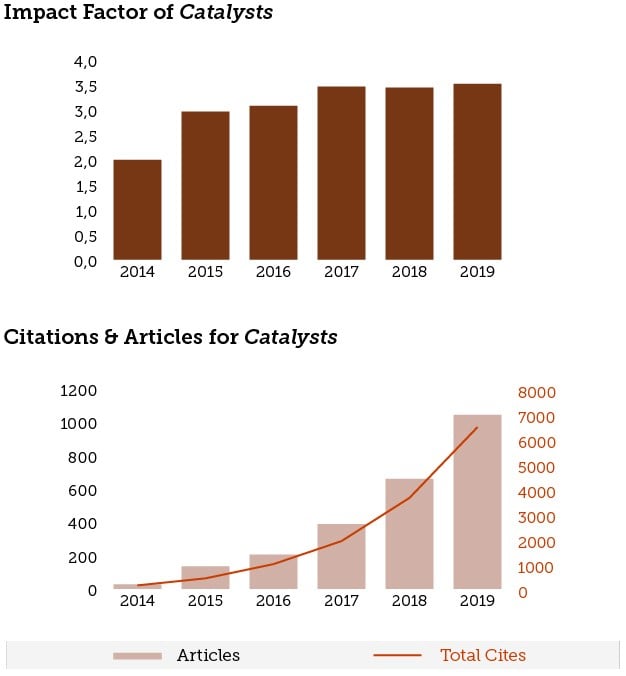
Source: data according to Journal Citation Reports®, 2019 release, a Clarivate Analytics product; and Scopus journal metrics.
29 June 2020
Updated Impact Factors Released in the Journal Citation Reports (Clarivate)
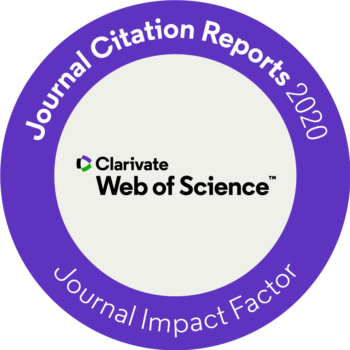
The updated citation metrics have been released in the Journal Citation Reports (JCR), published by Clarivate. The recent release of the JCR includes seventy-one MDPI titles. Out of these, 18 titles are newcomers, receiving a first Journal Impact Factor which is based on citation activity in 2019: Actuators, Agriculture, Biology, Biomedicines, Biosensors, Chemosensors, Children, Healthcare, Journal of Fungi, Journal of Personalized Medicine (JPM), Land, Life, Magnetochemistry, Membranes, Pharmaceuticals, Photonics, Separations and Toxics.
- Out of the previously listed journals, a total of 72 percent boast an increased Impact Factor.
- 25 journals are ranked among the top 25% of journals in at least one of the categories they are ranked for.
- Articles published in 2019 in MDPI journals account for approximately 17 percent of of articles published in gold Open Access journals covered in the Science Citation Index Expanded (SCIE) and Social Sciences Citation Index (SSCI).
First Impact Factors
| Journal | Impact Factor | Rank | Category | Details |
| Actuators | 1.957 | 31/64 (Q2) | • Instruments & Instrumentation | Link |
| Agriculture | 2.072 | 25/91 (Q2) | • Agronomy | Link |
| Biology | 3.796 | 19/93 (Q1) | • Biology | Link |
| Biomedicines | 4.717 | 30/138 (Q1) 36/270 (Q1) |
• Medicine, Research & Experimental • Pharmacology & Pharmacy |
Link |
| Biosensors | 3.240 | 24/86 (Q2) | • Chemistry, Analytical | Link |
| Chemosensors | 3.108 | 16/64 (Q1) 27/86 (Q2) 13/27 (Q2) |
• Instruments & Instrumentation • Chemistry, Analytical • Electrochemistry |
Link |
| Children | 2.078 | 50/128 (Q2) | • Pediatrics | Link |
| Healthcare | 1.916 | 62/102 (Q3) 45/87 (Q3) |
• Health Care Sciences & Services (SCIE) • Health Policy & Services (SSCI) |
Link |
| Journal of Fungi | 4.621 | 5/29 (Q1) 31/135 (Q1) |
• Mycology • Microbiology |
Link |
| Journal of Personalized Medicine | 4.433 | 24/165 (Q1) 10/102 (Q1) |
• Medicine, General & Internal • Health Care Sciences & Services |
Link |
| Land | 2.429 | 58/123 (Q2) | • Environmental Studies (SSCI) | Link |
| Life | 2.991 | 26/93 (Q2) 109/267 (Q2) |
• Biology • Microbiology |
Link |
| Magnetochemistry | 1.947 | 22/45 (Q2) 109/159 (Q3) 201/314 (Q3) |
• Chemistry, Inorganic & Nuclear • Chemistry, Physical • Materials Science, Multidisciplinary |
Link |
| Membranes | 3.094 | 53/143 (Q2) 129/314 (Q2) 23/89 (Q2) |
• Engineering, Chemical • Materials Science, Multidisciplinary • Polymer Science |
Link |
| Pharmaceuticals | 4.286 | 49/270 (Q1) | • Pharmacology & Pharmacy | Link |
| Photonics | 2.140 | 48/97 (Q2) | • Optics | Link |
| Separations | 1.900 | 53/86 (Q3) | • Chemistry, Analytical | Link |
| Toxics | 3.271 | 32/92 (Q2) 92/265 (Q2) |
• Toxicology • Environmental Sciences |
Link |
Updated Impact Factors
| Journal | Impact Factor | Rank | Category | Details |
| Agronomy | 2.603 | 18/91 (Q1) 65/234 (Q2) |
• Agronomy • Plant Sciences |
Link |
| Animals | 2.323 | 10/63 (Q1) 14/142 (Q1) |
• Agriculture, Dairy & Animal Science • Veterinary Sciences |
Link |
| Antibiotics | 3.893 | 23/93 (Q1) 64/270 (Q1) |
• Infectious Diseases • Pharmacology & Pharmacy |
Link |
| Antioxidants | 5.014 | 10/139 (Q1) 56/297 (Q1) 7/61 (Q1) |
• Food Science & Technology • Biochemistry & Molecular Biology • Chemistry, Medicinal |
Link |
| Applied Sciences | 2.474 | 161/314 (Q3) 32/91 (Q2) 88/177 (Q2) 62/154 (Q2) |
• Materials Science, Multidisciplinary • Engineering, Multidisciplinary • Chemistry, Multidisciplinary • Physics, Applied |
Link |
| Atmosphere | 2.397 | 48/93 (Q3) | • Meteorology & Atmospheric Sciences | Link |
| Biomolecules | 4.082 | 98/297 (Q2) | • Biochemistry & Molecular Biology | Link |
| Brain Sciences | 3.332 | 113/271 (Q2) | • Neurosciences | Link |
| Cancers | 6.126 | 37/244 (Q1) | • Oncology | Link |
| Catalysts | 3.520 | 65/159 (Q2) | • Chemistry, Physical | Link |
| Cells | 4.366 | 70/195 (Q2) | • Cell Biology | Link |
| Coatings | 2.436 | 10/21 (Q2) | • Materials Science, Coatings & Films | Link |
| Crystals | 2.404 | 10/26 (Q2) 165/314 (Q3) |
• Crystallography • Materials Science, Multidisciplinary |
Link |
| Diagnostics | 3.110 | 39/165 (Q1) | • Medicine, General & Internal | Link |
| Diversity | 1.402 | 119/168 (Q3) | • Ecology | Link |
| Electronics | 2.412 | 125/266 (Q2) | • Engineering, Electrical & Electronic | Link |
| Energies | 2.702 | 63/112 (Q3) | • Energy & Fuels | Link |
| Entropy | 2.494 | 33/85 (Q2) | • Physics, Multidisciplinary | Link |
| Foods | 4.092 | 27/139 (Q1) | • Food Science & Technology | Link |
| Forests | 2.221 | 17/68 (Q1) | • Forestry | Link |
| Genes | 3.759 | 53/177 (Q2) | • Genetics & Heredity | Link |
| Insects | 2.220 | 18/101 (Q1) | • Entomology | Link |
| International Journal of Environmental Research and Public Health (IJERPH) | 2.849 | 58/193 (Q2) 32/170 (Q1) 105/265 (Q2) |
• Public, Environmental & Occupational Health (SCIE) • Public, Environmental & Occupational Health (SSCI) • Environmental Sciences (SCIE) |
Link |
| International Journal of Molecular Sciences (IJMS) | 4.556 | 74/297 (Q1) 48/177 (Q2) |
• Biochemistry & Molecular Biology • Chemistry, Multidisciplinary |
Link |
| ISPRS International Journal of Geo-Information (IJGI) | 2.239 | 31/50 (Q3) 18/30 (Q3) |
• Geography, Physical • Remote Sensing |
Link |
| Journal of Clinical Medicine | 3.303 | 36/165 (Q1) | • Medicine, General & Internal | Link |
| Journal of Marine Science and Engineering | 2.033 | 31/66 (Q2) | • Oceanography | Link |
| Marine Drugs | 4.073 | 16/61 (Q2) | • Chemistry, Medicinal | Link |
| Materials | 3.057 | 132/314 (Q2) | • Materials Science, Multidisciplinary | Link |
| Mathematics | 1.747 | 28/324 (Q1) | • Mathematics | Link |
| Medicina | 1.205 | 107/165 (Q3) | • Medicine, General & Internal | Link |
| Metabolites | 4.097 | 95/297 (Q2) | • Biochemistry & Molecular Biology | Link |
| Metals | 2.117 | 18/79 (Q1) 185/314 (Q3) |
• Metallurgy & Metallurgical Engineering • Materials Science, Multidisciplinary |
Link |
| Micromachines | 2.523 | 56/92 (Q3) 23/64 (Q2) |
• Nanoscience & Nanotechnology • Instruments & Instrumentation |
Link |
| Microorganisms | 4.152 | 37/135 (Q2) | • Microbiology | Link |
| Minerals | 2.380 | 6/21 (Q2) 11/30 (Q2) |
• Mining & Mineral Processing • Mineralogy |
Link |
| Molecules | 3.267 | 70/177 (Q2) 141/297 (Q2) |
• Chemistry, Multidisciplinary • Biochemistry & Molecular Biology |
Link |
| Nanomaterials | 4.324 | 89/314 (Q2) 42/103 (Q2) |
• Materials Science, Multidisciplinary • Nanoscience & Nanotechnology |
Link |
| Nutrients | 4.546 | 17/89 (Q1) | • Nutrition & Dietetics | Link |
| Pathogens | 3.018 | 65/135 (Q2) | • Microbiology | Link |
| Pharmaceutics | 4.421 | 44/270 (Q1) | • Pharmacology & Pharmacy | Link |
| Plants | 2.762 | 58/234 (Q1) | • Plant Sciences | Link |
| Polymers | 3.426 | 16/89 (Q1) | • Polymer Science | Link |
| Processes | 2.753 | 59/143 (Q2) | • Engineering, Chemical | Link |
| Remote Sensing | 4.509 | 9/30 (Q2) | • Remote Sensing | Link |
| Sensors | 3.275 | 22/86 (Q2) 77/266 (Q2) 15/64 (Q1) |
• Chemistry, Analytical • Engineering, Electrical & Electronic • Instruments & Instrumentation |
Link |
| Sustainability | 2.576 | 120/265 (Q2) 26/41 (Q3) 53/123 (Q2) 6/8 (Q3) |
• Environmental Sciences (SCIE) • Green & Sustainable Science & Technology (SCIE) • Environmental Studies (SSCI) • Green & Sustainable Science & Technology (SSCI) |
Link |
| Symmetry | 2.645 | 29/71 (Q2) | • Multidisciplinary Sciences | Link |
| Toxins | 3.531 | 21/92 (Q1) 34/139 (Q1) |
• Toxicology • Food Science & Technology |
Link |
| Universe | 1.752 | 18/29 (Q3) 42/68 (Q3) |
• Physics, Particles & Fields • Astronomy & Astrophysics |
Link |
| Vaccines | 4.086 | 57/158 (Q2) 50/138 (Q2) |
• Immunology • Medicine, Research & Experimental |
Link |
| Viruses | 3.816 | 12/37 (Q2) | • Virology | Link |
| Water | 2.544 | 31/94 (Q2) | • Water Resources | Link |
Source: Clarivate 2020, InCites Journal Citation Reports®.
17 June 2020
Catalysts Reaches 3000 Articles Milestone
Catalysts, MDPI’s open access journal on catalysts and catalyzed reactions, has published more than 3000 articles and reviews since its inception in 2011. Catalysts is covered by the Science Citation Index Expanded in Web of Science and received an Impact Factor of 3.444 for 2018, which corresponds to ranking of 57/148 (Q2) in the JCR category ‘Chemistry, Physical’.
The current CiteScore in Scopus for Catalysts is 3.58. The CiteScore is a ratio between the number of citations in 2018 to papers published in the period 2015–2017 as the numerator and the number of papers published in the period 2015–2017 as the denominator, using data drawn from Scopus.
Our sincerest thanks go to the Editor-in-Chief of Catalysts, Prof. Dr. Keith Hohn, Section Editors-in-Chief Prof. Dr. Kotohiro Nomura, Dr. Leonarda Francesca Liotta, Prof. Dr. Jean-François Lamonier, Dr. Vincenzo Baglio, Prof. Dr. Adam F. Lee, Dr. Evangelos Topakas, Dr. Juan J. Bravo-Suarez, and Prof. Dr. C. Heath Turner as well as the Guest Editors of our Special Issues, who have ensured, with their hard work and diligence, the continued significance of the journal.
13 May 2020
COVID-19 Academic Resources Center

Since 1996, MDPI has been committed to supporting the research community by providing the latest research freely available and making relevant and useful research available as quickly as possible. The world is current experiencing a pandemic of COVID-19, and researchers are working extremely hard to understand it and find a cure.
The values MDPI holds strongly are particularly important at the moment, and we will continue to publish relevant, peer-reviewed research as quickly as possible in open access format. This means that it will immediately be available for researchers, health professionals, and the general public to read, distribute, and reuse. We believe that scientific advancements will be crucial to overcoming this pandemic, and will do everything we can to support researchers working looking for solutions.
COVID-19 Academic Resources Center contains a variety of information related to COVID-19 available from MDPI, including journal articles, special issues, and preprints, among others.
For more information, please visit: https://www.mdpi.com/covid-19
21 April 2020
Catalysts Young Investigator Award 2020 Winner Selected
Dear Colleagues,
We are pleased to announce that the winner of the 2020 Catalysts Young Investigator Award is Dr. Keary Mark Engle.
Dr. Keary Mark Engle is Assistant Professor at the Department of Chemistry, The Scripps Research Institute, La Jolla, CA, USA. His research interests lie at the interface of organometallic chemistry, organic synthesis, and catalysis.
Please join us in congratulating Dr. Keary Mark Engle on receiving this award, and for his outstanding achievements. As the awardee, Dr. Keary Mark Engle will receive an honorarium of 2000 CHF, an offer to publish a paper free of charge without a fixed deadline in Catalysts after peer review, and a certificate.
We would like to thank all the applicants for their participation.
Catalysts Editorial Office
MDPI, St. Alban-Anlage 66
CH-4052, Basel, Switzerland
[email protected]
9 April 2020
Free Open Platforms to Support Academics During the COVID-19 Pandemic

As a leading Open Access publisher, MDPI is committed to fostering open scientific exchange in all forms across all disciplines. Due to the outbreak of COVID-19, many researchers have to stay at home and many academic conferences have been cancelled or postponed. In light of these changes, MDPI has adopted numerous initiatives that may help accelerate scientific exchange and provide support to the academics during this period.
Scholarly Community—Encyclopedia
Encyclopedia is an online reference created and curated by active scholars. It aims to highlight the latest research results as well as providing benchmark information for researchers and the general public interested in accurate and advanced knowledge on specific topics.
Comprehensive and Free Literature Database—Scilit
Scilit is a comprehensive, free database for scientists that uses a new method to collate data and index scientific material. Our crawlers extract the latest data from CrossRef and PubMed on a daily basis. This means that newly published articles are immediately added to Scilit.
Display Academic Achievements—SciProfiles
SciProfiles is an innovative social network for researchers and scholars that is developed by MDPI. In line with our broad mission, the purpose of SciProfiles is to accelerate discovery and innovation by facilitating immediate access to research results and providing opportunities for academic networking.
Organize and Participate in Conferences Online—Sciforum
Sciforum is an event planning platform that supports open science by offering the opportunity to host and participate in academic conferences. It provides an environment for scholarly exchange, discussion of topics of current interest, building of networks, and establishing collaborations.
Post Early Versions of Research Outputs—Preprints
Preprints is a platform dedicated to making early versions of research outputs permanently available and citable. We post original research articles and comprehensive reviews, and papers can be updated by authors at any time. Content on Preprints is not peer-reviewed, and feedback can be received from readers.
***
MDPI remains committed to open science and open data and has signed a statement, along with more than thirty scholarly publishers, showing our intention to facilitate sharing of new research findings as early on as possible. The initiative sees publishers collectively removing barriers to new research, in the face of a global healthcare crisis.
25 March 2020
MDPI Comment on the COVID-19 Virus
The world is currently suffering from a global pandemic of the corona virus COVID-19. MDPI expresses its sympathies for all of those affected by the virus and stands in solidarity with medical staff and researchers treating patients and searching for scientific solutions.
MDPI has previously published papers covering corona viruses in addition to new papers on the current outbreak, see all papers here. In particular, Viruses has published a number of Special Issues and papers on the topic (see here, here, and here) as well as a forthcoming Special Issue.
Alongside journal articles, MDPI has been a strong supporter of preprints, which are increasingly being used to rapidly disseminate the latest research, and we run the preprint server Preprints.org. Our database of research articles, Scilit, is free to use and covers all publishers including preprint servers. New papers are often in search results within hours of publication and users can set up alerts for new papers.
Our main priority during this period has been the health and safety of staff, and we continue to allow staff to work at home and closely monitor the situation in all locations in which we work. Despite the restrictions, we continue to provide a full publication service and, by close collaboration with our editorial boards and making use our in-house teams, ensure that there are no unnecessary delays in publishing vital research. Fast and open publication has always been at the core of MDPI values and is now more important than ever.
We hope that a solution to the current situation will emerge soon. In the meantime, we will do our best to continue communicating vital research in all fields.
18 March 2020
MDPI Co-Signed Position Statement on Transformative Agreements
The advantages of the open access model of scientific publishing are being increasingly recognized in the scientific community. It allows new scientific evidence to be accessed from the moment of publication for free by anyone around the globe, boosting the impact of new research. In response, many funders, libraries and universities have been adopting new principles to accelerate the transition to open access.
Recently, “transformative agreements” have been negotiated between traditional publishers and various institutions. While increasing the number of open access papers, these agreements lack binding commitments to a full transition to open access, their conditions vary across different regions, and access is still limited for many users.
MDPI is a co-signatory of the recent position statement raising concerns about potential downsides of transformative agreements and how they may delay a full transition to open access. The statement highlights that these models “risk perpetuating current limitations on access, transparency and market competitiveness, while simultaneously facilitating excessive charges on the public purse”.
As a pioneering open access journal publisher, MDPI is the first to promote the importance of science being made available to everyone. Our peer-reviewed journals, covering diverse academic disciplines, are fully accessible to the public free of charge under a Creative Commons Attribution License (CC BY). This is why, along with other open access publishers, MDPI is a proud signatory of the position paper and is committed to contributing to the replacement of weak transitional agreements with “agreements with publishers that are already fully committed to open science and who offer full, immediate and transparent Open Access”.
Read the position paper here
16 March 2020
Encyclopedia Outstanding Contributor Awards 2020 - Open for Application
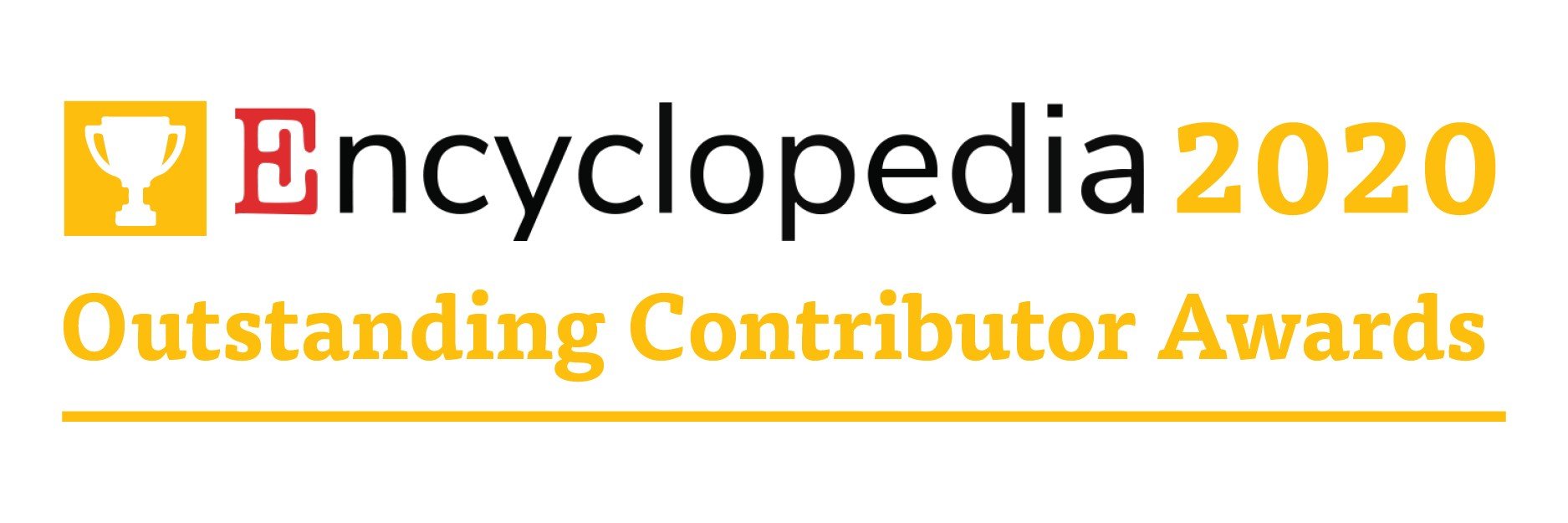
We are pleased to announce that Encyclopedia will be awarding five Outstanding Contributor Awards for researchers in 2020. The nominations and applications will be assessed by an Evaluation Committee consisting of senior scholars from the Encyclopedia Editorial Board.
Prize for Winners
- An official certificate;
- A cash award of 500 CHF or an MDPI discount voucher of 800 CHF.
Application Deadline
31 December, 2020 (Please send your application email with a list of all entries you contributed to our office before the deadline: [email protected])
Candidate Requirements
- Have a Ph.D. degree;
- Have more than three qualified entries published in Encyclopedia in 2020.
Evaluation Standards
- Number of entries published in Encyclopedia in 2020;
- Quality of entries online (including length, figure quality, and novelty);
- Impact of entries (including the number of likes, discussion contents, views, and downloads).
If you are a researcher and have not yet contribute entries to Encyclopedia, please do not miss this chance to highlight your research results.
4 March 2020
Meet us at the 17th International Congress on Catalysis, San Diego, California, USA, June 14-19, 2020

MDPI will be attending the 17th International Congress on Catalysis, San Diego, California, USA, June 14-19, 2020.
This congress is the premier technical gathering of our communities of practice in surface and organometallic catalysis, industrial homogeneous and heterogeneous catalysis, electrocatalysis, photocatalysis, and catalysis in condensed media. This meeting brings together participants from academia, industry, and national laboratories, with a tradition and expressed goal of nurturing and mentoring students and young researchers as part of its mission.
The following MDPI journals will be represented:
If you are also attending this conference, please feel free to stop by our booth (Booth #408). Our delegates look forward to meeting you in person to answer any questions you may have. For more information about the conference, please visit: https://2020icc.com/
27 February 2020
Catalysts Travel Award 2020 Winners Selected
Dear Colleagues,
We are pleased to announce the two winners of the Catalysts 2020 Travel Awards (1000 Swiss Francs each). The winners are Dr. Kai S. Exner, a postdoctoral fellow at Sofia University, Bulgaria, and Dr. Olga Sacco, a postdoctoral fellow at University of Salerno, Italy.
Dr. Exner’s research focuses on electrocatalysis and computational catalysis. He plans to attend the 11th International Frumkin Symposium in Moscow, Russia, to present his work entitled “Beyond the Conventional Volcano Picture: Toward High-Throughput Screening by a Unifying Approach”.
Dr. Sacco’s research activity is focused on photocatalysts and photocatalytic processes for the degradation of organic pollutants from water and wastewater. She plans to attend the 11th European Conference on Solar Chemistry and Photocatalysis: Environmental Applications (SPEA11), Turin, Italy, to present her work entitled “Enhanced photocatalytic removal of water pollutants by coupling luminescence materials with N-doped TiO2”.
Congratulations to Dr. Exner and Dr. Sacco. We are grateful to all who submitted applications.
Catalysts Editorial Office
MDPI, St. Alban-Anlage 66
CH-4052, Basel, Switzerland
[email protected]
27 February 2020
Catalysts Outstanding Reviewer Awards 2019 Winners Selected
Dear Colleagues,
For the Catalysts Outstanding Reviewer Awards 2019, together with a scientific evaluation committee of experts, we selected the following exceptional applicants as the winners of the Catalysts Outstanding Reviewer Awards 2019:
Enrico Catizzone, a post-doctoral researcher at Italian National Agency for New Technologies, Energy and Sustainable Economic Development (ENEA), Research Centre of Trisaia.
Marco Martino, a post-doctoral fellow at University of Salerno.
Piotr Kaminski, a post-doctoral researcher at Adam Mickiewicz University.
Devaiah Damma, a post-doctoral fellow at University of Cincinnati.
Each of them will be granted 500 CHF and a certificate.
Congratulations to all of them on their excellent reviews and well-earned awards! The Catalysts Editorial Board and Editorial Team would like to acknowledge all reviewers who have generously dedicated their time and effort to reviewing manuscripts submitted to Catalysts. It is because of their outstanding contributions that the high scientific quality of the journal and quick turnaround are maintained.
Catalysts Editorial Office
MDPI, St. Alban-Anlage 66
CH-4052, Basel, Switzerland
[email protected]
11 October 2019
Introducing SciProfiles, an Academic Social Network
MDPI is pleased to announce the release of SciProfiles, its social network platform for researchers and scholars.
The purpose of SciProfiles is aligned with MDPI’s broad mission to accelerate discovery and innovation by facilitating immediate access to research results and to serve scholars and communities by providing opportunities for academic networking.
SciProfiles also ambitions to serve as a sustainable, transparent and community-driven research evaluation system aligned with the DORA principles (https://sfdora.org/). Through their scientific profiles, academics can highlight their contribution to research communities, and measure their impact on their field, beyond publication numbers and impact factors. SciProfiles is currently a beta version and will enrich to give researchers the possibility to highlight all of their contributions to science and their scientific communities as authors, reviewers, editors, conference organizers, conference panelists, conference keynote speakers, or even as lecturers or student mentors at their University.
The classic components of popular community social networks, including follower/following, classical metrics, endorsements and recommendations (https://www.mdpi.com/about/announcements/1690), comments (https://www.mdpi.com/about/announcements/1397) are or will be very soon highlighted in SciProfiles as open science contributions.
To help increase the impact and visibility of articles and their authors to an appropriate audience, the platform offers a NewsFeed that includes recommendations of relevant content based on interests, publication history, saved searches or colleagues’ recommendations.
SciProfiles’ avatars are now being integrated on several MDPI platforms, meaning that you will directly access researchers’ profiles from any of the MDPI platforms:
MDPI's journal publishing website: www.mdpi.com
MDPI's conference hosting and management website: www.sciforum.net
MDPI's pre-print website : www.preprints.org
MDPI's knowledge sharing website : www.encyclopedia.pub
MDPI's books store: www.mdpi.com/books
MDPI's literature database : www.scilit.net
SciProfiles aims to serve scientific communities at large. It can be embedded into third-party websites and also welcomes integration of data from third-parties.
Dr. Shu-Kun Lin: https://sciprofiles.com/profile/2
Dr. Franck Vazquez: https://sciprofiles.com/profile/FranckVazquez
Dr. Martyn Rittman: https://sciprofiles.com/profile/martynrittman
9 October 2019
Meet Us at the 2019 AIChE Annual Meeting in Orlando, USA, 10–15 November 2019

MDPI will be attending the 2019 AIChE Annual Meeting in Orlando, USA, 10–15 November 2019.
The AIChE Annual Meeting is the premier educational forum for chemical engineers interested in innovation and professional growth. Academic and industry experts will cover wide range of topics relevant to cutting-edge research, new technologies, and emerging growth areas in chemical engineering.
The following MDPI journals will be represented:
- Processes
- Catalysts
- Safety
- Coatings
- Foods
- Chemosensors
- Nanomaterials
- Pharmaceutics
- Separations
- Sustainability
If you are also attending this conference, please feel free to stop by our booth (Booth #335). Our delegates look forward to meeting you in person to answer any questions you may have. For more information about the conference, please visit: https://www.aiche.org/conferences/aiche-annual-meeting/2019.
2 October 2019
Winners of the 2019 MDPI Writing Prize
We are delighted to announce the winners of the 2019 MDPI Writing Prize. Entrants were asked to write on the theme "Judging research: How should research and researchers be evaluated and rewarded?" We received a large number of excellent essays from PhD students and postdocs, and the process of shortlisting and choosing winners was not an easy one. The winners demonstrated excellent writing skills alongside interesting and thought-provoking ideas.
As last year, we will begin the process of collating all entries into a book that will be available in open access format. Alongside promoting good writing skills, we see the prize as a way to promote the voices of early career researchers within broader debates and policy discussions.
Congratulations to all of the participants and especially the winners. The winners are:
1st Prize (500 CHF):
Albin Nilsson (National Centre for Nuclear Research, Warsaw, Poland)
[Read here]
2nd Prize (250 CHF):
Qi Zhang (Shandong University, Jinan, China)
[Read here]
Igor Ogashawara (Indiana University, Indianapolis, US)
[Read here]
3rd Prize (100 CHF):
Margaret Sivapragasam (Universiti Teknologi Petronas, Perak, Malaysia)
[Read here]
Arvind Sharma (The University of Queensland, Gatton, Australia)
[Read here]
Jose Flores-Guerrero (University Medical Center Groningen, Groningen, The Netherlands)
[Read here]
The MDPI Writing Prize is an annual award supported by MDPI Author Services, which provides services including language editing, reformatting, plagiarism checks, and image editing.
20 September 2019
MDPI Now Gives Scholars the Possibility to Endorse and Recommend Articles

MDPI is pleased to announce the release of a new functionality giving the possibility for researchers and scholars to endorse, and formally recommend articles to their colleagues.
MDPI was an early signatory of the San Francisco Declaration on Research Assessment (https://sfdora.org/read/) which calls for improvement in how quality and impact of scholarly research outputs are evaluated, especially in moving beyond journal-based citation metrics (journal Impact Factor, Scopus Citescore, etc.).
MDPI supports the establishment of article-level impact metrics, including citations, views, downloads, and Altmetric scores. These measures serve as an impact indicator for research articles on a case–by-case basis, assessing paper on its own merit. However, these metrics are also subjective and can give a biased picture of the article impact: they do not directly reflect the quality or the intrinsic scientific value of the article.
In our view, community engagement with publications based on community-driven metrics can help to overcome this limitation. We have therefore launched an option for scholars to endorse articles, indicating their own assessment of its content and making a recommendation to their community. This follows our implementation of the open source Hypothesis commenting tool, which has been available for all articles published by MDPI for over a year (https://www.mdpi.com/about/announcements/1397). Both endorsement and commenting are available for all previously published and forthcoming MDPI articles.
In addition to potentially serving as a sustainable solution to article assessment, endorsements will help scientific communities to identify the most relevant articles, independently of the journal in which it was published.
The code for the endorsing functionality, which relies on DOIs and ORCIDs, will be made available on GitHub with an open source license.
Dr. Shu-Kun Lin, President and Founder
Dr. Franck Vazquez, Chief Scientific Officer
Dr. Martyn Rittman, Publishing Director
11 September 2019
Create an Entry in Encyclopedia to Get a 100 CHF Voucher in Publishing in MDPI Journals
Encyclopedia is a free online reference created and curated by active scholars. It aims to highlight the latest research results as well as provide a comprehensive record of scientific development. If you have any suggestions or questions, please feel free to contact us via [email protected].

6 August 2019
Preprints Reaches 10,000 Posted Articles Milestone
We are pleased to announce that Preprints has passed the milestone of 10,000 posted preprints. We are delighted to have reached this after just over three years of operation. Our congratulations and thanks go to our authors and advisory board who have supported growth of the platform and been crucial to its operation.
You can find further details at https://www.preprints.org/announcement/show/37.
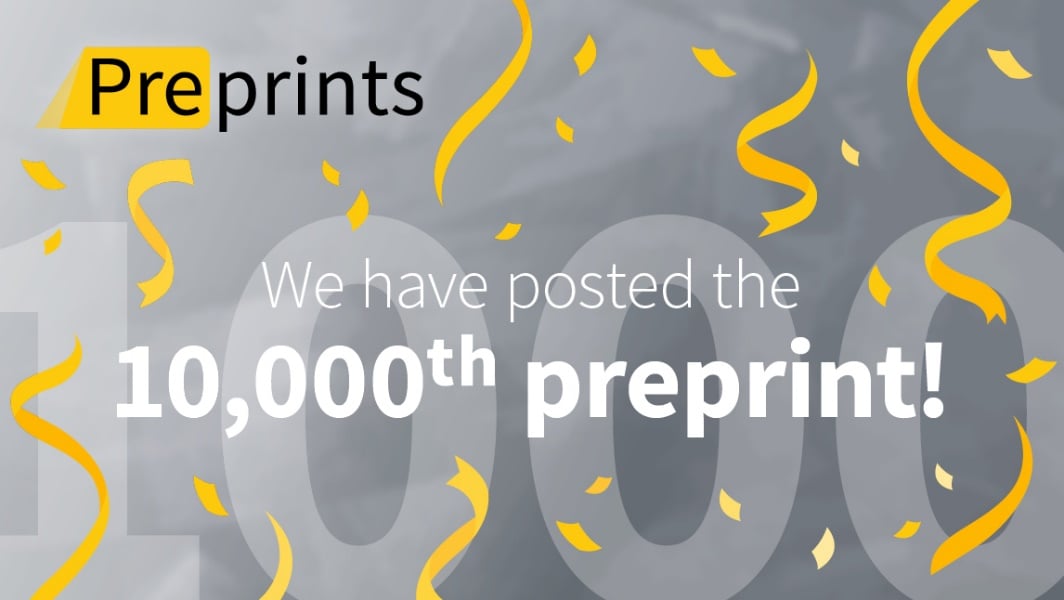
2 August 2019
DeepGreen Partnering with Publishers and Universities in Distributing Open Access Content to Institutional Repositories
Last week, the DeepGreen initiative in Germany started into an advanced test phase with the publishing partners S. Karger AG, SAGE Publishing, MDPI, Frontiers and De Gruyter, as well as 27 universities from all over Germany, from Hamburg University of Applied Sciences to University of Konstanz.
DeepGreen aims at lowering the barriers for open access publishing by automatically delivering metadata and full text publications from participating publishers to authorized repositories at German universities.
In preparation for a later live operation, the advanced test phase serves to gain experience with extensive data deliveries from publishers and also handling different repository software (including OPUS4, DSpace, EPrints, MyCoRe). DeepGreen thereby acts as a sophisticated platform, receiving articles published by authors affiliated with German universities and depositing these articles to respective university repositories, based on the affiliation metadata. For more information about DeepGreen: https://deepgreen.kobv.de
Karger AG has been a close cooperation partner of the DeepGreen consortium since 2016. S. Karger has more than 80 subscription-based and around 20 open access journals covering a wide spectrum in health science. DeepGreen will assign S. Karger articles to authorized institutions on the legal basis of German alliance and national licenses.
SAGE Publishing was founded by Sara Miller McCune in 1965 to support the dissemination of usable knowledge and educate a global community. SAGE publishes more than 1,000 journals and over 600 new books each year, spanning a wide range of subject areas. Our growing selection of library products includes archives, data, case studies and video. SAGE remains majority owned by our founder and after her lifetime will become owned by a charitable trust that secures the company’s continued independence. Principal offices are located in Los Angeles, London, New Delhi, Singapore, Washington DC and Melbourne. SAGE Publishing has been a close cooperation partner of DeepGreen since 2016.
MDPI is a scientific open access publisher and has been a partner of DeepGreen since 2017. MDPI comprises 205 peer-reviewed journals of various disciplines. All articles are published under a CC-BY license and are freely available without embargo period.
Frontiers is a scientific open access publisher with 61 journals of over 600 academic disciplines. All articles are peer-reviewed and published freely available under CC-BY license.
De Gruyter is an academic publisher with more than 700 subscription-based and open access journals of 29 disciplines. Articles provided by De Gruyter will be assigned to institutions with German alliance and national licenses.
There is promising communication with other publishers.
DeepGreen is funded by the German Research Foundation (DFG) and the consortium comprises six institutions: the Cooperative Library Network Berlin-Brandenburg, Bavarian State Library, Bavarian Library Network, University Library of the Technische Universität Berlin, University Library of Erlangen-Nuremberg and the Helmholtz Open Science Coordination Office at the GFZ German Research Centre for Geosciences.
If you would like to know in more detail which institutions take part in the advanced test phase of DeepGreen, you can find more information here.
17 July 2019
First Basel Sustainable Publishing Forum
The University of Basel and the MDPI Sustainability Foundation are organizing the First Basel Sustainable Publishing Forum on 9th September 2019.
The aim of this event is to provide background and perspectives on Plan S to Learned Societies, which have to make well-informed decisions to transition their journals to Open Access (OA).
The BSPF will bring together several representatives of Learned societies, Plan S architects as well as representatives from various publishers and publishing platforms. After getting the big picture from cOAlition S, panel discussions will allow to better understand the diverse challenges that Learned societies are facing to transition their journals to OA as well as to identify sustainable, implementable and scalable solutions for successful Open Access transition.
For program details and registration, please follow the link below:
https://sciforum.net/conference/SustainableSolutionsToOpenAccess
27 June 2019
Meet Us at the 14th European Congress on Catalysis in Aachen, Germany, 18–23 August 2019

MDPI will be attending the 14th European Congress on Catalysis in Aachen, Germany, 18–23 August 2019
14th European Congress on Catalysis and the location will provide a splendid opportunity to discuss scientific progress, to explore novel technologies and to enjoy hospitality in the Euregio under the motto “Catalysis without Borders”.
The following MDPI journals will be represented:
If you are also attending this conference, please feel free to stop by our booth (Booth #G2). Our delegates look forward to meeting you in person to answer any questions you may have. For more information about the conference, please visit: http://europacat2019.eu/.
20 June 2019
Catalysts Receiving 2018 Updated Impact Factor of 3.444
We are pleased to inform that Catalysts received an updated Journal Impact Factor of 3.444 in the recent release of the Journal Citation Reports®. The journal's 5-Year Impact Factor is 3.808. Catalysts now ranks 57/148 (Q2) in the category 'Chemistry, Physical'.
Evolution of Impact Factor, Citations and Publications for Catalysts:
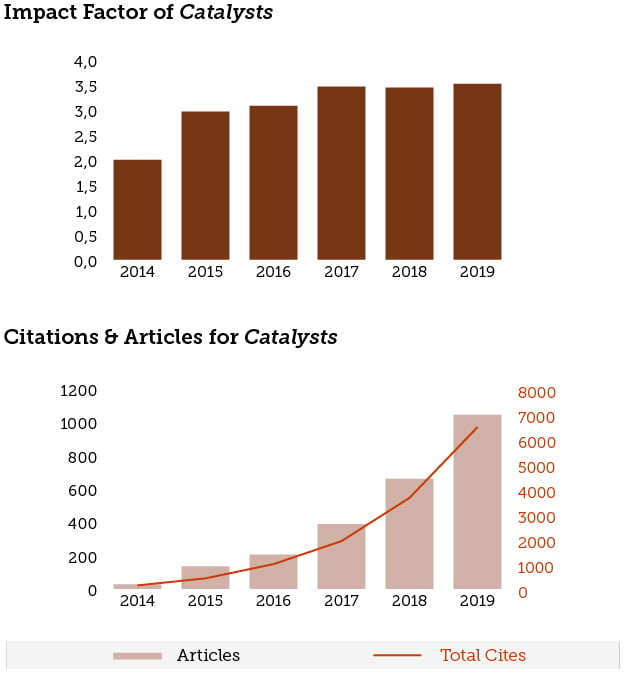
Source: data according to Journal Citation Reports®, 2018 release, a Clarivate Analytics product; and Scopus journal metrics.
19 June 2019
Meet Us at EUROMAT 2019 in Stockholm, Sweden, 1–5 September

MDPI will be attending the European Congress and Exhibition on Advanced Materials and Processes (EUROMAT 2019) in Stockholm, Sweden on 1–5 September 2019.
EUROMAT is the premier international congress in the field of materials science and technology in Europe. The visions of EUROMAT2019 are to:
- Facilitate a programme where academia, research institutes and industry can meet and exchange ideas and provide information on the latest scientific development in
- Promote involvement of top universities and researchers in materials science including special contribution from large scale facilities like MAXIV in Lund
- Demonstrate efficient knowledge transfer between research and its application through the active involvement of research institutes in Sweden like RISE and Swerea
The following MDPI journals will be represented:
Materials
Metals
Catalysts
Nanomaterials
Processes
Polymers
Molecules
JFB
Sustainability
Coatings
Inorganics
If you are also attending this conference, please feel free to stop by our booth (#BrB1) in Norra Latin - The Marble Vault. Our delegates look forward to meeting you in person to answer any questions you may have. For more information about the conference, please visit: https://euromat2019.fems.eu/.
18 June 2019
Meet Us at the 21st European Symposium on Organic Chemistry in Vienna, Austria, 14–18 July 2019

We will be attending the The 21st European Symposium on Organic Chemistry. Since its first edition in 1979, the biannual ESOC conference has developed into the flagship event for the Organic Chemistry community in Europe and beyond. Representatives of the following open access journals will attend:
Molecules
Chemistry
Molbank
Marine Drugs
Polymers
Coatings
Catalysts
Materials
Processes
If you are also attending this conference, please feel free to stop by our booth (Booth #25). Our delegates look forward to meeting you in person to answer any questions you may have. For more information about the conference, please visit: http://esoc2019.conf.tuwien.ac.at/welcome/.
12 June 2019
Catalysts Reaches 2000 Articles Milestone
Catalysts, MDPI’s open access journal on catalysts and catalyzed reactions, has published more than 2000 articles and reviews since its inception in 2011. Catalysts is covered in the Science Citation Index Expanded in Web of Science and received an Impact Factor of 3.465 for 2017, which corresponds to rank 55/146 (Q2) in the JCR category ‘Chemistry, Physical’.
Catalysts’s current CiteScore in Scopus is 3.58. The CiteScore is a ratio between the number of citations in 2018 to papers published 2015–2017 in the numerator and the number of papers published 2015–2017 in the denominator, drawn from Scopus data.
Our sincerest thanks go to the Editor-in-Chief of Catalysts, Prof. Dr. Keith Hohn, Section Editor-in-Chiefs Dr. Leonarda Francesca Liotta, Prof. Dr. Jean-François Lamonier, Dr. Vladimiro Dal Santo, Dr. Vincenzo Baglio, Prof. Dr. Adam F. Lee, Dr. Evangelos Topakas, Dr. Juan J. Bravo-Suarez, Prof. Dr. C. Heath Turner as well as the Guest Editors of our Special Issues, who have ensured, with their hard work and diligence, the continued significance of the journal.
28 May 2019
Meet us at the 8th World Hydrogen Technologies Convention (WHTC 2019) in Tokyo, Japan

MDPI will attend WHTC 2019 in Tokyo, Japan from 2–7 June 2019.
The World Hydrogen Technologies Convention, consisting of an exhibition and various sessions, is one of the most authoritative international conferences related to hydrogen technologies. WHTC 2019 aims to provide a forum for scientific, industrial, governmental, and general audiences from all over the world to gather together and present their most recent research findings, and to offer a stimulating atmosphere to discuss and exchange ideas on frontier research topics and future possibilities in hydrogen energy technologies through oral / poster presentations and technology exhibitions. This conference will be a place for the sharing and exchange of information on hydrogen-related technologies and policies and also for deepening international cooperation while discussing the future of a low carbon society.
Our representatives will be exhibiting the open access journals Energies, Catalysts, Processes, Safety, Metals, Applied Sciences, and ChemEngineering.
If you will also be in attendance, please stop by our booth. Our delegates look forward to meeting you in person and to answering any questions you may have regarding open access publishing or our journals. For more information about this conference, please visit http://whtc2019.jp/index.html.
10 May 2019
Meet us at the 27th European Biomass Conference & Exhibition (EUBCE 2019) in Lisbon, Portugal

MDPI's team of editors is going to attend EUBCE 2019 in Lisbon, Portugal, from 27-30 May, 2019.
As the largest gathering of biomass experts, the EUBCE combines one of the largest science and technology conferences with a high industry exhibition, attracting biomass professionals from around the globe. Key topics include biomass resources, biomass conversion technologies for heating, cooling and electricity, biomass conversion technologies for energy carriers, chemicals and materials, biomass sustainability, impacts and policies, and bioenergy integration in energy systems.
MDPI representatives will be exhibiting our open access journals Energies, Sustainability, Catalysts, Resources and Processes.
If you will also be in attendance, please stop by our booth. Our delegates look forward to meeting you in person to answer any questions you may have regarding open access publishing or our journals. For more information about this conference, please visit http://www.eubce.com/.
8 May 2019
Meet us at the 46th IEEE Photovoltaic Specialists Conference (PVSC 46) in Chicago, Illinois, USA

MDPI will attend PVSC 46 in Chicago, Illinois, USA, from 16−21 June 2019.
As the signature event in the burgeoning solar power technology and market sector, the PVSCs have a rich tradition of bringing together students, innovators, researchers and PV leaders in a vibrant and highly integrative forum to share information, gain knowledge, strengthen collaborations and move forward photovoltaic science and technology from basic and applied research into large scale manufacturing and deployments.
Our representatives will be exhibiting our open access journals Energies, Coatings, Sustainability, Catalysts, Nanomaterials, Materials, Electronics, and Applied System Innovation (ASI).
If you will also be in attendance, please stop by our booth (# 110). Our delegates look forward to meeting you in person to answer any questions you may have regarding open access publishing or our journals. For more information about this conference, please visit https://www.ieee-pvsc.org/PVSC46/index.php.
2 April 2019
Meet Us at NAM26, the 2019 North American Catalysis Society Meeting in Chicago, USA, 23–28 June 2019

MDPI will be attending the 26th meeting of the North American Catalysis Society (NAM 26), to be held in Chicago, USA, 23-28 June 2019.
The 26th meeting of the North American Catalysis Society, NAM26, is the premier scientific event in the field of catalysis research and development in 2019. It will feature technological challenges, breakthrough discoveries, and state-of-the art academic and industrial research.
The following MDPI journals will be represented:
If you are also attending this conference, please feel free to stop by our booth (Booth #108). Our delegates look forward to meeting you in person to answer any questions you may have. For more information about the conference, please visit: https://isen.northwestern.edu/nam262019-north-american-catalysis-society-meeting
20 March 2019
Fostering Open Access Publishing Worldwide: New IOAP Participants in February and March 2019
We are pleased to welcome more universities from Poland, Italy, Germany, Brazil and other parts of the world to MDPI's Institutional Open Access Program (IOAP). A warm welcome to the institutions listed below, who have joined the Program in February and March this year.
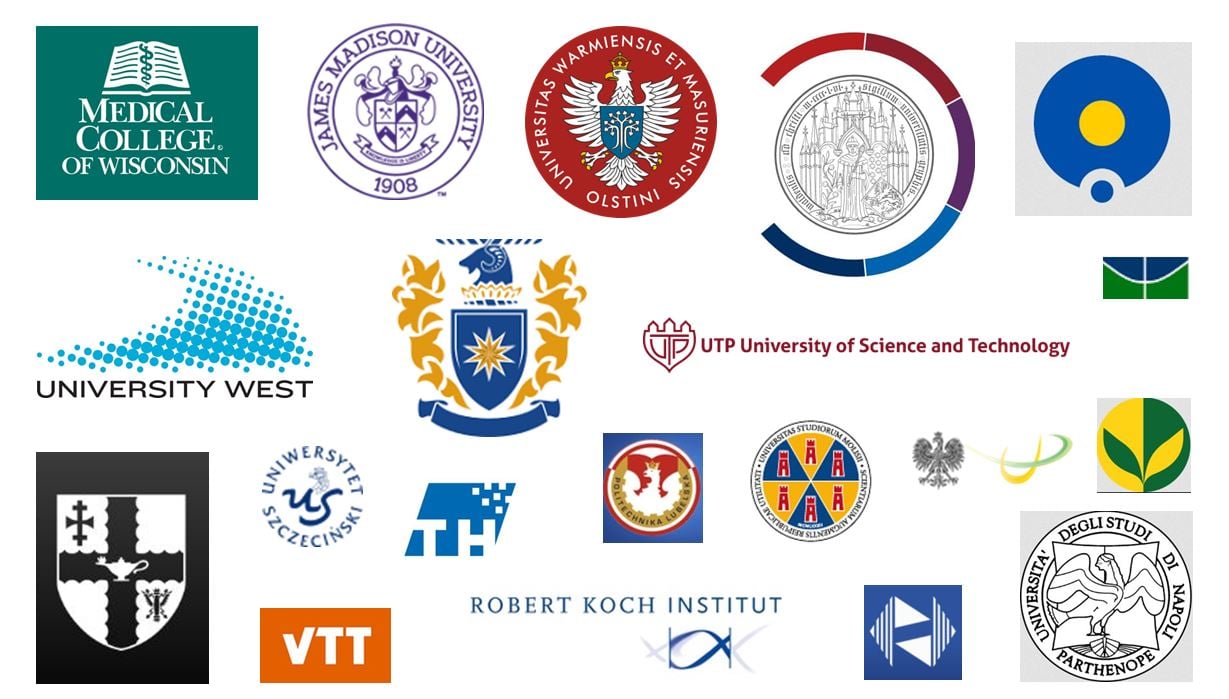
Authors affiliated with these institutions can now enjoy a discount on the APC for papers accepted for publication in any MDPI journal. If you would like to learn more about our program, please visit: https://www.mdpi.com/about/ioap or email us at [email protected].
8 March 2019
Meet Us at the ACS National Meeting & Exposition in Orlando, 31 March – 4 April 2019

We will be attending the ACS 2019 National Meeting & Exposition. It is an interdisciplinary forum open to anyone with an interest in chemistry and related disciplines. Representatives of the following open access journals will attend:
Biomolecules
Catalysts
Diagnostics
Fibers
Inorganics
Materials
Membranes
Micromachines
Molbank
Molecules
Pharmaceuticals
Processes
If you are also attending this conference, please feel free to stop by our booth (Booth #1123). Our delegates look forward to meeting you in person to answer any questions you may have. For more information about the conference, please visit: https://www.acs.org/content/acs/en/meetings/national-meeting.html
5 March 2019
MDPI Joins Jisc’s Publications Router Service
We are delighted to announce our participation in Jisc’s Publication Router project, as of March 2019.
Publications Router is a Jisc service that automatically sends notifications about research articles to institutions' systems such as their repositories or CRISs, since May 2015. Through this agreement, MDPI will provide Jisc with daily feeds and information regarding published articles, which will be gathered by their system and delivered to institutions also registered to this service. Nearly all of our articles are published within 15 days of acceptance, so institutions will receive them quite promptly.
The feed will include the full text of the published version of record, with no embargo, so the articles can be exposed immediately for public view. They are accompanied by rich metadata, including confirmation of the immediate CC BY licence, minimising the need for any manual intervention or checking.
For more information about Publications Router, you may contact Jisc’s central helpdesk at [email protected]. For any queries about MDPI’s institutional agreements and collaborations, you may get in touch with MDPI’s Institutional Engagement team at [email protected], which would be very happy to hear from further UK institutions.
1 February 2019
2018 MDPI Top Reviewer Award—Winners Announced
Rigorous peer-review is the cornerstone of high quality academic publishing. Over 97,000 scholars served as reviewers for MDPI journals in 2018. We are extremely appreciative of all those who made a contribution to the editorial process in this capacity. At the beginning of every year, journal editorial offices publish a list all reviewers’ names to express our gratitude. In addition, this year the “MDPI Top Reviewer Awards” are announced, to recognize the very best reviewers for their expertise, dedication, high quality, and timely review reports. We are pleased to announce the following winners of the 2018 MDPI Top Reviewer Awards:
- Ali Behnood
- Andrea Pezzuolo
- Angela Gorgoglione
- Anna D'Auria
- Antonio D'Andrea
- Azhar Abbas
- Bogdan Zagajewski
- Chunhui Chen
- Dominika Głąbska
- Dominika Guzek
- Dragan Pamucar
- Francisco J. G. Silva
- Frank Li
- Gianluca Serafini
- Gyorgy Szekely
- Haozhi Pan
- Helvi Heinonen-Tanski
- José Manuel Gómez-Soberón
- Kathy Lewis
- Klara Kosova
- Luis N. López De Lacalle
- M. Z. Naser
- Malwina Tytła
- Masoume Amirkhani
- Matteo Ghidelli
- Moretti Laura
- Petra Schneider
- Roberto Cerchione
- Spyros Papaefthymiou
- Ştefan Cristian Gherghina
24 January 2019
JAMS Journals: A Low-Cost Publishing Platform

Since 2010, MDPI has run its own online submission system. More recently, we have made the software, with accompanying publishing services, available to other publishers as JAMS (Journal and Article Management System). We are now delighted to announce the launch of JAMS Journals, a standardized platform for operating open access journals at low cost.
JAMS Journals provides a comprehensive service, including a shared submission website, journal websites hosted at a URL provided by the publisher, and a full production service. There is a small setup fee and the cost for each published paper is just a few hundred Swiss francs.
The platform demonstrates that running an open access journal can be straightforward and affordable. The JAMS Journals platform is suitable for
- small publishers or groups of scholars looking to launch their own journal;
- existing publishers or societies seeking to explore open access options;
- publishers looking to convert an existing subscription journal to open access.
JAMS journals launches with two journals from Canadian-based publisher Etcetera Publications:
- Canadian Journal of Pesticides & Pest Management (http://www.cjppm.ca)
- Nanotechnology in Agriculture, Food & Environment (http://www.nanoafe.ca)
Dr AJ Al-Rajab (President of Etcetera Publications) comments:
“In the past few months, we were working on our project to launch new open access scientific journals in the field of agricultural and environmental sciences. We decided to go with JAMS for this venture because of the high quality of their services, reasonable prices, professionalism and easy communication. Our portfolio is expected to grow rapidly during 2019 to include more titles covering different areas in agriculture and environment. MDPI earned already our complete satisfaction and we are looking for a long term cooperation.”
Alongside the new platform, we continue to provide flexible, tailored journal management solutions for existing publishers. For any questions or to request a quotation, contact Dr. Constanze Schelhorn ([email protected]).
24 January 2019
Popularity of Preprints Continues to Grow

2018 was a great year for preprints, with increasing numbers of authors looking to make their papers available online before peer review. Along with other preprint servers, our platform Preprints.org saw an increase in the uptake from authors, and more than double the number of announced papers compared to 2017. In fact, we recently passed two important milestones: 8000 preprints online and 30,000 authors.
We believe that the whole research community has the opportunity to benefit from work being available online as early as possible. We thank and congratulate our authors for supporting us to make this goal a reality.
In 2019, we will be looking carefully at how to provide better value for authors, maintain efficiency while growing in size, and make sure we remain well-connected with the research community.
If you want to participate, you can consider screening preprints or joining our advisory board. And, of course, posting your own work.
9 January 2019
Open Access Agreement between the Austrian Academic Library Consortium (KEMÖ), the Austrian Science Fund (FWF), and MDPI

We are delighted to announce the establishment of our national Open Access agreement with the Austrian Academic Library Consortium (KEMÖ) and the Austrian Science Fund (FWF). Through this national agreement, the Austrian institutions listed below as well as FWF will cover the Article Processing Charges (APC) of manuscripts published by eligible corresponding or funded authors in MDPI journals as long as central funds are available.
All participating institutions have gained access to the MDPI online submission system where they can find full article metadata and pricing information as well as Funder and Grant ID details for easy identification and additional transparency. At the same time eligible authors are benefited from an APC discount which comes at no cost for the institutions.
Eligible corresponding authors affiliated with the participating institutions are prompted to choose the corresponding Institutional Open Access Program (IOAP) when they submit an article via our online submission system. The program will be selected automatically if authors submit their papers using their institutional email address. To claim their discount, FWF funded authors should choose the particular funder and add their Grant ID upon online submission of their manuscript. The institutions will then crosscheck the information and confirm the APC funding.
Eligible authors that have their APC covered by their institution or funder are advised to include the following sentence in their acknowledgments: "Open Access Funding by the [name of the institution/funder]".
The full text of the agreement is openly available online at: http://doi.org/10.5281/zenodo.2536007
For any questions about the agreement, please contact the KEMÖ Consortium at [email protected], FWF at [email protected], or the MDPI IOAP team at [email protected].
The Austrian institutions participating in this agreement are:
- Austrian Science Fund (FWF)
- University for Continuing Education Krems
- University of Applied Sciences BFI Vienna
- University of Applied Sciences Upper Austria
- University of Applied Sciences Technikum Wien
- Vorarlberg University of Applied Sciences
- International Institute for Applied Systems Analysis (IIASA)
- Institute of Science and Technology Austria
- MCI Management Center Innsbruck
- University of Graz
- University of Linz
- University of Salzburg
- Graz University of Technology
- TU Wien
- University of Veterinary Medicine Vienna
- University of Vienna
This is our first collective agreement with a national library consortium, while the individual institutions around the world participating in our IOAP are now more than 500 - see details here: https://www.mdpi.com/about/ioap. We would be mostly interested in discussing about possible collaborations with other consortia, funders, and institutions in our mutual efforts to accelerate Open Access.
2 January 2019
Encyclopedia—the Scholarly Community Encyclopedia

We are pleased to announce the new platform Encyclopedia, which is an online reference created and curated by active scholars. It aims to highlight the latest research results as well as providing benchmark information for researchers and the general public interested in accurate and advanced knowledge on specific topics.
We encourage authors of review articles to quote and adapt the content of their published papers to create Encyclopedia entries. You can create completely new entries on topics in which you have knowledge and expertise. There is no limit on the topics or research fields. All of science and the humanities are included. Each entry will be published directly after submission.
We also have prepared a DOI application function in Encyclopedia. Once a DOI application is approved, the entry website will announce the DOI number and a pdf version with DOI information will be automatically created.
We look forward to your contributions and hope you will make use of this service. Find more about the service at: https://encyclopedia.pub/
30 October 2018
Institutional Open Access Agreement between Bill and Melinda Gates Foundation and MDPI

We are delighted to announce that the Bill and Melinda Gates Foundation (BMGF) is now a participant of our Institutional Open Access Program (IOAP). Authors funded by the BMGF can enjoy discounts on the APC, while the funder covers the costs of eligible articles centrally. BMGF also has access to the MDPI online submission system where they can find full article metadata and pricing information as well as Grant ID details for easy identification and additional transparency.
We hope that funded authors find the programme beneficial and we are happy to offer our IOAP to other funders that need a streamlined workflow of compliance checking and APC coverage.
To claim their discount, BMGF funded authors should choose the particular funder and add their Grant ID upon online submission of their manuscript.
For any questions about the BMGF agreement, please contact the funder at [email protected] or the MDPI IOAP team at [email protected].
2 October 2018
MDPI Welcomes Plan S
Recently, it was announced that a group of European funders supported 10 principles that will help to expand open access, known as Plan S. MDPI warmly welcomes this move as a step towards achieving more open and accessible communication of research across all disciplines. Some aspects remain to be clarified, however the details given so far match the aims and values that MDPI has held over the past two decades.

We believe that open access publishers should be active participants in discussions around Plan S, particularly regarding potential new business models and practical aspects of implementation. MDPI supports APCs as a transparent unit of payment for article publishing, however we are committed to exploring other measures and recently signed the Jussieu Call. Sustainability is a key value for MDPI, and future funding models should have at their heart the sustainability of knowledge and research dissemination. Plan S provides an opportunity for funders and publishers to directly discuss funding of open access journals in ways that are beneficial to all parties involved.
30 August 2018
MDPI establishes Open Access agreement with Qatar National Library

We are happy to announce the establishment of an Open Access (OA) agreement with Qatar National Library (QNL). QNL is committed to supporting and helping Qatar authors publish OA at no cost. Through this national agreement, QNL will cover the Article Processing Charges (APC) of manuscripts published by Qatar-based corresponding authors in MDPI journals.
Eligible corresponding authors affiliated with Qatar research centers and universities are prompted to choose QNL as part of our Institutional Open Access Program (IOAP) when they submit an article via our online submission system. The program will be selected automatically if authors submit their papers using their institutional email and/or a computer registered with the institution’s IP range. QNL will then crosscheck the information and confirm the APC funding.
Qatar authors that have their APC covered by QNL are advised to include the following sentence in their acknowledgments: "The publication of this article was funded by Qatar National Library".
For more information, please visit Open Access at QNL or email the QNL Open Access team at [email protected].
13 July 2018
Meet Us at the XXVI Ibero-American Catalysis Congress (CICat 2018) in Coimbra, Portugal, 9–14 September 2018

Our editorial team will be attending the XXVI Ibero-American Catalysis Congress (CICat 2018) in Coimbra, Portugal, 9–14 September 2018
As a result of the biannual meetings held since 1968, the Ibero-American Federation of Catalysis Societies (FISoCat), the Portuguese Society of Chemistry (SPQ) and the University of Coimbra, have the pleasure of organizing the XXVI Ibero-American Catalysis Congress (CICat 2018).
As in previous editions, this event aims to be a meeting point for the Ibero-American community working in Catalysis and in all its different areas of scientific knowledge. The 2018 CICat has a symbolic historical importance, for reaching 50 years since the beginning of this series of Encounters. Participants of CICat 2018 are also invited to visit the city of Coimbra, as well as its historic center and the University of Coimbra (UNESCO World Heritage Site).
The following MDPI journals will be represented:
Catalysts
Processes
Energies
Symmetry
Applied Sciences
Sustainability
Materials
If you are also attending this conference, please feel free to stop by our booth (Booth near the Lobby Coffee Break). Our delegates look forward to meeting you in person to answer any questions you may have. For more information about the conference, please visit: http://cicat2018.eventos.chemistry.pt/?setLn=es.
26 June 2018
2017 Impact Factor Released for Catalysts: 3.465
We are pleased to inform that Catalysts received an updated Journal Impact Factor of 3.465 in the June 2018 release of the Journal Citation Reports®. The journal's 5-Year Impact Factor is 3.873. Catalysts now ranks 55/146 (Q2) in the 'Physical Chemistry' category.
Overview of Citation Metrics:
- Journal Impact Factor, 2 yrs (2017): 3.465
- 5-Year Impact Factor (2017): 3.873
- CiteScore, 3 yrs (Scopus): 3.23
- SJR Scimago Journal Rank 2017 (SJR): 0.855
- Source Normalized Impact 2017 (SNIP): 0.954
Evolution of Impact Factor, Citations and Publications for Catalysts:
22 June 2018
Meet US at the 8th Tokyo Conference on Advanced Catalytic Science and Technology (TOCAT8) in Yokohama, Japan, 5–10 August 2018

MDPI will be attending the 8th Tokyo Conference on Advanced Catalytic Science and Technology (TOCAT8), to be held in Yokohama, Japan, 5–10 August 2018.
Catalysis Society of Japan will organize this meeting as a continuation of TOCAT (1990), TOCAT2 (1994), TOCAT3 (1998), TOCAT4 (2002), TOCAT5 (2006), TOCAT6/APCAT5 (2010), and TOCAT7 (2014). The past seven TOCAT conferences have earned a good reputation as a new series of international conferences on catalysis that has significantly filled the gap between research and technology in catalysis. Stimulating closer ties between academia and industry and encouraging young researchers in the field of catalysis are the central concept of this conference. This conference should greatly contribute to exchanging new ideas and technologies and promoting developments of new outstanding catalysts and systems under the scope that catalysis is a highly and eagerly demanded technology in industries and for sustainable society and drives innovation in many other fields.
The following MDPI journals will be represented:
Catalysts
Processes
Energies
Molecules
Materials
If you are also attending this conference, please feel free to stop by our booth (Booth #8). Our delegates look forward to meeting you in person to answer any questions you may have. For more information about the conference, please visit: http://www.shokubai.org/tocat8/index.html.
15 June 2018
Meet us at CHISA 2018 and PRES 2018

Meet us at the 23rd International Congress of Chemical and Process Engineering (CHISA 2018) and 21st Conference on Process Integration, Modelling and Optimisation for Energy Saving and Pollution Reduction (PRES 2018) in Prague, Czech Republic, from 25–29 August 2018.
MDPI will be represented at the CHISA 2018 jointly held with PRES 2018 in Prague, Czech Republic, from 25–29 August 2018.
CHISA 2018 and PRES 2018 will offer you many interdisciplinary connections and cover a range of important topics with focus on addressing global challenges in energy, water, pollution, and sustainability using classical chemical engineering approaches, enhanced by many interdisciplinary collaborations.
The following MDPI journals will be represented:
If you are also attending these two conferences, please stop by our booth at the Clarion Congress Hotel Prague. Our delegates look forward to meeting you in person to answer any questions you may have regarding open access publishing or our journals. For more information about the conferences, please visit http://2018.chisa.cz/.
1 June 2018
Catalysts 2017 CiteScore™ Announced - 3.23
We are pleased to report Catalysts received a CiteScore of 3.23 for 2017. The metric reflects citation activity in 2017 in Scopus for papers published in the period 2014‒2016.
For the full details in the current CiteScore release, please see the journal's Source profile. To check the full list of MDPI journals receiving CiteScores, please see here.
31 May 2018
2017 CiteScore™ Metrics Released
The 2017 CiteScore™ data is available now, based on citation data in the Scopus® database. The current CiteScore reflects citation activity in 2017 for articles published in 2014‒2016. Please note that the list below includes journals assigned a CiteScore in this year’s release. For a full list of journals indexed in Scopus, please see our journal list.
Thirteen of our journals received a CiteScore which is in the top 10% of the distribution in at least one of the categories (marked with * in the table below), while a further 32 journals exhibit scores that are in the first quartile of the respective categories.
To access the full data for MDPI journals, please see here. More data can also be found in SJR Scimago Journal & Country Rank.
Unlike CiteScores and the widely used Journal Impact Factors, the Source Normalized Impact per Paper (SNIP) metrics are normalized in order to correct for differences in citation practices between scientific fields. Therefore, the SNIP allows direct comparison between journals specialized in different fields.
According to 2017 data, MDPI publishes six journals with an average citation impact, or SNIP, in excess of 1.500. These journals are Biomolecules, Cancers, Journal of Clinical Medicine (JCM), Marine Drugs, Remote Sensing and Sensors (see the last column in the table below).
CiteScore Data for MDPI Journals
| Journal | Rank (Quartile) |
Category | Link | CiteScore 2017 | 2016 |
2015 |
SNIP 2017 |
| Aerospace | 43/116 (Q2) | • Aerospace Engineering | Link | 1.23 | - | - | 1.152 |
| Agriculture | 69/309 (Q1) 91/398 (Q1) 78/255 (Q2) |
• Agronomy and Crop Science • Plant Science • Food Science |
Link | 1.93 | - | - | 1.133 |
| Agronomy | 46/309 (Q1) | • Agronomy and Crop Science | Link | 2.38 | - | - | 1.115 |
| Algorithms | 22/46 (Q2) 61/125 (Q2) 60/107 (Q3) 64/114 (Q3) |
• Numerical Analysis • Computational Mathematics • Computational Theory and Mathematics • Theoretical Computer Science |
Link | 1.03 | 1.15 | 1.07 | 0.749 |
| Animals | 12/154 (Q1) * 48/367 (Q1) |
• General Veterinary • Animal Science and Zoology |
Link | 2.02 | 1.46 | 1.66 | 1.099 |
| Antibiotics | 6/68 (Q1) * 62/263 (Q1) 55/230 (Q1) 31/108 (Q2) 47/134 (Q2) 139/398 (Q2) |
• General Pharmacology, Toxicology and Pharmaceutics • Infectious Diseases • Pharmacology (medical) • Microbiology (medical) • Microbiology • Biochemistry |
Link | 2.85 | 1.65 | - | 0.975 |
| Antibodies | 43/143 (Q2) 61/164 (Q2) 85/189 (Q2) |
• Drug Discovery • Immunology and Allergy • Immunology |
Link | 2.85 | - | - | 0.844 |
| Antioxidants | 23/119 (Q1) 35/169 (Q2) 100/398 (Q2) 119/367 (Q2) 102/264 (Q2) |
• Clinical Biochemistry • Physiology • Biochemistry • Molecular Biology • Cell Biology |
Link | 3.42 | - | - | 1.361 |
| Applied Sciences | 48/270 (Q1) 15/66 (Q1) 31/116 (Q2) 18/53 (Q2) 151/434 (Q2) 186/535 (Q2) |
• General Engineering • Fluid Flow and Transfer Processes • Instrumentation • Process Chemistry and Technology • General Materials Science • Computer Science Applications |
Link | 1.90 | - | - | 0.801 |
| Biology | 12/177 (Q1)* 32/186 (Q1) 10/40 (Q1) |
• General Agricultural and Biological Sciences • General Biochemistry, Genetics and Molecular Biology • General Immunology and Microbiology |
Link | 3.48 | 3.02 | 2.78 | 0.961 |
| Biomolecules | 31/398 (Q1) * 41/367 (Q1) |
• Biochemistry • Molecular Biology |
Link | 5.72 | 1.67 | 3.08 | 1.542 |
| Biosensors | 20/119 (Q1) | • Clinical Biochemistry | Link | 3.59 | 2.83 | 2.37 | 1.122 |
| Brain Sciences | 47/111 (Q2) | • General Neuroscience | Link | 2.56 | - | - | 0.695 |
| Cancers | 26/323 (Q1) * 23/191 (Q1) |
• Oncology • Cancer Research |
Link | 5.82 | 5.02 | 4.07 | 1.567 |
| Catalysts | 32/151 (Q1) 21/46 (Q2) |
• Physical and Theoretical Chemistry • Catalysis |
Link | 3.23 | 3.44 | 3.45 | 0.954 |
| Crystals | 76/272 (Q2) 140/434 (Q2) 127/398 (Q2) 26/64 (Q2) |
• General Chemical Engineering • General Materials Science • Condensed Matter Physics • Inorganic Chemistry |
Link | 1.97 | 1.89 | 1.47 | 0.745 |
| Diagnostics | 49/119 (Q2) | • Clinical Biochemistry | Link | 2.43 | - | - | 0.788 |
| Diversity | 30/124 (Q1) 14/52 (Q2) 83/306 (Q2) 11/29 (Q2) |
• Nature and Landscape Conservation • Agricultural and Biological Sciences (miscellaneous) • Ecology • Ecological Modelling |
Link | 2.15 | 2.03 | 1.96 | 1.300 |
| Electronics | 109/644 (Q1) 26/148 (Q1) 42/224 (Q1) 50/259 (Q1) 23/96 (Q1) |
• Electrical and Electronic Engineering • Hardware and Architecture • Control and Systems Engineering • Computer Networks and Communications • Signal Processing |
Link | 2.97 | - | - | 1.227 |
| Energies | 6/73 (Q1) * 31/192 (Q1) 103/644 (Q1) 4/16 (Q1) 47/140 (Q2) |
• Control and Optimization • Energy Engineering and Power Technology • Electrical and Electronic Engineering • Energy (miscellaneous) • Renewable Energy, Sustainability and the Environment |
Link | 3.11 | 2.50 | 2.87 | 1.340 |
| Entropy | 35/202 (Q1) | • General Physics and Astronomy | Link | 2.41 | 1.87 | 1.99 | 1.189 |
| Forests | 17/129 (Q1) | • Forestry | Link | 2.31 | 2.06 | 1.76 | 0.990 |
| Future Internet | 132/259 (Q3) | • Computer Networks and Communications | Link | 1.25 | - | - | - |
| Games | 132/187 (Q3) 78/110 (Q3) 305/418 (Q3) |
• Statistics and Probability • Statistics, Probability and Uncertainty • Applied Mathematics |
Link | 0.61 | 0.87 | 0.57 | 1.038 |
| Genes | 21/91 (Q1) 74/311 (Q1) |
• Genetics (clinical) • Genetics |
Link | 3.49 | 3.62 | 3.18 | 0.374 |
| Geosciences | 32/182 (Q1) |
• General Earth and Planetary Sciences | Link | 1.97 | 1.67 | 1.29 | 0.856 |
| Information | 143/251 (Q3) | • Information Systems | Link | 1.16 | 0.78 | 0.94 | 1.146 |
| Insects | 27/135 (Q1) | • Insect Science | Link | 1.85 | 1.81 | 1.38 | 0.719 |
| International Journal of Environmental Research and Public Health (IJERPH) | 80/478 (Q1) 34/106 (Q2) |
• Public Health, Environmental and Occupational Health • Health, Toxicology and Mutagenesis |
Link | 2.41 | 2.38 | 2.42 | 0.931 |
| International Journal of Molecular Sciences (IJMS) | 7/69 (Q1) * 61/535 (Q1) 20/163 (Q1) 9/64 (Q1) 26/151 (Q1) 89/367 (Q2) 17/46 (Q2) |
• Spectroscopy • Computer Science Applications • Organic Chemistry • Inorganic Chemistry • Physical and Theoretical Chemistry • Molecular Biology • Catalysis |
Link | 3.86 | 3.73 | 3.37 | 0.998 |
| ISPRS International Journal of Geo-Information (IJGI) | 79/605 (Q1) 22/82 (Q2) 13/36 (Q2) |
• Geography, Planning and Development • Earth and Planetary Sciences (miscellaneous) • Computers in Earth Sciences |
Link | 2.10 | 1.62 | 1.52 | 1.062 |
| Journal of Clinical Medicine (JCM) | 10/841 (Q1) * | • General Medicine | Link | 7.07 | - | - | 1.535 |
| Journal of Functional Biomaterials (JFB) | 43/199 (Q1) 23/77 (Q2) |
• Biomedical Engineering • Biomaterials |
Link | 3.47 | - | - | 1.344 |
| Journal of Low Po- wer Electronics and Applications (JLPEA) |
301/644 (Q2) | • Electrical and Electronic Engineering | Link | 1.12 | 0.98 | 0.83 | 0.367 |
| Journal of Personalized Medicine (JPM) | 54/189 (Q2) | • Medicine (miscellaneous) | Link | 2.61 | - | - | 0.944 |
| Land | 50/124 (Q2) 129/306 (Q2) 36/65 (Q3) |
• Nature and Landscape Conservation • Ecology • Global and Planetary Change |
Link | 1.44 | - | - | 0.658 |
| Life | 4/94 (Q1) * 70/561 (Q1) 40/186 (Q1) 20/80 (Q2) |
• Palaeontology • Ecology, Evolution, Behavior and Systematics • General Biochemistry, Genetics and Molecular Biology • Space and Planetary Science |
Link | 3.16 | 2.95 | 1.68 | 0.935 |
| Marine Drugs | 17/146 (Q1) | • Drug Discovery | Link | 4.58 | 3.83 | 3.66 | 1.537 |
| Materials | 83/434 (Q1) | • General Materials Science | Link | 3.02 | 3.26 | 3.11 | 1.285 |
| Membranes | 5/18 (Q2) 15/53 (Q2) 4/10 (Q2) |
• Chemical Engineering (miscellaneous) • Process Chemistry and Technology • Filtration and Separation |
Link | 2.69 | 2.19 | 2.95 | 0.880 |
| Metabolites | 47/209 (Q1) 103/398 (Q2) 127/367 (Q2) |
• Endocrinology, Diabetes and Metabolism • Biochemistry • Molecular Biology |
Link | 3.35 | - | - | 0.925 |
| Metals | 155/434 (Q2) | • General Materials Science | Link | 1.87 | - | - | 0.955 |
| Micromachines | 105/554 (Q1) 154/644 (Q1) 64/224 (Q2) |
• Mechanical Engineering • Electrical and Electronic Engineering • Control and Systems Engineering |
Link | 2.31 | 1.83 | 1.78 | 0.987 |
| Minerals | 33/175 (Q1) 45/208 (Q1) |
• Geotechnical Engineering and Engineering Geology • Geology |
Link | 2.21 | 2.13 | 1.77 | 1.149 |
| Molecules | 4/25 (Q1) 25/172 (Q1) 18/104 (Q1) 31/163 (Q1) 30/151 (Q1) 31/146 (Q1) 55/160 (Q2) |
• Chemistry (miscellaneous) • Pharmaceutical Science • Analytical Chemistry • Organic Chemistry • Physical and Theoretical Chemistry • Drug Discovery • Molecular Medicine |
Link | 3.27 | 3.09 | 2.65 | 1.146 |
| Nutrients | 11/255 (Q1) * 9/112 (Q1) * |
• Food Science • Nutrition and Dietetics |
Link | 4.35 | 4.29 | 4.07 | 1.403 |
| Pathogens | 38/263 (Q1) 20/108 (Q1) 9/40 (Q1) 40/164 (Q1) 110/367 (Q2) |
• Infectious Diseases • Microbiology (medical) • General Immunology and Microbiology • Immunology and Allergy • Molecular Biology |
Link | 3.52 | - | - | 1.166 |
| Pharmaceuticals | 14/172 (Q1) * 33/160 (Q1) |
• Pharmaceutical Science • Molecular Medicine |
Link | 4.12 | 4.90 | 3.64 | 1.370 |
| Pharmaceutics | 21/172 (Q1) | • Pharmaceutical Science | Link | 3.68 | 3.83 | 2.68 | 1.092 |
| Photonics | 30/116 (Q1) 80/270 (Q2) 53/160 (Q2) |
• Instrumentation • Radiology Nuclear Medicine and Imaging • Atomic and Molecular Physics, and Optics |
Link | 1.96 | - | - | 0.817 |
| Plants | 73/561 (Q1) 48/389 (Q1) 44/306 (Q1) |
• Ecology, Evolution, Behavior and Systematics • Plant Science • Ecology |
Link | 3.13 | - | - | 0.969 |
| Polymers | 17/142 (Q1) 63/359 (Q1) |
• Polymers and Plastics • General Chemistry |
Link | 3.30 | 3.74 | 3.37 | 1.213 |
| Religions | 26/389 (Q1) * | • Religious Studies | Link | 0.56 | - | - | 0.676 |
| Remote Sensing | 13/182 (Q1) * | • General Earth and Planetary Sciences | Link | 4.03 | 3.56 | 3.76 | 1.559 |
| Resources | 19/142 (Q1) 39/261 (Q1) |
• Nature and Landscape Conservation • Management, Monitoring, Policy and Law |
Link | 2.69 | - | - | 1.387 |
| Scientia Pharmaceutica | 92/172 (Q3) | • Pharmaceutical Science | Link | 0.86 | - | - | 0.513 |
| Sensors | 9/116 (Q1) * 25/160 (Q1) 100/644 (Q1) 19/104 (Q1) 113/398 (Q2) |
• Instrumentation • Atomic and Molecular Physics, and Optics • Electrical and Electronic Engineering • Analytical Chemistry • Biochemistry |
Link | 3.23 | 2.78 | 2.21 | 1.550 |
| Social Sciences | 81/213 (Q2) | • General Social Sciences | Link | 0.60 | - | - | 0.445 |
| Sustainability | 61/605 (Q1) * 55/261 (Q1) 60/140 (Q2) |
• Geography, Planning and Development • Management, Monitoring, Policy and Law • Renewable Energy, Sustainability and the Environment |
Link | 2.37 | 1.96 | 1.78 | 1.030 |
| Symmetry | 44/327 (Q1) 17/45 (Q2) 16/40 (Q2) 14/25 (Q2) |
• General Mathematics • Computer Science (miscellaneous) • Physics and Astronomy (miscellaneous) • Chemistry (miscellaneous) |
Link | 1.32 | 1.12 | 0.95 | 0.802 |
| Toxins | 18/106 (Q1) 21/111 (Q1) |
• Health, Toxicology and Mutagenesis • Toxicology |
Link | 3.32 | 3.34 | 3.76 | 1.136 |
| Vaccines | 5/230 (Q1) * 13/263 (Q1) * 18/302 (Q1) * 11/146 (Q1) * 32/189 (Q1) |
• Pharmacology (medical) • Infectious Diseases • Pharmacology • Drug Discovery • Immunology |
Link | 4.88 | 1.23 | 3.76 | 1.255 |
| Viruses | 29/263 (Q1) 16/68 (Q1) |
• Virology • Infectious Diseases |
Link | 3.88 | 3.60 | 3.74 | 1.130 |
| Water | 66/605 (Q1) 37/191 (Q1) 43/199 (Q1) 193/398 (Q2) |
• Geography, Planning and Development • Water Science and Technology • Aquatic Science • Biochemistry |
Link | 2.29 | 2.05 | 1.96 | 1.007 |
30 May 2018
MDPI sponsors the latest issue of CHIMIA
22 May 2018
Meet US at the Annual ISE Meeting in Bologna, Italy (2–7 September 2018)

MDPI will be attending the 69th Annual Meeting of the International Society of Electrochemistry, to be held in Bologna, Italy, 2–7 September 2018.
To mark the continuity between academic culture and technological progress, the scientific theme of the meeting is Electrochemistry from Knowledge to Innovation. Fundamental aspects of analytical, molecular, physical and bioelectrochemistry will be discussed, as well as their applications to (nano)materials science, energy, environment and biomedicine.
The following MDPI journals will be represented at the Meeting:
If you are also attending this conference, please feel free to stop by our booth (Booth #9). Our delegates look forward to meeting you in person to answer any questions you may have. For more information about the conference, please visit: http://annual69.ise-online.org/.
30 April 2018
Winners of the First MDPI Writing Prize
We are pleased to announce the results of the first MDPI Writing Prize. We received a large number of entries from across the globe on the theme of “The Global Benefits of Open Research”. It was a pleasure to read so many original, well-researched and well-presented ideas, and the final choice was not an easy one. We are pleased to announce that the winners are as follows:
1st prize (500 CHF, Swiss knife and certificate)
Edmond Sanganyado, Shantou University, China
2nd prizes (250 CHF, Swiss knife and certificate)
Kamala T. Rajahgopal, Asia e University, Malaysia
Yin Zhixuan, Qingdao University of Technology, China
3rd prizes (100 CHF, Swiss knife and certificate)
Alexandra Ticea, Carol Davila University of Medicine and Pharmacy, Romania
Ankur Sarker, University of Virginia, USA
Daniel Attoye, United Arab Emirates University, UAE
Congratulations to all of them! The winning entries can be downloaded by clicking on the names above. A compilation of all entries will soon be available as an open access book.
The writing prize is sponsored by the MDPI English editing service.
23 March 2018
Check for Updates: A New Function in the Article PDF Version

At MDPI, we always want to keep you up to date. Even for already published articles, some corrections or minor changes may occur. To prevent you from missing any updates, from now on you will be able to access the latest version of any manuscript by clicking on the “check for updates” logo that you can find in the PDF file, even if you have saved the file on your computer.
13 March 2018
MDPI Becoming a Member of UKSG
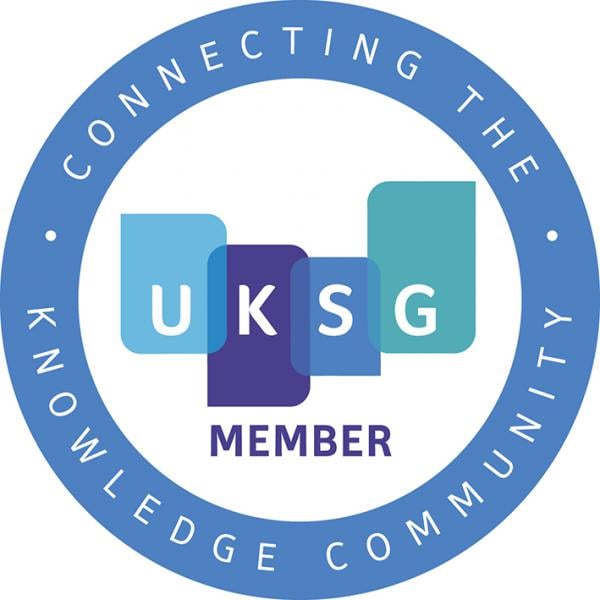
We are proud to announce that MDPI is now a member of UKSG, the UK´s largest scholarly communications community. Through UKSG, different stakeholders share their knowledge and experience in order to improve the knowledge and information environment for researchers. UKSG´s members include universities, publishers, content providers, intermediaries, and other similar organisations. Members participate in discussions and events on issues around scholarly communications.
The UKSG Annual Conference and Exhibition is a flagship initiative from the UKSG and one of the most stimulating events in the scholarly communications calendar. It is held annually and attracts a large number of delegates. More information is available at https://www.uksg.org/events/annualconference
MDPI is delighted to be a part of this active community and we look forward to making our own contribution. We will continue to support organisations and initiatives that boost collaboration and vision within scholarly communication.
More information about UKSG can be found at https://www.uksg.org/. The full membership list is available at: https://www.uksg.org/members.
8 March 2018
Meet Us at the EUBCE 2018 in Copenhagen, Denmark, 14-18 May 2018

MDPI will be represented at the EUBCE 2018 which will be held in Copenhagen, Denmark, 14-18 May, 2018.
As the leading platform for the collection, exchange and dissemination of scientific and industrial know-how in the field of biomass, the EUBCE combines one of the largest biomass science and technology conferences with a high quality industry exhibition, attracting biomass professionals from around the globe. Representatives of the following open access journals will attend:
Energies
Catalysts
Resources
Materials
ChemEngineering
If you are also attending this conference, please feel free to stop by our booth (Booth #H3). Our delegates look forward to meeting you in person to answer any questions you may have regarding open access publishing or our journals. For more information about the conference, please visit: http://www.eubce.com/
8 March 2018
Meet Us at NANOTECH 2018 in Anaheim, CA, USA, 13–16 May 2018

We will be attending the 20th annual Nanotech 2018 Conference & Expo (NANOTECH 2018), co-located with the TechConnect World Innovation Conference, Defense TechConnect Summit and Spring SBIR/STTR Conference. The event will attract more than 350 featured exhibitors and an expected crowd of more than 4000 attendees, including business executives, venture capitalists, politicians, s cientists and researchers from over 70 countries. Nanotech contains 38 symposiums and brings together specialists from a wide range of scientific fields, technology and business.
Representatives of the following open access journals will attend:
Sensors
Materials
Nanomaterials
Journal of Functional Biomaterials (JFB)
Journal of Imaging
Sustainability
Fluids
Photonics
Electronics
Catalysts
Applied Sciences
Inventions
Diagnostics
Cancers
Journal of Low Power Electronics and Applications (JLPEA)
Designs
Pharmaceuticals
C
Inorganics
International Journal of Environmental Research and Public Health (IJERPH)
Machines
Pharmaceutics
Journal of Manufacturing and Materials Processing (JMMP)
Actuators
Robotics
Energies
Biosensors
Chemosensors
Membranes
Coatings
Micromachines
If you will also attend this conference, please feel free to stop by our booth (Booth # 317). Our delegates look forward to meeting you in person to answer any questions you may have. For more information about the conference, please visit:
https://www.techconnectworld.com/Nanotech2018/
Conference Location:
Anaheim Convention Center,
800 W Katella Avenue
Anaheim CA 92802
USA
1 February 2018
MDPI Signed the San Francisco Declaration on Research Assessment (DORA)

The DORA initiative addresses the need for advanced approaches in the evaluation and measurement of the quality of scientific research outputs. It is a worldwide initiative covering all scholarly disciplines. MDPI proudly joins a list of more than 400 organizations around the world which support DORA’s recommendations for improving the way the quality of research results is evaluated.
More info can be found at http://www.ascb.org/dora/
25 January 2018
Meet Us at the ACS National Meeting & Exposition in New Orleans, USA, 18–22 March 2018

We will be attending the 255th ACS National Meeting & Exposition. It is an interdisciplinary forum open to anyone with an interest in Chemistry and the related disciplines. Representatives of the following open access journals will attend:
Agronomy
Applied Sciences
Beverages
Biomimetics
Biosensors
C
Catalysts
ChemEngineering
Chemosensors
Coatings
Energies
Environments
Fibers
Foods
Gels
Inorganics
Journal of Marine Science and Engineering (JMSE)
Lubricants
Materials
Mathematics
Metals
Molecules
Nanomaterials
Polymers
Processes
Resources
Safety
Sensors
Separations
Sustainability
Symmetry
Toxins
Water
If you are also attending this conference, please feel free to stop by our booth (Booth #640). Our delegates look forward to meeting you in person to answer any questions you may have. For more information about the conference, please visit: https://www.acs.org/content/acs/en/meetings/national-meeting.html?sc=home_meetings_170818_mtg_NO18_od
19 December 2017
Announcing the MDPI English Writing Prize
The competition is still open until end of March! Please check out the banner for more details: https://mdpi-res.com/data/english-prize.pdf
15 December 2017
UCL Press Adopts the MDPI Editorial Platform JAMS

We are delighted to announce that UCL Press has adopted MDPI's Journal Article & Management System, JAMS, including production services. JAMS is a modular, integrated editorial platform for academic publishers. It offers flexibility, ease-of-use, and is a fully integrated solution for the end-to-end management of scholarly journals. JAMS is based on the software used to publish MDPI’s portfolio of journals.
Ian Caswell, UCL Press Journals Manager, says he is "excited to see UCL Press and MDPI partner together to implement the JAMS submission system for all UCL Press journals. The system offered a flexible, efficient and straightforward solution for our processes from author submission to ready for publication. I am grateful for the valuable experience and support MDPI have offered and look forward to developing our programme with an effective submission system in place.” Dr Martyn Rittman, MDPI’s Publishing Services Manager, adds, “We are proud to support one of the UK’s premier university presses in their publishing operation. This is an excellent way for us at MDPI to share our experience and knowledge, and benefit the research community beyond our own journals.”
JAMS combines services that are kept separate for many publishers. The entire editorial process, production and invoicing (e.g. for open access article processing charges) are fully integrated into a single platform. This allows for efficient, fast manuscript processing. For further information about JAMS, see https://www.mdpi.com/publishing_services.
23 November 2017
New Participants in the Institutional Open Access Program (IOAP)
We are pleased to welcome new participants to MDPI's Institutional Open Access Program (IOAP), designed to help institutions manage the transition to the Open Access publishing model. Researchers affiliated with participating universites benefit from a 10% discount on the Article Processing Charges (APC) for any paper published in an MDPI journal, while the participating library or university incurs no basic fee for participating in the program.
The IOAP set of free services, provided by MDPI to institutions that sign up, include:- No fee for participants and no obligation to prolong after the initial 12 months. The participants may withdraw from the programme at any time, and we will also keep it free for the library for as long as they continue in the programme.
- Authors affiliated with the university will receive a 10% discount on the APC.
- The institution is granted free access to the MDPI submission system and can receive free alerts of new submissions to our journals.
- By default, authors from the institution will continue to be invoiced directly unless the institution opts for central billing.
- Auto-archiving of papers into the institutions´ repository as long as it supports SWORD 1.3.
More details about the programme and a list of our current participant institutions can be found at: https://www.mdpi.com/about/ioap
Institutions which are interested to participate may do so online at: https://www.mdpi.com/ioap-form
The following North American universities have signed up to the IOAP program recently:
Connecticut College, USA
Emory University, USA
Florida International University, USA
Johns Hopkins University, USA
Mississippi State University, USA
Northeastern University, USA
Rice University, USA
University of Ontario Institute of Technology, Canada
University of Rhode Island, USA
University of Texas Southwestern Medical Center, USA
University of Toronto, Canada
University of Windsor, Canada
University of Wisconsin–Madison, USA
Wellesley College, USA
West Virginia University, USA
Many prestigious institutions from Europe and Asia have joined as well:
Asia Pacific University of Technology & Innovation, Malaysia
Czech Technical University in Prague, Czech Republic
Gdansk University of Technology, Poland
Martin-Luther-Universität Halle-Wittenberg, Germany
National Chung Hsing University, Taiwan
Newcastle University, UK
Northumbria University, UK
Southwest University, China
Technical University of Crete, Greece
University Malaya, Malaysia
University of Antwerp, Belgium
University of Cyprus, Cyprus
University of Manchester, UK
University of Reading, UK
University of Sussex, UK
University of Warwick, UK
West Pomeranian University of Technology Szczecin, Poland
We offer a warm welcome to the new participants!
10 November 2017
Available Journal Awards at MDPI
In order to reward the academic community, especially young researchers, and enhance communication among scientists, MDPI journals regularly offer various awards to researchers in specific fields, for example, Young Investigator Awards, Travel Awards, Best Paper Awards, and Best Poster Awards, etc. The awardees range from PhD students to junior scientists.
Currently, the following 44 awards given by MDPI journals are accepting applications. Please click on the award title below to check whether you are eligible for it and start the application process.
|
Subject |
Journal |
Award |
Intended Awardee |
|
Biology & Life Sciences |
Animals |
PhD students or postdoctoral researchers |
|
|
Antioxidants |
Postdoctoral researchers or PhD students |
||
|
Biology |
PhD or postdoctoral fellows |
||
|
Forests |
Postdocs or PhD students |
||
|
International Journal of Molecular Sciences (IJMS) |
Ground-breaking contribution in the fields of Molecular Biology, and Molecular Pathology |
||
|
Journal of Fungi (JoF) |
Travel Awards 2018 |
PhD graduate students, and postdoctoral fellows |
|
|
Life |
Travel Award 2018 |
PhD students or postdoctoral fellows |
|
|
Metabolites |
PhD students |
||
|
Pharmaceuticals |
PhD students |
||
|
Toxins |
Postdoctoral fellows |
||
|
Viruses |
Viruses 2018 participants |
||
|
Viruses |
Viruses 2018 participants |
||
|
Water |
2018 Young Investigator Award |
Young investigators |
|
|
Chemistry & Materials Science |
Biomimetics
|
Graduate Student or Postdoctoral Trainee / Research Associate |
|
|
Catalysts |
PhD students |
||
|
Chemosensors |
PhD or postdoctoral fellows |
||
|
Entropy |
Young investigators |
||
|
Fibers |
2018 Travel award |
Postdocs or PhD students |
|
|
Magnetochemistry |
Postdocs |
||
|
Materials |
PhD or postdoctoral fellows |
||
|
Metals |
PhD or postdoctoral fellows |
||
|
Minerals |
PhD or postdoctoral fellows |
||
|
Sensors |
Travel Award 2018 |
PhD or postdoctoral fellows |
|
|
Sensors |
Sensors' reviewers in 2017 |
||
|
Sensors |
Young investigators |
||
|
Technologies |
PhD students |
||
|
Computer Science & Mathematics |
Multimodal Technologies and Interaction (MTI) |
Postdoctoral researchers or PhD students |
|
|
ISPRS International Journal of Geo-Information(IJGI) |
Postdocs |
||
|
Journal of Sensor and Actuator Networks (JSAN) |
Postdoctoral fellows and PhD students |
||
|
Journal of Imaging |
Postdoctoral fellows and PhD students |
||
|
Engineering |
Actuators |
PhD or postdoctoral fellows |
|
|
Remote Sensing |
Authors |
||
|
Machines |
PhD or postdoctoral fellows |
||
|
Micromachines |
PhD or postdoctoral fellows |
||
|
Fluids |
Postdoctoral fellows and PhD students |
||
|
ChemEngineering |
Postdoctoral researchers and PhD students |
||
|
Environmental & Earth Sciences |
Diversity |
Travel Awards 2018 |
Postdoctoral fellows |
|
International Journal of Environmental Research and Public Health (IJERPH) |
Authors who submit from 1 Nov 2017 to 31 Oct 2018 |
||
|
Resources |
Postdocs or PhD students |
||
|
Geosciences |
Postdoctoral fellows and PhD students |
||
|
Physical Sciences & Astronomy |
Galaxies |
Ph.D. students, postdoctoral fellows, or lecturers in cosmology or galaxies physics |
|
|
Applied Science |
Postdocs |
||
|
Medicine & Pharmacology; Public Health & Healthcare |
Journal of Clinical Medicine (JCM) |
PhD or postdoctoral fellows |
|
|
Medicines |
Postdocs |
7 November 2017
MDPI has signed the Jussieu Call for Open Science and Bibliodiversity
The Jussieu Call aims to develop and implement alternative models to meet the aims of open science while promoting bibliodiversity. In particular it wishes to promote new business models for funding open access publication. It was drafted on the Jussieu campus in Paris by a group of French researchers and scientific publishing professionals.
MDPI supports scholarly communities and initiatives that innovate and further promote Open Access publishing. There is a need to explore different frameworks to fund open access in ways that ensure that excessive funds are not diverted from research towards publishing. Many fair funding models already exist, and they can be further developed and extended. These include institutional support, library contributions or subsidies, premium services, participatory funding, etc. For this reason, MDPI has signed up to the Jussieu call and welcomes its aims.
More information can be found at http://jussieucall.org/ (archived here)
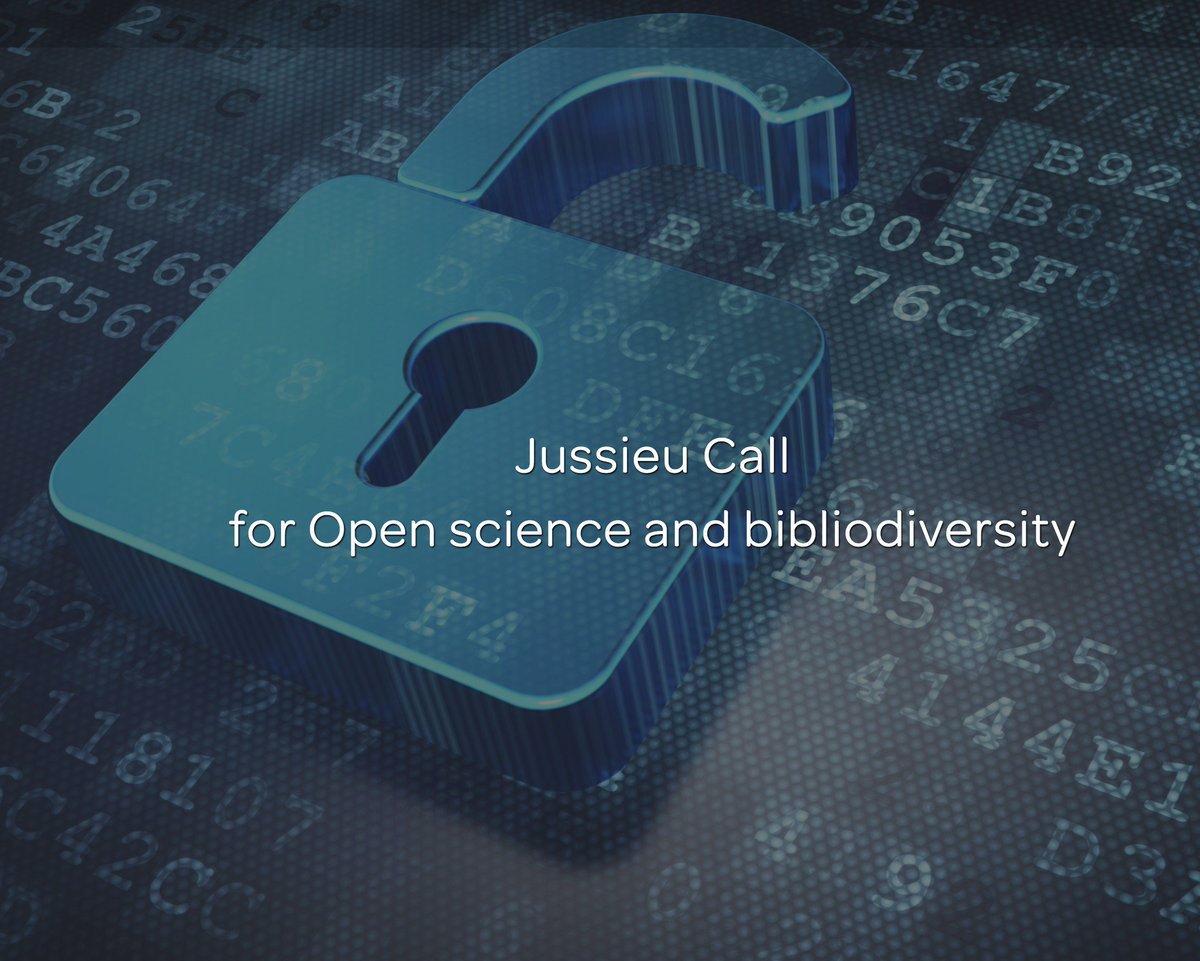
6 October 2017
Dr. Franck Vazquez, MDPI CEO, Interviewed by Scholarly Kitchen
The Society for Scholarly Publishing’s popular blog about topics in academic publishing, Scholarly Kitchen, recently interviewed MDPI’s CEO, Dr. Franck Vazquez. He shared some thoughts and information on the past and future of MDPI and open access publishing in general:
“In the long run, we aim to anchor MDPI in research communities. We recently developed and launched the preprint platform Preprints, revamped our free-to-use conference hosting platform Sciforum, and are working on other projects, such as Scilit, our bibliographic database.”
Read the full interview here.
19 September 2017
A Warm Welcome to the New IOAP Participants
We are delighted to have welcomed 24 new participants to our Institutional Open Access Programme (IOAP) since the beginning of September this year. These are University libraries and Research Institutions located around the world; from the USA and Canada to the UK, and from Norway and Spain to Greece. Well respected Universities, such as the University of Denver, the University of Colorado Boulder, and the University of Arizona in the US, have signed up, while their researchers can now benefit from a 10% discount on the Article Processing Charges (APC) for any papers they publish in MDPI journals, at no cost for the library or the University.
We are more than happy to see the Open Access movement growing stronger and wider every day and we appreciate the vital role which librarians, repository managers, and other scholarly communications professionals play in the field. Our communication with and service to this community is, therefore, one of our principal priorities. The IOAP is our way to support academic and scientific Institutions as well as their scholars in managing, administrating, and publishing research in an Open Access world.
The IOAP set of free services, provided by MDPI to institutions that sign up, include:
- No fee for participants and no obligation to prolong after the initial 12 months. The participants may withdraw from the programme at any time, and we will also keep it free for the library for as long as they continue in the programme.
- Authors affiliated with the university will receive a discount on the article processing charge (APC).
- The institution is granted free access to the MDPI submission system and can receive free alerts of new submissions to our journals.
- By default, authors from the institution will continue to be invoiced directly unless the institution opts for central billing.
- Auto-archiving of papers into the institutions´ repository as long as it supports SWORD 1.3.
More details about the programme and a list of our current participant institutions can be found at: https://www.mdpi.com/about/ioap
Institutions which are interested to participate may do so online at: https://www.mdpi.com/ioap-form
The full list of the Institutions that signed up in September is as follows:
- University of Denver, USA
- University of Colorado Boulder, USA
- University of Arizona, USA
- Institute of Metrology of Bosnia and Herzegovina, Bosnia and Herzegovina
- Middlebury College, USA
- Touro College, USA
- University of New Orleans, USA
- University of Leicester, UK
- Indiana University-Purdue University Indianapolis, USA
- University of Strathclyde, UK
- Cranfield University, UK
- Hope College, USA
- Oregon State University, USA
- Drew University, USA
- Swansea University, UK
- University of South Florida, USA
- University of Georgia, USA
- Arizona State University, USA
- University of Southern Mississippi, USA
- Université du Québec à Chicoutimi, Canada
- Grinnell College, USA
- Norwegian University of Science and Technology, Norway
- University of Patras, Greece
- Public University of Navarre, Spain
23 June 2017
Congratulations for Publishing the 100,000th Peer-Reviewed Article
Congratulations to the authors Javier Monroy and Javier Gonzalez-Jimenez from Universidad de Malaga, Spain, Victor Hernandez-Bennets, Han Fan and Achim Lilienthal from Örebro University, Sweden for publishing the 100,000th peer-reviewed article.
The article is published in the Chemical Sensors section of Sensors.
GADEN: A 3D Gas Dispersion Simulator for Mobile Robot Olfaction in Realistic Environments
Evermore pressing environmental concerns have led global actors and decision-makers to search for stricter emission monitoring approaches. As part of novel monitoring systems, robots with gas and environmental sensors are a promising solution. However, validation of such robotic inspectors is expensive, time consuming, and plagued by repeatability issues. In this article, we present GADEN (the short form for Gas Dispersion Simulator for Mobile Robot Olfaction in Realistic Environments), which combines gas dispersion and robotics simulation in a common framework. Developed under the widely used Robot Operating System (ROS), GADEN enables validation of sensing strategies with gas dispersion being simulated using computational fluid dynamics and filament dispersion theory. GADEN allows simulating complex, realistic, 3D environments for reproducible testing of robotic gas sensing algorithms. Through qualitative and quantitative evaluations, we show that GADEN is a versatile and user-friendly evaluation tool and emphasize its enormous potential for the mobile robot olfaction community.
Read the full article here: https://www.mdpi.com/1424-8220/17/7/1479/htm
14 June 2017
2016 Impact Factor Released for Catalysts – 3.082
We are pleased to inform that the updated Impact Factor of Catalysts has been released. According to the Journal Citation Reports®, published by Clarivate Analytics in June 2017, the new Impact Factor is 3.082, and the 5-Year Impact Factor is 3.947.
Catalysts now ranks 53/145 (Q2) in the category ‘Chemistry, Physical’ and is the highest ranking Open Access journal in the category.
Evolution of Impact Factor, Citations and Publications for Catalysts: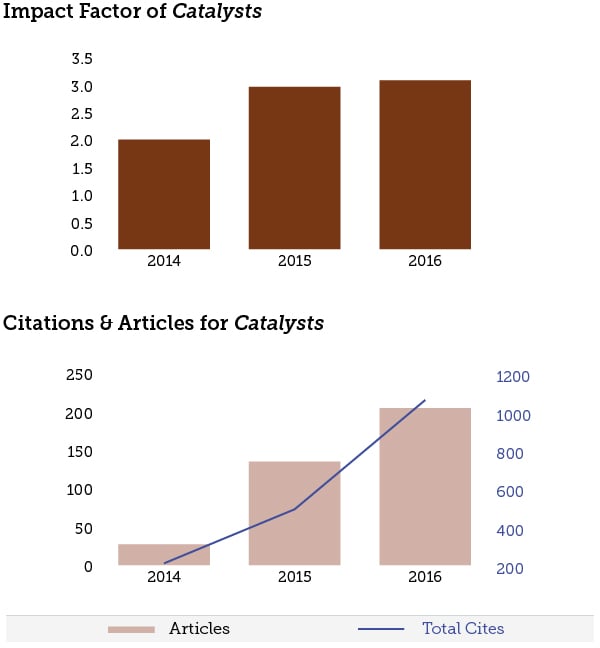
6 June 2017
CiteScore™ Metrics Released for Scopus Journals
The CiteScore, the new citation metric for journals covered in the Scopus® database, was released on 1 June 2017, reflecting the citation activity in 2016 for articles published during the three previous years. Please note that the list below does not contain all MDPI journals covered in Scopus. For the CiteScore to serve as a reliable metric at least three volumes of articles need to be indexed in Scopus; journals which have not met this criterion have been omitted here.
Ten MDPI journals received a CiteScore which is in the Top 10% of scores in at least one of the categories, while a further 21 journals exhibit scores that are in the first quartile of the respective categories.
CiteScore Data for MDPI Journals
| Journal | Rank | Category | Link | CiteScore 2016 | 2015 |
2014 |
| Algorithms | 44/112 (Q2) 49/111 (Q2) 19/42 (Q2) 52/113 (Q2) |
• Numerical Analysis • Computational Mathematics • Computational Theory and Mathematics • Theoretical Computer Science |
Link | 1.15 | 1.07 | 1.06 |
| Animals | 69/343 (Q1) 21/146 (Q1) |
• Animal Science and Zoology • General Veterinary |
Link | 1.46 | 1.66 | 0.74 |
| Biology | 13/92 (Q1) 34/81 (Q1) 10/75 (Q1) |
• General Agricultural and Biological Sciences • General Biochemistry, Gene- tics and Molecular Biology • General Immunology and Microbiology |
Link | 3.02 | 2.78 | 1.74 |
| Biomolecules | 234/382 (Q3) 260/353 (Q3) |
• Biochemistry • Molecular Biology |
Link | 1.67 | 3.08 | 1.00 |
| Biosensors | 36/118 (Q2) 209/2156 (Q1) |
• Clinical Biochemistry • General Medicine |
Link | 2.83 | 2.37 | 2.04 |
| Cancers | 29/196 (Q1) 27/321 (Q1) |
• Cancer Research • Oncology |
Link | 5.02 | 4.07 | 2.31 |
| Catalysts | 18/44 (Q2) 27/144 (Q1) |
• Catalysis • Physical and Theoretical Chemistry |
Link | 3.44 | 3.45 | 2.17 |
| Crystals | 70/270 (Q2) 25/64 (Q2) 118/398 (Q2) 131/424 (Q2) |
• General Chemical Engineering • Inorganic Chemistry • Condensed Matter Physics • General Materials Science |
Link | 1.89 | 1.47 | 1.03 |
| Diversity | 10/41 (Q1) 9/25 (Q2) 76/291 (Q2) 24/109 (Q1) |
• Agricultural and Biological Sciences (miscellaneous) • Ecological Modelling • Ecology • Nature and Landscape Conservation |
Link | 2.03 | 1.96 | 1.82 |
| Energies | - | - | Link | 2.50 | 2.87 | 2.66 |
| Entropy | 51/198 (Q2) | • General Physics and Astronomy | Link | 1.87 | 1.99 | 1.69 |
| Forests | 17/127 (Q1) | • Forestry | Link | 2.06 | 1.76 | 1.84 |
| Games | 204/398 (Q3) 83/181 (Q2) 48/105 (Q2) |
• Applied Mathematics • Statistics and Probability • Statistics, Probability and Uncertainty |
Link | 0.87 | 0.57 | 0.64 |
| Genes | 62/300 (Q1) 18/90 (Q1) |
• Genetics • Genetics (clinical) |
Link | 3.62 | 3.18 | 1.33 |
| Geosciences | 36/169 (Q1) |
• General Earth and Planetary Sciences | Link | 1.67 | 1.29 | 1.13 |
| Information | 156/237 (Q3) | • Information Systems | Link | 0.78 | 0.94 | 0.74 |
| Insects | 28/131 (Q1) | • Insect Science | Link | 1.81 | 1.38 | 1.23 |
| International Journal of Environmental Research and Public Health (IJERPH) | 67/446 (Q1) 31/102 (Q2) |
• Public Health, Environmental and Occupational Health • Health, Toxicology and Mutagenesis |
Link | 2.38 | 2.42 | 2.47 |
| International Journal of Molecular Sciences (IJMS) | 23/157 (Q1) 8/64 (Q1) 90/353 (Q1) 22/144 (Q1) 16/44 (Q1) 8/62 (Q1) |
• Organic Chemistry • Inorganic Chemistry • Molecular Biology • Physical and Theoretical Chemistry • Catalysis • Spectroscopy |
Link | 3.73 | 3.37 | 3.06 |
| ISPRS International Journal of Geo-Information | 12/29 (Q2) 28/79 (Q2) 96/587 (Q1) |
• Computers in Earth Sciences • Earth and Planetary Sciences (miscellaneous) • Geography, Planning and Development |
Link | 1.62 | 1.52 | - |
| Journal of Low Power Electronic Applications (JLPEA) | 301/645 (Q2) | • Electrical and Electronic Engineering | Link | 0.98 | 0.83 | 0.83 |
| Life | 65/525 (Q1) 36/186 (Q1) 5/92 (Q1) 20/80 (Q2) |
• Ecology, Evolution, Behavior and Systematics • General Biochemistry, Gene- tics and Molecular Biology • Palaeontology • Space and Planetary Science |
Link | 2.95 | 1.68 | 1.20 |
| Marine Drugs | 18/145 (Q1) | • Drug Discovery | Link | 3.83 | 3.66 | 3.59 |
| Materials | 63/424 (Q1) | • General Materials Science | Link | 3.26 | 3.11 | 2.69 |
| Membranes | 103/424 (Q1) | • Materials Science | Link | 2.19 | 2.95 | 2.42 |
| Micromachines | 173/645 (Q2) 69/211 (Q2) 113/526 (Q1) |
• Electrical and Electronic Engineering • Control and Systems Engineering • Mechanical Engineering |
Link | 1.83 | 1.78 | 2.10 |
| Minerals | 45/206 (Q1) 29/167 (Q1) |
• Geology • Geotechnical Engineering and Engineering Geology |
Link | 2.13 | 1.77 | - |
| Molecules | 32/157 (Q1) | • Organic Chemistry | Link | 3.09 | 2.65 | 2.62 |
| Nutrients | 12/247 (Q1) | • Food Science | Link | 4.29 | 4.07 | 3.78 |
| Pharmaceuticals | 8/168 (Q1) 21/158 (Q1) |
• Pharmaceutical Science • Molecular Medicine |
Link | 4.90 | 3.64 | 1.92 |
| Pharmaceutics | 19/168 (Q1) | • Pharmaceutical Science | Link | 3.83 | 2.68 | 2.46 |
| Polymers | 13/138 (Q1) 44/354 (Q1) |
• Polymers and Plastics • General Chemistry |
Link | 3.74 | 3.37 | 4.10 |
| Remote Sensing | 13/169 (Q1) | • General Earth and Planetary Sciences | Link | 3.56 | 3.76 | 3.23 |
| Sensors | 25/96 (Q2) 25/159 (Q1) 124/382 (Q2) 103/645 (Q1) |
• Analytical Chemistry • Atomic and Molecular Physics, and Optics • Biochemistry • Electrical and Electronic Engineering |
Link | 2.78 | 2.21 | 2.40 |
| Sustainability | 49/129 (Q2) 68/587 (Q1) 56/236 (Q1) |
• Renewable Energy, Sustai-nability and the Environment • Geography, Planning and Development • Management, Monitoring, Policy and Law |
Link | 1.96 | 1.78 | 1.52 |
| Symmetry | 17/42 (Q2) 49/111 (Q2) |
• Numerical Analysis • Computational Mathematics |
Link | 1.12 | 0.95 | 1.02 |
| Toxins | 16/102 (Q1) 16/108 (Q1) |
• Health, Toxicology and Mutagenesis • Toxicology |
Link | 3.34 | 3.76 | 2.85 |
| Vaccines | 146/184 (Q4) 151/250 (Q3) 93/145 (Q3) 186/299 (Q3) 130/232 (Q3) |
• Immunology • Infectious Diseases • Drug Discovery • Pharmacology • Pharmacology (medical) |
Link | 1.23 | 3.76 | 2.85 |
| Viruses | 15/68 (Q1) 34/250 (Q1) |
• Virology • Infectious Diseases |
Link | 3.60 | 3.74 | 3.80 |
| Water | 33/184 (Q1) 48/195 (Q1) 62/587 (Q1) 198/382 (Q3) |
• Water Science and Technology • Aquatic Science • Geography, Planning and Development • Biochemistry |
Link | 2.05 | 1.96 | 1.45 |
23 May 2017
Meet Us at 25th North American Meeting of the Catalysis Society
We will be attending the 25th North American Meeting (NAM) of the Catalysis Society, which takes place June 4-9, 2017, representing the following open access journals:
Please come along to our stand, booth number #211, to talk to our delegates about our journals and travel awards you could apply. We also would like to invite you to our ‘Meet and Greet’ session at 12:00 pm on 7th June! Catalysts Professor Keith Hohn, the Editor-in-Chief of Catalysts, and the Editorial Board Member Professor Calvin Bartholomew will be there to answer your questions about the Open Access publishing.
Food and refreshments will be provided and we look forward to meeting you in person to answer your questions.
Conference address:
MDPI booth - number #211
25th North American Meeting of the Catalysis Society
June 4-9, 2017
Hyatt Regency Hotel and Convention Center, Denver, Colorado, USA
For more information on the conference, please visit
http://www.nam25.org/
17 May 2017
Three New Institutional Memberships Established
We are pleased to announce that the Goethe University of Frankfurt, the Technical University of Hamburg (TU Hamburg-Harburg), as well as the Humboldt University of Berlin, in Germany, have joined MDPI's institutional membership program: Primary authors from these instititions will benefit from a 10% discount on the article processing charges.
Additional details can be found on our institutional membership page.
4 May 2017
MDPI Supports the Initiative for Open Citations (I4OC)
As an open access publisher, we are keen to support openness and transparency in the research process. Citation data is very important for assessing the value of individual papers and the contribution of researchers. As such, we support the recently launched Initiative for Open Citations (I4OC). The initiative recognizes that citations should be freely available and machine-readable. By doing so, authors gain the maximum benefit from having their work cited.
MDPI now uploads citation data with metadata uploaded to Crossref when registering digital object identifiers (DOIs) for published papers. We are delighted to take this step to support a truly open research environment.
2 May 2017
Publons Peer Review Academy Goes Live
Getting high quality review reports is critical for any journal’s editorial process. At MDPI we have put in place several measures to motivate reviewers and reward them for their work. We are proud of the quality of reviewer reports we receive and grateful for the hours put in by active researchers from across the globe.
Reviewers of MDPI’s largest journals can get recognition via Publons, a website dedicated to rewarding peer reviewers. They have now taken this one step further and launched the Publons Reviewer Academy to help train reviewers to provide useful feedback. Through the academy, researchers can be trained and tutored in various aspects of how to provide structured feedback that will be of genuine help to editors and authors. We support this initiative and recommend it to potential MDPI reviewers, especially early career researchers. See the Publons announcement for further information.
More information on reviewing for MDPI, including how to volunteer as a reviewer, can be found here.
24 April 2017
Two New Institutional Memberships Established
We are pleased to announce that the following universities have joined MDPI's institutional membership program: Trinity University, San Antonio, Texas, USA and the University of New South Wales (UNSW), Sydney, Australia. Primary authors from these instititions will benefit from a 10% discount on the article processing charges.
Additional details can be found on our institutional membership page.
30 March 2017
Credit for Preprints Comments via Publons
Preprints.org is a platform run by MDPI that allows authors to make early versions of manuscripts available before peer review has been completed.
One of the major benefits of putting a preprint online is to get feedback before journal submission. Until now, however, the feedback has been on a voluntary basis. Preprints is delighted to be the first preprint server to collaborate with Publons to acknowledge substantial comments as reviews and give commentators the opportunity to receive credit for their efforts.
When you add a comment to any article, there is a check box to click for it to appear on Publons. If you have already linked your account it will be passed on automatically. If you don't already have a Publons account, you will be contacted soon afterwards with instructions on how to create one.
We appreciate the enthusiasm and cooperation of Publons in this project and expect it to be of great benefit to authors and commenters alike.
20 March 2017
MDPI 2016 Annual Report Released
We are pleased to announce that our annual report for the year 2016 has now been published.
It contains information regarding company and journal performance, conferences and other publishing services that we provided throughout 2016.
To read the report in full or download a copy, please click here.
16 March 2017
Meet MDPI at the 253rd American Chemical Society National Meeting & Exposition
MDPI will be attending the 253rd American Chemical Society National Meeting & Exposition, which takes place 2–6 April 2017, representing the following open access journals:
Molecules
Materials
Energies
Nanomaterials
Catalysts
Applied Sciences
Batteries
Coatings
Metals
Magnetochemistry
Marine Drugs
Processes
Pharmaceuticals
Symmetry
If you are planning to attend, please visit our booth (Number 1618) to talk to our delegates about our journals and open access publishing. Also feel free to attend our ‘Meet and Greet’ session at 12:30pm on 3 April with Dr. Derek J. McPhee, the Editor-in-Chief of our journal Molecules. Food and refreshments will be provided.
Conference address:
MDPI - Booth 1618
253rd American Chemical Society National Meeting & Exposition
The Moscone Center, 747 Howard Street
San Francisco, CA 94103
USA
15 March 2017
Our 100,000th Article Could be Yours!
After the 20th anniversary of MDPI in 2016, we will reach another milestone this year and will publish the 100,000th peer-reviewed article in one of our 170+ open access journals.
We would like you to be part of this great achievement and so are offering to publish the 100,000th accepted paper free of charge.
To be in with a chance, select a journal in one of our 10 scientific subject areas and submit your paper.
Access the live tracker on published articles here.
![]()
3 March 2017
1000 Preprints Online
We are delighted that Preprints now has 1000 papers online since its launch on 3 May 2016.
For more information, see the editorial here.
9 February 2017
Minister and State Secretaries Visit MDPI Office at STP, Belgrade, Serbia
Earlier this week the Science Technology Park in Belgrade, Serbia was visited by Swiss Secretary of State Dr. Mauro Dell’Ambrogio, as well as Serbian Minister of Public Administration and Local Self-Government Ana Brnabic, State Secretary Dr. Vladimir Popovic and Mayor of Belgrade Mr. Siniša Mali.
During the visit to the STP they had a short presentation from MDPI’s CEO Dr. Franck Vazquez and IT Manager Mr. Miloš Čučulović, and further discussed important issues such as Open Access and Open education. Dr. Dell'Ambrogio said he was impressed with the potential for development and ideas for business.
For more information please see:
http://bit.ly/2kpIu7k and http://bit.ly/2kpUQfz
7 February 2017
The 6th World Sustainability Forum: Final Press Release
Basel, 29 January 2017
The 6th World Sustainability Forum #WSF2017SA: African universities critical to achieving the Sustainable Development Goals
Jeffrey and Sonia Sachs win first World Sustainability Award.
Universities need to take the lead in solving the greatest challenges the world faces today, particularly in Africa. They need to do this not only through education – teaching the next generation to think critically and creatively to find sustainable solutions – but also through research that cuts across a range of disciplines. To ensure these solutions are implemented, they need to partner with the private sector and with government.
This was the key message from the 6th World Sustainability Forum (WSF2017), which took place in Cape Town on 27 and 28 January 2017. Sponsored by MDPI and the journal Sustainability under the patronage of the Universities of the Western Cape (UWC), Cape Town (UCT), University of Basel and the National Research Foundation (NRF) of South Africa, the conference was attended by key national and international speakers, including world-leading economist Professor Jeffrey D. Sachs, senior United Nations (UN) advisor and director of the Earth Institute at Columbia University.
The WSF is an annual sustainability conference which addresses research in a range of areas related to sustainable development and sustainability globally. This was the first WSF to take place on the African continent. Discussions at the 2017 conference were driven by the 17 sustainable development goals (SDGs) adopted as part of the 2030 Agenda for Sustainable Development by the UN in September 2015.
Achieving the SDGs “is the moonshot for our generation,” said Sachs. “Like the moonshot [moon landing] of the 1960s, these are tough, bold and achievable objectives.”
“This is a nasty, tough world we live in, and our world agrees on very little. So when 193 governments agree on something, that is important. And when they agree on something as important as sustainable development, that is really something for us to grab hold of – that is a lifeline.”
There was agreement at the WSF that the SDGs are particularly important for Africa, and that African universities in particular have a role to play in achieving them.
Said Professor Tyrone Pretorius, vice-chancellor of UWC: “The quest for sustainable development can only be met through education. Universities today are the oil that fuels the knowledge economy.”
As part of the drive to develop academic capacity to provide the knowledge needed to meet the SDGs, WSF2017 was preceded by the 1st Postgraduate Forum on Sustainability. “A series of workshops for postgraduate education linked to WSF are important, in order to equip postgraduates with the skills necessary to promote sustainability,” said Professor Thandi Mgwebi, director for research at UWC. A second postgraduate forum will take place alongside the WSF2018 in Beijing.
This capacity development is particularly critical to Africa. Said Sachs: “African universities need to do research to find solutions to Africa’s development challenges, because no other university will.”
The UN set a target of achieving the SDGs by 2030: “I regard this as the breakthrough period to end extreme poverty on the continent,” said Sachs, “and for Africa to become one of the most dynamic centres of the world economy.”
It is a critical time for South African universities, said Professor Mamokgethi Phakeng, deputy vice-chancellor for research and internationalisation at UCT: “Higher education is at a crossroads, and there is much polarisation. We need to think carefully about how this sustainable development agenda is owned by all so that it is inclusionary.”
There was also strong emphasis on public–private partnerships – for universities, business and government to work together to achieve the goals.
Said Professor Francis Petersen, deputy vice-chancellor at UCT and vice-chancellor designate at the University of the Free State: “Business sustainability has become critical, because there is increasing demand and complexity of demand on business from the natural, social and economic environment. Sustainability cannot be a standalone issue, divorced from business as usual. Sustainability needs to be embedded into business.”
Environmental crises and climate change was also high on the WSF agenda. In his keynote address, Sachs noted the irreversibility of the climate- and environmental-related challenges.
“If we don’t get our act together, we lose the chance of safety,” he said.
Said Professor Mark New, pro vice-chancellor and director of the African Climate and Development Initiative at UCT: “We have a fundamental challenge in responding to climate change, and we must go further than just putting a plaster on a wound. We need to address the deep structural issues, to move from our current model of development into climate-compatible development.”
“This requires researchers to find the evidence for the correct development pathways to take, and then support the ability of policymakers at all levels to enable the shift to climate-compatible development planning.”
Said Dr. Aldo Stroebel, executive director of international relations and cooperation at the NRF, in closing: “We have seen over the past two days an urgency towards the next step of thinking, that critical type of framework that we all must engage with, not only from an academic perspective, but further up into the policy environment and into rural-based environments where one can clearly see the links and effectiveness of the work.”
World Sustainability Awards
The first World Sustainability Award and the first Emerging Sustainability Leader Awards were presented by Prof. Thandi Mgwebi, Director of Research at UWC, and Dr. Franck Vazquez, CEO of MDPI, during the ceremony on 27 January 2017 as part of the gala dinner of the 6th World Sustainability Forum in South Africa.after day one of proceedings of the 2017 World Sustainability Forum South Africa.
Professor Jeffrey D. Sachs and Dr. Sonia Ehrlich Sachs are the joint recipients of the first World Sustainability Award. Jeffrey Sachs is a world-renowned economist and senior United Nations (UN) advisor and director of the Earth Institute at Columbia University. Sonia Sachs is a paediatrician and public health specialist, and director of the Health Centre at the Centre for Sustainable Development, also at Columbia University.
The joint recipients of the first Emerging Sustainability Leader Award are Dr. Esther Ngumbi and Dr. Xiaosong Hu. Esther Ngumbi is a postdoctoral researcher at Auburn University in Alabama USA and serves as a 2015 Clinton Global University Mentor for agriculture. Xiaosong Hu is a professor at the Chongqing University in China and specialises in automotive control systems and mechanical engineering.
The World Sustainability Award and the Emerging Sustainability Leader Awards are funded to encourage new initiatives and developments in sustainability with the ultimate aim of fostering the transition to sustainable practices and societies.
The World Sustainability Award is funded by the MDPI Sustainability Foundation, and included a monetary prize of USD 100,000 to Jeffrey and Sonia Sachs. The Emerging Sustainability Leader Award is funded by the journal Sustainability, awarded to researchers under 40, and included a monetary prize of USD10,000.
Issued jointly by: UCT Global Strategy and Visibility, Research Office, UWC Communications & Media and MDPI AG
Conference photos are free available at: https://sciforum.net/conference/wsf-6/page/175 Photo credit: Matthias Burkhalter
|
Carla Bernardo |
Luthando Tyhalibongo |
Matthias Burkhalter |
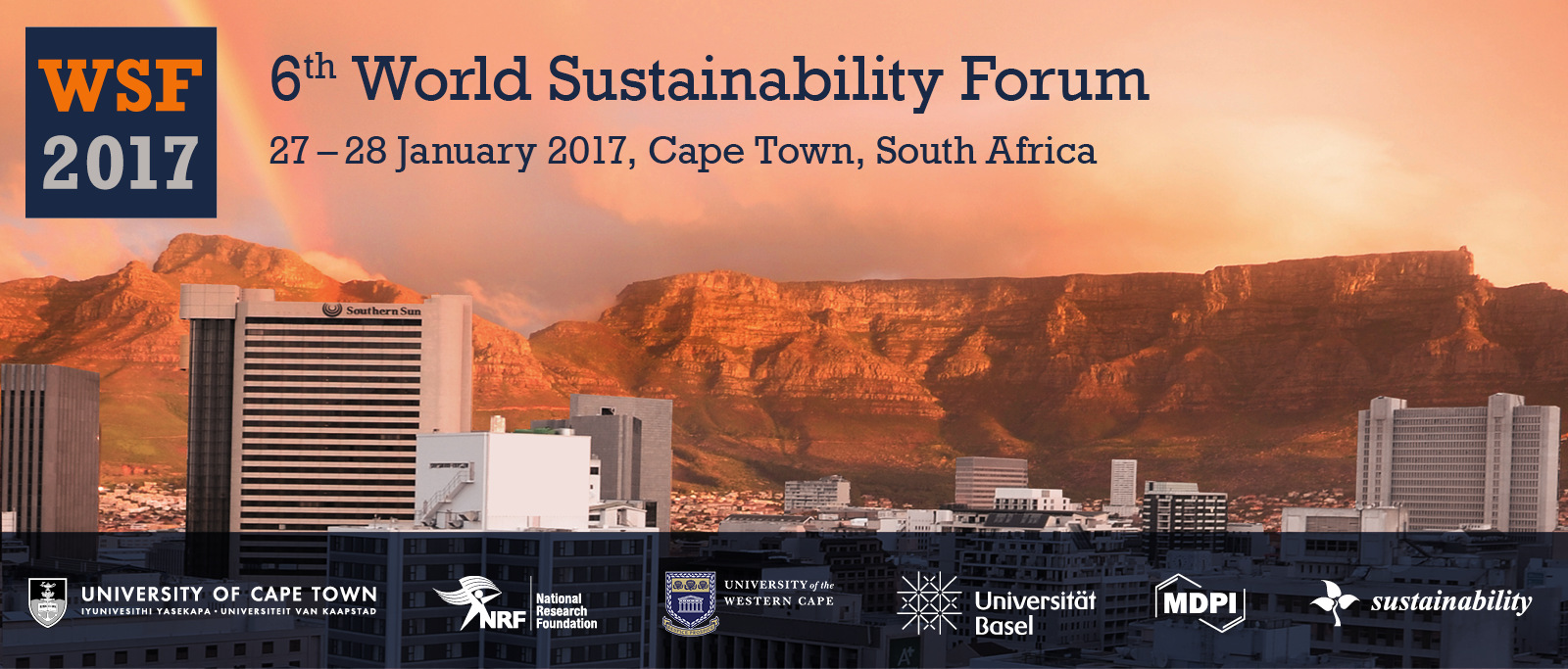
31 January 2017
Three New Institutional Memberships Established
We are pleased to announce that the Chalmers University of Technology, Sweden, the University of Manitoba, Canada and the Technical University of Cartagena, Spain, have joined MDPI's institutional membership program: Primary authors from these institutions will benefit from a 10% discount on the article processing charges.
Additional details can be found on our institutional membership page.
27 January 2017
6th World Sustainability Forum under way in South Africa
The 6th World Sustainability Forum is currently being held at the Cape Sun Hotel until 28 January 2017.
The Forum will showcase the work of internationally renowned researchers and include more than 150 presentations. During the conference dinner, the World Sustainability Award, associated with a US$ 100,000 prize, will be announced, as well as the Emerging Sustainability Leader Award, associated with a US$ 10,000 prize. The prizes are sponsored by the MDPI Sustainability Foundation and Sustainability, an academic open access journal by MDPI.
Here are some pictures from the forum so far:
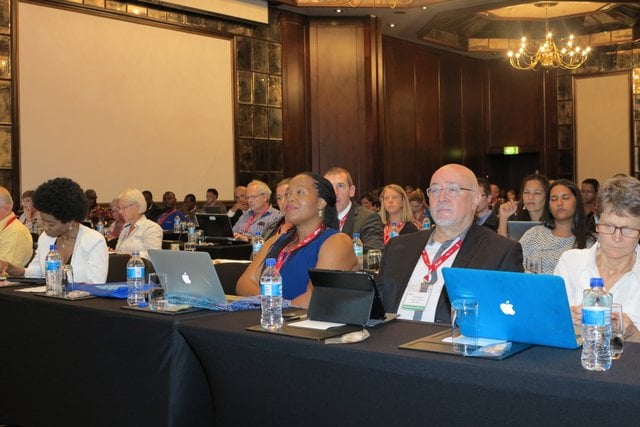
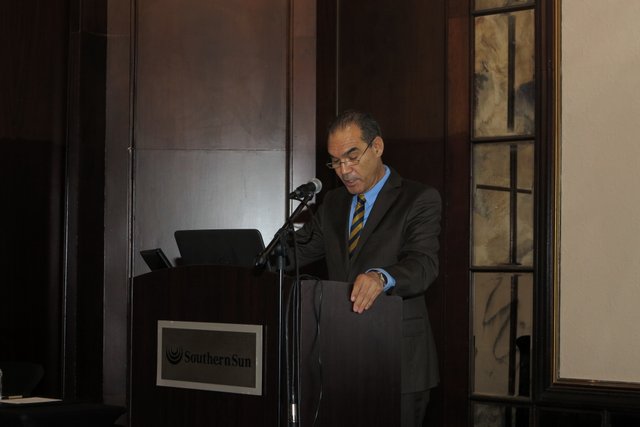
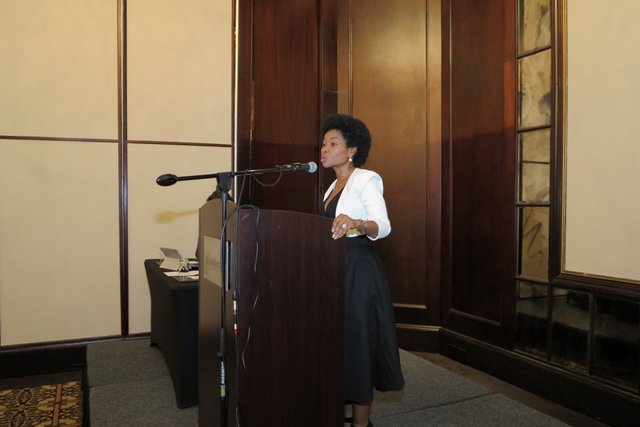
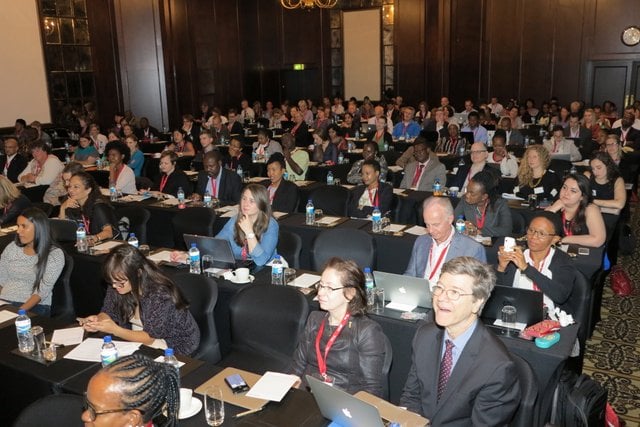
To see the full WSF2017 program and schedule, please see here: https://sciforum.net/conference/wsf-6/page/schedule
19 January 2017
Cape Town to Host the 6th World Sustainability Forum
Cape Town will host the 6th World Sustainability Forum at the Cape Sun Hotel on 27 and 28 January 2017. This prominent event, held for the first time in Africa, will include many illustrious South African and international experts, such as Her Excellency Graça Machel (Sustainable Development Advocate for the United Nations, Mozambique), Joyene Isaacs (HoD Agriculture Western Cape Government), Jeffrey Sachs (Columbia University, USA), Max Bergman (SRaM, University of Basel), Mark New (Pro Vice-Chancellor, University of Cape Town), Frans Swanepoel (FutureAfrica, University of Pretoria) and Francis Petersen (Vice-Chancellor-designate, University of the Free State). The Forum will provide a stage for national and international debates on sustainability in South Africa, the African continent, and about international perspectives on sustainability. It brings together researchers and representatives from government and the business sector to discuss a wide-ranging set of issues associated with sustainability, including food security, water and energy scarcity, mining, poverty reduction, climate change, and urbanisation.
The next few decades will be marked by profound changes in the relationships between global economics, national societies, and the environment. We have entered what some call the Anthropocene, an age in which human activity dominates the climate and the environment. These changes will have numerous consequences on societies around the globe. South Africa and Africa will play a central role, for better or worse, in creating opportunities and risks during these changing times as Africa is profoundly influencing and being influenced by global developments.
The adoption of the 17 United Nations Sustainable Development Goals and the 2030 Agenda for Sustainable Development in September 2015 was accompanied by what insiders considered an optimism they have not experienced in relation to UN resolutions before. The relative efficiency in the drafting, the lack of trenches between East and West, or between North and South, and the unanimity of support of the 193 countries speak volumes. In stark contrast, sustainability seems to go against a changing economic and political tide, where waves of nationalism and protectionism from some of the most powerful countries risk the wellbeing of the rest of the world. The 6th World Sustainability Forum will enable fruitful exchanges, which sensitise South African and international communities to the global urgency and specifics of sustainability.
The Forum will showcase the work of internationally renowned researchers and include more than 150 presentations. During the conference dinner, the World Sustainability Award, associated with a US$ 100 000 prize, will be announced, as well as the Emerging Sustainability Leader Award, associated with a US$ 10 000 prize. The prizes are sponsored by the MDPI Sustainability Foundation and Sustainability, an academic open access journal by MDPI. The World Sustainability Forum is preceded by the Postgraduate Forum on Sustainability, which will introduce more than 100 young scholars from South Africa and the African continent to sustainability research. Both events are organized and sponsored by the University of Cape Town, the University of the Western Cape, the University of Basel, MDPI, and by the National Research Foundation of South Africa.
Contacts:
Scientific Matters: Prof Manfred Max Bergman, Social Research and Methodology Group (SRaM), University of Basel, Switzerland; Email: [email protected]
Press Accreditation and General Enquiries: Mr Matthias Burkhalter, MDPI AG, Basel, Switzerland; Email: [email protected]; Tel. +41 61 683 77 34
Follow us on Twitter
#WSF2017SA
6 January 2017
MDPI Supports the OA2020 Initiative
MDPI is now a proud supporter of the OA2020 Initiative.
Open Access 2020 is an international initiative that aims to induce the swift, smooth and scholarly-oriented transformation of today’s scholarly journals from subscription to open access publishing.
MDPI is participating in the upcoming Berlin13 conference in March 2017, where we are contributing to the initiative by aiding in the design of the roadmap which will make OA the default publishing model.
For more information please see here.
5 January 2017
Three New Institutional Memberships Established
We are pleased to announce that the University of Texas at Arlington, USA, the Harbin Institute of Technology, China and TU Darmstadt, Germany, have joined MDPI's institutional membership program: Primary authors from these institutions will benefit from a 10% discount on the article processing charges.
Additional details can be found on our institutional membership page.
22 December 2016
Two New Institutional Memberships Established
We are pleased to announce that the Otto-von-Guericke-Universität Magdeburg, Germany and the University of California, Berkeley, USA, have joined MDPI's institutional membership program: Primary authors from these instititions will benefit from a 10% discount on the article processing charges.
Additional details can be found on our institutional membership page.
19 December 2016
MDPI and Wellcome Trust Compliance
The Wellcome Trust has, for a number of years, required that the results of its funded projects are published in open access format. Recently it announced criteria that publishers must fulfil for publication fees to be paid by the Trust. MDPI is pleased to have been added to the list of compliant publishers.
Only publishers who have confirmed their compliance by 16 December 2016 will be eligible to receive payment of APCs by the Wellcome Trust as of 1 April 2017. For more information on the criteria and a full list of publishers that meet them, see here.
13 December 2016
Meet MDPI at the 2016 AGU Fall Meeting
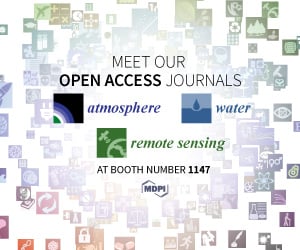 MDPI is currently attending the 2016 AGU Fall Meeting (12–16 December, 2016)
MDPI is currently attending the 2016 AGU Fall Meeting (12–16 December, 2016)
If you are also attending the conference, please feel free to stop by our booth (Booth #1147) and meet the representative editors.
Conference details:
2016 AGU Fall Meeting
12–16 December 2016
Moscone Center
747 Howard St
San Francisco, CA 94103, USA
8 December 2016
Three New Institutional Memberships Established
We are pleased to announce that Purdue University, USA, the Universitat Politécnica de Valencia, Spain and the Queensland University of Technology, Australia, have joined MDPI's institutional membership program: Primary authors from these instititions will benefit from a 10% discount on the article processing charges.
Additional details can be found on our institutional membership page.
16 November 2016
World Sustainability Award - Final Extension
The deadline for the World Sustainability Award has been extended for one last time! You now have one more month to nominate an individual researcher, group or project! The final deadline for nominations will be December 15, 2016.
For full details, please visit here.
11 November 2016
Three New Institutional Memberships Established
We are pleased to announce that the University of Minnesota, USA, the Universidad Politécnica de Madrid, Spain and Shanghai Jiao Tong University, China, have joined MDPI's institutional membership program: Primary authors from these instititions will benefit from a 10% discount on the article processing charges.
Additional details can be found on our institutional membership page.
4 November 2016
MDPI Joins the United Nations Global Compact
MDPI has become a member of the United Nations Global Compact to support corporate sustainability and have committed ourselves to the ten principles associated with the Compact.
Sustainability has always been at the core of MDPI’s values, starting with the collection and preservation of rare chemical samples that started in 1996 and led to the first journal, Molecules. Sustainability has become one of our flagship journals and we have supported and organized several conferences and events based on Sustainability, including the upcoming 6th World Sustainability Forum. As a global enterprise, we see it as our duty to promote responsible practices that will ensure a bright future for our planet. Given this, the choice to join the Global Compact was an easy one and we will do our utmost to fully implement it.
3 November 2016
MDPI Now a Member of SPARC Europe
We are delighted to announce that MDPI has become a member of SPARC Europe, an organization that works for open scholarship in Europe, including support of open access publication.
As one of the few publishers to join SPARC Europe to date, MDPI looks forward to making a contribution that puts open scholarship on a positive and sustainable path. We fully support the goals of open scholarship that allow the largest number of people possible to benefit from work of researchers in all disciplines. We hope that our membership will enable us to work with other stakeholders to find the best possible solution.
2 November 2016
World Sustainability Award Deadline Extension
The deadline for the World Sustainability Award has been extended! You now have until November 15, 2016 to nominate an individual researcher, group or project!
For full details, please visit here.
26 October 2016
Four New Institutional Memberships Established
We are pleased to announce that the Wuppertal Institut, Germany, the University of Girona, Spain and Central South University and Huazhong University of Science and Technology, China, have joined MDPI's institutional membership program: Primary authors from these instititions will benefit from a 10% discount on the article processing charges.
Additional details can be found on our institutional membership page.
24 October 2016
International Open Access Week 2016
Meet us during International Open Access Week 2016! We will be presenting at various locations in Europe and China.
To get involved and for full details see the complete list of events organised by MDPI here.
18 October 2016
Institutional Membership established with Universitat Pompeu Fabra, Spain and Aalto University, Finland
We are pleased to announce that the Universitat Pompeu Fabra, Spain and Aalto University, Finland, have joined MDPI's institutional membership program: Primary authors from these universities will benefit from a 10% discount on the article processing charges.
Additional details can be found on our institutional membership page.
12 October 2016
Institutional Membership Established with Iowa State University and the University of North Texas, USA
We are pleased to announce that the Iowa State University and the University of North Texas, USA, have joined MDPI's institutional membership program: Primary authors from these universities will benefit from a 10% discount on the article processing charges.
Additional details can be found on our institutional membership page.
7 October 2016
MDPI at Open Access Days in Munich, 10-11 October 2016
Meet MDPI during the Open Access Days held from 10-11 October 2016 at Ludwig Maximilian University of Munich, Germany.
The two-day event will feature experts from the open access sector, scientists from all disciplines, publishing representatives and supporters of scientific research and communication from libraries as well as research institutes and funding institutions. Join us!
For more information about the event and to see the program, visit the event webpage.
7 October 2016
Institutional Membership Established with the University of Sevilla and the University of Alicante, Spain
We are pleased to announce that the University of Sevilla and the University of Alicante, Spain have joined MDPI's institutional membership program: Primary authors from these universities will benefit from a 10% discount on the article processing charges.
Additional details can be found on our institutional membership page.
29 September 2016
Institutional Membership Established with the University of Delaware
We are pleased to announce that the University of Delaware, USA, has joined MDPI's institutional membership program: Primary authors from this university will benefit from a 10% discount on the article processing charges.
Additional details can be found on our institutional membership page.
19 September 2016
Peer Review Week 2016
As an open access publisher indebted to the work of our peer reviewers, we are proud to support Peer Review Week 2016. As part of the week's activities and to celebrate this year's theme "Recognition for Review", MDPI will host two webinars that anyone can join.
These webinars will explore the role and value of reviewers and the recognition they receive from a publishers perspective, with examples from MDPI's experience in publishing nearly 80,000 peer reviewed papers, along with evidence from reviewer surveys. It will also touch upon potential changes in how review is carried out and tips for early career researchers who want to be involved in the review process.
Details and links to join can be found below:
Wednesday September 21, 08:00 (CEST)
Friday September 23, 16:00 (CEST)
For more information about all the activites taking place, please visit the Peer Review Week website.
6 September 2016
Institutional Membership established with Kansas State University and Northwestern University, USA
We are pleased to announce that Kansas State University and Northwestern Universty, USE, have joined MDPI's institutional membership program: Primary authors from these universities will benefit from a 10% discount on the article processing charges.
Additional details can be found on our institutional membership page.
5 September 2016
Institutional Membership Established with University College Cork
We are pleased to announce that University College Cork, Ireland, has joined MDPI's institutional membership program: Primary authors from this university will benefit from a 10% discount on the article processing charges.
Additional details can be found on our institutional membership page.
22 August 2016
MDPI New Office Location
We are pleased to announce that MDPI has now moved to a new permanent address:
MDPI AG
St. Alban Anlage 66
CH-4052 Basel
Postfach, CH-4020 Basel
Switzerland
Telephone and fax numbers remain unchanged.
10 August 2016
Institutional Membership established with the University of Texas at Austin, USA, the Wroclaw University of Science and Technology, Poland and the University of Granada and the Compultense University of Madrid, Spain
We are pleased to announce that the following institutions have joined MDPI's institutional membership program in August 2016:
- University of Texas at Austin, USA
- Wroclaw University of Science and Technology, Poland
- University of Granada, Spain
- Compultense University of Madrid, Spain
Authors affiliated with these institutions will benefit from a 10% discount on the article processing charges.
Additional details can be found on our institutional membership page.
18 July 2016
Institutional Membership established with Louisiana State University and Florida State University, USA, Royal College of Surgeons, Ireland, University of Rostock, Germany, AGH University of Science and Technology, Poland and Southeast University, China
We are pleased to announce that the following institutions have joined MDPI's institutional membership program in July 2016:
- Louisiana State University, USA
- Florida State University, USA
- Royal College of Surgeons, Ireland
- University of Rostock, Germany
- AGH University of Science and Technology, Poland
- Southeast University, China
Authors affiliated with these institutions will benefit from a 10% discount on the article processing charges.
Additional details can be found on our institutional membership page.
12 July 2016
MDPI Moving to New Office Location in Basel (Switzerland) in August 2016
As of 20 August 2016, MDPI's new address in Basel will be:
MDPI AG
St. Alban-Anlage 66
CH-4052 Basel
Switzerland
Telephone and fax numbers remain unchanged.
St. Alban-Anlage 66 was built from 1947 to 1948 and initially the home of the "Bühler AG", a book printing business.
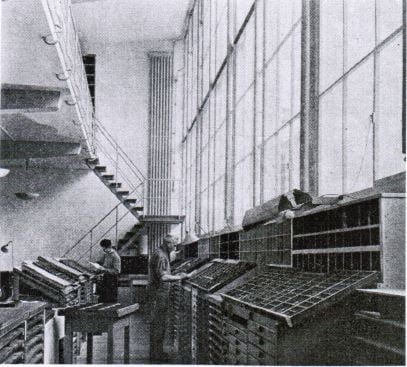
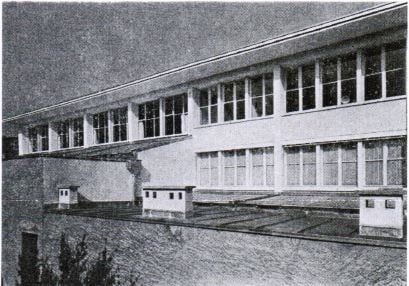
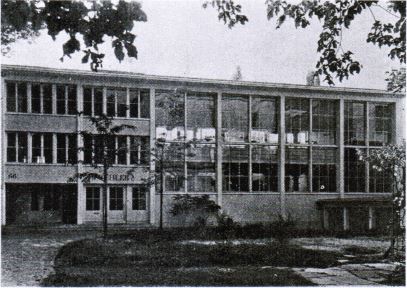
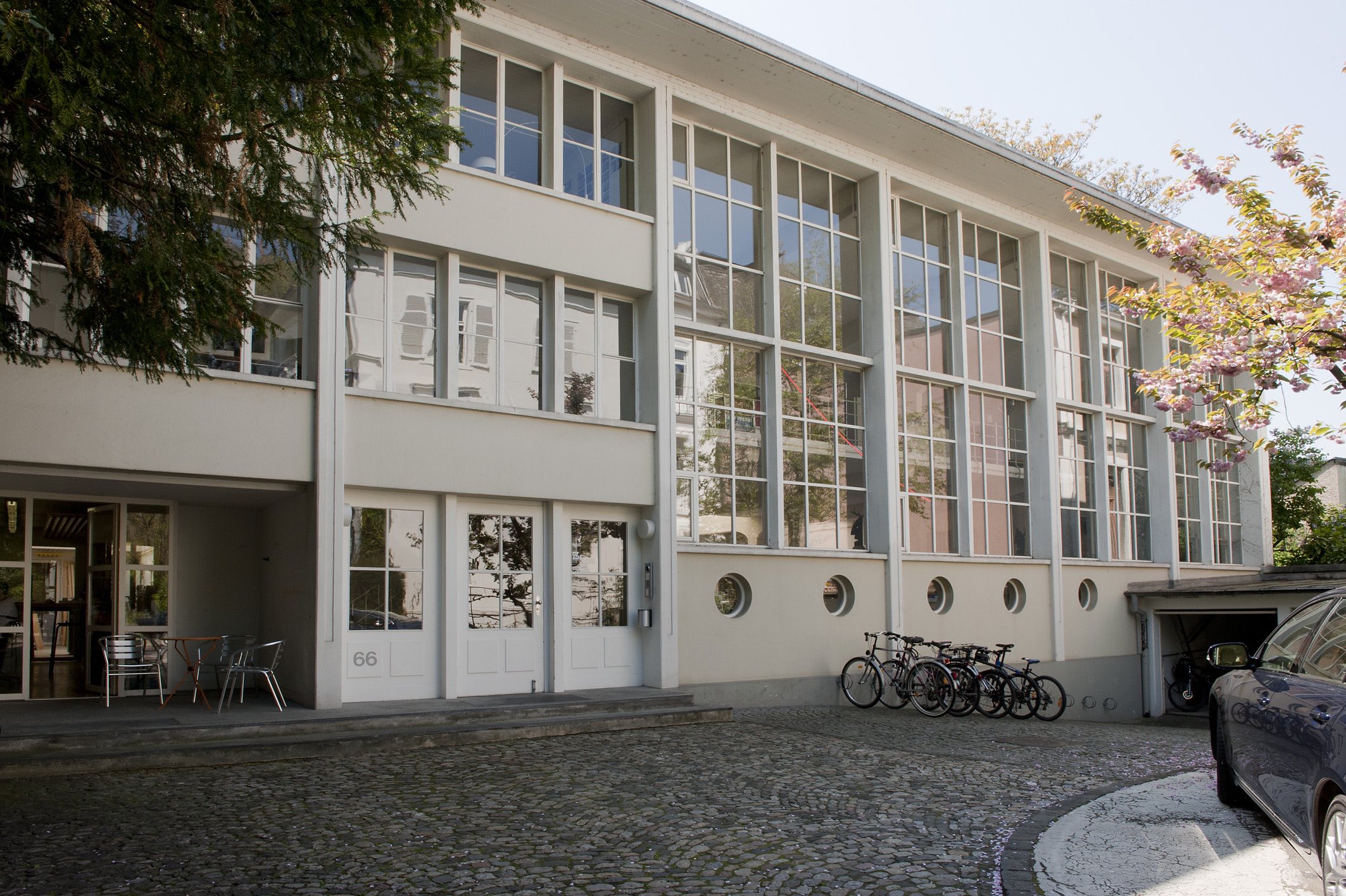
For more information about this building, see: https://www.mdpi.com/about/headquarters
21 June 2016
"Behind the Scenes of Academic Publishing—A Publisher's Perspective" - MDPI's Lecture at the University of Basel
From the 15-16 September, 2016, MDPI will run a course on Academic Publishing at the University of Basel.
In this two day workshop, MDPI will look in detail at the role performed by academic journal publishers and how they interact with academics. Ethical dimensions, what happens when problems occur and how the publisher coordinates all aspects of the submission process will also be covered.
For more detailed information about the program, trainers and registration please visit the course webpage.
14 June 2016
2015 Impact Factors Released
We are pleased to report the 2015 Journal Impact Factors in the latest Journal Citation Reports® Science Edition, published by Thomson Reuters in June 2016. Twenty out of 25 journals have seen an increase in their Impact Factor and two journals (Crystals and IJGI) received a first Impact Factor. Coatings was recently added to SCIE and will receive its first Impact Factor in next year’s JCR.
Updated Impact Factors for Journals in the Science Citation Index Expanded (SCIE)
| Journal | 2015 Impact Factor | Details | Category Rank |
| Applied Sciences | 1.726 | Link | 83/163 (Q3) in ‘Chemistry, Multidisciplinary’; 129/271 (Q2) in ‘Materials Science, Multidisciplinary’; 64/145 (Q2) in ‘Physics, Applied’ |
| Atmosphere | 1.221 | Link | 66/84 (Q4) in ‘Meteorology & Atmospheric Sciences’ |
| Catalysts | 2.964 | Link | 53/144 (Q2) in ‘Chemistry, Physical’ |
| Energies | 2.077 | Link | 43/88 (Q2) in ‘Energy & Fuels’ |
| Entropy | 1.743 | Link | 25/79 (Q2) in ‘Physics, Multidisciplinary’ |
| Forests | 1.583 | Link | 19/66 (Q2) in ‘Forestry’ |
| Genes | 3.242 | Link | 60/165 (Q2) in ‘Genetics & Heredity’ |
| International Journal of Environmental Research and Public Health (IJERPH) | 2.035 | Link | 101/225 (Q2) in ‘Environmental Sciences’ |
| International Journal of Molecular Sciences (IJMS) | 3.257 | Link | 110/289 (Q2) in ‘Biochemistry & Molecular Biology’; 51/163 (Q2) in ‘Chemistry, Multidisciplinary’ |
| Marine Drugs | 3.345 | Link | 13/59 (Q1) in ‘Chemistry, Medicinal’ |
| Materials | 2.728 | Link | 63/271 (Q1) in ‘Materials Science, Multidisciplinary’ |
| Metals | 1.574 | Link | 18/73 (Q1) in ‘Metallurgy & Metallurgical Engineering’; 145/271 (Q3) in ‘Materials Science, Multidisciplinary’ |
| Micromachines | 1.295 | Link | 30/56 (Q3) in ‘Instruments & Instrumentation’ 63/83 (Q4) in ‘Nanoscience & Nanotechnology’ |
| Minerals | 1.468 | Link | 9/21 (Q2) in ‘Mining & Mineral Processing; 14/29 (Q2) in ‘Mineralogy’ |
| Molecules | 2.465 | Link | 24/59 (Q2) in ‘Chemistry, Organic’ |
| Nanomaterials | 2.690 | Link | 64/271 (Q1) in ‘Materials Science, Multidisciplinary’; 36/83 (Q2) in ‘Nanoscience & Nanotechnology’ |
| Nutrients | 3.759 | Link | 16/78 (Q1) in ‘Nutrition & Dietetics’ |
| Polymers | 2.944 | Link | 20/85 (Q1) in ‘Polymer Science’ |
| Remote Sensing | 3.036 | Link | 5/28 (Q1) in ‘Remote Sensing’ |
| Sensors | 2.033 | Link | 36/75 (Q2) in ‘Chemistry, Analytical’; 16/27 (Q3) in ‘Electrochemistry’; 12/56 (Q1) in ‘Instruments & Instrumentation’ |
| Sustainability | 1.343 | Link | 146/225 (Q3) in ‘Environmental Sciences’; 22/29 (Q4) in ‘Green & Sustainable Science & Technology’ |
| Symmetry | 0.841 | Link | 31/63 (Q2) in ‘Multidisciplinary Sciences’ |
| Toxins | 3.571 | Link | 16/89 (Q1) in ‘Toxicology’ |
| Viruses | 3.042 | Link | 14/33 (Q2) in ‘Virology’ |
| Water | 1.687 | Link | 33/85 (Q2) in ‘Water Resources’ |
Journals with First Impact Factors
| Journal | 2015 Impact Factor | Details | Category Rank |
| Crystals | 2.075 | Link | 13/26 (Q2) in ‘Crystallography’ |
| ISPRS International Journal of Geo-Information | 0.651 | Link | 45/49 (Q4) in ‘Geography, Physical’; 26/28 (Q4) in ‘Remote Sensing’. |
14 June 2016
2015 Impact Factor Released for Catalysts – 2.964
We are pleased to inform you that the new Impact Factor of Catalysts has been released. According to the Journal Citation Reports®, published by Thomson Reuters in June 2016, the new Impact Factor is 2.964, and the 5-Year Impact Factor is 3.194. Compared to last year, the Impact Factor has increased by 48 percent (see figures below).
Catalysts now ranks 53/144 (Q2) in the category ‘Chemistry, Physical’ and is the highest ranking Open Access journal in the category.
Evolution of Impact Factor, Citations and Publications for Catalysts:
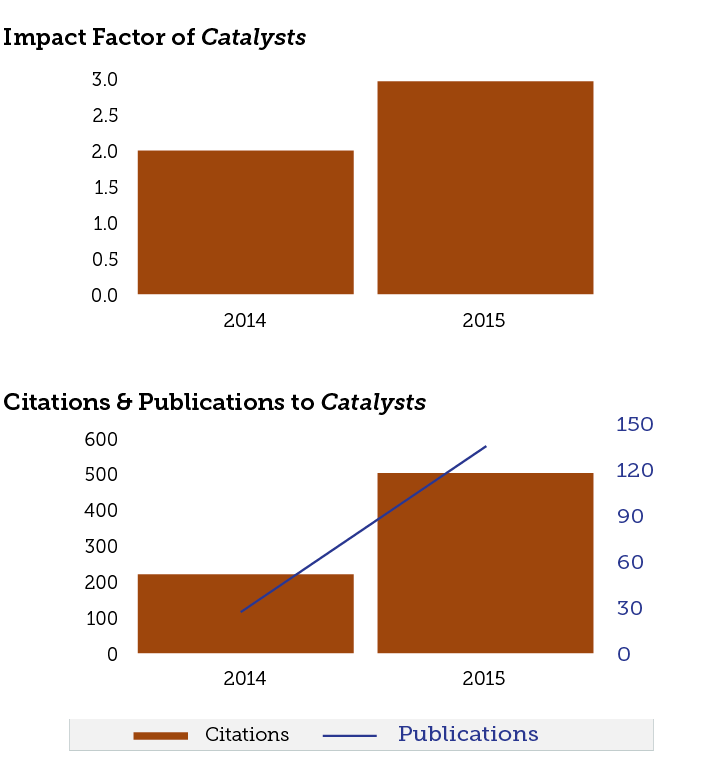
26 May 2016
Institutional Membership established with University of Bremen, Germany, Koç University, Turkey, IIASA, Austria and Jilin University and Kunming Institute of Botany, CAS, China
We are pleased to announce that the following institutions have joined MDPI's institutional membership program in May 2016:
- Unversity of Bremen, Germany
- Koç University, Turkey
- International Institute for Applied Systems Analysis (IIASA), Austria
- Jilin University, China
- Kunming Institute of Botany, Chinese Academy of Sciences, China
Authors affiliated with these institutions will benefit from a 10% discount on the article processing charges.
Additional details can be found on our institutional membership page.
24 May 2016
Meet Our Editors at the ICC 16
We are pleased to announce that we will present Catalysts at the International Congress on Catalysis (ICC 16) together with four other journals: Applied Sciences, Energies, Molecules and Materials. If you are at this conference, please feel free to stop by our booth (Booth 44) to meet our Editor-in-Chief, Professor Keith Hohn, and other representatives from Catalysts.
The International Congress on Catalysis (ICC 16)
July 3–8, 2016
Beijing, China
The ICC 16, with the theme of Catalysis for the Sustainable Development of the World, will feature the crucial roles of catalysis science and technology in improving the efficiencies of energy production and utilization of fossil resources, developing renewable energy, and abating/eliminating pollutants emission to the environment. The congress will serve as a platform to exchange new ideas and discuss advances in all areas of catalysis.
http://www.icc2016china.com/en/
23 May 2016
Institutional Membership Established with the KTH Royal Institute of Technology, Sweden and the South China University of Technology, Beijing University of Technology and Southern Medical University, China
We are pleased to announce that the following institutions have joined MDPI's institutional membership program in April and May 2016:
- KTH Royal Institute of Technology, Sweden
- South China University of Technology, China
- Beijing University of Technology, China
- Southern Medical University, China
Authors affiliated with these institutions will benefit from a 10% discount on the article processing charges.
Additional details can be found on our institutional membership page.
6 May 2016
Catalysts Best Paper Award 2016

We are pleased to announce that the following papers were selected as the first Prize of /Catalysts/ Best Paper Award 2016:
Toni Riittonen, Esa Toukoniitty, Dipak Kumar Madnani, Anne-Riikka Leino, Krisztian Kordas, Maria Szabo, Andras Sapi, Kalle Arve, Johan Wärnå and Jyri-Pekka Mikkola
(Article) One-Pot Liquid-Phase Catalytic Conversion of Ethanol to 1-Butanol over Aluminium Oxide—The Effect of the Active Metal on the Selectivity. Catalysts 2012, 2, 68–84.
Available online: https://www.mdpi.com/2073-4344/2/1/68/pdf
and
Manoj A. Lazar, Shaji Varghese and Santhosh S. Nair
(Review) Photocatalytic Water Treatment by Titanium Dioxide: Recent Updates. Catalysts 2012, 2, 572–601.
Available online: https://www.mdpi.com/2073-4344/2/4/572/pdf
We believe the above papers represent valuable contribution to /Catalysts/ and the scientific literature and warmly congratulate Dr. Toni Riittonen and Dr. Manoj A. Lazar and their groups. In recognition of their accomplishment, each of them have the chance to publish a paper (either a review paper or a research article), free of charge in /Catalysts/, after the peer-review procedure and the certificate.
26 April 2016
New Section on www.mdpi.com - Latest Books
You may have noticed a new section that is now visible on our home page. This section is called "Latest Books" and showcases recent publications from MDPI Books, our book publishing service.
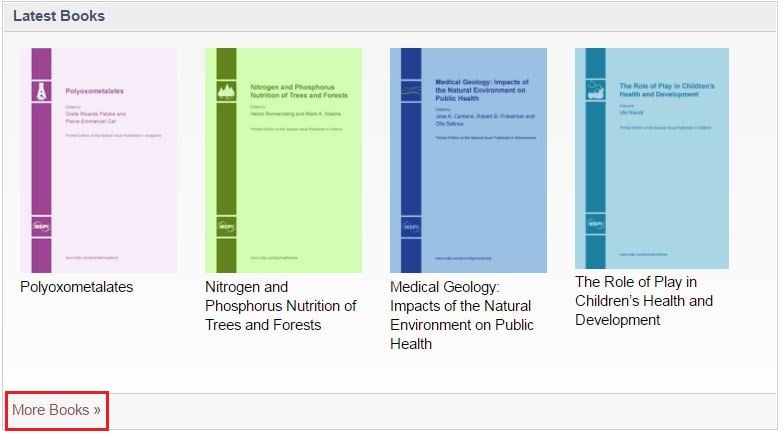
By clicking on the hyperlink "More Books" you will be taken to the MDPI Books Home Page. There you will find more information about the service, as well as the "Recent Publications" list.
Clicking on any of the book images in this list will take you to detailed information about that book (shown below). Here you can also download a PDF version of the book, or order a hardcover printed copy.
For further information about the MDPI Books service, please visit the webpage or contact [email protected].
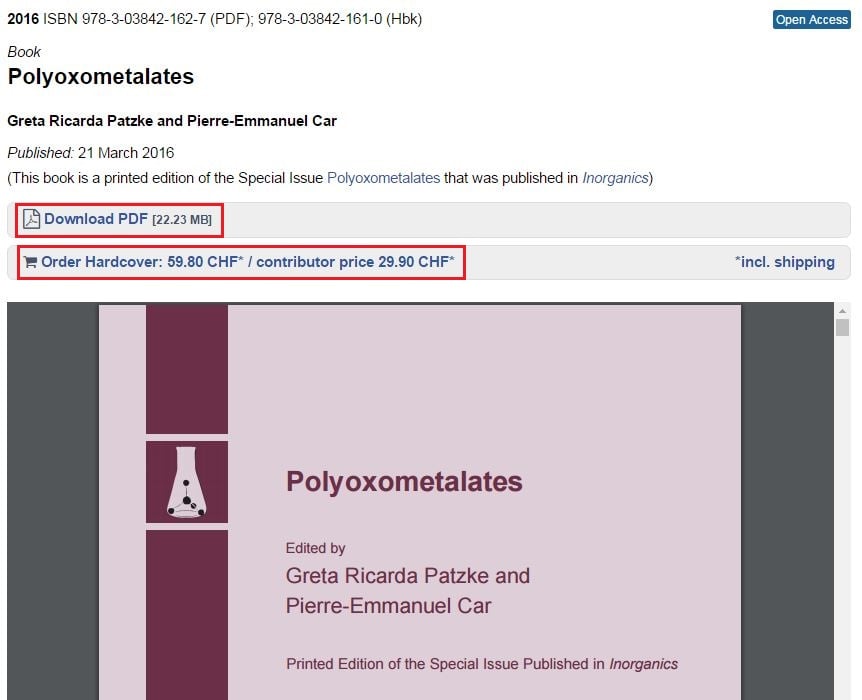
31 March 2016
Axioms, Behavioral Sciences, Photonics, Separations and Toxics added to the Emerging Sources Citation Index in Web of Science
We are pleased to announce that the journals Axioms, Behavioral Sciences, Photonics, Separations and Toxics were recently accepted for inclusion in the newly launched Emerging Sources Citation Index (ESCI) in Web of Science.
ESCI serves to highlight promising journals which are still under consideration for the Science Citation Index Expanded (SCIE) or the Social Sciences Citation Index (SSCI).
The Emerging Sources Citation Index (ESCI), Science Citation Index Expanded (SCIE), Social Sciences Citation Index
(SSCI), and Web of Science™ (WoS) are Thomson Reuters products.
30 March 2016
Institutional Membership established with the University of Winchester, UK, Silesian University of Technology, Poland and Beijing Jiaotong University and Zhejiang University, China
We are pleased to announce that the University of Winchester, UK, the Silesian University of Technology, Poland and Beijing Jiaotong University and Zhejiang University, China, have joined our Institutional Membership program. Primary authors from these universities will benefit from a 10% discount on article processing charges.
Additional details can be found on our institutional membership page.
24 March 2016
New Editorial Office in Barcelona, Spain
We are excited to announce the opening of our new editorial office in Barcelona, Spain. The launch team is led by a Senior Editor and comprises further staff holding doctoral degrees with several years of research experience. The new editorial team will help us to get closer to European research communities and progress Sciforum, the platform to support the scientific community via conference hosting and other functions. They will also help spread the word about Open Access and meet academics at scientific events.
We are in the process of hiring more doctoral and masters graduates to join the editorial team and welcome applications via [email protected]. For contact details about the office, see our contact page.

22 February 2016
Membership Established with the Max Planck Society
We are pleased to announce that the Max Planck Digital Library (MPDL) has signed an agreement with MDPI to support authors associated with the Max Planck Society (Max-Planck-Gesellschaft). As of 22 February 2016, corresponding authors will receive full funding from the MPDL for articles published in MDPI journals, with a 10% discount applied to the Article Processing Charges. Additional details can be found at our institutional membership page.
Founded in 1948, The Max Planck Society is one of Germany’s leading research organizations, and is currently made up of 83 institutes conducting basic research in natural sciences, life sciences, social sciences and humanities. 18 Nobel laureates have emerged from its ranks of scientists and the society has more than 15,000 publications in scientific journals each year.
19 February 2016
Catalysts Has Joined Twitter
Catalysts has a brand new Twitter page – take a look https://twitter.com/Catalysts_MDPI!
We want to provide good service for scientists to investigate their research and enhance scientific communication so we will be posting news about our hot articles, free article collections and job vacancy information. We invite you to discuss current topics in catalysis and post your news too.
5 February 2016
Institutional Membership Extension: Wageningen University, CSIC, University of Zürich, ETH Zürich, University of Tübingen and Osnabrück University
We are pleased to announce that Wageningen University, the Netherlands, the Spanish National Research Council (CSIC), Spain, the University of Zürich and ETH Zürich, Switzerland, and the University of Tübingen and Osnabrück University, Germany, have not only renewed their institutional memberships with MDPI after two years of successful cooperation, but have also increased the reduction of the article processing charges (APCs) for affiliated authors to 25%.
Additional details can be found on our institutional membership page.
5 February 2016
Institutional Membership established with Brock University, Canada and the University of Pisa, Italy
We are pleased to announce that Brock University, Cananda, and the University of Pisa, Italy, have joined MDPI's institutional membership program: Primary authors from these universities will benefit from a 10% discount on the article processing charges as of 01 February 2016.
Additional details can be found on our institutional membership page.
25 January 2016
MDPI Sponsors diss:kurs with the University of Basel
MDPI is pleased to announce its newly established sponsorship of diss:kurs, an event coordinated by the University of Basel to support their doctorate program. For more information about the event and how to register, please visit the diss:kurs webpage.
7 January 2016
New Institutional Memberships Established with Tsinghua University, the Chinese Society of Micro-Nano Technology, Ruhr University Bochum and the University of Ulm
We are pleased to announce that the following institutions have joined MDPI's institutional membership program as of 1 January 2016:
- Tsinghua University, China
- Chinese Society of Micro-Nano Technology (CSMNT)
- Ruhr University Bochum, Germany
- University of Ulm, Germany
Authors affiliated with these institutions will benefit from a 10% discount on the article processing charges.
Additional details can be found on our institutional membership page.
5 January 2016
Safety, Fermentation, C-Journal of Carbon Research, Magnetochemistry, Batteries and Horticulturae Released Their First Issue in December 2015
We are pleased to announce that MDPI's open access journals Safety, Journal of Imaging, Fermentation, C-Journal of Carbon Research, Magnetochemistry, Batteries and Horticulturae released their first issue at the end of December 2015.
17 December 2015
Institutional Membership Extension: University of Bern, Switzerland
We are pleased to announce that the University of Bern, Switzerland has not only renewed their institutional membership with MDPI after two years of successful cooperation, but also increased the reduction of the article processing charges (APCs) for affiliated authors to 25%.
17 December 2015
Institutional Membership with the University of Ulm and Helmholtz Zentrum Munich
We are pleased to announce that University of Ulm, Germany and Helmholtz Zentrum Munich, Germany has joined MDPI's institutional membership program:
Primary authors from the University of Ulm and Helmholtz Zentrum Munich will benefit from a 10% discount on the article processing charges as of 1 January 2016. Additional details can be found on our institutional membership page.
9 December 2015
Membership Established with the Virginia Polytechnic Institute and State University (Virginia Tech)
We are pleased to announce that Virginia Tech has joined MDPI's institutional membership program. Authors from Virginia Tech will benefit from a 10% discount on the article processing charges as of 1 December 2015. Additional details can be found on our institutional membership page.
1 December 2015
Membership Established with the Technical University of Denmark and the University of North Florida
We are pleased to announce that the following universities have joined MDPI's institutional membership program:
- Technical University of Denmark (as of 1 November 2015)
- University of North Florida, USA (as of 15 November 2015)
Primary authors from the Technical University of Denmark and the University of North Florida will benefit from a 10% discount on the article processing charges.
Additional details can be found on our institutional membership page.
2 October 2015
Membership Established with the University of Freiburg and the University of Regensburg
We are pleased to announce that the following universities have joined MDPI's institutional membership program:
University of Freiburg, Germany
University of Regensburg, Germany
Primary authors from the University of Freiburg and the University of Regensburg will benefit from a 10% discount on the article processing charges as of 1 October 2015 and 1 November 2015.
Additional details can be found on our institutional membership page.
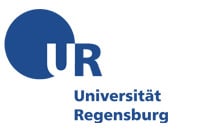
19 June 2015
Catalysts (ISSN 2073-4344) Receives First Impact Factor – 2.000
We are pleased to report the first Impact Factor for Catalysts for 2014. According to the 2015 Journal Citation Reports® Science Edition, published in June 2015 by Thomson Reuters, the first Impact Factor for Catalysts is 2.000.
Catalysts enters the ranking in the category ‘Chemistry, Physical’ (Science Citation Index Expanded) placed 77 out of 139 (Q3).





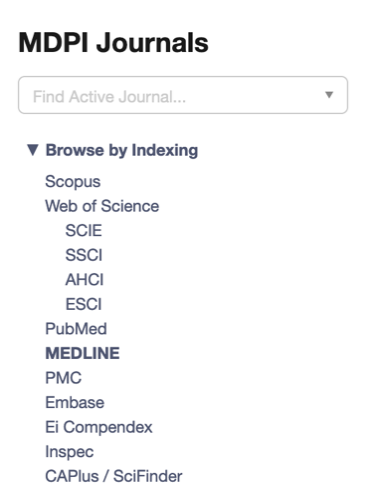
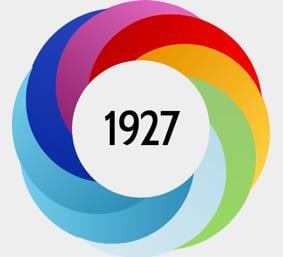
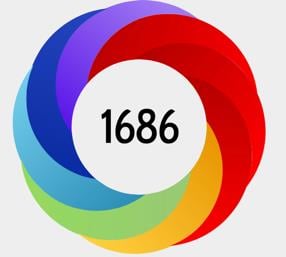
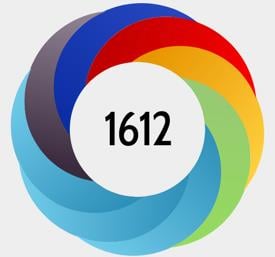
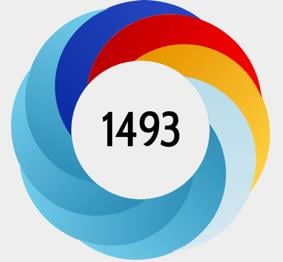
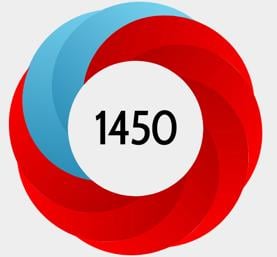
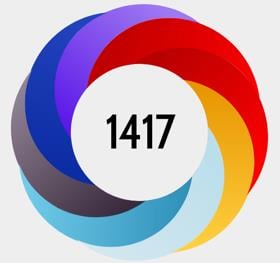
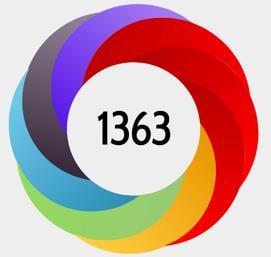
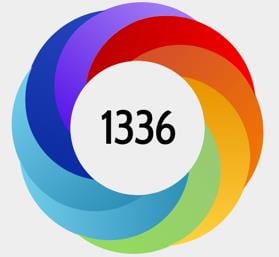
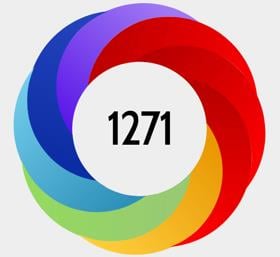
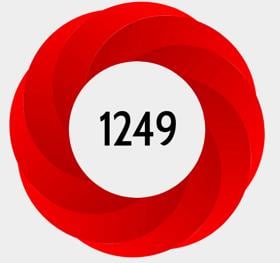







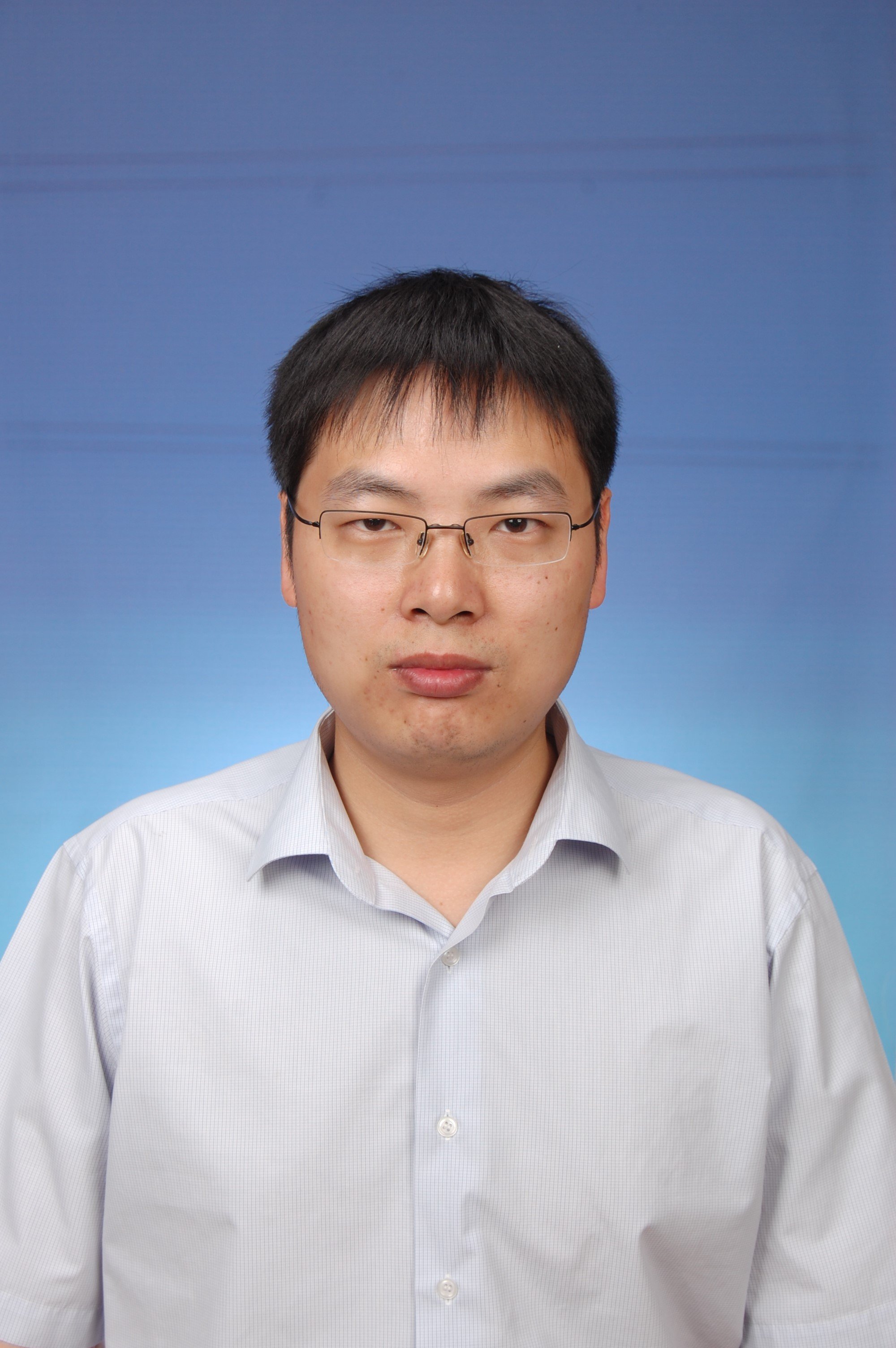


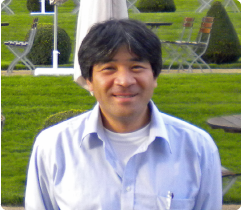


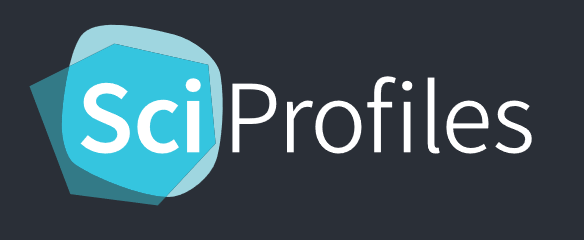

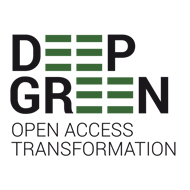


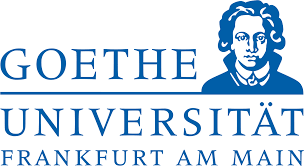
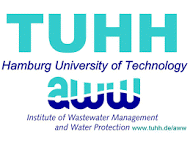





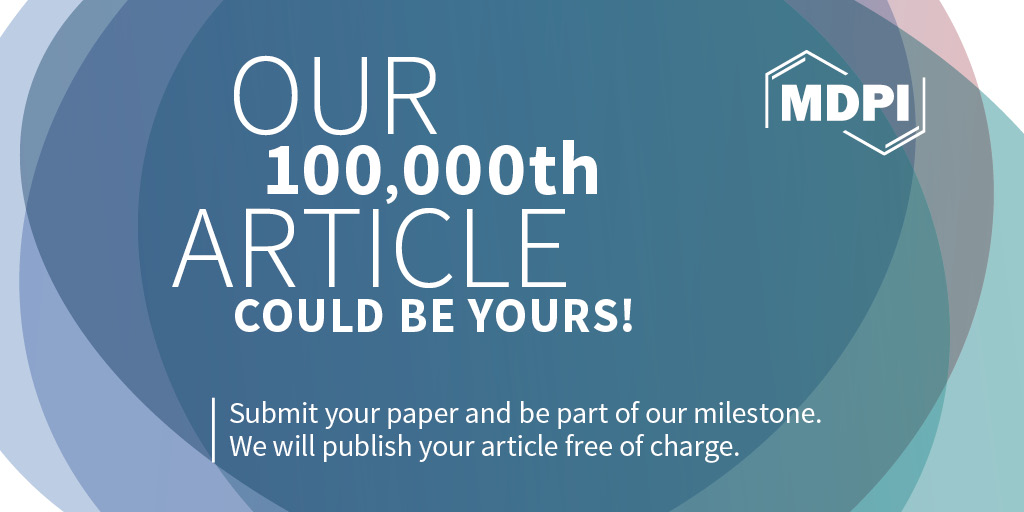
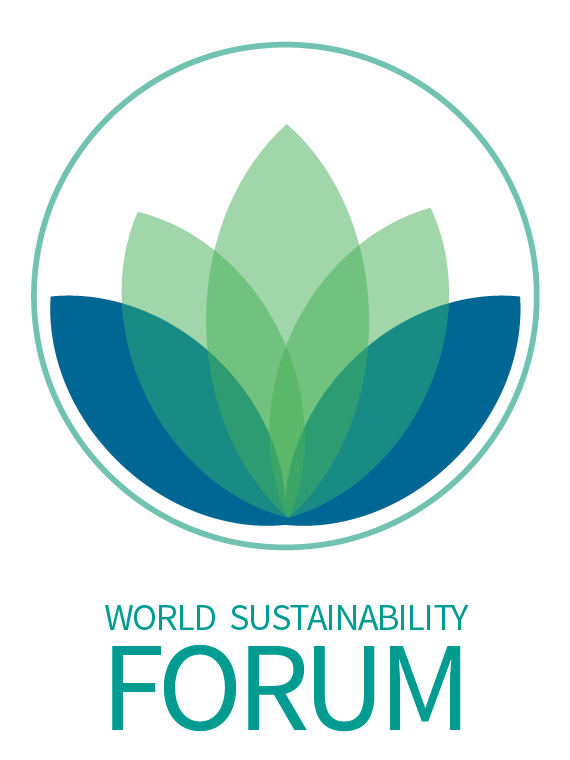
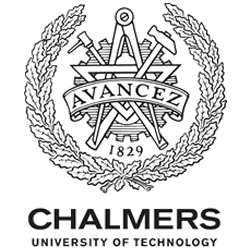

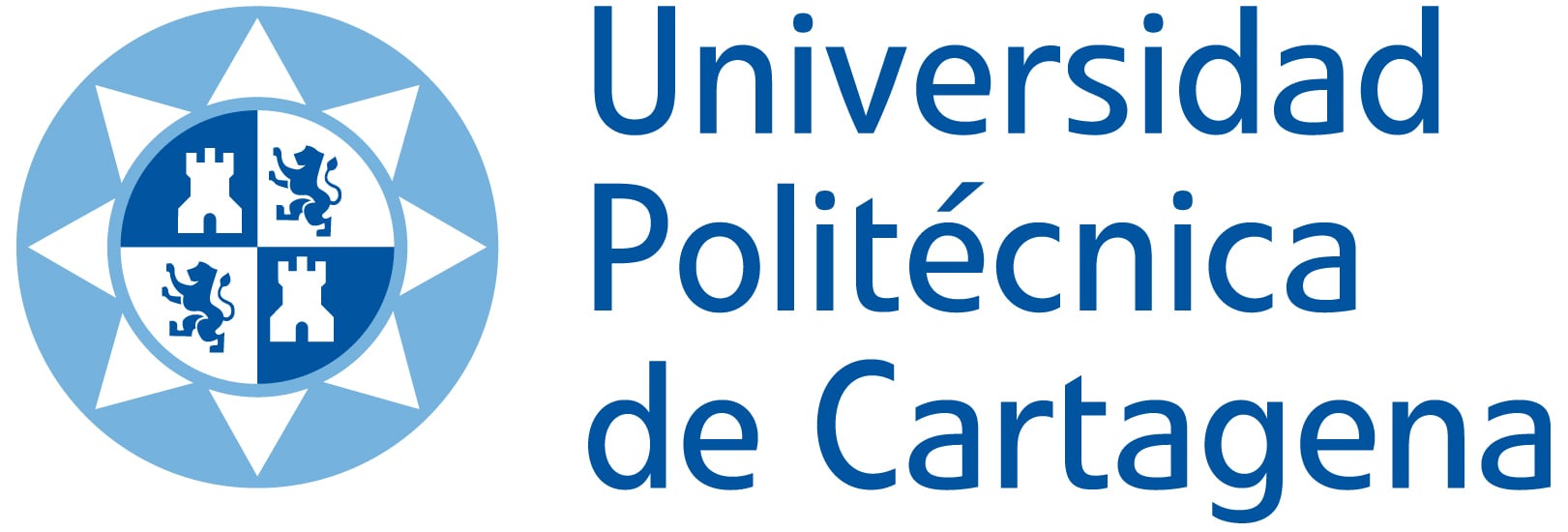
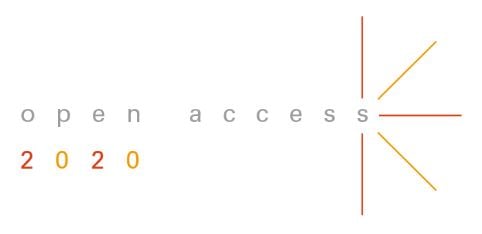



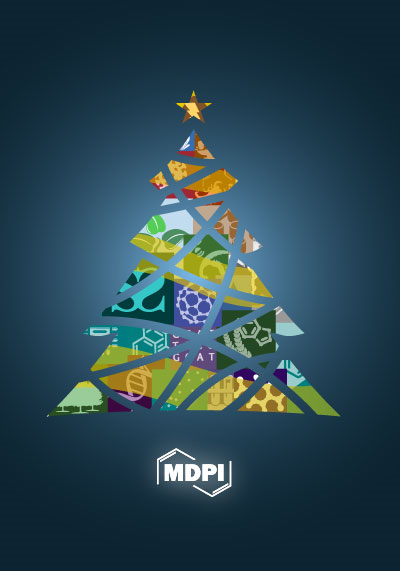


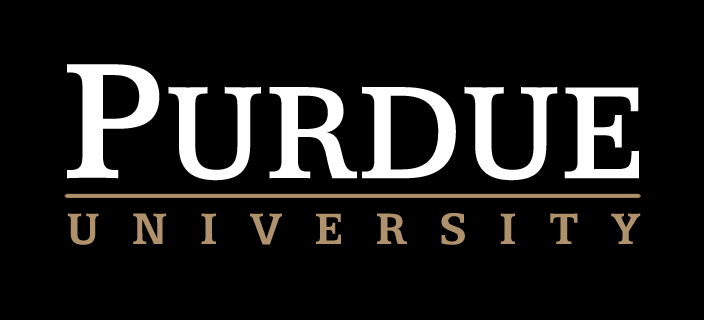

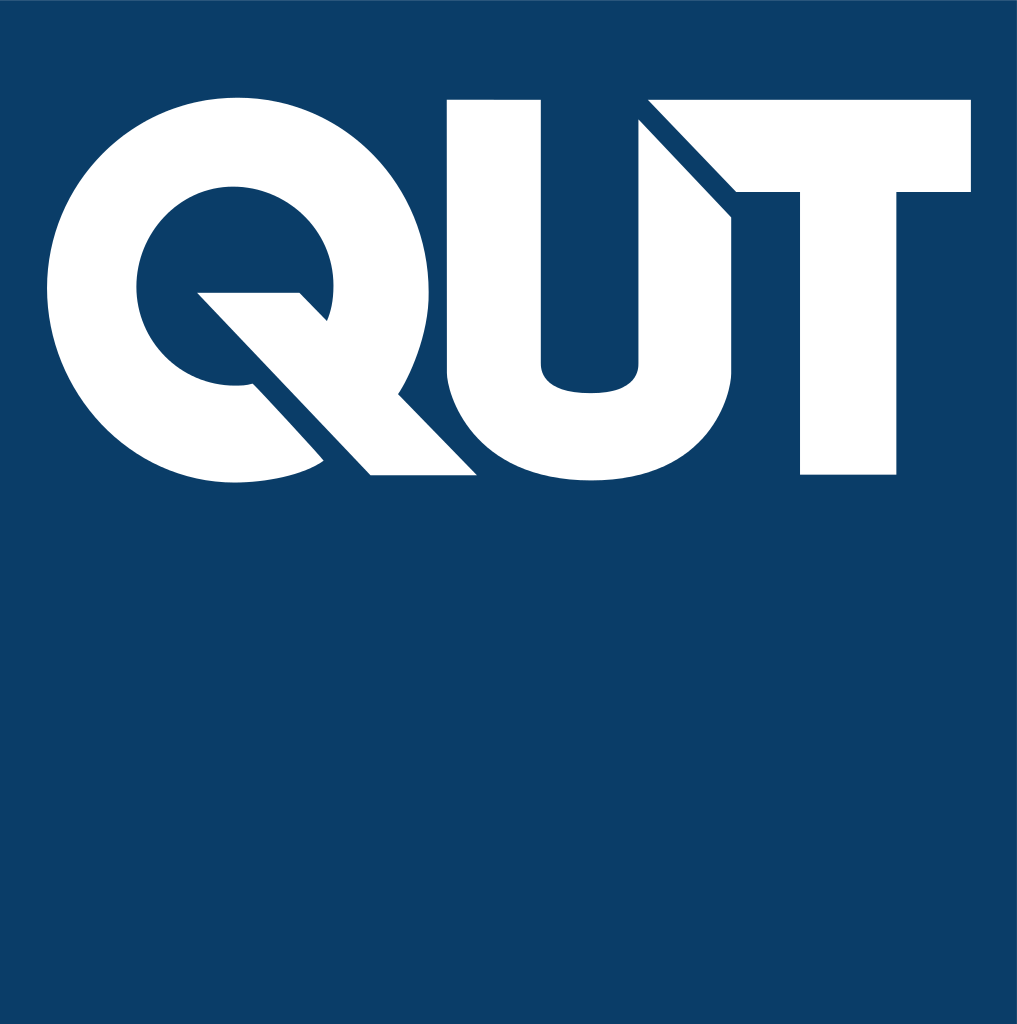
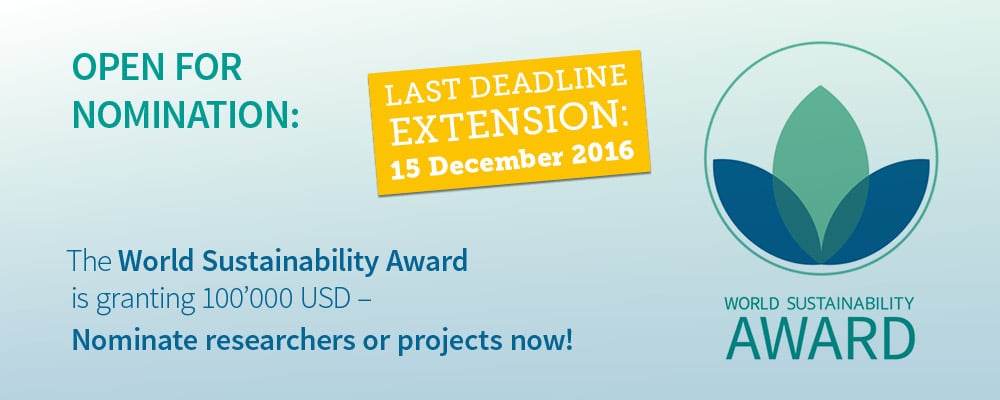



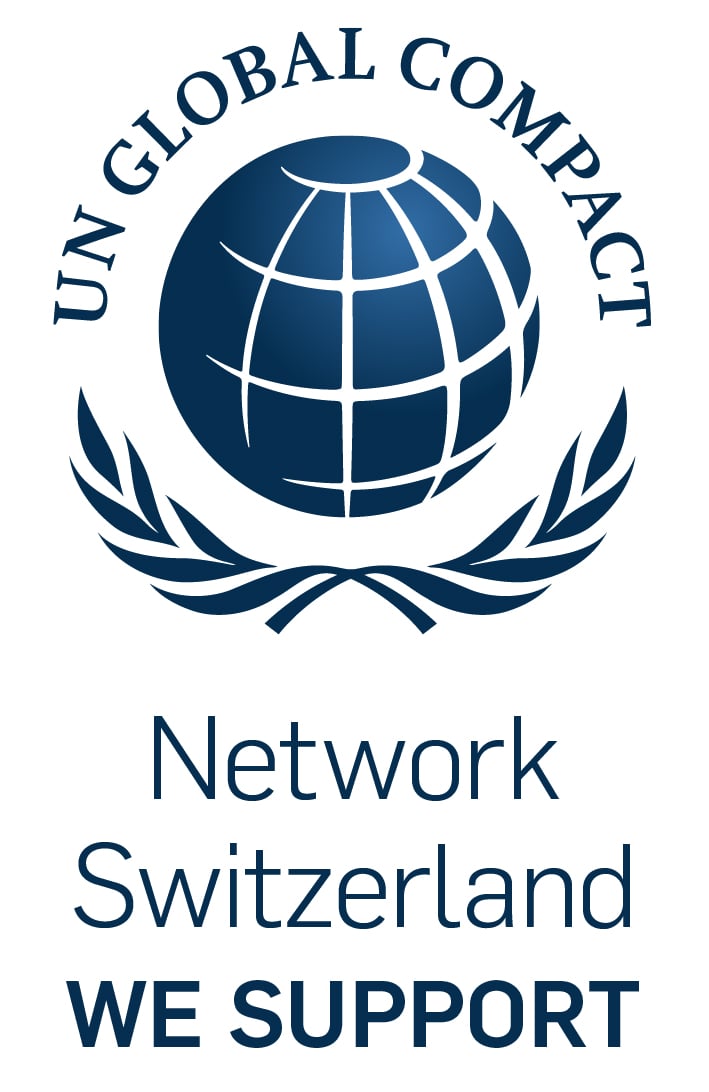
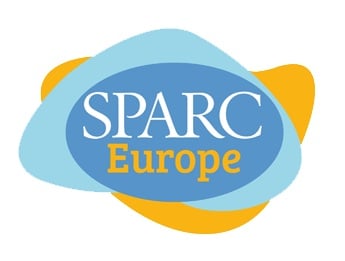
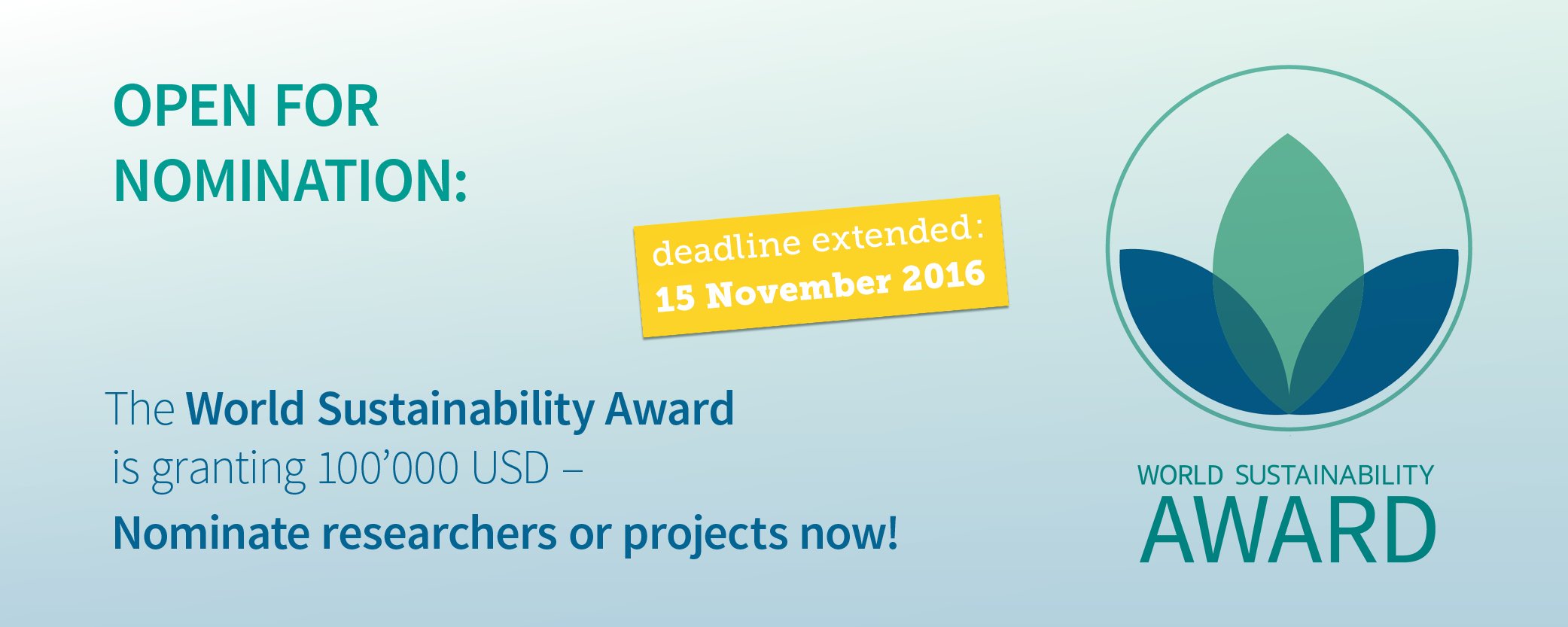 .
.